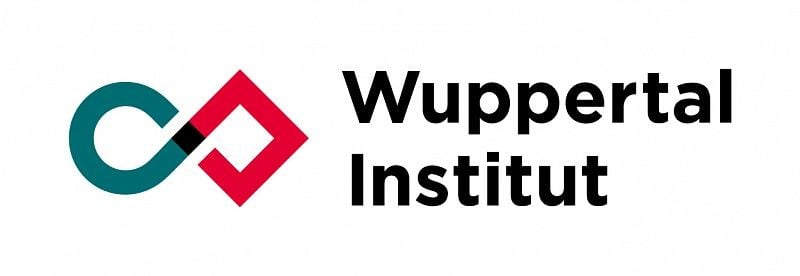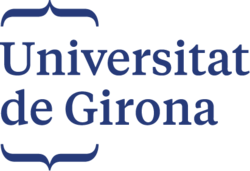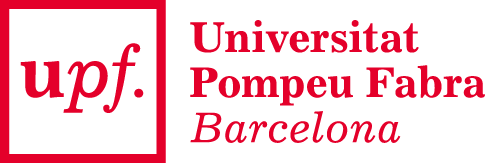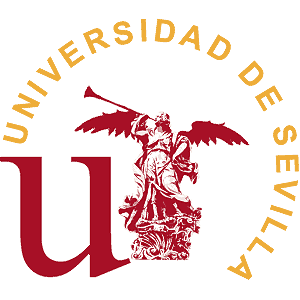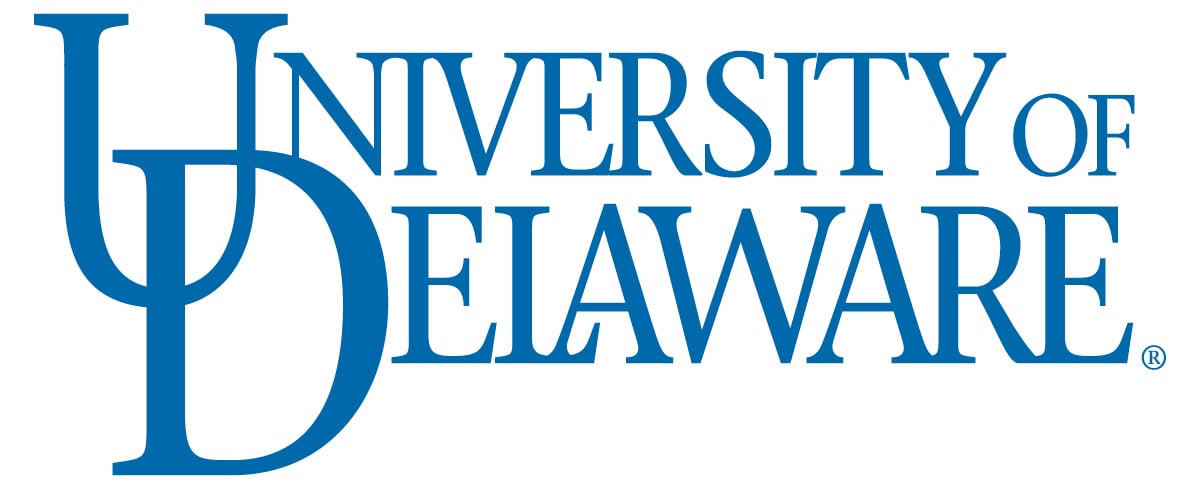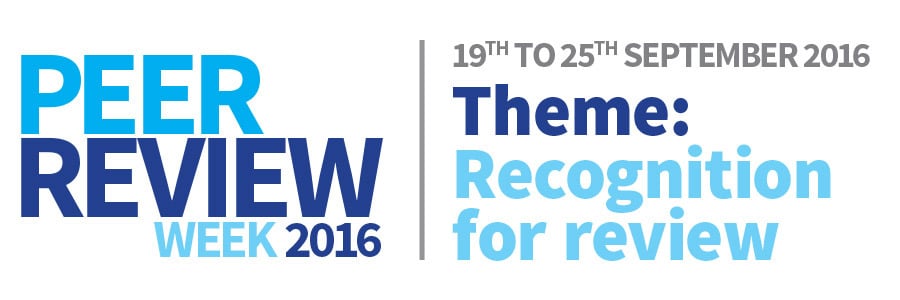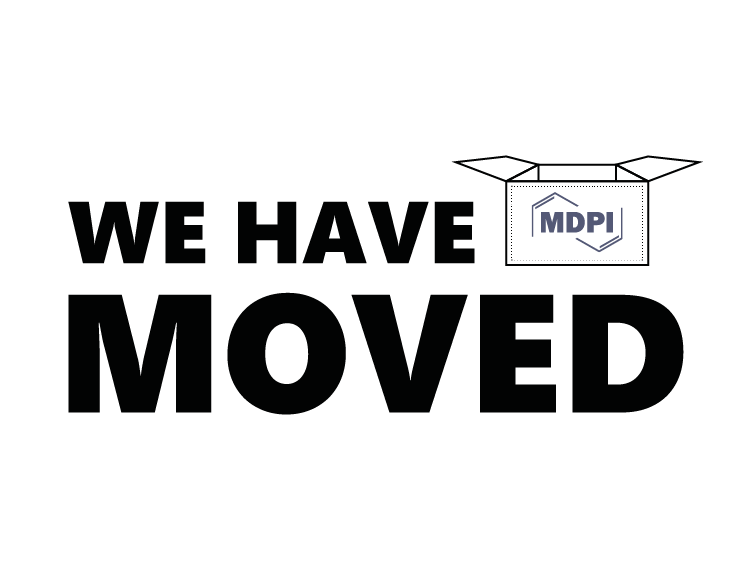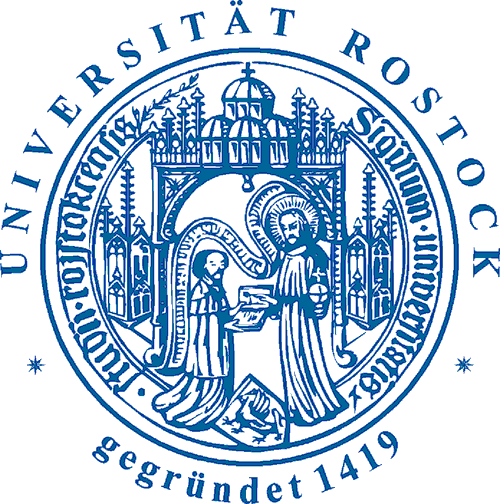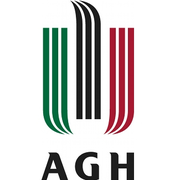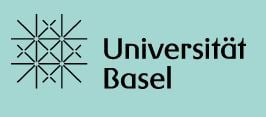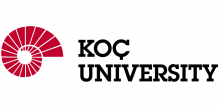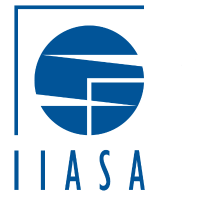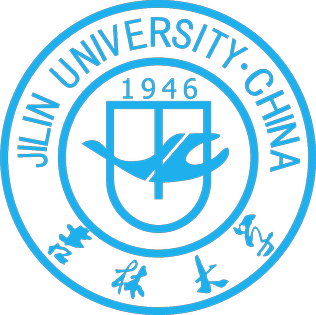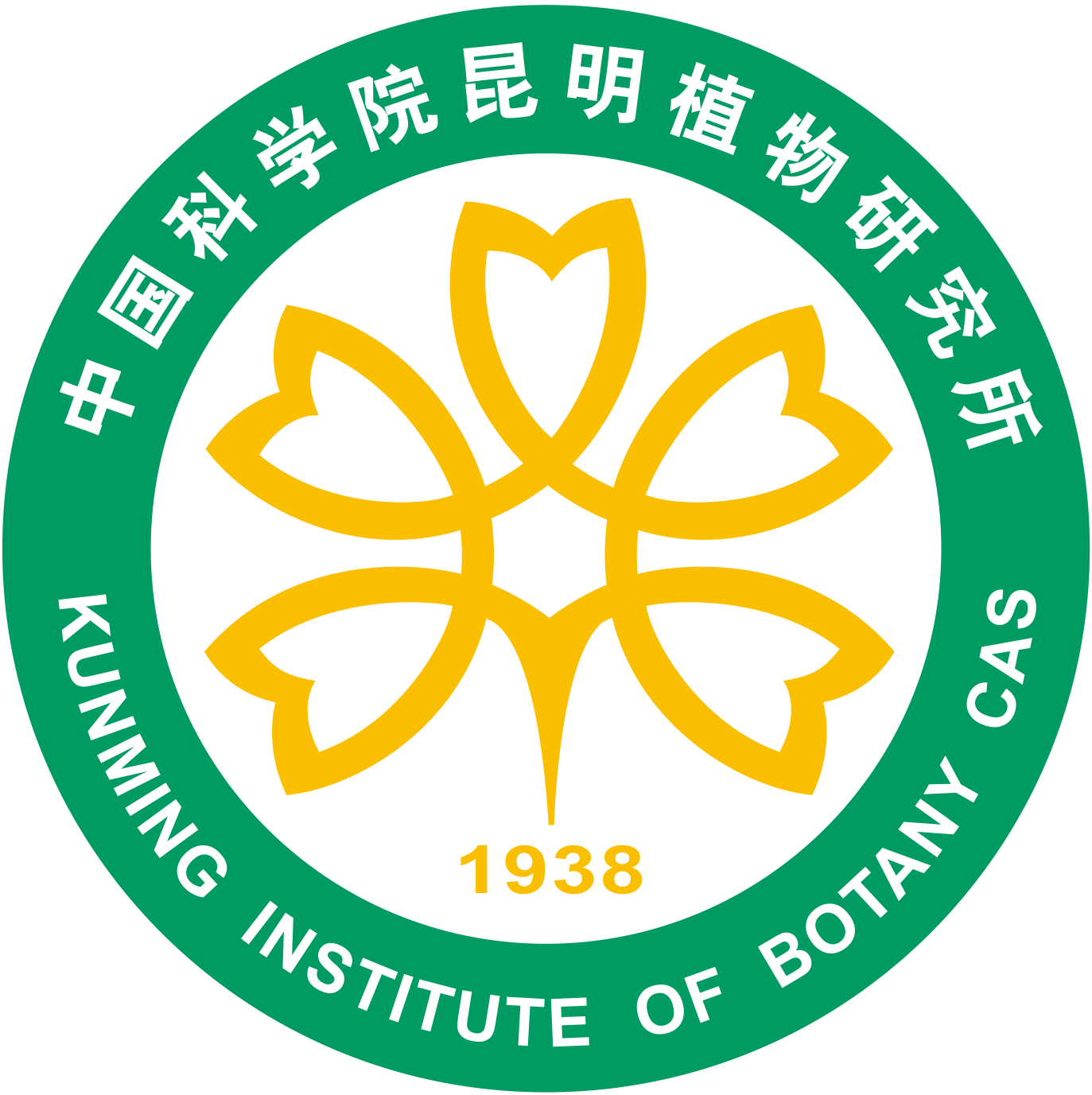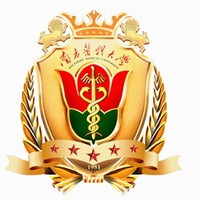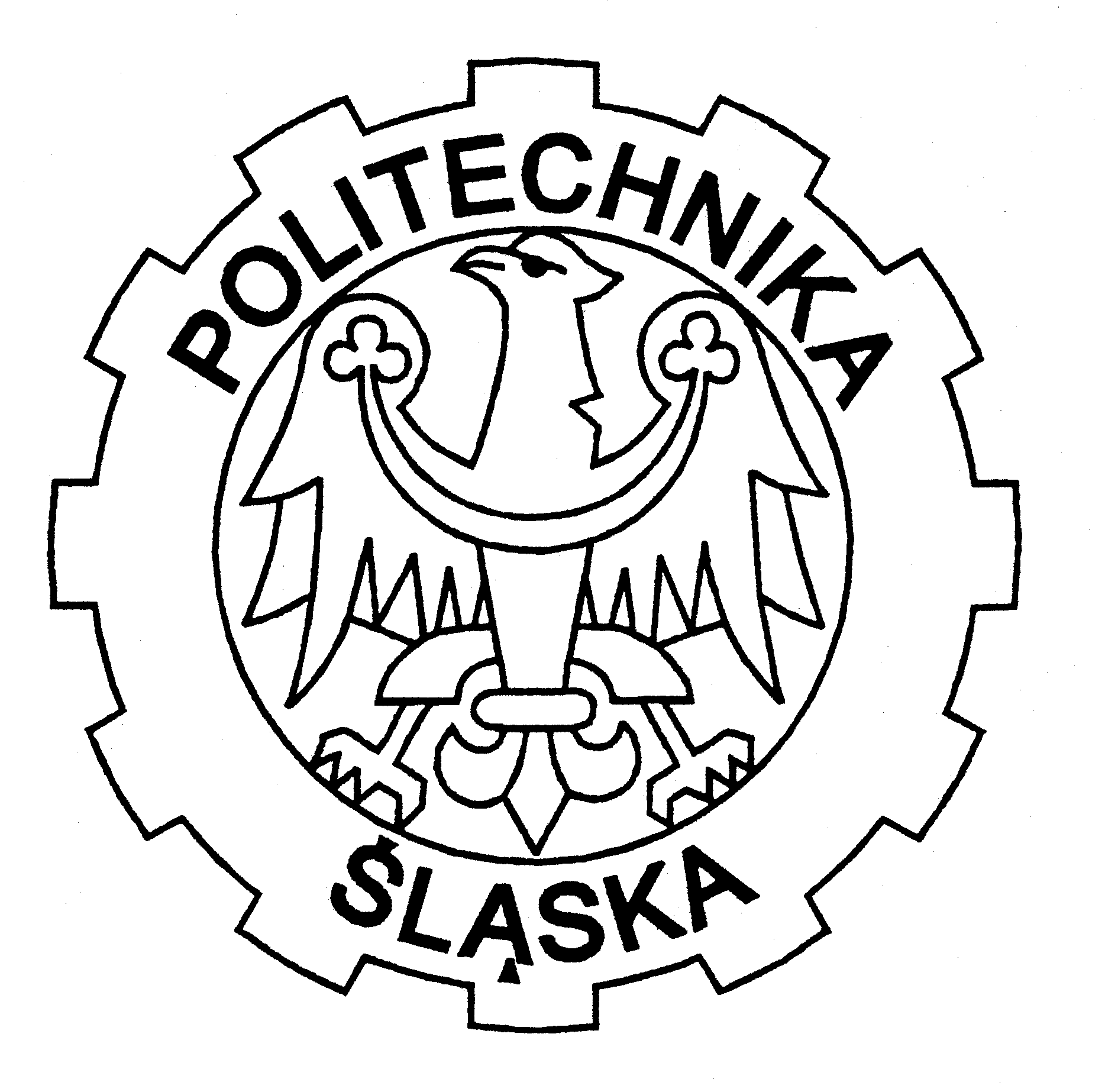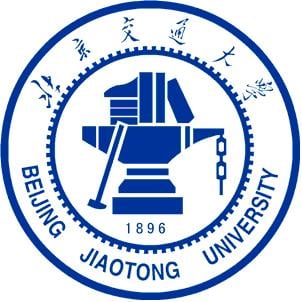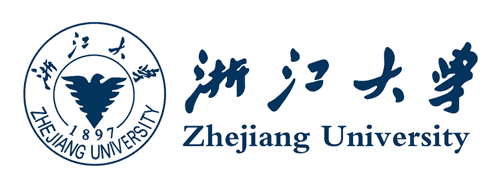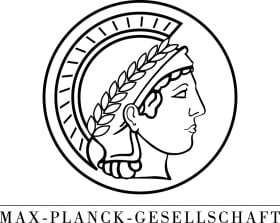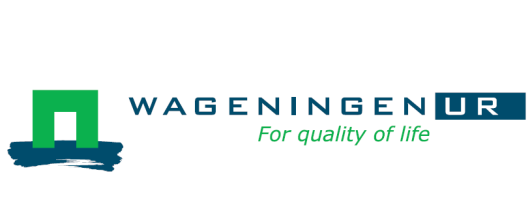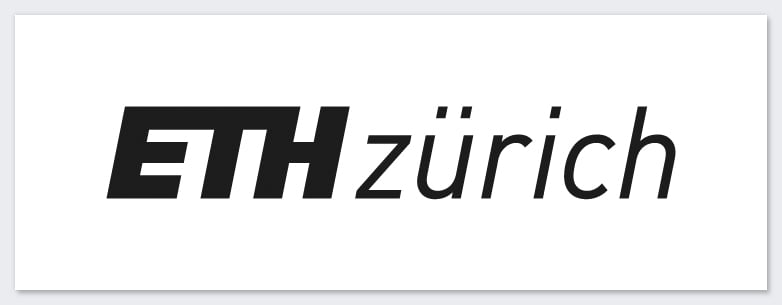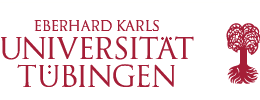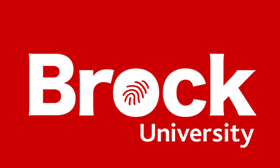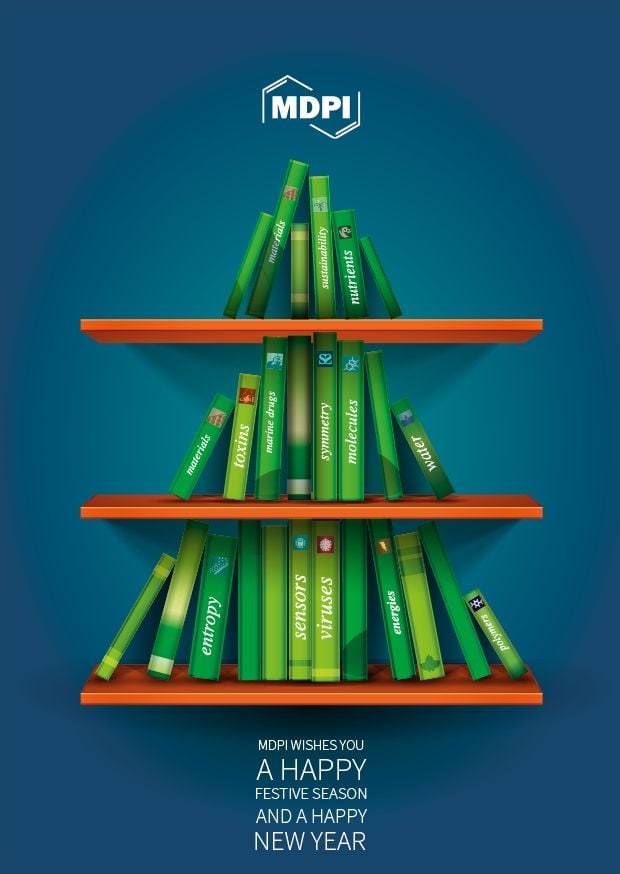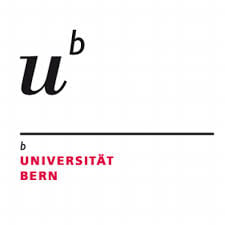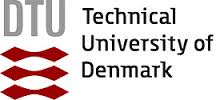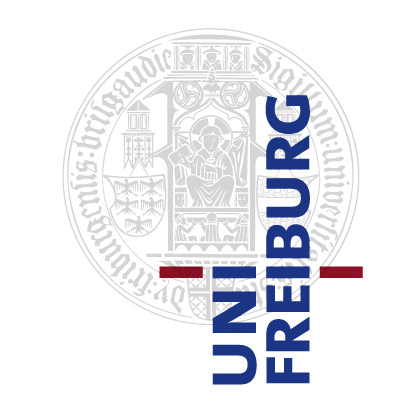
Journal Menu
► ▼ Journal Menu-
- Sensors Home
- Aims & Scope
- Editorial Board
- Reviewer Board
- Topical Advisory Panel
- Instructions for Authors
- Special Issues
- Topics
- Sections & Collections
- Article Processing Charge
- Indexing & Archiving
- Editor’s Choice Articles
- Most Cited & Viewed
- Journal Statistics
- Journal History
- Journal Awards
- Society Collaborations
- Conferences
- Editorial Office
Journal Browser
► ▼ Journal Browser-
arrow_forward_ios
Forthcoming issue
arrow_forward_ios Current issue - Vol. 24 (2024)
- Vol. 23 (2023)
- Vol. 22 (2022)
- Vol. 21 (2021)
- Vol. 20 (2020)
- Vol. 19 (2019)
- Vol. 18 (2018)
- Vol. 17 (2017)
- Vol. 16 (2016)
- Vol. 15 (2015)
- Vol. 14 (2014)
- Vol. 13 (2013)
- Vol. 12 (2012)
- Vol. 11 (2011)
- Vol. 10 (2010)
- Vol. 9 (2009)
- Vol. 8 (2008)
- Vol. 7 (2007)
- Vol. 6 (2006)
- Vol. 5 (2005)
- Vol. 4 (2004)
- Vol. 3 (2003)
- Vol. 2 (2002)
- Vol. 1 (2001)
Need Help?
Announcements
20 November 2024
Sensors Webinar | Advanced Nanomaterials for Sensing, 29 November 2024

Advanced nanomaterials (organic or inorganic), such as graphene, 2D carbides and nitrides (MXenes), metal–organic frameworks (MOFs), nano-heterostructures (core–shell, 3D branch-like, etc.), and so on, represent an ultrasensitive platform for developing next-generation sensing devices. In particular, their unique functional properties, such as their high surface-to-volume ratio, porosity, and exceptional physical/chemical properties, allow the selective detection of various chemical analytes, such as VOCs, environmental pollutants, and biomolecules, among others.
We wish to invite you to our insightful webinar “Advanced Nanomaterials for Sensing”, a session which will highlight pioneering research on the design and modification of metal oxide-based nanostructures with 3S-sensitivity, selectivity, and stability for gas/chemical sensing applications.
In this webinar, we will explore how innovations in nanostructures and their modification can significantly elevate the performance of traditional metal oxide sensors. Our presenters will provide insights into the synthesis, characterization, and application of these advanced materials, particularly metal oxide-based nanostructures, and their modification for gas and chemical sensing. This event presents a unique opportunity to engage with cutting-edge strategies in nanotechnology, shaping the future of environmental monitoring, health diagnostics, and industrial safety.
Whether you are a researcher, engineer, or student, this webinar offers an excellent platform to connect with distinguished experts and explore transformative approaches in sensing technologies. We thank you in advance for joining us and look forward to an engaging discussion on the pivotal role of advanced nanomaterials in sensor technologies.
Date: 29 November 2024
Time: 12:30 p.m. CET | 6:30 a.m. EST | 7:30 p.m. CST Asia
Webinar ID: 843 6486 6534
After registering, you will receive a confirmation email with information on how to join the webinar. Registrations with academic institutional email addresses will be prioritized.
Unable to attend? Register anyway and we will inform you when the recording is available.
Register now for free!
Program:
| Speaker/Presentation | Time in CET | Time in EST |
| Dr. Navpreet Kaur Chair Introduction |
12:30–12:40 p.m. | 06:30–06:40 a.m. |
| Prof. Dr. Elisabetta Comini Challenges and Opportunities in Nanostructured Metal Oxides for Chemical and Gas Sensing |
12:40–13:00 p.m. | 06:40–07:00 a.m. |
| Q&A Session | 13:00–13:10 p.m. | 07:00–07:10 a.m. |
| Dr. Mandeep Singh Self-assembled Monolayer Functionalized Metal Oxide Nanowires: A Strategy to Enhance Sensor Performance |
13:10–13:25 p.m. | 07:10–07:25 a.m. |
| Q&A Session | 13:25–13:35 p.m. | 07:25–07:35 a.m. |
| Dr. Navpreet Kaur Chair Closing |
13:35–13:40 p.m. | 07:35–07:40 a.m. |
Webinar Chair and Keynote Speakers:
- Dr. Navpreet Kaur,SENSOR Laboratory, Department of Information Engineering (DII), University of Brescia, Italy;
- Prof. Dr. Elisabetta Comini, SENSOR Laboratory, Department of Information Engineering (DII), University of Brescia, Italy;
- Dr. Mandeep Singh, Institute of Materials for Electronics and Magnetism (IMEM-CNR), Trento, Italy; Fondazione Bruno Kessler (FBK), Trento, Italy.
Relevant Special Issue:
“Advanced Nanomaterials for Sensing”
Guest Editors: Dr. Navpreet Kaur and Dr. Mandeep Singh
Deadline for manuscript submissions: 31 December 2024.
For more information about this webinar, please visit the following link: https://sciforum.net/event/Sensors-23.
13 November 2024
Meet Us at the 38th IEEE International Conference on Micro Electro Mechanical Systems (IEEE MEMS 2025), 19–23 January 2025, Kaohsiung, Taiwan

The 38th IEEE International Conference on Micro Electro Mechanical Systems (IEEE MEMS 2025) will be held in January 2025 at the Kaohsiung Exhibition Center. This conference is one of the premier annual events reporting research results on every aspect of MEMS and microsystems technology, as well as their relevant technologies and industrial trends. In particular, IEEE MEMS 2025 will bring more industrial elements to broaden the impact of various application scenarios, showing their significance in the more-than-Moore era.
MDPI will be attending the conference as an exhibitor; we welcome researchers from different backgrounds to visit and share their latest ideas with us.
The following MDPI journals will be represented at the symposium:
- Micromachines;
- Sensors;
- Electronics;
- Biomimetics;
- Technologies;
- Applied Sciences;
- Machines;
- Actuators;
- Chemosensors;
- Micro.
If you are planning to attend the above conference, we encourage you to visit our booth and speak to our representatives. We are eager to meet you in person and assist you with any queries that you may have. For more information about the conference, please visit the official website at https://www.mems25.org/.
13 November 2024
Meet Us at the 2024 International Conference on Science and Engineering of Electronics (ICSEE 2024), 22–26 November 2024, Wuhan, China

MDPI will be attending the 2024 International Conference on Science and Engineering of Electronics (ICSEE 2024) in Wuhan, China, which will take place from 22 to 26 November 2024. This conference offers a platform for experts, scholars, and engineers in the field of electronics science and engineering to engage in an exchange of ideas and share cutting-edge research findings. The conference will platform and explore diverse facets of electronics science and engineering, including, but not limited to, the following: theories and methodologies in electronics, electronic materials and devices, circuits and systems, communications and networks, and nanotechnology electronics.
The following MDPI journals will be represented:
- Electronics;
- AI;
- Chips;
- Computers;
- Electronic Materials;
- Future Internet;
- Hardware;
- IoT;
- Journal of Sensor and Actuator Networks;
- Journal of Imaging;
- Journal of Low Power Electronics and Applications;
- Network;
- Optics;
- Sensors;
- Signals;
- Smart Cities;
- Vehicles;
- World Electric Vehicle Journal.
If you are attending the conference, please visit our booth. Our delegates look forward to meeting you in person and answering any questions that you may have. For more information about the conference, please visit the following link: https://sciforum.net/event/ICSEE2024.
11 November 2024
Join Us at “MDPI Open Access—Online Author Training Program with University of Greenwich”, 15 November 2024, London, UK

MDPI is pleased to collaborate with the University of Greenwich, UK, to host an author training session that provides essential insights into MDPI and the world of open access publishing. Academic Editors from MDPI will lead the session, focusing on the theme of peer review in academic publishing. Peer review is a fundamental process that not only enhances the quality of individual research but also bolsters the integrity of the wider academic community.
Date: 15 November 2024
Time: 11:00 a.m.–1:00 p.m. (GMT)
Venue: Zoom
Registration link: https://us02web.zoom.us/webinar/register/8817296762200/WN_W4A7N0CHR7yxywJNeplNeA
Schedule:
|
Speaker/Presentation |
Time in GMT |
|
Opening Speech |
11:00–11.10 |
|
Ms. Mary O'Sullivan |
11.10–11.40 |
|
Ms. Rebekah Paget |
11.40–12:10 |
|
TBC |
12:10–12:40 |
|
Q&A Session |
12:40–12:55 |
|
Closing Speech |
12:55–13:00 |
MDPI Speakers:
|
Speaker |
Biography |
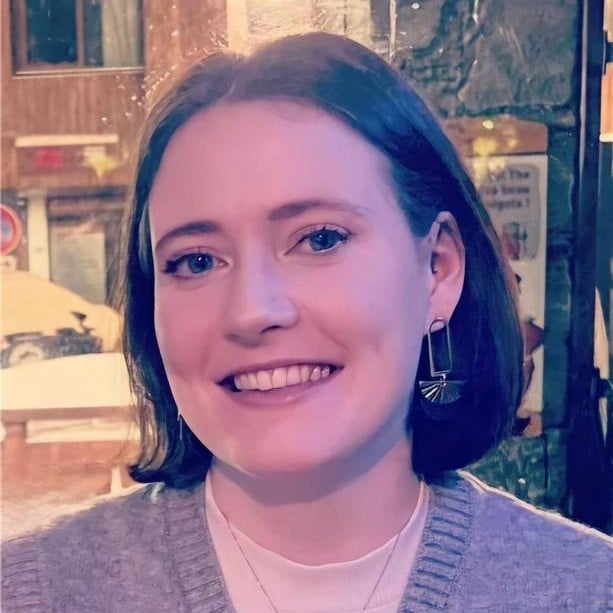
Ms. Mary O'Sullivan |
Ms. Mary O'Sullivan obtained her B.Sc. in genetics in 2019 and her M.Sc. in molecular cell biology with bio-innovation in 2020 from University College Cork in Ireland. She started her career in MDPI in January 2023 working for the Editorial Department for the journal Cancers as an Assistant Editor and, following this, a Section Managing Editor. Currently, Ms. O'Sullivan is a Journal Relations Specialist based in the UK office in Manchester. |
 Ms. Rebekah Paget |
Ms. Rebekah Paget graduated with an MChem in chemistry from Newcastle University, UK. She has worked at MDPI Manchester since 2021 and is currently a Journal Relations Specialist for the MDPI open access journals Materials, Alloys, and Optics. |
6 November 2024
Meet Us at the Future Technologies Symposium from SENDAI, 25–28 November 2024, Sendai, Japan

The Future Technologies symposium will be held from 25 to 28 November 2024 at the Sendai International Centre Exhibition Building. This symposium is the largest symposium in Japan in the field of sensors and micromachine technology and provides a forum for the exchange of information and discussion of research results and ideas among research groups across academic and association boundaries. MDPI will be attending as an exhibitor, and we welcome researchers from different backgrounds to visit and share their latest ideas with us.
The following MDPI journals will be represented at the symposium:
- Sensors;
- Micromachines;
- Biosensors;
- Actuators;
- Applied Sciences;
- Eng;
- JETA;
- Electronics.
If you are planning to attend the above conference, we encourage you to visit our booth and speak to our representatives. We are eager to meet you in person and assist you with any queries that you may have. For more information about the conference, please visit the official website at https://sensorsymposium.org/.
5 November 2024
MDPI INSIGHTS: The CEO's Letter #17 - OA Week, Basel Open Day, Beijing Graphene Forum

Welcome to the MDPI Insights: The CEO's Letter.
In these monthly letters, I will showcase two key aspects of our work at MDPI: our commitment to empowering researchers and our determination to facilitating open scientific exchange.
Opening Thoughts

Open Access Week: Forging the Future of Open Access through Global Reach and Collaboration
From 21 to 27 October, we celebrated International Open Access Week (OAW), highlighting the importance of making research accessible to everyone. This campaign reinforced our commitment to advancing open access (OA) and showcased how we are helping research communities worldwide adopt OA as their standard.
“OA publishing is now a cornerstone of global research”
Throughout the week, we featured MDPI’s efforts to support quality open research through blog posts on topics such as how Research Integrity Promotes OA Practices, our Preprints.org platform, and supporting societies with different OA models. These initiatives capture our commitment to making research more inclusive and accessible to all.
OA publishing is now a cornerstone of global research, with more researchers choosing OA over traditional paywalled models, and embracing new, community-driven models.
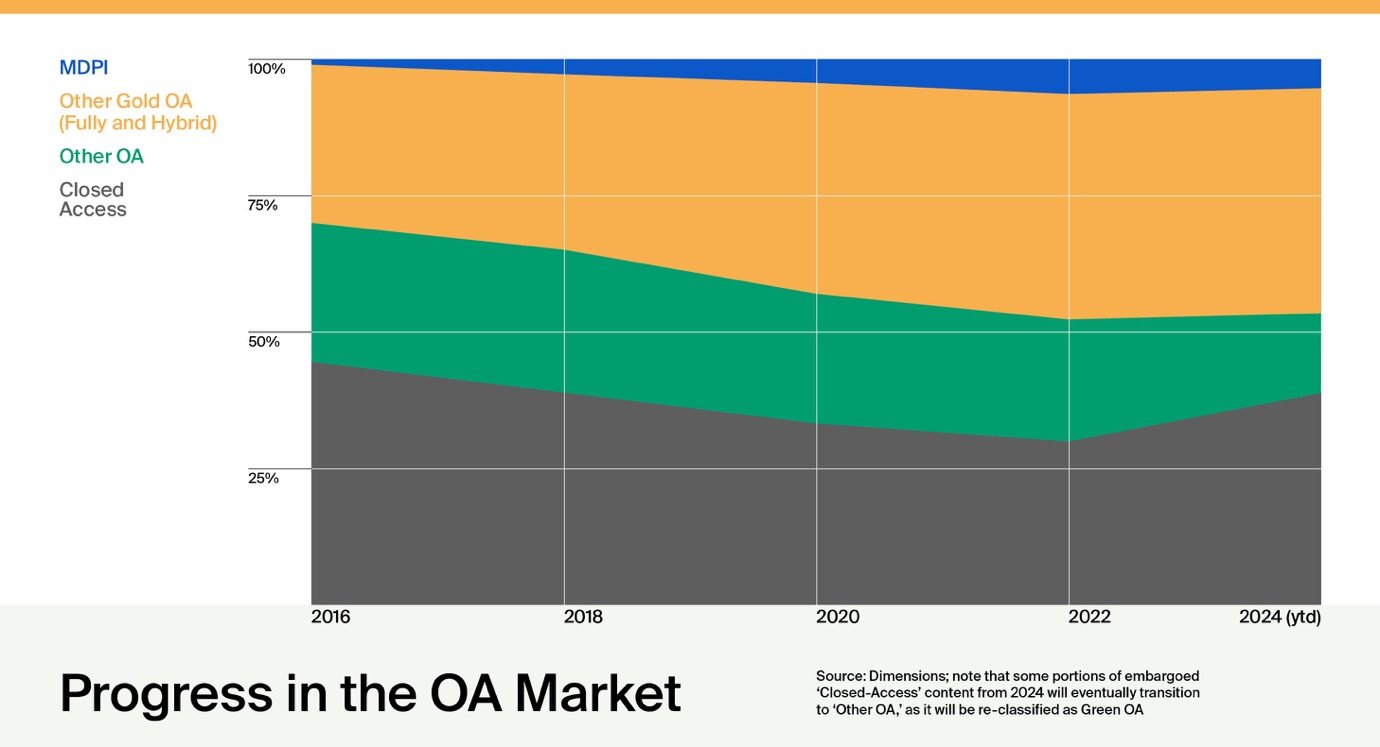
Benefits of Open Access and Open Research
- Accelerated Discoveries: OA speeds up scientific progress by allowing immediate access to findings, enabling researchers to build on each other’s work faster.
- Community-Led Innovation: Open research empowers communities to manage their own platforms, creating collaboration and shared knowledge.
- Increased Visibility: OA broadens the reach of your research, leading to greater recognition, collaboration, and impact.
- Cross-Disciplinary Connections: By removing financial and geographical barriers, OA unites diverse fields, sparking innovation across disciplines.

MDPI Singapore Celebrates Open Access Week
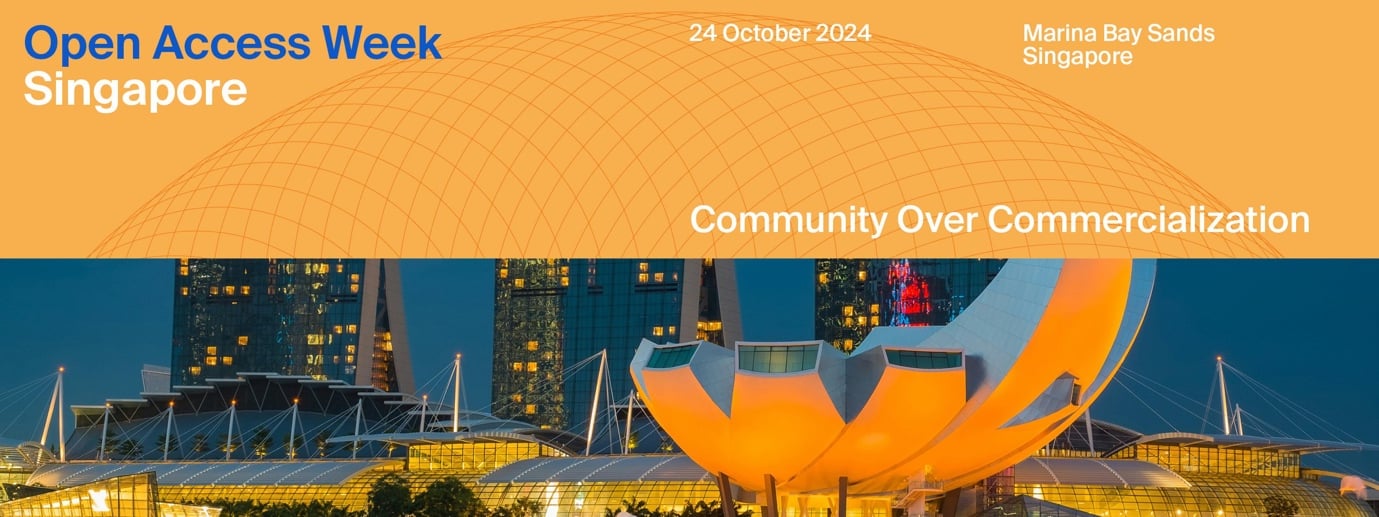
MDPI Singapore also hosted its first-ever OAW event at the Marina Bay Sands Convention Centre, bringing together academics, researchers, and students to discuss the future of open scholarship. Conversations focused on the potential of new publishing models, alternative funding strategies, and the importance of communicating research to wider audiences.
As OA evolves, MDPI remains a committed partner in advancing open science and creating a transparent, inclusive research environment. For a full recap of the week’s highlights and resources, visit our campaign page.

Impactful Research
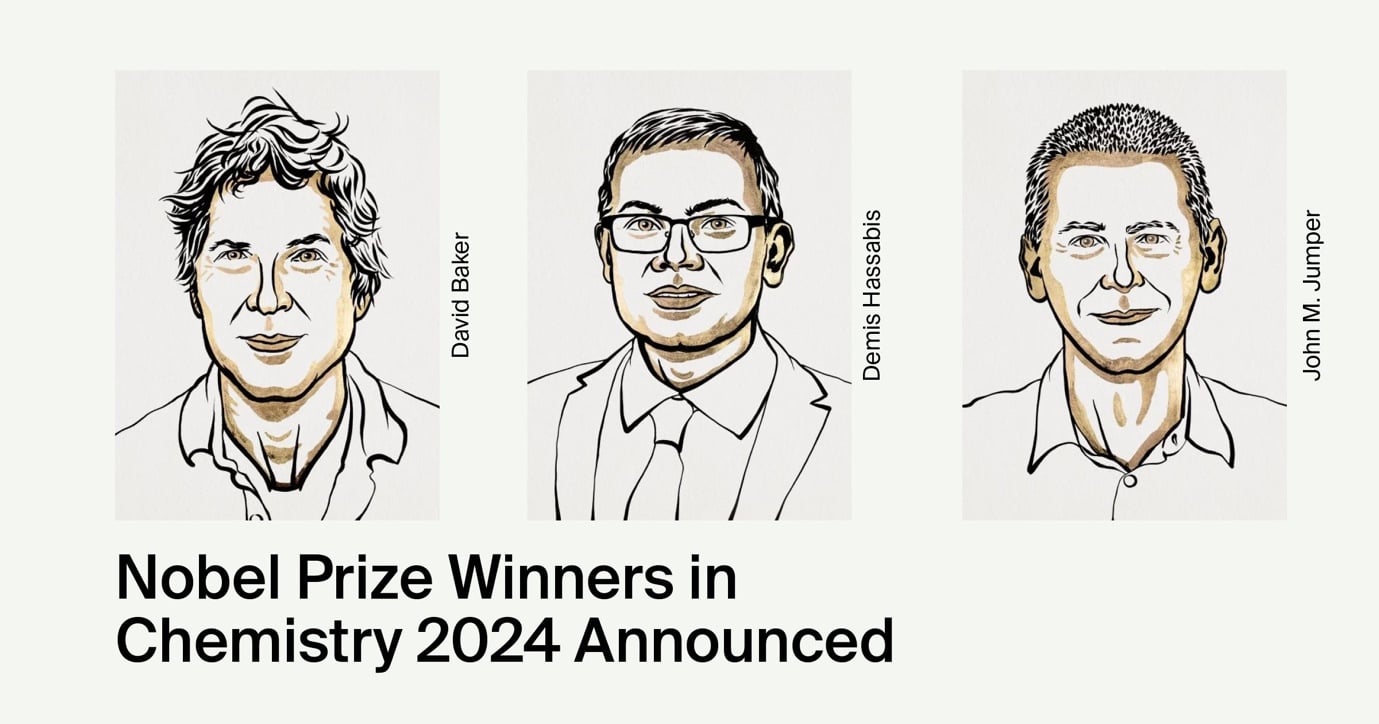
MDPI Connection to Nobel-Winning Protein Research
David Baker, an American biochemist, and Demis Hassabis and John M. Jumper, two scientists from Google DeepMind, have been awarded the 2024 Nobel Prize in Chemistry for their groundbreaking advancements in better understanding the structure of proteins, the molecular engines of life’s processes.
One half of the prize was awarded to Professor David Baker from the University of Washington for his development of revolutionary protein design software enabling the creation of novel proteins for vaccines, nanomaterials, and sensors. Prof. Baker co-authored a 2016 paper in MDPI’s Toxins journal on protein-based therapeutics.
Meanwhile, DeepMind’s Demis Hassabis and John M. Jumper received recognition for AlphaFold, the AI model that predicts protein structures from amino acid sequences, fulfilling a long-held scientific dream.
“We congratulate this year’s Nobel laureates for their groundbreaking contributions to the study of life”
Nobel Prize Laureates Entrust MDPI with Their Research
As at October 2024, 45 Nobel laureates had contributed to more than 115 articles across
35 MDPI journals. The privilege of hosting the research of such contributors, who significantly influence the open access movement, resonates deeply with our editorial teams.
We are proud to list the names of Pierre Agostini, Hiroshi Amano, Werner Arber, Aaron Ciechanover, Robert H. Grubbs, Oliver Hart, Gerard ‘t Hooft, Michael Houghton, Harald zur Hausen, Katalin Karikó, Jean-Marie Lehn, Gérard Mourou, Ferid Murad, Shuji Nakamura, William Nordhaus, Kostya S. Novoselov, Giorgio Parisi, Charles M. Rice, Alvin E. Roth, Donna Strickland, K. Barry Sharpless, George F. Smoot, Anne L’Huillier, Drew Weissman, Kurt Wüthrich, Ada Yonath, Tomas Lindahl, Thomas C. Südhof, Stanley B. Prusiner, Roger Kornberg, Robert F. Engle, Richard J. Roberts, Ōmura Satoshi, Kenneth J. Arrow, John B. Goodenough, Jennifer Doudna, Hamilton Othanel Smith, Eric R. Kandel, Carlo Rubbia, Bernard Feringa, Barry J. Marshall, Anthony J. Leggett, Andrew Victor Schally, and David Baker.
Notable MRNA Published in Cells
On 7 October 2024, the 2024 Nobel Prize in Physiology or Medicine was jointly awarded to Victor Ambros and Gary Ruvkun for the discovery of microRNA and its role in post-transcriptional gene regulation.
MicroRNAs are proving to be fundamentally important for how organisms develop and function. Some interesting papers about microRNA research are published in the MDPI journal Cells. I invite you browse through the notable papers related to microRNA research in Cells.
Inside MDPI
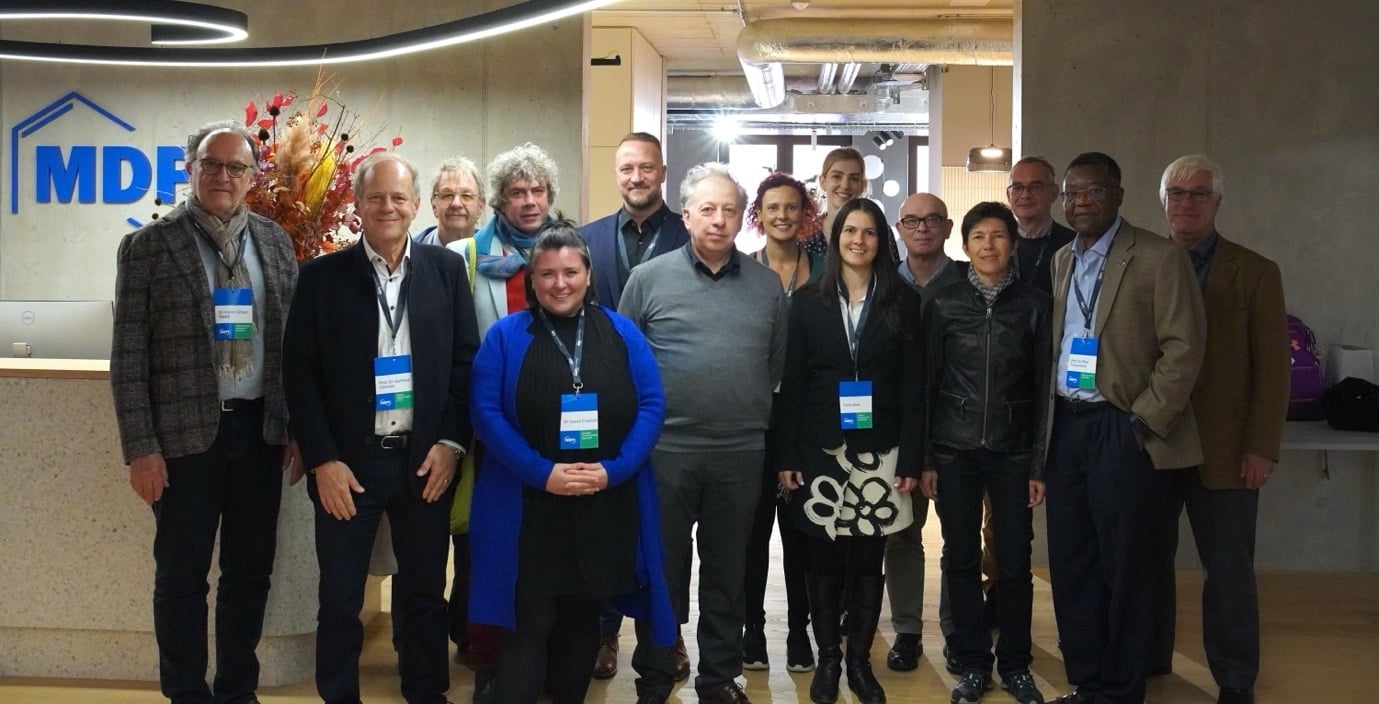
Basel Open Day
On 21 October, we held the Basel Open Day at our headquarters, welcoming a group of journal Editors-in-Chief (EiC) and Editorial Board Members (EBMs) for a full-day workshop. The event featured presentations and discussions on MDPI’s latest editorial updates, data integrity policies, society collaborations, and local market insights.
The following MDPI journals were represented during the visit: Physics, Journal of Personalized Medicine (JPM), Sci, Remote Sensing, Animals, Cells, Buildings, Histories, Sensors, and International Journal of Environmental Research and Public Health (IJERPH).
This was a great opportunity to showcase our new office space while gathering feedback from leading journal stakeholders. To get everyone on the same page, we took 60 minutes for round-table introductions, which helped set a collaborative tone and ground us in MDPI’s mission of disseminating open science.
“This was a great opportunity to gather feedback from leading journal stakeholders”
The general feedback from the day highlighted positive developments around our editorial and ethics policies, as well as areas for improvement, including flexibility regarding reviewer deadlines. There was a genuine appreciation and push for our ongoing efforts to share more about MDPI, including company updates and promoting high-quality research through our blog, announcements, and social media channels, which we have been growing and expanding.
Our Basel Open Day was a positive experience, bringing together key journal stakeholders and gathering insights to guide MDPI’s continued engagement with the academic community. We look forward to hosting future events of this kind and welcoming more scholars to our headquarters in Basel, Switzerland.
Coming Together for Science

ncRNA 2024 Conference in Basel
I am pleased to share that we held Non-coding RNA World 2024: Exploring Mechanisms, Designing Medicines (ICM 2024) in Basel, Switzerland this past 7–9 October.
The three-day event attracted just over 100 attendees, including two Chairs, 10 invited speakers and two keynotes from Prof. Mauro Giacca and Prof. Ling-Ling Chen. Of the presentations on site, there were 35 posters and 44 oral presentations.
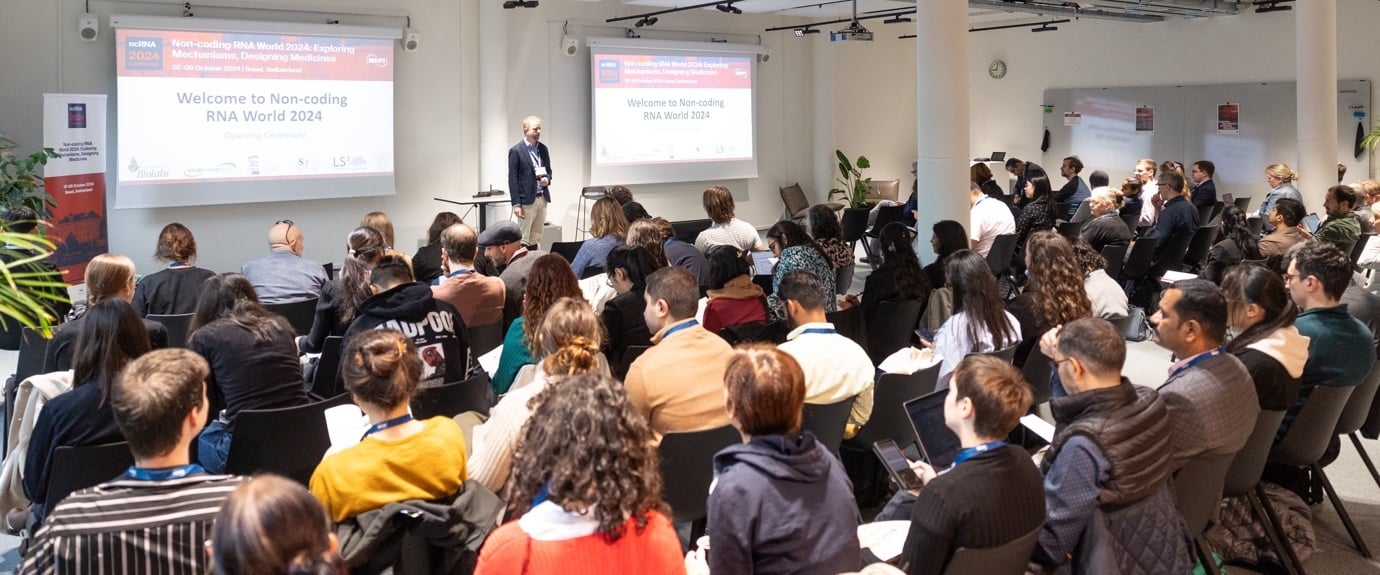
The overall feedback was positive, with people enjoying the intimate event and the unique activities offered, including a guided tour around Basel’s Old Town (a must-see for anyone visiting the city) and a memorable conference dinner.

It was cool to see the winners of the 2024 Nobel Prize in Physiology or Medicine announced during the conference days. This was exciting for attendees, as the winners discovered a new class of RNA molecules (miRNAs). As one invited speaker put it, “It's exciting to be among fellows when something that important for the field is announced.”
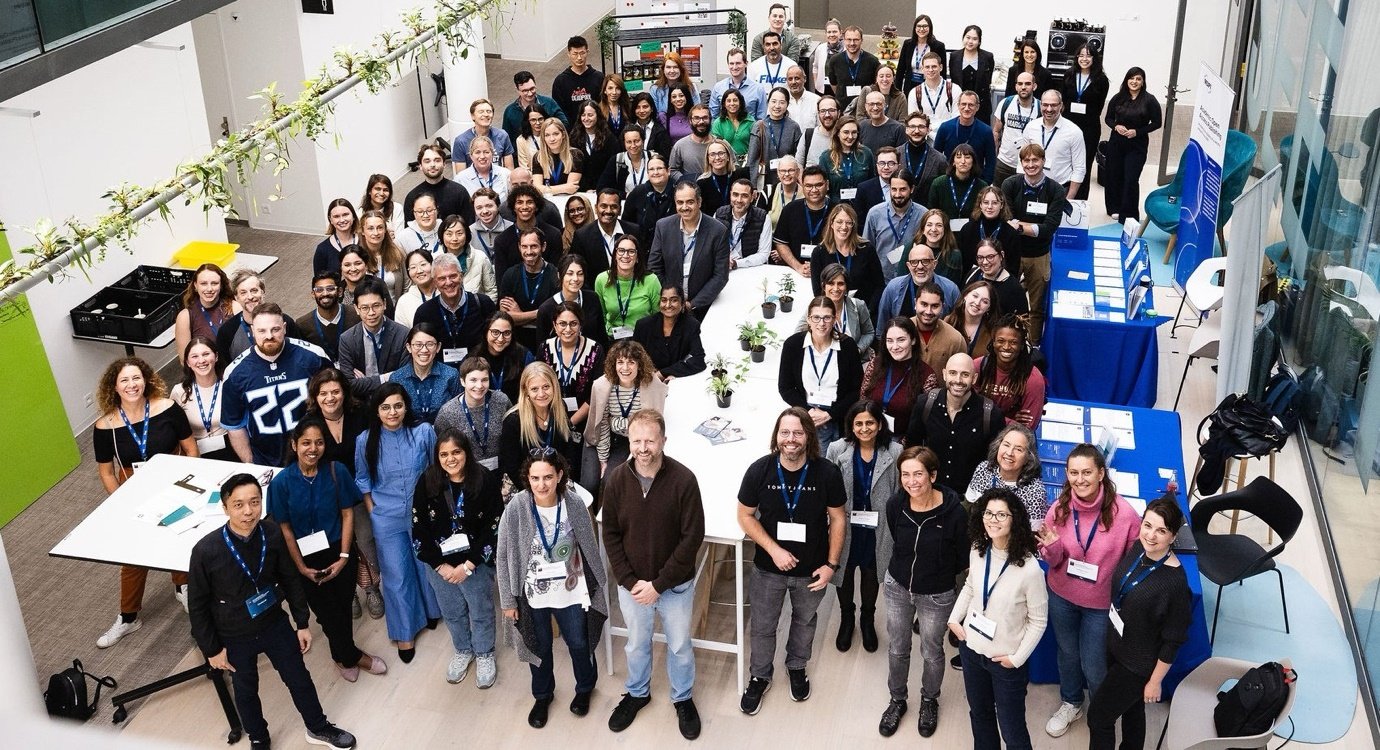
“It's exciting to be among fellows when something that important for the field is announced”
Every attendee receives a conference survey, and I’m always pleased to see a high percentage of ‘Very Satisfied’ responses when asked about ‘treatment from conference personnel’. Kudos to our conference team for meeting our attendees’ needs. These events are a great opportunity for us to reach new audiences, as 92% of the respondents had never been to an MDPI conference, so I am thrilled to see us connecting with a new demographic of your researchers in the RNA field.
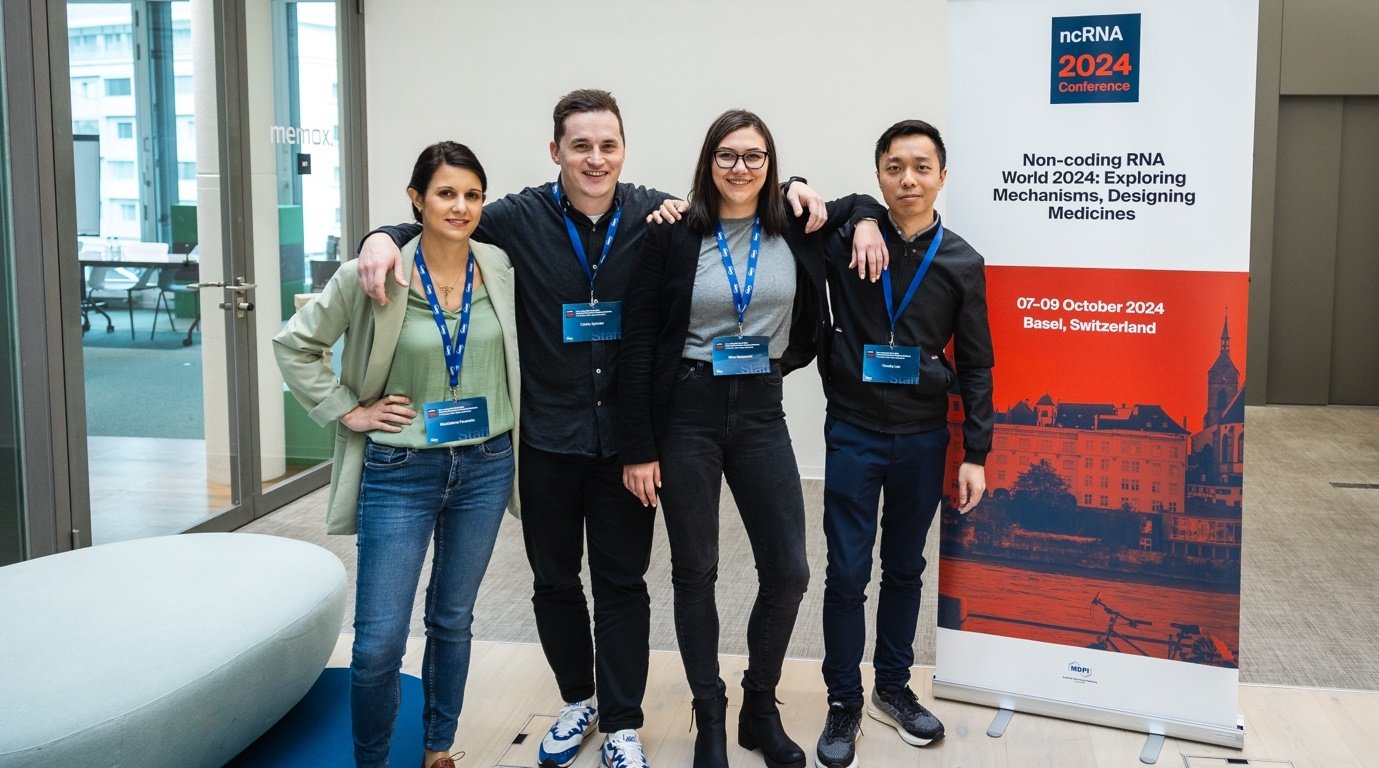
A special thank-you to our partnering societies The Epigenetics Society, The French Society of Genetics, LS2 / USGEB (Union of Swiss Societies for Experimental Biology), and The RNA Biology Group, as well as to our sponsors New England Biolabs and Arraystar for their support of the ncRNA 2024 conference. I am also pleased to report that we presented two awards, including the Best Presentation Award and two Best Poster Award, recognizing the contributions of our participants.
Upcoming In-Person Event
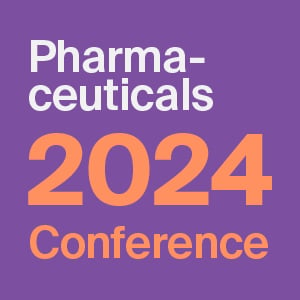
27–29 November 2024
Pharmaceuticals 2024 – Recent Advances in Pharmaceutical Sciences Towards a Healthy Life
Location: Barcelona, Spain
The discovery of new molecules, their properties, and actions to enhance human health and quality of life.
Find more upcoming MDPI events here.
Closing Thoughts
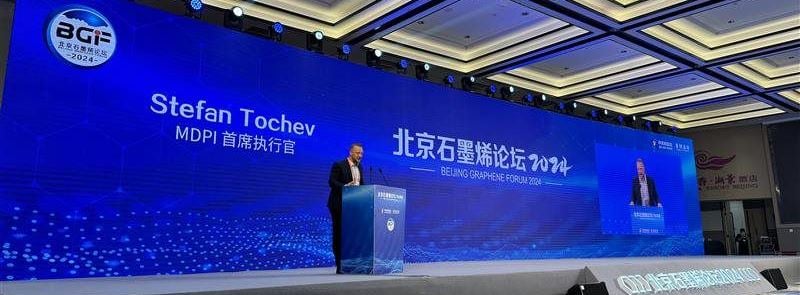
Beijing Graphene Forum 2024
I am pleased to share that we had a successful time at the Beijing Graphene Forum 2024, which drew around 1,000 attendees, including Konstantin Novoselov (2015 Nobel Prize in Physics) and other high-profile scholars in materials science and chemistry. It was a great opportunity to present MDPI on the big stage, with university presidents from institutions such as Peking University also in attendance.
I had the honour of awarding Prof. Zhongfan Liu, Chairman of the Chemical Science Committee, with a medal and presenting certificates to the members of the Chemical Science Committee; this is an important initiative to help expand MDPI’s journals and influence in China. These are highly respected scholars, and we enjoyed connecting with them over lunch as well.
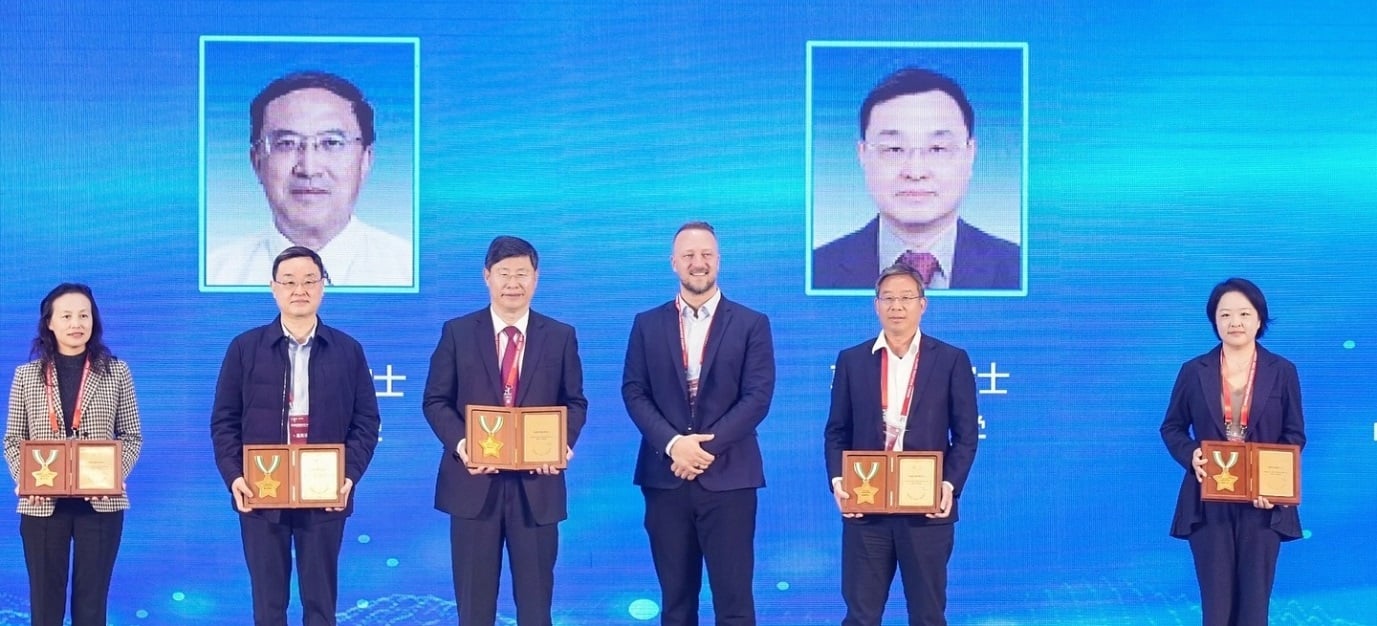
“This is an important initiative to help expand MDPI’s journals and influence in China”
I also had the chance to speak about MDPI and open access, giving a five-minute speech during the opening ceremony and a 20-minute presentation at the close. MDPI hosted a sub-forum where both academic scholars and MDPI members shared insights, and we engaged with attendees at our MDPI booth.
This was a great opportunity to spotlight MDPI as the main publishing partner for the event, and I was proud to represent us on stage. We also met with scholars to discuss topics such as their publishing needs and institutional policies, open access, impact journals, and IOAP.
Chief Executive Officer
MDPI AG
22 October 2024
Join Us at “MDPI Open Access—Sensors and Remote Sensing Author Training Program”, 5 November 2024, Barcelona, Spain
MDPI is collaborating with the University of Barcelona, Spain, to hold an author training session comprising valuable insights about MDPI and open access publishing. MDPI has invited Academic Editors from the journals Sensors (ISSN: 1424-8220) and Remote Sensing (ISSN: 2072-4292) to inform authors about how to explore ongoing Special Issues and topics and discover opportunities tailored to specific author groups.
Date: 5 November 2024
Time: 11:00 a.m.–1:00 p.m.
Venue: “Eduard Fontserè” Graduate Room in the School of Physics and Chemistry, University of Barcelona, Spain
Schedule:
|
Time |
Program |
Speaker |
|
11:00 a.m.–11:40 a.m. |
MDPI and Sensors & Remote Sensing Introduction, Benefits of Open Access |
Dr. Jesús García Cano |
|
11:40 a.m.–12:20 p.m. |
Scientific Writing Skills |
Dr. Vesna Marinkovic |
MDPI Speakers:
|
Speaker |
Biography |

Dr. Jesús García Cano obtained a bachelor’s degree in biochemistry at the Autonomous University of Madrid, Spain, a master’s degree in molecular biology at the Autonomous University of Barcelona, and a Ph.D. in biomedicine at the University of Castilla-La Mancha, Spain. After two postdoctoral positions (at the University of the Basque Country, Spain and University of Barcelona, Spain), Dr. García Cano joined MDPI in February 2020 as an Assistant Editor and Section Managing Editor of the journals IJMS and Viruses. Currently, he is the Office Manager of the Barcelona Office and is a Journal Relations Specialist for EJIHPE.
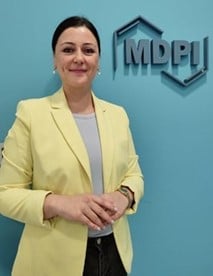
Dr. Vesna Marinković completed her bachelor’s and master’s degrees in biochemistry at the University of Novi Sad, Serbia. She completed her Ph.D. in chemical engineering at the same university in 2020. She joined MDPI in May 2020, working as an Assistant Editor and Section Managing Editor for Sensors. In 2022, she was appointed Chief Section Managing Editor for the “Sensor Materials” Section in Sensors. She also works as a Journal Relations Specialist for Sensors, Automation, and Actuators.
16 October 2024
MDPI's Newly Launched Journals in September 2024
Five new journals covering a diverse range of subjects launched their inaugural issue in September 2024. Like other journals in MDPI’s portfolio, these journals are dedicated to sharing the latest research through open access, reflecting our commitment to making knowledge accessible to all.
We extend our sincere gratitude to the Editorial Board Members for their dedication to the launch and development of our new journals. Each journal will ensure its high-quality output via excellent editorial and rigorous peer-review processes so that the published articles achieve significant impact and broad visibility.
We invite you to explore and learn more about these new journals below.
| Journal | Founding Editor-in-Chief | Journal Topics (Selected) |
| Prof. Dr. Nejat Düzgüneş, University of the Pacific, USA | Editorial | view inaugural issue | biological therapy and stem-cell therapy; drug therapy; chemotherapy; radiation and other nonsurgical therapeutic strategies | view journal scope | submit an article | |
| Prof. Dr. Magda Tsolaki, Greek Federation of Alzheimer’s Disease, Greece; Aristotle University of Thessaloniki, Greece | Editorial | view inaugural issue | surgical/procedural complications; complications; perioperative adverse events; postoperative adverse events | view journal scope | submit an article | |
| Prof. Dr. Steven R. Fassnacht, Colorado State University, USA; Cooperative Institute for Research in the Atmosphere, USA | Editorial | view inaugural issue | ice as a mineral; atmospheric ice; sea ice; freshwater ice; ice sheets; ice caps and ice shelves | view journal scope | submit an article | |
| Dr. Francisco Epelde, Hospital Universitari Parc Tauli, Spain; University Autonoma of Barcelona, Spain | Editorial | view inaugural issue | hospital management; hospital facilities; hospital services; hospital risk management; health law | view journal scope | submit an article | |
| Prof. Dr. Nicola Ferri, University of Padova, Italy | Editorial | view inaugural issue | lipids in cells and whole organisms; lipid structure and function; lipid products and processes; dietary lipids and nutrition | view journal scope | submit an article |
We wish to thank everyone who has supported the development of open access publishing. You are welcome to send an application here or contact the New Journal Committee ([email protected]) if you would like to create more new journals.
14 October 2024
Sensors Webinar | State-of-the-Art Photoplethysmography and Applications, Held on 24 September 2024
This September, Sensors (ISSN: 1424-8220) hosted its 21st webinar, titled “State-of-the-Art Photoplethysmography and Applications”, in collaboration with Prof. Dr. John Allen from the University of Coventry.
The webinar was successful, with over 300 participants from 36 countries worldwide attending.
Prof. Dr. John Allen opened the webinar with his presentation “Opportunities for Photoplethysmography in Cardiovascular Assessment”. The speakers included the following:
- Dr. Peter Charlton from the University of Cambridge with his presentation “Equitable Photoplethysmography in Wearables: Accurate Data for All”;
- Dr. Panicos Kyriacou from the University of London discussing “Photoplethysmography in Cardiovascular and Neurocritical Care Applications”;
- Dr. Moe Elgendi from Khalifa University presenting “State of the Art of PPG Signal Analysis”.
We thank all of our speakers and participants for making this webinar a success. Your contributions fostered a wonderful atmosphere for learning and collaboration. For those who missed the event, the recording is available at the following link:
9 October 2024
Meet Us at the ISPRS Technical Commission IV Symposium 2024, 22–25 October 2024, Fremantle, Perth, Australia

Conference: ISPRS Technical Commission IV Symposium 2024
Date: 22–25 October 2024
Location: Fremantle, Perth, Australia
MDPI will attend the ISPRS Technical Commission IV Symposium 2024 which will be held from 22 to 25 October 2024 in Perth, Australia. The ISPRS Technical Commission IV Symposium 2024 is jointly organized by UPINLBS2024, the Geospatial Council of Australia (GCA), and FOSS4G Perth. The ISPRS Technical Commission IV Symposium provides a forum where researchers and practitioners can come together and share their work and ideas, discuss opportunities and challenges, exchange developments or software tools and discuss future directions. The symposium is also a great place for networking and establishing links between academia, governments and business, and young and emerging professionals in the geospatial sciences.
The following MDPI journals will be represented:
- IJGI;
- Remote Sensing;
- Atmosphere;
- Geographies;
- Data;
- Drones;
- Applied Sciences;
- Technologies;
- Sensors;
- Geomatics;
- Earth.
If you plan on attending this conference, please feel free to stop by our booth and start a conversation with us. Our delegates look forward to meeting you in person and answering any questions that you may have. For more information about the conference, please visit https://www.isprs.org/tc4-symposium2024/index.html.
4 October 2024
MDPI INSIGHTS: The CEO's Letter #16 - UNGA79 Science Summit, OASPA, Peer Review Week

Welcome to the MDPI Insights: The CEO's Letter.
In these monthly letters, I will showcase two key aspects of our work at MDPI: our commitment to empowering researchers and our determination to facilitating open scientific exchange.
Opening Thoughts

MDPI Joins the Science Summit at UNGA79 (23–27 September 2024, New York)
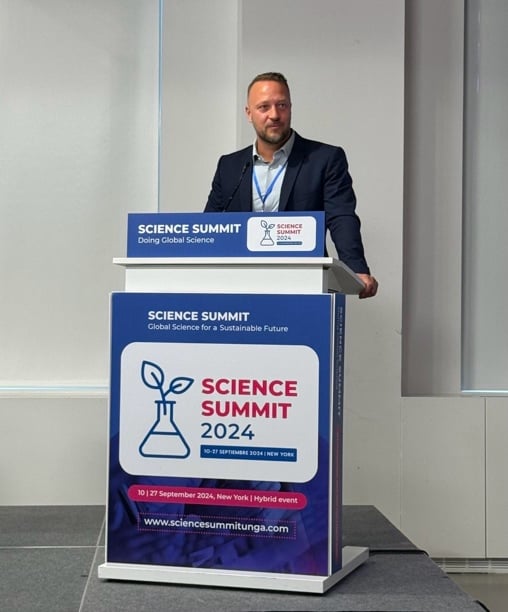
On Friday 27 September, I had the privilege of giving the opening talk at the “Youth at the Science Summit” panel during the Science Summit conference, held in New York at the 79th session of the United Nations General Assembly (UNGA). Together, we discussed the future of science, publishing, innovation, and sustainable development.
It was a great opportunity to learn from our young leaders, whose voices must be included in the conversation as science shapes the future of artificial intelligence, climate mitigation, healthcare, technology, and more. This was also a powerful reminder of how essential global collaboration is in solving the major challenges we face. I left inspired by the dedication of these young researchers to making the world a better place!
Today’s youth are not just the leaders of tomorrow – they are already leading the change today.
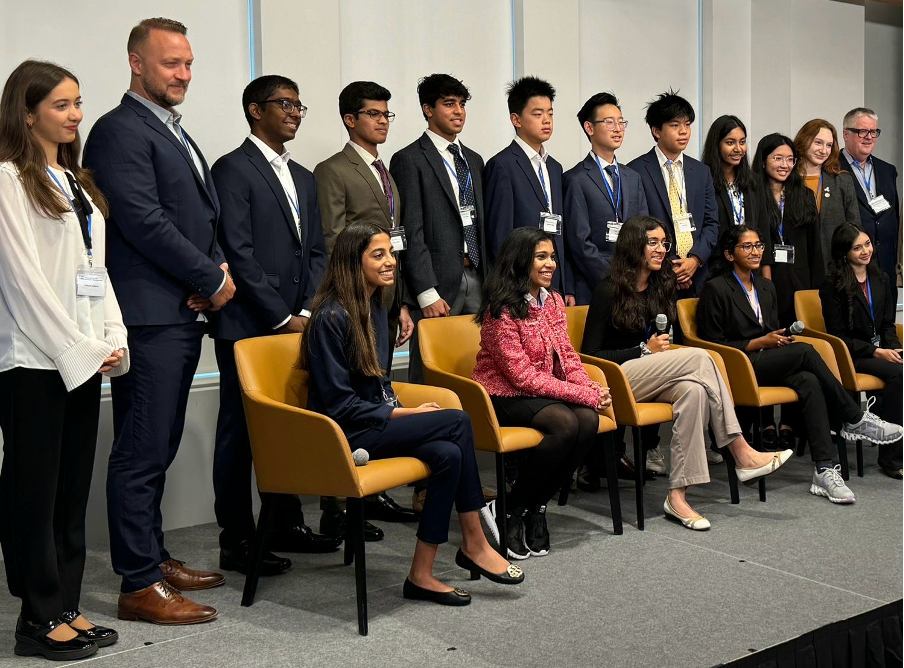
Stefan Tochev (second from left) at the UNGA Science Summit 2024: “A great opportunity to learn from our young leaders.”
MDPI Supports the Future Generation of Scientists
This aligns with MDPI’s mission to support the next generation of scientists and early-career researchers by recognizing their achievements through our various MDPI awards, including the Young Investigator Awards, Best PhD Thesis Awards, Travel Awards, and more.
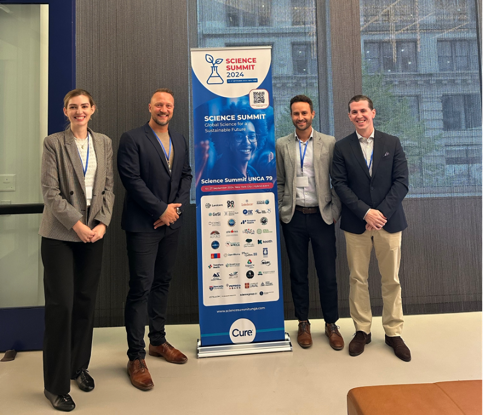
Our presence at this global event showed our commitment to advancing Open Science as a key driver for sustainable development. As a leading Open Access (OA) publisher, MDPI’s role at the summit was to emphasize the critical importance of democratizing scientific knowledge, making it accessible to all, and promoting global collaboration.
Through OA publishing, we aim to address pressing global challenges such as climate change, public health, and inequality, in line with the United Nations Sustainable Development Goals (SDGs).
“We aim to address pressing global challenges”
MDPI and the SDGs
In 2020, the SDG Publishers Compact was launched to accelerate implementation of the SDGs by promoting content that informs, develops, and inspires action. MDPI joined this initiative in 2021 and subsequently launched the MDPI SDG Hub in 2022, offering free access to recent research within the scope of each of the 17 SDGs.
During the summit, we highlighted the connection between Open Science and the SDG Publishers Compact, supporting the core objective to “Leave No One Behind” (LNOB). The transformative promise of the SDGs relies heavily on the Open Access model, which serves as a fundamental enabler of Open Science. We advocate for the wider adoption of Open Science practices in order to achieve the SDGs by 2030.
Impactful Research
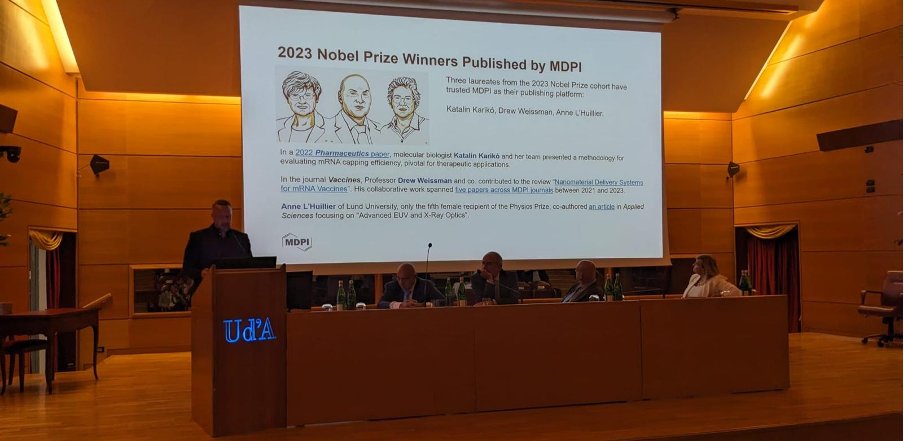
Presenting at the 1st International Conference of Environmental Medicine
In September, MDPI and our journals IJERPH and Diseases sponsored and participated in the 1st International Conference of Environmental Medicine: Environmental Threats to Human Health: From Genetics to Epigenetics, held in Chieti, Italy.
The conference was organized in collaboration with various societies, including the Italian Society of Environmental Medicine (SIMA), one of more than 160 societies partnering MDPI journals.
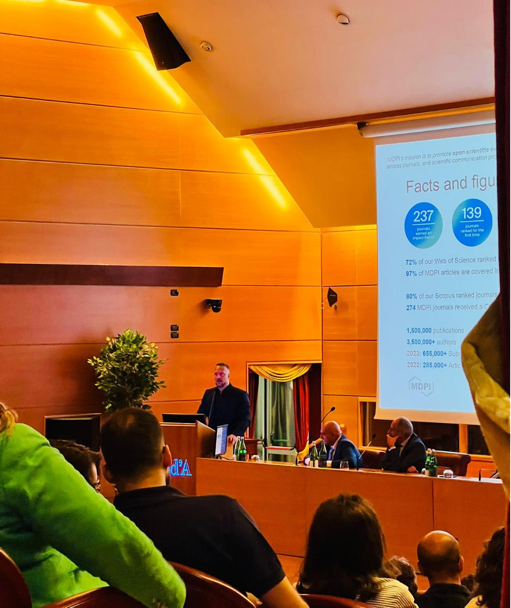
The conference brought together influential figures from the Italian scholarly community, such as Antonio Felice Uricchio (President of the National Agency for University Research Assessment [ANVUR]), Alessandro Miani (President of SIMA), and Liborio Stuppia (Director of ‘Gabriele d’Annunzio’ University of Chieti-Pescara), among others.
MDPI was the sole publishing sponsor of the conference, at which I had the opportunity to present on behalf of the company. I provided an overview of MDPI, covering key facts and figures, the peer-review process, our strong collaboration with the Italian market, and insights into Nobel Prize winners who have published with MDPI, ahead of Sir Richard Roberts’ Nobel lecture.
“As at September 2024, 44 Nobel laureates have contributed to over 115 articles across 35 MDPI journals”
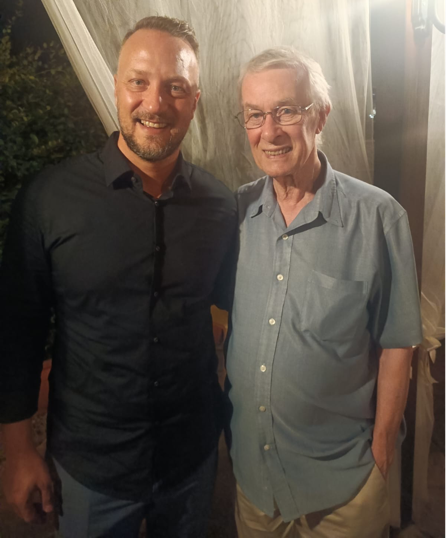
The keynote speaker at the event was Sir Richard Roberts, Nobel Laureate and 1993 Nobel Prize winner in Medicine, recognized for his discovery of split genes.
Nobel Laureates’ Contributions to MDPI
As at September 2024, 44 Nobel laureates have contributed to over 115 articles across 35 MDPI journals. I’ll share more details on this in the October newsletter.
Hosting such prominent figures in their respective fields, who play a significant role in advancing the OA movement, of which we are leaders in, resonates deeply with our editorial teams.
Sponsoring and supporting academic conferences is something we do on a large scale, and it continues to grow. Attending and speaking about MDPI shows our commitment by taking the time to connect with the scholarly community in person.
MDPI’s Presence in Italy
Italy ranks third globally in total MDPI publications, with nearly 130,000 contributions. We collaborate with about 12,000 Editorial Board Members in Italy, over 6,100 of whom have an H-index of more than 25.
We have 83 Editors-in-Chief and 209 Section Editors-in-Chief from Italy. We also support 20 Italian universities through our Institutional Open Access Program (IOAP) agreements with major institutions such as Sapienza University of Rome, the University of Milan, and the University of Pisa, among others.
Inside MDPI

Celebrating Peer Review Week, 23–27 September 2024
As we conclude another productive month at MDPI, I am pleased to highlight our participation in this year’s Peer Review Week (PRW), which took place from 23–27 September 2024. This global, community-driven celebration underscores the vital importance of peer review in maintaining the integrity and reliability of academic work. PRW provide a platform for institutions, publishers, and scholars to come together and reflect on the processes that uphold the quality of scholarly communication.
“We remain committed to enhancing the peer review process”
The theme for PRW 2024 was ‘Innovation and Technology in Peer Review.’ At MDPI, we were proud to contribute through various online and in-person events, including webinars from Europe, Asia-Pacific, and a roundtable discussion on innovation and technology in peer review. These events offer an opportunity to explore new tools and technologies that are shaping the future of peer review, particularly the integration of AI. As a company, we remain committed to enhancing the peer review process with innovative solutions while preserving the essential human expertise that makes it effective.
Peer Review Innovation and Technology at MDPI
Our efforts to improve peer review extend beyond the activities of this week. We also released a blog article discussing New Tools for Advancing Research Integrity and Peer Review, where we highlight two tools that MDPI has developed to support research integrity: Eureka – Reviewer Recommender and Online Proofreader. We are continually refining SuSy, our in-house submission system, to provide a seamless experience for authors and reviewers alike.
Listening to MDPI’s Authors and Reviewers
We highly value the time of our reviewers, and so do the authors who contribute to our journals. Our editorial process is bolstered by a network of dedicated reviewers, a team of over 6,000 diligent, well-trained staff members, and an in-house article submission platform designed to ensure efficient processes.
We make it a point to continually improve the experiences of both our authors and our reviewers throughout the entire editorial process, from submission to publication. This is why we regularly ask for feedback by conducting surveys. Here is what some of our respondents recently had to say about working with MDPI:
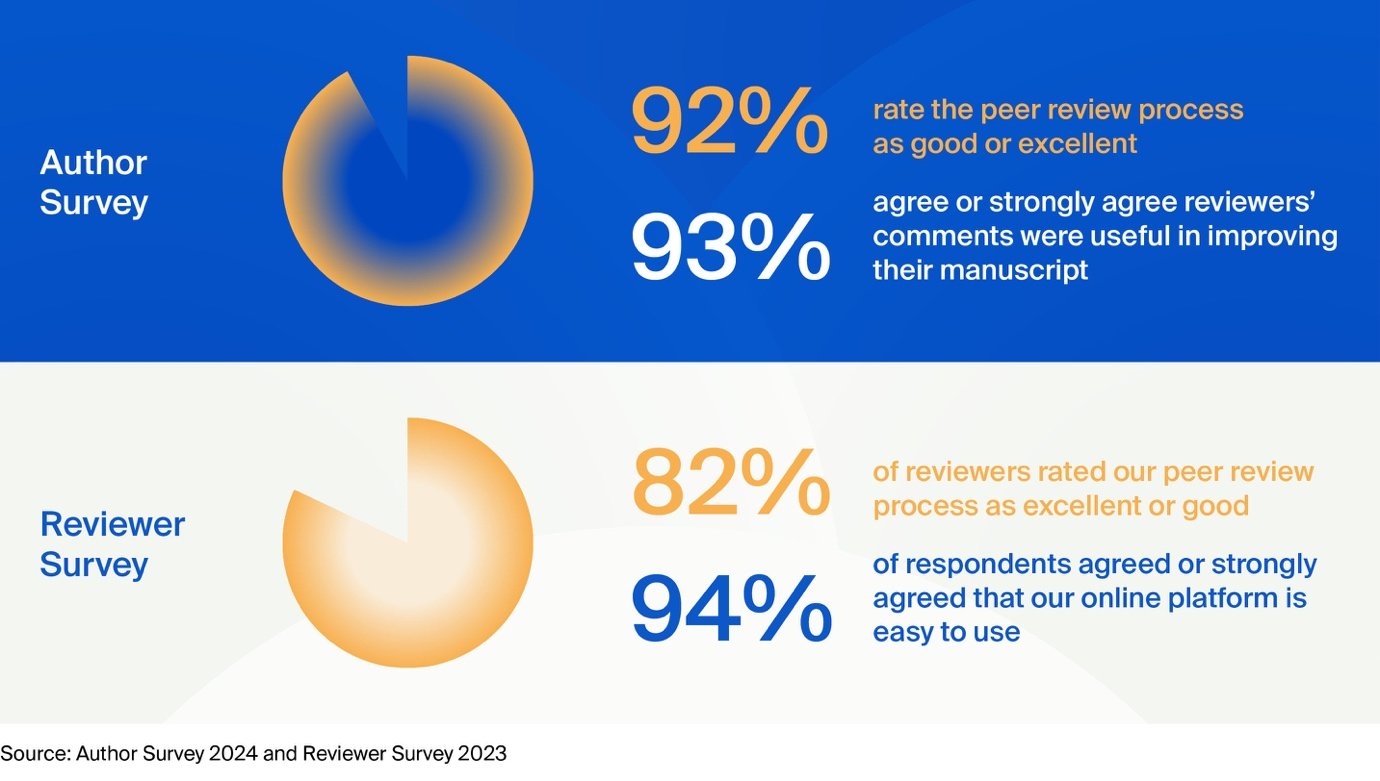
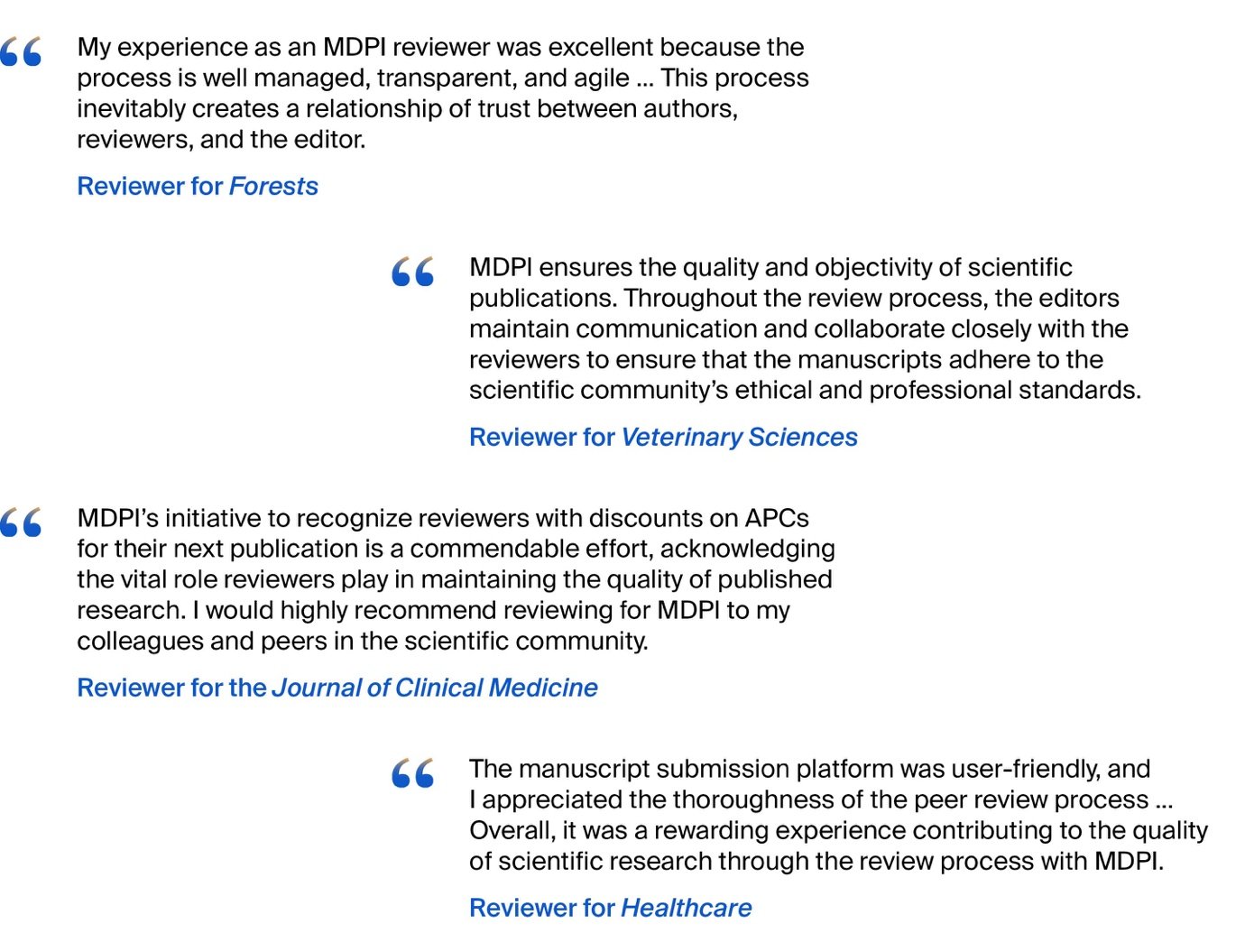
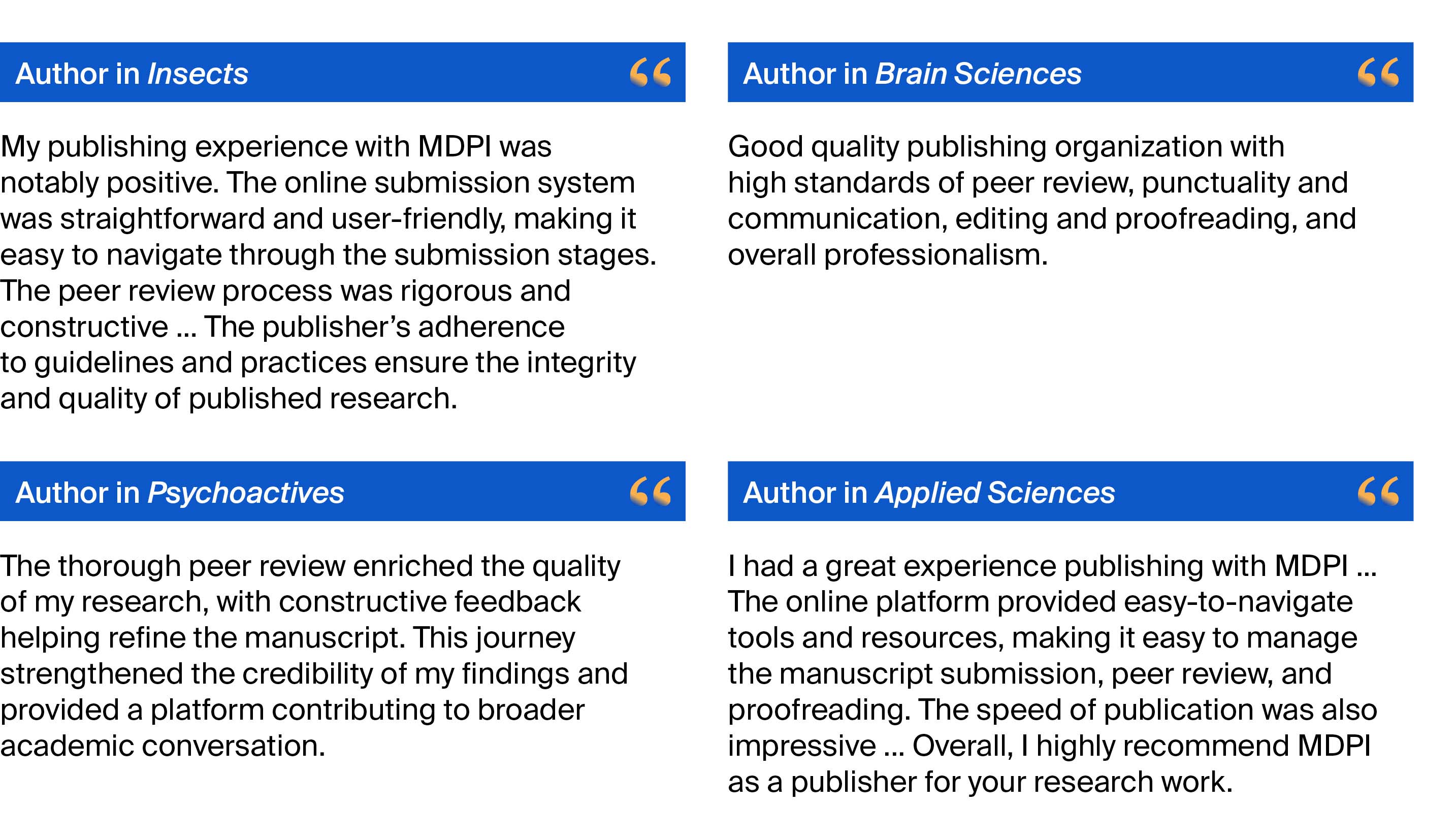
Coming Together for Science

ICM 2024 – Advances in Material Innovation
I am pleased to share that we held The 5th International Conference on Materials: Advances in Material Innovation (ICM 2024) in Basel, Switzerland this past 25–27 September.
This intimate event brought together leading scientists, researchers, and industry experts to exchange insights on recent advancements in materials characterization, processing, and manufacturing. Key focus areas included nanotechnology in material sciences and engineering, optical, electrical, and magnetic materials, soft, biological, and biomaterials, fibres, membranes, thin films, sensing materials, as well as materials and devices for energy and solar fuels. In addition, discussions featured the integration of AI and machine learning in materials research.
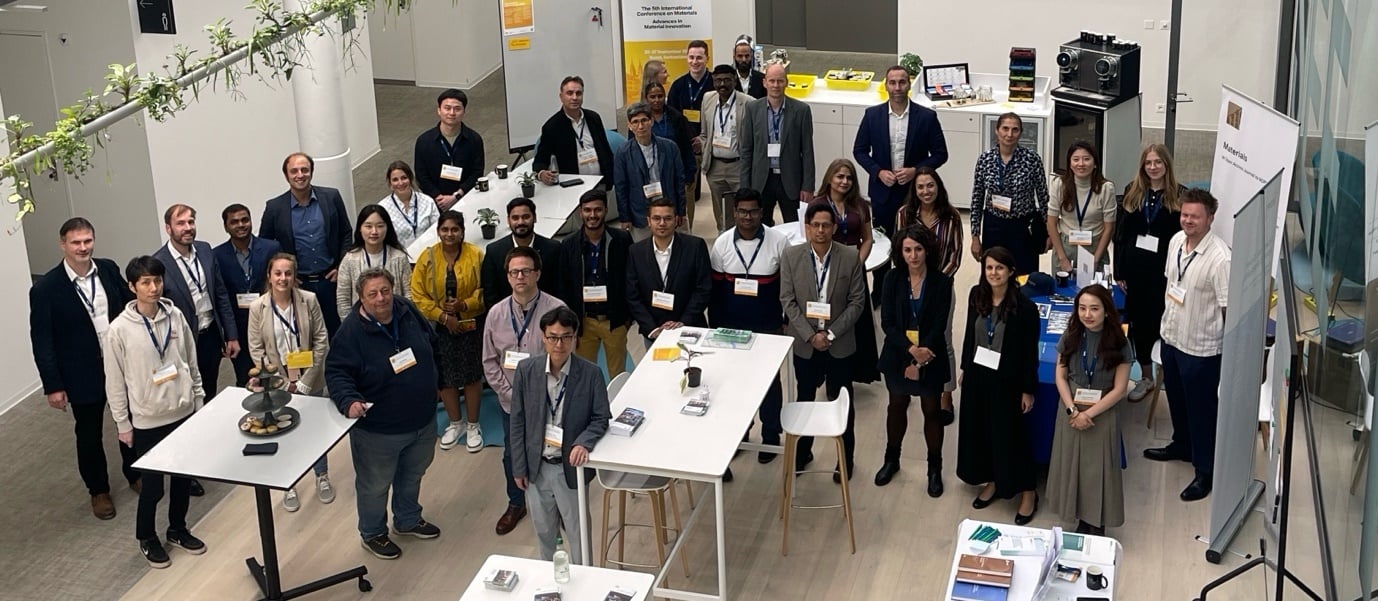
We received 90 abstract submissions. Over the course of the three-day event, 18 posters were displayed, and 34 talks were delivered, including three plenary speeches, seven invited talks, and 24 selected oral presentations.
A special thank-you to our partnering societies The Polish Membrane Society and The North American Thermal Analysis Society, as well as our sponsor, Nanomegas, for their support of the ICM conference. I am also pleased to share that we presented three awards, including the Best Presentation Award and two Best Poster Awards, recognizing the outstanding contributions of our participants.
Upcoming In-Person Event
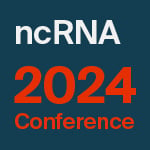
7–9 October 2024
Non-coding RNA World 2024: Exploring Mechanisms, Designing Medicines
Location: Basel, Switzerland
ncRNA 2024 will explore the latest advances in the field, covering topics from basic biology to medical and technological applications.
Find more upcoming MDPI events here.
Closing Thoughts
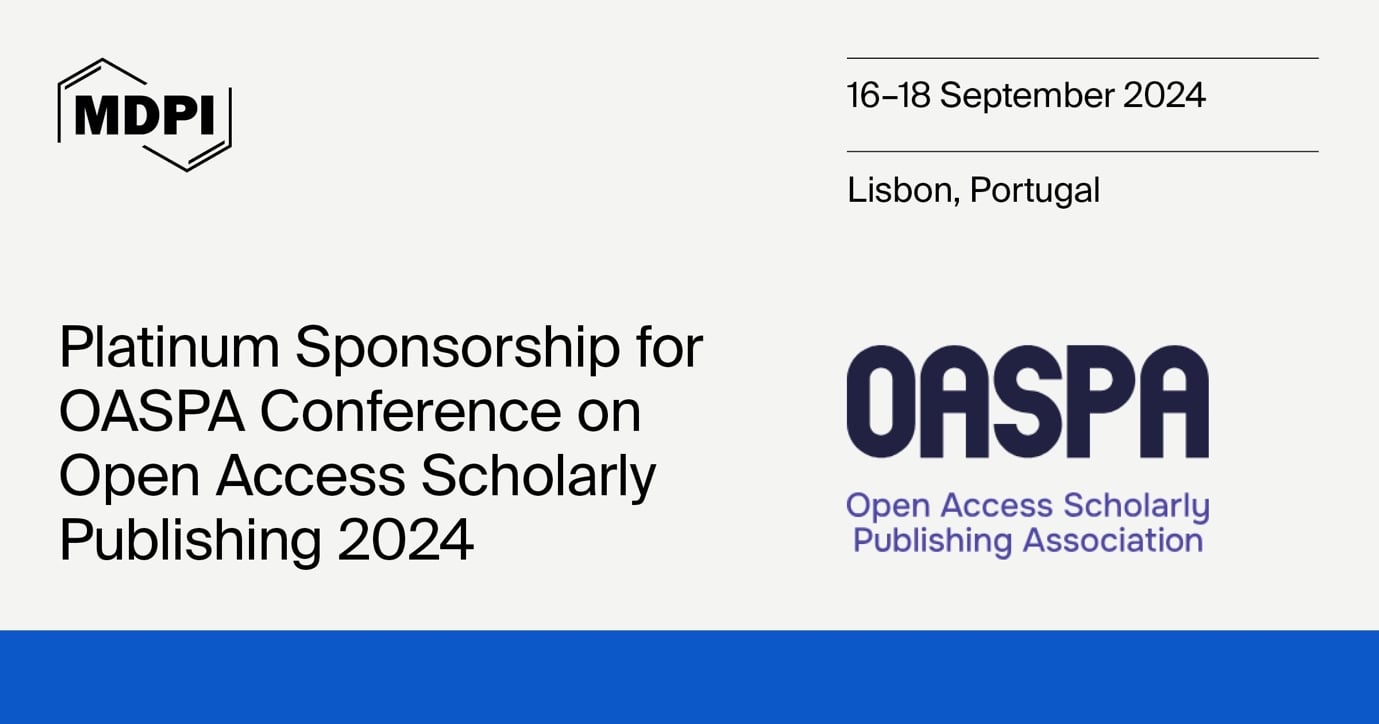
Reflections from OASPA 2024 Conference in Lisbon (16–18 September)
Amidst my September travels, I also had pleasure of attending the OASPA 2024 Conference in Lisbon from 16–18 September. It’s the first in-person Open Access Scholarly Publishing Association (OASPA) event in five years, and being in the sunny city of Lisbon made it even better! MDPI has long been a member of OASPA, and attending this conference gave us an opportunity to connect with other key members of the organization to see the latest developments in the OA movement.
“I believe that publishers have a lot to offer in terms of data and insights”
Main Themes from OASPA 2024
The main themes covered were equity and inclusivity, diamond OA, AI and openness, OA books, research integrity, and how OA can address broader societal challenges such as climate change. While it was great to see the latest developments in these areas, it was also clear that certain voices were missing, particularly those of major publishers. Although it’s not easy to incorporate every perspective, I believe that publishers, including MDPI, have a lot to offer in terms of data and insights. During the membership meeting, a few of us raised the point that large-scale publisher input could add value to these discussions.
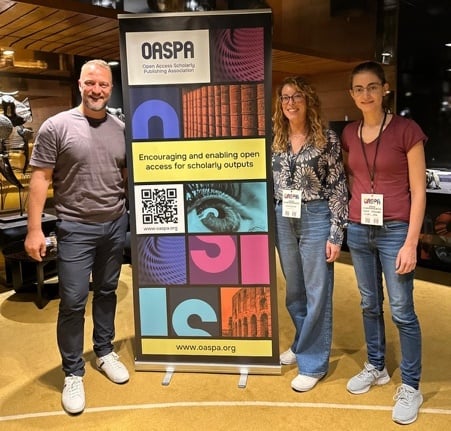
It’s important to participate in industry conferences such as OASPA in order to be part of the discussions and remain at the forefront of the OA movement.
It’s an opportunity to build meaningful relationships with organizations that share our commitment to OA.
While sponsorship is one way to show our support, it’s clear that being part of the conversation through participating in the OASPA groups and committee is what really makes a difference.
It took the last 20 years for more than 50% of the world's research to be published via open access. This provides a sobering reminder that flipping the remaining 50% will be a big challenge.
An important takeaway for me was that there is no "one-size-fits-all" solution for OA challenges: different regions and different stakeholders need different forms of support, whether it is infrastructure, funding, education, or policy, for example. I also enjoyed Rebecca Ross' presentation on how OA can drive action on climate. A few panellists shared the need for transparency in the peer-review process, advocating for open review reports, which is something we have been offering since 2014.
Speaking of openness, we are excited to celebrate Open Access Week 2024 with the scholarly community from 21–27 October. I look forward to sharing a recap of our activities in the next newsletter.
Chief Executive Officer
MDPI AG
30 September 2024
Meet Us at the Asia Communications and Photonics Conference (ACP), 2–5 November 2024, Beijing, China

MDPI will be attending the Asia Communications and Photonics Conference (ACP) held in Beijing from 2 to 5 November 2024. It is one of the largest conferences in the Asia-Pacific region on optical communication, photonics, and relevant technologies, which has been held annually since 2001.
State Key Lab of Information Photonics and Optical Communications (IPOC) was founded by Prof. Peida Ye in 1965. In 2011, the lab became the State Key Lab. In 2024, ACP and IPOC will be jointly held. IPOC has been held five times, and four of which were held jointly with ACP in 2013, 2015, 2020, and 2022, respectively.
The following MDPI journals will be represented at the conference:
- Photonics;
- Optics;
- Technologies;
- QuBS;
- Electronics;
- Applied Sciences;
- Telecom;
- Sensors;
- BDCC;
- Network.
If you are planning to attend the conference, please visit our booth. Our delegates look forward to meeting you in person and answering any questions that you may have. For more information about the conference, please visit the following website: https://www.acpconf.com.
29 September 2024
MDPI New Journal Proposal—Invitation to Shape the Future of Open Science Together

As a leader in open access publishing, MDPI is eager to explore new collaboration opportunities, including the launch of new journals and the transfer of existing ones. At present, MDPI publishes over 400 journals, more than 160 of which have established partnerships with academic organizations. Additionally, we publish 19 association journals.
In order to enhance exchange and cooperation with scientific researchers and share the results of open science, MDPI invites experts and scholars from various fields to submit proposals for new journal collaboration opportunities. If your proposal is approved, you could take on the role of Editor-in-Chief, Deputy Editor-in-Chief, or Editorial Board Member of the journal. This position allows you to manage the manuscript review process alongside our editorial department, participate in calls for papers, strengthen your network with scholars in the field, expand scientific research cooperation, enhance your personal and academic influence internationally, and play a leading role in academia.
Once the new journal is online, MDPI will provide a variety of promotional channels to market the journal internationally.
MDPI will offer various promotional channels to enhance its visibility and promote it internationally.
How can you determine the theme of a new journal?
- Assess research hotspots/academic frontiers;
- Assess pioneers in the field/key research directions of universities;
- Determine whether MDPI has already established a journal in the field.
You can browse MDPI’s existing journals at the following link: https://www.mdpi.com/about/journals.
Advantages of collaborating with MDPI:
- MDPI is a global leader in open-access publishing with extensive academic resources.
- MDPI offers a professional publishing team that provides comprehensive support throughout the publishing process.
- MDPI’s diverse promotional platforms and channels help journals quickly increase their international visibility and influence.
We invite you to submit new journal proposal here, and contribute to academic development! In addition, if your institution (university, institute, college, national key laboratory, society, etc.) intends to establish a journal, you can also submit a draft to MDPI on its behalf.
27 September 2024
MDPI’s 2023 Travel Awards—Winners Announced

MDPI journals frequently grant travel awards to empower junior researchers to showcase their latest research at academic conferences, thereby amplifying their impact within their research fields.
We extend our heartfelt congratulations to the 103 recipients of MDPI's 2023 Travel Awards from different countries and territories for their exceptional presentations. These outstanding individuals were selected by the journal editors based on the strength of their research proposals and the anticipated impact of their presentations at academic conferences. We commend their exceptional contributions and wish them continued success in their academic endeavors.
MDPI will continue to provide support and recognition to the academic community. To learn more about the list of awardees, please visit the following pages:
- Biology and Life Sciences;
- Chemistry and Materials Sciences;
- Engineering;
- Environmental and Earth Sciences;
- Medicine and Pharmacology;
- Public Health and Healthcare;
- Others.
About MDPI Awards:
To reward the academic community, especially young researchers, and enhance communication among scientists, MDPI journals regularly offer various awards to researchers in specific fields. These awards, serving as a source of inspiration and recognition, help raise the influence of talented individuals who have been credited with outstanding achievements and are making a significant contribution to the advancement of their fields.
To explore more MDPI awards, please click here.
27 September 2024
Meet Us at the 2024 7th IEEE International Conference on Unmanned Systems, 18–20 October 2024, Nanjing, China

Conference: 2024 7th IEEE International Conference on Unmanned Systems
Date: 18–20 October 2024
Location: Nanjing, China
The 2024 7th IEEE International Conference on Unmanned Systems (ICUS 2024) aims to provide an academic and technological exchange platform for scientists, engineers, and practitioners all over the world to discuss the latest academic and technical issues related to unmanned systems. It also offers an excellent opportunity for participants to share innovative ideas, recent findings, and best practices on unmanned systems, robotics, automation, and intelligent systems.
MDPI will be attending the conference as an exhibitor. We welcome researchers from various backgrounds to visit and share their latest ideas with us.
The following MDPI journals will be represented:
- Drones;
- Biomimetics;
- Sensors;
- Aerospace;
- ASI;
- Automation;
- J. Imaging;
- Robotics;
- Technologies;
- Telecom;
- Vehicles;
- WEVJ;
- Applied Sciences.
If you plan to attend this conference, please contact us online. Our delegates look forward to meeting you in person at our booth and answering any questions you may have. For more information about the conference, please visit the following website: https://icus.c2.org.cn/index.html.
13 September 2024
Meet Us at the American Congress of Rehabilitation Medicine (ACRM) 101st Annual Conference, 31 October–3 November 2024, Dallas, USA

MDPI will attend the American Congress of Rehabilitation Medicine (ACRM) 101st Annual Conference. Great minds come together at the ACRM Annual Fall Conference, the place to fuel creative energy, promote innovation and spark collaboration—the kind of collaboration needed to help bring the latest science into practice faster. With 150+ inter-professional groups at ACRM, including community groups, committees, and task forces, the 100th anniversary conference is planning 4 powerful plenaries, 15+ symposia, 300+ educational sessions, symposia and lectures, and 600+ scientific papers and digital poster presentations.
The mission of ACRM is to enhance the lives of those with disabling conditions through interdisciplinary research. To optimize patient care, it is essential for researchers to effectively communicate their findings, and for clinicians to provide valuable feedback to inform and advance research efforts. The objective of the ACRM 101st annual conference is to foster engagement among attendees, encouraging discussions and collaborations that will propel the field of physical medicine and rehabilitation forward.
The following MDPI journals will be represented:
- Healthcare;
- IJERPH;
- Behavioral Sciences;
- Trauma Care;
- Nursing Reports;
- Brain Sciences;
- JFMK;
- Biomechanics;
- Prosthesis;
- EJIHPE;
- Sensors;
- Sclerosis.
If you plan on attending this conference, please feel free to stop by our booth #434 and start a conversation with us. Our delegates look forward to meeting you in person and answering any questions that you may have. For more information about the conference, please visit https://conference.acrm.org/.
11 September 2024
MDPI’s 2023 Best PhD Thesis Awards—Winners Announced

MDPI’s Best PhD Thesis Awards are granted to promising young scholars whose PhD theses are deemed exceptional within their respective research fields. These awards aim to encourage young scholars to continue their outstanding accomplishments and further contribute to their field.
We extend our heartfelt congratulations to the 54 winners of the 2023 Best PhD Thesis Awards and wish them success with their future research endeavors.
MDPI will continue to provide support and recognition to the academic community. To learn more about all the awardees and their research projects in your field of study, please visit the following pages:
About MDPI Awards:
To reward the academic community, especially young researchers, and enhance communication among scientists, MDPI journals regularly offer various awards to researchers in specific fields. These awards, serving as a source of inspiration and recognition, help raise the influence of talented individuals who have been credited with outstanding achievements and are making a significant contribution to the advancement of their fields.
To explore more MDPI awards, please click here.
3 September 2024
MDPI INSIGHTS: The CEO's Letter #15 - CHORUS, Best Paper Award, August Events

Welcome to the MDPI Insights: The CEO's Letter.
In these monthly letters, I will showcase two key aspects of our work at MDPI: our commitment to empowering researchers and our determination to facilitating open scientific exchange.
Opening Thoughts
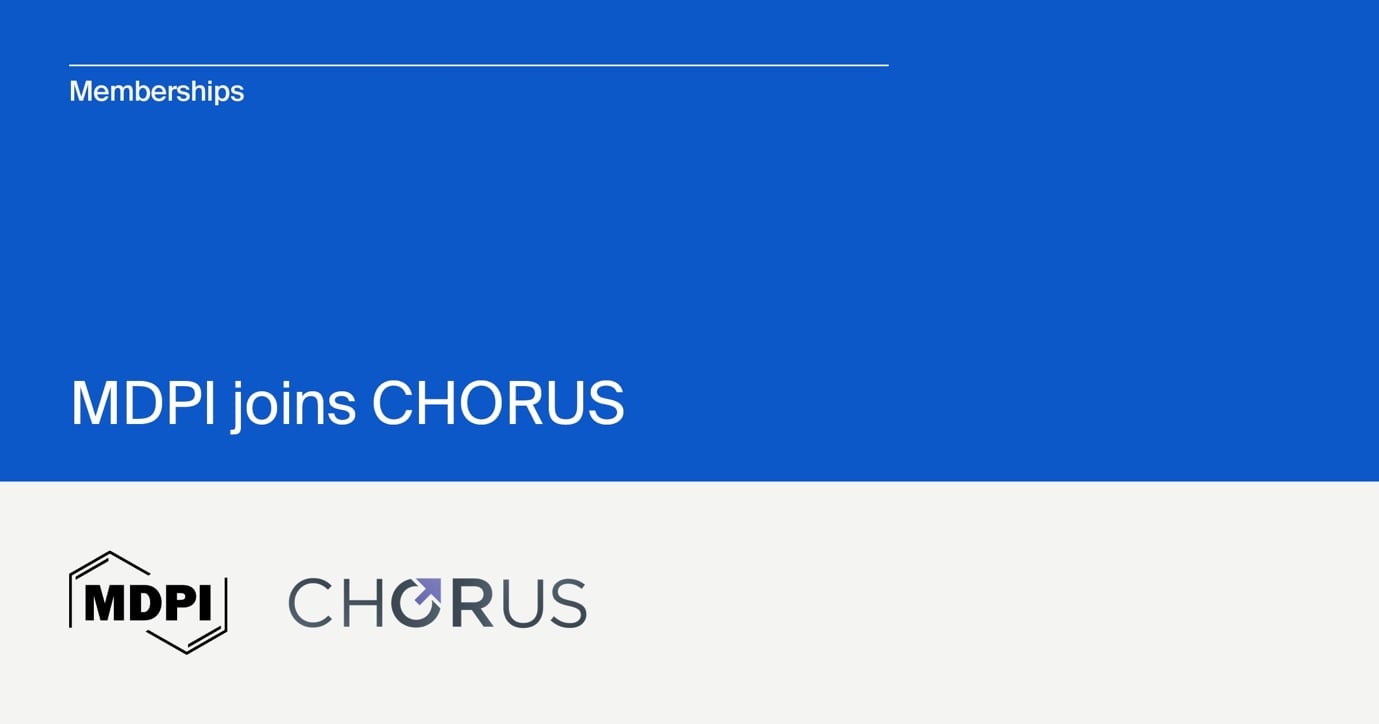
I am pleased to share that MDPI is now an Affiliate Member of CHORUS, a not-for-profit organization dedicated to ensuring public access to articles reporting on U.S. government-funded research. This partnership highlights our long-standing commitment to advancing Open Access (OA) publishing and meeting funders’ open research requirements.
Read the full announcement here.
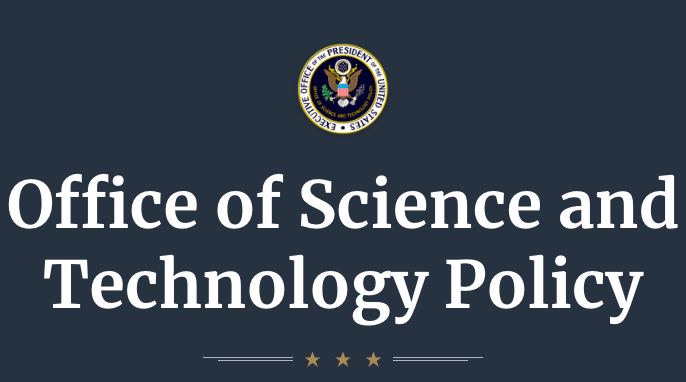
With the White House Office of Science and Technology Policy (OSTP) 2022 memorandum calling for immediate public access to all federally funded research by 2026, this partnership positions MDPI to further support academic institutions in adhering to national mandates while providing authors with fully compliant (CC-BY) OA journals.
The CHORUS platform went live in July 2014 and includes NASA, the U.S. Department of Energy, the U.S. Department of Defense, the U.S. Geological Survey, and the National Science Foundation.
“This partnership positions MDPI to further support academic institutions in adhering to national mandates”
Joining CHORUS perfectly aligns our mission as the leading OA publisher, which is to drive transparency and innovation in scholarly publishing, with that of CHORUS itself, which is to advance Open Access research. It will also support MDPI publications from organizations such as NASA, with 1,200 research papers published by NASA-affiliated authors as at 31 August 2024.
Impactful Research
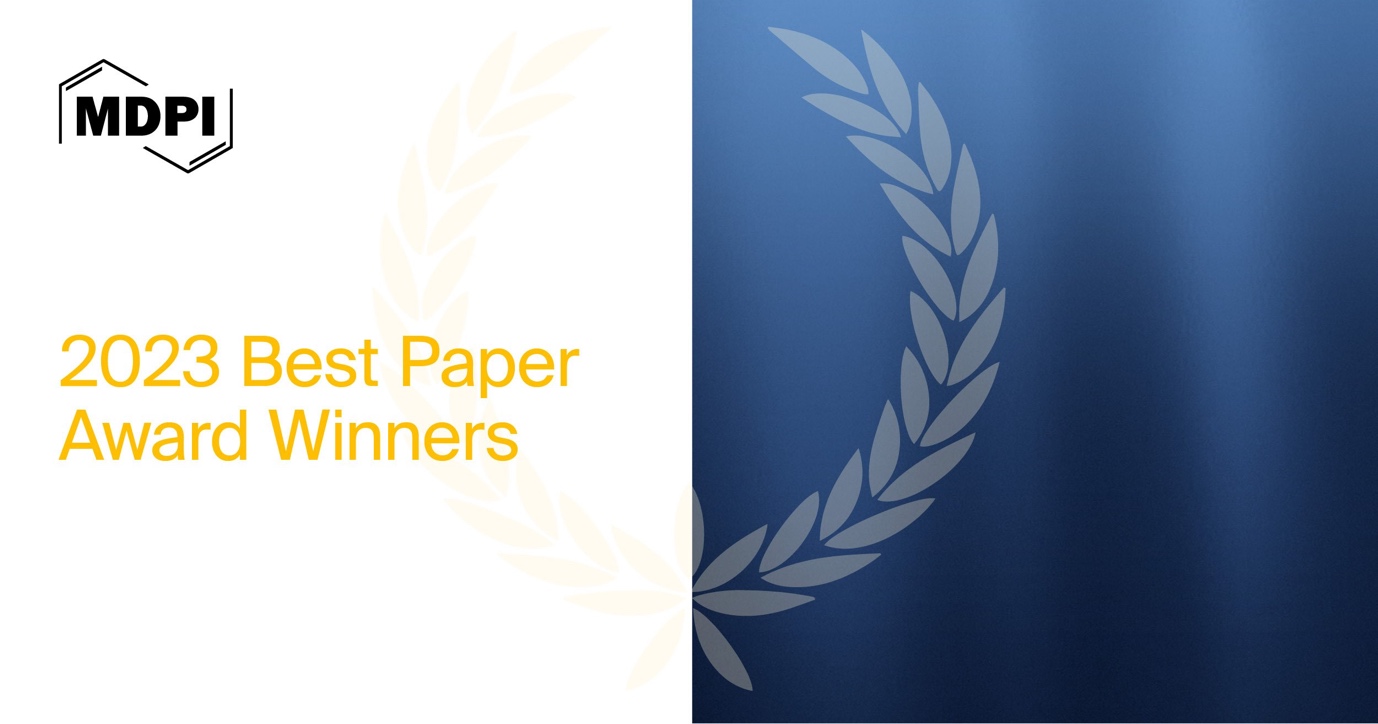
MDPI’s Best Paper Awards—Award-Winning Papers in 2023 Announced
MDPI is committed to supporting and recognizing the academic community and is proud to announce the recipients of the 2023 Best Paper Awards, which recognize high-quality papers of significant scientific merit and impact. Each year, the editors of our journals carefully select papers that showcase outstanding scientific achievement.
This year, 115 Best Paper Awards were presented, chosen from 346 exceptional papers in a highly competitive selection process. Congratulations to the authors for their remarkable contributions!
To learn more about all the awardees and their research projects, visit the following pages:
- Biology and Life Sciences
- Business and Economics
- Chemistry and Materials Sciences
- Computer Sciences and Mathematics
- Engineering
- Environmental and Earth Sciences
- Medicine and Pharmacology
- Public Health and Healthcare
- Social Sciences, Arts and Humanities
- Physical Sciences
About MDPI Awards
MDPI regularly offers various awards to recognize researchers, particularly young scientists, and to promote communication within the scientific community. These awards exist to inspire and acknowledge talented scientists who have made significant contributions to advancing their fields.
To find out more MDPI awards, please click here.
“Our awards exist to inspire and acknowledge talented scientists”
Inside MDPI
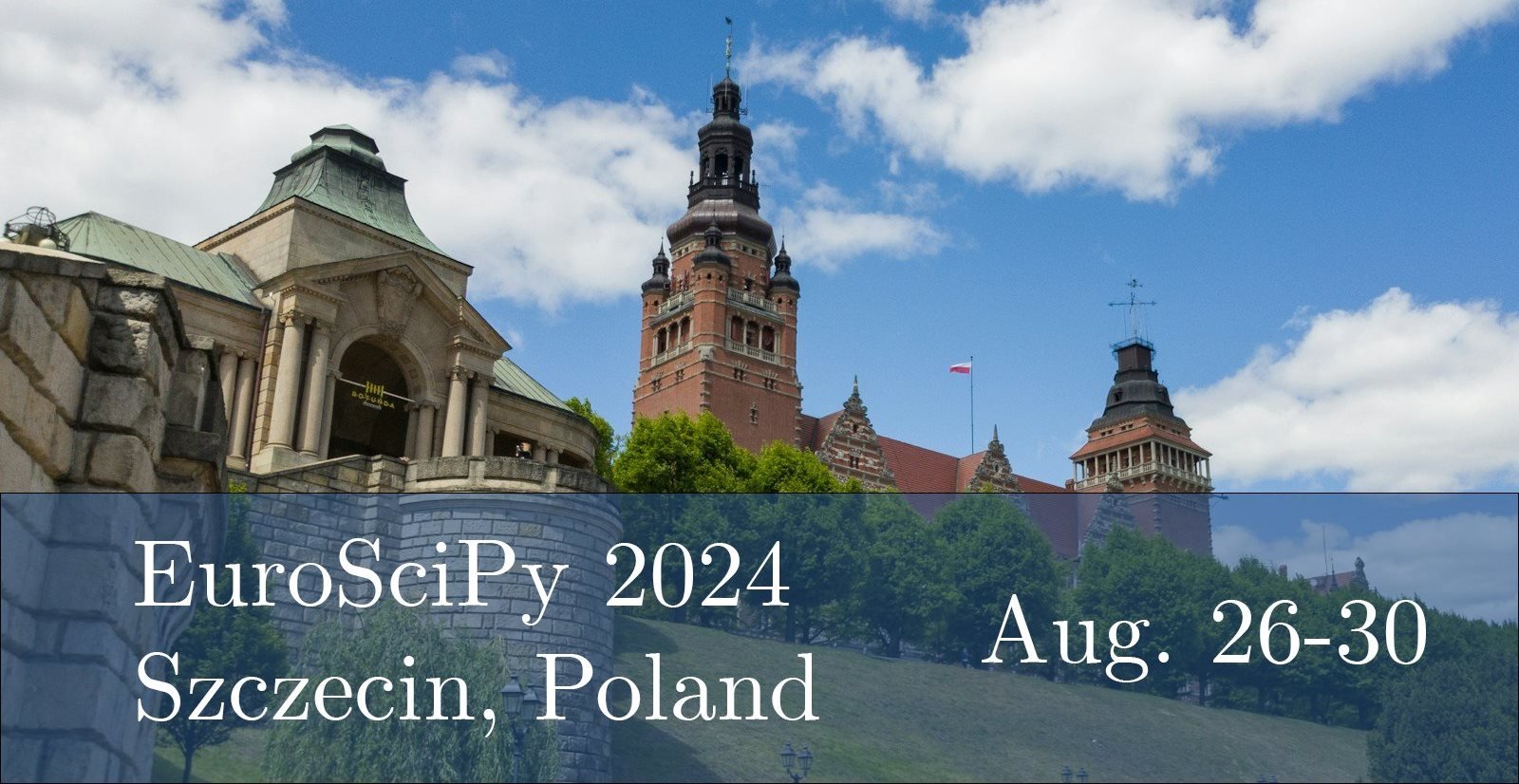
MDPI AI Team Presented at EuroSciPy 2024 in Poland
As part of the CEO Letter, I hold dear this ‘Inside MDPI’ section, where I have an opportunity to highlight various projects, teams and updates within our organization. As such, I’m happy to showcase the following presentations from members of MDPI’s Artificial Intelligence (AI) team, which were recently presented at the EuroSciPy 2024 (16th European Conference on Python in Science). This conference took place in Szczecin, Poland from 26–30 August.
“This event was a great opportunity to reinforce our commitment to innovation and excellence in publishing”
MDPI colleagues Frank Sauerburger (AI Tech Leader) and Daniele Raimondi (Senior Data Scientist) both presented at the conference. Frank discussed MDPI’s AI infrastructure, while Daniele showcased a new methodological approach we have been developing to track the journey of rejected academic manuscripts. This approach combines AI, data science and analytics to improve the identification of manuscripts and authors, enhancing our understanding of publishing dynamics.
This event was a great opportunity to reinforce our commitment to innovation and excellence in publishing. It also allowed us to contribute to the academic discussion on integrating AI and data science into scholarly communication.
From data analysis in Jupyter Notebooks to production applications: AI infrastructure at reasonable scale – Frank Sauerburger
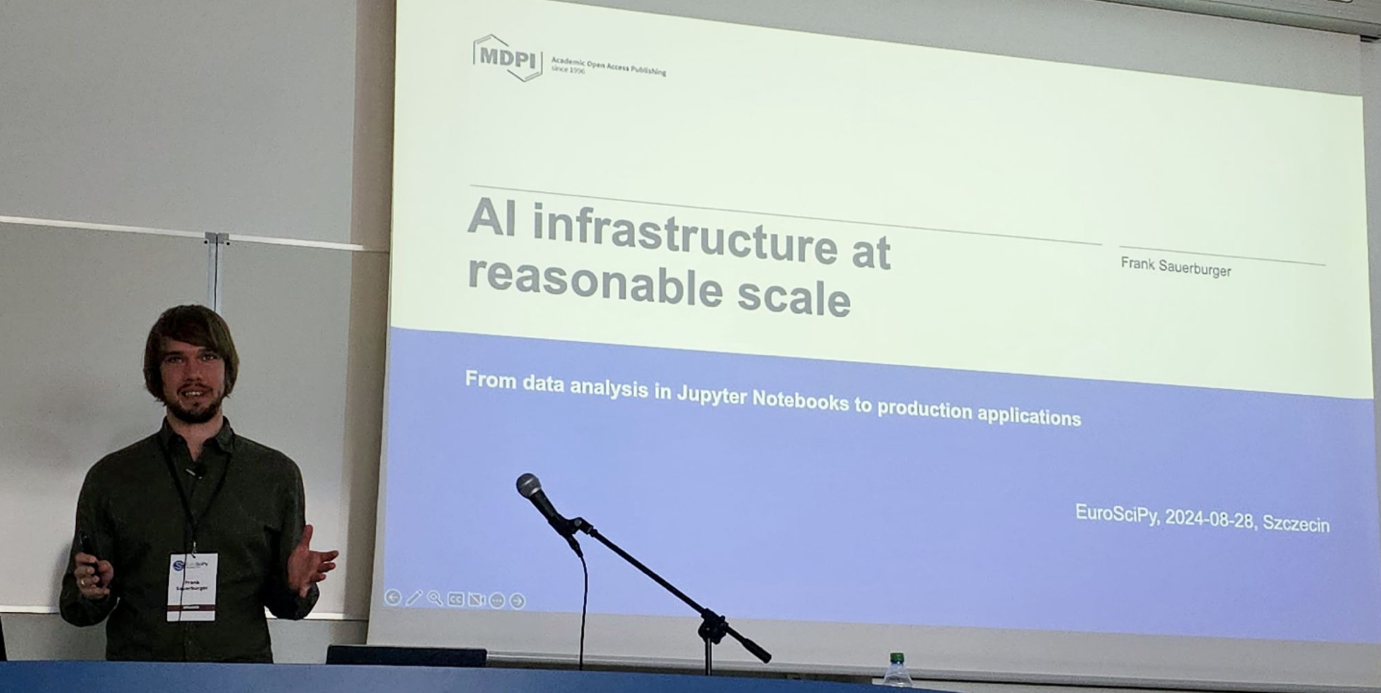
Frank’s presentation on MDPI’s AI infrastructure provided a chance to showcase the advanced technological frameworks that power our operations. Given the technical and academic focus of EuroSciPy, this talk demonstrated how MDPI’s AI capabilities are not only cutting-edge but also central to driving efficiency and innovation in scholarly publishing. Engaging with the EuroSciPy community helps position MDPI as a leader in applying AI within the publishing industry, fostering potential collaborations and attracting interest from top researchers.
A Qdrant and Specter2 framework for tracking resubmissions of rejected manuscripts in academia – Daniele Raimondi
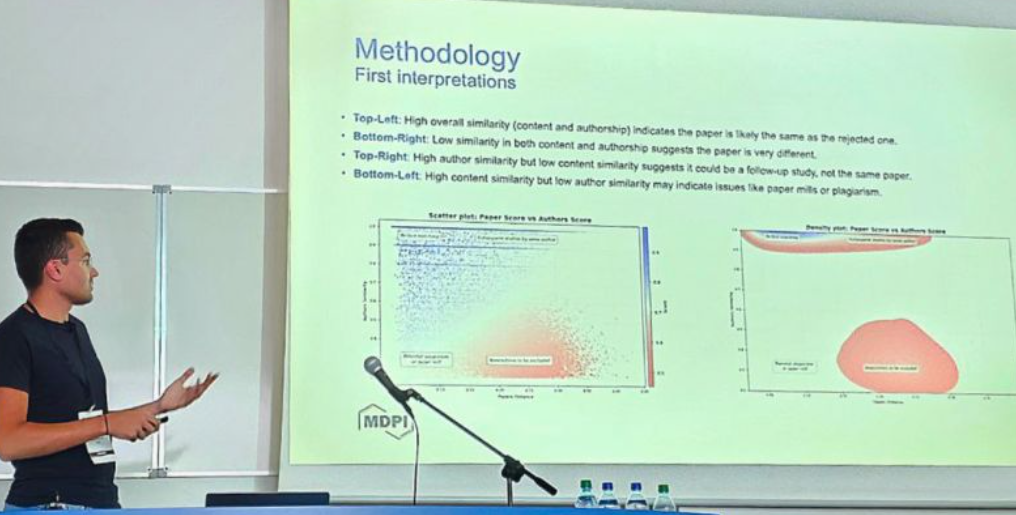
Daniele’s talk on the novel methodological approach that combines AI, Data Science, and Analytics was crucial in highlighting how MDPI is advancing the precision and effectiveness of manuscript and author identification. This approach is pivotal in enhancing our understanding of publishing dynamics and ensuring the quality and integrity of the academic content we manage. By presenting at EuroSciPy, we had the opportunity to engage with an audience deeply involved in scientific computing, gaining feedback and insights that could further refine our methodologies.
Thank you, Frank and Daniele, for representing MDPI so well!
I will share more about MDPI’s AI team and projects in upcoming CEO Letters, as we have a well-rounded AI and Data Team working on an exciting suite of AI products for MDPI and the scholarly community at large.
Coming Together for Science
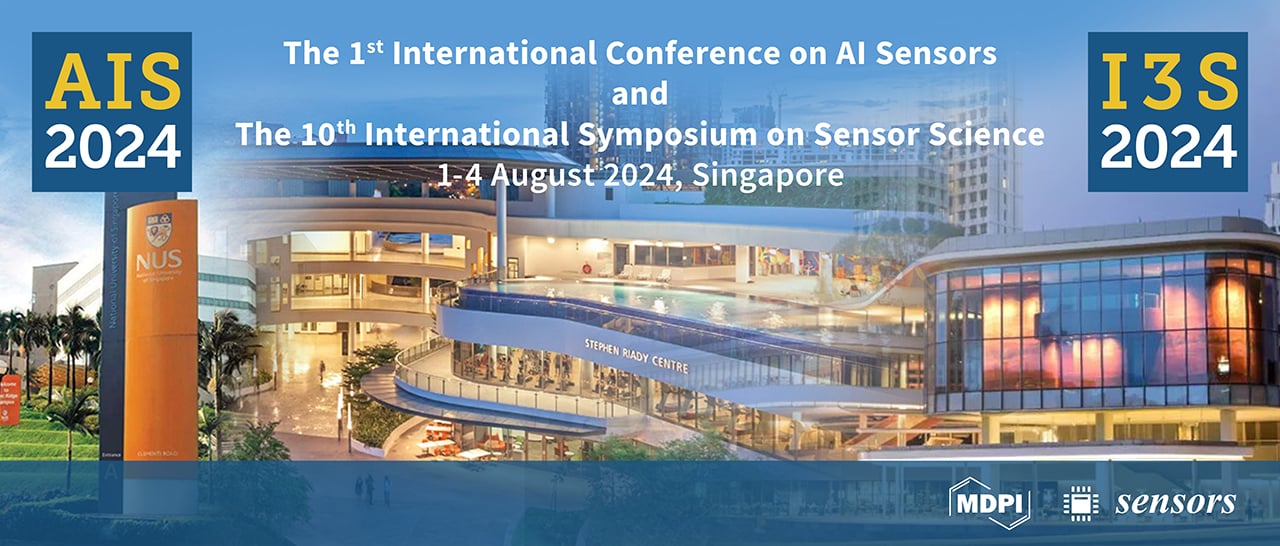
The 1st International Conference on AI Sensors & The 10th International Symposium on Sensor Science
I am pleased to share the success of our MDPI conference The 1st International Conference on Artificial Intelligence (AI) Sensors and the 10th International Symposium on Sensor Science in Singapore this past 1–4 August.
With nearly 400 attendees, the event brought together researchers and industry experts from China, Singapore, Japan, Korea, Taiwan, India and other countries to share their findings on the latest developments in sensors, sensing technology, artificial intelligence for sensing applications and AI-enhanced sensing systems.
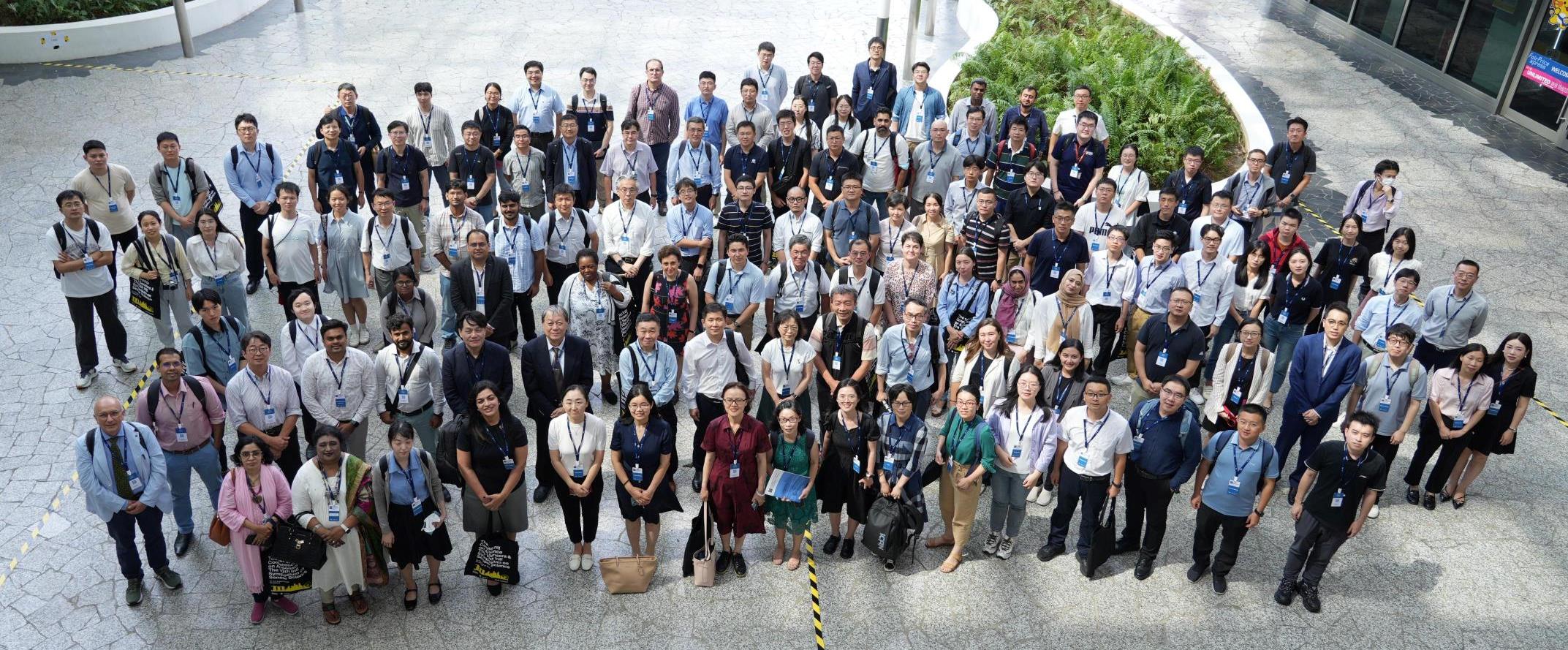
We accepted a total of 355 abstracts, featuring 772 authors from 28 countries. Over the course of the four-day event, 66 posters were displayed and 296 talks were delivered, including 4 plenary talks, 46 keynote speeches, 122 invited talks, and 124 selected oral presentations. View the event gallery here.
I am pleased to announce the winners of the four awards, including Best Presentation and Best Poster, recognizing the contributions of our participants during the conference.
Looking ahead, the 2nd International Conference on AI Sensors and Transducers is scheduled to take place from 29 July to 5 August, 2025, in Bangkok, Thailand.
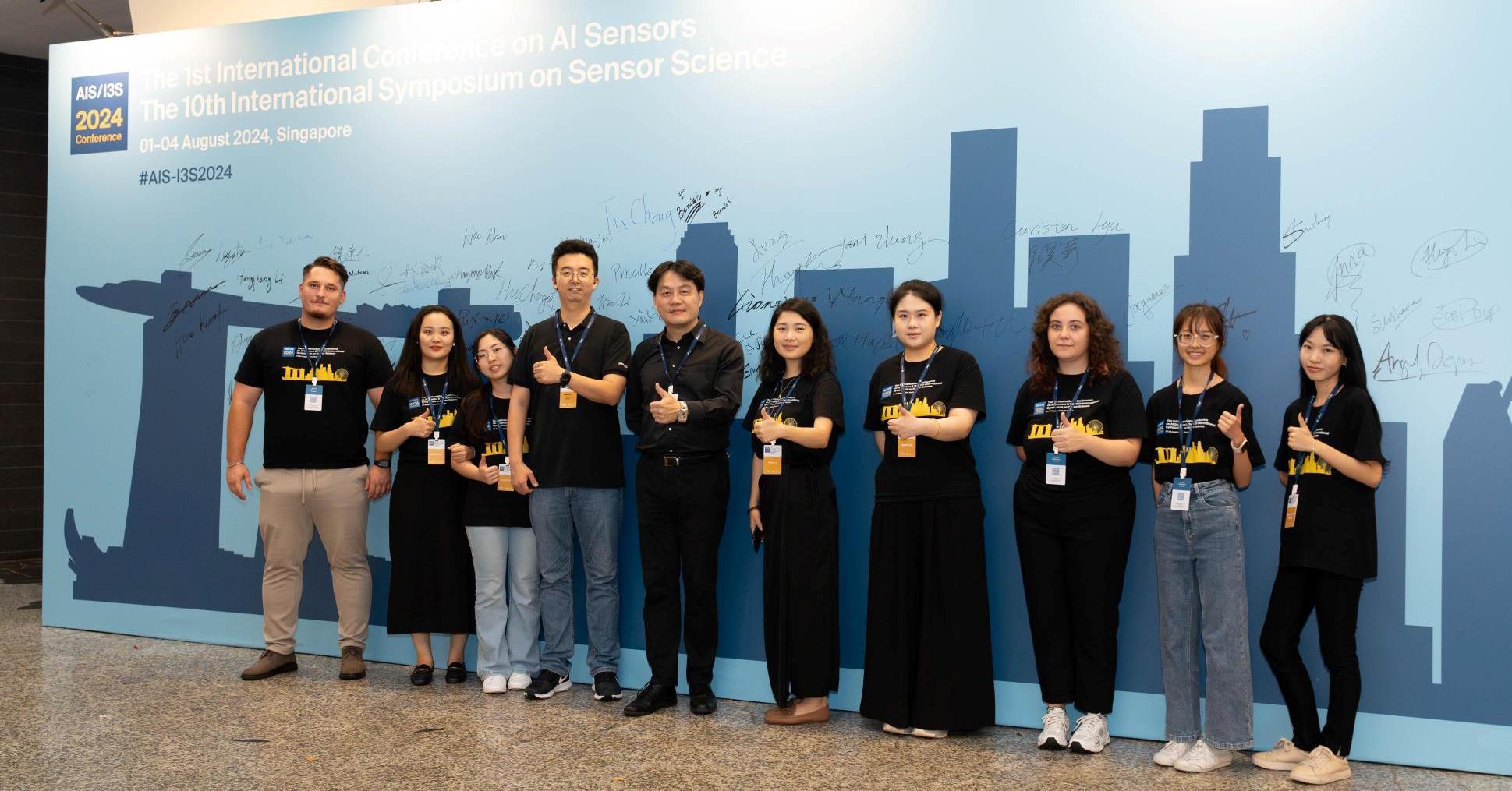
Thank you to our Conference team, including Ionut Spatar, Teodora Nicoleta Cremene, Ang Kai Lin, Benjamin Tay, Leong Jin Yue Esther, Wong Jolin, Judith Wu, Alethea Liu and Flora Li, who were involved in making this event a success. A big thank-you also goes to our local MDPI colleagues for their support: Yu Nwe Soe, Hen Chu Yang, Kwah Zhi En Watcharapong, Zephan Yang, Daphne Neo, Huimin Cheng, Nathan Li and Ting Yin.
Upcoming In-Person Event
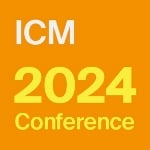
25–27 September, 2024
The 5th International Conference on Materials: Advances in Material Innovation
Location: Basel, Switzerland
ICM 2024 will unite experts to share insights on recent advancements in Materials Characterization, Processing and Manufacturing.
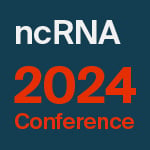
7–9 October, 2024
Non-coding RNA World 2024: Exploring Mechanisms, Designing Medicines
Location: Basel, Switzerland
ncRNA 2024 will explore the latest advances in the field, covering topics from basic biology to medical and technological applications.
Find more upcoming MDPI events here.
Closing Thoughts
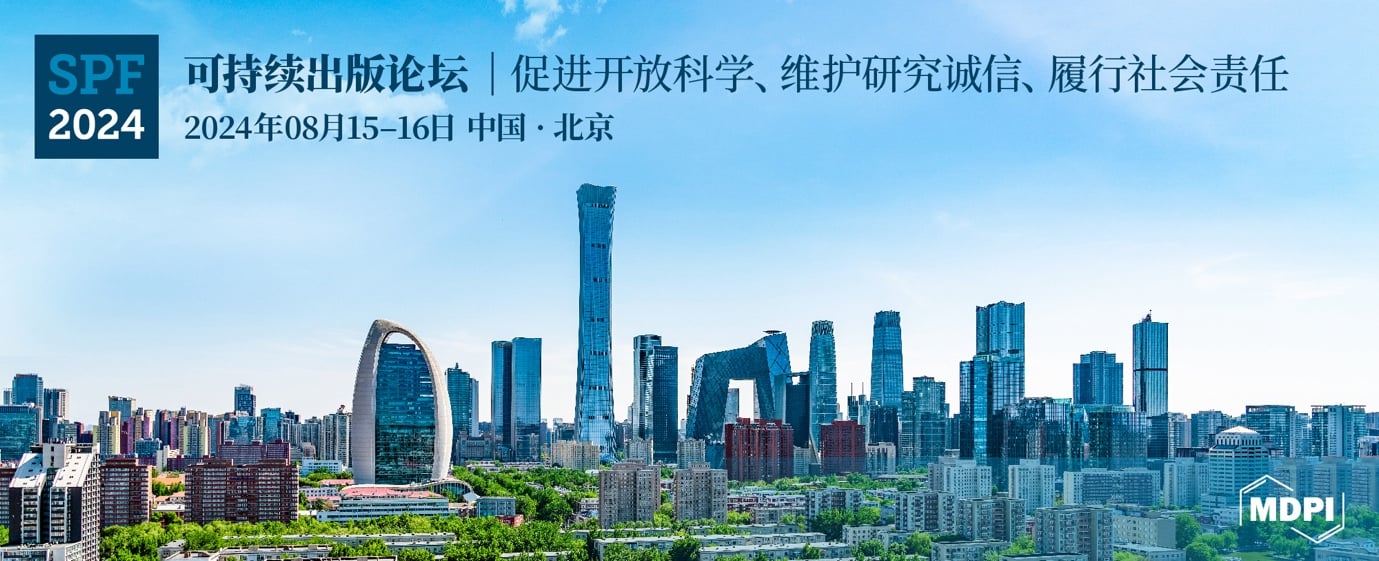
The 2nd Sustainable Publishing Forum
In 2022, the International Association of Scientific, Technical and Medical Publishers (STM) outlined three goals to reflect the academic community’s shared aspirations: promoting Open Science, maintaining research integrity and fulfilling social responsibility. Open Science has evolved from the Open Access movement of the early 2000s to become a preferred model in academic publishing. Publishers and academic journals play a crucial role in ensuring research integrity, with efforts to prevent misconduct markedly on the increase now.
As the world faces sustainability challenges, the academic publishing industry is increasingly committed to contributing the achievement of the United Nations Sustainable Development Goals (SDGs). Many publishers are implementing strategies to support these objectives, including ours, which you can view here.
The 2nd MDPI Sustainable Publishing Forum provided a platform for global editors and publishers to discuss these themes, aiming to strengthen collaboration and advance the contributions that scientific publishing can make to academia and society.
“Open Science has evolved to become a preferred model in academic publishing”
The 2nd Sustainable Publishing Forum
We hosted MDPI’s 2nd Sustainable Publishing Forum in Beijing, China, on 15–16 August, attracting nearly 120 attendees from local and international publishers, university presses, scientific and technical journal associations, libraries and the Chinese Academy of Sciences. The event focused on promoting Open Science, maintaining research integrity, and fulfilling social responsibility.
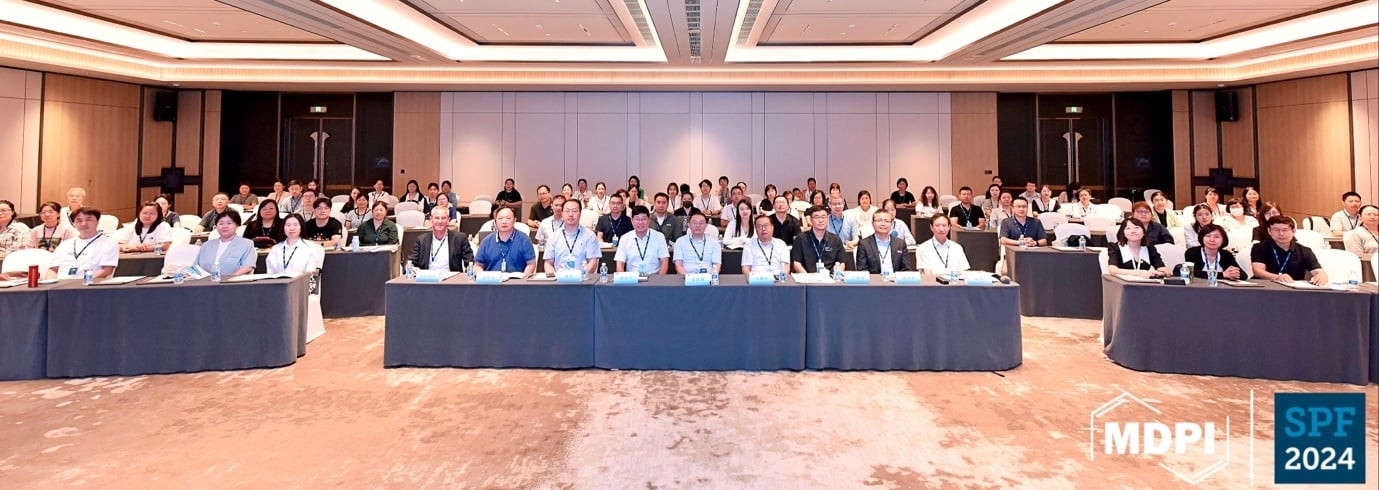
This was an excellent opportunity for us to share more with conference attendees about the approach of our research integrity team. Our Head of Publishing, Peter Roth, also participated, speaking on how to identify and avoid predatory publishers and about the principles that underpin ethical academic publishing.
I extend my thanks to all of our conference speakers, including Hylke Koers (STM Solutions), who presented on STM Trends 2028 and shared insights on the STM Integrity Hub, of which MDPI is a member.
Chief Executive Officer
MDPI AG
29 August 2024
Recruiting Volunteer Reviewers for Sensors
Peer reviewing constitutes an essential part of the publication process, ensuring that Sensors (ISSN: 1424-8220) maintains its high standards for the quality of its published papers. We are looking to recruit expert reviewers to help uphold the quality and efficiency of Sensors.
To qualify as a reviewer, applicants must have published around eight papers related to sensors in the last 5 years and hold a Ph.D. degree.
We will extend the following benefits to reviewers:
- Reviewers will receive a discount voucher code based on review quality;
- Reviewers will be included in the journal’s annual acknowledgment of reviewers; more details can be found at https://www.mdpi.com/2073-445X/11/2/215;
- Reviewers will be considered for the journal’s Outstanding Reviewer Award; details can be found at https://www.mdpi.com/journal/sensors/awards;
- Reviewers may be invited to join the Reviewer Board; see https://www.mdpi.com/journal/sensors/submission_reviewers for more information;
- Reviewers can build their profile on Publons and have their reviewing activity automatically added for participating journals. Publons profiles can also be integrated into ORCID.
For more information about the role, please visit the following link: https://www.mdpi.com/reviewers.
If you are interested in this position, please submit your application at https://susy.mdpi.com/volunteer/journals/review. We hope that you will join us on our team of reviewers.
After your registration is approved, you will be able to see a list of manuscripts for which reviewers are needed.
If you have any other questions, please contact the Sensors Editorial Office. We look forward to hearing from you.
26 August 2024
Sensors Webinar | Nanotechnology Applications in Sensors Development, 28 October 2024

Nanotechnology development has offered the possibility to choose among a very large class of nanostructured elements to expand the use of optical methods for sensing applications. The miniaturization of matter provides interesting and unique optical properties, enabling the development of new sensing schemes and devices characterized by an increased specificity and sensitivity, reliability, and adaptability, as required for innovative applicative approaches for the qualitative and quantitative determination of analytes of interest in pharmaceutical research, medical diagnostics, environmental monitoring, agriculture, industry, and food safety and security.
This webinar offers the opportunity to meet researchers involved in the field of nanotechnology applications for optical sensing to discuss some topics together. In particular, we would like to focus our attention on the improvements due to the use of nanostructured substrates in Raman spectroscopy and the results offered by the use of hybrid nanoparticles in intracellular sensing and therapy.
Keywords: nanosensors; nanoparticles; biosensing; sensors
Date: 28 October 2024
Time: 11:00 a.m. CET | 6:00 p.m. CST Asia
Webinar ID: 865 3587 9373
Register now for free!
|
Speaker/Presentation |
Time in CET |
Time in CST Asia |
|
Dr. Maria Lepore |
11:00–11:10 a.m. |
6:00–6:10 p.m. |
|
Dr. Ines Delfino |
11:10–11:30 a.m. |
6:10–6:30 p.m. |
|
Dr. Ilaria Rea |
11:30–11:50 a.m. |
6:30–6:50 p.m. |
|
Q&A Session |
11:50–12:05 a.m. |
6:50–7:05 p.m. |
|
Dr. Maria Lepore |
12:05–12:10 a.m. |
7:05–7:10 p.m. |
After registering, you will receive a confirmation email on how to join the webinar. Registrations with academic institutional email addresses will be prioritized.
Unable to attend? Register anyway, and we will let you know when the recording is available to view.
Webinar Chair and Keynote Speakers:
- Maria Lepore, Dipartimento di Medicina Sperimentale, Università della Campania Luigi Vanvitelli, Napoli, Italy;
- Ines Delfino, Dipartimento di Scienze Ecologiche e Biologiche, Università degli Studi della Tuscia, Viterbo, Italy;
- Ilaria Rea, Institute of Applied Sciences and Intelligent Systems (ISASI), National Research Council, Napoli, Italy.
21 August 2024
MDPI Spain Author Training Session in June
In June, MDPI Spain, in collaboration with Prof. Dr. Eduard Llobet and Prof. Dr. Josep Ferre-Borrull, held an author training session endorsing an external event.
The Graduate Students Meeting on Electronics Engineering event was hosted by the Department of Electronic, Electrical, and Automatic Control Engineering of the Universitat Rovira i Virgili (URV) on 27 and 28 June 2024. It consisted of two days of plenary talks given by invited prestigious researchers about selected topics related to electronic engineering, short talks given by last year’s doctoral students presenting their up-to-date research results, and a poster session where master and Ph.D. students in this field presented their work. MDPI Spain contributed an author training session comprising valuable insights about MDPI, open access publishing, and publications ethics.
Editorial Director Rocky Zhang gave a presentation called “MDPI Insights, Sensors’ Introduction and the Editorial Process”. In her presentation, she delved into MDPI’s philosophy and mission, MDPI’s editorial process, and Sensors journal-related insights.
Journal Relations Specialist Vesna Marinkovic gave a presentation titled “Open Access and Publications Ethics”. In her presentation, she discussed the significance of Open Access Publishing in Europe and addressed ethical issues such as plagiarism, copyright infringement, data fabrication, and image manipulation.
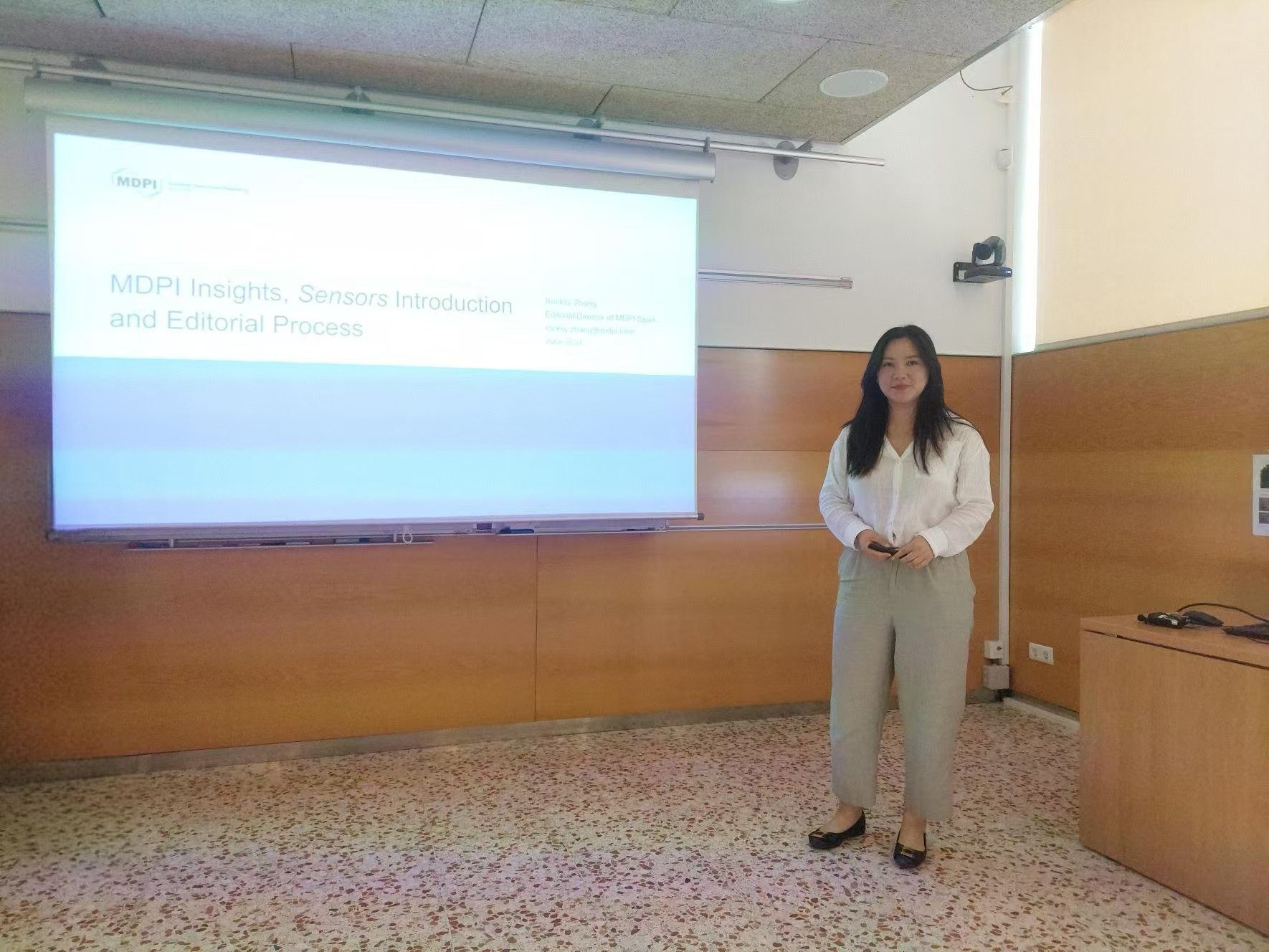
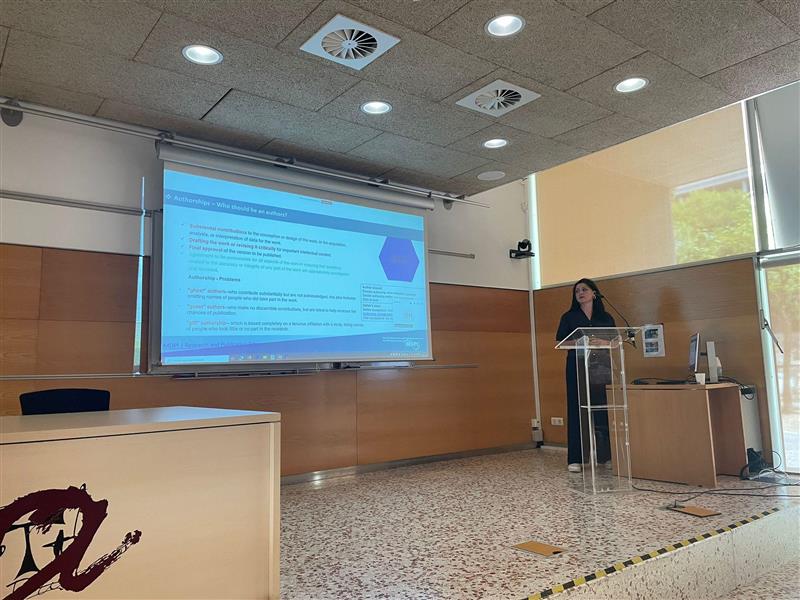

MDPI is grateful to all the attendees for attending the event. Special thanks are offered to Eduard Llobet and Josep Ferre-Borrull for inviting us to take part in the Graduate Students Meeting on Electronics Engineering.
19 August 2024
MDPI’s 2023 Young Investigator Awards—Winners Announced

MDPI’s Young Investigator Awards recognize promising early career scientists, acknowledge their contributions, and foster collaboration within the scientific community. We are proud to announce the recipients for 2023, who were carefully selected by the journals’ esteemed Award Evaluation Committee.
We extend our heartfelt congratulations to the 79 winners of MDPI’s 2023 Young Investigator Awards for their excellent contributions in their research field. We look forward to seeing these rising stars continue to contribute to the advancement of science.
MDPI will continue to support and recognize the academic community. To explore details about the awardees by field, please visit the individual pages listed below:
Congratulations to all the winners for their exceptional contributions and dedication to advancing scientific research.
About MDPI Awards:
To support the academic community, particularly young researchers, and to enhance communication among scientists, MDPI journals regularly offer various awards to researchers in specific fields. These awards, serving as a source of inspiration and recognition, help to elevate the profiles of talented individuals who have made outstanding achievements and are making significant contributions to advancements in their respective fields.
To find out more about MDPI awards, please click here.
13 August 2024
Join Us at the 2024 BMES Annual Meeting, 23–26 October 2024, Baltimore, USA

Conference: 2024 BMES Annual Meeting
Date: 23–26 October 2024
Location: Baltimore, USA
MDPI will be attending the 2024 BMES Annual Meeting as an exhibitor. We welcome researchers from different backgrounds to visit and share their latest ideas with us.
Established in 1968, the Biomedical Engineering Society (BMES) is a professional society for students, faculty, researchers, and industry professionals in the field of biomedical engineering. The conference aspect covers cancer treatment, heart disease, women’s health, global health disparities, and more. The meeting allows members to advocate for their innovative solutions, demonstrating their commitment to our society’s core value of health equity for all individuals. The Biomedical Engineering Society is governed by the BMES Board of Directors, and this board is elected from members of the society.
The following MDPI journals will be represented at the conference:
- Bioengineering;
- Sensors;
- Biomedicines;
- Biomechanics;
- Micromachines;
- Technologies;
- Applied Sciences;
- BioChem;
- BioTech;
- CIMB.
If you are planning to attend the above conference, please do not hesitate to start an online conversation with us before visiting. Our delegates look forward to meeting you in person and answering any questions that you may have. For more information about the conference, please visit the following website: https://www.bmes.org/bmes2024.
7 August 2024
MDPI Insights: The CEO's Letter #14 - New Headquarters, Marketing, Poland

Welcome to the MDPI Insights: The CEO's Letter.
In these monthly letters, I will showcase two key aspects of our work at MDPI: our commitment to empowering researchers and our determination to facilitating open scientific exchange.
Opening Thoughts
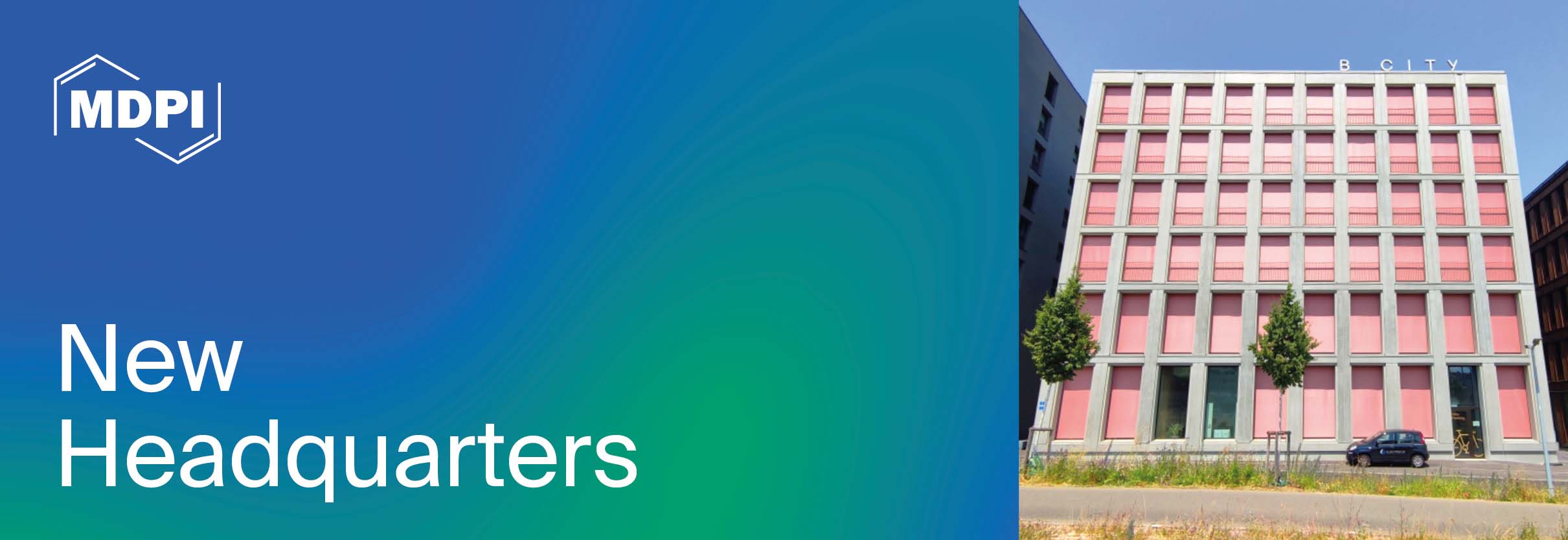
MDPI Moves to New Headquarters in Basel, Switzerland
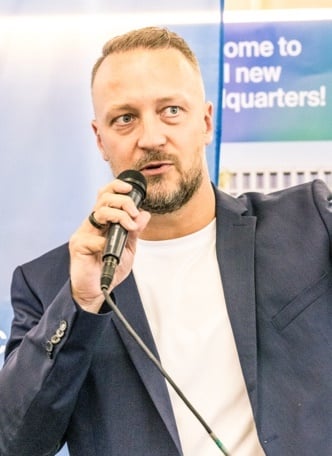
I am excited to share that MDPI has moved to a new state-of-the-art office space in Basel, Switzerland. This move consolidates our operations by bringing together our two previously separated Basel offices into one central location.
We are always growing our talent pool and encourage you to view our Careers Page for the positions available in Basel and across our offices.
New Address: Grosspeteranlage 5, CH-4052 Basel, Switzerland
Effective Date: 1 July 2024
This new chapter in our company’s journey is designed to continue our mission of positioning MDPI as a leader in Open Access (OA) publishing, highlighting our commitment to making scholarly research accessible to everyone.

Boasting modern amenities, improved meeting and event spaces designed to support our growing needs, the new location provides a more collaborative and efficient working environment for our employees. The location offers convenient accessibility to public transportation and is situated near the Basel SBB railway station, with a variety of nearby services and amenities.
In fact, I can see the trains right outside of my window as I write these lines!
This move marks an exciting milestone in MDPI’s development, and I am confident that the new headquarters will serve as an inspiring and productive space for everyone. We also very much look forward to welcoming visitors here. You can read more about MDPI's history here.
“This new chapter continues our mission of positioning MDPI as a leader in OA publishing”
For Those New to MDPI
A pioneer in scholarly, Open Access publishing, MDPI has supported academic communities since 1996. MDPI is leading the transition to Open Science by making a greater proportion of the research conducted worldwide free and accessible to everyone. To date, over 3.5 million researchers have entrusted MDPI with publishing their scientific discoveries. MDPI’s editorial process is bolstered by a network of dedicated reviewers, a team of 6,000 professional, well-trained staff members, and an in-house article submission platform designed to ensure efficient processes within its 440 fully Open Access titles. MDPI supports more than 800 academic institutions worldwide, helping them adhere to national mandates while facilitating authors’ publication in fully compliant (CC BY) Open Access journals.
Impactful Research
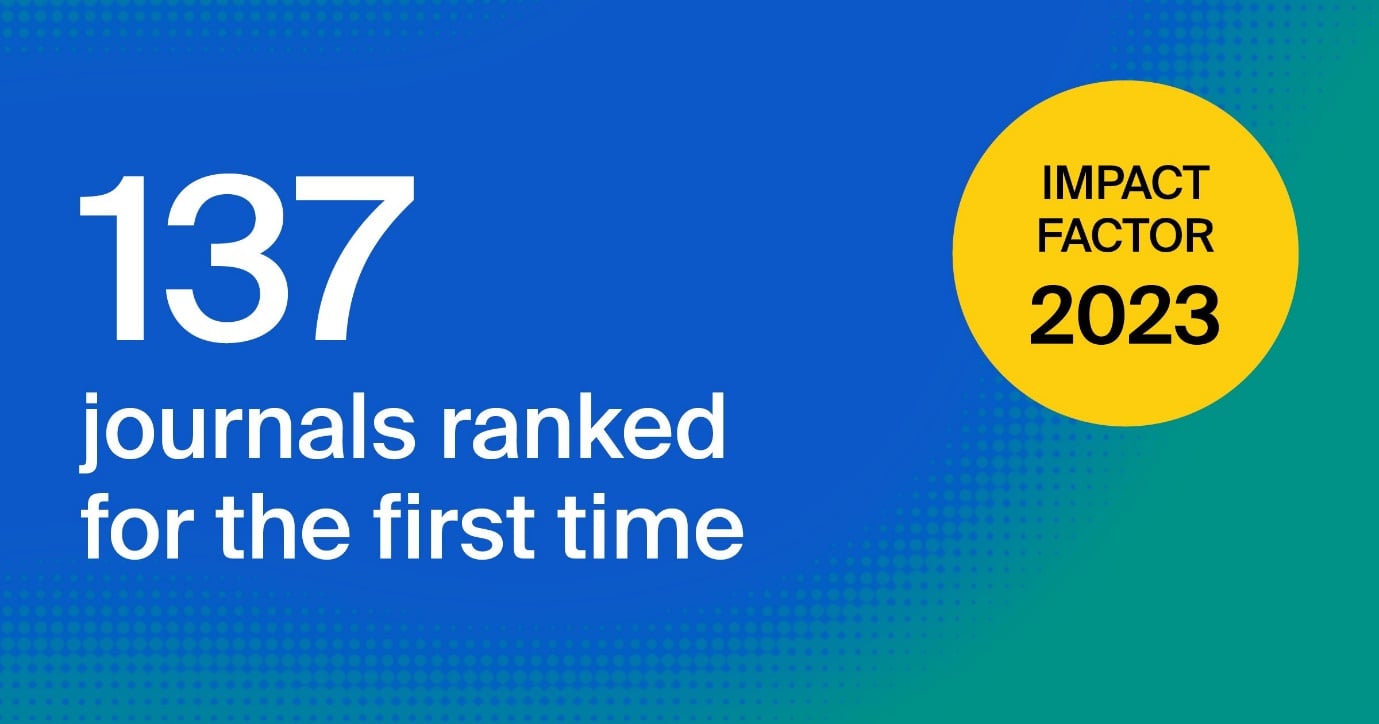
New and Emerging MDPI Journals Making an Immediate Impact
Unpacking some of the Impact Factor updates from the June CEO Letter, I wanted to dive a little deeper into the 137 MDPI journals which received Impact Factor for the first time.
Academic authors highly value efficient publishing processes, robust editorial support, and the opportunity to publish in high-impact journals. We are proud that our newly launched journals typically achieve coverage in the Emerging Sources Citation Index (ESCI) of the Web of Science within just a few years, with a median time of only three years from release to inclusion.
As part of our commitment to advancing academic research and providing high-quality OA publishing, we actively seek new research areas to expand our portfolio of journals. We have a proven track record of successfully establishing new journals.
Our dedicated teams excel in fostering dynamic editorial boards and working closely with Editors-in-Chief (EiC) to define the precise scope and focus of each new journal. Our expertise extends to collaborating with indexing services, ensuring that our journals comply with best practices and are indexed promptly in all relevant databases.
Emerging Titles Ranked for the First Time
Our commitment to excellence is reflected in the annual impact metrics released this past June. The latest edition of the Journal Citation Reports (JCR) showcases the integration of journals from the ESCI in the new unified category rankings, providing a simplified and more complete view of all journals within each subject category, including newly established titles.
Out of 137 new and developing MDPI journals ranked in the 2024 release, 79 are in the top half (Q1 or Q2) of their categories. Here is a breakdown of the number of MDPI’s ESCI-indexed journals by quartile in the JCR:
| Quartile | No. of journals |
| Q1 | 17 (12.4%) |
| Q2 | 62 (45.3%) |
| Q3 | 43 (31.4%) |
| Q4 | 15 (10.9%) |
| Not ranked (humanities-related journals) | 2 |
These rankings highlight our success in rapidly establishing high-impact new journals. Among those that made it directly into the top 25% of their category are the International Journal of Neonatal Screening, Journal of Xenobiotics, Polysaccharides, Smart Cities, and thirteen other journals.
You can browse MDPI journals by Indexing. Simply visit our Journals page and select from the list of Indexing bodies in the top left-hand corner.
Inside MDPI

MDPI Corporate Marketing Strategy and Team Meeting 2024
In July, I hosted the annual Corporate Marketing strategy and team-building activity with 15 of our team members.
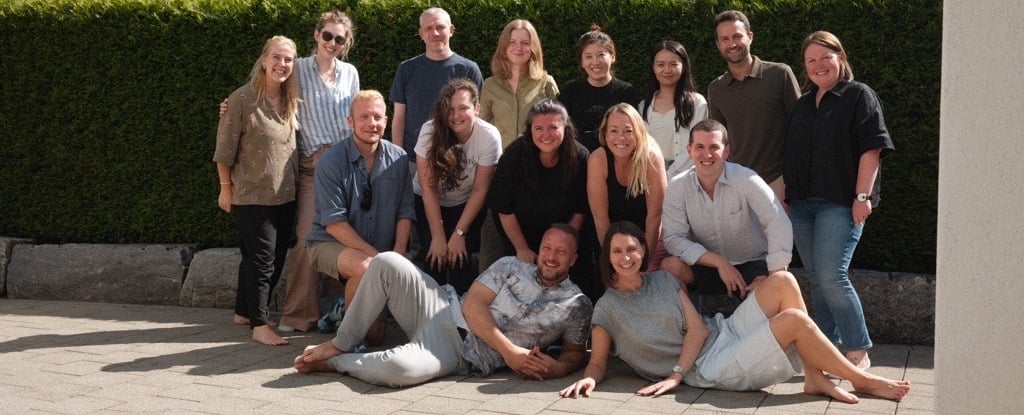
The aim was to align the Corporate Marketing strategy with MDPI's goal of becoming the world's most trusted OA publisher. While we provide a high-level publishing experience for our authors, as seen from our surveys, we need to keep building on our transparent and open communication to foster trust within the scholarly community and continue enhancing our reputation.
The Corporate Marketing team plays an important role as the mouthpiece for all our major activities within MDPI, especially those that model what it means to be a trusted partner. The purpose of the strategy meeting was to develop a feeling of trust in one another and an understanding of how to inspire trust in the stakeholders with whom we interact.
“We need to keep building on our transparent and open communication to foster trust within the scholarly community”

We conducted a set of activities to facilitate that sense of mutual trust and trustworthiness. Examples of some activities we worked on during this strategy-building event include:
- Exploring what trust means
- ‘Letter to self’
- ‘The brand I most trust’
- Most Trusted Academic Publisher
- ‘The brand I would like MDPI to become’
- ‘The 2029 MDPI Annual Report’
- Voice of Customer and Share of Voice – survey/data update on MDPI Brand Experience and Brand Perception
- Integrate Trust-Based Objective into Marketing Plan
- ‘Becoming the MDPI experience’
- ‘Trusting the next steps’
While two days is not enough to finalize a marketing strategy, it is sufficient to get everyone who attended into the mindset of the direction in which we are working. From here, we will develop a program with next steps on main projects, update communications, and collaborate with team leads to incorporate this approach into our work going forward.
As a marketing team, we can communicate our messages, but trust has to be built at every touchpoint in the stakeholder journey. Just talking about it isn’t enough. We need to be about it. That’s a role each of us plays, from editorial to IT, from marketing to HR. We must build trust from the inside out. It starts with each manager and resonates out via every team member.
As a company, our goal is to give all stakeholders with whom we interact – whether internal or external – the experience of working with an organization it can trust.
Coming Together for Science
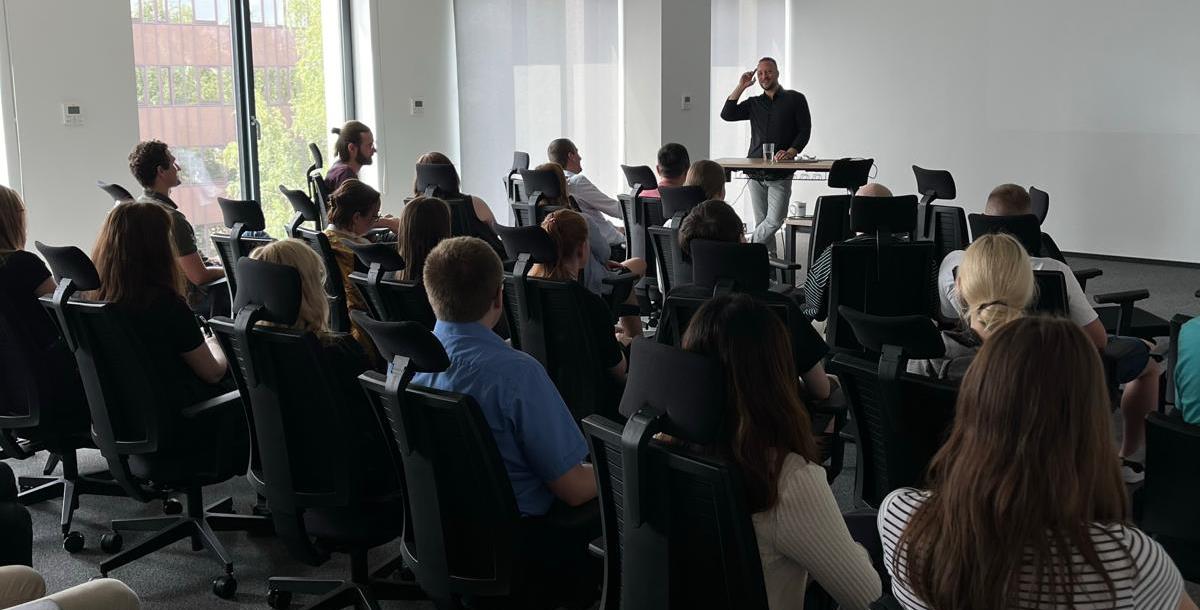
MDPI in Poland: Krakow Office
In July, I had the pleasure of visiting our Krakow office, following my recent trip to Warsaw to meet with the Polish Ministry of Science and Higher Education.

During these visits, I prioritized meeting with our Office Manager, Editorial Director, Group Leads, and members from various teams, including editorial, production, marketing, and journal relationship specialists, to understand their roles and current challenges. Instead of a formal presentation, I opted for an open discussion, sharing updates from headquarters to engage with colleagues in a more personal way.
Our Krakow office has many things to be proud of, including a large number of PhD colleagues (over a third of its staff holds a PhD degree). Krakow provides an opportunity for expanding beyond the 100 colleagues we currently have, by adding new hires in departments including editorial, production and marketing, among others.
About our Krakow office
- Opened in 2020
- 99 staff members as at 1 August 2024
- Main Departments include Editorial, Production, English Department, JRS, PR
Our Krakow office participates in international conferences, conducts author trainings and scholar visits, and engages in local market outreach. The office is also a member of the Polish Chamber of Commerce for High Technology (IZTECH) and is working on expanding its local engagement.
Krakow is the second-largest city in Poland, with a population of about 800,000. It also has a large student population of around 128,000, with seven universities. This means that roughly one in every eight residents is a student.
Poland and MDPI
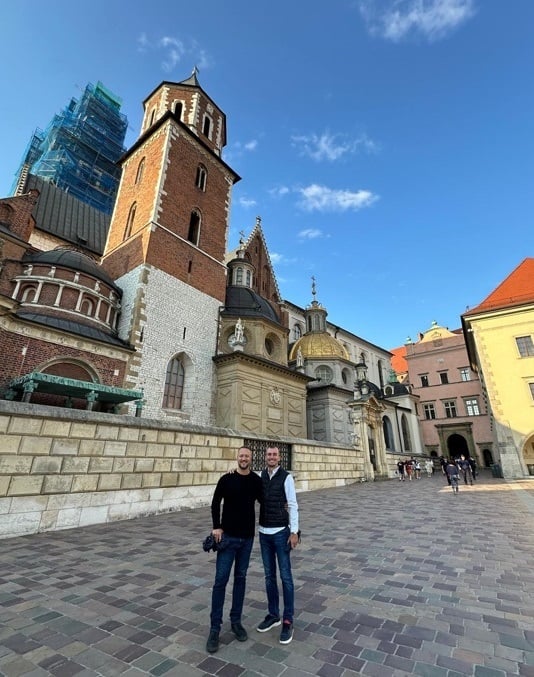
Poland is a crucial market for MDPI. From 2020 to June 2024, Poland ranked 7th in submissions and 5th in publications for MDPI research articles. As at 31 July 2024, Poland ranks 7th in total MDPI publications, with approximately 70,000 research papers.
Between 2020 and June 2024, 61,500 authors from Poland published with MDPI. As at 30 June 2024, there are 1,205 active Editorial Board Members (EBMs) from Poland, with 661 EBMs (55% of the total) having an H-index over 25.
We also have four Editors-in-Chief (EiC) from Poland leading our journals: Coatings, Venereology, Advances in Respiratory Medicine, and Limnological Review, along with six Section EiC.
In 2023, we received approximately 21,000 submissions from Polish-affiliated authors, of which 12,032 were published.
“Poland is a crucial market for MDPI”
Meeting with Ministry of Education
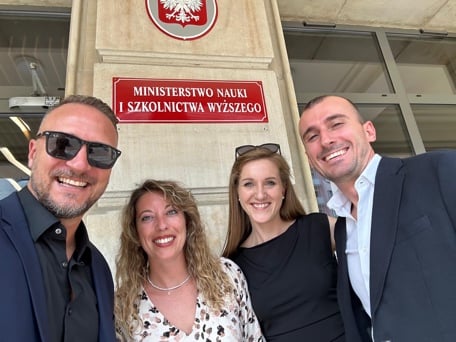
On 22 July, we visited Warsaw to meet with the Polish Ministry of Science and Higher Education.
We were pleased to learn that they are strong supporters of the OA publishing model and value MDPI’s approach to the peer-review process, including our high ethical standards for quality control.
In 2023 Polish authors predominantly published their papers in OA, with MDPI holding the largest market share in OA publications within the country.
Our commitment to collaborating with Polish institutions is evident through our 33 Institutional Open Access Program (IOAP) agreements with prestigious institutions such as the University of Warsaw, the University of Wroclaw, the Jagiellonian University, and Gdańsk University of Technology. Through IOAP discounts, a healthy waiver rate, and our peer-review voucher system, we provide the Polish scholarly community with significant savings in OA publishing. The Minister greatly appreciated these efforts and our commitment to offsetting some of the APC costs.
We discussed industry concerns about the threat of papermills and presented the preventive measures MDPI has in place to mitigate this risk and uphold high ethical standards. We informed them of our commitment to combating papermills, including our involvement with United2Act and the STM Research Integrity Hub, as well as our efforts to expand our research integrity team and explore proactive measures.
Closing Thoughts

MDPI Thought Leadership Op-ed on Open Access is Now Live on Politico
I am pleased to share that our thought leadership Op-ed piece on Open Access (OA) is now live on Politico. This is a nice push for continued influence and support of OA among policymakers and industry leaders.
Why Politico?
Politico's reputation as a highly credible and influential news platform makes it an important venue to reach key opinion leaders (KOL) from academia, policymakers, and thought leaders from many industries. This visibility helps promote the OA philosophy.
Open Access: A Moral Imperative for Progress
In this piece, I discuss the necessity of making scientific research freely available to all. I argue that publicly funded research should be publicly accessible, highlighting how OA democratizes scientific knowledge, accelerates research availability, and fosters collaboration.
“Open Access is a fundamental right for all citizens”
Democratizing scientific communication
The impulse to democratize scientific communication is nothing new. OA may seem like a recent innovation, but its principles have historical roots traceable to Europe in the 15th century. Just as the printing revolution accelerated the dissemination of new ideas, OA publishing unlocks new scientific insights that would otherwise only be accessible to a few.
Benefits for scholars: amplifying impact through Open Access
Authors publishing in an OA journal can expect more citations of their work, increasing its potential impact. Research findings that are freely available are more likely to be cited than those hidden behind a paywall. Freedom of access greatly increases the potential audience for each paper, fostering a sense of community among researchers worldwide. Heightened visibility can attract prospective collaborators and employers for young scientists. At MDPI, we believe that all these factors can only accelerate the advance of science. Additionally, authors retain copyright in their work instead of signing it away, permitting broader dissemination under Creative Commons licenses and increasing its capacity for impact.
The moral imperative
OA is not just a matter of scientific policy; it is a fundamental right for all citizens and a prerequisite for a brighter, more informed future. Publicly funded research should be a top priority, and I am pleased to see policy moving in this direction. Our capacity to generate transformative scientific insights has to be democratized. The question today is no longer whether we can afford to embrace OA; rather, it is whether we can afford not to.
Chief Executive Officer
MDPI AG
2 August 2024
MDPI Romania Author Training Sessions in May
In May, MDPI Romania held three author training sessions – one endorsing an external event and two stand-alone sessions.
The National Session of Scientific Student Communications took place at Technical University Cluj on 17 and 18 May 2024. MDPI Romania sponsored this event and contributed an author training session on the production of research papers and case study analyses. JRS Norbert Kiss gave a presentation called The World of Open Access to explain different open access publishing models and the benefits of open access publishing. His presentation highlighted the impact of open access publishing on scientific progress and innovation.
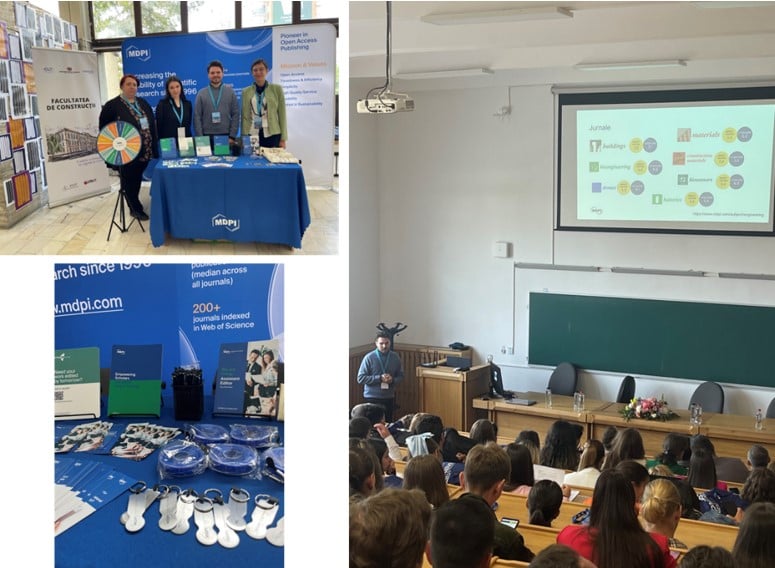
On 29 May 2024, MDPI Romania hosted an author training session for Ph.D. students, early career researchers, and professors at the Carol Davila University of Medicine and Pharmacy. In collaboration with Prof. Andreea Arsene, JRS Ioana Paunescu prepared two presentations: The Steps of the Publishing Process and Elaboration of a Peer Review Report. In her first presentation, she delved into MDPI’s history and mission, MDPI’s editorial process, and MDPI journals of various scopes that are accepting submissions. Her second presentation outlined the types of peer review, the contents of a peer review report by an MDPI reviewer, and the responsibilities of an MDPI reviewer.
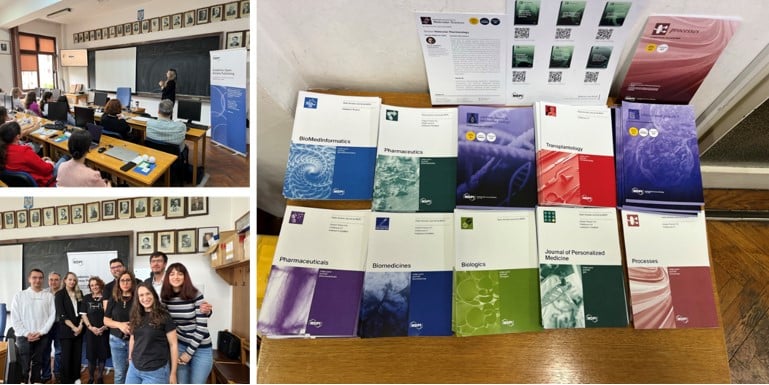
MDPI Romania also hosted an author training session at the Iasi University of Life Sciences on 29 May 2024. JRSs Laurentiu Preda and Cosmin Artan gave four presentations: Efficient Writing of an ISI-Indexed Scientific Article, Benefits of Publishing in the Open Access Model, Various Methods of Open Access Publishing, and MDPI Guide for the Article Review Process. The first three presentations offered guidance on how to improve academic writing, the fourth focused on how to write peer review reports. A highly interactive discussion followed the presentations, during which the JRSs provided extensive answers to attendees’ questions.
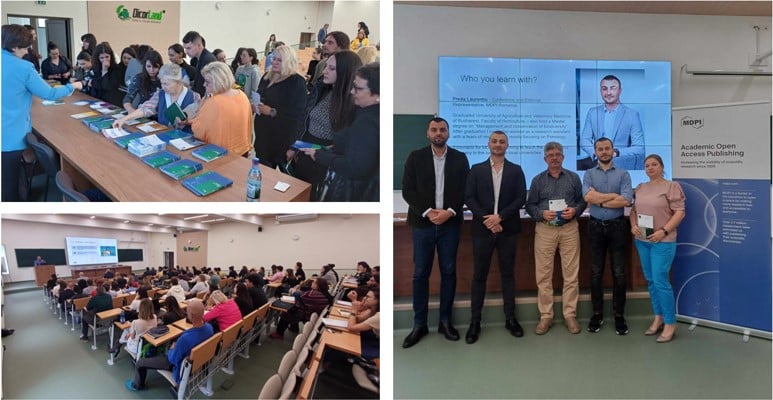
MDPI is grateful for all the attendees, speakers, and organizers involved in these events. Through their enthusiasm and dedication, these events were great successes.
31 July 2024
Meet Us at the 36th EUROSENSORS Conference, 1–4 September 2024, Debrecen, Hungary

MDPI will be attending the 36th EUROSENSORS conference, which will be held from 1 to 4 September 2024 in Debrecen, Hungary.
EUROSENSORS is a series of highly successful conferences that began in Cambridge in 1987 and that has been the only European forum to cover the entire field of sensors, actuators, microsystems and nanosystems. It is the leading European conference devoted to the advancement of high technologies in the aforementioned fields, providing an excellent opportunity to bring together scientists and engineers from academia, research centres, national research institutes and companies to present and discuss the latest results in these fields.
For more than 35 years, the EUROSENSORS Conference was the largest European forum for scientists and engineers from academia, research institutes and companies, and especially for students to present and discuss the latest trends and results in Sensors, actuators, micro- and nanosystems. EUROSENSORS attracts more than 500 participants every year, mainly from Europe but also from abroad.
The following MDPI journals will be represented at the conference:
- Sensors;
- Biosensors;
- Electronics;
- Micromachines;
- Nanoenergy Advances;
- Actuators;
- Analytica;
- Biomimetics;
- Drones;
- Fibers;
- JLPEA;
- Nanomanufacturing;
- Photonics;
- Robotics;
- Technologies;
- Bioengineering;
- Chemosensors;
- JETA;
- Telecom.
If you are planning to attend the conference, please feel free to stop by our booth (#13) and start a conversation with us. Our delegates look forward to meeting you in person and answering any questions that you may have. For more information about the conference, please visit the following link: https://eurosensors2024.eu/.
30 July 2024
Meet Us at the 1st International Conference on AI Sensors & the 10th International Symposium on Sensor Science, 1–4 August 2024, Singapore

MDPI will be attending The 1st International Conference on AI Sensors & The 10th International Symposium on Sensor Science held in Singapore from 1 to 4 August 2024.
The 1st International Conference on AI Sensors & The 10th International Symposium on Sensor Science is being held by MDPI and will be a premier gathering of innovators, researchers, and experts at the forefront of sensors, sensing technology, artificial intelligence for sensing applications, and AI-enhanced sensing systems.
The following MDPI journals will be represented:
- Sensors;
- Micromachines;
- J. Imaging;
- Photonics;
- Energies;
- Actuators;
- AI;
- Automation;
- Biosensors;
- Chemosensors;
- Drones;
- Electronics;
- Inventions;
- JCP;
- JSAN;
- Machines;
- Materials;
- Metrology;
- Remote Sensing;
- Smart Cities;
- Technologies;
- Signals.
If you plan on attending this conference, feel free to stop by our booth on the second floor. Our delegates look forward to meeting you in person to answer any questions you may have.
For more information about the conference, please see the following link: https://sciforum.net/event/aisi3s2024.
10 July 2024
MDPI's Newly Launched Journals in June 2024
 Five new journals covering multiple subjects have launched their inaugural issue in June 2024. We are excited to be able to share with you the newest research rooted in the value of open access.
Five new journals covering multiple subjects have launched their inaugural issue in June 2024. We are excited to be able to share with you the newest research rooted in the value of open access.
We would like to express our deepest appreciation to all the Editorial Board Members and each journal will ensure its high-quality output using excellent editorial and rigorous peer review processes, to ensure that the articles achieve high impact and visibility.
Please feel free to browse and discover more about the new journals below.
|
Journal |
Founding Editor-in-Chief |
Journal Topics (Selected) |
 |
Prof. Dr. Marco Ranucci, IRCCS Policlinico San Donato, Italy |
anaesthetic medications; blood and fluid management; pain management; critical care; critical illness | view journal scope | submit an article |
 |
Dr. Giovanni E. Cacciamani, University of Southern California, USA |
surgical/procedural complications; complications; perioperative adverse events; postoperative adverse events | view journal scope | submit an article |
 |
Prof. Dr. Gassan Hodaifa, Universidad Pablo de Olavide, Spain |
laboratory management; laboratory safety; protective equipment; laboratory problems and challenges; laboratory Innovation | view journal scope | submit an article |
 |
Prof. Dr. Jan S. Suchodolski, Texas A&M University, USA |
companion animals health and disease; veterinary care and nutrition; genetics and genomics; behavior and welfare; human-animal relations | view journal scope | submit an article |
 |
Prof. Dr. Pierfrancesco De Paola, University of Naples Federico II, Italy |
real estate appraisal; economic and financial valuation of real estate projects; sustainable real estate; housing and urban economics | view journal scope | submit an article |
We wish to thank everyone who has supported the development of open access publishing. You are welcome to send an application here, or contact the New Journal Committee ([email protected]) if you would like to create more new journals.
9 July 2024
Sensors Webinar | Optical Sensing for Chemical and Biological Applications, 15 July 2024

The webinar Chair’s introduction:
It is my honor to serve as the Chair of this session devoted to optical sensing. Chemical sensors based on optical sensing play an ever-growing role in the detection and identification of historical, transient, or emerging events that are industrial, environmental, or biological in origin. These events play key roles in understanding the impact and prognosis of crucial processes in a variety of settings. For this session, three papers from the Special Issue have been selected to highlight industrial, environmental, and biological sensing application areas.
Our first speaker is Nicholas Materer, who investigates the detection of hydrogen peroxide in solutions encountered in industrial settings via a colorimetric method using test strips composed of a titanium (IV) compound with Ti-O-Ti-O-zig-zag chains coordinated to water and hydrogen sulfate ions. The second speaker is James Moulton, who will speak about measuring the turbidity of swellable copolymers of N-isopropylacrylamide (NIPA) to determine pH in ocean and seawater. The response of the NIPA copolymers to pH as a function of ionic strength and temperature of the solution in contact with the polyvinyl alcohol hydrogel membrane containing the NIPA copolymer particles was investigated. Variations in the polymer formulation, including the pH functional comonomer, crosslinker, and lower critical solution temperature modulator, were also investigated to understand their effect on the pH response of the polymer particles. The third speaker, Zeev Rosenzweig, will focus on recent advances in fluorescence bioimaging and sensing with nanoscale luminescent polymer dots (Pdots)—specifically, the use of organic dyes as dopant molecules to modify their optical properties to enable deep-red and near-infrared fluorescence bioimaging applications, as well as to impart the sensitivity of dye-doped Pdots towards selected analytes such as FLAG-tagged FLS2 membrane receptors in genetically engineered plant leaf cells. The fourth speaker is Marcin Ptaszek, who will give a presentation on hydroporphyrin energy-transfer arrays for bioimaging. The wide range of sensing technologies covered in this webinar, including novel analytical methodologies, unique platforms, and improvements in existing methods, are expected to be impactful for the future.
Date: 15 July 2024
Time: 9:00 p.m. CEST | 3:00 p.m. ET | 3:00 a.m. CST Asia
Webinar ID: 862 6295 5568
Webinar Secretariat: [email protected]
Webinar Announcement: https://sciforum.net/event/Sensors-19
Register now for free!
|
Speaker/Presentation |
Time in CEST |
Time in EDT |
|
Prof. Dr. Barry K. Lavine |
9:00 p.m.–9:10 p.m. |
3:00 p.m.–3:10 p.m. |
|
Dr. Nicholas Materer |
9:10 p.m.–9:30 p.m. |
3:10 p.m.–3:30 p.m. |
|
Dr. James T. Moulton |
9:30 p.m.–9:50 p.m. |
3:30 p.m.–3:50 p.m. |
|
Dr. Marcin Ptaszek |
9:50 p.m.–10:10 p.m. |
3:50 p.m.–4:10 p.m. |
|
Prof. Dr. Zeev Rosenzweig |
10:10 p.m.–10:30 p.m. |
4:10 p.m.–4:30 p.m. |
|
Q&A Session |
10:30 p.m.–10:45 p.m. |
4:30 p.m.–4:45 p.m. |
|
Prof. Dr. Barry K. Lavine |
10:45 p.m.–10:50 p.m. |
4:45 p.m.–4:50 p.m. |
After registering, you will receive a confirmation email containing information on how to join the webinar. Registrations with academic or institutional email addresses will be prioritized.
Unable to attend? Feel free to still register, and we will inform you when the recording is available.
Webinar Chair and Keynote Speakers:
- Prof. Dr. Barry Lavine, Oklahoma State University, USA;
- Dr. Nicholas Materer, Oklahoma State University, USA;
- Dr. James Moulton, Oklahoma State University, USA;
- Prof. Dr. Zeev Rosenzweig, Oklahoma State University, USA;
- Dr. Marcin Ptaszek, Oklahoma State University, USA.
Relevant Special Issue:
“Optical Sensing for Chemical and Biological Applications”
Guest Editors: Prof. Dr. Barry K. Lavine and Prof. Dr. Karl Booksh
Deadline for manuscript submissions: 31 July 2024
21 June 2024
Meet Us at the 50th International Micro and Nano Engineering Conference (MNE 2024), 16–19 September 2024, Montpellier, France

MDPI will be attending the 50th International Micro and Nano Engineering Conference (MNE 2024) held in Montpellier, France, from 16 to 19 September 2024.
The scientific topics of the conference cover all the domains impacted by micro/nano engineering activities:
- T1 – METHODS and PROCESS: micro/nano fabrication methods and processes;
- T2 – STRUCTURES and DEVICES: fabrication and integration of micro/nano structures and devices;
- T3 – SYSTEMS: micro/nano systems for computing, communication, sensing and quantum applications;
- T4 – BIO: micro/nano engineering for life and analytical sciences;
- T5 (New) – SUSTAINABILITY: energy efficiency of micro/nano engineering and environmental and ecological applications.
The MNE conference is the flagship event of the International Society for Micro- and Nanotechnology (iMNEs). It has always been the leading international conference for micro- and nano-fabrication, manufacturing techniques and applications of the fabricated micro/nanostructures, devices and microsystems in electronics, photonics, energy, environment, chemistry and life sciences. The MNE brings together researchers and experts from all over the world to meet and discuss the latest research results and their applications. Furthermore, the conference aims to promote, involve and train young talent in the field of micro and nano engineering.
The following MDPI journals will be represented:
- Micromachines;
- Nanomaterials;
- Fibers;
- Applied Nano;
- Micro;
- Eng;
- Technologies;
- Sensors;
- Machines;
- Bioengineering;
- Applied science;
- Nanomanufacturing;
- JETA.
If you plan on attending this conference, feel free to stop by our booth at #42. Our delegates look forward to meeting you in person to answer any questions you may have.
For more information about the conference, please see the following link: https://mne2024.imnes.org/.
20 June 2024
2023 Impact Factors for MDPI Journals Released

MDPI is pleased to announce the inclusion of 237 journals in the 2024 release of the Journal Citation Reports (JCR) and share the key results (see above).
This year, journals covered in the Emerging Sources Citation Index (ESCI) received category ranks together with journals in the Science Citation Index Expanded (SCIE) and Social Sciences Citation Index (SSCI). Overall, 139 MDPI journals indexed in ESCI are included in the new unified rankings for the first time.
Enhanced Comparability of Data
According to Clarivate, "the creation of unified category rankings [provides] a simpler and more complete category view for the evaluation of journal performance. [...] The category-first approach simplifies journal performance assessment with a holistic view of all journals in each subject category."
We are thrilled to announce that 72% of our ranked MDPI journals (171 of 237) are above average, in Q1 or Q2. Twenty-nine of our journals received their first Impact Factor this year, accounting for more than 5% of the journals accepted into the Web of Science last year.
MDPI Journals Ranked in JCR
The following data includes all MDPI journals indexed in SCIE, SSCI, ESCI and AHCI.
|
Journal |
Impact Factor |
Rank Quartile |
Category |
|
Q3 |
Acoustics |
||
|
Q2 |
Engineering, Mechanical |
||
|
Q2 |
Instruments & Instrumentation |
||
|
Q2 |
Management |
||
|
Q3 |
Respiratory System |
||
|
Q2 |
Engineering, Aerospace |
||
|
Q1 |
Agronomy |
||
|
Q2 |
Agricultural Engineering |
||
|
Q1 |
Agronomy |
||
|
Q1 |
Plant Sciences |
||
|
Q2 |
Computer Science, Artificial Intelligence |
||
|
Q2 |
Computer Science, Interdisciplinary Applications |
||
|
Q3 |
Computer Science, Artificial Intelligence |
||
|
Q2 |
Computer Science, Theory & Methods |
||
|
Q1 |
Agriculture, Dairy & Animal Science |
||
|
Q1 |
Veterinary Sciences |
||
|
Q1 |
Infectious Diseases |
||
|
Q1 |
Pharmacology & Pharmacy |
||
|
Q3 |
Immunology |
||
|
Q1 |
Biochemistry & Molecular Biology |
||
|
Q1 |
Chemistry, Medicinal |
||
|
Q1 |
Food Science & Technology |
||
|
Q2 |
Chemistry, Multidisciplinary |
||
|
Q1 |
Engineering, Multidisciplinary |
||
|
Q3 |
Materials Science, Multidisciplinary |
||
|
Q2 |
Physics, Applied |
||
|
Q2 |
Computer Science, Information Systems |
||
|
Q2 |
Engineering, Electrical & Electronic |
||
|
Q2 |
Telecommunications |
||
|
N/A |
Humanities, Multidisciplinary |
||
|
Q3 |
Environmental Sciences |
||
|
Q3 |
Meteorology & Atmospheric Sciences |
||
|
Q3 |
Physics, Atomic, Molecular & Chemical |
||
|
Q1 |
Audiology & Speech-language Pathology |
||
|
Q1 |
Mathematics, Applied |
||
|
Q2 |
Electrochemistry |
||
|
Q2 |
Energy & Fuels |
||
|
Q2 |
Materials Science, Multidisciplinary |
||
|
Q2 |
Psychology, Multidisciplinary |
||
|
Q2 |
Food Science & Technology |
||
|
Q2 |
Computer Science, Artificial Intelligence |
||
|
Q2 |
Computer Science, Information Systems |
||
|
Q1 |
Computer Science, Theory & Methods |
||
|
Q2 |
Engineering, Biomedical |
||
|
Q1 |
Biology |
||
|
Q2 |
Biochemistry & Molecular Biology |
||
|
Q2 |
Medicine, Research & Experimental |
||
|
Q1 |
Pharmacology & Pharmacy |
||
|
Q1 |
Engineering, Multidisciplinary |
||
|
Q3 |
Materials Science, Biomaterials |
||
|
Q1 |
Biochemistry & Molecular Biology |
||
|
Q1 |
Chemistry, Analytical |
||
|
Q1 |
Instruments & Instrumentation |
||
|
Q2 |
Nanoscience & Nanotechnology |
||
|
Q3 |
Biotechnology & Applied Microbiology |
||
|
Q1 |
Ornithology |
||
|
Q3 |
Neurosciences |
||
|
Q2 |
Construction & Building Technology |
||
|
Q2 |
Engineering, Civil |
||
|
Q2 |
Materials Science, Multidisciplinary |
||
|
Q1 |
Oncology |
||
|
Q4 |
Cardiac & Cardiovascular Systems |
||
|
Q2 |
Chemistry, Physical |
||
|
Q2 |
Cell Biology |
||
|
Q1 |
Materials Science, Ceramics |
||
|
Q3 |
Materials Science, Multidisciplinary |
||
|
Q2 |
Engineering, Chemical |
||
|
Q3 |
Chemistry, Multidisciplinary |
||
|
Q2 |
Chemistry, Analytical |
||
|
Q2 |
Electrochemistry |
||
|
Q1 |
Instruments & Instrumentation |
||
|
Q2 |
Pediatrics |
||
|
Q2 |
Engineering, Environmental |
||
|
Q2 |
Environmental Sciences |
||
|
Q3 |
Green & Sustainable Science & Technology |
||
|
Q2 |
Meteorology & Atmospheric Sciences |
||
|
Q2 |
Medicine, General & Internal |
||
|
Q3 |
Clinical Neurology |
||
|
Q3 |
Neurosciences |
||
|
Q2 |
Materials Science, Coatings & Films |
||
|
Q3 |
Materials Science, Multidisciplinary |
||
|
Q2 |
Physics, Applied |
||
|
Q3 |
Chemistry, Physical |
||
|
Q2 |
Mathematics, Interdisciplinary Applications |
||
|
Q2 |
Computer Science, Interdisciplinary Applications |
||
|
Q3 |
Physics, Condensed Matter |
||
|
Q2 |
Biochemistry & Molecular Biology |
||
|
Q2 |
Dermatology |
||
|
Q3 |
Computer Science, Information Systems |
||
|
Q2 |
Computer Science, Theory & Methods |
||
|
Q2 |
Crystallography |
||
|
Q3 |
Materials Science, Multidisciplinary |
||
|
Q3 |
Biochemistry & Molecular Biology |
||
|
Q2 |
Oncology |
||
|
Q3 |
Computer Science, Information Systems |
||
|
Q2 |
Multidisciplinary Sciences |
||
|
Q2 |
Dentistry, Oral Surgery & Medicine |
||
|
Q3 |
Dermatology |
||
|
Q3 |
Endocrinology & Metabolism |
||
|
Q1 |
Medicine, General & Internal |
||
|
Q2 |
Medicine, Research & Experimental |
||
|
Q2 |
Biodiversity Conservation |
||
|
Q3 |
Ecology |
||
|
Q1 |
Remote Sensing |
||
|
Q3 |
Environmental Sciences |
||
|
Q3 |
Geosciences, Multidisciplinary |
||
|
Q3 |
Ecology |
||
|
Q3 |
Economics |
||
|
Q2 |
Economics |
||
|
Q1 |
Education & Educational Research |
||
|
Q2 |
Computer Science, Information Systems |
||
|
Q2 |
Engineering, Electrical & Electronic |
||
|
Q2 |
Physics, Applied |
||
|
Q3 |
Energy & Fuels |
||
|
Q2 |
Physics, Multidisciplinary |
||
|
Q2 |
Environmental Sciences |
||
|
Q3 |
Genetics & Heredity |
||
|
Q4 |
Critical Care Medicine |
||
|
Q4 |
Dermatology |
||
|
European Journal of Investigation in Health Psychology and Education |
Q1 |
Psychology, Clinical |
|
|
Q2 |
Biotechnology & Applied Microbiology |
||
|
Q2 |
Materials Science, Multidisciplinary |
||
|
Q2 |
Ecology |
||
|
Q1 |
Forestry |
||
|
Q2 |
Fisheries |
||
|
Q2 |
Marine & Freshwater Biology |
||
|
Q3 |
Mechanics |
||
|
Q3 |
Physics, Fluids & Plasmas |
||
|
Q1 |
Food Science & Technology |
||
|
Q2 |
Multidisciplinary Sciences |
||
|
Q1 |
Forestry |
||
|
Q1 |
Mathematics, Interdisciplinary Applications |
||
|
Q3 |
Energy & Fuels |
||
|
Q3 |
Engineering, Chemical |
||
|
Q2 |
Computer Science, Information Systems |
||
|
Q2 |
Astronomy & Astrophysics |
||
|
Q4 |
Economics |
||
|
Q4 |
Mathematics, Interdisciplinary Applications |
||
|
Q4 |
Social Sciences, Mathematical Methods |
||
|
Q3 |
Gastroenterology & Hepatology |
||
|
Q4 |
Gastroenterology & Hepatology |
||
|
Q1 |
Polymer Science |
||
|
Q3 |
Ethnic Studies |
||
|
Q4 |
Family Studies |
||
|
Q3 |
Sociology |
||
|
Q2 |
Genetics & Heredity |
||
|
Q2 |
Geosciences, Multidisciplinary |
||
|
Q3 |
Geriatrics & Gerontology |
||
|
Q2 |
Health Care Sciences & Services |
||
|
Q2 |
Health Policy & Services |
||
|
Q4 |
Hematology |
||
|
Q4 |
Hematology |
||
|
N/A |
Humanities, Multidisciplinary |
||
|
Q2 |
Multidisciplinary Sciences |
||
|
Q1 |
Horticulture |
||
|
N/A |
Humanities, Multidisciplinary |
||
|
Q2 |
Water Resources |
||
|
Q4 |
Immunology |
||
|
Q2 |
Infectious Diseases |
||
|
Q2 |
Computer Science, Interdisciplinary Applications |
||
|
Q3 |
Computer Science, Information Systems |
||
|
Q2 |
Construction & Building Technology |
||
|
Q2 |
Engineering, Civil |
||
|
Q2 |
Transportation Science & Technology |
||
|
Q2 |
Chemistry, Inorganic & Nuclear |
||
|
Q1 |
Entomology |
||
|
Q2 |
Business, Finance |
||
|
Q1 |
Biochemistry & Molecular Biology |
||
|
Q2 |
Chemistry, Multidisciplinary |
||
|
Q1 |
Genetics & Heredity |
||
|
Q1 |
Pediatrics |
||
|
International Journal of Turbomachinery Propulsion and Power |
Q2 |
Engineering, Aerospace |
|
|
Q3 |
Engineering, Mechanical |
||
|
Q2 |
Engineering, Multidisciplinary |
||
|
Q2 |
Computer Science, Information Systems |
||
|
Q2 |
Geography, Physical |
||
|
Q2 |
Remote Sensing |
||
|
Q2 |
Cardiac & Cardiovascular Systems |
||
|
Q1 |
Medicine, General & Internal |
||
|
Q2 |
Materials Science, Composites |
||
|
Q3 |
Developmental Biology |
||
|
Q1 |
Engineering, Biomedical |
||
|
Q2 |
Materials Science, Biomaterials |
||
|
Q1 |
Sport Sciences |
||
|
Q2 |
Microbiology |
||
|
Q1 |
Mycology |
||
|
Q3 |
Imaging Science & Photographic Technology |
||
|
Q1 |
Psychology, Multidisciplinary |
||
|
Q3 |
Engineering, Electrical & Electronic |
||
|
Q2 |
Engineering, Manufacturing |
||
|
Q1 |
Engineering, Mechanical |
||
|
Q2 |
Materials Science, Multidisciplinary |
||
|
Q1 |
Engineering, Marine |
||
|
Q2 |
Engineering, Ocean |
||
|
Q2 |
Oceanography |
||
|
Q2 |
Health Care Sciences & Services |
||
|
Q1 |
Medicine, General & Internal |
||
|
Q2 |
Computer Science, Information Systems |
||
|
Q2 |
Telecommunications |
||
|
Journal of Theoretical and Applied Electronic Commerce Research |
Q1 |
Business |
|
|
Q1 |
Toxicology |
||
|
Q2 |
Biodiversity Conservation |
||
|
Q2 |
Communication |
||
|
Q2 |
Environmental Studies |
||
|
N/A |
Language & Linguistics |
||
|
Q2 |
Linguistics |
||
|
Q1 |
Law |
||
|
Q1 |
Biology |
||
|
Q2 |
Management |
||
|
Q2 |
Operations Research & Management Science |
||
|
Q2 |
Engineering, Mechanical |
||
|
Q2 |
Computer Science, Artificial Intelligence |
||
|
Q2 |
Computer Science, Interdisciplinary Applications |
||
|
Q2 |
Engineering, Electrical & Electronic |
||
|
Q3 |
Engineering, Electrical & Electronic |
||
|
Q2 |
Engineering, Mechanical |
||
|
Q2 |
Chemistry, Inorganic & Nuclear |
||
|
Q3 |
Chemistry, Physical |
||
|
Q3 |
Materials Science, Multidisciplinary |
||
|
Q1 |
Chemistry, Medicinal |
||
|
Q1 |
Pharmacology & Pharmacy |
||
|
Q3 |
Chemistry, Physical |
||
|
Q2 |
Materials Science, Multidisciplinary |
||
|
Q1 |
Metallurgy & Metallurgical Engineering |
||
|
Q2 |
Physics, Applied |
||
|
Q2 |
Physics, Condensed Matter |
||
|
Q2 |
Mathematics, Interdisciplinary Applications |
||
|
Q1 |
Mathematics |
||
|
Q1 |
Medicine, General & Internal |
||
|
Q2 |
Chemistry, Physical |
||
|
Q2 |
Engineering, Chemical |
||
|
Q2 |
Materials Science, Multidisciplinary |
||
|
Q2 |
Polymer Science |
||
|
Q2 |
Biochemistry & Molecular Biology |
||
|
Q3 |
Materials Science, Multidisciplinary |
||
|
Q2 |
Metallurgy & Metallurgical Engineering |
||
|
Q3 |
Biochemical Research Methods |
||
|
Q3 |
Microbiology |
||
|
Q2 |
Chemistry, Analytical |
||
|
Q2 |
Instruments & Instrumentation |
||
|
Q3 |
Nanoscience & Nanotechnology |
||
|
Q2 |
Physics, Applied |
||
|
Q2 |
Microbiology |
||
|
Q2 |
Geochemistry & Geophysics |
||
|
Q2 |
Mineralogy |
||
|
Q2 |
Mining & Mineral Processing |
||
|
Q3 |
Engineering, Multidisciplinary |
||
|
Q4 |
Chemistry, Organic |
||
|
Q2 |
Biochemistry & Molecular Biology |
||
|
Q2 |
Chemistry, Multidisciplinary |
||
|
Q3 |
Computer Science, Artificial Intelligence |
||
|
Q2 |
Computer Science, Cybernetics |
||
|
Q3 |
Computer Science, Information Systems |
||
|
Q2 |
Chemistry, Multidisciplinary |
||
|
Q2 |
Materials Science, Multidisciplinary |
||
|
Q2 |
Nanoscience & Nanotechnology |
||
|
Q2 |
Physics, Applied |
||
|
Q2 |
Clinical Neurology |
||
|
Q3 |
Clinical Neurology |
||
|
Q4 |
Neurosciences |
||
|
Q4 |
Environmental Sciences |
||
|
Q2 |
Biochemistry & Molecular Biology |
||
|
Q2 |
Genetics & Heredity |
||
|
Q1 |
Nursing |
||
|
Q1 |
Nutrition & Dietetics |
||
|
Q3 |
Marine & Freshwater Biology |
||
|
Q3 |
Oceanography |
||
|
Q4 |
Optics |
||
|
Q3 |
Chemistry, Organic |
||
|
Q3 |
Astronomy & Astrophysics |
||
|
Q2 |
Physics, Nuclear |
||
|
Q3 |
Physics, Particles & Fields |
||
|
Q2 |
Microbiology |
||
|
Q2 |
Pathology |
||
|
Q3 |
Pediatrics |
||
|
Q2 |
Chemistry, Medicinal |
||
|
Q1 |
Pharmacology & Pharmacy |
||
|
Q1 |
Pharmacology & Pharmacy |
||
|
Q3 |
Pharmacology & Pharmacy |
||
|
Q2 |
History & Philosophy of Science |
||
|
N/A |
Philosophy |
||
|
Q2 |
Optics |
||
|
Q2 |
Physics, Multidisciplinary |
||
|
Q1 |
Plant Sciences |
||
|
Q3 |
Physics, Fluids & Plasmas |
||
|
Q1 |
Polymer Science |
||
|
Q1 |
Polymer Science |
||
|
Q2 |
Engineering, Chemical |
||
|
Q4 |
Materials Science, Biomaterials |
||
|
Q2 |
Biochemistry & Molecular Biology |
||
|
Q4 |
Psychiatry |
||
|
Q1 |
Information Science & Library Science |
||
|
Q3 |
Instruments & Instrumentation |
||
|
Q3 |
Materials Science, Characterization & Testing |
||
|
Q4 |
Quantum Science & Technology |
||
|
Q2 |
Geosciences, Multidisciplinary |
||
|
Q3 |
Chemistry, Multidisciplinary |
||
|
Q2 |
Green & Sustainable Science & Technology |
||
|
N/A |
Religion |
||
|
Q2 |
Environmental Sciences |
||
|
Q1 |
Geosciences, Multidisciplinary |
||
|
Q2 |
Imaging Science & Photographic Technology |
||
|
Q2 |
Remote Sensing |
||
|
Q3 |
Medicine, General & Internal |
||
|
Q4 |
Obstetrics & Gynecology |
||
|
Q4 |
Reproductive Biology |
||
|
Q2 |
Environmental Sciences |
||
|
Q3 |
Green & Sustainable Science & Technology |
||
|
Q2 |
Business, Finance |
||
|
Q2 |
Robotics |
||
|
Q3 |
Public, Environmental & Occupational Health |
||
|
Q3 |
Pharmacology & Pharmacy |
||
|
Q2 |
Chemistry, Analytical |
||
|
Q2 |
Engineering, Electrical & Electronic |
||
|
Q2 |
Instruments & Instrumentation |
||
|
Q3 |
Chemistry, Analytical |
||
|
Q2 |
Medicine, General & Internal |
||
|
Q3 |
Psychology, Multidisciplinary |
||
|
Q2 |
Social Sciences, Interdisciplinary |
||
|
Q2 |
Womens Studies |
||
|
Q1 |
Engineering, Electrical & Electronic |
||
|
Q1 |
Urban Studies |
||
|
Q2 |
Social Sciences, Interdisciplinary |
||
|
Q2 |
Sociology |
||
|
Q2 |
Soil Science |
||
|
Q3 |
Chemistry, Physical |
||
|
Q3 |
Materials Science, Multidisciplinary |
||
|
Q2 |
Sport Sciences |
||
|
Q4 |
Mathematics, Interdisciplinary Applications |
||
|
Q3 |
Statistics & Probability |
||
|
Q3 |
Chemistry, Physical |
||
|
Q3 |
Materials Science, Multidisciplinary |
||
|
Q4 |
Surgery |
||
|
Q2 |
Environmental Sciences |
||
|
Q2 |
Environmental Studies |
||
|
Q3 |
Green & Sustainable Science & Technology |
||
|
Q2 |
Multidisciplinary Sciences |
||
|
Q1 |
Social Sciences, Interdisciplinary |
||
|
Q1 |
Engineering, Multidisciplinary |
||
|
Q3 |
Telecommunications |
||
|
Q4 |
Hematology |
||
|
Q2 |
Radiology, Nuclear Medicine & Medical Imaging |
||
|
Q2 |
Environmental Sciences |
||
|
Q1 |
Toxicology |
||
|
Q2 |
Food Science & Technology |
||
|
Q1 |
Toxicology |
||
|
Q2 |
Infectious Diseases |
||
|
Q2 |
Parasitology |
||
|
Q1 |
Tropical Medicine |
||
|
Q2 |
Astronomy & Astrophysics |
||
|
Q2 |
Physics, Particles & Fields |
||
|
Q3 |
Environmental Sciences |
||
|
Q3 |
Environmental Studies |
||
|
Q2 |
Geography |
||
|
Q3 |
Regional & Urban Planning |
||
|
Q2 |
Urban Studies |
||
|
Q1 |
Immunology |
||
|
Q1 |
Medicine, Research & Experimental |
||
|
Q2 |
Engineering, Mechanical |
||
|
Q2 |
Transportation Science & Technology |
||
|
Q2 |
Veterinary Sciences |
||
|
Q3 |
Engineering, Mechanical |
||
|
Q3 |
Mechanics |
||
|
Q2 |
Virology |
||
|
Q2 |
Environmental Sciences |
||
|
Q2 |
Water Resources |
||
|
Q2 |
Economics |
||
|
Q2 |
Political Science |
||
|
Q1 |
Social Sciences, Interdisciplinary |
||
|
Q2 |
Engineering, Electrical & Electronic |
||
|
Q2 |
Transportation Science & Technology |
Source: 2023 Journal Impact Factors, Journal Citation Reports TM (Clarivate, 2024)
About MDPI
A pioneer in scholarly, open access publishing, MDPI has supported academic communities since 1996. MDPI is leading the transition to open science by making more research free and accessible to everyone. Over 3.5 million researchers have entrusted MDPI with publishing their scientific discoveries. MDPI’s editorial process is bolstered by a network of dedicated reviewers, a team of 6000 professional, well-trained staff members, and an in-house article submission platform that was designed to ensure efficient processes within its 440 fully open access titles.
20 June 2024
Sensors Receives an Increased CiteScore of 7.3

We are pleased to inform you that Sensors (ISSN: 1424-8220) has received an increased CiteScore of 7.3. CiteScore provides transparent metrics that enable well-informed publishing strategies, library collection development, and the benchmarking of journal performance. It is now a standard citation metric alongside SNIP and SJR that gives an up-to-date view of a journal’s impact.
The 2023 CiteScore provides an assessment of the scientific influence of journals in the 2020 to 2023 period.
This is a reflection of the excellent performance, support, and dedication of all journal editors, reviewers, authors, and readers.
Sensors’ CiteScore ranks as follows:
- Q1 (18 out of 136) in the “Physics and Astronomy: Instrumentation” category;
- Q1 (32 out of 141) in the “Chemistry: Analytical Chemistry” category;
- Q1 (146 out of 738) in the “Engineering: Electrical and Electronic Engineering” category;
- Q1 (87 out of 379) in the “Computer Science: Information Systems” category.
For more journal statistics, please visit https://www.mdpi.com/journal/sensors/stats.
Thank you to everyone who has contributed to the journal.
Sensors Editorial Office
7 June 2024
MDPI Calls for Greater Open Access to Science for Ocean Protection
On UNESCO’s 2024 Oceans Day, MDPI encourages the scientific community to increase the accessibility of ocean research to accelerate ocean conservation.
Basel, Switzerland, June 7, 2024: MDPI, a leading open access (OA) publisher, is proud to announce its active support for World Oceans Day 2024, celebrated under UNESCO’s Ocean Decade framework. MDPI’s CEO, Stefan Tochev hopes that “the latest ocean research can be made freely accessible to help empower scientists and communities at large to save our oceans,” under UNESCO’s Ocean Decade until 2030.
Open Access: A Catalyst for Ocean Action
MDPI’s presence at the UNESCO Ocean Decade Conference 2024 highlights our unwavering commitment to using OA to advance ocean science, support research communities, and promote sustainable ocean management.
"Our involvement in the UNESCO Ocean Decade Conference underscores MDPI's commitment to the underfunded Ocean SDG. By promoting OA to scientific articles and books on SDGs, we aim to inspire critical actions," said Tochev. "Our initiatives, like the World Sustainability Award and Emerging Sustainability Award, further demonstrate our dedication to advancing sustainability.”
Showcasing MDPI’s Contributions to Ocean Research
Over the past three years, MDPI has published 30,000 papers focused on ocean research and related topics. Key MDPI journals contributing to this body of work include:
- Journal of Marine Science and Engineering (4.9k papers)
- Remote Sensing (2.6k papers)
- Sustainability (2k papers)
- International Journal of Molecular Sciences (IJMS) (1.7k papers)
- Marine Drugs (1.5k papers)
- Water (1.5k papers)
These publications highlight MDPI’s contributions to ocean science, reinforcing our role in the broader sustainability agenda by promoting blue innovation and economy.
Additionally, MDPI has launched Oceans, an international, peer-reviewed forum specifically aimed at publishing studies related to all branches of oceanography with an emphasis on the functioning of the ocean and the sustainable use of its resources and ecosystem services.
Affirming MDPI’s Commitment to Ocean Science
MDPI’s commitment to OA is pivotal in addressing critical global challenges, from climate change to ocean sustainability. Our efforts resonate with Outcome 4 of the UNESCO Ocean Decade action roadmap: an accessible ocean with open and equitable access to data, information, technology, and innovation. By aligning with UNESCO’s goals, MDPI continues to contribute to shaping a sustainable future for our oceans, reinforcing our position as a forward-thinking publisher dedicated to environmental stewardship and scientific excellence.
For more information, contact Rui Duarte at [email protected] or +41764313242.
About MDPI
A pioneer in scholarly, open access publishing, MDPI has supported academic communities since 1996. MDPI is leading the transition to open science by making more research free and accessible to everyone. Over 3.5 million researchers have entrusted MDPI with publishing their scientific discoveries. MDPI’s editorial process is bolstered by a network of dedicated reviewers, a team of over 6000 professional, well-trained staff members, and an in-house article submission platform that was designed to ensure efficient processes within its 430 fully open access titles.
5 June 2024
MDPI Sets a New Benchmark for Publishing Excellence

95% of authors rate MDPI’s publication process as excellent or good, setting a new benchmark in scientific publishing – reveals 2023 Annual Report.
Basel, Switzerland, June 4, 2024: MDPI, the leading open access (OA) publisher, proudly announces the release of its 2023 Annual Report, detailing remarkable achievements and reaffirming its leadership in advancing OA publishing. In 2023, MDPI received 655,065 submissions, of which 285,244 articles were published. The company now commands a 17% market share in gold open access articles, with a median publication time of six weeks.
Stefan Tochev, MDPI's CEO, stated, "As a pioneer in open access publishing, MDPI has long been a game-changer in the scholarly community, serving millions of authors around the world to ensure the latest research is freely available. Reflecting on our incredible journey at MDPI, 2023 has been marked by growth in paper submissions, ambitious projects and initiatives aimed at improving our internal processes and delivering top-notch services to our scientists."
MDPI's 2023 Annual Report highlights several key achievements:
- 17% market share in gold open access articles across all disciplines.
- Record satisfaction rates: 95% of authors, 82% of reviewers, and 85% of guest editors.
- Enhanced editorial standards and feedback processes.
- Increased reach and impact with 54 new MDPI journal inclusions in Scopus, 29 in Web of Science, and 77 in DOAJ.
MDPI’s unwavering commitment to advancing OA has transformed the landscape of scholarly publishing, making high-quality research freely accessible to the global scientific community. The continuous improvement in our editorial standards and feedback processes underscores MDPI’s dedication to ensuring academic integrity and excellence.
Global Reach and Collaboration
MDPI’s global footprint continues to expand, with authors from diverse regions: 37% from Asia/Pacific, 36% from Europe, 15% from the Americas, and 12% from other parts of the world. The company’s fully OA platform attracted nearly 14 million monthly visitors in 2023, reflecting its widespread influence in the scientific community.
Commitment to Partnerships
With over 800 institutional partners, MDPI continues to demonstrate its dedication to providing reliable and collaborative publishing services. The introduction of a transparent flat-fee model highlights MDPI's ongoing efforts to enhance affordability and support to the academic community. For more details read our 2023 Annual Report.
For more information, contact Rui Duarte at [email protected] or +41764313242.
About MDPI
A pioneer in scholarly, open access publishing, MDPI has supported academic communities since 1996. MDPI is leading the transition to open science by making more research free and accessible to everyone. Over 3.5 million researchers have entrusted MDPI with publishing their scientific discoveries. MDPI’s editorial process is bolstered by a network of dedicated reviewers, a team of over 6000 professional, well-trained staff members, and an in-house article submission platform that was designed to ensure efficient processes within its 430 fully open access titles.
4 June 2024
MDPI Insights: The CEO's Letter #12 - First Term as CEO, Tu Youyou Award, Books Report

Welcome to the MDPI Insights: The CEO's Letter.
In these monthly letters, I will showcase two key aspects of our work at MDPI: our commitment to empowering researchers and our determination to facilitating open scientific exchange.
Opening Thoughts

Renewed Term as CEO of MDPI
I released the first CEO Letter at the end of June 2023, reflecting on my first month as CEO. Looking back at the first release, I’m pleased to see a marked consistency of content – from talking about open access (OA) and highlighting the great work being done at MDPI, to bringing together the science community with our conferences and building relations with our editorial board members and our industry as a whole.
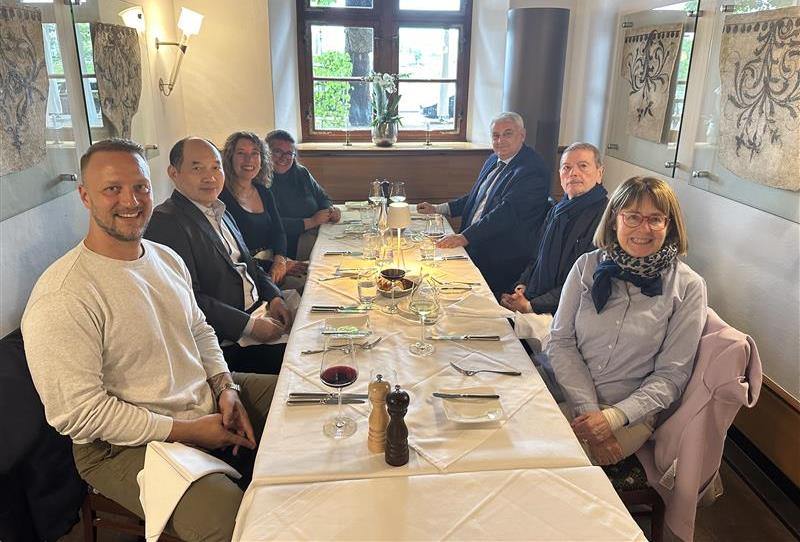
For example, in the first letter, I highlighted our meeting with Dr. Eric O. Freed, the founding and current Editor-in-Chief (EiC) of our journal Viruses. Meeting with Eric is a pleasure, as he has a strong commitment and clear vision for the journal.
On 21 May, 2024 we met with EiC Prof. Dr. Antonino Carbone, and Section EiC Prof. Dr. Alberto Signore (pictured on the left), of our journal Hemato (tracked for Impact Factor, and indexed in Scopus), showing our continued and active collaboration with our chief editors to develop the visions for the journal. Over the course of the day, we gathered feedback and gained an understanding of the journal's expectations and focus on strategic growth.
Reflections on my first year as CEO: achievements and initiatives
During my first year as CEO, there have been many remarkable moments, including a strong focus on bringing people together, focusing on company communications and performance.
According to a recent study of 3,400 people across 10 countries, “Managers impact employees’ mental health (69%) more than doctors (51%) or therapists (41%) — and even the same as a partner (69%).” This is an important topic for me, and perhaps that’s why I place a high value on management culture due to its tangible impact on people’s lives.
When I joined MDPI, I created a weekly meet-up for the Corporate Marketing department and their team leads. On the final Thursday of every month, we hold a Global Marketing meet-up to present projects, share knowledge, and conduct training. For years, I’ve maintained the tradition of ending each of our monthly global calls with a group photo to boost morale, motivation, and productivity, and to finish on a positive note.
In keeping with this, when I stepped into the role of CEO, I launched a bi-weekly management meeting, chairing over 20 MDPI Management Team meetings in my first year. These sessions provide an opportunity for managers to present their team’s work, focusing on their achievements and the challenges they face, while at the same time creating space for sharing knowledge.
“I firmly believe that OA is the future of publishing”
I co-organized and co-led the 2023 MDPI Strategy Management meeting this past October, from which we established an Executive Task Force that meets monthly to prioritize projects aimed at building MDPI into the world’s most trusted publisher. To achieve our goals, we as managers need to maintain collaborative communication and connect to the bigger picture.
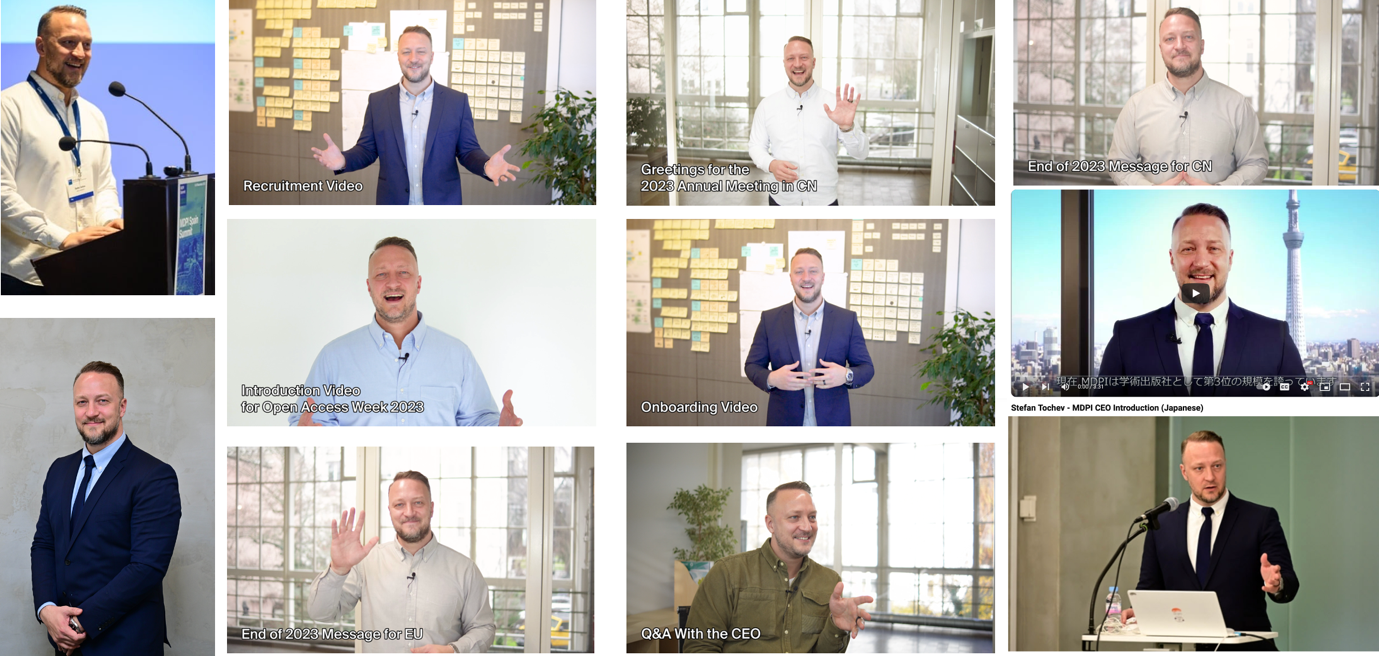
As CEO, I focused on leadership communication by publishing 12 CEO Letters, one for each month of my tenure, to share more about MDPI news and achievements. I also produced ten videos to help further communicate our message.
I was happy to attend eight publishing and conference events, including STM in Frankfurt and Washington, APE, and R2R, and facilitate critical company meetings with Elsevier, Web of Science, ResearchGate, DOAJ, and others. It was a pleasure to meet and have discussions with key organizations and governing bodies such as CAS in China and ANVUR in Italy.
The best part was the opportunity to visit seven MDPI offices across Europe and Asia-Pacific, meeting with local managers and colleagues and supporting them in person. As part of this, I conducted training sessions while continuing to lead the Corporate Marketing department.
Looking ahead
My goal for my second year as CEO is to continue building on the initiatives from the past, including leadership communications, public relations, educational marketing, and company culture, while representing MDPI to the best of my ability. Additionally, I have a few new projects I hope to launch that I believe will be valuable to MDPI and the industry at large.
I firmly believe that OA is the future of publishing, and I am grateful to be in a position to advocate for this belief as part of MDPI, the world's leading open access publisher.
Thank you to our staff and industry friends for your genuine support in this role.
Impactful Research

Nominations Open for the Prestigious Tu Youyou Award 2024
I am pleased to share that MDPI has opened nominations for the 2024 Tu Youyou Award, a prestigious recognition established in honour of Professor Tu Youyou, Nobel Laureate, whose work has significantly transformed the global fight against malaria.
The Tu Youyou Award offers CHF 100,000
In 2015, Professor Tu Youyou was awarded the Nobel Prize in Physiology or Medicine for her discovery of artemisinin, significantly reducing mortality rates from malaria and shaping global health policies. Artemisinin-based combination therapies (ACTs) are now the standard treatment endorsed by the World Health Organization (WHO), saving countless lives, especially in regions heavily burdened by malaria.
MDPI Special Issue
To mark Professor Tu’s 80th birthday in 2009, MDPI’s journal Molecules issued a Special Issue focusing on her contributions to medical research. Recognizing her continuous contribution, MDPI created the Tu Youyou Award in 2016 to honour outstanding achievements in natural products and medicinal chemistry.
The deadline for nominations is 31 December 2024
Nominations are open to scientists excelling in natural products and medicinal chemistry. Eligible nominators include academic institutes, universities, and societies. The deadline for nominations is 31 December 2024, with the winners to be announced on 30 April 2025. The Tu Youyou Award offers CHF 100,000, split equally among the winners.
MDPI encourages the academic community to nominate individuals who have demonstrated excellence and innovation in line with Professor Tu’s legacy. This award not only honours individual achievement but also encourages further scientific exploration and discovery in critical areas of medicine.
This award embodies our deep commitment to groundbreaking research that drives societal progress and celebrates the legacy of one of the greatest medical innovators of our time.
Inside MDPI

2023 MDPI Books Report
In past CEO letters, I have highlighted our publishing process and the impactful peer-reviewed articles that represent the core output of scholarly publishing. However, scholarly books are another pillar of publishing that MDPI also services, which our core audience may not be fully aware of. In this section, I highlight the 2023 MDPI Books report, released by our MDPI Books team in May 2024.
Download the 2023 MDPI Books Report
In the report, you will find a summary of MDPI Books’ 10th anniversary, the books indexed in the Web of Science Book Citation Index, our market outreach, and our outlook for 2024.
MDPI Books celebrated its 10th anniversary in 2023
MDPI Books published its first OA Reprint, “From the Renaissance to the Modern World,” in 2013. Over the past ten years, MDPI Books has seen a significant increase in both the volume and nature of published Reprints. As of December 2023, our catalogue includes a total of 7,369 Reprints, with 1,811 of them added in 2023 alone. MDPI Books includes monographs, book series, edited books and reprints of special issues and topical collections, among other book types.

We’re also celebrating the 10-year MDPI anniversary of Laura Wagner, Head of MDPI Books.
Laura Wagner (Head of Books Division)
Laura holds a Bachelor’s degree in Art History and History from the University of Basel. After her studies, she started her career at an art gallery in Basel.
Since joining MDPI in 2014, Laura has held several roles within the company. This included editorial work, development of reprint and book services, and the temporary management of the journal Arts.
Currently Laura holds the role of Head of Books Division and is in charge of the development and strategic direction of MDPI Books.
MDPI Books indexed in Web of Science Book Citation Index
Another milestone in 2023 was the indexing of four book titles in the Web of Science Book Citation Index. The indexing of our open access books is crucial for their reach and accessibility, ensuring higher visibility within the open science community.

- Self-Representation in an Expanded Field: From Self-Portraiture to Selfie, Contemporary Art in the Social Media Age by editor Ace Lehner
- Towards Socially Integrative Cities: Perspectives on Urban Sustainability in Europe and China by editors Bernhard Müller, Jian Liu, Jianming Cai, Paulina Schiappacasse, Hans-Martin Neumann, and Baojun Yang
- Transitioning to Gender Equality by editors Christa Binswanger and Andrea Zimmermann
- Under Construction: Performing Critical Identity by editor Marie-Anne Kohl
If you would like to learn more about MDPI Books, please visit: www.mdpi.com/books
If you are thinking of writing or editing a book, you can submit your proposal at www.mdpi.com/books/publish-with-us, or email us at [email protected].
Coming Together for Science

Polymers 2024 – Polymers for a Safe and Sustainable Future
Our conference team successfully managed the Polymers 2024 – Polymers for a Safe and Sustainable Future international conference which took place from 28–31 May 2024 in Athens, Greece. The conference was chaired by Prof. Dr. Dimitrios Bikiaris and Prof. Dr. Konstantinos Triantafyllidis from the Aristotle University of Thessaloniki, Greece, and Dr. Ioanna Deligkiozi from AXIA Innovation, Germany. In total, the conference had 259 accepted abstracts and over 300 attendees from 22 different countries.
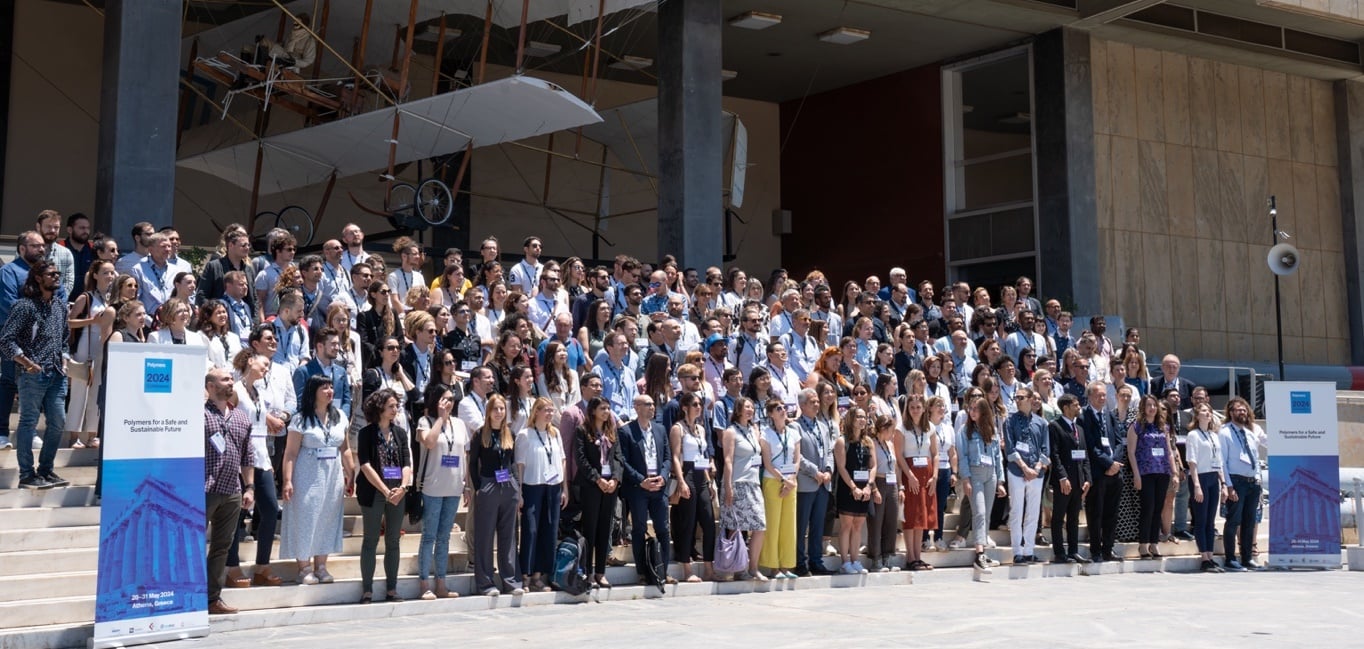
The conference featured three keynote speakers and 12 invited speakers, including esteemed scholars from Europe, Asia, Africa, and Canada. It included 60 selected talks and 189 posters, chosen by the 24 members of the Scientific Committee along with the three Conference Chairs. The event explored the latest scientific advancements and innovations in polymer science, focusing on creating safe, sustainable, and environmentally friendly materials. Emphasizing green polymer chemistry and the use of bioresources, the conference promoted the synthesis of biobased and biodegradable polymers.
The conference featured esteemed scholars from Europe, Asia, Africa, and Canada
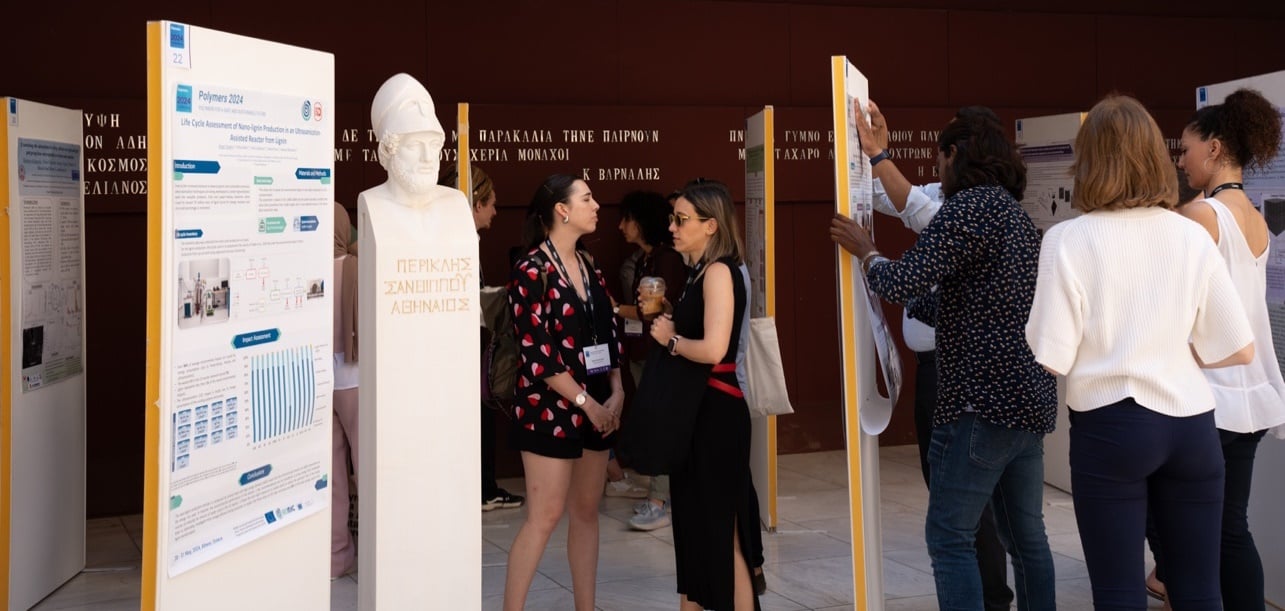
Conference awards
The conference also presented three awards: two sponsored by the journal Polymers – The Best Poster Award (€500) and the Best Oral Presentation Award (€600) – and one sponsored by Ossila, the Best Student Poster Award (€500).
Thank you to our 16 sponsors, three partnering societies (Hellenic Polymer Society, European Polymer Federation, and North American Thermal Analysis Society [NATAS]) and eight media partners.
Upcoming in-person event
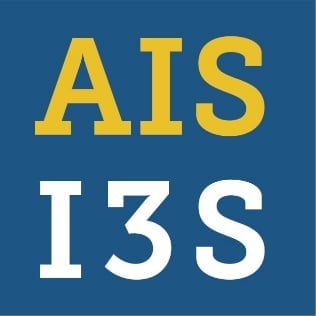
1–4 August, 2024
The 1st International Conference on AI Sensors & The 10th International Symposium on Sensor Science
Location: Singapore
The AI Sensors 2024 Conference will unite innovators and experts in the realms of sensors, sensing technology, and artificial intelligence.
Find more upcoming MDPI events here.
Closing Thoughts
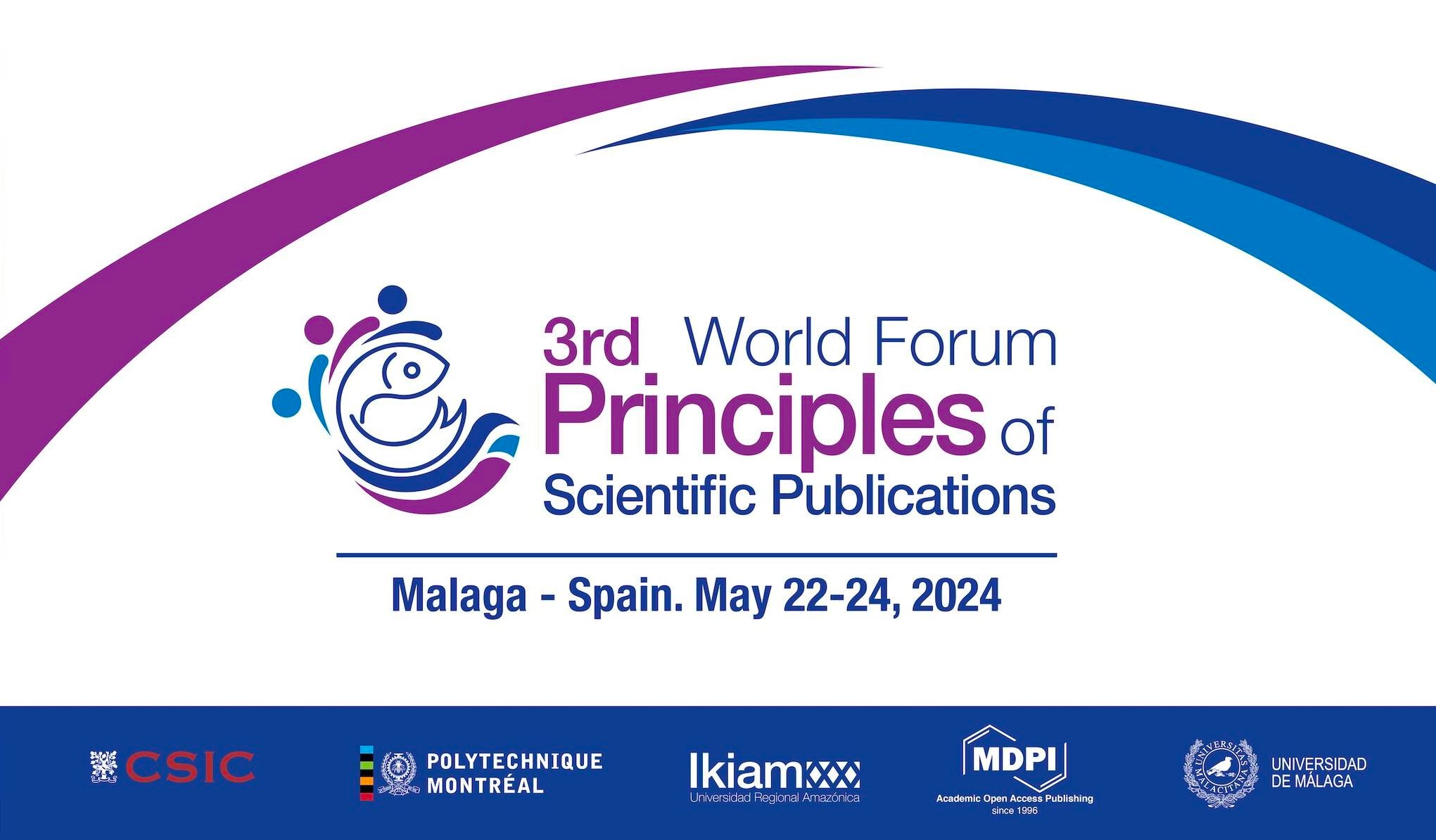
3rd World Forum Principles of Scientific Publications
I’m pleased to share that MDPI sponsored and attended the 3rd World Forum on Principles of Scientific Publications, which took place from 22–24 May in Malaga, Spain. The event brought together academic professionals and leading researchers to discuss critical topics in the realm of publishing and research. Presentation topics included Open Science, AI in Publishing, Predatory Journals, Fake Publications, Challenges for Non-native English Speakers, and more.
“It was great to see strong support from MDPI authors in the audience”
MDPI presentations
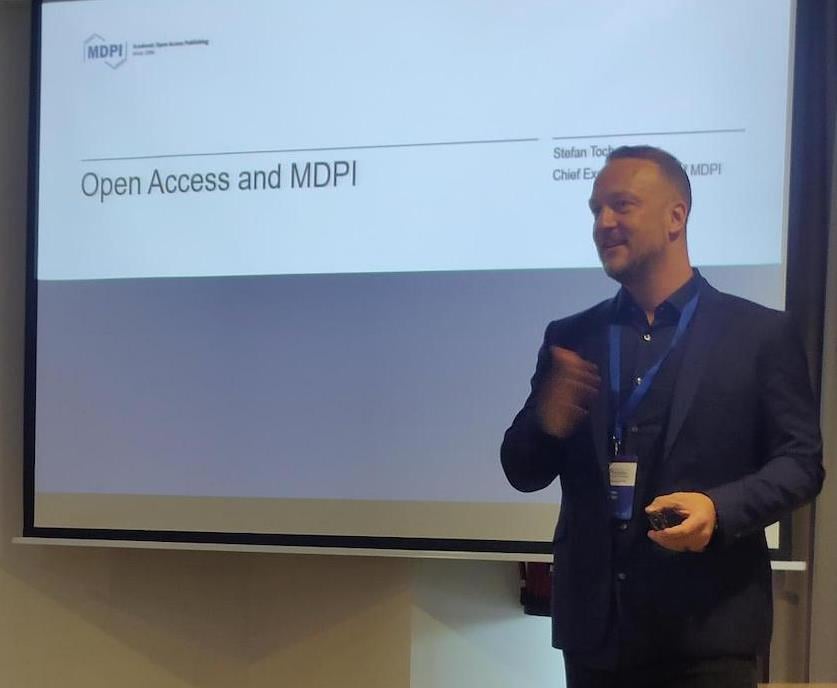
Stefan Tochev (CEO, MDPI) presenting at the 3rd World Forum Principles of Scientific Publications
I had the privilege of attending and presenting at the event, along with my colleague Dr. Enric Sayas (Business Analyst, MDPI) from our Barcelona office, who explored the ethical concerns and opportunities brought by AI in publishing.
I took the opportunity to present on Open Science, the benefits of Open Access, and MDPI’s performance, operations, and investment in ethics. Special thanks to Evan Escamilla (Project Manager, MDPI Books) and Facundo Santomé (Sr. Marketing Manager, MDPI) who also joined the conference.
It was great to see strong support from MDPI authors in the audience who shared their positive experiences publishing with us. Their story reflects the experience of the vast majority of authors who choose to work with MDPI.
We also encountered some conservative views on OA, which created an opportunity for open discussion aimed at addressing concerns about OA and MDPI. Engaging in such discussions is important, as scepticism sometimes arises from misinformation or from a misunderstanding of who we are and how we operate. When we engage in open and honest discussion, we tend to see people getting a better understanding of MDPI, which helps address any misconceptions they may have had.
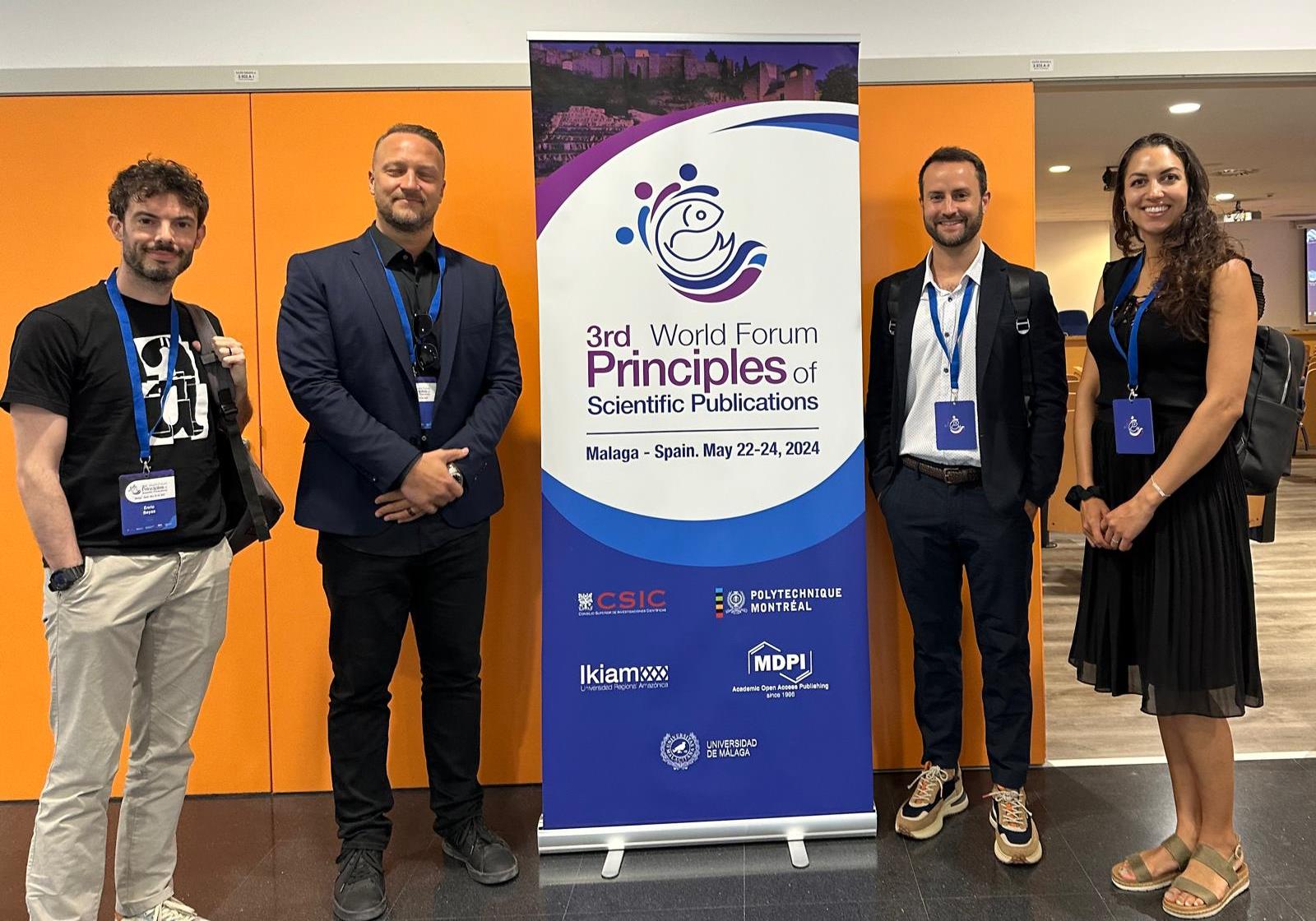
Left to right: Dr. Enric Sayas (Business Analyst, MDPI), Stefan Tochev (CEO, MDPI), Facundo Santomé (Sr. Marketing Manager, MDPI), and Evan Escamilla (Project Manager, MDPI Books) at 3rd World Forum Principles of Scientific Publications
Chief Executive Officer
MDPI AG
31 May 2024
Meet Us at the 2024 Opto-Electronics and Communications Conference, 30 June–4 July 2024, Melbourne, Australia

MDPI will be attending the 2024 Opto-Electronics and Communications Conference in Melbourne, Australia, which will take place from 30 June to 4 July 2024. OECC 2024 will involve plenaries from eminent experts, invited speakers, contributed presentations, special symposia, and exhibitions to demonstrate breakthroughs and innovations poised to transform the future of the opto-electronics and optical communications industry and sectors that rely on this industry.
The following MDPI journals will be represented at the conference:
- Electronics;
- Sensors;
- Chemosensors;
- Inventions;
- Journal of Imaging;
- Journal of Sensor and Actuator Networks;
- Micromachines;
- Optics;
- Photonics;
- Quantum Reports.
If you are planning to attend the above conference, please visit our booth. Our delegates look forward to meeting you in person and answering any questions that you may have. For more information about the conference, please visit the following website: https://oecc2024.com/.
27 May 2024
Meet Us at the 45th Canadian Symposium on Remote Sensing, 10–13 June 2024, Halifax, Canada

MDPI will be attending the 45th Canadian Symposium on Remote Sensing, held in Halifax, Canada, from 10 to 13 June, at booth #11.
CSRS is an annual meeting held in Canada. The 45th CSRS is chaired by Raymond Jahncke, Forest Inventory Lidar Data Analyst, Nova Scotia Natural Resources and Renewables, and the theme of this year’s conference is “Exploring Past, Present, and Future”. The conference aims to bring together academics, practitioners, vendors, and policymakers from the remote sensing community in an informative and productive four-day event.
The following MDPI journals will be represented at the conference:
Our representatives, Mr. Elvis Wang and Mr. Andy Tran, are eager to answer your questions and address any queries you may have.
If you are planning to attend the above conference, please feel free to start a conversation with us at our booth. For more information about the conference, please visit the following website: https://crss-sct.ca/events/csrs2024halifax/.
27 May 2024
Join Us at “MDPI Open Access—An Author Training Program”, 28 June 2024, Tarragona, Spain
MDPI is collaborating with the Universitat Rovira i Virgili, Spain, to hold an author training session comprising valuable insights about MDPI and open access publishing. MDPI has invited academic editors from the journal Sensors (ISSN: 1424-8220) to inform authors about how to explore ongoing Special Issues and topics, and discover opportunities tailored to specific author groups.
Date: 28 June 2024
Time: 11:00 a.m.–1:00 p.m.
Venue: Escola Tècnica Superior d’Enginyeria, Universitat Rovira i Virgili
Schedule:
|
Time |
Program |
Speaker |
|
11:00 a.m.–11:45 a.m. |
Introduction to MDPI |
Ms. Rocksy Zhang |
|
11:45 a.m.–12:15 p.m. |
Open Access and Publication Ethics |
Dr. Vesna Marinkovic |
|
12:15 p.m.–1:00 p.m. |
Discussion Session |
|
MDPI Speakers:
|
Speaker |
Biography |
|
|
Ms. Rocksy Zhang graduated from Universiti Putra Malaysia, Malaysia, with a master’s degree in engineering management. She joined MDPI in October 2019, working as an Assistant Editor for ISPRS International Journal of Geo-Information, Remote Sensing, Land and Climate, Section Managing Editor of ISPRS International Journal of Geo-Information, Drones, and Remote Sensing, and Managing Editor of Drones. Apart from editorial roles, she has also worked as a Group Leader, Training Group Leader, and Deputy Section Leader to liaise with colleagues from different MDPI offices. In recent years, she has collaborated with scholars across the world for conferences and webinars. After she was appointed Editorial Director of MDPI Spain in December 2023, she relocated to the Barcelona office. |
|
|
Dr. Vesna Marinković completed her bachelor’s and master’s degrees in biochemistry from the University of Novi Sad, Serbia. She completed her Ph.D. in chemical engineering at the same university in 2020. She joined MDPI in May 2020, working as an Assistant Editor and Section Managing Editor for Sensors. In 2022, she was appointed Chief Section Managing Editor for the “Sensor Materials” Section in Sensors. She also works as a Journal Relations Specialist for Sensors, Automation, and Actuators. |
23 May 2024
Transfer Service in MDPI
We are pleased to announce MDPI’s Transfer Service.
This service provides a convenient method of transferring your manuscript file, along with any reviewer comments, to another journal within our publishing portfolio.
We are committed to helping authors find the right home for their research, and we will provide authors with guidance and technical support through all stages of the transfer process. Authors will be able to choose to transfer in the following two situations:
1. Select alternative journals on submission.
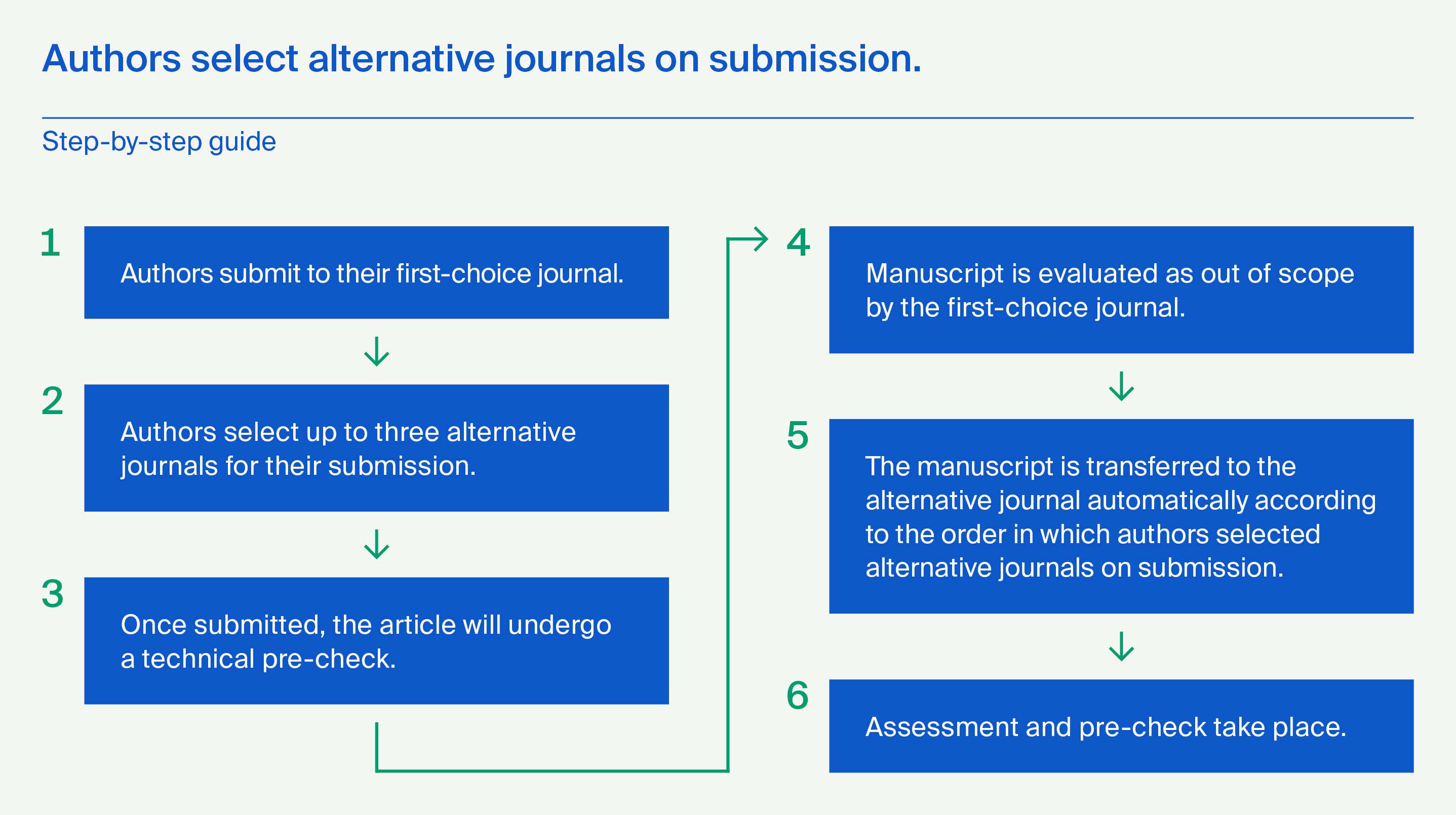
2. Authors are encouraged to transfer manuscripts to other MDPI journals.
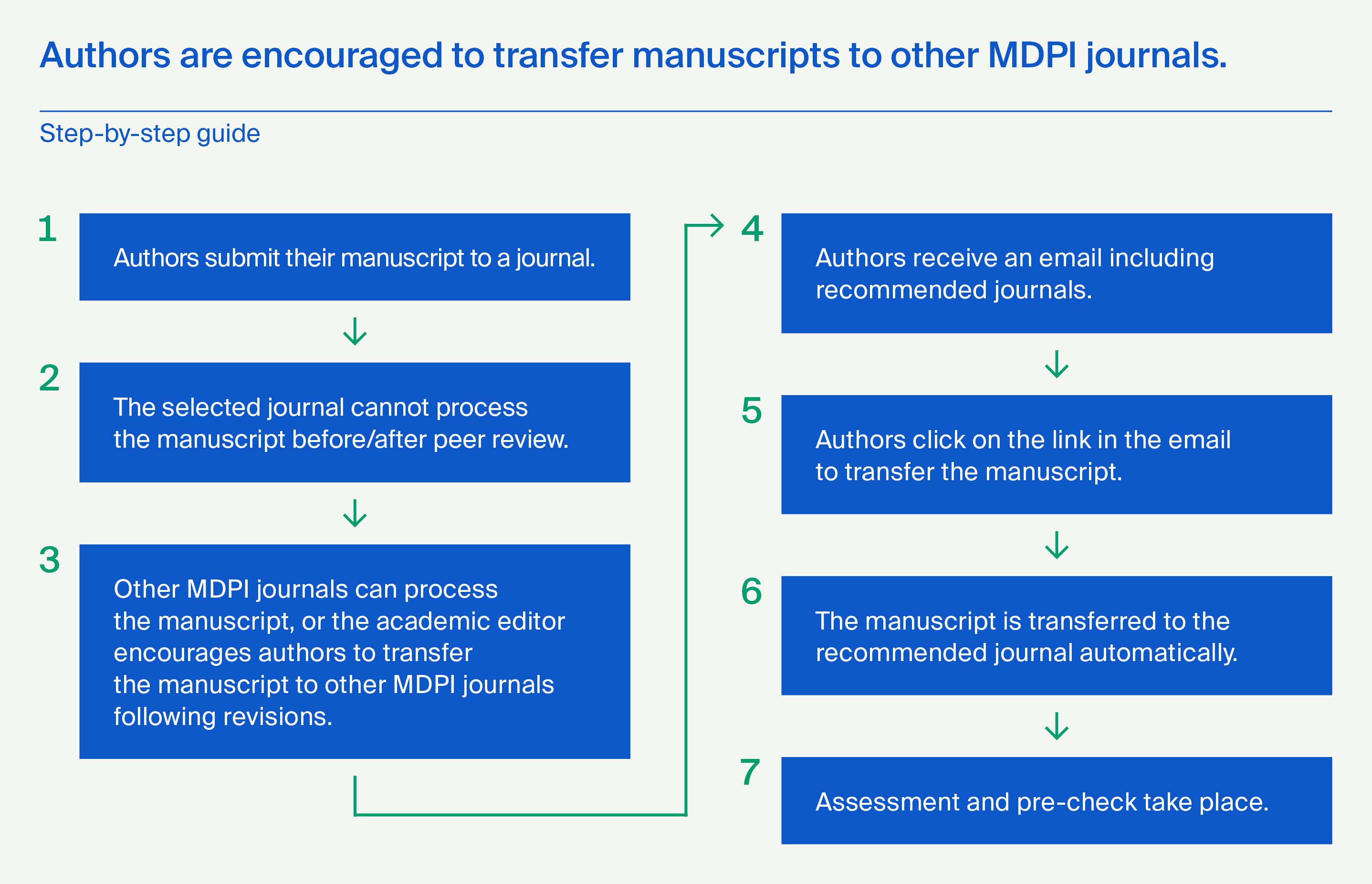
More details about the Transfer Service can be found at the following link:
17 May 2024
Tu Youyou Award—Open for Nominations
In acknowledgment of the groundbreaking achievements of Professor Tu Youyou, the Nobel laureate credited with the discovery of artemisinin, MDPI is proud to announce the Tu Youyou Award. This award, inaugurated in 2016, seeks to honor scholars who excel in the fields of natural products chemistry and medicinal chemistry.
Prize:
- CHF 100,000 in total (If there is more than one winner, the prize will be divided equally amongst the winners);
- An award medal for each winner.
Who should be nominated?
- Scientists with outstanding achievements and contributions in the fields of natural products chemistry and medicinal chemistry.
Who can submit a nomination?
- Academic research institutes
- Universities
- Academic societies
Any personal nominations are not accepted.
How do I submit a nomination?
Candidates’ institutional affiliations need to submit their nominations for final candidates to the Tu Youyou Award Team directly by email after internal screening, and each institution can only nominate a maximum of two candidates for each edition of the Tu Youyou Award. Please note that the nominations cannot be modified once they are submitted and confirmed by the Tu Youyou Award Team.
Required nomination materials:
Nomination Form (Download)
Schedule:
Nomination deadline: 31 December 2024;
Winner announcement: 30 April 2025.
Contact:
Tu Youyou Award Team ([email protected])
More information can be found on the Tu Youyou Award official website. For any inquiries, do not hesitate to contact the Tu Youyou Award Team.
16 May 2024
MDPI Romania Author Training Academic Events in April
MDPI Romania sponsored four events over the month of April, contributing author training sessions to each event.
The NutriSciLabs 2024 conference was held at the Carol Davila University of Medicine and Pharmacy on 12 April 2024. Organized by the Association of Students from the Faculty of Pharmacy Studies, the conference aimed to enhance students’ academic writing and research skills, and bolster their confidence in participating in the academic world. Ioana Paunescu, journal relations specialist for MDPI Romania, led the training session. Paunescu first outlined MDPI’s history and core values, then explained academic writing techniques, ethics, and similarity percentages. The presentation covered the entire editorial process, highlighting the amount of attention paid to details throughout manuscript processing. Paunescu also discussed common errors that authors make while writing, and how to avoid such errors.
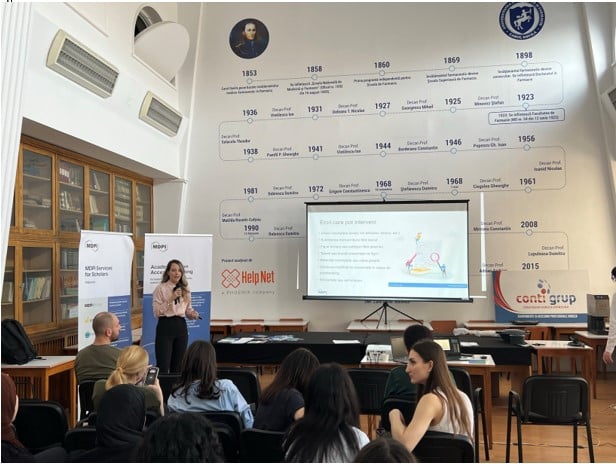
On 13 April 2024, the NextGEN 2.0 Student Conference took place at the Babes-Bolyai University of Cluj-Napoca. NextGen Healthcare organized this event with the university’s European Students’ Society to discuss European and international current affairs. MDPI Romania contributed an author training session called Steps of the Publication Process. Irina Codruta Zaharia, journal relations specialist, began the session with a general introduction of MDPI before diving into different article types, different layout formats, possible journals to submit to, the MDPI submission checklist, and the MDPI editorial process. By explaining the fundamentals of writing and publishing academic papers, Zaharia imparted valuable industry knowledge to the curious minds present. Participants were eager to engage with Zaharia in the subsequent Q&A session.
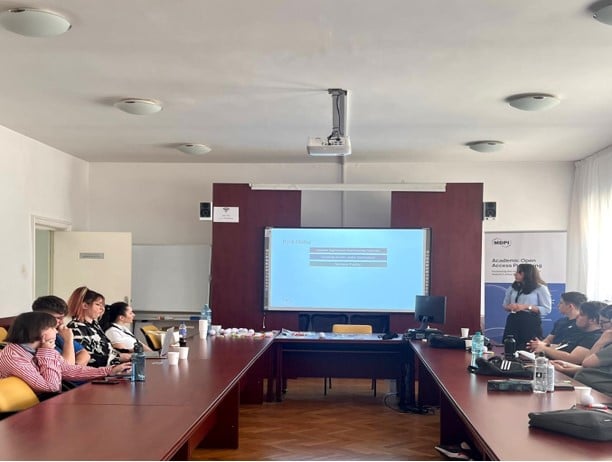
Celebrating its 20th anniversary this year, the International Conference “Students for Students” has long been a gathering place for undergraduate and postgraduate students of all nationalities to present their work and exchange ideas with each other. This year’s conference was held on 18 April 2024, with MDPI Romania contributing an author training session called The World of Open Access. Key speakers included Dr. Norbert Kiss from MDPI Romania and Prof. Dragos Horvath from Strasbourg University. Dr. Kiss discussed the history of open access, differences between open access publishing and traditional publishing, and implications for open access in the future. Attendees expressed keen interest in the subject, approaching Dr. Kiss with questions about academic publishing as well as his career trajectory.
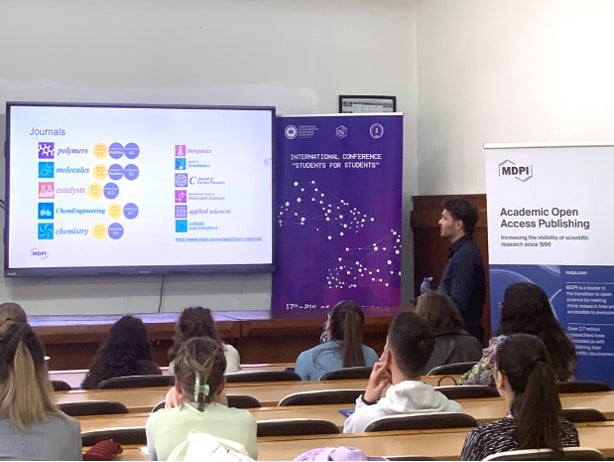
Most recently, on 26 April 2024, MDPI Romania sponsored the National Symposium of Students from Geology and Geophysics Faculties. The AAPG Students Chapter at the Babes-Bolyai University organized this event as an opportunity for geology students from all Romanian universities to present their work and confer with other researchers. Dr. Kiss gave his lecture The World of Open Access at this event as well.
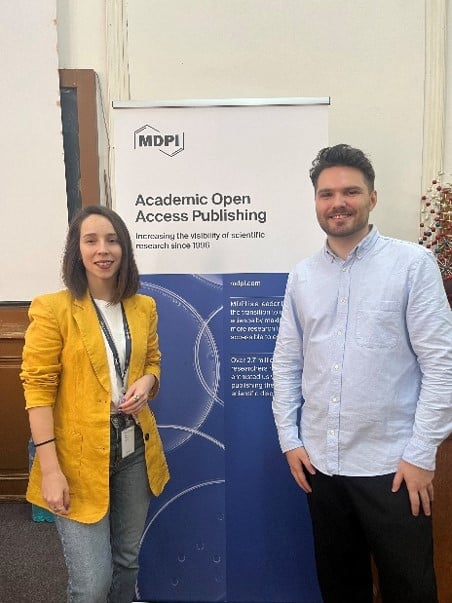
MDPI is thankful to all the participants, speakers, and organizers who attended these events. Through their enthusiasm and dedication, these events were great successes.
15 May 2024
Sensors Webinar | Smart Energy Systems Seminar, 22 May 2024

MDPI would like to invite all experts recognized in their fields to attend the Sensors webinar. The aim of this webinar is to explore modern and new techniques to support the transition to clean energy systems via applications of smart energy.
We are looking forward to seeing you at the Smart Energy Systems Seminar.
Title: Smart Energy Systems Seminar
Date: 22 May 2024
Time: 10:00–12:00 (CEST) | 16:00–18:00 (CST Asia)
More Information: https://sciforum.net/event/Sensors-18
This is a free webinar. After registration, you will receive a confirmation email containing information on how to join the webinar. Registrations with academic institutional email addresses will be prioritized.
Unable to attend? Register anyway and we will let you know when the recording is available for viewing.
Register for free:
Program:
|
Speaker/Presentation |
Time in CEST |
Time in CST Asia |
|
Dr. Hossam A. Gabbar Chair Introduction |
10:00–10:10 a.m. |
04:00–04:10 p.m. |
|
Dr. Maurizio Repetto Computational Intelligence for Renewable Energy Integration in Complex Energy Systems |
10:10–10:30 a.m. |
04:10–04:30 p.m. |
|
Dr. Hossam A. Gabbar Resilient Hybrid Energy and Transportation Infrastructures |
10:30–10:50 a.m. |
04:30–04:50 p.m. |
|
Q&A Session |
10:50–11:00 a.m. |
04:50–05:00 p.m. |
|
Dr. Hossam A. Gabbar Closing of Webinar |
11:00–11:10 a.m. |
05:00–05:10 p.m. |
10 May 2024
MDPI International Day of Light 2024 Webinar, 16 May 2024
MDPI would like to invite all experts recognized in their fields to attend the MDPI International Day of Light 2024 Webinar, which will be held on 16 May 2024. The aim of this webinar is to encourage researchers to come together, take action, and highlight how the exchange of findings facilitates efforts to raise awareness about the study of light. The study of light has led to promising alternative energy sources, lifesaving medical advances in diagnostics technology and treatments, light-speed internet, and many other discoveries that have revolutionized society and shaped our understanding of the universe.
We are looking forward to seeing you at the MDPI International Day of Light 2024 Webinar.
Title: MDPI International Day of Light 2024 Webinar
Date: 16 May 2024
Time: 09:00 a.m.–11:00 a.m. (CEST) | 03:00 p.m.–05:00 p.m. (CST Asia)
More Information: https://sciforum.net/event/IDL2024
This is a free webinar. After registering, you will receive a confirmation email containing information on how to join the webinar. Registrations with academic institutional email addresses will be prioritized.
Unable to attend? Register anyway and we will let you know when the recording is available to watch.
Register for free:
Program:
|
Speaker/Presentation |
Time in CEST |
Time in CST Asia |
|
Introduction |
09:00 a.m.–09:10 a.m. |
03:00 p.m.–03:10 p.m. |
|
Prof. Dr. Alexey Popov Biotissue-Mimicking Phantoms: Enabling Technology in Biophotonics |
09:10 a.m.–09:30 a.m. |
03:10 p.m.–03:30 p.m. |
|
Q&A Session |
09:30 a.m.–09:35 a.m. |
03:30 p.m.–03:35 p.m. |
|
Prof. Dr. Lorenzo Pavesi |
09:35 a.m.–09:55 a.m. |
03:35 p.m.–03:55 p.m. |
|
Q&A Session |
09:55 a.m.–10:00 a.m. |
03:55 p.m.–04:00 p.m. |
|
Prof. Dr. Wolfgang Kautek |
10:00 a.m.–10:20 a.m. |
04:00 p.m.–04:20 p.m. |
|
Q&A Session |
10:20 a.m.–10:25 a.m. |
04:20 p.m.–04:25 p.m. |
|
Dr. Antonio García-Martin |
10:25 a.m.–10:45 a.m. |
04:25 p.m.–04:45 p.m. |
|
Q&A Session |
10:45 a.m.–10:55 a.m. |
04:45 p.m.–04:55 p.m. |
|
Closing of Webinar |
10:55 a.m.–11:00 a.m. |
04:55 p.m.–05:00 p.m. |
Relevant Special Issues:
Nanomaterials
“Light-Matter Interaction in Nano Systems: Fundamentals and Applications”
Guest Editors: Zhengkun Fu, Lianghui Huang and Mengtao Sun
Deadline for manuscript submissions: 15 June 2024
Sensors
“Automotive Visible Light Communications (AutoVLC)”
Guest Editor: Alin-Mihai Cailean
Deadline: 30 June 2024
“Recent Trends and Advances in Laser Spectroscopy and Sensing”
Guest Editor: Violeta Lazic
Deadline: 20 August 2024
“Feature Papers in Optical Sensors 2024”
Guest Editors: Gabriele Bolognini and Yuliya Semenova
Deadline: 31 December 2024
Applied Sciences
“Application of Advanced Lighting Systems in Buildings and Cities”
Guest Editors: Luis Santos and M. Glória Gomes
Deadline for manuscript submissions: 10 June 2024
“Optical Sensors: Applications, Performance and Challenges”
Guest Editors: Yubing Wang, Lijun Wang and Junfeng Song
Deadline for manuscript submissions: 20 September 2024
“Smart Lighting and Visual Safety”
Guest Editors: Yandan Lin and Minchen Wei
Deadline for manuscript submissions: 20 August 2024
“New Trends in Next-Generation Optical Networks”
Guest Editors: Gerardo Antonio Castañón-Avila
Deadline for manuscript submissions: 21 December 2024
“Interdisciplinary Approaches and Applications of Optics & Photonics (AOP2024)”
Guest Editors: Manuel Filipe P. C. M. Costa and Sandra Franco
Deadline for manuscript submissions: 31 December 2024
“Advances in Optics, Photonics and Lasers”
Guest Editors: Aleksej Rodin and Sergey Y. Yurish
Deadline for manuscript submissions: 30 December 2024
“Laser Ultrasonics and Advanced Sensing: Technologies and Applications”
Guest Editor: Chenyin Ni
Deadline for manuscript submissions: 20 December 2024
“Ultrafast and Nonlinear Laser Applications”
Guest Editor: Sergej Orlov
Deadline for manuscript submissions: 20 November 2024
“Diode Lasers: Materials, Devices and Application”
Guest Editors: Jing Yang and Zhenfu Wang
Deadline for manuscript submissions: 31 October 2024
“Nanophotonics and Integrated Photonics”
Guest Editors: Fanfan Lu and Zhiqiang Yang
Deadline for manuscript submissions: 20 October 2024
Optics
“Ultrafast Light-Matter Interaction”
Guest Editor: Daria Popova-Gorelova
Deadline for manuscript submissions: 15 December 2024
Energies
“Advances in Solar Systems and Energy Efficiency”
Guest Editors: Maciej Zajkowski, Adam Idzkowski, Zbigniew Sołjan, and Stanislav Darula
Deadline for manuscript submissions: 19 June 2024
Inventions
“Recent Advances in Visible Light Communication and Optical Wireless Information Systems”
Guest Editor: Jupeng Ding
Deadline for manuscript submissions: 31 May 2024
2 May 2024
MDPI Insights: The CEO's Letter #11 - 2023 Annual Report, MDPI Awards, STM

Welcome to the MDPI Insights: The CEO's Letter.
In these monthly letters, I will showcase two key aspects of our work at MDPI: our commitment to empowering researchers and our determination to facilitating open scientific exchange.
Opening Thoughts

2023 Annual Report
This is an exciting time of year at MDPI, as we have just released our annual report 2023, recapping the past year and sharing the progress and changes that took place during it.

Stefan Tochev (CEO, MDPI)
Reflecting on 2023, I can't help but think of the changes that have occurred not only at MDPI but also within our industry as a whole. In light of this, I’m reminded that change is the only constant, and that for a publishing enterprise that has experienced rapid growth, adapting to change becomes not only a necessity but also a catalyst for sustained success.
Looking back on the significant ground we covered in 2023, I am pleased to report that the year was marked by a rise in paper submissions, along with a range of initiatives aimed at improving our internal processes and delivering top services to our scientists.
2023 Top-line MDPI Numbers
An important priority for 2023 was to strengthen our editorial policies. Despite a notable increase in the number of papers submitted from 603,000 to 655,000 (+8.6%), there was a decrease in the number of papers published from 303,000 to 285,000 (-5.9%), consistent with the overall trend in the scholarly publishing market. MDPI’s market share in gold open access articles published reached 17% in 2023 (according to Dimensions data).
2023 Open Access Numbers
For over two decades, MDPI has been at the forefront of reshaping the academic publishing landscape, with OA surpassing subscription-based publishing in 2020. This trajectory is deeply rooted in our history and reflects our unwavering commitment to, and vision for, an open future. This momentum continued in 2023, with 39% of the 4.16 million articles and reviews published as gold full-OA, 15% as gold hybrid-OA, 8% as bronze-OA, and 3% as green-OA, relative to 35% behind a paywall. In terms of gold OA (full or hybrid) articles and reviews published, MDPI leads the way in terms of total articles published in 2023.
MDPI is the trusted and preferred OA publisher for the scholarly community
However, in 2023, we saw a downward trend in publication numbers compared to 2022. This trend was also seen in total OA publications. While the number of submissions increased, the decline in MDPI publications can be attributed to several factors, such as improved scrutiny in our peer-review process, including the evaluation of content scope and higher rejection rates, and a post-pandemic decrease in research related to COVID-19 papers.
Download 2023 MDPI Annual Report.
Access 2023 Digital Report.
Impactful Research

Recognizing Scholars – MDPI Awards
MDPI is committed to empowering young researchers as they embark on their careers. In 2023, our journals hosted a total of 400 awards, receiving 8,839 applications and nominations. The evaluation committees selected 959 winners, with the total budget for these awards amounting to CHF 546,500.
For more information about MDPI awards, applications, and winners, please click here
The following awards recognize scholars and the impact of their research, including Young Investigator Awards, Best PhD Thesis Awards, and Travel Awards for junior researchers.
MDPI Awards – The following awards require an application or a nomination.
Young Investigator Award (CHF 1000–2000 for each winner)
This award acknowledges the achievements of young investigators in research areas relevant to the journal’s scope. Candidates must have received their PhD no more than 10 years prior to the award announcement date and must be nominated.
Best PhD Thesis Award (CHF 500–800 for each winner)
This award recognizes young scholars who have completed outstanding PhD theses in research areas relevant to the journal’s scope. It aims to encourage them to continue their excellent work and make further contributions to their field.
Travel Award (CHF 500–800 for each winner)
This award encourages junior scientists to present their latest research at academic conferences relevant to the journal’s scope, thereby increasing their impact.
Distinguished Scholars
Additionally, 220 awards were granted to the most distinguished authors and reviewers in our journals through Best Paper Awards and Outstanding Reviewer Awards. The following awards are selected by the editorial staff of the journal and do not require an application or a nomination. They exemplify the excellent contributions made by our authors, reviewers, and editors.
These awards exemplify the excellent contributions made by our authors, reviewers, and editors
Best Paper Award (CHF 200–500 for each winner)
This award is granted annually to highlight publications of high quality, scientific significance, and extensive influence.
Outstanding Reviewer Award (CHF 500 for partial winners)
This award is given annually to recognize reviewers who generously contribute their time to reviewing papers and demonstrate thoroughness, professionalism, and timeliness in their reviews.
MDPI also offers awards for specific topics in various research fields:
Carbon Neutrality Award (CHF 500–800 for each winner)
Sponsored by MDPI journal Sustainability, this award recognizes applicants who have made exceptional academic or societal contributions to carbon neutrality, either in general or in relation to a specific carbon-neutrality-related issue.
Intelligent Manufacturing Award (CHF 500–800 for each winner)
Administered by MDPI journal Machines, this award is presented to an individual who has made outstanding academic or societal contributions to the field of intelligent manufacturing.
Granted: World Sustainability Awards
Inside MDPI

MDPI Opens Office in Seoul, Korea and Appoints Claude Seo as Office Manager
As CEO of the world’s leading OA publisher, I am pleased to announce the official opening of our Korean branch office. With this addition, MDPI now operates 21 offices in 12 countries worldwide, improving on our position as a truly global publisher. This expansion represents more than just an increase in our physical footprint; it is a pivotal step in our ongoing commitment to making scientific knowledge more accessible across the globe.
MDPI now operates 21 offices in 12 countries worldwide, improving on our position as a truly global publisher

Claude Seo (MDPI Korea Office Manager, Seoul)
Claude Seo, who has over 15 years of experience in the academic publishing industry, has been appointed as the Office Manager of the Seoul office. The launch of our Seoul office allows us to better support the Korean scientific community and to further promote the publication of OA journals in the region.
Reflecting on his role, Claude shared that he is:
“Delighted to have been entrusted with this position within MDPI, the no. 1 scholarly OA publisher. As we establish our presence in Korea, we are dedicated to integrating ourselves into the local community and contributing to its vibrant culture. Our commitment goes beyond business growth; it is about creating a more informed and innovative society by embracing and promoting diversity within the scientific community.”
Sungkyunkwan University Joins MDPI’s Institutional Open Access Program
Additionally, I am pleased to share that Sungkyunkwan University has joined MDPI’s Institutional Open Access Program (IOAP). This program offers free access to MDP’s online submission system for institutions and provides APC discounts to affiliated authors. Thirteen major Korean universities, including Sungkyunkwan University, Kyunghee University, Chung-Ang University, and the Catholic University of Korea, have adopted IOAP in Korea.
Learn more about MDPI’s collaboration in Korea in my previous CEO Letter, in which I recap our visit to Seoul, South Korea.
Coming Together for Science

4th MMCS: Harnessing the Power of New Drug Modalities
Our conference team successfully managed the 4th Molecules Medicinal Chemistry Symposium, held from 24–26 April in Barcelona, Spain. It was chaired by Prof. Dr. Diego Muñoz-Torrero from the Institute of Biomedicine (IBUB), University of Barcelona, Spain, and Prof. Dr. Simona Collina from the University of Pavia, Italy. In total, there were 84 accepted abstracts and 102 conference attendees from 22 different countries.
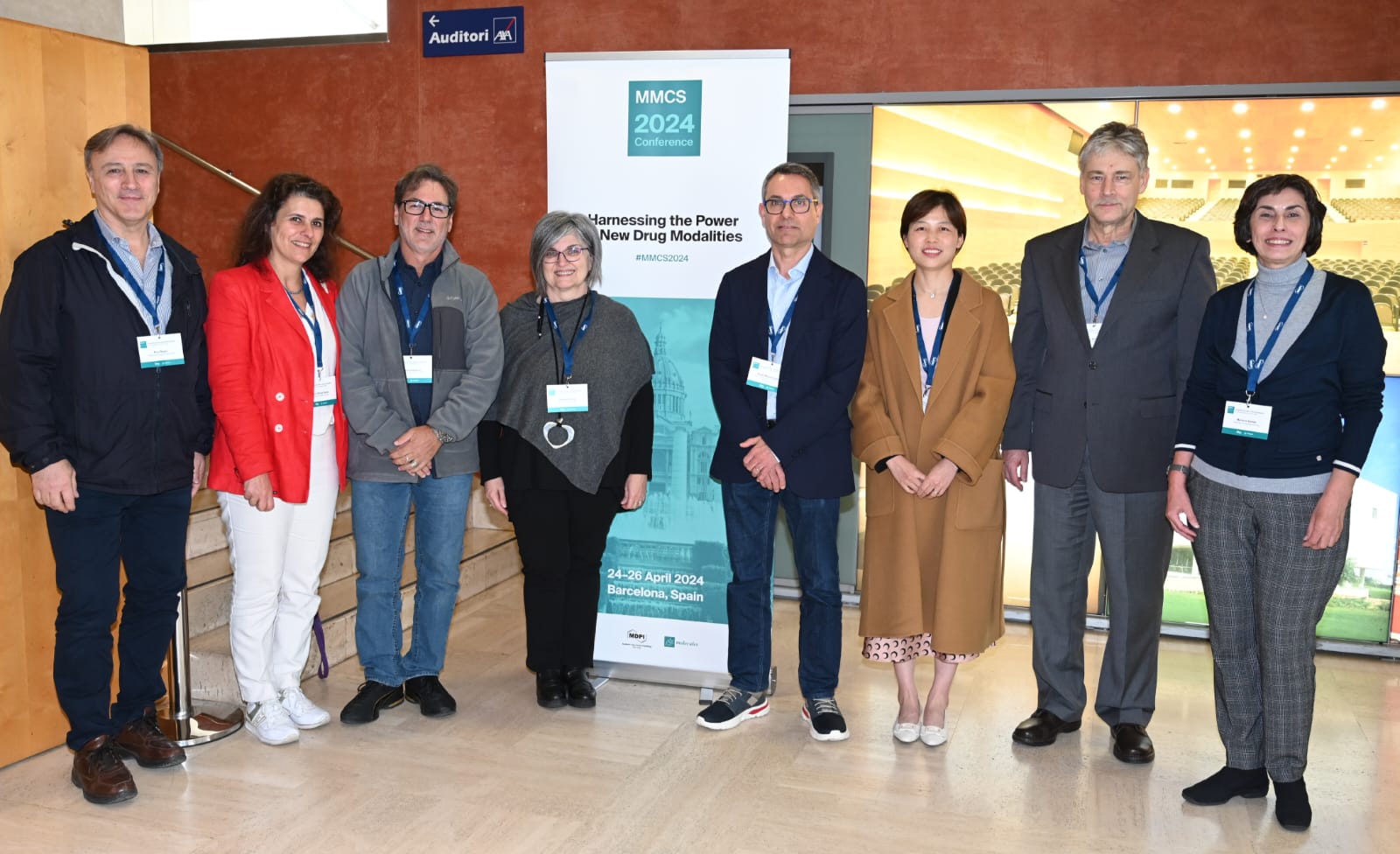
From left to right: Prof. Dr. Rino Ragno (Scientific Committee), Dr. Maria Emilia Sousa (Scientific Committee), Prof. Dr. Claudio Viegas Jr. (Scientific Committee), Prof. Dr. Simona Collina (Chair), Prof. Dr. Diego Muñoz-Torrero (Chair), Alvina Wu (Managing Editor, MDPI), Prof. Dr. Roman Dembinski (Scientific Committee), Prof. Dr. Mariana Spetea (Scientific Committee).
The event comprised 12 Invited Speakers, 35 Selected Talks, 10 Flash Poster Presentations, and 39 Posters. The overarching topic of the conference was the impact of the emergence of new drug modalities on drug discovery, with thematic sessions covering topics such as photoactivatable drugs, candidates targeting RNA and epigenetic targets, covalent modifiers, and the development of new anti-cancer agents, among other medicinal chemistry projects.
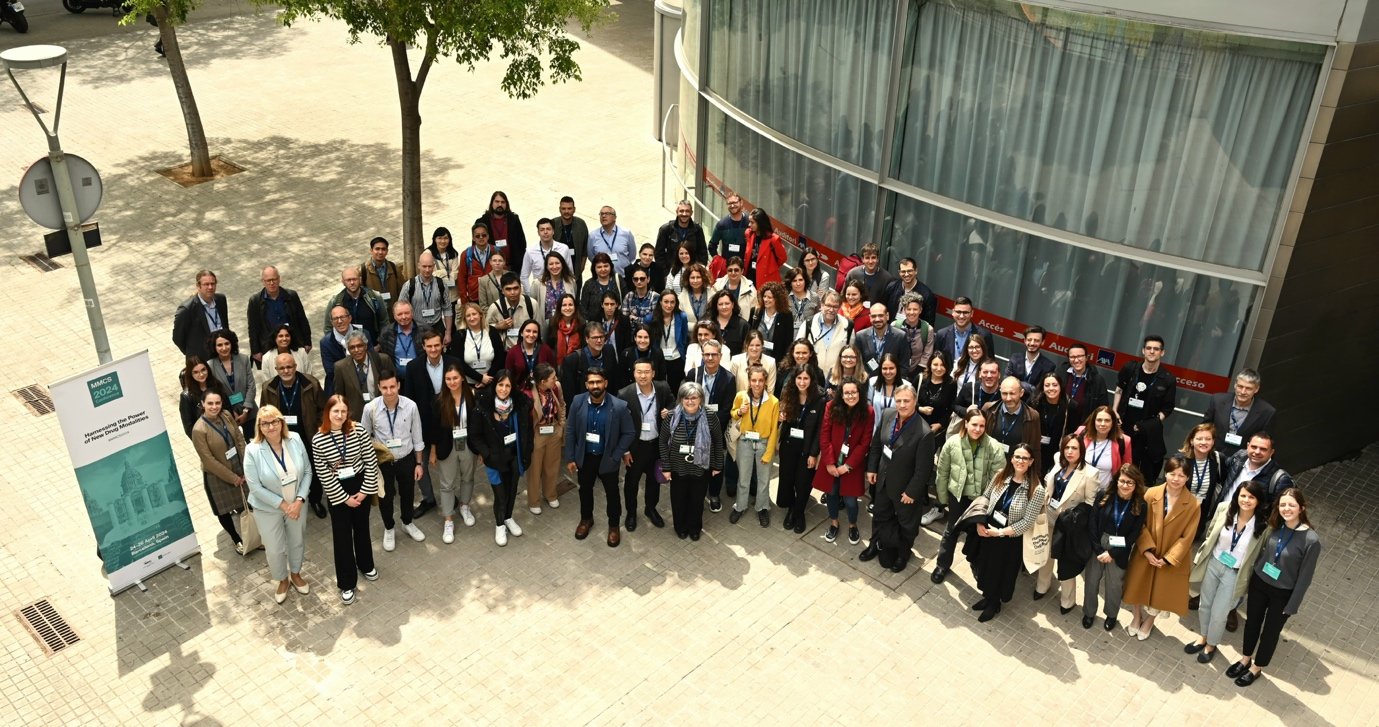
We are pleased to have received feedback from attendees highlighting the professional approach of the conference chairs and participants, the high quality of the talks, and the overall outstanding organization on the part of the MDPI conference team.
Thank you to the conference sponsors, Fluorochem and IBUB, and to our partnering societies, The Spanish Society for Biochemistry and Molecular Biology (SEBBM), and the Spanish Society of Medicinal Chemistry (SEQT).
Upcoming In-Person Event
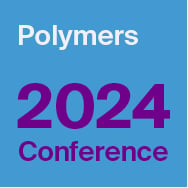
28–31 May, 2024
Polymers 2024 – Polymers for a Safe and Sustainable Future
Location: Athens, Greece
Conference Chairs: Prof. Dr. Dimitrios Bikiaris, Prof. Dr. Konstantinos Triantafyllidis, Dr. Ioanna Deligkiozi
We look forward to welcoming experts Prof. Damià Barceló, Prof. Minna Hakkareinen, and Prof. Armando J. D. Silvestre to this event.
Find more upcoming MDPI events here.
Organize Your Event with MDPI’s Sciforum
Sciforum is MDPI’s platform dedicated to the organization of scientific events. In line with our mission to promote science, Sciforum supports scholars, societies, research networks, and universities at all stages of organizing in-person events, virtual events and webinars. Our platforms are efficient, user-friendly, and cost-effective. We handle all steps related to event management. Contact us for details.
Closing Thoughts
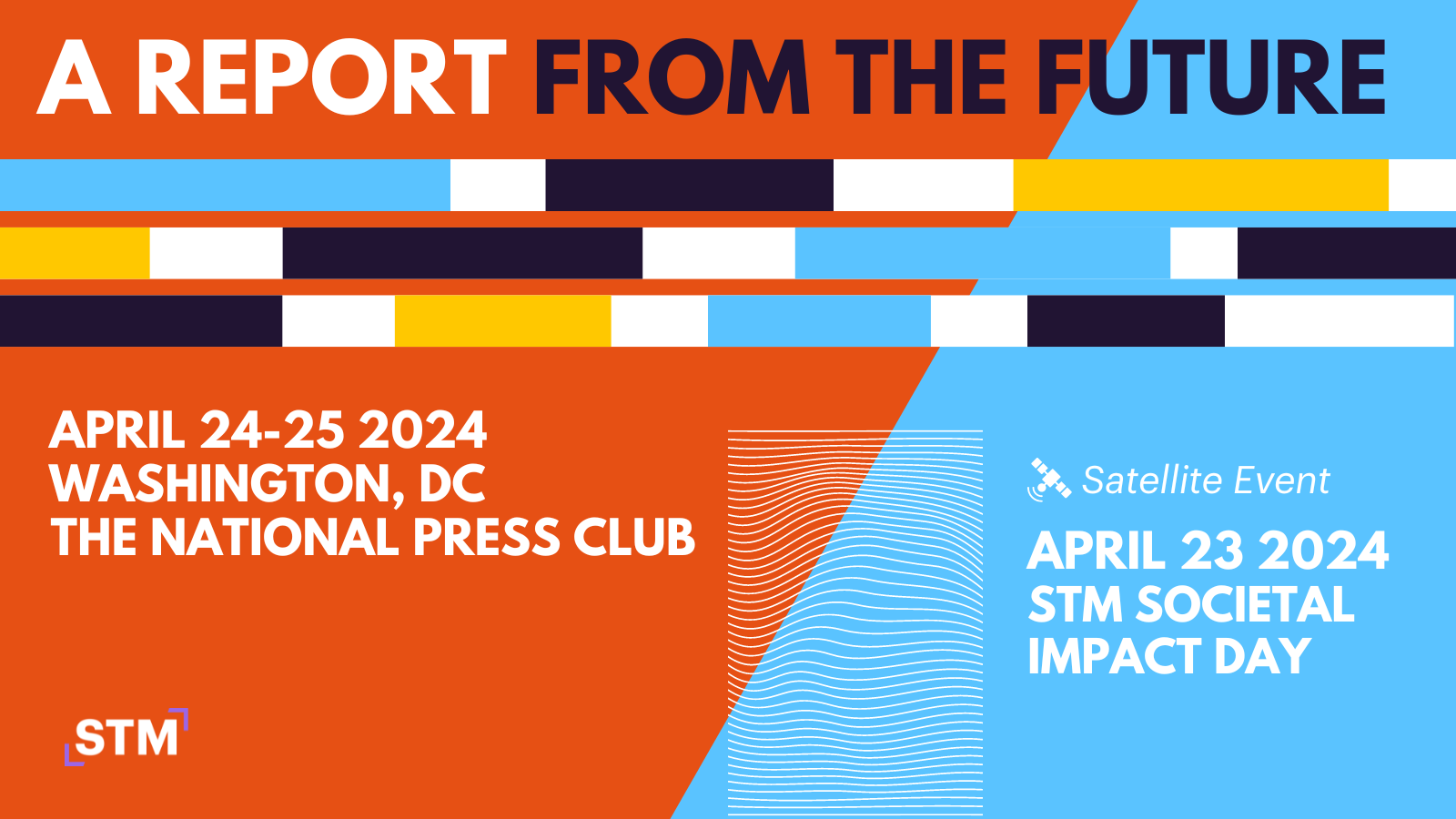
A Report from the Future – STM US Annual Conference 2024
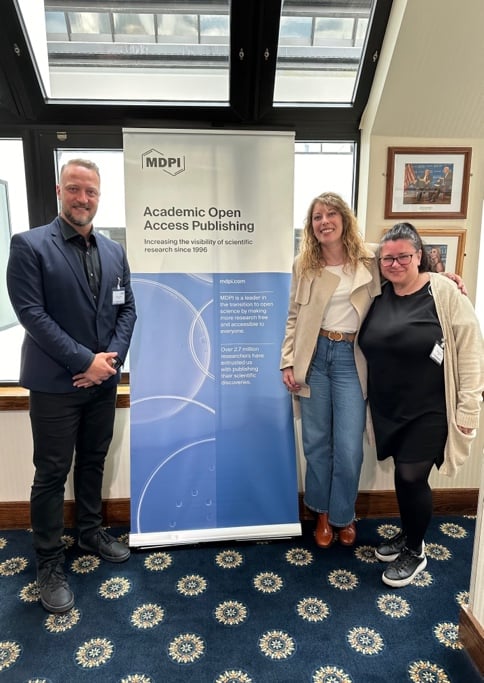
Stefan Tochev (CEO, MDPI), Dr. Giulia Stefenelli and Dr. Ioana Craciun from MDPI’s Scientific Office Board.
MDPI has for a long time been a sponsor of the STM Annual Conferences, held yearly in the US and Frankfurt, and is a trusted partner and supporter of the STM organization. While I have attended the Frankfurt conference for the past three years, this was my first time visiting the Washington, DC session, and I am glad I did.
Although it was a brief trip, I greatly appreciated the opportunity to attend in the company of my colleagues Dr. Giulia Stefenelli and Dr. Ioana Craciun from MDPI’s Scientific Office Board. They always help map some of the new industry trends against MDPI’s operational framework and guidelines. It’s a great group for kicking ideas back and forth on what we can apply at MDPI.
In my experience, STM never fails to deliver. It’s always a great conference for reconnecting with fellow publishers, industry friends, and vendors. As usual, STM this year curated a diverse range of speakers and panels, who proferred valuable knowledge and insights from outside our industry, delivering thought-provoking insights into our field. An example of this was the ‘Trust Panel’ session, which included Alan Schiffres (Managing Director, InfoLinx), who shared a number of the learnings about fraud and risk management from his 40 years in financial services, to help address some of the challenges we are currently facing in the area of publishing integrity.
Launch of STM Trends 2028 Panel
I particularly enjoyed the ‘Launch of STM Trends 2028 Panel’, which presented a report focused on the integration of humans and machines in scholarly publishing. The session highlighted themes such as AI, digitization, and the evolving research ecosystem. The report envisions a future where technology blurs the lines between human and machine involvement in research processes, with significant implications for trust, reputation, and equity. While this presents opportunities for connectivity and knowledge dissemination, it also poses challenges such as disinformation, fragmentation, and geopolitical tensions. We must rely on a wise combination of technology and human agency to navigate this complex landscape and will have to carefully examine its potential impacts on communication and scholarly publishing.
MDPI has joined the STM Integrity Hub. Click here to learn more.
While every presenter brought their own knowledge and personal touch, I was particularly pleased to encounter new speakers such as Heather Whitney (Research Assistant Professor, Radiology, University of Chicago) and Igor Grossmann (Professor of Psychology, University of Waterloo, Canada). Having studied Sociology at the University of Guelph, I have a soft spot for fellow social scientists from Canada, and I was very impressed by Igor’s presentation on ‘The Social Scientist: A View from the Future’ and his participation in the panel session ‘The Future Beyond the Article,’ which was one of my favourites from the conference, given the diversity of perspectives from the panel speakers.
Memorial Park in Washington, DC

On a personal note, this was my first-time visiting Washington, DC, and I’m glad we took an afternoon to visit the Memorial Park, with its incredible monuments to figures ranging from Martin Luther King, Jr. to Abraham Lincoln. The magnitude of the monuments is deeply impressive. I particularly appreciated the Thomas Jefferson memorial and the following quote, which I think speaks to the importance of change and adaptation. It’s something we can apply not only in our industry but also in our personal lives.
"I am not an advocate for frequent changes in laws and constitutions, but laws and institutions must go hand in hand with the progress of the human mind. As that becomes more developed, more enlightened, as new discoveries are made, new truths discovered and manners and opinions change, with the change of circumstances, institutions must advance also to keep pace with the times. We might as well require a man to wear still the coat which fitted him when a boy as a civilized society to remain ever under the regimen of their barbarous ancestors."
– Excerpted from a letter to Samuel Kercheval, July 12, 1816.
Chief Executive Officer
MDPI AG
30 April 2024
MDPI Opens Office in Seoul, Korea and Appoints Claude Seo as Office Manager

MDPI, the leading Open Access (OA) publisher, announced on Monday that it opened its Korean branch office on 29th April 2024. With this addition, MDPI now operates 21 offices in 12 countries worldwide. Claude Seo, with over 20 years of experience in the academic journal publishing industry, including Nature Publishing Group (NPG), has been appointed as the Office Manager of the Seoul office.
With the establishment of a Seoul office, MDPI aims to actively support Korea scientific communities to further promote the publication of OA journals in the region. As of the end of 2023, Korea ranked sixth worldwide in both submissions and publications of MDPI research papers. MDPI is the number one OA publisher in Korea.
Sungkyunkwan University Joins MDPI’s Institutional Open Access Program
In addition, MDPI announced that Sungkyunkwan University joined MDPI’s Institutional Open Access Program (IOAP). This program offers free access to MDPI online submission system for the institutions and APC discounts to affiliated authors. Thirteen major Korean universities, including Sungkyunkwan University, Kyung Hee University, Chung-Ang University and Catholic University of Korea, have adopted IOAP in Korea.
OA aims to break down barriers that have traditionally restricted access to science, ensuring that knowledge is available to all, regardless of financial situation or institutional affiliations. Authors, academia, and scientific communities are rapidly moving toward OA. MDPI has been at the forefront of reshaping the academic publishing landscape, with OA surpassing subscription-based publishing in 2020.
MDPI CEO Visits Seoul, Korea
In March, Stefan Tochev, Chief Executive Officer (CEO) of MDPI, visited Korea and met with various stakeholders including government agencies, research and academic institutions, universities. During his visit, Stefan highlighted that MDPI continues to pave the way for a world where science is accessible to all, supporting a global community of inclusive innovation and collaborative solutions.
Stefan expressed excitement about the new venture, stating, "Today marks a significant milestone for MDPI as we celebrate the opening of our new office in Seoul, Korea. This expansion is more than just an increase in our physical footprint, it is a pivotal step in our ongoing commitment to making scientific knowledge more accessible, participatory, and inclusive across the globe."
Claude Seo, reflecting on his new role, commented, "I am delighted to have been offered this position of trust within MDPI, the no. 1 scholarly OA publisher. As we establish our presence in Korea, we are dedicated to integrating into the local community and contributing to its vibrant culture. Our commitment goes beyond business growth; it is about creating a more informed and innovative society by embracing and promoting diversity within the scientific community.”
For further inquiries, please contact our Seoul office directly.
About MDPI
A pioneer in scholarly, open access publishing, MDPI has supported academic communities since 1996. MDPI is leading the transition to open science by making more research free and accessible to everyone. Over 3.3 million researchers have entrusted MDPI with publishing their scientific discoveries. MDPI’s editorial process is bolstered by a network of dedicated reviewers, a team of 6000 diligent, well-trained staff members, and an in-house article submission platform that was designed to ensure efficient processes within its 430 fully OA titles.
25 April 2024
Interview with Dr. Kunyan Zhang—Winner of the Sensors 2023 Outstanding Reviewer Award

We recently reached out to Dr. Kunyan Zhang, winner of the Sensors 2023 Outstanding Reviewer Award, to discuss both her scholarly insights and her journey as a reviewer for Sensors.
Name: Dr. Kunyan Zhang
Affiliation: Department of Chemistry, University of California, Berkeley, CA 94720, USA
Research Interests: low-dimensional materials; optical spectroscopy; biosensors; machine learning
The following is an interview with Dr. Kunyan Zhang:
1. Can you give us a brief introduction of yourself and the main research content of your current research? Additionally, could you share some emerging research directions in this field?
I am currently a postdoctoral researcher at the University of California, Berkeley, USA. My research focuses on understanding the light–matter interactions in nanoscale systems using ultrafast spectroscopy to develop new sensing paradigms. One of the emerging directions in the field of optical sensing is the integration of artificial intelligence for spectral analysis. The emergence of advanced machine learning models has brought breakthroughs for improving automated multimodal sensors based on optical spectroscopy. In addition, incorporating new nanomaterials with enhanced optical properties has also been proven to boost the performance of optical sensors.
2. When and how did you first become aware of the open access Sensors journal? How do you think open access impacts authors?
I became aware of the Sensors journal during my Ph.D. studies from reading a publication from Sensors. As an open access journal, Sensors offers researchers unrestricted access to exciting research findings. This can significantly enhance the visibility and impact of the outcome and potentially foster broad collaborations.
3. What are the key factors and aspects that you consider most when reviewing a manuscript?
The novelty of the research, the rigorousness of the methodology, the scientific soundness of the conclusion, and the impact on the communities. These are the key factors essential to a good academic paper. The authors should be able to identify major challenges in the field and provide solutions to facilitate tackling these challenges.
4. What are the key factors that make a review outstanding?
The review process is not solely about criticizing. More importantly, it is about giving constructive and balanced feedback after a thorough review of the manuscript. An outstanding review would give a high-level summary of the strengths and weaknesses of the study and offer specific suggestions for improvement. Therefore, it is crucial that reviewers have the necessary expertise in the respective research areas.
5. What do you think of receiving the Outstanding Reviewer Award? What advice do you have for future reviewers?
It is a great honor for me to receive the Outstanding Reviewer Award. This is a recognition of my contribution to the peer review in terms of the quality and quantity of review comments. As a young scholar, I have learned a lot from the reviewing process and from working with editors. My advice to someone starting their journey as a reviewer is to be fair and supportive in their critique, aiming to help authors improve their work meaningfully.
I would like to highlight the exceptional efficiency of the MDPI review platform. It is designed to streamline the submission and review process to allow for quick turnaround time. The MDPI review platform also provides clear guidelines and status updates throughout the review process.
25 April 2024
Topics Webinar | Shaping Sustainable Futures: Integrating Innovation and Sustainability in Building Design and Retrofitting, 15 May 2024

MDPI would like to invite all experts recognized in their fields to attend the following Topics Webinar. The webinar consists of two topics:
Topic 1: Building Tomorrow: Innovations in Sustainable Infrastructure and Design;
Topic 2: Advancing Sustainable Building Retrofitting: Design to Circular Economy.
The aim of this webinar is to explore cutting-edge innovations in sustainable infrastructure and design practices and promote sustainability through foreign investment in developing countries.
We look forward to seeing you at the Topics Webinar—Shaping Sustainable Futures: Integrating Innovation and Sustainability in Building Design and Retrofitting.
Title: Shaping Sustainable Futures: Integrating Innovation and Sustainability in Building Design and Retrofitting
Date: 15 May 2024
Time: 1:00 p.m. AEST | 10:00 a.m. CST Asia
More Information: https://sciforum.net/event/Topics-20
This is a free webinar. After registering, you will receive a confirmation email containing information on how to join the webinar. Registrations with academic institutional email addresses will be prioritized.
Unable to attend? Register anyway and we will let you know when the recording is available for viewing.
Register for free:
Program:
Topic 1: Building Tomorrow: Innovations in Sustainable Infrastructure and Design
|
Speaker/Presentation |
Time in AEST |
Time in CST Asia |
|
Dr. Mehdi Amirkhani |
1:00 p.m.–1:10 p.m. |
11:00 a.m.–11:10 a.m. |
|
Prof. Sara Wilkinson |
1:10 p.m.–1:25 p.m. |
11:10 a.m.–11:25 a.m. |
|
Q&A Session |
1:25 p.m.–1:30 p.m. |
11:25 a.m.–11:30 a.m. |
|
Prof. Mark B. Luther |
1:30 p.m.–1:45 p.m. |
11:30 a.m.–11:45 a.m. |
|
Q&A Session |
2:45 p.m.–2:50 p.m. |
11:45 a.m.–11:50 a.m. |
|
Dr. Peter Raisbeck |
1:50 p.m.–2:05 p.m. |
11:50 a.m.–12:05 p.m. |
|
Q&A Session |
2:05 p.m.–2:10 p.m. |
12:05 p.m.–12:10 p.m. |
|
Dr. Thong Pham |
2:10 p.m.–2:25 p.m. |
12:10 p.m.–12:25 p.m. |
|
Q&A Session |
2:25 p.m.–2:30 p.m. |
12:25 p.m.–12:30 p.m. |
|
Dr. Weiling Jiang |
2:30 p.m.–2:45 p.m. |
12:30 p.m.–12:45 p.m. |
|
Q&A Session |
2:45 p.m.–2:50 p.m. |
12:45 p.m.–12:50 p.m. |
|
Dr. Mehdi Amirkhani |
2:50 p.m.–2:55 p.m. |
12:50 p.m.–12:55 p.m. |
Topic 2: Advancing Sustainable Building Retrofitting: Design to Circular Economy
|
Speaker/Presentation |
Time in AEST |
Time in CST Asia |
|
Dr. Igor Martek |
1:00 p.m.–1:10 p.m. |
11:00 a.m.–11:10 a.m. |
|
Dr. Masa Noguchi |
1:10 p.m.–1:25 p.m. |
11:10 a.m.–11:25 a.m. |
|
Q&A Session |
02:25 p.m.–2:30 p.m. |
11:25 a.m.–11:30 a.m. |
|
Dr. Glenn Costin |
1:30 p.m.–1:45 p.m. |
11:30 a.m.–11:45 a.m. |
|
Q&A Session |
2:45 p.m.–2:50 p.m. |
11:45 a.m.–11:50 a.m. |
|
Dr. Ki Kim |
1:50 p.m.–2:05 p.m. |
11:50 a.m.–12:05 p.m. |
|
Q&A Session |
2:05 p.m.–2:10 p.m. |
12:05 p.m.–12:10 p.m. |
|
Mr. Hung Quang Do |
2:10 p.m.–2:25 p.m. |
12:10 p.m.–12:25 p.m. |
|
Q&A Session |
2:25 p.m.–2:30 p.m. |
12:25 p.m.–12:30 p.m. |
|
Dr. Igor Martek |
2:30 p.m.–2:35 p.m. |
12:30 p.m.–12:35 p.m. |
Relevant Topic:
“Functionalized Magnetic Nanomaterials: Synthesis, Characterization and Applications”
Edited by Igor Martek and Mehdi Amirkhani
Abstract submission deadline: 31 May 2024
Manuscript submission deadline: 31 August 2024
2 April 2024
MDPI Insights: The CEO's Letter #10 - South Korea, IWD, U2A, Japan

Welcome to the MDPI Insights: The CEO's Letter.
In these monthly letters, I will showcase two key aspects of our work at MDPI: our commitment to empowering researchers and our determination to facilitating open scientific exchange.
Opening Thoughts

Left to right: Dr. Jisuk Kang (Scientific Officer, MDPI), Stefan Tochev (CEO, MDPI), and Dr. Giulia Stefenelli (Chair of Scientific Office Board, MDPI), during media meetings at Prain Agency office in Seoul, South Korea.
Visit to Seoul, South Korea
During my recent visit to South Korea, I had the privilege of meeting various stakeholders, including representatives of government, research institutions, and academia, to understand their needs and communicate MDPI’s commitment to accessible science. Accompanied by my colleagues Dr. Giulia Stefenelli and Dr. Jisuk Kang, I engaged with the Korean scientific community, which is increasingly embracing open access (OA).
As the leading OA publisher in South Korea, MDPI is trusted by local authors and in 2023 enjoyed an approximately 30% share of the OA market. South Korea ranks sixth globally for MDPI in terms of research papers submitted and published.
MDPI and South Korea by Numbers
As at 30 March, over 76,000 MDPI articles have been authored by individuals affiliated with Korean institutions. We have over 1,800 active editorial board members (EBMs) from South Korea, with more than 880 EBMs having an H-index between 26 and 50, including 10 serving as Chief Editors.
“South Korea is the sixth-largest contributor to our total publications”
Over the past five years (2019–2023), nearly 120,000 authors affiliated with South Korean institutes have published with MDPI. Specifically in 2023, we received approximately 25,000 submissions from South Korean authors, publishing close to 13,000 articles, resulting in a rejection rate of 47.4%, which is not far below MDPI’s overall rejection rate of 56.4% in 2023.
Institutional Partnerships with South Korea
I am pleased to share that MDPI has more than 825 institutional partnerships worldwide, with 12 in South Korea, including Kyunghee University, Chung-Ang University, and Inha University, among others.

Left to right: Dr. Jisuk Kang (Scientific Officer, MDPI), Dr. Giulia Stefenelli (Chair of Scientific Office Board, MDPI), and Stefan Tochev (CEO, MDPI) fielding media questions at Prain PR Agency office in Seoul, South Korea.
Over the past three years (2021–2023), we have had some of the most prestigious academic universities ranked among the top 10 Korean institutions publishing with MDPI. Seoul National University had the highest number of publications with MDPI during those three years, publishing nearly 6,000 papers. Universities such as Korea University and Yonsei University also rank among the top 10 Korean institutions publishing with MDPI.
MDPI Hosts Seminar for Academia and Media
As the world’s leading OA publisher, MDPI is actively democratizing science. This is reflected in the seminars we hosted on 21 March to address questions about our editorial processes and ethical standards. The visit garnered media coverage, reflecting our mission to providing high-quality services and fostering open dialogue in the community.
“MDPI is actively democratizing science”
MDPI in the News

Stefan Tochev (CEO, MDPI) leading a seminar on OA and MDPI at Prain PR Agency office in Seoul, South Korea.
Media coverage generated by our visit to Seoul included the following stories:
“Open access is an unstoppable trend…it will lead the development of the knowledge ecosystem.”
I greatly appreciate the contributions of everyone who took the time to meet with us, share their stories, and hold us accountable for continuing to provide high-quality publishing services while identifying areas for improvement. I am also excited to announce that we have opened an MDPI office in Seoul and will release a press release on MDPI.com, with details, by the end April 2024. The purpose of the office is to establish a local presence to connect with and support the South Korean academic community through institutional partnerships, conferences, author workshops, stakeholder communications, and more.
Impactful Research

Featured Articles on Women’s Leadership and Healthcare
In celebration of International Women’s Day (8 March 2024), MDPI curated a collection of research articles on various topics, including women’s leadership, reproductive health, preventive healthcare, and a selection of articles from our journal Women.
Women’s Leadership
- Women Entrepreneurship and Sustainable Development: Bibliometric Analysis and Emerging Research Trends
Sustainability 2022, 14, 9160. https://doi.org/10.3390/su14159160 - Refugee Women Business Mentors: New Evidence for Women’s Empowerment
Sustainability 2022, 14, 9154. https://doi.org/10.3390/su14159154 - Women and Leadership in Higher Education: A Systematic Review
Soc. Sci. 2023, 12, 555. https://doi.org/10.3390/socsci12100555 - Understanding Needs and Potentials for Gender-Balanced Empowerment and Leadership in Climate Change Adaptation and Mitigation in Africa
Sustainability 2022, 14, 9410. https://doi.org/10.3390/su14159410 - Challenges Women Experience in Leadership Careers: An Integrative Review
Merits 2023, 3, 366-389. https://doi.org/10.3390/merits3020021
Women’s Reproductive Health
- Recreational Female Athletes’ Understanding of and Perceived Impact of the Menstrual Cycle on Physical Performance, Mood, and Sleeping Behaviour
Women 2023, 3, 445-456. https://doi.org/10.3390/women3030034 - Difficulties in Adaptation of the Mother and Newborn via Cesarean Section versus Natural Birth—A Narrative Review
Life 2023, 13, 300. https://doi.org/10.3390/life13020300 - The Main Theories on the Pathogenesis of Endometriosis
Int. J. Mol. Sci. 2023, 24, 4254. https://doi.org/10.3390/ijms24054254
Women’s Preventive Healthcare
- Insulin Metabolism in Polycystic Ovary Syndrome: Secretion, Signaling, and Clearance
Int. J. Mol. Sci. 2023, 24, 3140. https://doi.org/10.3390/ijms24043140 - Assessing Barriers Encountered by Women in Cervical Cancer Screening and Follow-Up Care in Urban Bolivia, Cochabamba
Healthcare 2022, 10, 1604. https://doi.org/10.3390/healthcare10091604 - Updates on HPV Vaccination
Diagnostics 2023, 13, 243. https://doi.org/10.3390/diagnostics13020243
Featured Articles in MDPI Journal Women
Below are a few articles from Women, our journal focused on women’s health, the social determinants of health, and the healthcare system that serves women. The aim of Women is to encourage academics to publish their experimental and theoretical results in detail, to aid reproducibility, and in an engaging style, to aid comprehensibility.
- Premenstrual Syndrome and Exercise: A Narrative Review
Women 2023, 3, 348-364. https://doi.org/10.3390/women3020026 - Increasing Awareness of the Human Papillomavirus (HPV) Vaccine for Women 18–45 Years of Age
Women 2023, 3, 365-373. https://doi.org/10.3390/women3030027 - Addressing Women’s Needs with Human Immunodeficiency Virus (HIV) and Enhancing the Visibility of Pharmacists in the Public Health Arena
Women 2022, 2, 346-352. https://doi.org/10.3390/women2040032
Inside MDPI

Championing Women’s Healthcare and Access to Healthcare Information
MDPI colleagues from our offices joined in celebrating #IWD2024. In doing so, we emphasized key missions that encompass:
- Empowering women to assume leadership and decision-making roles in both business and science.
- Helping women and girls make informed decisions about their health.
- Recruiting and developing female talent and fostering inclusive workplace environments.
“We are thrilled to recognize the accomplishments of women scientists”
I am proud to see our colleagues enthusiastically supporting the International Women’s Day call to ‘Inspire Inclusion!’ The heart-hands in the collage below symbolize our appreciation of the achievements of women researchers and the recognition of the trailblazers who have courageously made a mark on societies past and present.

We are thrilled to recognize the accomplishments of women scientists through our many MDPI awards and by highlighting success stories. As inspirational figures, female scientists are paving the way for the next generation of women aspiring to pursue careers in engineering, life sciences, computing, and various other STEM fields.
“I consider myself lucky because I work with incredibly talented women who inspire me every day.”
– Dr. Alessandra Pasut, Winner of MDPI's ‘Biology 2023 Young Investigator Award’
“It’s really important to find a supportive and enabling environment in which to do your science; it would have a big impact on you as a person and on your scientific outputs.”
– Dr. Rhea Longley, Winner of the ‘Pathogens 2023 Young Investigator Award’
Open-access publishing, in particular, allows early-career women researchers to share their work more widely, potentially attracting mentorship opportunities and collaborations. This support is crucial for career development and advancement.
Coming Together for Science

MDPI Joins United2Act in Collective Fight to Stop Paper Mills
In my February 2024 CEO Letter, I highlighted some of our recent initiatives aimed at bolstering our commitment to research integrity, including joining the STM Integrity Hub and expanding our Research Integrity and Publication Ethics team (RIPE). Continuing our efforts in coming together for science, I am pleased to share our participation in the United2Act initiative.
The text below is taken from our official announcement:
United2Act represents an international group of stakeholders in the publishing industry committed to addressing the collective challenge posed to research integrity by paper mills.
Scientists and academic publishers have increasingly noted the alarming proliferation of paper mills, recognized as fraudulent entities seeking to manipulate the publication process for financial profit. These entities engage in fraudulent practices such as falsifying or fabricating data, selling co-authorship of fake papers, manipulating peer review, and including inappropriate citations. These actions pose a significant threat to the integrity of the scholarly record, prompting widespread concern among those involved in the academic community.
MDPI has been actively contributing to combat the undermining of the scientific record. Our editors employ a set of tools to detect potential ethical breaches within a manuscript and to tackle the issue of fake papers.
United2Act’s consensus statement is the outcome of a virtual summit held in May 2023. It involved the participation of research bodies, publishers, researchers/sleuths, universities, and publishing infrastructure from 15 countries and resulted in a Consensus Statement outlining five key areas of action for all stakeholders:
- Education and awareness
- Improve post-publication corrections
- Facilitate and organise research on paper mills
- Enable the development of trust markers
- Facilitate dialogue between stakeholders
MDPI is committed to promoting transparency and integrity in scholarly publishing and is continuing to work closely with the scientific community toward this goal.
Closing Thoughts

Left to right: Ryo Hirayama (Marketing Specialist, MDPI), Takashi Sasabe (Marketing Specialist, MDPI), Dr. Giulia Stefenelli (Chair of Scientific Office Board, MDPI), Dr. Izumi Yamamoto (Marketing Manager, MDPI), and Stefan Tochev (CEO, MDPI), at MDPI’s office in Tokyo, Japan.
Visit to Tokyo and Kyoto, Japan
In March, I had the opportunity to visit our Tokyo office and engage with stakeholders in Tokyo and Kyoto. During the visit, I also recorded a video message to welcome Japanese scholars working with MDPI and to highlight our operations in Japan.
We held meetings with Editors-in-Chief, librarians, scholars, and external consultants to gather feedback on our efforts to enhance our reputation and explore additional steps we can take in that direction. Japan's rich cultural heritage, characterized by tradition, respect, and formality, provided valuable insights into meeting the publishing needs specific to Japan.
Japan’s Open Access statistics
Over the years, we have seen a shift from subscription-only to gold OA publishing in Japan, despite the lack of an official mandate. Here are some statistics:
- 2012: 68% of articles were subscription-only, 6% were green Open Access, and 8% were gold Open Access.
- 2016: 55% of articles were subscription-only, 6% were green Open Access, and 20% were gold Open Access.
- 2022: 43% of articles were subscription-only, 7% were green Open Access, and 39% were gold Open Access.
To learn more about the history of OA in Japan as well as about future trends, please read this blog post.
“Japan is the ninth-largest contributor to our total publications”

Left to right: Stefan Tochev (CEO, MDPI), Dr. Izumi Yamamoto (Marketing Manager, MDPI), and Dr. Giulia Stefenelli (Chair of Scientific Office Board, MDPI) visiting Kyoto University in Kyoto, Japan.
MDPI and Japan by Numbers
As at 1 April, over 50,000 MDPI articles have been authored by scholars affiliated with Japanese institutions, making the country the ninth-largest contributor to our total publications. Over the past three years (2020–2023), nearly 90,000 authors affiliated with Japanese institutes have published with MDPI, and we have collaborated with over 4,600 Guest Editors from Japan.
In 2023, we published over 8,200 papers from authors associated with Japanese institutions. MDPI collaborates with 41 institutional partnerships in Japan, including the University of Tokyo, Hokkaido University, and Nagoya University. We have over 2,100 active EBMs from Japan, more than 1,050 EBMs having an H-index between 26 and 50, including 13 serving as Editors-in-Chief.
General Feedback – a side note
A general takeaway from our discussions with stakeholders from around the world is that negative perceptions of MDPI often stem from misinformation, misconceptions, or misunderstandings about MDPI and our practices. While we acknowledge our mistakes and work diligently to address them, maintaining a strong editorial procedure and robust peer-review process, I find that educating stakeholders about our how we do what we do and our ongoing improvements tends to help shift opinions.
That said, we recognize the importance of addressing individual concerns. We take feedback seriously and are continuously working to get better while not compromising the core principles that millions of authors appreciate about MDPI.
Chief Executive Officer
MDPI AG
1 April 2024
Meet Us at the 2024 Conference on Lasers and Electro-Optics (CLEO), 5–10 May 2024, Charlotte, North Carolina, USA

MDPI will be attending the 2024 Conference on Lasers and Electro-Optics (CLEO), which will be held from 5 to 10 May 2024 in Charlotte, North Carolina, USA.
With a distinguished history as the industry's leading event on laser science, the Conference on Lasers and Electro-Optics (CLEO) is the premier international forum for scientific and technical optics, uniting the fields of lasers and opto-electronics by bringing together all aspects of laser technology, from basic research to industry applications.
The following MDPI journals will be represented at the conference:
- Photonics;
- Micromachines;
- Technologies;
- Optics;
- Chips;
- Sensors;
- Applied Sciences;
- Quantum Reports;
- QuBS;
- Spectroscopy;
- Metrology;
- Magnetism;
- Journal of Imaging;
- Physics;
- Instruments.
If you are attending this conference, please feel free to start a conversation with us at our booth #817. Our delegates look forward to meeting you in person and answering any questions that you may have.
25 March 2024
Sensors Webinar | Wearable Sensors for Monitoring Athletic and Clinical Cohorts, 3 April 2024

MDPI would like to invite all experts recognized in their fields to attend the Sensors webinar. The aim of this webinar is to provide an overview of current wearable monitoring systems that enable continuous and non-invasive detection of physiological (biosignals) and biomechanical (kinetic, kinematic) data.
Title: Wearable Sensors for Monitoring Athletic and Clinical Cohorts
Date: 3 April 2024
Time: 10:00–12:00 (CEST) | 16:00–18:00 (CST Asia)
More Information: https://sciforum.net/event/Sensors-16
This is a free webinar. After registering, you will receive a confirmation email containing information on how to join the webinar. Registrations with academic institutional email addresses will be prioritized.
Unable to attend? Register anyway and we will let you know when the recording is available to watch.
Program:
| Speaker/Presentation | Time in CEST | Time in CST Asia |
| Dr. Adam Leigh Bryant Chair Introduction |
10:00–10:05 am | 04:00–04:05 pm |
| Dr. Adam Leigh Bryant Current state of wearables and smartphone applications |
10:05–10:15 am | 04:05–04:15 pm |
| Dr. Mark Merolli Sensing Technology in Running Injury Management |
10:15–10:25 am | 04:15–04:25 pm |
| Dr. Adrian Pranata Embedding Technology in Low Back Pain Care |
10:25–10:35 am | 04:25–04:35 pm |
| Q&A Session | 10:35–10:50 am | 04:35–04:50 pm |
| Dr. Adam Leigh Bryant Closing of Webinar |
10:50–10:55 am | 04:50–04:55 pm |
Relevant Special Issue:
“Wearable Sensors for Monitoring Athletic and Clinical Cohorts”
Guest Editor: Adam Leigh Bryant
Deadline for manuscript submissions: 30 November 2024
20 March 2024
Meet Us at the International Conference on Magnetism 2024 (ICM 2024), 30 June–5 July 2024, Bologna, Italy

Conference: International Conference on Magnetism 2024 (ICM 2024)
Date: 30 June–5 July 2024
Location: Bologna, Italy
MDPI will be attending ICM 2024 as an exhibitor. We invite researchers from different backgrounds to visit and share their latest ideas with us.
ICM is the largest conference of the magnetism community worldwide and is associated with IUPAP (International Union of Pure and Applied Physics) and its group C9-Magnetism. It covers the whole area of magnetism, from fundamental research to advanced applications. The success of the ICM 2024 conference will reflect the resilience and excellence of the entire magnetism community and the importance of the ICM conference series.
The following MDPI journals will be represented:
- Magnetochemistry;
- Magnetism;
- Chemistry;
- Condensed Matter;
- Crystals;
- Materials;
- Nanomaterials;
- Physics;
- Quantum Reports;
- Sensors;
- Symmetry.
If you are planning to attend this conference, please do not hesitate to start an online conversation with us. Our delegates look forward to meeting you in person and answering any questions that you may have. For more information about the conference, please visit the following website: https://www.icm2024.org/.
19 March 2024
Meet Us at the 2024 International Conference on Unmanned Aircraft Systems, 4–7 June 2024, Chania, Greece

Conference: The 2024 International Conference on Unmanned Aircraft Systems
Organization: Technical University of Crete (TUC)
Date: 4–7 June 2024
Place: Chania, Greece
MDPI journals will be attending the 2024 International Conference on Unmanned Aircraft Systems (ICUAS) as an exhibitor. This meeting will be held in Chania, Greece, from 4 to 7 June 2024.
The International Conference on Unmanned Aircraft Systems is an annual meeting, started in 2013, held by the ICUAS Association, Inc., a non-profit organization. ICUAS 2024 focuses on civil and public domain applications, unmanned aviation's societal impact, and its effect on everyday quality of life. ICUAS 2024 offers unique opportunities to meet, interact, and shape the future of unmanned aviation worldwide, bringing together the technical, regulatory, and legal communities.
The following MDPI journals will be represented:
- Drones;
- Aerospace;
- Electronics;
- Remote Sensing;
- Technologies;
- Signals;
- Journal of Sensor and Actuator Networks;
- Sensors;
- Automation;
- Smart Cities;
- Applied Mechanics;
- Journal of Imaging.
If you are attending this conference, please feel free to start a conversation with us. Our delegates look forward to meeting you in person and answering any questions you may have. For more information about the conference, please visit the following link: https://uasconferences.com/2024_icuas/.
4 March 2024
MDPI Insights: The CEO's Letter #9 - Romania, Research Integrity, Viruses

Welcome to the MDPI Insights: The CEO's Letter.
In these monthly letters, I will showcase two key aspects of our work at MDPI: our commitment to empowering researchers and our determination to facilitating open scientific exchange.
Opening Thoughts

Reka Kovacs (Deputy Office Manager, MDPI), Stefan Tochev (CEO, MDPI), and Sandra Ana Spatariu (Office Manager, MDPI) at the MDPI office in Cluj, Romania.
MDPI’s Impact on Romania
In February, I visited our office in Cluj, Romania. I worked closely with our senior office managers and various teams, including the departments of training, marketing and conferences, as well as our journal relationship specialists, reviewing our service to the local scholarly community. During the visit, I also met with representatives from Babes-Bolyai University and the Technical University of Cluj-Napoca. Our multifunctional Romanian office plays an important role in supporting our collaborations with the local market as well as helping to meet MDPI’s overall business needs.

Feedback and strategy meeting with a group of MDPI’s Journal Relationship Specialists at the MDPI office in Cluj, Romania.
With 22,436 articles, Romania ranks as a top 20 contributing country to MDPI’s total number of papers published as at 28 February 2024. This highlights the importance of our collaboration with Romanian-affiliated authors and the growing opportunity to support their publishing needs. MDPI is one of the few academic publishers with a significant presence in Romania, boasting over 360 colleagues across our offices in Bucharest and Cluj. We are also proud to hire colleagues from local institutions to launch their careers within publishing.
Romania ranks as a top 20 contributing country.
The Numbers: 2019–2023
MDPI has seen a healthy increase in submissions from Romanian authors over the past three years, from 8,439 in 2021 to 11,866 by end of 2023, with most submissions going to journals such as Sustainability, Medicina, Diagnostics, IJMS, Applied Sciences, and JCM. From 2019 to 2023, MDPI published articles from 32,145 authors affiliated with Romanian institutions. Over those years, we have worked with Romanian Guest Editors on nearly 3,000 occasions to support their Special Issue and Topical collections.
With more than 300 Editorial Board Members from Romania, 34 appear on the board of Mathematics, 27 on Materials, 19 on Polymers, 18 on Coatings, and 16 on Molecules, while three serve as Section Editors-in-Chief (SEiC) on our journals Coatings (3.4 IF, 4.6 Citescore), Magnetochemistry (2.7 IF, 3.5 Citescore), and Chemosensors (4.2 IF, 3.9 Citescore).
Institutional Open Access Programs
Our commitment to working with institutions is evident in Romania, where we have established eight Institutional Open Access Programs (IOAP) with esteemed institutions such as the University of Bucharest, the University of Medicine and Pharmacy Cluj-Napoca, and most recently the National Institute for Laser, Plasma and Radiation Physics.
Our growth and presence in Romania are a true testament.
We also have IOAP agreements with Babes-Bolyai University and the Technical University of Cluj-Napoca, where I had the opportunity to meet senior stakeholders during my visit. Below are a few photos capturing our meeting with Prof. Radu Silaghi-Dumitrescu (Head of Faculty of Chemistry, Babes-Bolyai University) at the MDPI office in Cluj, Romania, along with a photo from our meeting with Vice Deans Nicoleta Cobarzan, Nicoleta Ilies, and Hoda Gavril, from the faculty of Civil Engineering at the Technical University of Cluj, Romania.


Our growth and presence in Romania are a true testament to the service we provide to the scholarly community and the relationships we foster in that region. We look forward to continuing to support Romanian scholars and institutions by providing a valuable and trusted experience with MDPI, the leader in open access publishing.
Impactful Research

MDPI Joins the STM Integrity Hub
MDPI has long been a supporter and partner of STM, with our involvement ranging from sponsoring and attending events to helping organize event programs. By joining the STM Integrity Hub, we aim to further our commitment to STM initiatives aimed at safeguarding the integrity of science.
“We are pleased to welcome MDPI as the 35th organisation participating in the Hub. This expansion is critical, as every new member enhances our capacity to prevent fraudulent submissions from entering the academic record.”
Joris van Rossum, Director of Research Integrity, STM
MDPI operates in full alignment with STM Integrity Hub's values of shared data and experiences. We strongly believe in collaboration and open exchange for the purposes of creating a holistic approach to support research integrity at MDPI itself and across the entire academic publishing industry. The Integrity Hub is an excellent example of how publishers can come together to jointly address industry-wide challenges related to research integrity, such as manuscripts that breach research integrity standards and paper-mills.
I look forward to our Research Integrity and Publication Ethics Team (RIPE) team immersing themselves in this initiative, exchanging information, best practices, and tools for the benefit of the entire scholarly ecosystem. We believe that ethical publishing standards should be implemented across the board, and we aim to be rigorous in our approach, addressing research integrity issues and improving the impact of published research.
Inside MDPI

MDPI Expands Research Integrity and Publication Ethics Team (RIPE)
In addition to external collaborations and joint initiatives aimed at further strengthening our commitment to research integrity, we are also enhancing our internal efforts. This includes improving our processes and guidelines and expanding our teams and departments to ensure quality assurance throughout our publishing process.
We are pleased to announce the expansion of our Research Integrity and Publication Ethics Team (RIPE) at MDPI. The RIPE team has recently welcomed new colleagues, each bringing unique skills and a personal commitment to prioritize ethical considerations in all our work.
The demand for research integrity and high ethical standards in academic publishing is steadily rising across our industry. Our expanded RIPE team will work to enhance and align our practices with industry best practices, ensuring excellence in research integrity and publication ethics.

Stefan Tochev (CEO, MDPI) introduces Dr. Tim Tait-Jamieson (Research Integrity Lead, MDPI) for his presentation on MDPI’s Retraction and Approval Process to a group of Journal Relationship Specialists at the MDPI office in Cluj, Romania: “The demand for research integrity and publication ethics is steadily rising across our industry.”
Introducing our Research Integrity and Publication Ethics Team
Led by Dr. Tim Tait-Jamieson (Research Integrity Lead), the RIPE team comprises Dr. Ivana Resanovic (Research Integrity Manager), Dr. Lavinia Rogojina (Research Integrity Manager), Ms. Diana Apodaritei (Research Integrity Specialist), Dr. Zoltan Mihaly (Research Integrity Specialist), Mr. Aleksandar Đukić (Research Integrity Specialist), Ms. Ana Stankovic (Research Integrity Specialist), and Ms. Anna Pena (Publication Ethics Assistant).
Please click here to access everything that you need to know about MDPI’s Research and Publication Ethics.
With this span of complementary roles, the RIPE team collaborates directly with journal editorial teams and works closely with various departments, including our Scientific Office Board and our Journal Relationship Specialists. The team’s primary objectives are to help prevent issues regarding research integrity and publication ethics during peer review, uphold MDPI’s ethics policies, adhere to industry standards, and resolve publication ethics and research integrity issues and complaints.
Quality Updates to Special Issues Oversight
At MDPI, we are committed to reviewing policies pertaining to the quality of research. In this blog post, Shaheena Patel (Communications Associate, MDPI), outlines two recent updates to MDPI journal processes. These updates pertain to Special Issue (SI) quality guidelines, in line with criteria provided by COPE and DOAJ. Alongside the SI updates, details regarding the new minor corrections policy introduced in 2024 are provided in the blog.
The two updates we implemented include greater oversight and the verification of Guest Editor credentials. These guidelines require that Editors-in-Chief (EiCs) and Editorial Board Members (EBMs) take responsibility for overseeing SIs.
PS. Thank you, James Butcher, for featuring this up in your 67th issue of the Journalogy newsletter.
Read more:
Coming Together for Science

Viruses 2024 – A World of Viruses
I am pleased to share the success of our MDPI conference Viruses 2024 – A World of Viruses, held 14-16 February, in Barcelona. With 240 registrations, this event brought together top scientists, researchers, and industry experts from 40 countries to share their findings on the latest developments in viral pathogenesis and immune responses.
Attendees gathered for the 5th edition of the Viruses’ conference, where we hosted influential keynote speeches from Nobel Prize laureate Dr. Charles M. Rice and ‘Distinguished Senior Virologist’ Prof. Luis Enjuanes, along with 14 invited speakers, 47 selected speakers, and nine flash poster presenters, to discuss the most significant issues in virology today.
Recap on the #Viruses2024 Conference
Take a look at the key moments from MDPI’s Viruses event and please join us in commemorating a gathering for global knowledge and cooperation. A heartfelt thank-you to all attendees; their passion and engagement played a crucial role in making this event an engaging success!
Below are calls to action from the keynote speakers encouraging collaboration and communication:
“There’s never been a better time than now to really take the power that we have both in terms of basic research and also in biotech and pharma to develop antiviral agents.” - Dr. Charles M. Rice, The Rockefeller University, New York, USA
“The collaboration between labs is absolutely essential. Improving initial detection and improving communication is a must for all of us working in science.” - Prof. Dr. Luis Enjuanes, National Center of Biotechnology (CNB-CSIC), Madrid, Spain

Our thanks go to our sponsors and partnering societies, our Viruses journal and editorial team, our Barcelona colleagues, and the social media, conference and other MDPI teams for making this event a memorable occasion. View the event gallery here.
Upcoming In-Person Event

24–26 April, 2024
4th MMCS – Harnessing the Power of New Drug Modalities
Location: Barcelona, Spain
Esteemed speakers at MMCS 2024 include Prof. Arun K. Ghosh, the mind behind the Darunavir molecule, and Prof. Paul Brennan, CSO of Alzheimer's Research UK Oxford Drug Discovery Institute.
Find more upcoming MDPI events here.
Organize Your Event with MDPI’s Sciforum
Sciforum is MDPI’s platform dedicated to the organization of scientific events. In line with our mission to promote science, Sciforum supports scholars, societies, research networks, and universities at all stages of organizing in-person events, virtual events and webinars. Our platforms are efficient, user-friendly, and cost-effective. We handle all steps related to event management. Contact us for details.
Closing Thoughts

Researcher to Reader (R2R) Conference
From 20–21 February 2024, I had the pleasure of attending the Researcher to Reader (R2R) conference in London, which MDPI has proudly sponsored over the years. The conference programme offered a variety of session formats, including workshops, panel discussions, debates, interviews, presentations, and lightning talks, with opportunities to discuss relevant topics.
We take pride in supporting the scientific community, bringing researchers across the world together to network, exchange ideas and share the latest in science and publishing. In 2023, MDPI invested close to 2 million CHF in sponsoring over 2,000 scientific and publishing-related conferences worldwide.
R2R Peer Review Innovations Workshop
I found the R2R conference to be engaging, with the workshops being particularly enjoyable. My colleague Giulia Stefenelli (Chair of Scientific Office Board) and I participated in the “Peer Review Innovations” workshop, which spanned four sessions over the two days. These sessions explored the future of peer review and how we can improve the peer review process for everyone involved. Notably, the large majority of attendees expressed their opinion that peer review, as currently practiced, requires significant improvement. Together, we collaborated on potential immediate and long-term improvements and innovative processes, aiming to create an ecosystem beneficial to all stakeholders by strengthening submission systems with the aim of reducing threats and making authors more responsible for their work. We also discussed the opportunity for academic institutions to better scrutinize the quality of the work produced and submitted to journals.
Our group comprised publishers, software providers, librarians, and more, bringing diverse perspectives to the discussions. These interactions were relevant to MDPI’s ongoing conversations, providing insights to our efforts. The session also made me appreciate that MDPI is doing well, as the group discussions included the subject of various quality checks that we have already embedded in our processes, ensuring that we keep abreast of industry standards.
The need for an optimized system to incentivize the activities of editors and reviewers was also a focus of discussion, as well as the support that reviewers need from publishers via the provision of strong reports through fixed forms, questionnaires and training.
At MDPI, we are currently auditing our reviewer program to improve reviewer recognition, guidelines, and methods for identifying suitable reviewers, while maintaining our commitment to quality and timeliness.
Congratulations to Mark Carden, Conference Director, and the R2R team for organizing a productive and successful event. PS: The break times were greatly appreciated as well!
Chief Executive Officer
MDPI AG
23 February 2024
Meet Us at the European Robotics Forum 2024, 13–15 March 2024, Rimini, Italy

MDPI will be attending the European Robotics Forum 2024 in Rimini, Italy, which will take place from 13 to 15 March 2024. The Forum will see leading experts in robotics, both academic and industrial, at an international level, come together in the vibrant city of Rimini; the Forum will also see the presence of the major European companies with interests in this field. Topics of interest include but are not limited to the following: artificial intelligence (AI)-enabled robotics; autonomous navigation; collaborative robotics; mechatronics; soft robotics; human–robot interactions; human-centred robotics; and safety and standardization.
The following MDPI journals will be represented:
- Electronics;
- Sensors;
- AI;
- Machines;
- Robotics;
- Smart Cities;
- Systems.
If you are attending the conference, please visit our booth. Our delegates look forward to meeting you in person and answering any questions that you may have. For more information about the conference, please visit the following link: https://erf2024.eu/.
23 February 2024
Meet Us Online at the MDPI World Seagrass Day Webinar, 1 March 2024

MDPI would like to invite all experts recognized in their fields to attend the MDPI World Seagrass Day Webinar 2024. The aim of this webinar is to encourage scientists to come together, take action, and raise awareness as to how the exchange of findings facilitates efforts towards conservation of seagrasses.
Conference: MDPI World Seagrass Day Webinar 2024
Date: 1 March 2024
Time: 2:00 p.m.–3:30 p.m. (CET)
Register now for free!
After registering, you will receive a confirmation email containing information on how to join the workshop. The number of participants able to join the workshop is limited; however, a recording will be made available online shortly afterwards. Registrations with academic institutional email addresses will be prioritized.
Workshop Speakers:
Name: Dr. Maria Cristina Gambi
Affiliation: National Institute of Oceanography and Applied Geophysics - OGS, Italy; ISPRA - Laboratory of Benthic Ecology, Italy
Presentation theme: “Responses of the Seagrass Posidonia Oceanica to Ocean Acidification: the Posidonia Bonsai”
Name: Prof. Dr. Teruhisa Komatsu
Affiliation: Yokohama University of Commerce, Japan
Presentation theme: “Seagrass Restoration as a Satoumi Activity Producing High Productivity and Biodiversity: an Example of Hinase, Okayama, Japan”
We are pleased to provide this excellent opportunity to all outstanding researchers in their fields, to propose and develop new approaches, exchange perspectives, and encourage new lines of research.
To find out more about the speakers and the program, please visit https://sciforum.net/event/MWSDW2. We hope that you are able to join us for this event.
MDPI Webinar Secretariat
1 February 2024
Sensors Webinar | Advanced Magnetic Sensors and Their Applications, 27 February 2024

We are delighted to welcome you to participate in the webinar entitled “Advanced Magnetic Sensors and Their Applications”. Magnetic sensors have recently attracted great attention from academia and industry due to their numerous exciting applications, including electronic surveillance, electrical engineering, medicine, informatics, magnetic recording, construction monitoring, and the automobile and aircraft industries, among others.
The webinar will address various concepts, from developing and deploying magnetic sensors to the development of materials for various magnetic sensor applications. We will involve world experts, who will discuss the latest advancements in sensorics, the latest research findings, ideas for highly sensitive magnetic devices and applications, magnetic sensing technology, and related prospective industrial applications of magnetic sensors. These discussions will link the basic phenomena and fundamental aspects of magnetic materials suitable for magnetic sensors with applications for wireless non-destructive control and monitoring, wearable electronics, and medicine involving magnetic sensorics. We will conclude with an engaging discussion about the benefits, trends, and opportunities of magnetic sensor applications, and highlight as well as outline routes through which to address some of the obstacles and threats that may accompany these developments.
Date: 27 February 2024 at 10:00 a.m. CET | 5:00 p.m. CST Asia
Webinar ID: 884 5529 8238
Program:
| Chair and Speakers | Presentation Title | Time in CET | Time in CST Asia |
| Prof. Dr. Arcady Zhukov | Chair Introduction | 10:00–10:10 a.m. | 5:00–5:10 p.m. |
| Dr. Paula Corte-León | TBD | 10:10–10:30 a.m. | 5:10–5:30 p.m. |
| Prof. Dr. Evangelos Hristoforou | TBD | 10:30–10:50 a.m. | 5:30–5:50 p.m. |
| Q&A Session | 10:50–11:05 a.m. | 5:50–6:05 p.m. | |
| Prof. Dr. Arcady Zhukov | Closing of Webinar | 11:05–11:10 a.m. | 6:05–6:10 p.m. |
After registering, you will receive a confirmation email containing information on how to join the webinar. Registrations with academic institutional email addresses will be prioritized.
Unable to attend? Register anyway and we will let you know when the recording is available to watch.
Webinar Chair and Keynote Speakers:
- Prof. Dr. Arcady Zhukov,1Advanced Polymers and Materials: Physics, Chemistry and Technology, Chemistry Faculty, University of Basque Country, Spain; 2Department Applied Physics I, Escuela de Ingeniería de Gipuzkoa, EIG, University of Basque Country, Spain; 3IKERBASQUE, Basque Foundation for Science, Spain; 4EHU Quantum Center, University of the Basque Country, Spain;
- Dr. Paula Corte-León,1Department of Polymers and Advanced Materials: Physics, Chemistry and Technology, Faculty of Chemistry, University of the Basque Country (UPV/EHU), Spain; 2Departamento de Física Aplicada, Escuela de Ingeniería de Gipuzkoa, University of the Basque Country (UPV/EHU), Spain; 3EHU Quantum Center, University of the Basque Country (UPV/EHU), Spain;
- Prof. Dr. Evangelos Hristoforou, School of Electrical and Computer Engineering, National Technical University of Athens, Greece.
Relevant Topical Collection:
“Magnetic Sensors”
Edited by Arcady Zhukov and Nicolò Marconato
31 January 2024
Acknowledgment of the Reviewers of Sensors in 2023
In recognizing the exceptional efforts of our reviewers in 2023, we express our sincere gratitude for upholding the high standards of Sensors. Their commitment ensured the rigorous peer review that is integral to quality academic publishing.
In 2023, Sensors received 33750 review reports, from 20599 reviewers. This past year, we worked with reviewers from 126 countries and regions, reflecting the diversity in our collaboration with research communities. Their dedication shapes scholarly discourse and advances global research. The editorial team expresses gratitude for the vital role played by each reviewer in the Sensors family throughout 2023, and we look forward to their continued support in 2024.
The following are the reviewers who have consented to show their names:
| A. A. M. Muzahid | Lars Wischhof |
| A. B. M. Mohaimenur Rahman | Larysa Globa |
| A. D. Prasad | Lascola Robert |
| A. K. Awasthi | Laszlo Csirmaz |
| A. K. Thiruvenkadan | László Sujbert |
| A. S. Lipatiev | László Szabó |
| Aamir Muhammad | Laura Belli |
| Abbas Ali Heidari | Laura Burattini |
| Abbas Rezaei | Laura Falaschetti |
| Abbas Rohani | Laura Galvis-Carreno |
| Abd El-Aziz Ahmed | Laura Gastaldi |
| Abdalhossein Rezai | Laura Jasińska |
| Abdallah Ghourabi | Laura Moretti |
| Abdallah Namoun | Laura Silvestro |
| Abdalrahman Qubaa | Laura Tarantino |
| Abdelaziz Timesli | Lauren Smith |
| Abdelghani Dahou | Laurent Frossard |
| Abdelhalim Azam | Laurent Spinelle |
| Abdelhamied Ateya | Laurentiu Angheluta |
| Abdelkader Shaaban | Laurențiu Droj |
| Abdelmadjid Recioui | Laurentiu Milici |
| Abdel-Mehsen Ahmad | Laurentius Windholz |
| Abdel-Nasser Sharkawy | Laxminarayan Sahoo |
| Abdel-Rahman Akl | Lazar Saranovac |
| Abderrazak Boutramine | Lazaros Moysis |
| Abdo Gassar | Lazhar Kassa-Baghdouche |
| Abdoh Jabbari | Lazhar Khriji |
| Abdolhassan Kazemi | Le Gong |
| Abdu Gumaei | Leah Haverhals |
| Abdul Anwer | Leahu Cristian-Ioan |
| Abdul Kadir Jumaat | Leandro Da Silva |
| Abdul Razaque | Leandro Henrique Zucolotto Cocca |
| Abdul Salam Shah | Leandro Merces |
| Abdulaziz Alsulami | Lehlogonolo Ledwaba |
| Abdulilah Mayet | Lei Dong |
| Abdulkader Joukhadar | Lei Hou |
| Abdullah Alomari | Lei Jing |
| Abdullah Alourani | Lei Li |
| Abdullah Ansari | Lei Shi |
| Abdullah Basuhail | Lei Sun |
| Abdullah Karar | Lei Wu |
| Abdulnaser M. Alshoaibi | Lei Yao |
| Abdulrazak Otaru | Lei Zhang |
| Abdussalam Elhanashi | Leijie Lai |
| Abeer Mahmoud | Leila Nouri |
| Abhijit Mondal | Leilei Meng |
| Abhishek Ghosh | Lenka Halamkova |
| Abhishek Kandwal | Leobardo Hernandez |
| Abhishek Patange | León Dozal García |
| Abhishek Sahu | Leonardo Cano |
| Abhishek Sharma | Leonardo Lizzi |
| Abid Mehmood | Leonardo Pedro |
| Abidemi Adeniyi | Leonel Paredes-Madrid |
| Abner Josué Gutiérrez-Chávez | Leonid Revin |
| Abraham Finny | Leonidas Mindrinos |
| Abubakar Sharafat | Leopold Slotta-Bachmayr |
| Abul Bashar | Lesya Anishchenko |
| Abul Doulah | Leszek Litzbarski |
| Abulkosim Nasriddinov | Leszek Sieczko |
| Abu-Zaher Faridee | Leszek Zaraska |
| Acacio Amaral | Leticia Neira-Tovar |
| Achim Geissler | Lev Kazakovtsev |
| Achmad Rizal | Lev Kuzmin |
| Ádám Golcs | Lev Labzovskii |
| Adam L. Kaczmarek | Lev Spevak |
| Adam Martowicz | Levan Chkhartishvili |
| Adam Milik | Levente Czumbil |
| Adam Susa | Lexi Xu |
| Adam Szeląg | Li Hao |
| Adam Ziębiński | Li Rui |
| Addisson Salazar | Li Shen |
| Adeb Salh | Lia Elena Aciu |
| Adel Ali Ahmed | Lian Wang |
| Adel Alti | Liana Anicai |
| Adel Elamri | Lianbo Hu |
| Adel Girgis | Liang Huang |
| Adela Badau | Liang Yang |
| Adelaida Avino | Liangfu Ge |
| Adem Ozcelik | Liangjing Yang |
| Ademola Ilesanmi | Liangliang Xiao |
| Adenauer Girardi Casali | Liangpeng Gao |
| Adérito Seixas | Liangtao Yang |
| Adimoolam Malaiyalathan | Lianwu Xie |
| Adina Giurgiuman | Liba Sheeran |
| Adina Roceanu | Libo Gao |
| Adithya Balasubramanyam | Lida Kouhalvandi |
| Aditya Nilawar | Lidong Zhang |
| Adnan Maqsood | Ligen Yu |
| Adolfo Josué Rodríguez Rodríguez | Lihao Ge |
| Adrian Amor-Martin | Liheng Bian |
| Adrian Asensio | Lihua Li |
| Adrian Ciobanu | Lili Xing |
| Adrian Gligor | Lili Zhang |
| Adrian Ionut Nicoara | Lim Hwee San |
| Adrian Kliks | Liming Ye |
| Adrian Korodi | Lin Chen |
| Adrian Lungu | Lin Cheng |
| Adrián Mateo-Orcajada | Lin Zhang |
| Adrián Yuchechen | Linchen He |
| Adriana Alexandru | Linchuan Zhao |
| Adriana Brancaccio | Linda Paternò |
| Adriana-Gabriela Schiopu | Ling Ma |
| Adrien Morel | Ling Qin |
| Afaque Soomro | Lingfeng Shi |
| Afshin Abrishamkar | Linh Pham |
| Afzal Badshah | Lino Giefer |
| Afzal Khan | Linyan Guo |
| Agata Marta Soccini | Lip Yee Por |
| Agata Szłapa-Kula | Liping Xie |
| Agathoklis Krimpenis | Liqun Ma |
| Agbangla Nounagnon Frutueux | Liqun Sun |
| Agbotiname Imoize | Lisandro Lovisolo |
| Aggelos Tsaligopoulos | Litao Han |
| Agnieszka Lazarowska | Liton Chandra Paul |
| Agnieszka Tubis | Liu Jianhua |
| Agnius Liutkevicius | Liu Kun |
| Aguinaldo Fraddosio | Liudmila Gerasimova-Meigal |
| Agusmian Ompusunggu | Liuhua Yang |
| Agustín Herrera-May | Livia Petrescu |
| Ahmad Al-Daraiseh | Liviu Macovei |
| Ahmad Alkhodre | Liwei Deng |
| Ahmad Alshorman | Liwei Kang |
| Ahmad H. Sabry | Lizhong Qu |
| Ahmad Hassanat | Lizong Zhang |
| Ahmad Jahanbakhshi | Ljubica Kazi |
| Ahmad Mobed | Loganathan Veeramuthu |
| Ahmad Suhaizi Mat Su | Loïc Bernard |
| Ahmad Taha | Lokesh Koodlur Sannegowda |
| Ahmad Tarawneh | Long Ma |
| Ahmadjan Muhammadhaji | Longhui Qin |
| Ahmed Abu-Zaid | Longting Chen |
| Ahmed Al Mansur | Longxiang Guo |
| Ahmed Alfadhel | Longxing Wu |
| Ahmed Algburi | Lorena Parra |
| Ahmed Alghamdi | Lorenzo Brognara |
| Ahmed Debela | Lorenzo Grazi |
| Ahmed Ebid | Lorenzo Palma |
| Ahmed El-Yahyaoui | Lotfi Chaari |
| Ahmed Faeq Hussein | Lu Liu |
| Ahmed Gomaa | Lu Zheng |
| Ahmed Hassan | Lu Zongxing |
| Ahmed Hebala | Luana De Freitas Nascimento |
| Ahmed Kabeel | Luca Bonaiti |
| Ahmed Khaled | Luca Crocetti |
| Ahmed Refaat Ragab | Luca Fredianelli |
| Ahmed Shaaban | Luca Rugini |
| Ahmed Shahin | Luca Russo |
| Ahmed Shaker | Lucas Cambuim |
| Ahmed Shihab Albahery | Lucas Frizera Encarnação |
| Ahmed Zouinkhi | Lucas Hernández-Saravia |
| Ahmet Çağdaş Seçkin | Lucas Osco |
| Ahmet Cicek | Lucian Evdochim |
| Ahmet Cilek | Lucian Pislaru-Danescu |
| Ahmet Yigit Arabul | Lucian-Mihai Cosovanu |
| Ahsan Sarwar Rana | Luciano Bissolotti |
| Ahsen Maqsoom | Luciano Boglione |
| Aihong Xie | Luciano De Tommasi |
| Aikaterini Karagianni | Luciano Mescia |
| Aila Khan | Lucio Di Matteo |
| Aili Wang | Lucio Mango |
| Aintzane Armentia | Ludovic Tricoire |
| Aize Hao | Luigi Borzì |
| Ajay Pal | Luigi Bregant |
| Ajay Pingale | Luigi Gianpio Di Maggio |
| Ajaya Singh | Luigi Patrono |
| Ajit Kumar Santra | Luis Abegão |
| Akbar Hojjati-Najafabadi | Luis Adrián Lizama-Perez |
| Akbar Khatibi | Luis Alberto Morales Rosales |
| Akbar Sheikh-Akbari | Luis Bravo-Moncayo |
| Akhil Gupta | Luis Carlos Méndez González |
| Akhtar Rasool | Luis Carlos Sandoval Herazo |
| Akihito Hiromori | Luis Crovetto González |
| Akira Obana | Luis Ferreira |
| Akira Sakai | Luis Leitão |
| Akm Hossain | Luis Manuel Guerra Da Rosa |
| Akmal Jahan Mohamed Abdul Cader | Luís Miguel Matos |
| Akmalbek Bobomirzaevich Abdusalomov | Luis N. Coria |
| Ákos Bodnár | Luis Pires |
| Akshay Kumar | Luís Santos |
| Alaa Abd-Elnaiem | Luis Tavares |
| Alaa Adawy | Luis Vinnett |
| Alaa Mohammed | Luis Zamora Peredo |
| Alan Wong | Luisa Arruda |
| Albandari Alsumayt | Luiz Antonio Alcântara Pereira |
| Albara Ramli | Luiz Fernando Cappa De Oliveira |
| Albérico Rosário | Luiz Santos |
| Alberto Carelli | Lukai Song |
| Alberto Enrique | Łukasz Borowski |
| Alberto Martini | Łukasz Januszkiewicz |
| Alberto Morato | Łukasz Rykała |
| Alberto Rodríguez-Cayetano | Łukasz Żyłka |
| Alberto Tufaile | Lukman Hakim |
| Alberto Vallan | Lulu Wang |
| Alberto Yúfera | Luyao Zheng |
| Aldo De Sabata | Lynda Chehami |
| Alejandro Diaz-Sanchez | Lyubka Pashova |
| Alejandro Medina Santiago | Lyvia Biagi |
| Alejandro Rodriguez-Angeles | M. Belén Alonso Ortiz |
| Aleksandar Ašonja | M. C. Chinnaiah |
| Aleksandar Dimitrijevic | M. C. Grafton |
| Aleksandar Miladinovic | M. Fahim Ferdous Khan |
| Aleksandar Milosavljević | M. Hussein Assadi |
| Aleksandar Simović | M. Meenamathi Karthiga |
| Aleksandar Zivkovic | M. Mustafa Azeem |
| Aleksander Kartushinsky | M. Tolga Esetlili |
| Aleksander Kondratenko | Maciej Henzel |
| Aleksander Król | Maciej Kruszyna |
| Aleksandr Baburin | Maciej Sobieraj |
| Aleksandr Kuntsevich | Maciej Socha |
| Aleksandr Poliakov | Maciej Surma |
| Aleksandr Rakhmangulov | Madduma Wellalage Pasan Maduranga |
| Aleksandr Sinitca | Madhubanti Mullick |
| Aleksandra Milovancev | Maen Takruri |
| Aleksandra Nina | Magdalena Christova |
| Aleksandra Rashkovska | Magdalena Dobrzanska |
| Aleksandrs Marinins | Magdalena Łasecka-Plura |
| Aleksei Almaev | Magdalena Palacz |
| Aleksei Emelianov | Magdalena Ryżak |
| Aleksei Rozhnov | Maged Esmail |
| Aleksey Antipov | Maged Mohammed |
| Aleksey Dorofeev | Maggie Mashaly |
| Aleksey Gvozdarev | Maha Driss |
| Aleksey Kudreyko | Mahara Valverde |
| Aleksey Rogachev | Mahdi Bamdad |
| Aleksey Vedyagin | Mahdi Hasanlou |
| Alena Lochmannova | Mahdi Mahdipour |
| Aleš Janota | Mahendra Shukla |
| Ales Svigelj | Mahesh Kumar |
| Alesandr Krasnov | Maheswaran Shanmugam |
| Alessandra Galli | Mahmood Abbasi Layegh |
| Alessandro Carfì | Mahmoud A. Ibrahim |
| Alessandro Ciccola | Mahmoud Abdelwahab Fathy Sayed |
| Alessandro Formisano | Mahmoud E. Khater |
| Alessandro Gabrielli | Mahmoud Elbattah |
| Alessandro Gasparetto | Mahmoud Owais |
| Alessandro Giraudo | Mahmoud Tabrizi |
| Alessandro Zachi | Mai Sallam |
| Alessia Faggian | Maja Cavic |
| Alessia Sannino | Majid Bakhtiari |
| Alex De Oliveira | Majid Haghparast |
| Alex Sendrós | Majid Hosseinpour |
| Alex Weddell | Majid Roohi |
| Alexander Alexandrovich Gromov | Makoto Tsunoda |
| Alexander Balitskii | Maksim Aksenov |
| Alexander Dreyer | Maksim Moskovskiy |
| Alexander Dudin | Maksim Zavalishin |
| Alexander Ferrein | Maksim Zharkov |
| Alexander Gagarin | Malak Qbilat |
| Alexander Kalashnikov | Malaya Nath |
| Alexander Kamantsev | Małgorzata Chojak |
| Alexander Kazakov | Małgorzata Sztubecka |
| Alexander Khomich | Malinda Vania |
| Alexander Kobelev | Mamoun Abu Helou |
| Alexander Kocian | Manabu Shimakawa |
| Alexander Konoshonkin | Manfred Schmidt |
| Alexander Krylov | Manh Trung Tran |
| Alexander Kukaev | Manikandan Murugaiah |
| Alexander Lomzov | Manjit Kaur |
| Alexander Martín-Garín | Manjunath Shettar |
| Alexander Martirosyan | Manoel Leonardo Da Silva Neto |
| Alexander Martynov | Manoj Tembhre |
| Alexander Meigal | Manousos Valyrakis |
| Alexander Moskalensky | Manpreet Singh |
| Alexander S. Machikhin | Mansi Gandhi |
| Alexander Semenov | Mansoor Dashti Ardakani |
| Alexander Shelekhov | Manuchehr Farajzadeh |
| Alexander Smirnov | Manuel Arias-Montiel |
| Alexander Sutor | Manuel Cáceres |
| Alexander Uzhinskiy | Manuel Cardona |
| Alexander V. Artem’Ev | Manuel De La Sen |
| Alexandr A. Shilov | Manuel Dominguez |
| Alexandr Kuznetsov | Manuel F. M. Costa |
| Alexandra Davydova | Manuel Fernandez-Veiga |
| Alexandra Deriabina | Manuel Gil-Martín |
| Alexandra Parmentier | Manuel H. De La Torre Ibarra |
| Alexandre Bastos | Manuel Jesús-Azabal |
| Alexandre Bergantini | Manuel José Ibarra Arenado |
| Alexandre Evsukoff | Manuel Mateo-March |
| Alexandre Luís Cardoso Bissoli | Manuel Melguizo |
| Alexandre Mesquita | Manuel Moncada |
| Alexandre Ortega Goncalves | Manuel Moreno-Eguilaz |
| Alexandre Ramos | Manuel Pineda-Sanchez |
| Alexandre Santos | Manuel Rodriguez Valido |
| Alexandre Serres | Manuela Avadanei |
| Alexandrina Maria Pauceanu | Manuela Tufo |
| Alexandros Bousdekis | Manuele Bertoluzzo |
| Alexandros Fragkiadakis | Maodan Yuan |
| Alexandru Lavric | Maram Bani Younes |
| Alexandru Pirjan | Marc De Huu |
| Alexandru Tudosie | Marc Fadel |
| Alexandru Tutunaru | Marc Le Menn |
| Alexei Popov | Marcel Fedak |
| Alexey Bosov | Marcel Heers |
| Alexey Bykovsky | Marcel Leutenegger |
| Alexey Fomin | Marcelin Benchea |
| Alexey G. Voloboy | Marcello Abbrescia |
| Alexey Grushevskii | Marcelo Coertjens |
| Alexey Kutyrev | Marcelo Ferreira |
| Alexey Lyapin | Marcelo Greco |
| Alexey Melnikov | Marcelo Okano |
| Alexey Popov | Marcia Fernandes |
| Alexey Ruchay | Marcin Derlatka |
| Alexey Tikhonov | Marcin Górski |
| Alexis Brenes | Marcin Graba |
| Alexis Kudryashov | Marcin Kolakowski |
| Alfa Sharma | Marcin Kowalski |
| Alfonso Gómez-Espinosa | Marcin Kuźniak |
| Alfonso Maria Ponsiglione | Marcin Maciejewski |
| Alfonso Mastropietro | Marcin Michalak |
| Alfonso Trinidad | Marcin Przywarty |
| Alfred Strauss | Marcio Basilio |
| Alfredo De Leo | Marco Anni |
| Alfredo Güemes | Marco Bernardo |
| Alher Mauricio Hernandez | Marco Bonopera |
| Ali Abboud | Marco Buzzelli |
| Ali Abdullah S. Alqahtani | Marco Caruso |
| Ali Afghantoloee | Marco Civera |
| Ali Akgüngör | Marco Costanzo |
| Ali Al-Juboori | Marco Endrizzi |
| Ali Almisreb | Marco Laracca |
| Ali Alwahib | Marco Meyer |
| Ali Atta | Marco Passafiume |
| Ali Aydda | Marco Righi |
| Ali Barati | Marco Roberto Cavallari |
| Ali Bou Nassif | Marco Rosso |
| Ali Dehghan Firoozabadi | Marco Zamora Antuñano |
| Ali Eltamaly | Marcos Brioschi |
| Ali Ghaffari | Marcos Scheicher |
| Ali Hakan Ulusoy | Marcos Schimalski |
| Ali Hasan Ali | Marcos Vinícius Da Silva |
| Ali Kara | Marcosiris Pessoa |
| Ali Koochi | Marderos Ara Sayegh |
| Ali Majdi | Marek Češkovič |
| Ali Matin Nazar | Marek Gancarz |
| Ali Mehrabi | Marek Jasiński |
| Ali Moghassemi | Marek Kozień |
| Ali Muhamed Ali | Marek Krawczuk |
| Ali Nikkhoo | Marek Magdziak |
| Ali Raza | Marek Miskowicz |
| Ali Resen | Marek Moravcik |
| Ali S. Alghamdi | Marek Pagáč |
| Ali Sadeghi Habibabad | Marek Sawerwain |
| Ali Sadeq Jalal | Marek Šolc |
| Ali Takieldeen | Marek Strzała |
| Ali Thaeer Hammid | Marek Szlósarczyk |
| Ali Tourani | Marek Wojnicki |
| Ali Ulvi | Margarita Tecpoyotl-Torres |
| Ali Yavari | Margus Metshein |
| Ali Zolfagharian | Maria Carla Cravero |
| Alice Berardo | María Carmen Carnero |
| Alice Raphael Karikachery | Maria Chiara Caschera |
| Alicia Ares | Maria Cristina Nițu |
| Alicja Wiora | María De Las Nieves González |
| Alin Dinita | Maria G. Ioannides |
| Alin Grama | Maria Giovanna Bianco |
| Alina Bianca Pop | María Isabel Lucío |
| Alina Calin | María Isabel Rodríguez-Ferradas |
| Alina Crina Muresan | Maria Jesus Vinolo-Gil |
| Alina Momot | Maria Lapina |
| Alina-Cristina Bunea | Maria Marta Jacob |
| Alin-Mihai Cailean | María N. Moreno García |
| Alireza Abbasimoshaei | Maria Pia Cavatorta |
| Alison De Oliveira Moraes | Maria Ragosta |
| Allah Ditta | Maria Rizzi |
| Allam Jaya Prakash | Maria Rosaria Masullo |
| Alois Herkommer | Maria Stepanova |
| Alonso Alonso | Marian Gilewski |
| Alper Çalışkan | Marian Ion |
| Alvaro Llaria | Marian Wnuk |
| Alvaro Ochoa | Mariana C. Kotzamanidou |
| Alvaro Rojas-Peña | Mariana Carmelia Dragomir Balanica |
| Alwan Alwan | Mariana Dumitrescu |
| Alwin Poulose | Marian-Daniel Iordache |
| Alyona Lovska | Mariano Pernetti |
| Amadeo Sena-Torralba | Maria-Teresa Sebastiá-Frasquet |
| Aman Dureja | Marichelvam Mariappan Kadarkarainadar |
| Aman Kumar | Mariem Trifi |
| Amang Sudarsono | Marija Habijan |
| Ameer Hamza Khan | Marija Meznaric |
| Amer Charbaji | Marina Barulina |
| Amer Zakaria | Marina Bertolini |
| Americo Correia | Marina Chukalina |
| Amey Khanolkar | Marinela Mircea |
| Amin Al-Khursan | Mario Amatria |
| Amin Ebrahimi | Mário João F Santos |
| Amin Fatoni | Mario Milicevic |
| Amine Dahane | Mario Rivero-Angeles |
| Amine Khaldi | Mario Šokac |
| Amine Saddik | Mário Vaz |
| Aminreza Karamoozian | Mariofanna Milanova |
| Aminreza Khandan | Marios Hadjicharalambous |
| Amir A. Ghavifekr | Marios Stogiannos |
| Amir Benzaoui | Marios Tzouvaras |
| Amir Elzwawy | Marisa Catalan |
| Amir Golroo | Marita Cardoso |
| Amir Habibzadeh-Sharif | Marius Iulian Mihailescu |
| Amir Hosein Oveis | Marius Mihai Cazacu |
| Amir Mofidi | Marius Minea |
| Amir R. Masoodi | Marius Sebastian Secula |
| Amira Attia | Mariusz Giergiel |
| Amira Goma | Mariusz Jaśniok |
| Amira Idrees | Mariusz Kostrzewski |
| Amira Zaki | Mariusz Pelc |
| Amirhossein Tehranchi | Mariusz Salwin |
| Amirmasoud Ahmadi | Mariusz Wesołowski |
| Amirmostafa Amirjani | Mark Reybrouck |
| Amirtharajan Rengarajan | Mark Schulz |
| Amit Ganatra | Mark Shortis |
| Amit Kumar Shakya | Mark Wayne |
| Amita Biswal | Marko Horvat |
| Amjad Pervez | Marko Kostić |
| Amjed Al-Mousa | Marko Mišić |
| Amlana Panda | Marko Orošnjak |
| Ammar Odeh | Marko Petkovsek |
| Amol Paithankar | Marko Ševrović |
| Amr Ahmed El-Arabey | Marko Spasenovic |
| Amr Hassan | Marko Topalović |
| Amr Radi | Markos Konstantakis |
| An Zhu | Markos Tsipouras |
| Ana Belen Rey | Markus Jobst |
| Ana Bio | Markus Weinberger |
| Ana Cristina Freire | Maros Smondrk |
| Ana Dascalu | Marshal Raj |
| Ana Martínez-Ibernón | Marta Biegańska |
| Ana Muñoz | Marta Carvalho |
| Ana Teresa Gabriel | Marta Drosińska-Komor |
| Ana Teresa Martins | Marta Lafuente |
| Anabela Correia | Marta Lorenzini |
| Anand Rajawat | Marta Reboiro |
| Anand Yadav | Marta Ruiz-Llata |
| Anandakumar Haldorai | Marta Sigut |
| Ananth Ramaseri Chandra | Marta Sylvia Del-Rio-Guerra |
| Anas Alsobeh | Marta Veríssimo |
| Anass Barodi | Martial Henri Geiser |
| Anastasia Lavrenko | Martin Bech |
| Anastasios Giannopoulos | Martin Hering-Bertram |
| Anastassiya Mashentseva | Martin Hohmann |
| Anatoliy Kazak | Martin Ivanov |
| Anatoly Dryga | Martin Kenyeres |
| Anatoly Karavaev | Martin Meier |
| Anatoly Perminov | Martin Popevic |
| Anatoly Rinkevich | Martin Weis |
| Anatoly Zherdev | Martina Gaglioti |
| Anca Bobirca | Martina Piano |
| Anca-Adriana Arbune | Marwan Al-Raeei |
| An-Chi Huang | Masahiro Furukawa |
| Anders Malmendal | Masahiro Terada |
| Andi Setiono | Masoud Ahmadi |
| Andre Belem | Masoud Babaei |
| André Dos Santos | Masoud Esfandiari |
| André Luiz Carvalho Ottoni | Masoud Masoudi |
| Andre Luiz Costa | Masoud Mohammadgholiha |
| Andrea Ballo | Masoud Negahdary |
| Andrea Bonci | Massimo Canonico |
| Andrea Caroppo | Massimo Walter Rivolta |
| Andrea Deaconescu | Massood Atashbar |
| Andrea Frosolini | Massoud Amini |
| Andrea Fusco | Mateus C. Silva |
| Andrea Guarino | Mateusz Piwowarski |
| Andrea Guercio | Mateusz Zareba |
| Andrea Manni | Mathias Lemmens |
| Andrea Mariscotti | Mathias Magdowski |
| Andrea Nettis | Mathieu Domenjoud |
| Andrea Passarelli | Mati Pääsuke |
| Andrea Ria | Matias Takala |
| Andrea Scianna | Matteo Bruno Lodi |
| Andrea Tigrini | Matteo Cutugno |
| Andrea Tonti | Matteo Fiorucci |
| Andrea Visentin | Matteo Parmeggiani |
| Andrea Vitali | Matteo Russo |
| Andreas Fischer | Matthew Pepper |
| Andreas Georgopoulos | Matthew R. Foreman |
| Andreas Leich | Matthew Thomas |
| Andreas Møgelmose | Matthias Dümpelmann |
| Andreas Papadakis | Matthias Raedle |
| Andreas Rauh | Mattia Brambilla |
| Andreea Marinescu | Mattias Nilsson |
| Andrei Bunaciu | Mauricio Ramírez-Moreno |
| Andrei Dumitrescu | Mauricio Sousa |
| Andrei Okhokhonin | Mauricio Sperandio |
| Andrei Panteleev | Maurizio Manzo |
| Andrei Vasile Nastuta | Mauro D'Arco |
| Andrei Vladyko | Mauro Gatti |
| Andrej Savic | Max Mauro Santos |
| Andres Annuk | Maxim Bakaev |
| Andres Blanco Ortega | Maxim Lutoshkin |
| Andreu Salcedo-Bosch | Maxim Polyakov |
| Andrew A. Gumbs | Maxim Tereshonok |
| Andrew Abel | Mayank Mishra |
| Andrew Buck | Maysam Abbod |
| Andrew Liem | Md A. Hakim |
| Andrey Bogomolov | Md Belal Bin Heyat |
| Andrey Briko | Md Bodruddoza Mia |
| Andrey Dmitriev | Md Humayun Kabir |
| Andrey Gorshenin | Md Kabir |
| Andrey Ivanov | Md Mahbub Hossain |
| Andrey Ivantsov | Md Mehedi Hasan |
| Andrey Krauklis | Md Mehedi Masud |
| Andrey Lavrinenko | Md Mottahir Alam |
| Andrey Miakonkikh | Md Nasim Reza And Co-Authors |
| Andrey Mityakov | Md Nowfel Mahmud Bhuyian |
| Andrey Nagdalian | Md Rashedul Islam |
| Andrey Pryamikov | Md Rejvi Kaysir |
| Andrey Sliva | Md Rokonuzzaman |
| Andrey Teplykh | Md Shamim Ahsan |
| Andrey Zhirnov | Md Sipon Miah |
| Andrii Kondratiev | Megat Syahirul Amin Megat Ali |
| Andrius Katkevičius | Mehdi Dadmehr |
| Andriy Semenov | Mehdi Gheisari |
| Andrzej Bialas | Mehdi Salehi |
| Andrzej Błażejewski | Mehmet Alphan Çakiroğlu |
| Andrzej Chudzikiewicz | Mehmet Bülbül |
| Andrzej Katunin | Mehmet Gürsoy |
| Andrzej Kaźmierczak | Mehmet Senel |
| Andrzej Koszewnik | Mehmet Zeki Konyar |
| Andrzej Kotyra | Melina Ioannidou |
| Andrzej Kubik | Mengdi Bao |
| Andrzej Kudelski | Mengistie Kindu |
| Andrzej Materka | Meng-Ju Lin |
| Andrzej Pacana | Mengmeng Chen |
| Andrzej Sioma | Mengmeng Du |
| Andrzej Smolarz | Mengmeng Zhao |
| Andrzej Zankiewicz | Mengyan Nie |
| Andung Bayu Sekaranom | Mengyu Chai |
| Angel Mur | Mercedes Amor |
| Ángel Sánchez García | Mercy Ogbari |
| Angela Ridgel | Meysam Akbari |
| Ángeles Verdejo Espinosa | Meysam Keshavarz |
| Angelo Davalli | Mhamed Sayyouri |
| Angelo Ferlazzo | Miao Qian |
| Angelo Galante | Micael Gerardo Bravo-Sánchez |
| Angelo Marcelo Tusset | Michael Borish |
| Angelo Messina | Michael Friebe |
| Anibal Azevedo | Michael Gorbunov |
| Anibal Coronel | Michael Gray |
| Aniel Morais | Michael Manhart |
| Aniket Rana | Michael Mcguire |
| Anil Kumar Khambampati | Michael Munz |
| Anisha Rodrigues | Michael Nones |
| Anisiy Alexeev | Michael Obland |
| Anita Agárdi | Michael Reke |
| Anitha Kumari Ku | Michael Samaan |
| Anjan Bedi | Michael Sergeev |
| Ankit Kumar | Michael Weller |
| Ankit Sharma | Michal Apollo |
| Ankur Kaushal | Michał Batsch |
| Ankush Ghosh | Michal Borecki |
| Anmar Dulaimi | Michał Dudek |
| Anna Glazkova | Michał Ginszt |
| Anna Knitter-Piątkowska | Michal Kaczmarek |
| Anna Vila | Michal Kebisek |
| Anna Volnova | Michał Krzysztofik |
| Anna Zalewska | Michał Łobacz |
| Annalisa D'Arco | Michał Ludwicki |
| Annette Suleika Ortiz Miranda | Michal Marcinczuk |
| Annunziata D'Orazio | Michal Podpora |
| Anselme Muzirafuti | Michał Rachwalski |
| Ansgar Meroth | Michał Stosiak |
| Anshu Gaur | Michał Szulborski |
| Antanas Čenys | Michał Tomaszewski |
| Anton Antonov | Michal Venglár |
| Anton Bolyachkin | Michel Jourlin |
| Anton Popov | Michel Paindavoine |
| Anton Romanov | Michele Ambrosanio |
| Antonella Incicchitti | Michele Dei |
| Antoni Żywczak | Michele Mastroianni |
| Antonio Balvantin | Michele Nitti |
| Antonio Cabrera Ariza | Michele Ortolani |
| Antonio Cobo | Michele Penza |
| Antonio Concilio | Miguel Á. Castro Villamor |
| Antonio Correcher | Miguel Amado |
| Antonio Cuccaro | Miguel Angel Fernandez Granero |
| Antonio Esposito | Miguel Ardid |
| Antonio Fernández-Caballero | Miguel Bravo-Zanoguera |
| Antonio Fortunato | Miguel Castelo-Branco Sousa |
| Antonio Ganga | Miguel Castro-Colin |
| Antonio Luchetta | Miguel Frade |
| Antonio Martinez-Millana | Miguel Pincheira |
| António Miguel Monteiro | Miguel Terroso |
| Antonio Miguel Ruiz-Armenteros | Miha Ambrož |
| Antonio Oliveira-Jr | Mihaela Udristioiu |
| Antonio Polimeni | Mihaela Zegrean |
| Antonio Quintero Rincón | Mihai Caramihai |
| Antreas Kantaros | Mihai Negru |
| Anubhav Srivastava | Mikhail Babenko |
| Anuchit Jitpattanakul | Mikhail Basov |
| Anup Kumar Paul | Mikhail Beklemishev |
| Anuradha Ranasinghe | Mikhail Bolshov |
| Anurag Thantharate | Mikhail Gapanovich |
| Anurup Guha | Mikhail Moskalik |
| Anveshkumar Nella | Mikhail Proskurnin |
| Anwar Ulla Khan | Mikhail Ryazantsev |
| Anwer Abd El-Hameed | Mikhail Salin |
| Anzar Mahmood | Mikhail Shleymovich |
| Anżelina Marek | Mikhail Shuba |
| Aparna Phalke | Mikhail Skripkin |
| Aparna Satsangi | Mikhail Sukharev |
| Apostolos Korlos | Miktha Alkadri |
| Aqeel Bhutto | Milad Janalipour |
| Araceli Peña | Milad Niknejad |
| Arafa Aly | Milan Dado |
| Arash Heidari | Milan Džunda |
| Arash Hejazi | Milan Guzan |
| Aravinth Jagatheesan | Milan Toma |
| Arbi Haza Nasution | Milena Kubišová |
| Arcadie Cracan | Milica Petrovic |
| Aree Ali | Milos Antonijevic |
| Aref Shirazi | Miloš Milosavljević |
| Arezki Fekik | Miloud Rahmoune |
| Argelia Miranda Pérez | Milton Elias |
| Argyris Toubekis | Milton Santos |
| Aria Ghabussi | Milutin Radonjic |
| Ariana Cordos | Min Dai |
| Arianna Carnevale | Min Qiu |
| Arianna D'Ulizia | Min Ye |
| Ariel Teles | Min Zhang |
| Arif Ali Baig Moghal | Mina Namvari |
| Arif Mandangan | Minas Dasygenis |
| Aristotle Koutsiaris | Min-Chai Hsieh |
| Arjun Chennu | Min-Chul Lee |
| Arjun Mohan | Mindy Levine |
| Arjun Somanathan | Mine Seçkin |
| Arkadiusz Artyszak | Ming Li |
| Arkadiusz Kampczyk | Ming Xie |
| Arkadiusz Małek | Ming Yang |
| Arkadiusz Moskal | Ming Zhang |
| Arkadiusz Mystkowski | Ming-An Chung |
| Arkadiusz Tomczyk | Mingfei Sheng |
| Arkady Serikov | Ming-Hung Hsu |
| Arkoprovo Biswas | Mingjing Du |
| Armin Dadras Eslamlou | Mingliang Li |
| Armin Lehmann | Mingliang Suo |
| Armin Moghimi | Mingpeng Yang |
| Arnau Mir Torres | Mingpu Yao |
| Arnulfo Alanis | Mingrong Ren |
| Arnulfo Ramos-Jiménez | Mingsen Pan |
| Aron Tendler | Mingshou Su |
| Arouna Ndam Njoya | Mingtang Chai |
| Arpan Desai | Mingxing Du |
| Arpita Roy | Mingyang Zhang |
| Arshad Jamal | Mingyu Li |
| Arshad Khan | Mingzhe Chen |
| Arslan Musaddiq | Mingzu Liu |
| Artem Chizhov | Minh Long Hoang |
| Artem Eremin | Minhyeok Lee |
| Artem Marchenkov | Minkwan Kim |
| Artem Mokrushin | Minshui Huang |
| Artem Obukhov | Minvydas Ragulskis |
| Artem Okulov | Miodrag Zivkovic |
| Artem Shikhovtsev | Mircea Fulea |
| Arthi Murugadass | Mircea Muntean |
| Arthur Melani | Mircea Rus |
| Arthur-Jozsef Molnar | Mircea Viorel Drăgoi |
| Artur Andruszkiewicz | Mircea-Catalin Fortofoiu |
| Artur Jaworski | Mirhojjat Seyedi |
| Artur Kierzkowski | Miriam Bopp |
| Artur Noga | Mirja Tenhunen |
| Artur Warchoł | Mirjana Platiša |
| Arun Johar | Mirko Karakašić |
| Arun Kumar Tripathi | Mirko Vanzan |
| Arun Thirumurugan | Miron Kłosowski |
| Arup Dey | Miroslav Vujic |
| Arvin Sain Tanwar | Miroslaw Kaminski |
| Arvind Kumar Shukla | Mirza Bichurin |
| Asaad Al-Hilphy | Mishall Al-Zubaidie |
| Asaad Kareem Edaan Al-Mashaal | Mitchell Kirby |
| Asaad Migot | Mizanoor Rahman |
| Asad Ullah | Mladen Koprivica |
| Asadullah Shaikh | Mladen Krstić |
| Asela Kulatunga | Moawiah Alhulayil |
| Ashish Kalkal | Mobasshir Mahbub |
| Ashish Kulkarni | Mohamad Awad |
| Ashish Rauniyar | Mohamadreza Zarastvand |
| Ashok Kumar Srinivasan | Mohamed A. Ahmed |
| Ashraf Abosekeen | Mohamed A. Basyooni |
| Ashraf Ibrahim | Mohamed Abdel-Hamed |
| Ashutosh Aggarwal | Mohamed Abuzaid |
| Ashwani Aggarwal | Mohamed Ahmed |
| Ashwini Kumar | Mohamed Aly Saad Aly |
| Asier Salazar-Ramirez | Mohamed Boumehraz |
| Asif Ali Laghari | Mohamed Boutaayamou |
| Asim Niaz | Mohamed Chaouki Babahenini |
| Asisa Kumar Panigrahy | Mohamed El Amine Ben Seghier |
| Asma Abdulrahman | Mohamed Elaassar |
| Asma Channa | Mohamed Faisal |
| Asokan Ramasamy | Mohamed Gobashy |
| Assef Zare | Mohamed Karray |
| Astghik Kuzanyan | Mohamed Ksantini |
| Ata Chizari | Mohamed Mohamed |
| Ata Taghipour | Mohamed Mounir |
| Atanas Atanasov | Mohamed Moustafa |
| Ateeq Ur Rehman | Mohamed Naiel |
| Atefeh Goshvarpour | Mohamed Nassef |
| Athanasios G. Lazaropoulos | Mohamed Omer |
| Athanasios Kalogeras | Mohamed S. A. Darwish |
| Athanasios Kiourtis | Mohamed Saad |
| Athikhun Suwannakhan | Mohamed Salaheldeen |
| Atif Mughees | Mohamed Salem |
| Atif Siddiqui | Mohamed Trabia |
| Atoany Fierro | Mohamed Yamany |
| Atta Rahman | Mohamed Zahran |
| Attila Borsos | Mohammad Ahsan |
| Attila Géczy | Mohammad Al Mojamed |
| Attila Roka | Mohammad Aldossary |
| Attila Simo | Mohammad Ali Jabraeil Jamali |
| Atul Kumar | Mohammad Ali Khoshkholghi |
| Auditya Purwandini Sutarto | Mohammad Al-Rawi |
| Augusto Ciuffoletti | Mohammad Danesh-Yazdi |
| Augusto Gil Pascoal | Mohammad Hamed |
| Augustyn Lorenc | Mohammad Hashemi-Tabatabaei |
| Aura Hernández-Sabaté | Mohammad Khan |
| Axel Günther | Mohammad Meraj Mirza |
| Aya Saad | Mohammad Reza Rakhshani |
| Aydın Büyüksaraç | Mohammad Rezapour |
| Ayemeh Bagheri Hashkavayi | Mohammad Sadegh Barkhordari |
| Ayesha Maqbool | Mohammad Shahbakhti |
| Ayhan Bozkurt | Mohammad Sharif |
| Ayman Alneamy | Mohammad Soroosh |
| Ayman Al-Quraan | Mohammad Tauviqirrahman |
| Ayman Diyab | Mohammad Yazdi |
| Aymen Akremi | Mohammad Yazdi Harmin |
| Ayodeji Oke | Mohammadhassan Valadan |
| Aysegul Ucar | Mohammad-Reza Pendar |
| Aytuğ Onan | Mohammed A M Abdullah |
| Ayush Dogra | Mohammed Ali |
| Azana Hafizah Mohd Aman | Mohammed Amer |
| Azarakhsh Keipour | Mohammed Belkheir |
| Azeem Hafeez | Mohammed Elmogy |
| Azin Moradbeiki | Mohammed Faeik Ruzaij Al-Okby |
| Azmah Hanim Mohamed Ariff | Mohammed H. Alsharif |
| Azmi Altintas | Mohammed M. Al-Sawalha |
| Aznarul Islam | Mohammed Mahmoud |
| B. D. Parameshachari | Mohammed Majid Msallam |
| B. Kishore | Mohammed Mechee |
| Babak Noroozi | Mohammed Rashad Baker |
| Badariah Bais | Mohammed Salah Al-Radhi |
| Badreddine Babes | Mohammed Sallah |
| Bahareh Ghane Motlagh | Mohammed Shuaib |
| Bahjat Fakieh | Mohammed Tarique |
| Bai Xue | Mohammed Zakariah |
| Baishali Kanjilal | Mohammedhusen Manekiya |
| Bakhtiyar Orazbayev | Mohan Kumar |
| Baki Ozturk | Mohana Rani Gokana |
| Balázs Villányi | Mohannad Elsayed |
| Bálint Petró | Mohanraj Thangamuthu |
| Bandita Sahu | Mohd Arfian Ismail |
| Bao Yang | Mohd Azam Osman |
| Baolong Wang | Mohd Jali |
| Bappa Das | Mohd Khairuddin Md Arshad |
| Barbara Futa | Mohd Najib Mohd Yasin |
| Barbara Guidi | Mohd Shahbudin Masdar |
| Barbara Jagosz | Mohit Kumar |
| Barbara Kiełczawa | Mohit Prabhushankar |
| Barbara Ruaro | Mohsen Amjadian |
| Barry Irwin | Mohsen Saffari Pour |
| Bartłomiej Ambrożkiewicz | Mohsin Ali Farhad |
| Bartłomiej Zagrodny | Mohsin Murad |
| Bartłomiej Zapotoczny | Mohsin Saleem |
| Basel Mahafzah | Moien Omar |
| Basem Elhalawany | Moises Jimenez-Martinez |
| Basheera Mahmmod | Moises Roberto Vallejo Perez |
| Basil H. Jasim | Mona Al-Shemy |
| Basit Qureshi | Mona Sadat Larijani |
| Bassam Al-Naami | Monia Hamdi |
| Bassel Soudan | Mónica Huerta |
| Bassem Sheta | Monica La Mura |
| Bassey Isong | Monica Malvezzi |
| Bastian Engelmann | Monika Bouet |
| Batyrkhan Omarov | Monika Rybczak |
| Beatriz Garcia-Banos | Monika Trojanowska |
| Beenish Chaudhry | Montserrat Pàmies-Vilà |
| Behbod Ghalamkari | Moreno D'Amico |
| Behnam Akhoundi | Morgan Brisse |
| Behnam Mobaraki | Mortaza Saeidi-Javash |
| Behrokh Beiranvand | Morteza Mohammadzaheri |
| Beibei Xu | Mosabber Uddin Ahmed |
| Ben Ingram | Moslem Tayyebi |
| Ben Regaya Chiheb | Mostafa Abotaleb |
| Beniuga Răzvan | Mostafa Elgayar |
| Benjamin Smith | Mostafa Ghobaei-Arani |
| Benjamin Turnbull | Mostafa Gholami |
| Benjamin Vien | Mostafa Shooshtari |
| Berkay Bahadur | Mostafa Wahby |
| Berna Ulutas | Mostafa Y. A. Mostafa |
| Bernd Eichberger | Mostefa Mohamed-Seghir |
| Bernhard Koelmel | Motoko Watanabe |
| Bernhard Schwaberger | Mourad Jbene |
| Bhanu Prakash Kolla | Mourad Kchaou |
| Bhanu Shrestha | Mourad Ouadou |
| Bharat S. Chaudhari | Moustafa Kassem |
| Bharatiraja Chokkalingam | Muahammad Atiq Ur Rehman |
| Bhartendu Chaturvedi | Muammar Sadrawi |
| Bhishma Karki | Muath Obaidat |
| Bhupendra Prajapati | Mubarak Mustapha |
| Bhushankumar Nemade | Muftah Fraifer |
| Biao Lu | Muguang Wang |
| Bibhakar Kodamasingh | Muguras Mocofan |
| Bikash Ranjan Behera | Muhammad Aamir |
| Bilal Alatas | Muhammad Ali Butt |
| Bilawal Mahmood | Muhammad Ali Qureshi |
| Bin Guo | Muhammad Altaf Khan |
| Bin Sheng | Muhammad Arshad |
| Bin Wu | Muhammad Arshad Shehzad Hassan |
| Bin Yang | Muhammad Ashfaq |
| Binbin Yang | Muhammad Awais |
| Bindu Verma | Muhammad Awais Javed |
| Binfeng Yin | Muhammad Azam Khan |
| Bing Sun | Muhammad Bilal |
| Bingbo Cui | Muhammad Fahad Zia |
| Binghan Xue | Muhammad Faheem |
| Binh Tran | Muhammad Faisal Nadeem |
| Birute Strukcinskiene | Muhammad Farooq Siddique |
| Bishnu Regmi | Muhammad Gufran Khan |
| Biswajit Maharathi | Muhammad Haroon Yousaf |
| Biswajit Padhy | Muhammad Hussain |
| Biswarup Rana | Muhammad Kabir |
| Blagovest Belev | Muhammad Khan |
| Blair Kuys | Muhammad Mughal |
| Blaza Stojanović | Muhammad Nawaz |
| Bo Cheng | Muhammad Raza Naqvi |
| Bo Liu | Muhammad Reza Kahar Aziz |
| Bo Wang | Muhammad Saadi |
| Bo Zhang | Muhammad Sajid |
| Boddapati Taraka Phani Madhav | Muhammad Sajid Hamid Akash |
| Bogart Yail Marquez | Muhammad Sameer Sheikh |
| Bogdan Alexandru Sava | Muhammad Sardaraz |
| Bogdan Gherman | Muhammad Shakeel |
| Bogdan Gilev | Muhammad Sheikh Sadi |
| Bogdan Grămescu | Muhammad Sohaib |
| Bogdan Roşca | Muhammad Sohail |
| Bogdan Tiganoaia | Muhammad Tahir |
| Bogdan Tutunaru | Muhammad Tanveer |
| Bogusław Butryło | Muhammad Tariq |
| Boguslaw Twarog | Muhammad Umar Farooq |
| Bohdan Dobrzański | Muhammad Umer Farooq |
| Bojan Đurin | Muhammad Usama |
| Bolin Fu | Muhammad Usman |
| Bongjae Kim | Muhammad Waseem Ashraf |
| Boon Giin Lee | Muhammad Yaseen |
| Boris Dzantiev | Muhammad Yasir |
| Boris Shumilov | Muhammad Yousuf Irfan Zia |
| Borko Bulajic | Muhammad Zahid |
| Boško Matović | Muhammed Enes Atik |
| Bostjan Batagelj | Muhammed Yildirim |
| Boštjan Šumak | Muhammet Baykara |
| Botond Sandor Kirei | Muhannad Almutiry |
| Boubié Guel | Mukesh Gautam |
| Boudewijn Van Leeuwen | Mukesh Kumar Maheshwari |
| Bowen Gong | Mumtaz Begum Mustafa |
| Bowen Hou | Munho Ryu |
| Bożena Gajdzik | Munise Didem Demirbaş |
| Bożena Woźna-Szcześniak | Muntadher Alsabah |
| Bradley Roth | Murat Yakar |
| Brandon Oubre | Murat Yucel |
| Branko Koprivica | Murid Hussain |
| Brecht De Beelde | Murillo Ferreira Dos Santos |
| Brian D. Plouffe | Murilo Eduardo Casteroba Bento |
| Brian Hoover | Murilo Sérgio Julião |
| Brian Wells | Murugan Senthil Mani Rajan |
| Brigitte Bruijns | Musa Hussain |
| Britam Gómez | Muslikhin Muslikhin |
| Bruce Denby | Muslum Ozisik |
| Bruce Rogers | Mustafa Bayram |
| Bruno Ando | Mustafa Engin |
| Bruno Miguel Sousa | Mustafa Ergin Şahin |
| Bryan Pantoja Rosero | Mustafa Fawzy |
| Buddhika Madurapperuma | Mustafa Hikmet Bilgehan Ucar |
| Budi Putra | Mustafa Klufallah |
| Bulat Usmanov | Mustafa Umut Demirezen |
| Burak Alakent | Mustapha Namous |
| Burak Kaleci | Mu'Tasime Abdel-Jaber |
| Burcu Arman Kuzubasoglu | Muthiah Geethanjali |
| Burcu Yılmaz Kaya | Muyang Lin |
| Byoungchul Ko | My Abdelouahed Sabri |
| Byung-Kuk Seo | Myoung Jin Kim |
| C. Y. Khor | Myriam Hadjouni |
| Çağatay Yılmaz | Myrto Konstantinidou |
| Cai Meng | Myungjin Cho |
| Caihong Mu | N. Nizam-Uddin |
| Caio Dos Santos | N. Ramesh Babu |
| Caiqing Qin | Nabarun Saha |
| Caiyong Wang | Nabil El Akkad |
| Caleb Rascon | Nabil Hossiney |
| Calero Morales Santiago | Nabil Mohammed |
| Calin Corciova | Nabil Shaukat |
| Camelia Teodorescu | Nader Asnafi |
| Can Ding | Nader Karballaeezadeh |
| Can Koral | Nadesh Rk |
| Candid Reig | Nadezhda Zhuk |
| Cândido Duarte | Nadim Rana |
| Caner Günaydın | Nadir Shah |
| Canicious Abeynayake | Nadire Cavus |
| Cano-Ramírez Hugo | Nagaraj Nandihalli |
| Carla De Francesco | Nagaraja Hema |
| Carla Masala | Nagham Saeed |
| Carlisle Adams | Naghmeh Mahmoodian |
| Carlo Camerlingo | Naheem Adesina |
| Carlo Greco | Naifeng Fu |
| Carlo Sabbarese | Naim Ahmad |
| Carlos A. Jara | Naim Ali |
| Carlos Abreu | Naipeng Li |
| Carlos Alcantara | Naiwei Lu |
| Carlos Alexandre Gouvea Da Silva | Nakul Pande |
| Carlos Andrés Galán Vidal | Nalika Ulapane |
| Carlos Cruz | Nam Dinh |
| Carlos Delgado-Miguel | Nan Xiang |
| Carlos Eric Galván-Tejada | Nan Zhao |
| Carlos F. Geraldes | Nan Zhou |
| Carlos G. Juan | Nancy Mcmillan |
| Carlos Hall | Naoki Ohshima |
| Carlos Hernando | Naoya Hasegawa |
| Carlos Hervás-Gómez | Naqqash Dilshad |
| Carlos Iglesias-Merchan | Narendra Kumar |
| Carlos J. Ogayar-Anguita | Naresh Reddy Kolanu |
| Carlos Pantoja | Nareshkumar Darimireddy |
| Carlos Pascal | Naseer Khan |
| Carlos Perez-Ramirez | Naser Ojaroudi Parchin |
| Carlos Serodio | Nasim Hossein Hamzeh |
| Carlos Torres-Torres | Nasir Faruk |
| Carlos Trenado | Natalia Kryzhanovskaya |
| Carlos Vazquez | Natalia Levashova |
| Carly Reed | Natalya Kondratyeva |
| Carme Hervada-Sala | Natan Kopeika |
| Carmelo Gentile | Natarajan Prabaharan |
| Carmelo Scuro | Natasha Layton |
| Carmen Gallardo-Montes | Nathan Jackson |
| Carmen Marín | Naveed Ashraf |
| Carmen Mihailescu | Naveen Jaglan |
| Carmen Peláez-Moreno | Navid Nadimi |
| Carmen Voicu | Navneet Agrawal |
| Carolina Del Valle Soto | Navneet Soin |
| Carson Leung | Nazakat Ali |
| Carsten Behn | Nazeer Muhammad |
| Catalin Beguni | Necmettin Kilinc |
| Catalina Alexandra Sima | Nedim Tuno |
| Catalina Lucia Cocianu | Neela Satheesh |
| Cătălin-Daniel Căleanu | Neelamadhab Padhy |
| Cauet Sebastien | Negut Catalina |
| Cecilia Cristea | Nejc Kozar |
| Cecilia Maria Bolognesi | Nektaria Adaktylou |
| Celeste Campo | Nektarios Kalyvas |
| Celia Andreu-Sanchez | Németh Attila |
| Celso Brennand | Nenad Cvetković |
| Cesar Camerini | Nenad Gucunski |
| César De Santos-Berbel | Nenad Petrovic |
| Cesar Isaza | Nepal Mondal |
| Cesar Ivan Alvarez Mendoza | Nerijus Morkevicius |
| Cesare Tosetti | Nestor Cabrera-Munoz |
| Chaitanya Bakre | Ngoc-Loi Dang |
| Chaitanya Krishna Vallabh | Nguyen Luong Vuong |
| Chaitanya Pande | Niall Holmes |
| Chandan Shiva | Nicholas Bacci |
| Changchen Zhao | Nicholas Friedenberg |
| Changhao Li | Nicholas Long |
| Changhe Sun | Nicholas Samaras |
| Changjin Xu | Nicholas Sarlis |
| Changqing Cao | Nicola Canci |
| Changsen Sun | Nicola Ghirardi |
| Changsheng Li | Nicola Giannoccaro |
| Changshuo Wang | Nicola Giulietti |
| Chang-Won Lee | Nicola Gladden |
| Changzhen Li | Nicolae Badea |
| Chao Chen | Nicolaie Popescu-Bodorin |
| Chao Du | Nicolás Muñoz-Galeano |
| Chao Gao | Nicole Christoff |
| Chao Ma | Nicolò Marconato |
| Chao Ren | Nicos Maglaveras |
| Chao Sun | Nikita Buznikov |
| Chao Yin | Nikita Martyushev |
| Chao Zhang | Nikola Sekulovic |
| Chao Zhao | Nikola Shakev |
| Chao Zou | Nikolai S. Perov |
| Chao-Hsien Lee | Nikolaj Goranin |
| Chaohui Feng | Nikolaos Kourkoumelis |
| Chao-Ming Huang | Nikolaos Papakostas |
| Chaowanan Jamroen | Nikolay Kiktev |
| Chaozhi Cai | Nikolay Korolev |
| Charitha Dias | Nikolay Petrov |
| Charles Pinto | Nikolay Samotaev |
| Chen Gong | Nikolina Frid |
| Chen Li | Nikos Panopoulos |
| Chen Wu | Nilamadhab Mishra |
| Chen Xie | Nima Ahmadi |
| Chen Zhu | Nina Szczepanik-Scislo |
| Chenbo Yin | Ning Chen |
| Chen-Chiung Hsieh | Nithesh Naik |
| Cheng Chen | Nitin Goyal |
| Cheng Chi | Nizar Faisal Alkayem |
| Cheng Ning Loong | Nizar Polat |
| Cheng Peng | Nobuari Takakura |
| Cheng Yan | Noman Shabbir |
| Cheng Zhang | Nomin-Erdene Oyunbaatar |
| Chenggao Li | Norazriena Yusoff |
| Chenghao Chen | Norbert Lindlein |
| Cheng-Hsiu Lu | Norbert Scherer-Negenborn |
| Cheng-Hsun-Tony Chang | Norio Tagawa |
| Chengjiang Zhou | Norizam Sulaiman |
| Chengli Liu | Normiza Mohamad Nor |
| Chenglong Zheng | Noureddine Melouki |
| Chenglu Jin | Numan Ali |
| Chengning Wang | Nuno Cruz |
| Chengqing Yu | Nuno Fortes |
| Chenguang Xin | Nuno Gonçalves |
| Chengwei Huang | Nuno Mendes |
| Cheng-Wen Lee | Nuno Morais |
| Cheng-Yu Ku | Nuno Rodrigues |
| Chenhua Fu | Nuno Vieira Lopes |
| Chenxi Ji | Nur Rashid Mat Nuri |
| Cheon Woo Moon | Nur Uddin |
| Chi Ma | Nuriye Sancar |
| Chi Xu | Nurul Izza Mohd Nor |
| Chia Hung Kao | Nwabueze Emekwuru |
| Chia-Chen Chang | Octavian Buiu |
| Chiagoziem Ukwuoma | Octavian Narcis Ionescu |
| Chiao-Chi Lin | Oguzhan Der |
| Chiara Bedon | Oisin Creaner |
| Chiara Cosenza | Okokpujie Kennedy |
| Chiara Gruden | Oksana Belous |
| Chia-Yen Lee | Oksana Kovtun |
| Chia-Yen Yang | Okto Dinaryanto |
| Chi-Ching Chang | Oladipo Folorunso |
| Chi-Hui Tsou | Oleg G. Morozov |
| Chih-Yu Liu | Oleg Illiashenko |
| Ching-Fu Wang | Oleg Shiryayev |
| Chinmay Sahu | Oleg Sokolov |
| Chinmaya Kumar Nayak | Oleg Sychev |
| Chinnamuthu Annadurai | Oleh Berezsky |
| Chinnasamy Ponnusamy | Oleh Onysko |
| Chin-Shiuh Shieh | Oleh Smutok |
| Chiung-Tzu Lucetta Tsai | Olexander Barmak |
| Chi-Wai Chow | Olga Andrianova |
| Chizhao Yang | Olga Doroshenko |
| Cho Nilar Phyo | Olga Jakšić |
| Chong Luo | Olga Korostynska |
| Choong Hyun Kim | Olga Martynova |
| Chow-Shing Shin | Olga Mitrofanova |
| Chris Lytridis | Olga Morozova |
| Christian Bretthauer | Olivier Rukundo |
| Christian Fernández-Campusano | Oluibukun Ajayi |
| Christian Kreischer | Oluremi Olatunbosun |
| Christian Mitschke | Oluwole Famoriji |
| Christian Tamantini | Om Kumar |
| Christian Tantardini | Omar Almomani |
| Christian-Alexander Bunge | Omar Alzubi |
| Christoph Faschinger | Omar Janeh |
| Christoph Hintermüller | Omar Mohamed |
| Christophe Delebarre | Omar Naifar |
| Christophe Kolski | Omar Ruiz-Martinez |
| Christophe Lohr | Omer Soysal |
| Christopher Healey | Omid Akhavan |
| Christopher Kent | Omid Sam-Daliri |
| Christos Drosos | Omneya Attallah |
| Christos Goumopoulos | Onder Kabas |
| Christos Koulamas | Onur Alev |
| Christos Michail | Onur Dogan |
| Christos Orovas | Oriol Abellan-Aynes |
| Christos P. Antonopoulos | Osama A. Saeed |
| Christos Spandonidis | Osama Elsherbiny |
| Christos Stergiou | Osama Khashan |
| Christos Zachariades | Oscar Blanco-Novoa |
| Christy Jackson Joshua | Oscar De Lucio |
| Chuangchuang Cao | Oscar Duque-Perez |
| Chuanguo Shi | Oscar M Bonastre |
| Chuangye Wang | Oscar May Tzuc |
| Chuanyu Sun | Oscar Navarro |
| Chuen-Lin Tien | Osman Erogul |
| Chujie Lu | Osman Ulkir |
| Chul Min Song | Osslan Osiris Vergara Villegas |
| Chun Lou | Oswaldo Ulises Juarez-Sandoval |
| Chunchi Ma | Otniel Portillo-Rodríguez |
| Chun-Ching Hsiao | Ouafa Sijilmassi |
| Chung Ket Thein | Ouafi Ameur-Zaimeche |
| Chunghui Lin | Ovidiu Gheorghe Moldovan |
| Chung-Kwang Chou | Ovidiu Ivanov |
| Chung-Min Wu | Ovidiu Nemes |
| Chung-Ping Chang | Oyeyemi Olayode |
| Chunjiong Zhang | Özkan Uğurlu |
| Chunkai Huang | P. Ashok |
| Chun-Lien Su | P. G. Shynu |
| Chunwang Dong | P. Kiran |
| Chunyang Wang | P. M. Durai Raj Vincent |
| Chunyang Xia | P. Rajendra Prasad |
| Chunyu Ding | Paavo Nevalainen |
| Chutisant Kerdvibulvech | Pablo Cienfuegos-Suarez |
| Chuyang Yang | Pablo Corral González |
| Cihan Altuntas | Pablo Fernández-Arias |
| Cihui Yang | Pablo Palacios Játiva |
| Cinzia Caliendo | Pablo Rodríguez-Gonzálvez |
| Ciprian Lupu | Pablo Torres-Rodas |
| Claude Chaudet | Pabrício Lopes |
| Claudia Comi | Pamayla Darbyshire |
| Claudia Constantinescu | Pampa Sadhukhan |
| Claudia Ferraris | Pan Gong |
| Claudia Giardino | Panagiotis Katrakazas |
| Claudia Girjob | Panagiotis Kyratsis |
| Claudia Ibeth Gonzalez | Panagiotis Michailidis |
| Claudia Pacurar | Panagiotis Papageorgas |
| Claudia Quaresma | Panagiotis Stavropoulos |
| Claudia Scatigno | Panagiotis Tsaklis |
| Claudio Bruschini | Panga Narasimha Reddy |
| Claudio Marche | Pankaj Dadheech |
| Claudio Singh Solorzano | Pankaj Singh |
| Claudius Hoberg | Panmanas Sirisomboon |
| Claudius Zelenka | Pantea Nadimi Goki |
| Clayton Swanson | Paola Clerici Maestosi |
| Collin Mckinney | Paolina Bongioannini Cerlini |
| Congsi Wang | Paolo Benna |
| Constantin Chalioris | Paolo Cappuccio |
| Constantin Florin Caruntu | Paolo Finocchiaro |
| Constantin Munteanu | Paolo Madonia |
| Constantin Oancea | Paolo Marzioli |
| Constantine Kotropoulos | Paolo Rossi |
| Constantinos Angelis | Paolo Spagnolo |
| Constantinos Halkiopoulos | Paolo Spinnato |
| Corina Ioanăș | Paolo Tripicchio |
| Corina Vasile | Paramate Horkaew |
| Cornel Brișan | Partha Pratim Das |
| Cornelia Schneider | Pascal Salmane |
| Corrado Cencetti | Pasquale Giungato |
| Cosmas Ifeanyi Nwakanma | Patricia Lopez-Garcia |
| Costas Chaikalis | Patrícia Pires |
| Costas Vassilakis | Patrick Noack |
| Courtney Peckens | Patrick Sebastian |
| Crescenzo Pepe | Patrik Flegner |
| Crhistian Baldo | Patrycja Matusik |
| Crina Bejan | Paul Annus |
| Cristhian Duran Acvedo | Paul Black |
| Cristian Boldisor | Paul Byrne |
| Cristian Grava | Paul Chesler |
| Cristian Petri | Paul Loh |
| Cristian Ramirez-Gutierrez | Paul Mendez Monroy |
| Cristian Romagnoli | Paul Reynolds |
| Cristian Vasar | Paul Tucan |
| Cristian Viespe | Paul Valle |
| Cristian-Emil Moldoveanu | Paula Cobos Moreno |
| Cristiano Da Costa | Paula Sampaio |
| Cristina Biris | Paula Viana |
| Cristina Blebea | Paulo Tasinaffo |
| Cristina Lavinia Nistor | Pavan Kumar |
| Cristina Lirio-Romero | Pavel Atănăsoae |
| Cristina Pana | Pavel E. Shimkin |
| Cristina Pornaro | Pavel Fiala |
| Cristina Regueiro | Pavel Khorin |
| Cristina Serban | Pavel Kic |
| Csaba Koren | Pavel Kishcha |
| Csaba Szabo | Pavel Lafata |
| Cuiping Shi | Pavel Lysenko |
| Cun Li | Pavel Melnikov |
| Cunguang Lou | Pavel Reyes |
| Cunguang Zhu | Pavel Turalchuk |
| Cuong Pham-Quoc | Pavlo Krot |
| D. A. Permin | Pavol Lipovský |
| D. Mallikarjuna Reddy | Pawel Bienkowski |
| D. S. Vijayan | Paweł Bogusz |
| Da Xu | Paweł Borkowski |
| Dachang Zhu | Paweł Droździel |
| Daejong Yang | Paweł Kossakowski |
| Daesung Lee | Pawel Madejczyk |
| Dafna Sussman | Paweł Pawłowski |
| Daisy Salifu | Paweł Turek |
| Daixin Ye | Paweł Zmarzły |
| Dalia Elsheakh | Pedja Mihailovic |
| Dalia Suša Vugec | Pedram Azari |
| Dalibor L. Sekulic | Pedro Bolsi |
| Damian Kordos | Pedro Cruz |
| Damian Pęszor | Pedro Fonseca |
| Damián Reyes Jáquez | Pedro García-Ramírez |
| Damiano Perri | Pedro Gaspar |
| Dan Alexe | Pedro Gil-Madrona |
| Dan Liberzon | Pedro González |
| Dan Neculoiu | Pedro Marques |
| Dan Pescaru | Pedro Orgeira-Crespo |
| Dan Song | Pedro Pablo Garrido Abenza |
| Dan Zhang | Pedro Paulo Scariot |
| Dana Elena Popa | Pedro Roig |
| Dan-Alexandru Szabo | Pedro Santana-Mancilla |
| Dan-Cristian Popa | Pedzisai Kowe |
| Danica Rosinova | Pei Hu |
| Daniel Bigman | Pei Jiang |
| Daniel Condurache | Peibo An |
| Daniel Ferreira | Peicheng Song |
| Daniel Homocianu | Peichi Huang |
| Daniel Jancarczyk | Peichun Lin |
| Daniel Kostrzewa | Peifeng Jing |
| Daniel Lindegger | Pei-Hsun Wang |
| Daniel May | Peijun Zhao |
| Daniel Morinigo-Sotelo | Pei-Luen Lu |
| Daniel Ramos | Peiyu Guan |
| Daniel Ramos Louzada | Pejman Ebrahimi |
| Daniel Riviello | Pejman Goudarzi |
| Daniel Tarrazó-Serrano | Peng Li |
| Daniel Tse | Peng Qin |
| Daniela Buchaim | Peng Xu |
| Daniela De Bartolo | Pengfei Wang |
| Daniela M. Godinho | Pengfei Xu |
| Daniele Coraci | Penghai Wu |
| Daniele Corbo | Pengju Yang |
| Daniele Esposito | Pengle Cheng |
| Daniele Eugenio Lucchetta | Pengpeng Hu |
| Daniele Murra | Pengpeng Zhi |
| Daniele Pinchera | Perla Malagò |
| Daniele Sofia | Petar Mostarac |
| Daniele Tosi | Petar Petrovic |
| Daniil Bratashov | Peter Barcik |
| Danijel Šugar | Peter Bossew |
| Danil Ivanov | Peter Dabnichki |
| Danila Germanese | Peter Glösekötter |
| Danish Farooq | Peter Grabusts |
| Danish Javeed | Peter Koleda |
| Daniyal Haider | Peter Kruse |
| Dan-Marius Dobrea | Peter Lukács |
| Dansheng Wang | Peter Mikulecký |
| Daria Mokrousova | Peter Múčka |
| Daria Pominova | Peter Mukli |
| Dario Calafiore | Peter Petkov |
| Dariusz Bajno | Peter Ross Mcaree |
| Dariusz Bazaliński | Peter Truchly |
| Dariusz Gozdowski | Peter Watson |
| Dariusz Janiszewski | Peteris Apse-Apsitis |
| Dariusz Krok | Petko Petkov |
| Dariusz Kurczyński | Petr Domnikov |
| Dariusz Michalak | Petr Ryapolov |
| Dariusz Mikołajewski | Petr Volkov |
| Dariusz Smugala | Petra Wilder-Smith |
| Dariusz Strugarek | Petro Ana Belén |
| Dariusz Ulbrich | Petru Livinti |
| Dariusz Więcek | Petrus Mursanto |
| Darko Božanić | Peyman Roodgar Saffari |
| Darko Hercog | Pezhman Shiri |
| Darya Alontseva | Pfunzo Muvhali |
| Daryoush Shahbazi-Gahrouei | Philip Azariadis |
| Dau Hoang | Philip Branch |
| Dave Poreh | Philip Gardiner |
| David A. Mejia | Philip Moore |
| David Botequim | Philipp Oleynik |
| David Catela | Philipp Tempel |
| David Cutress | Philippe Gorce |
| David De Leon | Phoka Rathebe |
| David Kieda | Phong B. Dao |
| David Mayor | Pi-Chung Wang |
| David Megias | Pier Carlo Berri |
| David Rhiger | Pier Nicola Sergi |
| David Rivas | Pierluigi Penna |
| David Ruiz Gracia | Pierre D'Ans |
| David Safadinho | Pierre-Martin Tardif |
| David Sanio | Pierre-Yves Cresson |
| David Sarabia-Jácome | Pietro Cipresso |
| Davide Astolfi | Pietro Davide Maddio |
| Davide Marsano | Pietro Mastro |
| Davide Rocco | Pietro Nannipieri |
| Davood Asadi | Pietro Savazzi |
| Davor Gracin | Pietro Zaccagnini |
| Davor Vinko | Pınar Cihan |
| Davorin Ambrus | Pinar Demircioglu |
| Dawei Zhang | Ping Lu |
| Dawei Zhao | Ping Ren |
| Dawid Rys | Ping Wang |
| Dawid Wajnert | Pingfan Hu |
| Dayi Zhang | Piotr Aschenbrenner |
| Daynier Rolando Delgado Sobrino | Piotr Augustyniak |
| Dayong Wang | Piotr Bońkowski |
| De Gong | Piotr Borowik |
| De Rosal Ignatius Moses Setiadi | Piotr Jankowski-Mihułowicz |
| Debadatta Sethy | Piotr Korbel |
| Debasish Jana | Piotr Rybacki |
| Debiao Meng | Piotr Zwierzykowski |
| Debisree Ray | Pipat Prommee |
| Debjit Roy | Poh Foong Lee |
| Deepa Madathil | Ponmalar Vijayan |
| Deepak Kulkarni | Pooya Taheri |
| Deepak Mishra | Potula Sree Brahmanandam |
| Deepam Goyal | Pourya Norouzzadeh |
| Dehao Qin | Pouyan Ghabezi |
| Deisy Chaves | Po-Wen Hsueh |
| Deivis Prats | Prabhakar Singh |
| Dejan Reljic | Prabhu Sethuramalingam |
| Dejan Zagar | Pradeep Kumar |
| Dejun Cheng | Pradeep Kumar Gupta |
| Delia Mitrea | Prahlad Baruah |
| Demid Abramkin | Prakasam Periasamy |
| Denglong Ma | Pramit Rej |
| Denis Chikurtev | Pramod Gupta |
| Denis Garoli | Pramod Kumar |
| Denis Kasymov | Pranav Singh |
| Denis Klygach | Praphula Jain |
| Denis Leahy | Praveen K. Jain |
| Denis Miroshnichenko | Praveen Kumar Kandakurti |
| Denis Pankratov | Preeta Sharan |
| Denis Valuev | Premkumar Chithaluru |
| Deniss Stepins | Premkumar Manoharan |
| Deolinda M. L. Dias Rasteiro | Prince Jain |
| Derlis Gregor | Princy Randhawa |
| Despina Kalogianni | Pritam Kumar Dikshit |
| Devaraj Somasundaram | Pritesh Shah |
| Devarajan Balaji | Priya Meher |
| Dewen Kong | Priyadarsan Parida |
| Dexing Zhong | Proloy Taran Das |
| Deyu Li | Przemyslaw Falkowski-Gilski |
| Deyu Tong | Przemysław Klapa |
| Dhanalakshmi Samiappan | Przemysław Podulka |
| Dharmendra Yadav | Przemyslaw Ptak |
| Dhiaa Muhsen | Przemysław Strzelecki |
| Dhieb Thameur | Pu Miao |
| Dhiraj Bhatia | Pu Xu |
| Di Chang | Pu Xue |
| Di Sun | Pulak Bhushan |
| Di Yuan | Pulakesh Das |
| Diana Adamatti | Pushpinder Patheja |
| Diana Carolina Toledo Pérez | Pyo-Woong Son |
| Diana Maimut | Qaisar Shaheen |
| Diana Manukovskaya | Qaiser Riaz |
| Diana-Margarita Cordova-Esparza | Qamar Wali |
| Diane Peters | Qasem Abu Al-Haija |
| Dibyendu Mukherjee | Qazi Mudassar Ilyas |
| Diego A. Esquivel-Hernandez | Qi Fu |
| Diego Leonel Cadette Dutra | Qi Han |
| Diego P. Pinto-Roa | Qi Lei |
| Diego Quintero Balbas | Qi Qin |
| Diego Real | Qi Shao |
| Diego Scaccabarozzi | Qi Wei |
| Diego Sušanj | Qian Lin |
| Diego Tibaduiza | Qian Wang |
| Diep Dao | Qian Yang |
| Digendranath Swain | Qianbo Lu |
| Dilip Bagal | Qiancheng Zhu |
| Dilovan Zebari | Qiang Duan |
| Dima Cheskis | Qiang Li |
| Dimas Adiputra | Qiang Wang |
| Dimas Irion Alves | Qiang Xu |
| Dimitri Belli | Qiang Zhao |
| Dimitri Kakabadse | Qianqian Ma |
| Dimitrios Amaxilatis | Qida Zhang |
| Dimitrios Kateris | Qinduan Zhang |
| Dimitrios Kosmanos | Qing Tan |
| Dimitrios Loukatos | Qing Tian |
| Dimitrios Piromalis | Qing Zhang |
| Dimitrios Pliatsios | Qingfei Gao |
| Dimitrios Stamatelos | Qingfeng Cao |
| Dimitrios Ι. Doukas | Qingfeng Wang |
| Dimitris Barmpakos | Qingheng Gu |
| Dimitris Karampatzakis | Qingliang Jiao |
| Dimitris Tsoukalas | Qingquan Huang |
| Dina Ibrahim | Qingsong Ai |
| Dinara Sobola | Qingsong Fan |
| Dinesh Kumar Vishwakarma | Qingwei Chen |
| Dinesh P | Qingyang Wei |
| Dinesh Pandit | Qingying Ren |
| Ding Nie | Qingyun Meng |
| Ding-Quan Ng | Qingyun Yuan |
| Dinh Thuan Le | Qingzhan Zhao |
| Dinh-Dung Nguyen | Qiong Wu |
| Dinko Oletic | Qirui Wang |
| Dino Lovrić | Qiuyun Xu |
| Diogo Branco | Quan Liu |
| Dionysios Reisis | Quanguo He |
| Dipanwita Thakur | Quoc-Hung Phan |
| Dirk Cysarz | Qusai Shambour |
| Ditta Ungor | Quyen Vu Thi |
| Divagar Murugan | R. Anand |
| Divij Bhatia | R. Maheswar |
| Djati Wibowo Djamari | R. Pandiselvam |
| Djordje Vukelic | R. V. Vinu |
| Dmitri Knyazkov | R. Venkatesh |
| Dmitrii Stoliarov | Rabab Benotsmane |
| Dmitriy Beznosko | Rabia Arshad |
| Dmitry Budnikov | Rabia Riaz |
| Dmitry Dolmatov | Rabie Ramadan |
| Dmitry Filippov | Rabindra Bista |
| Dmitry Ilvovsky | Rabindra Jena |
| Dmitry Kiselev | Rabindra K. Barik |
| Dmitry Korzun | Rachele Rossanigo |
| Dmitry Levshun | Rachid Lhissou |
| Dmitry Pritykin | Rachid Touzani |
| Dmitry Ryumin | Radek Strnad |
| Dmytro Chumachenko | Raditya Hendra Pratama |
| Dmytro Tatarchuk | Radomir Mijailovic |
| Dmytro Zherlitsyn | Radosław Idzikowski |
| Dnyanesh Mantri | Radu Bucea-Manea-Țoniș |
| Dobrin Cosmin | Radu Comes |
| Doina Todea | Radu Gabriel Danescu |
| Dolores Cuadra | Radu Pietraru |
| Domenico Caputo | Radu Racovita |
| Domenico Cimini | Radwan Noor |
| Domenico Di Mauro | Raed Abd-Alhameed |
| Domenico Spinelli | Rafael Gonzalez-Landaeta |
| Dominika Święch | Rafael Maestre |
| Dominique Decouchant | Rafael Pastor Vargas |
| Dominique Fratantonio | Rafael Socas |
| Domonkos Varga | Rafael Vásquez |
| Donald Bailey | Rafał Grądzki |
| Donald Elmazi | Rafał Gralak |
| Donald Moss | Rafał Przesmycki |
| Donatella Guzzi | Raffael Bogenfeld |
| Donato Perfetto | Raffaele Zinno |
| Dong Hu | Raffaella De Marco |
| Dong Liang | Rafia Mumtaz |
| Dong Liu | Rafika Hajji |
| Dong Sik Kim | Rafiq Ahmad |
| Dong Zhao | Ragab El-Sehiemy |
| Dongdong Li | Raheel Ahmad |
| Dongfei Wang | Raheel Muzzammel |
| Donghwan Park | Rahul Gangwar |
| Donghyeok An | Rahul K. Kher |
| Dong-Jun Yeom | Rahul Priyadarshi |
| Dongmin Li | Raimondas Šadzevičius |
| Dongping Zhu | Rainer Falk |
| Dongqi An | Rainer Huber |
| Dong-Sheng Jeng | Raj Arya |
| Dong-Shik Kim | Raj Vinnakota |
| Dongwoo Kim | Raja Kumar Murugesan |
| Dongzhi Zhang | Rajan Kadel |
| Donyau Chiang | Rajanikanth Aluvalu |
| Dorela Shuboni-Mulligan | Rajavel Krishnamoorthy |
| Dorota Stachowiak | Rajeev Jain |
| Dorota Wilk-Kołodziejczyk | Rajeev Kumar |
| Dorotea Kovačević | Rajendra Prasath Palanisamy |
| Douglas Brooks | Rajesh Gupta |
| Dowchu Drukpa | Rajesh Kandala |
| Do-Yup Kim | Rajesh Kumar |
| Dragan Marinkovic | Rajeshkumar Lakshminarasimhan |
| Dragan Ranđelović | Raji Atchudan |
| Dragana Bajic | Rajib Biswas |
| Dragana Krstic | Rajinder Kaur |
| Dragos Eugen Georgescu | Rajkishor Kumar |
| Dragoş Ioan Sǎcǎleanu | Rajkumar Rathore |
| Dragutin Lisjak | Rajkumar Soundrapandiyan |
| Dragutin Sevic | Rajyashree Sundaram |
| Drazan Kozak | Rakesh Chandra Joshi |
| Dražen Drašković | Rakesh Tiwari |
| Drozdstoy Stoyanov | Rakeshkumar Mahto |
| Du Wenliao | Rakshit Shah |
| Duc Tri Phan | Ramachanran Kasu |
| Duc-Duy Ho | Raman Kumar |
| Dujuan Li | Ramani Selvanambi |
| Dulani Meedeniya | Ramazan Esmeli |
| Duo Lin | Ramesh Sahni |
| Durga Prakash | Ramezan Ali Sadeghzadeh |
| Durmuş Koç | Ramgopal Kashyap |
| Dursun Zafer Seker | Ramin Alipour |
| Dušan Gajić | Ramin Ghiasi |
| Dusan Maga | Ramin Yousefi |
| Dušan Nikezić | Ramiro Dell'Erba |
| Dušan Ramljak | Ramon Carriles |
| Dušan Šimšík | Ramon Gonzalez-Camarena |
| E. Fantin Irudaya Raj | Ramón Raudel Peña Garcia |
| Ean Teng Khor | Ramu Inala |
| Ebenezer Esenogho | Ramzi Mahmoudi |
| Ebrahim Najafzadeh | Ran Wei |
| Eckhard Pfluegel | Rana Waqar Aslam |
| Edelberto Franco Silva | Rand Hussein Raheem Raheem |
| Eder Mateus Gonçalves | Ranganathan Rani Hemamalini |
| Edgar Acuna | Ranilson Paiva |
| Edgar Castillo Dominguez | Ranjan Mishra |
| Edgar Gutiérrez-Castorena | Ranjit Shrestha |
| Edgars Elsts | Raouf Senhadji-Navarro |
| Edison Puig Maldonado | Raphael Vallon |
| Edith Osorio | Raquel Lara Moreno |
| Edjair Mota | Raquel Leon |
| Edmanuel Cruz | Rasha Abou Samra |
| Edmund Widl | Rasha Al-Eidan |
| Edoardo Bossini | Rasha Awni |
| Edoardo De Tommasi | Rashad R. Al-Hindi |
| Edouard Ivanjko | Ratko Obradovic |
| Edson Da Costa | Raúl Alberto Reyes Villagrana |
| Edson Mitishita | Ravi Kiran Varma Penmatsa |
| Edson Roberto Santana | Ravi Shankar |
| Edson Ursini | Ravi Varma |
| Eduard Llobet | Ravilla Dilli |
| Eduard Zadobrischi | Raymond Hintz |
| Eduardo Fragoso-Navarro | Raymond K. Zhao |
| Eduardo Nobrega | Raymond Low |
| Eduardo Ribeiro | Raymundo Buenrostro-Mariscal |
| Edward Hoppe | Raza Hasan |
| Edward Muntean | Razvan Bocu |
| Efthymios Karabetsos | Razvan Bogdan |
| Efthymios Lallas | Razvan Udroiu |
| Egor Morokov | Rebecca Boehme |
| Egor Verbitskiy | Recep Eryigit |
| Ehab Awad | Reem Khan |
| Ehab Bayoumi | Reha Metin Alkan |
| Ehsan Yaghoubi | Rehan Siddiqui |
| Eisenhawer Fernandes | Renan Falcioni |
| Ekaterina Kopets | Renato Maaliw |
| Ekaterina Prikhozhdenko | Renato Melo |
| Ekaterina Tolstaya | René Eisermann |
| Ekaterini Hadjisolomou | René In 't Zandt |
| Ekbordin Winijkul | Rene Jativa |
| El Hajji Mohamed | René-Vinicio Sánchez |
| El Mehdi Cherrat | Renfeng Ma |
| Elaine Cardoso | Renjith V Ravi |
| Elbaz Abouelmagd | Reza E. Rad |
| Elcio Oliveira | Reza Hassannejad |
| Elder De Vasconcelos | Reza Mazaheri |
| Eleftherios Paraskevopoulos | Reza Parvaz |
| Elena Ascari | Reza Shah-Hosseini |
| Elena De Vita | Reza Shahidi |
| Elena Dilonardo | Riadh Neffati |
| Elena Helerea | Riadul Islam |
| Elena Kelbysheva | Riasat Khan |
| Elena Nemtseva | Riaz Ullah Khan |
| Elena Pierro | Ricardo Cartes |
| Elena Vorobyeva | Ricardo Lent |
| Elena-Simona Apostol | Ricardo Oliveira |
| Eleni Aretoulaki | Ricardo Salido Ruiz |
| Eleonora Maset | Ricardo Vergaz |
| Eleonora Pargoletti | Riccardo Funari |
| Elgar Barboza | Riccardo Gasbarrone |
| Elias Hamann | Riccardo Monica |
| Elias Sakellis | Riccardo Rosati |
| Elida Nora Ferri | Richard Bishop |
| Eliete Caldeira | Richard Greenwald |
| Elif Sertel | Richard J. Povinelli |
| Elio Romano | Richard Matovu |
| Elisa Digo | Ridha Ouni |
| Elisa Rojas | Rifaqat Hussain |
| Elisabetta Bodo | Riheb Hadji |
| Elisabetta Sieni | Rinaldo Paar |
| Eliseo Hernandez-Martinez | Rishikesh Singh |
| Elizaveta Ermakova | Riyadh Algburi |
| Elmar Träbert | Roana De Oliveira Hansen |
| Elmer Rolando Llanos Villarreal | Robbi Rahim |
| Elochukwu Ukwandu | Robert Barański |
| Elsa Fonseca | Robert Groza |
| El-Sayed El-Sheikh | Robert Horne |
| Elsayed Fathallah | Robert Jackisch |
| El-Sayed Omran | Robert Ljubičić |
| Elsisi Alaaeldin | Robert Matos |
| Elvin James Moore | Robert Mingesz |
| Elżbieta Izabela Szczepankiewicz | Robert Nowak |
| Elżbieta Jasińska | Robert Prill |
| Emad Newair | Robert Schwarz |
| Emad S. Hassan | Robert Strong |
| Emahnuel Troisi Lopez | Robert Tomkowski |
| Eman Alkhammash | Robert Weber |
| Eman Mehanna | Robert Ziółkowski |
| Emanuel Lekakis | Roberto Alejo |
| Emanuel Puschita | Roberto Bozzano |
| Emanuela Formaggio | Roberto Braga |
| Emanuele Barca | Roberto Ciccoritti |
| Emanuele Piuzzi | Roberto De Fazio |
| Emanuele Torti | Roberto Di Marco |
| Emil Dumic | Roberto Magini |
| Emil Faure | Roberto Marani |
| Emilia Georgieva | Roberto Netto |
| Emilia Iłowska | Roberto Perrino |
| Emilia Sipos | Roberto Ramírez-Chavarría |
| Emilio Matricciani | Roberto Salzano |
| Emmanouel Michailidis | Robin Bhadoria |
| Emmanuel O. C. Mkpojiogu | Robin James |
| Emmanuel Topoglidis | Robinson Sabino-Silva |
| Emre Ozan Polat | Robson Rocha |
| Enguo Chen | Rocco Antonio Romeo |
| Enis Kočan | Rocco Citroni |
| Enkhsaikhan Boldsaikhan | Rocio Porras Soriano |
| Enrica Zola | Rocio Romero Hernandez |
| Enrico Galvagno | Rocio Sanchez-Montero |
| Enrico Paris | Rodger Elble |
| Enrico Serra | Rodica-Cristina Voicu |
| Enrico Verona | Rodolfo Sosa Echeverría |
| Enrique Berjano | Rodrigo Clemente Thom De Souza |
| Enrique Casarejos | Rodrigo Lemos |
| Enrique Gea-Izquierdo | Rodrigo Lins |
| Enrique Germany | Rodrigo Perez Fernandez |
| Enrique Moltó | Rodrigo Pessoa |
| Enrique Navarro | Rodrigo Santos |
| Ercan Kose | Rodrigo Villaseca-Vicuña |
| Eréndira Rendón-Lara | Roee Diamant |
| Eric Fujiwara | Roer Pawinanto |
| Eric Gil | Rogelio De Jesus Portillo-Velez |
| Eric Lui | Roger C. Lowe |
| Eric Vagnon | Rogerio Diogne De Souza E Silva |
| Erick Reyes Vera | Rogerio Dionisio |
| Ericka Rechy-Ramirez | Roja Raman Mekalathur |
| Erik Kučera | Roman A. Zakoldaev |
| Erkuden Rios | Roman Grill |
| Erman Çakıt | Roman Kostromin |
| Ernest Gnapowski | Roman Martsyshyn |
| Ernesto Limiti | Roman Ružarovský |
| Ernesto Moya-Albor | Ronald Ernesto Ontiveros-Capurata |
| Eros Pasero | Ronald Faller |
| Eros-Alexandru Pătroi | Ronaldo Cozza |
| Erricos Ventouras | Roozbeh Abedini-Nassab |
| Ersan Kabalci | Rosa Agliata |
| Ersin Demir | Rosamaria Capuano |
| Ersin Korkmaz | Rosanna Pinto |
| Ertugrul Bayraktar | Rosaria Cozzolino |
| Ervin Moung | Rosário Anjos |
| Erwin Kristen | Rosario De Rosa |
| Esteban Garzón | Rosario Giuseppe Garroppo |
| Esther Irawati Setiawan | Roseline Ogundokun |
| Etienne Herth | Rosella Cataldo |
| Étienne Labyt | Rosendo Romero-Andrade |
| Euclides Chuma | Rosilda Mussury |
| Eugene Morozov | Ross Gore |
| Eugenia Natoli | Rossitza Goleva |
| Eugin Hyun | Roy Eagleson |
| Eugueni Romantchik | Roy Sturgill |
| Eui Chul Lee | Rubén Nieto |
| Euisin Lee | Rubén San-Segundo |
| Evando Araújo | Ruby Mishra |
| Evangelia Kouidi | Ruchire Eranga Wijesinghe |
| Evangelia Sarantopoulou | Rudiati Evi Masithoh |
| Evangelos Maltezos | Rudnei Dias Da Cunha |
| Evans Frimpong Boateng | Rui Duarte |
| Evgeny Mirkes | Rui Guerra |
| Evgeny Nikulchev | Rui Hua |
| Ewa Korzeniewska | Rui Moura Coelho |
| Ewa Ropelewska | Rui Policarpo Duarte |
| Ezekiel Ahn | Rui Xie |
| Ezgi Topçu | Rui Yoshino |
| F. M. Javed Mehedi Shamrat | Rui Zhou |
| F. W. S. Lima | Ruijie Ma |
| Fabian Andres Lara-Molina | Rumiana Bojilova |
| Fabian Murrieta-Rico | Rummenigge Dantas |
| Fabiano Ferrari | Runze Li |
| Fabiano Vilhena | Runzhou Ye |
| Fabien Mieyeville | Ruoliang Tang |
| Fabio Dell'Acqua | Rupesh Kumar Chikara |
| Fábio Fernandes | Ruslan Lupak |
| Fabio Leccese | Ruslan Shevchuk |
| Fabio Maggio | Russell Reid |
| Fabio Santacaterina | Rutvij Jhaveri |
| Fabio Tango | Ruud Gerardus Johannes Meulenbroek |
| Fabio Vitagliani | Ruying Wang |
| Fabrice Auzanneau | Ryo Natsuaki |
| Fabricio Carvalho | Ryszard Dindorf |
| Fabricio Daniel Dos Santos Silva | Ryszard Korbutowicz |
| Fabrício Junqueira | Ryszard Rybski |
| Fabrizia Festante | S. Ganguly |
| Fabrizio Baiardi | S. L. Borana |
| Fabrizio Cei | S. Nallusamy |
| Fadhlan Kamaru Zaman | S. Phani Praveen |
| Fadi Alsaleem | Sa Liu |
| Fadl Dahan | Saad Albawi |
| Fahad Ahmad | Saad Ali Alfadhli |
| Fahad Alturise | Saad Darwish |
| Fahim Sufi | Saad Hasson |
| Faisal Hussain | Saber Saedmocheshi |
| Faisal Maqbool Zahid | Sabina Necula |
| Falih Alnahwi | Sabina Szymoniak |
| Fan Zuo | Sabir Khan |
| Fang Yuan | Sabirin Abdullah |
| Fangfang Zhang | Sachin Kumar |
| Fangkai Han | Sadaf Bashir Khan |
| Fangze Liu | Sadaqat Ur Rehman |
| Fanying Kong | Saddaf Rubab |
| Faouzi Derbel | Sadegh Khazalpour |
| Faramarz Nilfouroushan | Sadiq Abdulhussain |
| Farha Sattar | Sadiq Ali |
| Farhad Ali | Sadra Rafatnia |
| Farhad Zeighami | Saeed Ahmed |
| Farhana Parveen | Saeed Farzaneh |
| Fariborz Parandin | Saeed Olyaee |
| Farid Moradinezhad | Saeed Roshani |
| Farkhondeh Asadi | Saeid Amini |
| Farouq Zitouni | Saeid Hosseinzadeh |
| Farrukh Jamal | Saeid Lotfian |
| Farzaneh Tahmoorian | Saeid Niazmardi |
| Fasheng Qiu | Safa Elkefi |
| Fateh Mebarek Oudina | Safak Dogan |
| Fatemeh Ghasemifard | Safanah Raafat |
| Fatemeh Tabib Mahmoudi | Sagar Paneliya |
| Fatih Okumuş | Sagit Valeev |
| Fátima Bento | Sahaj Saxena |
| Fatima Zohra Benhalouche | Sahil Pottoo |
| Fausto Fiorillo | Sai Pushpitha Vudata |
| Fawad Hussain | Said El-Ashker |
| Fayçal Hamdaoui | Saideh Ferdowsi |
| Fayez Tarsha Kurdi | Saiful Zubairi |
| Fayna Mammeri | Saja Mohsen |
| Fco Rodríguez | Sajedul Talukder |
| Federica Buccino | Sajid Ali |
| Federica Rollo | Sakorn Mekruksavanich |
| Federica Zonzini | Sakthivel Gnansekaran |
| Federico Manuri | Salabat Khan |
| Federico Zanelli | Salah El-Hendawy |
| Fedor Barkov | Salah Elsayed |
| Fedor Vybornov | Salah Yahya |
| Fei Guo | Salamat Ullah |
| Fei Liu | Saleem Ahmed |
| Fei Meng | Salih Alcay |
| Feifan Shen | Salil Bharany |
| Felipe Inostroza | Salim Heddam |
| Felipe Jimenez | Salimeh Kimiagar |
| Felipe Sorcia-Vázquez | Salma Elsayed |
| Felipe Soto-Pérez | Salman Ghafoor |
| Félix Fanjul-Vélez | Salman Yussof |
| Felix Leach | Salvatore Andrea Pullano |
| Felix Leaman | Salvatore Gallo |
| Feng Cheng | Salvatore Ponte |
| Feng Gao | Salvatore Sessa |
| Feng Hong | Salwa Belaqziz |
| Feng Li | Salwa Saidi |
| Feng Liu | Samarendra Nath Sur |
| Feng Qi | Sambandh Bhusan Dhal |
| Feng Wang | Sambit Satpathy |
| Feng Wei | Sameer Alani |
| Feng Wen | Samer Al Ghour |
| Fengqing Yang | Samet Memiş |
| Fengyun Xie | Samia Chelloug |
| Feras Alasali | Samih M. Mostafa |
| Ferdinando Cione | Samineni Peddakrishna |
| Ferdows B. Zarrabi | Samir Bandyopadhyay |
| Ferhat Ucar | Samiran Das |
| Fernanda Tonelli | Samit Ghosh |
| Fernando Álvarez | Sampad Kumar Panda |
| Fernando Diaz-Del-Rio | Samy Sayed |
| Fernando Farfán | Sanaz Jarolmasjed |
| Fernando Fuentes-Peñailillo | Sanda Mihalache |
| Fernando Ribeiro | Sandeep Arya |
| Fernando Sanchez Lasheras | Sandeep Chaudhuri |
| Feruza Amirkulova | Sandeep Kumar Mishra |
| Figen Balo | Sandi Ljubic |
| Filippo Bastianini | Sandra Magina |
| Filippo Muzzini | Sang Ik Han |
| Filippo Vella | Sanghun Lee |
| Flavio Celso Trigo | Sani Saminu |
| Flávio Corrêa Da Silva | Sanjay Kumar Singh |
| Flavio Esposito | Sanjaykumar Yadav |
| Flavio Kock | Sanjeev Kumar |
| Flaviu Moldovan | Sanjida Moury |
| Fleming Gudagunti | Sanju Gupta |
| Florian Wolling | Sankar Prasad Mondal |
| Florin Doru Hutu | Santan Kumar |
| Florin Popescu | Santanu Pradhan |
| Florin Popister | Santhosh Kumar Svn |
| Florin Rusca | Santiago Felici-Castell |
| Florina Branzoi | Santiago Garcia-Granda |
| Florina Iliescu | Santiago Lain |
| Fnu Asaduzzaman | Santiago Oviedo-Casado |
| Ford Gaol | Santiago Rúa |
| Fotios Gioulekas | Santos Gracia Villar |
| Francesca Cattoni | Saoucene Mahfoudh |
| Francesco Arcadio | Saptarshi Mukherjee |
| Francesco Broccolo | Saqib Jamil |
| Francesco Cei | Sara Comai |
| Francesco Fontanella | Sara García-Bravo |
| Francesco Gringoli | Sara Gonizzi Barsanti |
| Francesco Marinello | Sara Pensieri |
| Francesco Marotti De Sciarra | Saravanan Palani |
| Francesco Nozzoli | Sardar Jaf |
| Francesco Potortì | Sarmad Ibrahim |
| Francesco Renga | Saroj Panigrahy |
| Francesco Ronga | Sarunas Grigaliunas |
| Francesco Salamone | Sarwar Sayeed |
| Francesco Sessa | Saša Milić |
| Francis Nunes | Sasikumar Asaithambi |
| Francisco Bulnes | Sathish Pasika |
| Francisco Castillo Ruiz | Satish Yadav |
| Francisco Cercas | Satria Mandala |
| Francisco De Arriba Pérez | Sattianadan Dasarathan |
| Francisco Del Cerro Velázquez | Satwant Kumar |
| Francisco Falcone | Saud Altaf |
| Francisco Fernandes Castro Rego | Saulius Rudys |
| Francisco Garcia | Saurabh Agarwal |
| Francisco Garcia-Lagos | Sayantan Dutta |
| Francisco Gomez-Donoso | Sayantan Sarkar |
| Francisco Haces-Fernandez | Sayed Amir Hoseini |
| Francisco Malano | Scott Budge |
| Francisco Paulo Magalhães Simões | Scott Turner |
| Francisco Peña | Sebahattin Tüzemen |
| Francisco R. Castillo-Soria | Sebastian Glowinski |
| Francisco Reynaldi | Sebastian Terence |
| Francisco Robles Aguirre | Sebastian Werner |
| Francisco-Javier Gimeno-Blanes | Sebastian Zduński |
| Frank Wouda | Sebastiano D'Amico |
| František Synák | Sebastien Jacques |
| Frantisek Toth | Sedelnikov Andry |
| Franyelit Suarez-Carreño | Séjir Khojet El Khil |
| Freddy Odille | Selahattin Kosunalp |
| Frédéric Li | Selim Gürgen |
| Frédéric Sarry | Selma Rizvić |
| Frederic Vella | Semra Akgönüllü |
| Frederico Santos | Senem Güner |
| Fuat Kara | Senol Piskin |
| Fuchu Liu | Senthil Krishnamurthy |
| Fukashi Morishita | Seokwon Yeom |
| Fumitaka Ogushi | Seong-Eun Kim |
| Fuqiang Lu | Seong-Ho Son |
| Furqan Alam | Seongwook Lee |
| Furqan Asghar | Seppo Ahlfors |
| Fuxin Zhu | Serafin Alonso Castro |
| G. Esteban Vazquez | Serap Alsancak |
| G. P. Ramesh | Serban Obreja |
| G. Ramachandra Reddy | Sercan Aygun |
| Gábor Simon | Serdar Dindar |
| Gabriel Danciu | Serena Dattola |
| Gabriel De Oliveira | Sergei Osipov |
| Gabriel Frumusanu | Sergei Popov |
| Gabriel Neagu | Sergei Shevyrev |
| Gabriel Serna | Sergei Strijhak |
| Gabriela Calvario Sanchez | Sergey A. Kovachev |
| Gabriela Martins | Sergey A. Stel'Makh |
| Gabriele Franzese | Sergey Belenov |
| Gabriele Umbriaco | Sergey Borovik |
| Gaddi Blumrosen | Sergey Gataullin |
| Gaetano Zazzaro | Sergey Ivashov |
| Gaffar Hossain | Sergey Kapranov |
| Gaitan Nicoleta Cristina | Sergey Kuznetsov |
| Galina Kurlyandskaya | Sergey Lytaev |
| Galina Nifontova | Sergey Myamlin |
| Galya Georgieva-Tsaneva | Sergey Pereselkov |
| Gandhimathi Velusamy | Sergey Rozanov |
| Ganesh Reddy Karri | Sergey Rusakov |
| Gang Chen | Sergey Stasenko |
| Gang Li | Sergey Stepanov |
| Gang Liu | Sergey Zhironkin |
| Gang Peng | Sergii Babichev |
| Gang Wang | Sergii Kushch |
| Gangfeng Wang | Sergio Colangeli |
| Gaodi Ju | Sergio Fuentes Del Toro |
| Gaspare Giovinco | Sergio Makrakis |
| Gastón Márquez | Sergio Restaino |
| Gaurav Dwivedi | Sergio Ruggieri |
| Gazi Hao | Sergiu Iordanescu |
| Gbanaibolou Jombo | Sergiusz Łuczak |
| Gefeson Pacheco | Serhii Lupenko |
| Gelu Gurguiatu | Sethupathi Velmurugan |
| Gemma Tinti | Setyawan Sakti |
| Gen Li | Seungwon Song |
| Gennadi Milinevsky | Seungyup Lee |
| Gennadi Saiko | Sevastian Liviu |
| Gennady M. Mikheev | Seyed Mohammad Hashemi |
| Gennady Vishnyakov | Seyed Mohammad Hosseini |
| Gen-Wen Hsieh | Seyed Saman Khedmatgozar Dolati |
| Georg Fischer | Seyed Vahid Razavi-Termeh |
| Georg Rill | Seyed-Sajad Ahmadpour |
| George Adam | Seyyed Mehdi Khoshfetrat |
| George Cardoso | Seyyed Saeed Sarfjoo |
| George D. Manolis | Seyyed Sina Kourehli |
| George E. Tsekouras | Sezgin Ersoy |
| George Ivanov | Shabana Habib |
| George Magoulas | Shabnam Mohammadshahi |
| George Manis | Shadab Alam |
| George Mavridoglou | Shafaat Ullah |
| George Melillos | Shaha Al-Otaibi |
| George Mousdis | Shahid Bashir |
| George Petrea | Shahid Nawaz Khan |
| George Tsinarakis | Shahira Abdel-Razek |
| Georgios Ctistis | Shahriar Shirvani Moghaddam |
| Georgios Pappas | Shahrokh Hatefi |
| Georgios Samakovitis | Shahzad Ahmad Qureshi |
| Georgios Samourgkanidis | Shahzad Ashraf |
| Georgios Tsoumanis | Shahzadi Tayyaba |
| Geraldo Braz Júnior | Shai Factor |
| Gerardo Gutiérrez-Juárez | Shaibal Barua |
| Gerasimos Arvanitis | Shailendra Singh |
| Gerónimo Quiñonez–Barraza | Shajin Prince |
| Gesmi Milcovich | Shalini Dogra |
| Gevork Karapetyan | Shamik Tiwari |
| Ghada Atteia Allah | Shamil Islamov |
| Ghaith Khalil | Shana Smith |
| Ghanshyam Singh | Shane Orchard |
| Gheorghe Cristian Popescu | Shan-Jen Cheng |
| Gheorghe Grigoras | Shanmugavadivu Pichai |
| Gheorghe-Eugen Subtirelu | Shaobo Chai |
| Ghizlane Orhanou | Shaoguang Huang |
| Gholamreza Khalaj | Shaohua Cui |
| Ghulam Abbas | Shao-Ku Kao |
| Ghulam Hafeez | Shaolong Wu |
| Giaan Arturo Álvarez-Romero | Shaoning Li |
| Giacinto Barresi | Shaoqiong Yang |
| Giacomo Navarra | Shaoyao Zhang |
| Giacomo Peruzzi | Shao-Yi Hsia |
| Gian Guido Gentili | Sharanabasava Ganachari |
| Gianluca Megna | Sharifu Ura |
| Gianluca Traversi | Sharmila Gaikwad |
| Gianpaolo Palma | Shaun Helman |
| Gilbert Lim | Shazaib Ahsan |
| Gilberto Gonzalez Avalos | Sheikh Ziauddin |
| Gillich Gilbert-Rainer | Sheldon Blaauw |
| Gina Maria Caetano | Sheng Du |
| Giner Alor-Hernández | Sheng Liu |
| Ginés Morales Méndez | Sheng Yang |
| Gino Dardanelli | Shengjun Zhang |
| Giorgia Fiori | Sheng-Shih Wang |
| Giorgio Biagetti | Shengtai Bian |
| Giorgio De Alteriis | Shengxuan Xia |
| Giorgio Paolo Maria Vassena | Shengyang Luan |
| Giorgio Pennazza | Sherief Hashima |
| Giorgio Trumpy | Sherif Zaid |
| Giou-Teng Yiang | Sherine Nagy Saleh |
| Giovanna Calo | Shervan Fekri-Ershad |
| Giovanna Maria Sanna | Shi Pu |
| Giovanni Battista Gaggero | Shibo Zhang |
| Giovanni Cerchiari | Shih Yin Ooi |
| Giovanni Cicceri | Shih-Chieh Chen |
| Giovanni D'Avanzo | Shih-Hsien Hsu |
| Giovanni Diraco | Shih-Wen Chen |
| Giovanni Falsone | Shilong Sun |
| Giovanni Ferrari | Shilpa Rani |
| Giovanni Migliaccio | Shilpa Suresh |
| Giovanni Mirabella | Shingjye Chen |
| Giovanni Nardini | Shing-Tai Pan |
| Giovanni Palmerini | Shinichi Yamagiwa |
| Giovanni Pilato | Shinpei Ogawa |
| Giovanni Vitale | Shinpei Okawa |
| Gisela Hagberg | Shiow-Jyu Lin |
| Giulia Cisotto | Shiqiao Gao |
| Giuliana Ramella | Shirin Nasresfahani |
| Giuliana Vitiello | Shitala Prasad |
| Giuliano Siligardi | Shivam Gupta |
| Giuliano Vitali | Shiwei Liu |
| Giuseppe Andreoni | Shi-Wei Lo |
| Giuseppe Artese | Shiwei Wang |
| Giuseppe Baselli | Shixiong Yin |
| Giuseppe Brunetti | Shiyao Fu |
| Giuseppe Coratella | Shiyu Hu |
| Giuseppe De Vito | Shlomi Arnon |
| Giuseppe Ferri | Shogo Misu |
| Giuseppe Lacidogna | Shohin Aheleroff |
| Giuseppe Nitti | Shoufeng Tang |
| Giuseppe Ruscica | Shouki A. Ebad |
| Giuseppe Zappalà | Shoushui Wei |
| Giuseppina Pappalardo | Shree Krishna Acharya |
| Giuseppina Uva | Shreyas Ramakrishna |
| Gleb Tselikov | Shrikant Jadhav |
| Gleiston Dias | Shtwai Alsubai |
| Glen Cooper | Shuai Chen |
| Glenn Van Steenkiste | Shuai Li |
| Gloria Cosoli | Shuaijie Wang |
| Goffredo Battaglia | Shuang Fu |
| Golshan Mohamadpour | Shuang Xu |
| Gong Cheng | Shuangxi Liu |
| Gonzalo Rodríguez Prieto | Shubhendra Jain |
| Gopinath Rajendiran | Shuhang Zhang |
| Goran Kvaščev | Shuhua Fang |
| Goran Markovic | Shuja Ansari |
| Goranka Štimac Rončević | Shujat Ali |
| Gordon Alderink | Shumit Saha |
| Govind Vashishtha | Shunli Wang |
| Gray Lin | Shunsuke Okura |
| Grazia Iadarola | Shunyao Wu |
| Grégoire Lefebvre | Shunzhou Wang |
| Gregor Donaj | Shuo Li |
| Gregorij Kurillo | Shuo Ma |
| Gregorio Andria | Shuo-Chen Chien |
| Gregory Lewis | Shuolin Xiao |
| Gregory Provan | Shuping Wu |
| Grigor Mihaylov | Shuyue He |
| Grigori Evreinov | Shweta Vincent |
| Grigorios Dimas | Si Jia Li |
| Grondel Sébastien | Siavash Fathollahi Dehkordi |
| Grzegorz Janczyk | Siddarth Reddy Karuka |
| Grzegorz Karwasz | Sidharta Gautama |
| Grzegorz Peruń | Sidi Zhu |
| Grzegorz Sobota | Siham Acharki |
| Grzegorz Świrniak | Siham Benhadou |
| Grzegorz Tytko | Siladitya Khan |
| Grzegorz Zieliński | Silvia Marconi |
| Guangjiang Li | Silvia Parusheva |
| Guangliang Cheng | Silviu Butnariu |
| Guangsong Yang | Sima Noghanian |
| Guangtao Zan | Simbarashe Jombo |
| Guangwu Fang | Simeng Feng |
| Guangyuan Li | Simeon Ajakwe |
| Guenter Reiss | Simon Krašna |
| Guergana Guerova | Simon Philbin |
| Guglielmo Manenti | Simona Căprărescu |
| Guido Matrella | Simona Miclaus |
| Guido Paolicelli | Simona Petrakieva |
| Guilherme Ferraz | Simona Riurean |
| Guilherme Lucas | Simona Violino |
| Guillaume Debaene | Simonas Ramanavičius |
| Guillaume Villemaud | Simone Donadello |
| Guillermo Azuara | Simone Fani |
| Guillermo Salceda-Delgado | Sinan Chen |
| Guillermo Valencia-Palomo | Sinan Sousan |
| Guimin Chen | Singara Singh Kasana |
| Guishen Wang | Sirish Kumar Pagoti |
| Guizhong Fu | Siti Hafizah Ab Hamid |
| Gulzar Mehmood | Siti Hajar Othman |
| Guocheng Han | Siti Nooraya Mohd Tawil |
| Guocheng Li | Siu Hong Dexter Wong |
| Guofeng Yan | Siva Rama Krishnan Somayaji |
| Guofeng Zhang | Sivakandan Mani |
| Guogang Zhang | Sivakumar Palaniswamy |
| Guojin Chen | Sivkumar Mishra |
| Guoping Li | Siye Wang |
| Guoqiang Wang | Sk Ali |
| Guotao Li | Slavomir Labant |
| Guowei Yu | Sławomir Bartoszek |
| Guoyang Liu | Sławomir Czarnecki |
| Gurpreet Chhabra | Smaranika Nayak |
| Gustavo Costa | Smriti Agarwal |
| Gustavo Gidrão | Snehasis Bhakta |
| Gustavo Rodríguez-Fuentes | Snehsheel Sharma |
| Ha Hoang | Snježana Rimac-Drlje |
| Habib Benbouhenni | Sobhan Esmaeili |
| Habib Gürbüz | Sobhan Roshani |
| Habib Shah | Sobhan Sheykhivand |
| Hadi Farhadi | Sobia Baig |
| Hadi Kordestani | Sobia Niazi |
| Hadi Tavakkoli | Socrates Basbas |
| Hadiseh Hasani | Sofiane Kharbech |
| Hafeezur Rehman | Sofya Morozova |
| Hafiz Abd Ul Muqeet | Soha Ahmadi |
| Hafiz Muhammad Abd Ur Rahman | Sohaib Bin Altaf Khattak |
| Hager Saleh | Sohan Gyawali |
| Hai Du | Sohrab Mirsaeidi |
| Hai Liu | Sojung Kim |
| Haibo Yang | Solomon Viswas Raja |
| Haichuan Yang | Somchai Amornyotin |
| Haidi Ibrahim | Song Guo |
| Haidong Pan | Song Wanqing |
| Haigen Min | Songsheng Li |
| Hailiang Chen | Song-Toan Tran |
| Hailiang Yang | Sonia Brito-Costa |
| Hai-Po Chan | Sonia Freddi |
| Haitao Yu | Soojong Pak |
| Haitham Abu Ghazaleh | Soonjo Kwon |
| Haitham Ayyad | Soo-Whang Baek |
| Haithem Ben Chikha | Sorin Vlase |
| Haiwei Du | Sorinel A. Oprisan |
| Haixia Long | Sotiria Vrouva |
| Haiyan Yang | Souham Meshoul |
| Haiyang Pan | Soumen Maji |
| Haizhu Pan | Soumendu Sinha |
| Hajar Mehdizadeh | Soumitra Poulik |
| Hakan Gürün | Soumya Manna |
| Hakilo Sabit | Sourabh Sahu |
| Hala Mostafa | Sourav Banerjee |
| Halil Ibrahim Burgan | Sourav Patel |
| Halil Ibrahim Ceylan | Sparsh Sharma |
| Halit Türkmen | Spyridon Chronopoulos |
| Hamada Esmaiel | Srđan Kostić |
| Hamdi Abdi | Srdjan Tegeltija |
| Hamdy Soliman | Sreenath Sukumaran |
| Hamed Malekmohammadi | Sridhar Patra |
| Hamed Saghaei | Srikanth Prabhu |
| Hamed Taherdoost | Srinivasa Pai |
| Hamed Yazdanpanah | Srinivasa Ramanujam Kannan |
| Hamid Mirzahossein | Sriramya Bhamidipati |
| Hamid Osman | Stamatis Amanatiadis |
| Hamid Reza Ahmadi | Stavros Kaminaris |
| Hamiden Khalifa | Stavros Koulouridis |
| Hamoon Zohdi | Stavros Pitoglou |
| Hamza Mohammed Ridha Al-Khafaji | Stefan Fischer |
| Han Qi | Stefan Kolev |
| Hang Nga Mai | Stefan Naydenov |
| Hanhao Zhu | Stefan Sawall |
| Hanlin Tan | Stefan Schoppmann |
| Hanna Bandarenka | Stefan Tabacu |
| Hannah Lena Siebers | Stefania Nin |
| Hans Dieter Fritsch | Stefano Bonaldo |
| Hans Peter Lang | Stefano Caputo |
| Hans-Joachim Krause | Stefano Cirillo |
| Hanwen Kang | Stefano Fornasaro |
| Hany Ahmed | Stefano Franceschini |
| Hany Bauomy | Stefano Laureti |
| Hanyang Li | Stefano Marrone |
| Hanying Zou | Stefano Mauro |
| Hao Feng | Stefano Pisa |
| Hao Guo | Stefano Quer |
| Hao Hao | Stefano Sfarra |
| Hao Liang | Steffen Goebbels |
| Hao Peng | Steffen Grautoff |
| Hao Sun | Steffen Müller |
| Hao Tian | Stefka Atanassova |
| Hao Wang | Stelian Alexandru Borz |
| Hao Wu | Stelian Sergiu Maier |
| Hao Xiong | Stephan Schlögl |
| Hao Xu | Stephane Rioual |
| Hao Zhang | Stephen Ojo |
| Haochen Dai | Stephen Ugwuanyi |
| Haoqi Wang | Stevan Stankovski |
| Haoran Pan | Steve Adeshina |
| Haoteng Zhao | Steve Ling |
| Haotian Cao | Steven Chatterton |
| Haowei Zhang | Steven Fiorino |
| Haozhan Meng | Stewart Massie |
| Harald Sternberg | Stoyan Slavov |
| Harbinder Singh | Stubbe Laurent |
| Hari Kishan Kondaveeti | Stylianos Mystakidis |
| Harikesh Dubey | Stylianos Papazis |
| Harikumar Rajaguru | Stylianos Voutsinas |
| Hariprasad M P | Subhankar Das |
| Hariprasath Manoharan | Subhankar Singha |
| Haris M. Khalid | Sudarshan Debnath |
| Harish Viswanathan | Sudhakara Pandian Ranjitha Ramasamy |
| Haroon Aman | Sufyan Ali Memon |
| Harry Miyosi Silalahi | Suha Shihab |
| Harshit Agrawal | Suhaib Ahmed |
| Hartmut Hillmer | Suixian Yang |
| Hasan Bilgehan Makineci | Sujan Yenuganti |
| Hasan Mahmood Aminul Islam | Sulabh Sachan |
| Hasan Önder | Suleiman Aliyu Babale |
| Hasan Özdoğan | Süleyman Eken |
| Hashem Jahangir | Sultan Shoaib |
| Hassan Harb | Suman Bista |
| Hassan Hashemi | Suman Lama |
| Hassan Sarmadi | Sumedha Prabhu |
| Hassen Mestiri | Sumit Kushwaha |
| Hayder Almosa | Sun Jin |
| Hazi Mohammad Azamathulla | Sun Young Kim |
| He Sun | Sunghoon Hur |
| Heather Benz | Sungjin Cho |
| Hector Eduardo Roman | Sung-Lang Chen |
| Héctor García-Martínez | Sunil Kumar |
| Hector Guerrero Osuna | Sunita Dhavale |
| Héctor Migallón | Sunny Chi Lik Au |
| Heeseon Jang | Suparerk Janjarasjitt |
| Hehao Niu | Suraj Pathak |
| Helbert Da Rocha | Suraj Singh |
| Helbert Espitia | Surbhi Sharma |
| Helena Navas | Surendran Rajendran |
| Helianthe Kort | Surya Nirmal |
| Helio Simonetti | Surya Singaraju |
| Helmut Telle | Susan Lattanzio |
| Hem Joshi | Susanna Spinsante |
| Hemang Jani | Susanta Kumar Bhunia |
| Hengkai Li | Sushank Chaudhary |
| Henk Koppelaar | Susrutha Babu Sukhavasi |
| Henrique M. Salgado | Susumu Ishihara |
| Henrique Pinho | Sven Bilén |
| Henrique Pires Corrêa | Sven Rutkowski |
| Henrique Santos | Svetlana A. Gerasimova |
| Henrique São Mamede | Svetlana Illarionova |
| Herman Fesenko | Svetlana Khonina |
| Hesham Elbadawy | Svetlana Malinovskaya |
| Hesham Ghazzawy | Svetlana Von Gratowski |
| Hessamoddin Moshayedi | Swaroop Sahoo |
| Hewenxuan Li | Swastik Phulera |
| Hexiu Xu | Swathi Ippili |
| Hichem Mrabet | Syed Basit Ali Bukhari |
| Hideaki Nakamura | Syed Farooq Ali |
| Hieyong Jeong | Syed Furqan Qadri |
| Higinio Rubio Alonso | Syed Mohd Faisal |
| Himanshu Buckchash | Syed Mohsin |
| Himanshu Singh | Syed Muhammad Usman |
| Hing Yan Tong | Syed Muzahir Abbas |
| Hiroaki Satoh | Syeda Naqvi |
| Hiroaki Yokota | Sylwester Kłysz |
| Hiroshi Matsuo | Szabolcs Fischer |
| Hiroyuki Furusawa | Szczepan Piszczatowski |
| Ho-Hsien Chen | Szymon Hoffman |
| Ho-Hyoung Choi | Szymon Sieciński |
| Hong Lin | Szymon Tomczak |
| Hong Tang | T. Santhanakrishnan |
| Hongbiao Zhou | T. Thang Vo-Doan |
| Hongbin Sun | Tadashi Ito |
| Hongbo Li | Tadeusz Mikolajczyk |
| Hongbo Sun | Tadeusz Szymczak |
| Hongchao Zhuang | Taewon Song |
| Hongchu Yu | Taha El-Sayed |
| Honggui Li | Tahir Alyas |
| Hongjian Wang | Tairan Liu |
| Hongjie He | Tajamul Hussain |
| Hongjie Hu | Takahiro Homma |
| Hongmei Liu | Takeshi Fujino |
| Hongmeng Chen | Talha Alam |
| Hongmin Li | Talha Burak Alakus |
| Hongsub Jee | Talmon Alexandri |
| Hongwei Cheng | Tamara Skoric |
| Hongwei Lei | Tamara Vagg |
| Hongyi Bai | Tamer Basha |
| Hongyu Tang | Tamer Habib |
| Hongyu Yang | Taner Tuncer |
| Hongyu Zhou | Tanweer Alam |
| Hongzhe Jiang | Tanweer Ali |
| Horacio Legal Ayala | Tao Chen |
| Horacio Paggi | Tao Du |
| Hosein Mohammadi Makrani | Tao Hong |
| Hossam Donya | Tao Jiang |
| Hossam Nabwey | Tao Li |
| Hossein Ebrahimnezhad-Khaljiri | Tao Liu |
| Hossein Karami | Tao Song |
| Hossein Parvini Sani | Tao Sun |
| Hossein Taheri | Tao Wang |
| Hou Qingyu | Tao Wen |
| Houssem Saafi | Taras Goy |
| Hristo Chervenkov | Tarek Abd El-Hafeez |
| Hrvoje Karna | Tarek Berghout |
| Hsiang-Ho Chen | Tarek Elsaleh |
| Hsi-Chieh Lee | Tarek Mohamed |
| Hsin-Jang Shieh | Tarek Sboui |
| Hsueh-Hsien Chang | Tareq Alhmiedat |
| Hu Ng | Tariq Almubarak |
| Hua Ding | Tariq Darabseh |
| Hua Peng | Taro Ueda |
| Hua Shi | Tatiana Canata |
| Huaiguang Chen | Tatiana Lazovskaya |
| Huanjie Tao | Tatiana Myasoedova |
| Huan-Ming Chuang | Tatiana Sato |
| Huapeng Yu | Tatsuya Igawa |
| Huaping Wang | Tatyana Baltina |
| Huaqiao Xing | Tatyana V. Belonenko |
| Huayue Chen | Tauseef Ahmad |
| Huazhe Jiao | Tawakol A. Enab |
| Huda Ashiba | Taye Debelee |
| Huei-Yung Lin | Tayfun Tanbay |
| Hugo Dinis | Tayyaba Iftikhar |
| Hugo Neves | Teerachai Amnuaylojaroen |
| Hugo Souza | Tehmina Ayub |
| Hugo Wai Leung Mak | Teng Zhang |
| Hui Chen | Teng Zhou |
| Hui Li | Tengfei Tang |
| Hui Liu | Tengjiao Jiang |
| Huimin Lu | Tenu Ioan |
| Huiyuan Shi | Teodor Rusu |
| Humaira Nisar | Teresa Bento |
| Husam Al-Amaireh | Teresa Guarda |
| Husam Mohammed | Terry Lichtor |
| Huseyin Ademgil | Thadeu Brito |
| Hüseyin Duran | Thalles Lisboa |
| Huseyin Yurtseven | Thamir Qadah |
| Hussein Hussein | Thanh Son Pham |
| Hwang-Cherng Chow | Thanh Tu |
| Hwan-Sik Yoon | Thanh-Long Le |
| Hyun Kwon | Thanh-Phong Pham |
| Hyun-Goo Kim | Thembelihle Dlamini |
| Hyunjo Jeong | Theng Choon Ooi |
| Hyunkyoo Kang | Theocharis Kosmas |
| Hyunsung Jang | Theodosios Sapounidis |
| Hyunwoo Lee | Theofanis Raptis |
| Ian Foulds | Thi Xiu Le |
| Ibrahim Hamarash | Thierry Oscar Edoh |
| Ibrahim Mohamed Diaaeldin | Thippa Reddy Gadekallu |
| Ibrahim Omara | Thomas Heide Clausen |
| Ibrahim Yitmen | Thomas K. Uchida |
| Ibukun Awolusi | Thomas Koutsos |
| Idongesit Ekerete | Thomas Tschoellitsch |
| Ievgen Zaitsev | Thorsten Feichtner |
| Ievgeniia Kuzminykh | Tiago Oliveira |
| Ifigeneia Mylona | Tianbing Xu |
| Iftikhar Ahmad | Tianhao Yu |
| Iftikhar Khan | Tianjian Yang |
| Ignacio Lijarcio | Tianqi Liu |
| Ignas Daugėla | Tianyi Wang |
| Ignasi Labastida | Tianyu Jiang |
| Igor Buzalewicz | Tiberiu Letia |
| Igor Golyak | Tibor Guzsvinecz |
| Igor Gruic | Tibor Krenicky |
| Igor Halenar | Tibor Szkaliczki |
| Igor Kabashkin | Tiedong Zhang |
| Igor Kalmykov | Tiejun Cui |
| Igor Potemin | Tien Anh Tran |
| Igor Vujović | Tien M. Nguyen |
| Ihn-Han Bae | Tien V. T. Nguyen |
| Ihor Savchyn | Tien-Ying Kuo |
| I-Hsi Kao | Tigran Vartanyan |
| I-Hsien Liu | Tim Hohmann |
| Iisc. Bhat | Tim Hulsen |
| Ikechukwu Ofodile | Timea Bezdan |
| Iker Muñoz | Timothy Kneafsey |
| Ikramullah Khosa | Timur Agliullin |
| Ilaria Cacciari | Tingrui Liu |
| Ilaria Marasco | Ting-Wei Wang |
| Ilaria Sammarra | Tingwei Zhang |
| Ildiko Balatoni | Ting-Wen Lo |
| Ildus Khasanov | Todor Todorov |
| Ileana Alexandra Pavel | Toma-Leonida Dragomir |
| Ileana Radulescu | Tomás Arias-Vergara |
| Ilia Uvarov | Tomas González |
| Ilias Lazos | Tomáš Krátký |
| Ilias Mavroidis | Tomas Ruzgas |
| Iliyan Ivanov | Tomáš Tichý |
| Ilker Dere | Tomaso Vairo |
| Ilker Ünal | Tomasz Górecki |
| Illyas Md Isa | Tomasz Grzes |
| Ilya Galaktionov | Tomasz Krzysztof Oszako |
| Ilya Kubasov | Tomasz Marciniak |
| Ilya Mishakov | Tomasz Moroń |
| Ilya Zudin | Tomasz Piotrowski |
| Iman Khosravi | Tomasz Rogala |
| Imran Lakhiar | Tomasz Rozwadowski |
| Imran Mahmood Khan | Tomasz Siwulski |
| Imran Mohd Ibrahim | Tomasz Szot |
| Imran Shafi | Tomaž Ambrožič |
| Imtiaz Ahmad | Tomislav Pribanic |
| Iñaki Garmendia | Tomislav Rupčić |
| Inam Ullah Khan | Tomislav Stipancic |
| Indrajeet Kumar | Tommaso Cardona |
| Indrajith Nissanka | Tommaso Pecorella |
| Indranath Chatterjee | Tomoo Nakai |
| Indrani Coondoo | Tong Gao |
| Indrasis Chakraborty | Tong Wang |
| Inés Llamas-Ramos | Tongtong Wang |
| Iñigo Cuiñas | Toni Lassila |
| Iñigo González De Arrieta | Topcu Ahmet |
| Ioan Burda | Toshiki Tanaka |
| Ioan Doroftei | Toshiyo Tamura |
| Ioan Susnea | Touhidul Alam |
| Ioan Száva | Tran Trung Duy |
| Ioan Tudosa | Travis Wiens |
| Ioana Stanculescu | Tri-Hai Nguyen |
| Ioana-Gabriela Sirbu | Trinh Van Son |
| Ioana-Manuela Marcu | Trisha Ericka Puli |
| Ioannis Apostolopoulos | Trojnacki Maciej |
| Ioannis Karamitsos | Trong-An Bui |
| Ioannis Kortidis | Trushit Upadhyaya |
| Ioannis Kosmas | Tse-Chuan Hsu |
| Ioannis Tsivintzelis | Tudor Deaconescu |
| Iole Venditti | Tudor Salagean |
| Ion Calina | Tugba Aydemir |
| Ionut Moldovan | Tunc Asuroglu |
| Ionut Schiopu | Tuoxian Tang |
| Iosif Lingvay | Tuswan Tuswan |
| Iosif Vasile Nemoianu | Tzung-Han Chou |
| Iren Kuznetsova | Tzu-Wei Lin |
| Irena Galić | Uday Bagale |
| Irena Jekova | Uijong Ju |
| Irene Lara-Ibeas | Uilian Dreyer |
| Irene Moulitsas | Ukadike Ugbolue |
| Ireneusz Dominik | Ulises Orozco-Rosas |
| Ireneusz Wyczałek | Ulrich Büker |
| Irfan Ahmad | Ulrike Klueh |
| Irfan Syamsuddin | Umadevi Venkatappa |
| Irida Shallari | Umair Iqbal |
| Irina A. Kolmychek | Umair Rafique |
| Irina Arhipova | Umapathi Reddicherla |
| Irina Dzhun | Umer Farooq |
| Irina G. Palchikova | Umer Saeed |
| Irina Georgiana Mocanu | Umesh Neettiyath |
| Irving Paputungan | Umut Özsoy |
| Iryna Ivasenko | Uroš Čakar |
| Isaac Machorro Cano | Urška Kavčič |
| Isaac Nooni | Urszula Błaszczak |
| Ishfaq Ahmad | Usman Illahi |
| Isibor Ihianle | Utkal Mehta |
| Isidro A. Pérez | Uwe Schichler |
| Isidro Calvo | Uzair Khan |
| Islam T. Abdel-Halim | V. S. K. V. Harish |
| Islam Taj-Eddin | Vaclav Talhofer |
| Ismael Baierle | Vadim Kramar |
| Ismail Ahmed | Vadim R. Gasiyarov |
| Ismail Ben Abdallah | Vadim Terentyev |
| Ismail Fidan | Vadym Avrutov |
| Israel Casado-Hernández | Vahid Khosravi |
| Israel Martin-Escalona | Vahid Mousavi |
| Israel Mendonça | Vaidas Lukoševičius |
| Issa Al-Amri | Vaidotas Barzdenas |
| Issa Atoum | Vaidotas Marozas |
| Iulia Andreea Mocanu | Valentina Alena Girelli |
| Iulia Stanica | Valentina De Simone |
| Iulian Ciocoiu | Valentina Marascu |
| Iulian Pana | Valeri I. Kovalev |
| Iurii Krak | Valeria Marrocco |
| Ivan Artyukhov | Valery Chebanenko |
| Ivan Bergier | Valmik Tilwari |
| Ivan Cuk | Valter Kiisk |
| Ivan Di Stefano | Van Thanh Tien Nguyen |
| Ivan Estrada-Moreno | Vanessa Camilleri |
| Ivan Ferrari | Vanessa Prajova |
| Ivan Gruber | Vânia Guimarães |
| Ivan Hadzhiev | Vanni Nicoletti |
| Ivan Iudice | Varameth Vichiensan |
| Ivan Ivanov | Vasil Garamus |
| Ivan Jandrlić | Vasile Cioata |
| Ivan Julian-Rochina | Vasile-Daniel Pavaloaia |
| Ivan Makhov | Vasiliki Diamantopoulou |
| Ivan Matveev | Vassilios Panoutsakopoulos |
| Iván Padrón | Vassilis Athanasiadis |
| Ivan Pavlenko | Vedran Carević |
| Ivan Pelevin | Veit Gufler |
| Ivan Pershin | Veli Ozalp |
| Ivan Petrovic | Velusamy Vijayakumar |
| Ivan Petrunin | Venkat Chirasani |
| Ivan Rogovskii | Venkata Lakshmi Narayana Komanapalli |
| Ivan Stoikov | Venkata Nagaraj Kakaraparthi |
| Ivan Tomašić | Venkata Narayana Palakollu |
| Ivana Mihajlovic | Venkata Pavan Pillalamarri Narasimha Rao |
| Ivanovitch Silva | Venkata Satya Vivek Tammineedi |
| Ivaylo Stoyanov | Vera Ivanyuk |
| Ivo Allegrini | Vera Mazankova |
| Ivo Silva | Veraldo Liesenberg |
| Ivo Stancic | Vesna Blagojevic |
| Ivona Mitrovic | Vesna Poslončec-Petrić |
| Iwona Grabowska | Viacheslav Kovtun |
| Iwona Grobelna | Vicente Bayarri |
| Izabela Piegdoń | Vicente Casares-Giner |
| Izabela Rejer | Vicente Feliu-Batlle |
| Izaz Shah | Vicente Ferreira De Lucena Junior |
| Izzat Al-Darraji | Vicente S. Fuertes-Miquel |
| J. Andrew | Victor Casamayor-Pujol |
| J. Arun Pandian | Victor Gil Jiménez |
| J. R. K. Kumar Dabbakuti | Víctor Hernández-Beltrán |
| J. S. Murguía | Víctor L. Barradas |
| Jabar H. Yousif | Victor Monzon Baeza |
| Jacek Abramczyk | Victor Simonov |
| Jacek Caban | Victor Sysoev |
| Jacek Diakun | Victor V. Petrov |
| Jacek Komorowski | Victor Valverde Morales |
| Jacek Oskarbski | Victor-Alexandru Briciu |
| Jacek Paś | Victoria Kornienko |
| Jacek Salach | Victoria Ramos |
| Jacek Skibicki | Vignesh Sampath |
| Jacek Sobczyk | Vignesh Suresh |
| Jacek Stankiewicz | Vijay Babbar |
| Jack Wang | Vijay Sharma |
| Jacopo Lamanna | Vijay Verma |
| Jacopo Talluri | Vijaya Saraswathi R. |
| Jad Adrian Washif | Vijayakumar Ponnusamy |
| Jae Hoon Lee | Vijaykumar Rajasekaran |
| Jae-Kwang Ahn | Vikram Mittal |
| Jaesun Lee | Viktor Zamshin |
| Jafar Roshanian | Vilma Dudoniene |
| Jagadheswaran Rajendran | Vinay Vakharia |
| Jaganathan Logeshwaran | Vinayak Elangovan |
| Jagendra Singh | Vinayak Vijayan |
| Jaime Devine | Vincent Nyangaresi |
| Jaime González-Sierra | Vincenzo Conti |
| Jair De Jesus Arrieta Baldovino | Vincenzo Positano |
| Jairo Gutierrez | Vincenzo Romano Marrazzo |
| Jairo Viola | Vincenzo Ronca |
| Jakub Rafl | Vincenzo Varriale |
| Jalil Rashed-Mohassel | Vinoth Kumar |
| Jamal Al-Nabulsi | Vinoth Kumaravelu |
| Jamal M. Rzaij | Violeta Tsakiris |
| James Chung-Wai Cheung | Viorel Minzu |
| James Magidi | Vipul D. Prajapati |
| James Smith | Vipul Lugade |
| James Wissman | Vira Shendryk |
| Jamshaid Ul Rahman | Virgil Dobrota |
| Jamshed Iqbal | Virgil Teodor |
| Jamshid Piri | Virginia Radulescu |
| Jan Azarov | Virupakshappa Patil |
| Jan Dizo | Visakh Vaikuntanathan |
| Jan Franz | Vishal Srivastava |
| Ján Gamec | Vishnunarayan Girishan Prabhu |
| Jan H. Schmidt | Višnja Križanović |
| Jan Havlík | Vito Pagliarulo |
| Jan Hošek | Vítor Carvalho |
| Jan Kotek | Vitor Cunha |
| Jan Kudlaček | Vitor Malo Machado |
| Jan Laksar | Vitor Martins |
| Jan Lansky | Vitor Ribeiro |
| Jan Paul Cornelis | Vitrice Ruben Folifack Signing |
| Jan S. Jaworski | Vittorio Rampa |
| Jan Schür | Vivek Chavda |
| Jan Warczek | Viviana Mariani |
| Jan Wendel | Vlad Muresan |
| Jana Kimijanova | Vladica Stojanović |
| Jana Olivová | Vladimir An |
| Janis Balodis | Vladimir Anfinogentov |
| Jannes Wübbena | Vladimir Arlazarov |
| Janusz Jakubiak | Vladimír Bulej |
| Janusz Marian Bȩdkowski | Vladimir Dulov |
| Janusz Walo | Vladimir Dvoretsky |
| Jaouhar Fattahi | Vladimir Galaktionov |
| Jaromir Konecny | Vladimir Ivanov |
| Jaroslav Hricko | Vladimir Jotsov |
| Jaroslav Kováč | Vladimir Kanovei |
| Jaroslaw Krygier | Vladimir Katić |
| Jarosław Mamala | Vladimir Kostsov |
| Jarosław Rybak | Vladimir Laslo Tadic |
| Jarosław Zubrzycki | Vladimir Markovic |
| Jasna Glisovic | Vladimir Milić |
| Jason Beech | Vladimir Milovanović |
| Jason Friedman | Vladimir Obolkin |
| Jason H. Byrd | Vladimir Rajović |
| Javad Hassannataj Joloudari | Vladimir Shakhov |
| Javed Iqbal | Vladimir Sinitsin |
| Javed Sayyad | Vladimir Sobeslav |
| Javier Gomez-Avila | Vladimir Sukhov |
| Javier Rocher | Vladimir Toporovsky |
| Javier Rodriguez-Falces | Vladimir Tsurkov |
| Javier Rubio-Loyola | Vladimir Venediktov |
| Javier Silvestre Blanes | Vladimir Volkov |
| Javier Sosa | Vladimir Zaitsev |
| Jaya Shanker Tedla | Vojko Jazbinšek |
| Jayme Barbedo | Volkan Esat |
| Jayshri Kulkarni | Volodymyr Ponomaryov |
| Jazmin Ramirez-Hernandez | Vule Reljić |
| Jean Claude Ndayishimiye | Vyacheslav Arlyapov |
| Jean Hallewell Haslwanter | Vyacheslav Kharchenko |
| Jean Létang | Vyacheslav Klyukhin |
| Jean-Francois Vuillaume | Vyacheslav Protsenko |
| Jean-Marie Sleewaegen | Vytautas Abromavicius |
| Jean-Michel Leger | W. Ashane Fernando |
| Jeferson Rodrigues Cotrim | Wael Alosaimi |
| Jéfferson Costa | Wagner Ourique De Morais |
| Jelena Milicevic | Waheeb Abu-Ulbeh |
| Jelena Popović-Djordjević | Waheed Ur Rehman |
| Jeļena Šalkovska | Wahyu Rahmaniar |
| Jen-Jer Jaw | Waldemar Susek |
| Jeno Szep | Waleed Adel |
| Jeong Seong-Yong | Walter Satyro |
| Jeong Sik Lim | Wan Sieng Yeo |
| Jeonghye Han | Wandah Wibawanto |
| Jeongyeup Paek | Wanfeng Dou |
| Jeroen Van Gent | Wanfeng Xie |
| Jérôme Coste | Wang Fangbin |
| Jeronimo Segovia-Fernandez | Wang Ruizhi |
| Jerzy Balicki | Wang-Kin Chiu |
| Jerzy Potencki | Wangshu Tan |
| Jerzy Zgraja | Wanhao Cai |
| Jessica Stefano | Wanhe Wang |
| Jesús Ángel Román Gallego | Wantana Siritaratiwat |
| Jesus Franco | Wassim Alexan |
| Jesús Lozano | Way Kiat Bong |
| Jesus Maldonado | Wazie Abdulkawi |
| Jesús Mengual | Wei Feng |
| Jesus Olivares | Wei Hang |
| Jesus Pablos | Wei He |
| Jesus Soria-Ruiz | Wei Hong Lim |
| Jesús Vegas | Wei Lin |
| Jesús-María García-Martínez | Wei Luo |
| Jeyasakthy Saniasiaya | Wei Nai |
| Jia Hou | Wei Ren |
| Jia Wen Li | Wei Shangguan |
| Jiacheng Li | Wei Wei |
| Jiacheng Zhang | Wei Yin |
| Jiafeng Song | Wei Yuan |
| Jiahe Cui | Wei Zhang |
| Jiahong Fu | Weichao Huang |
| Jiahua Zhu | Weicheng Lin |
| Jiahui Liu | Weichuan Zhang |
| Jialuo Han | Weifeng Sun |
| Jian Li | Weifeng Zhou |
| Jian Liang | Weiguo Fang |
| Jian Qi | Wei-Hsun Tai |
| Jian Qin | Weijin Guo |
| Jian Xu | Weijun Yang |
| Jian Yang | Weilin Luo |
| Jian Zhao | Weilong Wu |
| Jianan Wang | Wei-Lung Huang |
| Jianchun Qiu | Weimin Huang |
| Jianfeng Chen | Weimin Liu |
| Jianfeng Tong | Weiping Li |
| Jianfeng Zheng | Weiqi Jin |
| Jiang Chen | Weita Chen |
| Jiangang Chen | Weitao Li |
| Jiangbo Xi | Weiwei Jiang |
| Jiangbo Xu | Weizhen Hou |
| Jiangfan Feng | Weizhong Zhang |
| Jiangjiang Gu | Weizhuo Wang |
| Jiangong Cui | Wen Dai |
| Jianhua Ren | Wen Hui |
| Jianming Zhang | Wen Kai Kuo |
| Jianqi Wang | Wen Liu |
| Jiantao Lu | Wen Yang |
| Jianting Zhu | Wenan Yuan |
| Jianwen Huo | Wenbin Zhou |
| Jianxiong Zhu | Wenbo Peng |
| Jianzhu Huai | Wenchuan Jia |
| Jiapeng Liu | Wenfeng Hao |
| Jiaqi Lv | Wenguang Luo |
| Jiaquan Yu | Wenhao Liu |
| Jiawei Xiang | Wen-Hsi Cheng |
| Jiawei Zhang | Wenhua Wang |
| Jia-Wen Lin | Wenjie Cai |
| Jiaxing Xie | Wenjie Liao |
| Jibitesh Mishra | Wenjin Sun |
| Jidong Yang | Wenlei Zhai |
| Jie Cui | Wenliang Lin |
| Jie Liu | Wensheng Wang |
| Jie Wang | Wentao Dong |
| Jie Zhang | Wenyao Liu |
| Jiefeng Xu | Wenyu Yang |
| Jiehui Li | Wenzheng Xu |
| Jigang Xu | Widagdo Purbowaskito |
| Jihao Liu | Wiesław Jakubik |
| Jihong Liu | Wiktor Halecki |
| Jihoon Jung | Wilfried Uhring |
| Jihoon Moon | Wilfried Yves Hamilton Adoni |
| Jimmie Miller | William Allsop |
| Jin Li | William Headley |
| Jin Zhang | William Hurst |
| Jinan Guan | William Junior |
| Jinchao Chen | William Moscoso |
| Jin-Cherng Hsu | William Romine |
| Jinduo Liu | William Scheideler |
| Jinendra Sirivijaya | Wilmar Hernandez |
| Jinfeng Li | Wilmer Danilo Esparza |
| Jing Liu | Wilson Santana |
| Jing Neng | Wim Ectors |
| Jing Wang | Winai Jaikla |
| Jing Wei | Witold Machowski |
| Jingan Li | Witold Torbacki |
| Jingcao Cai | Wi-Young So |
| Jingfei Ye | Władysław Skarbek |
| Jingfeng Huang | Wojciech Giernacki |
| Jingheng Chen | Wojciech Lewicki |
| Jinghua Ye | Wojciech Lewoczko-Adamczyk |
| Jingjie Wei | Wojciech Skrobot |
| Jinglei Tan | Wojciech Sułek |
| Jinglun Feng | Wojciech Wojtasiak |
| Jinguang Lü | Wojciech Zabierowski |
| Jinguang Lv | Wolfgang Freysinger |
| Jingwei Zhang | Wolfgang Leister |
| Jingyuan Deng | Wolfgang Schreiner |
| Jingzhou Xin | Wonjin Sung |
| Jinhua Guo | Woo-Bin Jung |
| Jinhua Zhou | Wu Liu |
| Jinjun Xia | Wu Zhu |
| Jinling Zhao | Wubliker Dessie |
| Jinming Han | Wu-Chun Chung |
| Jinrong He | Wujun Zhu |
| Jin-Shyan Lee | Wuliang Yin |
| Jinwu Yan | Wuyi Ming |
| Jinxin Wang | Xavier Chapeleau |
| Jinyan Sun | Xavier Fernando |
| Jinying Huang | Xavier García-Massó |
| Jinying Ye | Xavier Vilanova |
| Jinzhu Lu | Xia Wang |
| Jiraphon Srisertpol | Xiaheng Huang |
| Jiří Ajgl | Xiang Liu |
| Jiri Kroutil | Xiang Tian |
| Jiří Skála | Xiang Zhu |
| Jiri Vala | Xiangjie Kong |
| Jitao Li | Xiangjun Zou |
| Jitendra Kumar Sinha | Xiangmeng Li |
| Jitka Veldema | Xiangqian Yu |
| Jiulu Gong | Xiangrong Xu |
| Jiyong Hu | Xiangxiong Kong |
| Jiyuan Li | Xiangyin Zhang |
| Jiyue Zhu | Xiangyu Deng |
| Jo Verhaevert | Xiangyu Hua |
| Joachim Berlak | Xianhao Fan |
| Joan Casas | Xianhua Liu |
| Joan Navarro | Xianhua Song |
| Joana Figueiredo | Xianjun Gao |
| Joanna Bąk | Xianliang Jiang |
| Joanna Zawitkowska | Xiao Dong Zhou |
| Joanthan Bennett | Xiao Jian Tan |
| Joao Carmo | Xiao Pan |
| Joao Castelhano | Xiao Tan |
| João Gondim | Xiao Zhang |
| João Henriques | Xiaoan Yan |
| João Marcelo Teixeira | Xiaobo Li |
| João Paulo Winiarski | Xiaobo Rui |
| João Reis | Xiaochen Zhang |
| Joaquim C. G. Esteves Da Silva | Xiaodi You |
| Joaquim Maia | Xiaodong Wu |
| Joaquim Mendes | Xiaofang Sun |
| Joaquin Luque | Xiaofei Du |
| Jochen Braunmiller | Xiaogang Deng |
| Jochen Seitz | Xiaogang Liu |
| Joerg Fitter | Xiaogang Yang |
| Joginder Duhan | Xiaoheng Yan |
| John A. St. Cyr | Xiaojie Wang |
| John Aggas | Xiaojie Xu |
| John Bullough | Xiaokai Wang |
| John Christodoulakis | Xiaole Han |
| John G. Kellett | Xiaolei Zhang |
| John Monroe | Xiaoliang Liang |
| John Murray | Xiaoliang Wang |
| John O'Hagan | Xiaolin Jia |
| John Shutske | Xiaolin Ma |
| John Stanley | Xiaomeng Shi |
| Johnson Retnaraj Samuel Selvan Christyraj | Xiaoming Chen |
| Jolanta Dzwierzynska | Xiaoqiang Zhang |
| Jonas Kurniawan | Xiaorong Xue |
| Jongbae Kim | Xiaosheng Xiao |
| Jonghyun Kim | Xiaoting He |
| Jongmo Kim | Xiaowen Liu |
| Jongwon Kim | Xiaoyan Kang |
| Jonhatan Magno Silva | Xiaoyuan Wang |
| Jonnalagadda Srinivas | Xiaoyun Zhao |
| Jonny Paul Zavala De Paz | Xiaozhou Huang |
| Jordi Mongay Batalla | Xidong Chen |
| Jordi Ortiz | Xiguang Yang |
| Jordi-Roger Riba | Xihong Fu |
| Jörg Miehling | Xihui Bian |
| Jörg Schäfer | Xijiang Chen |
| Jörg Wagner | Xin Gao |
| Jorge Blanes | Xin Li |
| Jorge Brizuela Mendoza | Xinchen Hong |
| Jorge Buele | Xing Chen |
| Jorge Cardoso | Xing Su |
| Jorge Cerqueiro Pequeño | Xingfeng Chen |
| Jorge Delgado | Xingjun Li |
| Jorge E. Espinosa | Xinglu Wang |
| Jorge González-Gutiérrez | Xingsen Guo |
| Jorge Guerra | Xingxing Huang |
| Jorge Hernández-Gómez | Xingxing Wang |
| Jorge Herrera-Tapia | Xingyu Wang |
| Jorge Luis Zambrano-Martinez | Xinming Zhang |
| Jorge Márquez | Xinping Wang |
| Jorge Parraga-Alava | Xinqi Bao |
| Jorge Perez-Gonzalez | Xinwu Xie |
| Jorge Rodolfo Beingolea | Xinxiang Zhang |
| Jorge Rodríguez-Arce | Xinxin Fan |
| Jorge Verdú-Andrés | Xinxing Chen |
| José A. Orosa | Xinyang Su |
| Jose Alejandro Galaviz-Aguilar | Xinyu Huang |
| Jose Alonso | Xinyu Wang |
| José Antonio Apolinário Jr. | Xinzhe Yuan |
| José Antonio Aravéquia | Xiuxiu Dong |
| Jose Brandao Faria | Xiuyou Han |
| José Brito | Xiuyu Liu |
| José Camacho-Escoto | Xóchitl Ortiz-Jiménez |
| Jose De Jesus Agustin Flores Cuautle | Xosé López-García |
| Jose E Ruiz-Sarrio | Xuan Li |
| Jose Garcia-Rodriguez | Xuan Ma |
| José Genaro González-Hernández | Xuan Thang Vu |
| Jose Guadalupe Arceo Olague | Xudong Ge |
| Jose Hinojo | Xue Chen |
| Jose Jimenez | Xue Xia |
| José López-Pérez | Xuechao Li |
| Jose Luis Lopez Martinez | Xuedao Shu |
| Jose Luis Outón | Xuefei Tan |
| Jose Luis Pérez Calle | Xuefeng Wu |
| José Machado Da Silva | Xuefeng Zhang |
| Jose Machorro-Lopez | Xuejian Wu |
| Jose Maria Buades Rubio | Xuejun Liu |
| José María Serrano | Xuelong Yang |
| José Martínez-Lillo | Xuhai Yang |
| Jose Olmedo-Aguirre | Xukun Yin |
| José Osvaldo Paulino | Xurong Li |
| José Paulo Lousado | Xuwei Chen |
| José Ramiro Fernandes | Ya Li |
| Jose Rangel-Magdaleno | Yadong Xu |
| Jose Raul Ruiz Sarmiento | Yadong Zhou |
| José Reyes-Lagos | Yagang Zhang |
| José Roberto Pérez Cruz | Yahia Said |
| José Roversi | Yahui Wang |
| Jose Salvado | Yahya Moubarak Meziani |
| Jose Sanjuan | Yajie Bao |
| Jose-Francisco Gomez-Gonzalez | Yajun Pang |
| José-Lázaro Amaro-Mellado | Yakov Roizin |
| Jose-Maria Guerrero-Rodriguez | Yakup Genc |
| Joseph Assaad | Yan Kazakov |
| Joseph Awotunde | Yan Li |
| Joseph Erinjery | Yan Liu |
| Joseph Ojo | Yan Zubavichus |
| Joseph Pancrazio | Yana Saprykina |
| Joseph Wolfenden | Yandong Gong |
| Josip Musić | Yandong Peng |
| Josip Vuković | Yanfeng Gao |
| Joško Šoda | Yang Jun Kang |
| Josue Aaron Leyva | Yang Lei |
| Josune J. Ezenarro | Yang Liu |
| Joydeep Chakraborty | Yang Ming |
| Joydip Sengupta | Yang Yi |
| Joyraj Chakraborty | Yang Zhang |
| Jozef Husár | Yanju Hu |
| Jozef Krajnak | Yanjun Wang |
| Jozef Simenko | Yanjun Zhang |
| Józef Wiora | Yanlei Li |
| József Menyhárt | Yanlin Tang |
| Ju Lee | Yanping Xu |
| Juan A. López-Villanueva | Yanru Lyu |
| Juan Arturo Squella | Yantao Zhu |
| Juan C. Granda | Yanuandri Putrasari |
| Juan Conesa | Yao Hu |
| Juan Crespo Mariño | Yao Ni |
| Juan De Dios Bobi | Yaobin Xu |
| Juan De Dios Sanchez-Lopez | Yaobing Zhao |
| Juan Li | Yaofeng Chang |
| Juan Manuel Belda Lois | Yaoji Deng |
| Juan Manuel Carrillo Calleja | Yaqeen Sabah Mezaal |
| Juan Manuel Gutiérrez | Yashbir Singh |
| Juan Moises Mauricio Villanueva | Yasin Arslanoglu |
| Juan Moreno | Yasir Naif |
| Juan Olivares-Galvan | Yassine Slimani |
| Juan Olivares-Rojas | Yatian Li |
| Juan Pablo Pascual | Yavuz Taspinar |
| Juan Pascual Garcia | Yedukondala Rao Veeranki |
| Juan R. Gómez | Yeison Garcés-Gómez |
| Juan Terven | Yekaterina Bedoshvili |
| Juan Wen | Yekta Can |
| Jue Li | Yeliz Karaca |
| Juepeng Zheng | Yellapragada Venkata Pavan Kumar |
| Juergen Frick | Yeming Zhang |
| Jules Zhang-Yin | Yenca Migoya-Orué |
| Julian Cardenas Barrera | Yen-Hsun Chuang |
| Julian Moises Estudillo Ayala | Yeoun-Jae Kim |
| Julian Vasilev | Yessica Saez |
| Julieta Domínguez-Soberanes | Yevgen Gorash |
| Julio César Mello Román | Yi Han |
| Julio César Pérez-Sansalvador | Yi Ma |
| Júlio Costa | Yi Ouyang |
| Julio Mota Pinheiro | Yi Wang |
| Juliusz Huber | Yi Yang |
| Jun Li | Yi Zhang |
| Jun Liu | Yiannis Michailidis |
| Jun Long Lim | Yiannis Xenidis |
| Jun Wu | Yichao Yuan |
| Jun Zha | Yilang Chen |
| Jun Zhang | Yimao Sun |
| Jun Zhao | Yincai Tang |
| Junaid Shuja | Yindan Zhang |
| Juncheng Li | Ying Bai |
| Junge Liang | Ying Huang |
| Junguo Gao | Ying Ju |
| Junhui Jiang | Ying Wang |
| Junjie Han | Ying Zhang |
| Junming Zhang | Yinghao Chen |
| Junran Zhang | Yingjie Liu |
| Junshan Liu | Yingkai Xia |
| Junsheng Zhao | Yinglei Song |
| Junwei Sun | Yingpei Zeng |
| Junwu Tao | Yining Feng |
| Junyan Han | Yinwei Zhan |
| Jupeng Ding | Yiping Shao |
| Juraj Machaj | Yiran Wang |
| Jurgita Žižienė | Yi-Tun Lin |
| Jusak Jusak | Yiwen Shen |
| Justyna Zywiolek | Yixi Xie |
| Juvenal Rodriguez | Yiyang Chen |
| Jyotindra Narayan | Yohan Park |
| Jyotir Chatterjee | Yong Jie Wong |
| K. Hemant Reddy | Yong Li |
| K. Kumar | Yong Ren |
| K. Peter Judd | Yong Shi |
| K. R. Raghunandan | Yong Wan |
| K. R. Shobha | Yong Wang |
| K. V. Santhosh | Yongchao Liu |
| K. Vasu Babu | Yongfeng Huang |
| Kaan Kalkan | Yongfeng Yang |
| Kaan Kececi | Yonggang Kim |
| Kabir Mamun | Yonggang Pei |
| Kabira Ezzaeri | Yong-Moon Lee |
| Kadir Diler Alemdar | Yongqiang Liu |
| Kadriye Aydemir | Yongsen Han |
| Kai Li | Yongsheng Yao |
| Kai Yang | Yongxin Gao |
| Kai Zheng | Yonis Gulzar |
| Kaihong Zhao | Yosi Kristian |
| Kai-Hsiang Huang | Yougang Bian |
| Kais Dhbaibi | Youliang Cheng |
| Kaiway Li | Younes Jabrane |
| Kaliannan Durairaj | Younes Rezaee Danesh |
| Kamal Karkonasasi | Young-Chan Jang |
| Kamal Kayed | Youngho Kim |
| Kamath Surekha | Youngju Kim |
| Kambiz Tehrani | Youngok Kim |
| Kamel Belloulata | Youngsun Kong |
| Kamel Sultan | Youngsun Ryuh |
| Kamil Krot | Youqiang Zhang |
| Kamil Michalik | Yousef-Awwad Daraghmi |
| Kamil Mucha | You-Shyang Chen |
| Kamil Reza Khondakar | Youssef Kassem |
| Kamil Urbanowicz | Youye Xie |
| Kamran Kheiralipour | Yu (Wolf) Song |
| Kamyar Khoshnevisan | Yu Wang |
| Kanad Ray | Yu Zhang |
| Kang Cui | Yu Zhu |
| Kang Liu | Yuan Gao |
| Kang Tu | Yuanchao Yang |
| Kangfu Chen | Yuankun Liu |
| Kangyu Wang | Yuanming Wu |
| Kanike Raghavendra Kumar | Yuanqiang Zhou |
| Kannadhasan Suriyan | Yuanwei Li |
| Kannasoot Kanokkanchana | Yu-Chih Lin |
| Kanwar Preet Kaur | Yu-Ching Lin |
| Kanwarpreet Kaur | Yudi Prayudi |
| Kaori Fujinami | Yue Zhang |
| Kap Jin Kim | Yue-Der Lin |
| Kapil Gangwar | Yuehuan Wang |
| Kareem Aboras | Yuejiao Wang |
| Karel Kuželka | Yuelei Xiao |
| Karim Omri | Yufeng Zhou |
| Karin Coninx | Yuka Kotozaki |
| Karol Król | Yüksel Eraslan |
| Karol Osowski | Yukun Yang |
| Karolina Kudelina | Yulia Bobrova |
| Karolina Nowak | Yulia Kumar |
| Karoline Barkjohn | Yu-Lin Wang |
| Karoly Nemeth | Yuliya Zharova |
| Karsten Henkel | Yun Ling |
| Karthik Ramaswamy | Yun Shan |
| Karthik Reddy Lyathakula | Yun Shang |
| Karthik Vishwanath | Yun Yang |
| Karthikeyan Subramanian | Yunchao Tang |
| Karunesh Shukla | Yundong Li |
| Kasi Vegesana | Yunfei Liu |
| Kaspars Pudzs | Yunfeng Cao |
| Kassio Mendes | Yung Hsiang Chen |
| Katalin Pető | Yung-Hui Li |
| Katarzyna Panasiuk | Yunhe Zhao |
| Katarzyna Peta | Yunheng Wang |
| Katarzyna Szepietowska | Yunkai Wu |
| Kateryna Molodetska | Yunus Kaya |
| Kateryna Sai | Yunxiang Liu |
| Kaushik Mandal | Yuqi Jin |
| Kaustav Roy | Yuqian Hu |
| Kavirajaa Pandian Sambasevam | Yuqing Zhou |
| Kawsar Ahmed | Yuri Konstantinov |
| Kazem Reza Kashyzadeh | Yuri Matveev |
| Kazuhiro Shimonomura | Yuri Meyer |
| Ke Cui | Yuri Proshkin |
| Ke Tian | Yuriy Egorov |
| Kean Aw | Yuriy Syerov |
| Kechen Song | Yury Cherepennikov |
| Kedhareswara Sairam Pasupuleti | Yury Ilyushin |
| Keith Joiner | Yury Tiumentsev |
| Keivan Kiani | Yury Yasyukevich |
| Keke Shang | Yusra Obeidat |
| Kemal Polat | Yusuf Sha'Aban |
| Ken Cai | Yusuke Kajiwara |
| Kenneth Handelman | Yutang Wang |
| Kenneth Lim | Yutian Pang |
| Kenneth Schepler | Yuuki Hagiwara |
| Kepa Iturralde | Yuxi Xie |
| Kerim Çevik | Yuxiang Peng |
| Kerim Koc | Yuxing Li |
| Kerry Walsh | Yuzhi Zhang |
| Kevin Desai | Yuzhu Liu |
| Kevin Nickels | Yves Bayon |
| Kewei Li | Zafer Bingul |
| Keyang Wu | Zaffar Ahmed Shaikh |
| Keyvan Rahimizadeh | Zaharias Zaharis |
| Kezheng Li | Zaheer Ahmed Dayo |
| Kh Tohidul Islam | Zaher Al Barakeh |
| Khadak Singh Bhandari | Zahid Khan |
| Khairullo Makhmudov | Zahid Mahmood |
| Khaled Ben Khalifa | Zahra Alijani |
| Khaled Mahar | Zahra Ghattan Kashani |
| Khaled Riad | Zahra Shams Esfandabadi |
| Khalid Hussain | Zaid Alyasseri |
| Khalid Yahya | Zaide Duran |
| Khalil Sayidmarie | Zaihua Duan |
| Khalil Tamersit | Zaijin Li |
| Khanh N. Dang | Zaka Ullah |
| Khizar Hameed | Zandra Betzabe Rivera Chavez |
| Khoa Nguyen | Zbigniew Jaroszewicz |
| Khodabakhsh Javanshir | Zbigniew Leciejewski |
| Khrissy Medeiros | Zbigniew Leonowicz |
| Khubab Shaker | Zbigniew Oksiuta |
| Khuong An Nguyen | Zbigniew Surma |
| Kichang Lee | Zbigniew Zakrzewski |
| Kien Vu | Zbigniew Zieliński |
| Kilian Tschoeke | Zdeněk Kubík |
| Kinga Stecuła | Zdenka Bulková |
| Kiril Alexiev | Zeeshan Ali Khan |
| Kirill Laptinskiy | Zeheng Wang |
| Kirk Shelley | Zehu Yuan |
| Kirti Sundar Sahu | Zeinab Hazbavi |
| Kishore Balasubramanian | Zeki Akyıldız |
| Kishore Bingi | Zelalem Jembre Yalew |
| Kitiporn Plaimas | Željko Bugarinović |
| Kiwon Lee | Zeljko Djurovic |
| Kiwon Park | Zeljko Kanovic |
| Klaas Bombeke | Željko Santoši |
| Kloda Lukasz | Željko Stević |
| Koami Soulemane Hayibo | Zepeng Ning |
| Kok Beng Gan | Zeyan Zhou |
| Konosuke Nakaji | Zhan Xu |
| Konrad Kluwak | Zhaocai Wang |
| Konrad Waluś | Zhaojin Yan |
| Konrad Zajkowski | Zhaoqiang Chu |
| Konstantin Andryushin | Zhe Kang |
| Konstantin Gribanov | Zhe Li |
| Konstantin Rumyantsev | Zhemeng Wu |
| Konstantin Samouylov | Zhen Cheng |
| Konstantin Suslov | Zhen Zhang |
| Konstantin V. Muzalevskiy | Zhen Zhong |
| Konstantinos A. Tsintotas | Zhendong Wang |
| Konstantinos Chatzipapas | Zheng Cao |
| Konstantinos Drosos | Zheng Li |
| Konstantinos Fysarakis | Zheng Yuan |
| Konstantinos Kalkanis | Zhenghong Yu |
| Konstantinos Kantelis | Zhengliang Zhu |
| Konstantinos Liolios | Zhengmao Li |
| Kornanong Yuenyongchaiwat | Zhenguo Zhang |
| Korupalli V. Rajesh Kumar | Zhengyi Wang |
| Kota Kodama | Zhengyong Zhang |
| Koutaro Hachiya | Zhenya Zang |
| Krasimir Tonchev | Zhenyang Hui |
| Kresimir Miklosevic | Zhenying Zhang |
| Krishna Mohbey | Zhetao Zhang |
| Krishnamurthy Vemuru | Zhi Lin |
| Krist V. Gernaey | Zhibin Zhou |
| Kristijan Lenac | Zhichun Shao |
| Kristina Daunoravičienė | Zhidong Du |
| Kristina Machova | Zhifeng Yang |
| Kristina Sharlo | Zhiguo Meng |
| Kritanai Torsri | Zhiheng Liu |
| Krzysztof Bronk | Zhihua Zhang |
| Krzysztof Ciecieląg | Zhijun Li |
| Krzysztof Dudzik | Zhiming Liu |
| Krzysztof Foit | Zhipeng Deng |
| Krzysztof Goniewicz | Zhipeng Dong |
| Krzysztof Grochla | Zhiping Liu |
| Krzysztof Kluza | Zhiqiang Zhang |
| Krzysztof Malon | Zhiwei Wu |
| Krzysztof Skabek | Zhiwei Zeng |
| Krzysztof Skrzypkowski | Zhiwen Xiao |
| Krzysztof Smółka | Zhiyong Zhao |
| Krzysztof Stankiewicz | Zhiyu Jiang |
| Krzysztof Stepien | Zhiyuan Peng |
| Krzysztof Szklanny | Zhiyuan Xu |
| Krzysztof Szwajka | Zhiyuan Yu |
| Krzysztof Tomczyk | Zhonggen Wang |
| Krzysztof Zboinski | Zhonghua Li |
| Kuan Huang | Zhonglin Lin |
| Kuanglu Yu | Zhongqiang Luo |
| Kulvinder Singh | Zhongwei Zhang |
| Kumar Ramamoorthy | Zhou Gu |
| Kun Gao | Zhouquan Feng |
| Kun Jia | Zhuangjian Liu |
| Kun Li | Zhuhuang Zhou |
| Kun Qian | Zhuo Chen |
| Kun Zhang | Zhuofu Liu |
| Kunal Pal | Zhuoqing Yang |
| Kuntal Chatterjee | Zi Wang |
| Kuntal Maity | Ziad Salem |
| Kunyan Zhang | Ziaur Rahman |
| Kuo Chen | Zihao Ding |
| Kurban Magomedov | Zihao Ou |
| Kurmendra | Ziheng Yao |
| Kurt Kistler | Zijian Wan |
| Kvitoslava Obelovska | Ziping Cao |
| Kwang-Won Park | Ziqi Yu |
| Kwanho You | Živko Bojović |
| Kyoko Osaka | Ziwei Chen |
| Kyunghi Chang | Ziwei Liu |
| Kyungil Kong | Zlatin Zlatev |
| Kyung-Young Jung | Zohaib Mushtaq |
| L. B. Krithika | Zohair Al-Ameen |
| Ladislav Kalvoda | Zohra Benzarti |
| Lahsen Cherif Iyad | Zoltan Corba |
| Laisa Liane Paineiras-Domingos | Zoltán Forgó |
| Lakshmi Narayan Mishra | Zoltan Juhasz |
| Lalit Gupta | Zoltan Koppanyi |
| Lalu Muhamad Jaelani | Zoltan Korka |
| Lamiaa Abdel-Hamid | Zonghan Ma |
| Lamin Mansaray | Zoran Blazevic |
| Lan Lin | Zoran Mijić |
| Lance Wallace | Zoran Stamenkovic |
| Lang Zhou | Zubair Ahmad |
| Lara Rebaioli | Zulfiqar Ahmad |
| Larissa Bach-Toledo | Zuzana Dimitrovová |
| Lars Penter |
31 January 2024
MDPI Insights: The CEO's Letter #8 - Altmetric and Flat Fee Agreement

Welcome to the MDPI Insights: The CEO's Letter.
In these monthly letters, I will showcase two key aspects of our work at MDPI: our commitment to empowering researchers and our determination to facilitating open scientific exchange.
Opening Thoughts

MDPI and Digital Science Meeting
At MDPI, we are committed to providing our authors with the essential tools to publish, promote, and track their research. In line with this commitment, we have established a longstanding collaboration with Digital Science, a company specializing in research data and analytical insights for the research community. Our collaboration integrates their Altmetric tool, offering us and our authors the ability to track a variety of sources that monitor and report attention surrounding publications.
As part of our collaboration, we recently hosted Cathy Holland, Director of Global Publisher Business Development, and Helen Cooke, Managing Director of Publisher Sales, from Digital Science, at our MDPI headquarters in Basel, Switzerland.
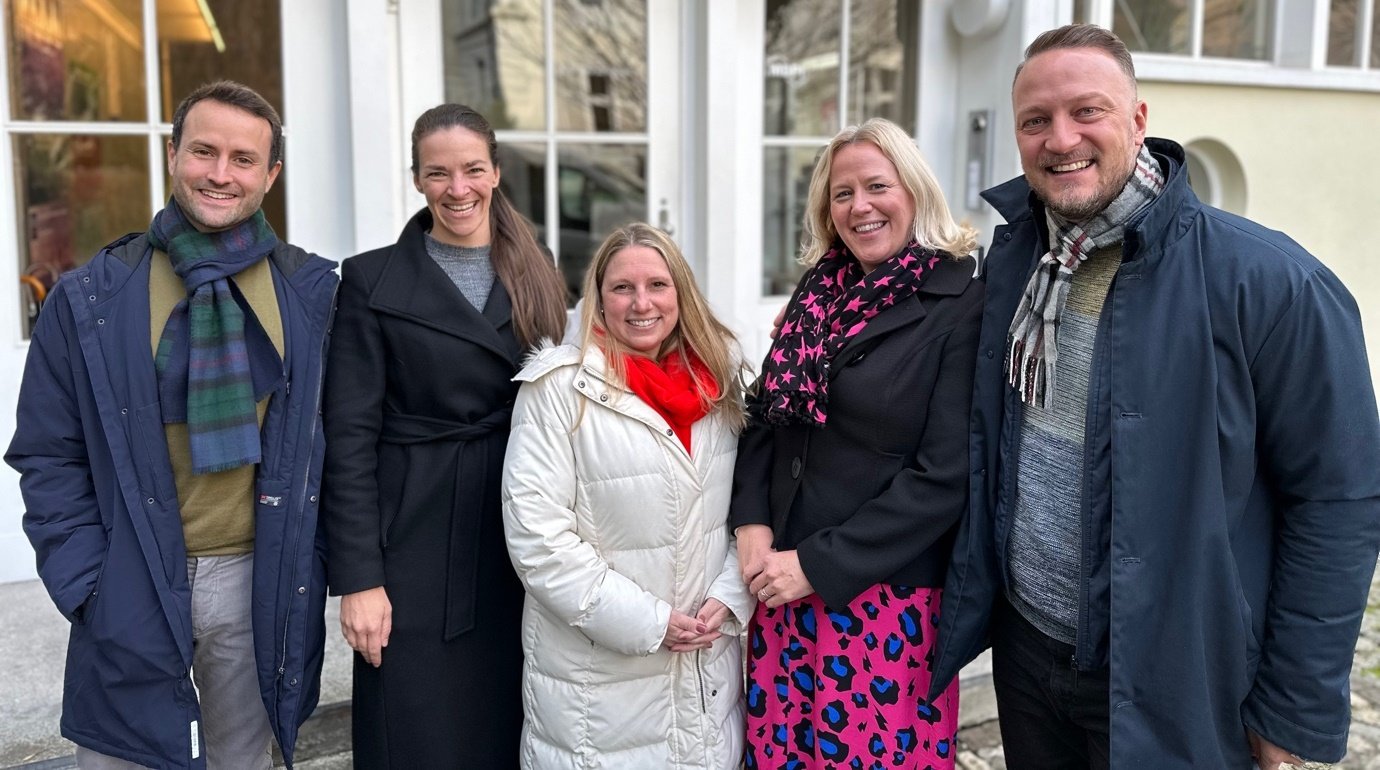
Left to right: Facundo Santomé (Senior Marketing Manager, MDPI), Constanze Shelhorn (Indexing Manager, MDPI), Cathy Holland (Director of Global Publisher Business Development, Digital Science), Helen Cooke (Managing Director of Publisher Sales, Digital Science), and Stefan Tochev (CEO, MDPI) in front of MDPI headquarters in Basel, Switzerland.
During our meeting, we discussed MDPI’s publishing philosophy and explored further avenues for collaboration. We look forward to continuing our partnership with Digital Science, aiming to improve our services yet further and meet the needs of our authors more closely than ever.
What is Altmetric?
You will notice that MDPI articles feature an Altmetric score, a colourful doughnut capturing the score in the upper right corner of the article page. This score represents ‘alternative metrics,’ as distinct from traditional metrics such as Impact Factor, CiteScore, and Scimago Journal Rank.
Altmetrics complement traditional citation-based metrics by capturing online discussions related to a specific research topic. By analyzing both sets of data, we can obtain a comprehensive understanding of the attention a particular research output receives and the sources in which it is mentioned.
“Almetric provides visual insights into where research is being discussed”
Sources Tracked by Altmetric
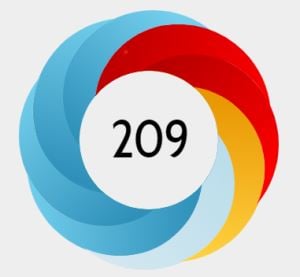
Altmetric badge showing the Altmetric score and colour-coded mention sources.
Altmetric monitors various sources, categorizing them into segments such as policy documents, peer reviews, Wikipedia, news and blogs, and social media, among other sources. Each category is identifiable by a specific colour.
The Altmetric badge provides visual insights into where the research is being discussed. A more colourful badge indicates broader mentions across multiple platforms. Such tracking enables us to gauge the extent of an article’s online dissemination, noting that increased visibility may correlate with higher citation rates.
Read more:
Impactful Research

Ten High-Altmetric Articles Published by MDPI
As at 30 January 2024, Altmetric has tracked 670,500 MDPI research outputs from MDPI, resulting in over 4.3 million mentions. This includes over 71,894 mentions in policy and patents and 294,714 mentions in news and blogs, with some achieving an Altmetric score as high as 28,754.
So, what is a good Altmetric score? There are various ways to put this score into context. You can find out more about the score in context and how to evaluate your work by this means.
Here are ten MDPI papers ranking in the top 5% of all research outputs scored by Altmetric.
|
|
“Accuracy in Wrist-Worn, Sensor-Based Measurements of Heart Rate and Energy Expenditure in a Diverse Cohort” J. Pers. Med. 2017, 7(2), 3; https://doi.org/10.3390/jpm7020003 Altmetric page: https://mdpi.altmetric.com/details/20477344 Altmetric shows that this article appeared in 253 news stories from 209 outlets including Forbes, BBC, and Fox News. |
|
|
“Daylight Saving Time and Acute Myocardial Infarction: A Meta-Analysis” J. Clin. Med. 2019, 8(3), 404; https://doi.org/10.3390/jcm8030404 Altmetric page: https://mdpi.altmetric.com/details/57654628 Altmetric shows that this article appeared in 295 news stories from 207 outlets including Forbes, The Atlantic, and New York Times. |
|
|
“The Preliminary Analysis of Cave Lion Cubs Panthera spelaea (Goldfuss, 1810) from the Permafrost of Siberia” Quaternary 2021, 4(3), 24; https://doi.org/10.3390/quat4030024 Altmetric page: https://mdpi.altmetric.com/details/111086701 Altmetric shows that this article appeared in 182 news stories from 134 outlets including CBC News, CNN, and National Geographic. |
|
|
“Not the Cat’s Meow? The Impact of Posing with Cats on Female Perceptions of Male Dateability” Animals 2020, 10(6), 1007; https://doi.org/10.3390/ani10061007 Altmetric page: https://mdpi.altmetric.com/details/83796184 Altmetric shows that this article appeared in 124 news stories from 98 outlets including VICE, CNN and The Guardian. |
|
|
“Behaviour and Welfare Impacts of Releasing Elephants from Overnight Tethers: A Zimbabwean Case Study” Animals 2022, 12(15), 1933; https://doi.org/10.3390/ani12151933 Altmetric page: https://mdpi.altmetric.com/details/133463915 Altmetric shows that this article appeared in 192 news stories from 186 outlets. |
How do I use altmetrics?
Altmetric Explorer provides a detailed step-by-step guide and instruction video for first-time users of the tool. The guide includes useful diagrams that make it easy to get started.
Sharing Research Online
For research to be tracked across different sources, Altmetric needs a research output with a persistent identifier: a DOI, ISBN, PubMed ID, handle ID, etc. When sharing research, it is important to include a link to the original research output.
|
|
“An Update on Eukaryotic Viruses Revived from Ancient Permafrost” Viruses 2023, 15(2), 564; https://doi.org/10.3390/v15020564 Altmetric page: https://mdpi.altmetric.com/details/142929875 Altmetric shows that this article appeared in 250 news stories from 180 outlets including CTV, Fox News, and CNN. |
|
|
“The Global Problem of Insufficient Sleep and Its Serious Public Health Implications” Healthcare 2019, 7(1), 1; https://doi.org/10.3390/healthcare7010001 Altmetric page: https://mdpi.altmetric.com/details/53406248 Altmetric shows that this article appeared in 252 news stories from 168 outlets including BBC, Harvard Business Review, and Forbes. |
|
|
“A Detailed Review Study on Potential Effects of Microplastics and Additives of Concern on Human Health” Int. J. Environ. Res. Public Health 2020, 17(4), 1212; https://doi.org/10.3390/ijerph17041212 Altmetric page: https://mdpi.altmetric.com/details/86529137 Altmetric shows that this article appeared in 197 news stories from 150 outlets including BBC, The Tribune, and World Economic Forum. |
|
|
“An Empirical Study of Chronic Diseases in the United States: A Visual Analytics Approach to Public Health” Int. J. Environ. Res. Public Health 2018, 15(3), 431; https://doi.org/10.3390/ijerph15030431 Altmetric page: https://mdpi.altmetric.com/details/34714141 Altmetric shows that this article appeared in 232 news stories from 149 outlets including Forbes, New York Times, and Harvard Business Review. |
|
|
“Garden Scraps: Agonistic Interactions between Hedgehogs and Sympatric Mammals in Urban Gardens” Animals 2023, 13(4), 590; https://doi.org/10.3390/ani13040590 Altmetric page: https://mdpi.altmetric.com/details/142934305 Altmetric shows that this article appeared in 172 news stories from 168 outlets including BBC. |
Inside MDPI

MDPI Annual Meeting Celebrations in China
On Thursday 25 January, over 1,300 MDPI colleagues from our two offices in Beijing gathered to kick off MDPI’s traditional ‘Annual Meetings.’ These celebrations take place in MDPI’s offices across China, including Dalian, Tianjin, Wuhan, and Nanjing.
The evenings include performances, informative talks and presentations, awards, and entertainment, providing an ideal platform to recognize our colleagues, celebrate their achievements, and set our sights on the future.
“It is essential that we stay connected and share best practices”

I sent a video congratulating everyone on their work and sharing our vision of building MDPI into the most trusted OA publisher, highlighting the roles each of us has to play in achieving that goal.
Unfortunately I could not join in person, but you may recall my recent trip, when I visited our offices in Beijing and Wuhan, which I look forward to visiting again this year.
Although our headquarters are in Basel, Switzerland, and we are expanding throughout Europe and North America, the majority of MDPI’s workforce is in China and throughout the Asia-Pacific region, including offices in Singapore, Thailand, Japan, and newly opened office in South Korea. It is essential that as a global organization, we stay connected and share best practices in order to grow collectively and continue providing the exceptional service to our authors.
The Annual Meeting is a moment to reflect and enjoy the year’s hard work and dedication.
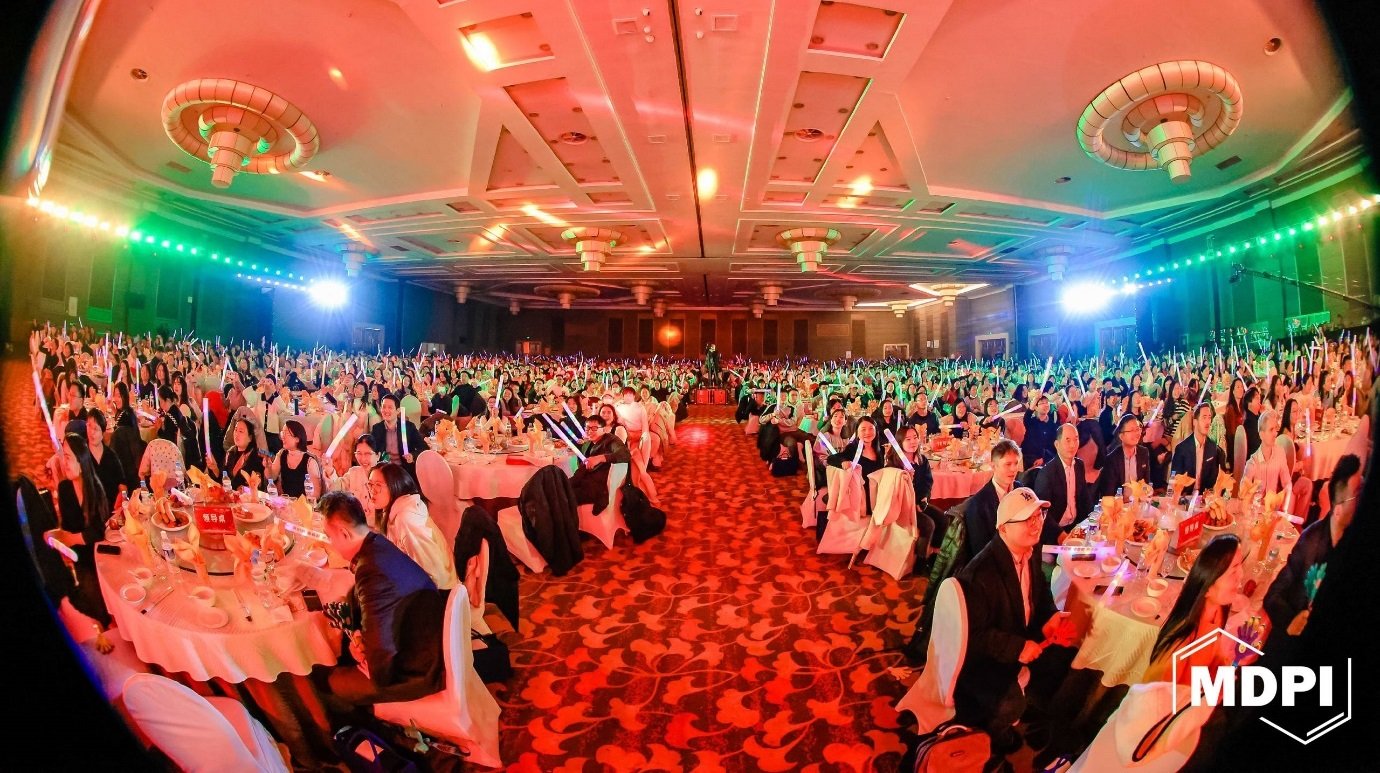
I extend our best wishes to all for the Chinese New Year (Xīnnián kuàilè)!
Coming Together for Science
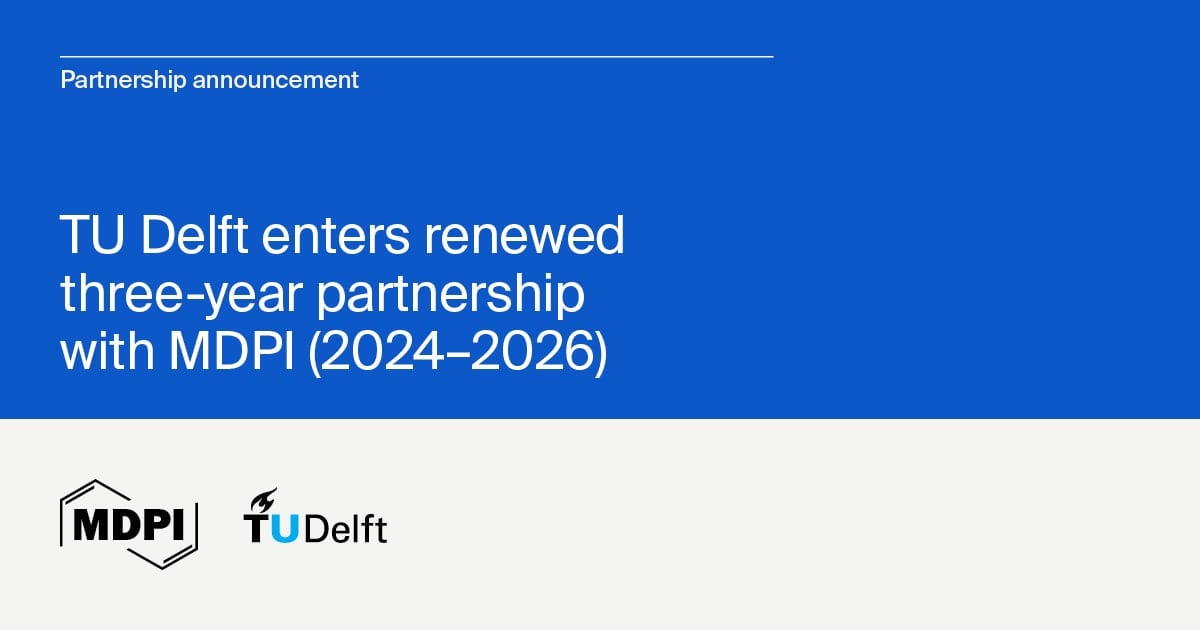
MDPI and TU Delft Adopt Flat Fee Model in Extended Partnership
We are excited to announce a renewed three-year partnership with Delft University of Technology (TU Delft) in the Netherlands. This collaboration introduces a fixed lump-sum fee, covering publishing costs from 2024 to 2026.
“This initiative reflects our dedication to transparent and inclusive publishing”
TU Delft-affiliated authors will enjoy cost-free publishing in any MDPI journal during this period, aligning with our commitment to removing barriers for open access publishing. The agreement supports Plan S compliance and facilitates a seamless publishing process for TU Delft corresponding authors. This initiative reflects our dedication to transparent and inclusive publishing, providing stability and predictability both for authors and for institutions.
For further details on our Institutional Open Access Program (IOAP), please contact us.
Benefits to MDPI’s IOAP
At MDPI we have a long tradition of partnerships, including our Institutional Open Access Program (IOAP). IOAP supports institutions through simplification, access, transparency, APC discounts, and institutional repository deposits. The program simplifies administrative processes, offers central payment, and allows easy opting in and out. Participants gain free access to Susy, MDPI’s online submission system, with extensive article metadata and exportable data. APC discounts and Book Processing Charge discounts are available for affiliated authors. Automated deposits to institutional repositories and streamlined matching of papers to IOAP participants enhance the overall experience.
For further information, see our IOAP FAQ.
Closing Thoughts
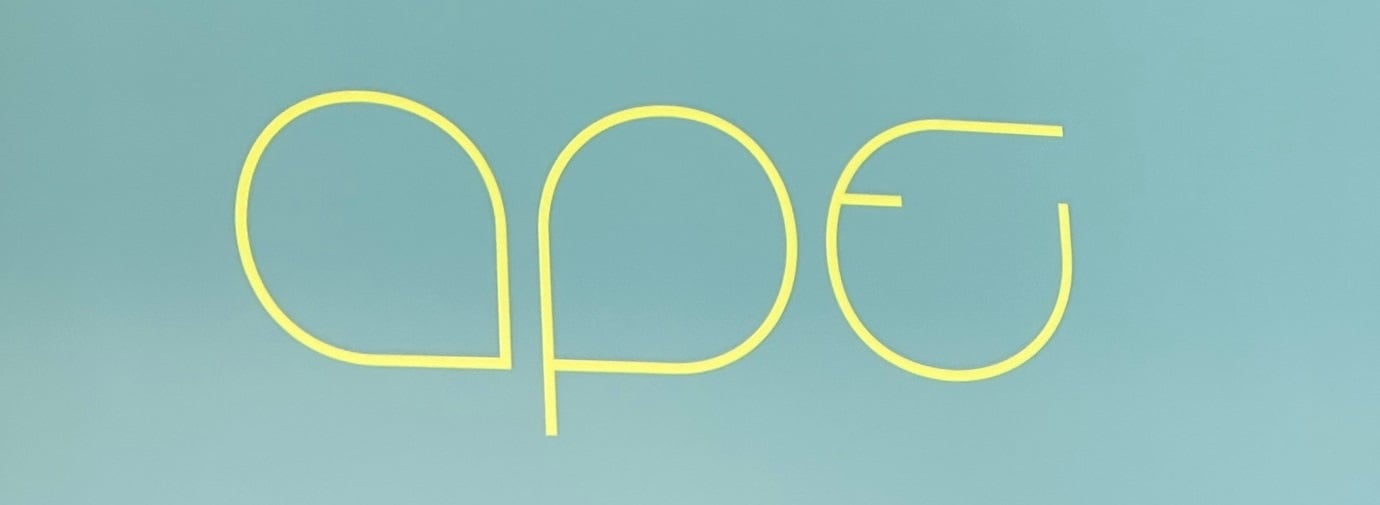
Reflections on the 2024 APE Conference
MDPI was proud to co-sponsor the Academic Publishing in Europe (APE) 2024 Conference that took place in Berlin, Germany, from 9–10 January 2024.
The conference theme, ‘Keep the Conversation Going!’, explored the evolving landscape of scholarly communication. APE is one of the key conferences I make a point to attend each year. January offers a valuable opportunity to engage with new contacts, reconnect with familiar faces, and participate in impactful discussions and presentations among professionals, scholars, and practitioners in the field.
“It's fascinating to see how other publishers are leveraging AI”
Highlights
Some of the standout panels for me include: the role of the UN Sustainable Development Goals (SDGs) within the publishing industry. It was encouraging to hear the current status quo, though I was eager also to learn about the exciting projects planned for 2024 and beyond. These will allow us to track progress in subsequent years. At MDPI, we remain committed to promoting Open–Access (OA) content on SDGs through scientific articles and books. Furthermore, we extend our commitment to sustainability by financially supporting researchers through initiatives such as the World Sustainability Award and the Emerging Sustainability Leader Award, as well as waiving the APC for feature papers on each SDG.
In recent years, discussions on AI have become increasingly prominent at such conferences. It’s fascinating to see how other publishers are leveraging AI to meet the evolving needs of their audiences while at the same time using it to safeguard the scientific process. Other engaging panels that I enjoyed included updates on transformation beyond transformative agreements, the principles of lean change, incentive structures related to research integrity, and the panel on reviewer incentives.
“We can share best practices and lessons learned”
Incorporating MDPI’s Insights into Conferences
I must confess that I sometimes feel overlooked when MDPI is not invited to participate in crucial industry discussions. As the leading open access publisher and the third-largest publisher overall, we possess extensive experience in many of these areas and can offer valuable contributions to these discussions. We can share best practices, lessons learned, and our thinking about future trajectories. For instance, in panels discussing reviewer incentives, at MDPI we offer a discount voucher to reviewers for future submissions, reflecting our commitment to fostering a robust peer review process. In 2022 alone, MDPI collected over 1.4 million peer review reports, informing the decision-making processes of our editors. Given our expertise in these areas, it would be natural to include MDPI in such discussions. I therefore extend an invitation to future conference organizers to consider MDPI for speaking engagements and collaborative opportunities.
Chief Executive Officer
MDPI AG
2 January 2024
MDPI Insights: The CEO's Letter #7 - Nobel Laureates Entrust MDPI with Their Research

Welcome to the MDPI Insights: The CEO's Letter.
In these monthly letters, I will showcase two key aspects of our work at MDPI: our commitment to empowering researchers and our determination to facilitating open scientific exchange.
Opening Thoughts

Nobel Prize Laureates Entrust MDPI with Their Research
The Nobel Prize stands as a hallmark of distinction, honouring ground-breaking research across disciplines. Annually, the Nobel Prizes are awarded in six categories: Physics, Chemistry, Medicine or Physiology, Literature, Peace, and Economic Sciences.
Through the years, renowned scholars have entrusted MDPI with their work. As at December 2023, 26 Nobel laureates have contributed to more than 75 articles across 25 MDPI journals, including: Antibiotics, Applied Sciences, Biology, Biomedicines, Cancers, Catalysts, Cells, Crystals, Entropy, Games, IJMS, Life, Materials, Micromachines, Molecules, Pharmaceuticals, Pharmaceutics, Photonics, Quantum Beam Science, Remote Sensing, Sensors, Solids, Universe, Vaccines, and Viruses.
The best of the best trust us with their work.
Nobel Prize Laureates Who Have Published with MDPI
We are proud to list the names of Pierre Agostini, Hiroshi Amano, Werner Arber, Aaron Ciechanover, Robert H. Grubbs, Oliver Hart, Gerard ‘t Hooft, Michael Houghton, Harald zur Hausen, Katalin Karikó, Jean-Marie Lehn, Gérard Mourou, Ferid Murad, Shuji Nakamura, William Nordhaus, Kostya S. Novoselov, Giorgio Parisi, Charles M. Rice, Alvin E. Roth, Donna Strickland, K. Barry Sharpless, George F. Smoot, Anne L’Huillier, Drew Weissman, Kurt Wüthrich, Ada Yonath.
The privilege of hosting such contributors resonates deeply with our editorial teams. For instance, in this interview, the Editor-in-Chief (EiC) of Universe speaks on the significance of publishing a paper by Nobel laureate Gerard ’t Hooft within the journal.
2023 Nobel Prize Winners Published by MDPI

Nobel Prize Winners, 2023: Katalin Karikó, Drew Weissman, Anne L’Huillier (Ill. Niklas Elmehed © Nobel Prize Outreach)
Three laureates from the 2023 Nobel Prize cohort have trusted MDPI as their publishing platform. Notably, in a 2022 Pharmaceutics paper, molecular biologist Katalin Karikó and her team presented a methodology for evaluating mRNA capping efficiency, pivotal for therapeutic applications. Pharmaceutics had previously dedicated a Special Issue to “mRNA Therapeutics: A Themed Issue in Honor of Professor Katalin Karikó”, spotlighting ten articles from August 2021 to February 2022.
In the journal Vaccines, Professor Drew Weissman, collaborating with scholars from Pennsylvania University and George Mason University, contributed an influential review titled “Nanomaterial Delivery Systems for mRNA Vaccines”. His collaborative efforts spanned five papers across MDPI journals between 2021 and 2023.
Furthermore, Anne L'Huillier of Lund University, only the fifth female recipient of the Physics Prize, co-authored an article in Applied Sciences focusing on "Advanced EUV and X-Ray Optics". Similarly, Pierre Agostini, an Emeritus Professor from Ohio State University, co-authored an article featured in the special issue "Attosecond Science and Technology: Principles and Applications".
We extend heartfelt congratulations to all Nobel Prize laureates and express sincere gratitude for their confidence in MDPI as a platform for their scholarly contributions.
Read more:
Impactful Research

MDPI Journals Newly Indexed in 2023
The aim of indexing is to enhance the quality and credibility of published research, ensuring that researchers access the most credible resources available. While the principle behind citation indexing is straightforward, it remains one of the most dependable methods for tracking an idea's evolution across various scientific disciplines.
Throughout the year, MDPI works to expand the reach of our publications across premier multidisciplinary databases like Web of Science, Scopus, EBSCO, and ProQuest. This initiative is spearheaded by MDPI's Indexing team, under the leadership of Dr. Constanze Schelhorn.
In 2023, MDPI achieved 54 new acceptances in Scopus, 29 in Web of Science, 52 in EBSCO, and 83 in DOAJ: Directory of Open Access Journals.
The team prioritizes ensuring that our journals feature in numerous specialized databases, including PMC, PubMed, MEDLINE, Inspec, CAS, and FSTA, among others. Currently, MDPI collaborates with over 65 renowned international databases, consistently enhancing our database affiliations annually.
MDPI’s journals are indexed in all major global databases.
Furthermore, we collaborate with universities and government organizations to list our journals in country-specific ranking lists and relevant institutional repositories. This ensures compliance with requirements often set by funders or institutions for authors to publish in specific journals.
Web of Science Adds 24 MDPI Journals to Emerging Sources Citation Index (ESCI)
Clarivate recently analysed MDPI’s new journals, resulting in 24 journals, mainly established in 2020, being added to the ESCI in November and December 2023. Additionally, five journals passed this assessment earlier in the year. For a complete list of our journals in Web of Science, refer here. Journals in the ESCI meet 24 quality criteria, ensuring editorial rigor. They may be considered for inclusion in broader indices like the Science Citation Index Expanded (SCIE), the Social Sciences Citation Index (SSCI), or the Arts and Humanities Citation Index (AHCI), based on four impact criteria.
Read more:
Inside MDPI

MDPI Appoints New Chief Operating Officer (COO)

Alistair Freeland returned to MDPI and assumed the role of Chief Operating Officer in November 2023, a position he previously held from 2013 to 2019. He succeeds Dr. Yu Lin, who will remain a member of MDPI’s Board of Directors, overseeing significant financial decisions for the company. I would like to express my sincere thanks to Dr. Yu Lin for his service as COO.
Alistair brings extensive experience not only in scholarly publishing but also in technology and business management. Prior to rejoining MDPI, he was associated with SIX Group, the entity responsible for Switzerland's financial market infrastructure. There, he played a pivotal role in developing the blockchain-based platform SDX (SIX Digital Exchange), which has gained traction among major Swiss banks and the Swiss National Bank.
As COO, Alistair will collaborate with the MDPI management team to improve the practices and services we offer to scholarly communities. I am pleased to welcome Alistair back to MDPI and look forward to his contributions going forward.
Coming Together for Science

MDPI’s 2024 In-Person Academic Events Schedule
MDPI's Conference Team is dedicated to organizing and hosting in-person academic events across Europe, Asia-Pacific, and North America. We recognize conferences as invaluable platforms for scientific collaboration, scholarly exchange, discussions on contemporary topics, networking, and forging collaborations.
Here's a glimpse of the notable events we currently have scheduled for 2024:
|
|
14–16 February, 2024 |
|
|
24–26 April, 2024 |
|
|
28–31 May, 2024 |
|
|
1–4 August, 2024 |
Upcoming events with details to be announced:
- September 2024, Materials 2024 – Basel, Switzerland
- 19–21 September 2024, International Conference on Nanomaterials Sciences 2024 – Beijing, China
- October 2024, ncRNA 2024 – Basel, Switzerland
- November 2024, Pharmaceuticals 2024 – Barcelona, Spain
- 22–26 November 2024, International Conference on Science of Electronics – Wuhan, China
- Stay tuned for more details on the Sustainable Publishing Forum 2024.
Click here for all upcoming MDPI events.
Organize Your Event with MDPI’s Sciforum
Sciforum is MDPI’s platform dedicated to the organization of scientific events. In line with our mission to promote science, Sciforum supports scholars, societies, research networks, and universities at all stages of organizing in-person events, virtual events and webinars. Our platforms are efficient, user-friendly, and cost-effective. We handle all steps related to event management. Contact us for details.
Closing Thoughts

Reflecting on 2023 and Looking Ahead to 2024
As we approach 2024, I reflect on the incredible journey we’ve had together at MDPI this year. The past 12 months have been marked by ambitious projects and initiatives to improve our internal processes, and a commitment to continue delivering top-notch services to our stakeholders. I’d like to thank each and every one of our staff members for contributing to the positive experiences our stakeholders have reported in our surveys. Your dedication to speed, efficiency, and effective communication with our stakeholders is very much recognized and appreciated.
Becoming a stronger organisation
While we have encountered challenges in 2023, it’s important to understand that these are a part of our growth process. Difficulties provide us with opportunities to reflect, address problems at their roots, and ultimately evolve into a stronger organization. Our stakeholders expect us to overcome tough times, and it’s an expectation that we have for ourselves.
I extend my sincere appreciation to every MDPI employee, from our editorial office and IT department to marketing, indexing, IOAP, societies, Scientific Office board, products, production, conferences, finance, operations, admin, and beyond. To our newest team members, a warm welcome; to our longstanding colleagues, your dedication is invaluable.
“I am committed to taking MDPI to a new level of excellence.”
Interacting with many of you during my visits to our offices and representing MDPI at external events has been a personal highlight. I am deeply grateful to Dr. Lin for entrusting me with the role of CEO of MDPI. Looking forward, I am committed to working closely with our management team to lead MDPI and take it to a new level of excellence, aiming to establish it as the most trusted publisher in open access worldwide. This is a collective endeavour, with each of us shaping MDPI’s reputation. I therefore encourage us to take pride in our work, as it represents not only our craft but also MDPI as a whole.
Accountability and communication
As we look forward to 2024, there’s a lot to be excited about. Together, we’ll navigate challenges, seize growth opportunities, and refine our practices. To solidify MDPI’s position as the premier open access publisher globally, we must bolster accountability, improve stakeholder communication, share MDPI’s best practices, champion the open access philosophy, and educate stakeholders about our mission, methodologies, and motivations.
Thank you for engaging with the CEO Letter over the past six months of 2023. I will continue to release this newsletter as a method of sharing the great work being done at MDPI. Please feel free to connect directly with any insights or questions.
Here’s to a joyous and prosperous 2024!
Chief Executive Officer
MDPI AG
1 December 2023
Sensors Webinar | IoT Network Security, 5 December 2023

Internet of Things security is a technical field that focuses on protecting connected devices and networks in the Internet of Things. The Internet of Things involves adding internet connections to interconnected systems of computing devices, machinery, digital machines, objects, animals, or humans. Each “thing” provides a unique identifier and the ability to automatically transmit data over the network. If devices are not properly protected, allowing them to connect to the internet can expose them to many serious vulnerabilities. All data in the Internet of Things may be stolen or invaded by cybercriminals. The more devices you connect, the more opportunities cybercriminals have to endanger your security. The consequences of IoT security vulnerabilities can be extremely destructive. As the Internet of Things becomes increasingly common in industry, cyber attacks may trigger a range of potential destructive consequences. For example, in the healthcare industry, devices may expose sensitive patient data or even endanger patient safety. In smart homes, compromised devices may allow criminals to monitor people’s homes. Based on the above reasons, studying the security of the Internet of Things has become increasingly important.
Date: 05 December 2023 at 10.00 a.m. CET | 4:00 a.m. EST | 5:00 p.m. CST Asia
Webinar ID: 817 9208 7982
Webinar Website: https://sensors-14.sciforum.net/
Register now for free!
Program
| Speaker/Presentation | Time in CET |
| Prof. Dr. Jian Li Chair Introduction |
10:00 a.m.–10:10 a.m. |
| Dr. Cristina Rodriguez-Sanchez New Proposals for Management Data in Real Monitoring for Smart City Services |
10:10 a.m.–10:40 a.m. |
| Dr. Chee Kiat Seow GNSS Vulnerability for Internet of Things |
10:40 a.m.–11:10 a.m. |
| Prof. Dr. Jian Li Situation Awareness and Research on Information Security of Expressway Intelligent Terminal |
11:10 a.m.–11:40 a.m. |
| Q&A Session | 11:40 a.m.–11:55 a.m. |
| Prof. Dr. Jian Li Closing of Webinar |
11:55 a.m.–12:00 p.m. |
After registering, you will receive a confirmation email containing information on how to join the webinar. Registrations with academic institutional email addresses will be prioritized.
Unable to attend? Register anyway and we will let you know when the recording is available.
Webinar Chair and Speakers:
- Prof. Dr. Jian Li (Chair), School of Cyberspace Security, Beijing University of Posts and Telecommunications, Beijing, China;
- Dr. Cristina Rodriguez-Sanchez, Experimental Sciences and Technology, Rey Juan Carlos University, Madrid, Spain;
- Dr. Chee Kiat Seow, School of Computing Science, University of Glasgow, Glasgow, UK.
Relevant Special Issue:
- “IoT Network Security”
Guest Editor: Prof. Dr. Jian Li
30 November 2023
MDPI Insights: The CEO's Letter #6 - MDPI Spain Summit and ResearchGate

Welcome to the MDPI Insights: The CEO's Letter.
In these monthly letters, I will showcase two key aspects of our work at MDPI: our commitment to empowering researchers and our determination to facilitating open scientific exchange.
Opening Thoughts

MDPI Spain Summit

Stefan Tochev (CEO, MDPI) gives the opening speech at the MDPI Spain Summit.
On Friday 10 November 2023 I was in Barcelona, Spain, to deliver the opening presentation and participate in a panel at MDPI’s Spain Summit, a two-day event, inspired by our salon events in China.
With 16 Editors-in-Chief (EiCs) and 20 Editorial Board Members (EBMs) in attendance, the event, organized by our conference team and Barcelona office, featured presentations on open access (OA), MDPI, and publishing market trends in Spain.
The event provided a great opportunity to engage with stakeholders from various MDPI journals, including Nutrients, Vaccines, Buildings, IJMS, and others. We were able to gather feedback and have open conversations around manuscript quality, the peer-review process, and journal development, as well as accreditation agencies.
The main objective of this Summit was to bring together Editors representing MDPI journals across various disciplines within Spanish universities and research centers, primarily from the Barcelona area. The aim was to facilitate an open and fruitful discussion regarding the development of their journals, the future of OA in Spain, and to provide meaningful interactions and networking opportunities.
Connecting with Editorial Board Members

Stefan Tochev in conversation with Summit participants: "Our EBMs are passionate about the journals they serve."
Interacting with our EBMs in person provides a valuable opportunity to show how important it is to us to connect with them, hear their perspectives on their journals and learn more about their own experience collaborating with MDPI.
From my conversations, it was clear that our EBMs are passionate about the journals they serve. I know the advice they provide may sometimes involve just small tweaks, but these can lead to important improvements. As the saying goes, small hinges swing open big doors.
As at November 2023, MDPI has over 6,300 EBMs affiliated with Spanish institutions, with more than 30 of them serving as EiCs or section EiCs. Furthermore, over 68,000 Spanish scholars have contributed as reviewers in MDPI journals.
Open Access in Spain
In 2023, Spain implemented legislation mandating immediate OA for all publicly funded research, aligning with the EU’s Plan S initiative to expedite the transition to OA. The Spanish government also approved a four-year, €23.8 million annual budget for the first national OA strategy, aiming to make publicly funded research freely accessible upon publication. This strategy aims to strengthen the quality and transparency of research in Spain, and to help promote movement towards a digital, low-carbon economy.
For further details of Spain's OA policy and the history of government mandates, click here.
Spain has already seen a notable decline in subscription-only articles, decreasing by 62% over a 10-year period, while gold OA increased by 42%. Green OA slightly decreased, suggesting a shift towards publishing in gold OA journals rather than traditional subscription-based ones. Here are some statistics from Scopus.
A big thank-you to the various MDPI teams, including our conference team and the Barcelona office, for organizing this very successful event!

MDPI colleagues from various offices gathered to host and support the first MDPI Spain Summit, in Barcelona, Spain.
I think this type of gathering has the potential to become an annual event in various locations. For example, Manchester could be an option, as we have over 30 EiCs and over 3,000 EBMs in the UK, a top market for MDPI that publishes high-quality research.
Impactful Research

769 Editorial Board Members of MDPI Journals Recognized as Highly Cited Researchers in 2023
Congratulations to our 769 Editorial Board Members from 40 countries/territories who have been awarded Highly Cited Researcher status for 2023 by Clarivate. This recognition is based on their outstanding scientific research contributions and significant influence in various fields, as evidenced by Web of Science data.
Click here to view the full list of 769 Editorial Board Members.
Clarivate's Highly Cited ResearchersTM list identifies individuals with exceptional impact in scientific and social science domains over the past decade. Their papers rank in the top 1% of citations in 21 fields analysed in ‘Essential Science Indicators,’ showcasing their substantial influence.
This year, 7,125 Highly Cited Researcher 2023 designations were issued to 6,849 individuals from 67 countries, representing just 1 in 1,000 researchers worldwide.
These researchers demonstrate exceptional influence, representing a small fraction of contributors pushing the boundaries of knowledge, contributing to global well-being, sustainability, and security.
Congratulations to these scholars for their remarkable achievement: we are honoured to have them on board with our journals!
Inside MDPI

Corporate Marketing and Communications Strategy Session

Members of MDPI’s Corporate Marketing & Communications team.
For the past few years, I have led the Corporate Marketing & Communications department in our annual strategy session.
This typically involves 2–3 days of focused sessions covering key topics including budgeting, hiring targets, campaign reviews, and planning for the upcoming year, department strategy, and structure.
We are constantly exploring ways to optimize the Corporate Marketing & Communications department to support MDPI’s primary objectives and better convey the MDPI story while serving the scholarly community.
The strategy session also serves as a team-building activity, during which the team voted on bowling!
Strategy Session
In this strategy session, we looked at how to align our teams in order to better streamline our content with our campaigns, build a dedicated marketing team to strategically support our core MDPI products, expand our communications teams and functionalities to focus on company-critical campaigns and press releases, align our new brand design system with our marketing initiatives, set up a community and engagement team to support various teams with their outreach and communication efforts, and increase our use of data in the evaluation of campaign performance.
To grow in these areas, we will be hiring for various positions, including those of Public Relations Manager, Communications Manager, Internal Communications Manager, Campaign Manager, Marketing Associate, and Editorial Engagement Manager.
I am grateful for the way our Corporate Marketing & Communications department has grown and gelled over the years, and I look forward to supporting the department teams and their ideas for the future.
Coming Together for Science

ResearchGate and MDPI Partner to Boost the Visibility of Open Access Content through Journal Home

Stefan Tochev (CEO, MDPI) and Sören Hofmayer (Co-Founder and Chief Strategy Officer, ResearchGate) meet in Berlin, Germany to take their ongoing discussion further.
When I assumed the role of CEO at MDPI, my primary focus was to initiate the building of essential partnerships and collaborations within our industry. After all, I am a firm believer in achieving our goals by helping others achieve theirs and focusing on co-opetition wherever there is an opportunity. I first touched on the notion of co-opetition in MDPI Insights: The CEO's Letter #3, particularly when discussing collaborations with Elsevier.
In light of this, Sören Hofmayer (Co-Founder and Chief Strategy Officer at ResearchGate) and I connected recently to continue a discussion that had been ongoing for months. I was quickly brought up to speed and felt there was an opportunity for MDPI journals to pilot the Journal Home service that ResearchGate had launched. This would provide a new way for MDPI to engage with authors and readers and amplify the visibility of our journals.
While I receive many offers and opportunities for discussions with vendors, I am a firm believer that timing is everything, and in this case, the time for us is now. Sören and I met in person during my recent visit to Berlin and decided to proceed with piloting ten MDPI journals with the Journal Home service.
The press release below provides further details.
Press Release: Berlin (Germany) and Basel (Switzerland), 15 November 2023
ResearchGate, the professional network for researchers, and MDPI, the largest open access publisher in the world and a pioneer in open access publishing, today announced a partnership that will see ten of MDPI’s open access journals benefit from an enhanced presence on ResearchGate through its innovative Journal Home offering.
This new partnership will expand the reach and visibility of MDPI’s participating flagship journals with ResearchGate’s highly relevant community of more than 25 million researchers globally.
Around 210,000 version-of-record articles from these 10 titles will be readily available on ResearchGate, including the full archive material and all new articles as they are published. These journals also benefit from enhanced brand visibility, with dedicated journal profiles, prominent representation on all associated article pages and all relevant touchpoints across the ResearchGate network – keeping the journals top-of-mind with their reader and author audiences. All articles covered by the new partnership will automatically be added to the authors’ publication records in ResearchGate. This not only reduces MDPI authors’ needs for direct management but also offers them valuable insights into the impact of their work, including data about readership and citations.
Closing Thoughts

November is Men’s Health Awareness Month

Stefan Tochev (CEO, MDPI) listening to music as he writes at a coffee shop in Basel, Switzerland.
November is dedicated to raising awareness of various men’s health issues. I have been fortunate to have positive male role models in my life, and I strive to share my experiences with others.
I used to take part in Movember, growing my moustache throughout November to raise awareness and funds and to help “change the face of men’s health.” With male family and friends impacted by physical and mental health issues, I have recently become more interested in men’s overall well-being.
Men often face stigma involving the perceived need always to be strong and have things figured out. Recently, I’ve had meaningful conversations with male friends and colleagues about issues we rarely discuss, and it was a positive experience.
Various factors impact men’s health and well-being, all too easily leading to risky health behaviours including a lack of health awareness, poor health education, and negative, culturally induced, behaviour patterns in our work and personal lives. I hope we can break down these barriers in our work environment.
Healthy men help build healthy families and a healthy society
Men are less likely than women to seek help with their physical and mental health struggles. This is a reminder to prioritize your overall well-being. I hope that as men, we will continue to open up to one another, becoming vulnerable in order to share what we are going through. By sharing and by supporting each other, we can learn and grow together. You are not alone, and when you fall, you can still get up and stand tall.
From one broski to another, you are loved and appreciated. I hope this mindset carries into December and beyond.
Mindfulness
Our content team recently released a handful of articles on mindfulness, a practice that I believe provides a good opportunity for stress release and self-reflection:
Chief Executive Officer
MDPI AG
29 November 2023
Editorial Board Members from Sensors Featured in the 2023 Highly Cited Researchers List Published by Clarivate
Recently, ClarivateTM revealed its 2023 list of Highly Cited ResearchersTM—individuals at universities, research institutes, and commercial organizations.
The scientists who were selected for this year’s list of Highly Cited Researchers published highly cited papers in the 11-year period from January 2012 to December 2022, with citation frequency in the top 1% of academic subjects and the same year of publication in the Web of ScienceTM database. This year, 7,125 Highly Cited Researcher 2023 designations were issued to 6,849 individuals, representing just 1 in 1,000 researchers worldwide. This means that these researchers have demonstrated an incredible level of significant and broad influence in their chosen field or fields over the last decade. The list is truly global, spanning 67 countries or regions and spread across a diverse range of research sciences and social sciences.
According to our statistics, 8 members of the Editorial Board of Sensors (ISSN: 1424-8220) were selected for the list of Highly Cited Researchers by ClarivateTM in 2023. They are being recognized for their high-quality scientific research achievements and outstanding contributions to their professional fields. The Sensors Editorial Office sincerely congratulates all elected editorial members and hopes that they continue to have an academically productive relationship with the journal.
|
Researcher |
Category |
Affiliation |
|
Ozcan, Aydogan |
Cross-Field |
University of California Los Angeles, USA |
|
Kim, Jong Seung |
Chemistry |
Korea University, South Korea |
|
Pan, Caofeng |
Cross-Field |
Chinese Academy of Sciences, China Mainland, China |
|
Li, Hongyi |
Computer Science/Engineering |
Guangdong University of Technology, China |
|
Lee, Pooi See |
Cross-Field |
Nanyang Technological University, Singapore |
|
Li, Zhijun |
Engineering |
University of Science & Technology of China CAS, China |
|
Lu, Nanshu |
Cross-Field |
University of Texas Austin, United States |
|
Ghaffari, Roozbeh |
Cross-Field |
Northwestern University, United States |
29 November 2023
Interview with Dr. Elliot Strand—Winner of the Sensors 2023 Best Ph.D. Thesis Award

The Sensors 2023 Best Ph.D. Thesis Award has been granted to the following thesis:
“Printed Organic Electronics for Plant and Environmental Monitoring”
by Elliot Strand, University of Colorado Boulder, USA
The following is an interview with Dr. Elliot Strand:
1. Can you briefly introduce the main research content of your Ph.D. thesis and its significance in the field of sensors? Additionally, could you share some emerging research directions in this field?
The core content of my thesis answers the following research question: How can we utilize printed organic electronics for plant health and environmental monitoring? Printed organic electronics is a field that combines organic chemistry with printing technologies to craft flexible and lightweight electronic devices. What really excites me about this area of study is its scalability. Unlike conventional electronics manufacturing, printing techniques eliminate the need for high-temperature and vacuum environments, making it a cost-effective and accessible solution for mass production.
There is a vast opportunity for future research and development in the field of printed organic electronics for agricultural and environmental monitoring. Since organic electrochemical transistors (OECTs) inherently operate in aqueous media and amplify biochemical signals, they are extremely relevant devices for detecting analytes that have relatively low concentrations in nature. Gate functionalization approaches, such as the deposition of gel-based membranes with immobilized markers and the incorporation of self-assembled monolayers (SAMs), are promising techniques to detect specific biomarkers based on electrochemical reactions at the gate electrode. Additionally, to avoid contributing to the global issue of electronic (e-) waste, considerable research should focus on developing printed devices that are environmentally friendly. In the case of biodegradability, the devices would operate for a set period and then naturally decompose into their environment after their service life. Since the substrate and encapsulant components make up most of the mass for a given printed electrochemical sensor, these constituents are a natural starting point. Plastic substrates could be replaced with compostable materials like cellulose or sugars, while natural waxes and rosins could be used as dielectric encapsulants.
2. What intriguing discoveries or unexpected breakthroughs did you discover during the research process? Please share some insights into these findings.
During my Ph.D. research, I discovered the transformative power that strategic device architecture considerations and simple additives have in enhancing printed sensor performance. In Chapter 4 of my thesis, I describe one notable breakthrough of incorporating a small amount of sugar alcohol into a commercially available screen printing ink. This seemingly minor addition exerted a significant influence on critical factors such as print thickness and the sensitivity of electrochemical transistors for detecting ionic nutrients. In another compelling finding detailed in Chapter 7, I experimented with the introduction of an additional encapsulation layer of ethyl cellulose over printed carbon electrodes. This relatively straightforward modification yielded a remarkable enhancement in the device's functionality, particularly for capacitive humidity sensing. What made these insights particularly exciting was the fact that each device was constructed mostly from commercially available ink materials; however, a subtle compositional change or innovative design approach could unlock previously untapped potential for the given sensor.
3. Could you describe some of the obstacles you encountered while conducting your Ph.D. research? How did you overcome them?
One of the most significant obstacles I encountered during graduate school was to develop the laboratory's screen printing process from the ground up. When I began my Ph.D., this challenge was daunting, given that no one at CU Boulder had previously manufactured a multi-layer electronic device solely through printing. I will never forget the initial guidance from my advisor, Dr. Gregory Whiting, to try hand-painting the different electronic ink materials to get a better understanding of their properties. I immediately purchased artist paint brushes from a local hardware store and was off to the races. Unsurprisingly, my first attempts yielded poorly performing devices. However, I persevered, gradually building my knowledge and incorporating techniques such as blade coating, laser cutting, and stencil application. These tools allowed me to establish a layer-by-layer alignment process, overcoming the initial setbacks. I take pride in the fact that screen printing is now widely utilized by most of the graduate students in the lab. This experience underscored the importance of persistence, innovative problem-solving, and relentless interaction during the research process.
4. When and how did you first become aware of the Sensors journal? What motivated you to apply for the Sensors 2023 Best Ph.D. Thesis Award?
Throughout my time in graduate school, our research group had an established collaboration with a similarly themed lab at the University of California, Berkeley. A few of our collaborators from this partnership published an exciting paper in Sensors that focused on screen-printed potentiometric sensors for monitoring nitrate in soils. In particular, my colleague, Dr. Payton Goodrich, who played a pivotal role in the publication, introduced me to the journal and encouraged me to apply for the prestigious Best Ph.D. Thesis Award.
5. How has the Sensors 2023 Best Ph.D. Thesis Award helped to support the career of a young/early career researcher? What advice do you have for aspiring young researchers like yourself?
The Sensors 2023 Best Ph.D. Thesis Award boosts the career of a young researcher by offering recognition and validation of their academic contributions, enhancing visibility within the scientific community, and establishing credibility that opens doors to collaboration and funding.
My advice for aspiring young researchers is to embrace failure as a crucial part of the learning process. Regular attendance and consistent prioritization are key; showing up and dedicating time to high-priority tasks will lead to the creation of new knowledge. Don’t forget that the opportunity to contribute to the advancement of knowledge is a privilege, and perseverance through challenges is an integral aspect of the journey.
6. How do you plan to advance and expand upon your research in the future, and what are your long-term career aspirations in the field of sensors and beyond?
Dr. Payton Goodrich, my colleague from UC Berkeley, and I have recently co-founded a startup. Our goal is to leverage the printed sensor technology that we developed during our Ph.D. research to create the product. This product is intended to assist growers, regulators, consultants, and municipalities in enhancing the efficiency, sustainability, and profitability of their operations. If you want to learn more, feel free to connect with us.
Looking torwards the future, my long-term career aspirations revolve around providing both broad and local service. With a passion for sustainability, I am dedicated to improving our species' interaction with nature and promoting sustainable practices in every industry that I can. Furthermore, I aspire to contribute to my community by educating and empowering the next generation of STEM leaders to excel in their fields, innovate solutions to global challenges, and positively impact the world through their scientific knowledge and quality leadership.
21 November 2023
769 Editorial Board Members of MDPI Journals Achieve Highly Cited Researcher Recognition in 2023

We extend our sincere congratulations to the 769 Editorial Board Members of our journals – from 40 different countries/territories – who have been recognized as Highly Cited Researchers for the year 2023 by Clarivate. They are being recognized for their high-quality scientific research achievements and outstanding contributions to their professional fields, as indicated by Web of Science data.
Clarivate's annual list of Highly Cited ResearchersTM identifies the most highly cited scientists for the past decade who stand out for their significant and broad influence in various scientific and social science domains. Their impactful papers are among the top 1 per cent in the citation distribution of one or more of 21 fields analyzed in the "Essential Science Indicators", distinguishing them as hugely influential among their peers.
This year, 7,125 Highly Cited Researcher 2023 designations were issued to 6,849 individuals from 67 countries, representing just 1 in 1,000 researchers worldwide.
This means that these researchers have demonstrated an incredible level of significant and broad influence in their chosen field or fields over the last decade. They represent a small fraction of the researcher population whose contributions disproportionately push the boundaries of knowledge, enhancing global well-being, sustainability, and security.
Congratulations to the scholars for their noteworthy achievement – we are honored to have them on board with our journals!
|
Abate, Antonio |
Jaiswal, Amit K. |
Shen, Zexiang |
15 November 2023
Join Us at the MDPI Author Training Workshop at Manchester Metropolitan University, 17 November 2023, Manchester, United Kingdom

MDPI Manchester, in collaboration with the Manchester Metropolitan University, is organizing an author training session aiming to elucidate the scientific aspects of writing and publishing scholarly articles. The workshops will facilitate scholars in enhancing their comprehension of academic publications through exploration and cultivation. The training will be conducted by proficient academic editors from MDPI and will include the incorporation of use-case scenarios. The event will additionally demonstrate MDPI’s regional vision, featuring a round-table discussion with field-leading academics and editors, and a quiz with an opportunity to win prizes.
Date: 17 November 2023
Time: 2:00 p.m.–5:00 p.m.
Venue: BS 6 35, Business School, Manchester Metropolitan University, United Kingdom
Schedule:
| Time | Program and Content | Speakers |
| 14:00-14:05 | Introducing Author Training | Prof. Ali Kashif Bashir |
| 14:05-14:15 | MDPI’s Regional Vision | Mr. Rhys Pumphrey |
| 14:15-14:45 | How to Write Scientific Papers | Ms. Jaime Anderson |
| 14:45-15:20 | Editorial Insights: Reasons for Rejections and Responding to Peer-Reviewers | Ms. Isabel Nelson |
| 15:20-15:30 | Break | |
| 15:30-16:00 | A Round-Table Discussion with Academics and Editors | |
| 16:00-16:10 | Job Opportunities and Benefits at MDPI | Ms. Jaime Anderson |
| 16:10-16:30 | Quiz (with prizes!) | |
| 16:30-17:00 | Networking | |
MDPI speakers:
| Speaker | Biography |
|
Mr. Rhys Pumphrey |
Mr. Rhys Pumphrey obtained his M.Eng. in materials science and engineering from the University of Manchester, UK in 2021. He joined MDPI as an Assistant Editor for the journal Materials the same year. In September 2022, he became a Section Managing Editor, and he is currently the Journal Relations Specialist for Materials. |
|
Ms. Jaime Anderson |
Ms. Jaime Anderson holds a bachelor’s degree in psychology from the University of Manchester, UK (2018) and a Master’s degree in comparative and evolutionary psychology from the University of St Andrews, UK (2019). She joined MDPI in June 2020 as Assistant Editor and Section Managing Editor for the journal IJMS. In 2022, she joined the journal Animals, and was appointed Office Manager of the Manchester Office. |
|
Ms. Isabel Nelson |
Ms. Isabel Nelson obtained her M.Sc. in environmental monitoring, modelling and reconstruction from the University of Manchester, UK in 2020. With an interest in environmental and public health, she joined MDPI as an Assistant Editor for the journal Healthcare in 2021. Since October 2022, she has worked towards becoming a Section Managing Editor, whilst acting as the Journal Relations Specialist for Healthcare. |
3 November 2023
Meet Us at Asia Communications and Photonics Conference/International Photonics and OptoElectronics Meetings (ACP/POEM 2023), 4–7 November 2023, Wuhan, China

MDPI will be attending the Asia Communications and Photonics Conference/International Photonics and OptoElectronics Meetings (ACP/POEM 2023) in Wuhan, China, from 4 to 7 November 2023.
Asia Communications and Photonics Conference (ACP), which began in 2001, is one of the largest conferences in the Asia–Pacific region on optical communication, photonics and relevant technologies. The International Photonics and OptoElectronics Meetings (POEM) is an annual international conference hosted by the Wuhan National Laboratory for Optoelectronics (WNLO) of Huazhong University of Science and Technology (HUST), together with the Optics Valley Laboratory (OVL) in Hubei Province. ACP/POEM 2023 will be hosted by Huazhong University of Science and Technology. During this conference, MDPI will welcome researchers from different fields to visit and share their latest research.
The following MDPI journals will be represented:
If you are attending this conference, please stop by our booth #3. Our delegates look forward to meeting you in person and answering any questions that you may have. For more information about the conference, please visit the following link: http://www.acpconf.com/.
1 November 2023
MDPI Insights: The CEO's Letter #5 - OA Week, UK, and Strategy

Welcome to the MDPI Insights: The CEO's Letter.
In these monthly letters, I will showcase two key aspects of our work at MDPI: our commitment to empowering researchers and our determination to facilitating open scientific exchange.
Opening Thoughts

Open Access Week 2023 – the Global Drive to Open Continues
As the world's largest open-access (OA) publisher, we believe that unrestricted access to research findings is the cornerstone of transparency, efficiency, and quality control across scientific disciplines. At MDPI, we provide free, immediate access to scientific papers, empowering scientists to examine, validate, replicate, and build upon existing results. This minimizes redundancy, optimizes resources, and fosters innovative approaches.
International OA Week, held from 23 to 29 October 2023, provided a unique opportunity to link the global movement toward open sharing and open science with the progress of policy changes at the local level. Our mission, during OA Week and all the year round, is to offer educational resources highlighting the benefits of open-access publishing. The MDPI Blog is a valuable resource for information on open access and open science.
Core principles of OA publishing
Accessibility, transparency, and collaboration are core principles of OA publishing. OA aims to break down barriers that have traditionally restricted research access, ensuring that knowledge is available to all, regardless of financial situation or institutional affiliations. Our commitment to diverse pathways for OA publishing worldwide includes discounts for researchers. You can learn more about how MDPI supports scientific communities here.
One of the key strengths of OA publishing is its ability to facilitate interdisciplinary research. By removing paywalls and promoting knowledge-sharing across disciplines, OA encourages collaboration and innovation. Researchers from various fields can access and build upon each others’ work, fostering a holistic approach to addressing complex global challenges.
OA holds the potential to democratize knowledge, advance science, and drive positive societal change.
Policy driving change
Governments, institutions, and funding agencies have recognized the transformative potential of OA and have implemented policies to promote it. These policies often require publicly funded research to be made openly accessible, accelerating the growth of OA repositories and journals. Check out our spotlights on OA policies in the US, EU and China.
OA publishing is continuously evolving, with community-driven models and technologies shaping its future. Initiatives such as “Plan S” and “cOAlition S” promote OA publishing from the perspective of national funders, requiring grantees to publish their research openly. A new policy announced by the US administration last year mandates that, with effect from January 2026, all US federally funded research should be freely and immediately available after publication.
Additionally, preprint servers such as MDPI's Preprints.org, which allow researchers to share their findings before formal peer review, have gained popularity, enhancing the speed at which new knowledge is disseminated. The rise of blockchain technology is also being explored to ensure transparency and authenticity in scholarly publishing.
For more than two decades, OA publishing has been revolutionizing academic publishing by promoting accessibility, transparency, and collaboration. Its support for interdisciplinary research, evolving policies, and innovative practices all contribute to its growing influence in the global research community. As OA continues to expand, it holds the potential to democratize knowledge, advance science, and drive positive societal change.
MDPI is proud to lead the transition to open access.
Read more:
Impactful Research

Spotlight on Smart Cities
Smart cities will serve as a cornerstone for future human development. Their implementation will help us tackle many of the significant challenges we are facing – climate change, ageing populations, waste management, public safety, travel, and so on. Recognising the importance of this multifaceted field, MDPI launched the inaugural issue of Smart Cities in 2018 to provide an advanced forum for research into smart technology and society. Here we take a look at how this journal has developed, and its impact in this exciting field.
As at 30 October, 2023, Smart Cities has published 421 papers and has an Impact Factor of 6.4. It also has a CiteScore of 8.5, and more than one quarter of its published papers – 124 – have been cited 10 times or more.
Highly cited papers in Smart Cities
Below are several highly cited papers recently published in Smart Cities. Citation metrics are current as at 31 October 2023.
1. “Introducing the “15-Minute City”: Sustainability, Resilience and Place Identity in Future Post-Pandemic Cities”
Authors: Carlos Moreno, Zaheer Allam, Didier Chabaud, Catherine Gall and Florent Pratlong
Smart Cities 2021, 4(1), 93-111; https://doi.org/10.3390/smartcities4010006
Citations: Crossref (338), Scopus (366), Web of Science (270), Google Scholar (710)
The paper discusses the socio-economic impacts of the COVID-19 on cities, including increasing inequalities and rising unemployment. It introduces the concept of the "15-Minute City," a form of "chrono-urbanism," as a response to the challenges posed by the pandemic.
2. “A Review on Electric Vehicles: Technologies and Challenges”
Authors: Julio A. Sanguesa, Vicente Torres-Sanz, Piedad Garrido, Francisco J. Martinez and Johann M. Marquez-Barja
Smart Cities 2021, 4(1), 372-404; https://doi.org/10.3390/smartcities4010022
Citations: Crossref (359), Scopus (363), Web of Science (268), Google Scholar (558)
This paper provides an overview of the progress in Electric Vehicles (EVs), focusing on battery technology, charging methods, and emerging research challenges. It also analyzes the global EV market and its future outlook.
3. “IoT in Smart Cities: A Survey of Technologies, Practices and Challenges”
Authors: Abbas Shah Syed, Daniel Sierra-Sosa, Anup Kumar and Adel Elmaghraby
Smart Cities 2021, 4(2), 429-475; https://doi.org/10.3390/smartcities4020024
Citations: Crossref (121), Scopus (151), Web of Science (91), Google Scholar (215)
This paper gives an overview of the Internet of Things (IoT) in the context of Smart Cities, discussing the fundamental components, technologies, architectures, networking technologies, and artificial algorithms that underpin IoT-based Smart City systems.
4. “Artificial Intelligence Techniques in Smart Grid: A Survey”
Authors: Olufemi A. Omitaomu and Haoran Niu
Smart Cities 2021, 4(2), 548-568; https://doi.org/10.3390/smartcities4020029
Citations: Crossref (76), Scopus (94), Web of Science (57), Google Scholar (120)
This survey paper reviews the utilization of artificial intelligence (AI) techniques in the context of the smart grid. It covers various applications of AI in load forecasting, power grid stability assessment, fault detection, and security issues in the smart grid and power systems.
5. “The Metaverse as a Virtual Form of Smart Cities: Opportunities and Challenges for Environmental, Economic, and Social Sustainability in Urban Futures”
Authors: Zaheer Allam, Ayyoob Sharifi, Simon Elias Bibri, David Sydney Jones and John Krogstie
Smart Cities 2022, 5(3), 771-801; https://doi.org/10.3390/smartcities5030040
Citations: Crossref (72), Scopus (75), Web of Science (43), Google Scholar (176)
This paper discusses the concept of the Metaverse, a virtual world introduced by Meta (formerly Facebook), and its potential impact on urban life. It explores how emerging technologies such as AI, Big Data, IoT, and Digital Twins could reshape urban design and services in the context of the Metaverse.
Testimonial
“It was indeed a great and pleasant experience with MDPI regarding our recent publication. The submission process was very straightforward and less time-consuming than the norm. The review process was very fast compared to many other open access journals, which is praiseworthy. The support from the Editorial Office during the revision process was highly useful as well. We look forward to publishing with MDPI in the future, and I will most definitely recommend MDPI to my colleagues and collaborators.” – Dr. Luís Rosa, University of Minho
Article in Smart Cities: Mobile Networks and Internet of Things Infrastructures to Characterize Smart Human Mobility
Inside MDPI

MDPI Manchester office, UK Visit

Allie Shi (Editorial Director, MDPI), Stefan Tochev (CEO, MDPI), Jamie Anderson (Manchester Office Manager, MDPI), Michael O’Sullivan (Senior Scientific Officer, MDPI), Hushneara Akhtar, and Becky Castellon (IOAP Team Lead, MDPI), dining out in Manchester, UK.
In October, I visited MDPI’s new office in Manchester. During the visit, I connected with our English Editing (EE) managers, Scientific Officer, members of the Editorial team, the Marketing team, and IOAP Team Lead.
Our Manchester office focuses primarily on EE services and provides local support for the UK market. Additionally, we regularly visit Editorial Board members and participate in local conferences.
I would like to thank Jamie Anderson, Manchester Office Manager, and her team, for their deep commitment to our Manchester staff and to MDPI’s impact on the UK market.
The UK by numbers
The UK is a hub for the world’s top universities, making it a key market for MDPI and the publishing world in general. It is home to two of the top-five-ranked universities globally, 11 in the top 100, and 15 in the top 200.
As a result, the UK plays a key role in MDPI’s global market. As at October 2023, it ranks as the seventh-largest contributor to the total number of papers published by MDPI. We have 3,500 Editorial Board members affiliated with UK institutions, including 34 serving as Editors-in-Chief (EiCs). Our commitment to collaboration with institutions is evident in the UK, where we have successfully established some 60 Institutional Open Access Program (IOAP) agreements with esteemed institutions, such as the University of Oxford, the University of Cambridge, Imperial College London, the University of Edinburgh, and more.
According to InCites Dataset + ESCI for the period 2018–2022, as at October 2023, nearly 65% of UK papers are now published as OA. Just over 10% of total OA publications are by UK authors. UK papers are known for their high quality, with an average of 11 citations per paper. Furthermore, 2.16% of UK papers are in the top 1% of cited papers, and 14.61% are in the top 10% of cited papers, showcasing their impact.
We are currently hiring EEs in various locations worldwide.
English Editing at MDPI
Our English Editing (EE) department consists of two main branches, Quality Control and Learning and Development, reflecting our priorities. We are continuously enhancing the quality of our English Editing services and have raised the relevant standards, which now extend to company-wide communications. English editors participate in international interviews, conduct English assessments, and provide colleagues with presentations on ways to improve their use of written and spoken English.
While expanding, the EE department has proactively refocused its efforts on the quality of our work and how the English Editing department can benefit the company more broadly. We currently have approximately 140 full-time English Editors based across five offices worldwide, supplemented by over 700 freelance English editors.
Our Manchester office serves as the hub for the EE Department, with EE Managers situated there, except for Kurtis Jackson, who serves as the Head of EE and is located in our Basel office. Manchester EEs play a critical role in establishing and developing EE teams in our other offices, overseeing management and recruitment. The EE department plays a vital role in MDPI’s operations, as it is the department that touches every published paper. If this work interests you, I encourage you to explore our available EE positions, whether you are seeking full-time or freelance opportunities.
Testimonials
“MDPI provides an excellent service compared to any other previously used services. It delivers fast and high-quality results but at an affordable price.” – Ardha Apriyanto, University of Potsdam
“In my role as a professor, I consider that MDPI Author Services offer an excellent quality in the editing of Western academic writing while maintaining the required standards of clarity, precision and rigor. Additionally, delivery times are fast compared to other available services.” – Jesus Insuasti, University of Nariño
Read more:
Coming Together for Science

STM and Frankfurt Book Fair
Attending STM
MDPI has been a proud sponsor of the STM Conference for several years. The STM Conference is a dynamic event featuring interactive sessions, expert panellists, idea-sharing, and ample networking opportunities. On 16 October, the event kicked off with arrival drinks, sponsored by MDPI, followed by a welcoming dinner, providing a great chance to connect and network with industry professionals. The following day was filled with speakers, sessions, and further opportunities to connect. STM exemplifies the collaborative spirit of the scientific community, with session topics including achieving open, visible, and impactful research at scale; maintaining research integrity in a rapidly changing world; and exploring the impact of ever-evolving technology in the scholarly community.
Meeting with Web of Science
On a personal note, one of the highlights of STM was a candid and productive conversation with Nandita Quaderi, Editor-in-Chief and SVP at Web of Science. During our discussion, we talked about MDPI, Web of Science, the IJERPH delisting, and ways of moving forward. This open conversation aimed at fostering better collaboration for the future.
“We discussed ways to improve our communication and collaboration.”
I appreciated our frank discussion and felt that Nandita wholeheartedly supports open access. She also expressed her appreciation for the monthly CEO Letter, which she sees as a way to add personality to the MDPI brand and provide insight into the great work we do at MDPI. While we highlighted the positives, we also discussed ways to improve our communication and collaboration moving forward. This meeting alone made the trip worthwhile, and I hope Nandita doesn’t mind my sharing that she found our chat to be “the most honest and constructive discussion” she’s had with someone from MDPI in recent years.
75th Frankfurt Book Fair

Jelena Milojevic (Book Editor, MDPI), Jovana Dubajic (Book Editor, MDPI), Evan Escamilla (Project Manager, MDPI), Laura Wagner (Head of Books, MDPI), and Jenny Knowles (Commissioning Editor, MDPI), at the Frankfurt Book Fair in Frankfurt am Main, Germany.
For the 75th time, the Frankfurter Buchmesse opened its doors in October to celebrate exciting stories and their authors. If you haven’t yet had the chance to visit the Frankfurt Book Fair, I highly recommend it. It’s the largest book fair in the world, attracting thousands of visitors from around the globe. This is the place to gain valuable industry insights from top-class publishing professionals, connect with publishers directly, and learn about the latest trends in publishing.
MDPI Books
Our Books team was also present at the Frankfurt Book Fair, networking and learning from various panels. Did you know that our MDPI Books department publishes OA Books?
The book publishing program includes monographs, book series, edited books and reprints of special issues and topical collections, among other book types.
If you have a book proposal you would like to discuss, please feel free to contact our Books team to understand the benefits and methods of publishing your next book with the OA model.
Closing Thoughts

MDPI Strategy Meeting
As the newly appointed CEO, this is my first year leading the MDPI Senior Management Strategy session. I saw it as an opportunity to explore what MDPI has the potential to become in the next five years. Guided by the vision of its founder and President, Dr. Shu-kun Lin, the company has accomplished remarkable feats over the past 27 years and currently holds the position as the world’s third-largest academic publisher, following Springer Nature and Elsevier.
Our primary objective is to build upon the milestones of the past decades and consolidate MDPI’s position as well-established publishing brand. The two-day meeting emphasized the importance of communicating MDPI’s values more actively via its brand and adopting a straightforward yet impactful approach to managing MDPI as a mature academic publisher.
“Our primary objective is to consolidate MDPI’s position as well-established publishing brand”
As the world’s number one open-access publisher, MDPI has long been a game-changer in the scholarly community, serving millions of authors. The challenge in being a trailblazer is the need to continuously improve and at the same time explore the next blue-ocean strategy, while also maintaining the smooth operation of the business. Our collection model, featuring guest-curated thematic topics in the form of Special Issues, has disrupted the industry. Other publishers closely study us and attempt to replicate our models. The future of this collection model is something we are actively addressing – while, of course, looking ahead to what comes next!
Chief Executive Officer
MDPI AG
25 October 2023
Meet Us at the 7th Micro-Nano Optical Technology and Application Symposium, 17–19 November 2023, Hangzhou, China

MDPI will be attending the 7th Micro-Nano Optical Technology and Application Symposium in Hangzhou, China, which will take place from 17 to 19 November 2023. Micro-nano optics is one of the most active frontiers in the development of optical disciplines. It combines the cutting-edge results of photonics as well as nanotechnology and is an indispensable key science and technology in the 21st century. This conference aims to build a communication platform for scientific researchers and industrial application teams engaged in related research, as well as to promote the development of micro-nano optics and its application fields.
The following MDPI journals will be represented:
- Electronics;
- Photonics;
- Coatings;
- Crystals;
- J. Imaging;
- Micro;
- Sensors.
If you are attending the conference, please visit our booth. Our delegates look forward to meeting you in person and answering any questions that you may have. For more information about the conference, please visit the following link: https://b2b.csoe.org.cn/meeting/MOTA2023.html.
19 October 2023
Open Access Week 2023 – the Global Drive to Open Continues

MDPI has been a strong proponent of the open access publishing model right from the beginning. As one of the pioneering fully open access publishers, we firmly believe that unrestricted access to research findings forms the foundation for better transparency, efficiency, and quality control across all scientific disciplines.
In December 2022, we reached a significant milestone by surpassing one million articles published. That is one million articles freely available to all, to circulate and build upon!
Offering free and immediate access to scientific papers empowers scientists to examine, validate, replicate, and expand upon existing results. This not only helps prevent redundancy and optimizes how resources are used but also paves the way for innovative new approaches.
The International Open Access Week takes place from 23 to 29 October 2023, providing a unique opportunity to connect the global movement towards open sharing and open science with the progress of policy transformations at the local level.
Our goal, during Open Access Week as well as throughout the year, is to offer resources for educating people about the benefits of open access publishing. The MDPI Blog offers a wealth of information around open access and open science.
Promoting the values of accessibility, transparency, and collaboration
Open access publishing embodies the fundamental values of democratizing knowledge and fostering global accessibility. It aims to break down barriers that have traditionally limited access to scholarly work, ensuring that knowledge is available to all, regardless of their financial or institutional affiliations.
Discounts are part of our commitment to ensuring there are diverse pathways to Open Access publishing for researchers worldwide. MDPI supports scientific communities in several different ways.
One of the key strengths of open access publishing lies in its ability to facilitate interdisciplinary research. By removing paywalls and promoting the sharing of knowledge across disciplines, OA encourages collaboration and innovation. Researchers from diverse fields can access and build upon each other's work, fostering a holistic approach to addressing complex global challenges.
Funders' policies are getting aligned with open science
Governments, institutions, and funding agencies have recognized the transformative potential of open access and have implemented policies to promote it. These policies often mandate that publicly funded research should be made openly accessible. Such initiatives have accelerated the growth of open access repositories and journals, reinforcing the commitment to open access principles. Check our spotlights on OA policies in the US, EU and China.
Open access publishing is continually evolving, with innovative and community-driven models and technologies shaping its future. Initiatives like "Plan S" and "cOAlition S" promote the adoption of OA publishing from the national funders’ perspective by requiring grantees to publish their research openly. A new policy announced by the US administration last year requires that, as of January 2026, all US federally funded research be made freely and immediately available after publication.
Additionally, preprint servers such as MDPI's Preprints.org, which allow researchers to share their findings before formal peer review, have gained popularity, enhancing the speed at which new knowledge is disseminated. The rise of blockchain technology is also being explored to ensure transparency and authenticity in scholarly publishing.
For more than twenty years, open access scholarly publishing has been revolutionizing academia by promoting the values of accessibility, transparency, and collaboration. Its support for interdisciplinary research, evolving policies, and innovative practices all contribute to its growing influence in the global research community. As open access continues to expand, it holds the potential to democratize knowledge, advance science, and drive positive societal change.
MDPI is proud to be a leader in the transition to open access.
2 October 2023
MDPI Insights: The CEO's Letter #4 - MDPI Presence in China

Welcome to the MDPI Insights: The CEO's Letter.
In these monthly letters, I will showcase two key aspects of our work at MDPI: our commitment to empowering researchers and our determination to facilitating open scientific exchange.
Opening Thoughts

Open Access in China
It is Saturday, 23 September, and I have just returned from an unforgettable 12-day trip to China, visiting our main offices in Beijing and Wuhan. In the wake of a packed and very enjoyable agenda of internal and external meetings, I would like to use this edition of the CEO Letter to showcase how MDPI supports the scholarly community in China.
Coincidentally, Jack McKenna, Communications Associate from MDPI’s corporate content team, has just released a blog article discussing China’s open access (OA) policy. It is a timely read, providing a concise overview of the development of the OA movement in China and reflecting on its future. I shall draw some content from Jack’s piece and use this edition of the CEO Letter to highlight the various ways in which MDPI is involved in this market. And it would be remiss of me not to include some pictures and highlights from my travels!
Open Access Policy in China
As per Jack’s post, in 2020, China became the world’s leading producer of research articles. Today, China is experiencing a “substantial growth rate in OA [Open Access] publication”. This growth is supported by the State’s commitment to research & development and its policy “requiring the promotion of open science”.
Over the past two decades, there have been gradual developments in China’s OA framework, with repositories and platforms being developed in a consistent manner. Currently, key institutions across China – including the National Science Library, the National Science and Technology Library, and the Natural Science Foundation of China – support OA. The State aims to establish consistent policies across government agencies – a framework for a more encompassing embrace of OA across institutions.
In China, the number of subscription-only articles decreased by nearly 30% over the 10-year period of 2011–2021, while gold OA increased by 22%. Between 2017 and 2020 alone, China published 800,921 academic papers in an OA format.
In 2023, as the leading publisher of academic research, China is pursuing “self-reliance”. Therefore, the State will be establishing consistent policies across government agencies, including those related to OA. Additionally, it will want to ensure that Chinese people can access the research that is supported by Chinese funding and produced by Chinese academics. For this reason, “Open Access is a matter of priority in China”.
MDPI Offices in China
While the history of MDPI begins in Basel, Switzerland, the story of MDPI’s founder is very much rooted in China. Dr. Shu-kun Lin, Founder and President of MDPI, graduated with a BSc from Wuhan University in 1982. He also studied physical chemistry at the Lanzhou Institute of Chemical Physics, Chinese Academy of Sciences (1982–1986; MSc in 1985), and at the University of Louisville, USA (1987–1989). Dr. Lin completed his doctorate in organic chemistry at the Swiss Federal Institute of Technology (ETH-Zürich) in 1992.

Stefan Tochev (CEO, MDPI) at MDPI’s Wuhan office.
In 2002, MDPI’s Basel headquarters moved to Matthäusstrasse 11, 4052 Basel, and Dr. Lin opened an editorial office in Qingdao, China, which launched the journal Marine Drugs in the following year. Below is a list of MDPI’s current offices in China and their respective dates of inauguration:
- 2008: Beijing (Tongzhou, Haidian)
- 2013: Wuhan (Hankou, Guanggu)
- 2019: Tianjin
- 2021: Dalian
- 2021: Nanjing
Our Strength is in Our People
With over 6,000 MDPI staff, across 20 offices in 11 countries, MDPI is able to offer authors responsive and efficient round-the-clock support, enabling a rapid publication process.
In my experience, stakeholders are genuinely surprised when they realize the extent of our global operations. My response is to reiterate that our people are our strength. This is why we have fast and efficient processes and top-notch responsiveness. Our global presence ensures that your manuscript is constantly attended to, rather than sitting on someone’s desk. We prioritize our authors’ needs and act quickly to move things through the various stages of publication. MDPI is built on speed, convenience, and competence, which I believe are core pillars for success in any industry. We continually strive to improve our systems and processes on the basis of these core strengths. We literally have over 6,000 staff worldwide dedicated to serving your needs. It’s not magic: it’s people; it’s real.
Impactful Research

MDPI Awards
To support the academic community, and especially young researchers, and also to enhance communication among scientists, MDPI journals offer various awards in specific fields. We serve the scientific community by funding research to facilitate the development of sustainable global solutions through our annual World Sustainability Award and Emerging Sustainability Leader Award.
In 2022, MDPI made awards totalling over US$1 million in recognition and support of researchers worldwide.
Across our journal catalogue, we have granted over 2,000 awards to recognize and support researchers from all disciplines. Since 2016, these awards have served as a source of recognition, acknowledging the impact of research by heightening the influence of talented individuals. The award types mainly include the Young Investigator Award, the Best PhD Thesis Award, the Best Paper Award, and the Outstanding Reviewer Award.
To learn more about MDPI Awards and to find out which are currently available, please click here.
MDPI Awards to Scholars from China
Since 2021, there have been 23 Best Paper Awards granted to authors affiliated with Chinese institutions, identifying their papers as having high-quality scientific impact. A total of 45 Chinese scholars have received awards such as the Young Investigator Award, the Best PhD Thesis Award, the Outstanding Reviewer Award, and the Tu Youyou Award, among others. Prizes for these awards include MDPI grants for paid publications, totalling over CHF 70,000 for scholars affiliated with Chinese institutions.
MDPI’s Tu Youyou Award

Prof. Tu Youyou (left), Dr. Shu-Kun Lin (President, MDPI).
In 2015, Professor Tu Youyou was awarded the Nobel Prize in Physiology or Medicine “for her discoveries concerning a novel therapy against Malaria.” In order to commemorate Professor Tu’s contributions to human health and to promote the passion and spirit conveyed by her experiences, MDPI in 2016 established the ‘Tu Youyou Award’, which runs biennially to recognize outstanding scholars dedicated to the research of natural products and medicinal chemistry.
The 2022 Tu Youyou Award was granted to Prof. Dr. Xiaoguang Lei of Peking University. Click here to access the interview with the winner.
2015 Nobel Prize for Medicine Awarded to Professor Youyou Tu
Professor Tu’s work was celebrated in a Special Issue from Molecules on the occasion of her 80th birthday. The Special Issue: 'Artemisinin (Qinghaosu): Commemorative Issue in Honor of Professor Youyou Tu on the Occasion of her 80th Anniversary” was created five years before she won the Nobel Prize, highlighting the visibility MDPI provides researchers and their work.
Highly Cited Articles by Chinese Scholars Published in MDPI
Click here to access the most cited MDPI papers published by scholars affiliated with Chinese institutions. This list presents the most influential research from the more than 287,000 MDPI papers published by Chinese scholars. With over 9 million total citations, I encourage you to maximize your visibility and impact by publishing with MDPI, the number one most cited open access publisher.
Read more:
- Tu Youyou Award
- World Sustainability Awards
- Available Awards
Inside MDPI
 Stefan Tochev (CEO, MDPI) with the Beijing Marketing team.
Stefan Tochev (CEO, MDPI) with the Beijing Marketing team.
Marketing Department in China
During my visit to our offices in Beijing and Wuhan, I had the opportunity to meet with, and to present to, our local marketing teams. These teams are responsible for various journal-related and corporate promotional activities, including newsletters, conferences, seminars, author training, journal awards, content creation, digital marketing, and social media.
I was pleased by the ambition and curiosity of our marketing colleagues. They showed a strong desire to collaborate and acquire knowledge and tactics to effectively market and promote MDPI-journal-related activities. I presented some of the principles and objectives that we apply in the Corporate Marketing and Communications department, and used the opportunity to strengthen our collaborative communications across offices.
 Stefan Tochev (CEO, MDPI) with the Wuhan Marketing team.
Stefan Tochev (CEO, MDPI) with the Wuhan Marketing team.
Coming Together for Science

Collaborations, Scholarships and Meetings
MDPI maintains partnerships with nearly 190 learned societies and over 800 institutions and consortia, helping to facilitate the transition to OA publishing. Our commitment to working with institutions is evident in China, where we have successfully established over 35 Institutional Open Access Programs (IOAP) with esteemed institutions such as the Tsinghua University, Huazhong University of Science and Technology, and Shanghai Jiao Tong University.
Our institutional partnerships, waiver programs, and article processing cost discounts create diverse pathways to OA publishing for researchers worldwide.
Scholarships in China
Since 2021, several MDPI journals (Sensors, Photonics, Coatings, Materials, Energies, and Journal of Fungi) have funded full scholarships for four Master’s and five Ph.D. projects in China. These scholarships align with Tianjin University, Wuhan University of Technology, Central South University, the Chinese Academy of Sciences, and the China University of Petroleum (Beijing).
Meeting with the Society of Chinese University Journals (CUJS)

Prof. Tieming Zhang (President of CUJS, centre) and MDPI colleagues at CUJS office.
I am pleased to have participated in some highly productive meetings during my visit to China, including one with the Society of Chinese University Journals (CUJS). The meeting involved Prof. Tieming Zhang (President of CUJS), Assoc. Prof. Xin Zhang (Vice President and Secretary General), and Dr. Fei Gao (Executive Member of CUJS). Alongside my colleagues Dr. Guoshi Liu, Dr. Giulia Stefenelli, and Anita Sun, I represented MDPI and held an open discussion to address any questions regarding OA and MDPI.
We discussed several methods for collaboration, including a workshop on the future of peer review, MDPI sponsoring a funding grant for early-career researchers, and transitioning journals from diamond to gold OA. I am thankful for the opportunity to have met our colleagues at CUJS in person and feel very confident about our future collaborations in support of OA publishing in China.
MDPI hosts free academic seminars, author training sessions, and academic conferences as part of its commitment to enrich and support the scholarly community. CUJS often stages academic events (e.g., conferences, editor training, and editor competitions), and I believe there are great opportunities for CUJS and MDPI to collaborate accordingly.
Meeting with National Science Library, Chinese Academy of Sciences (NSLC)

Stefan Tochev (CEO, MDPI), Dr. Giulia Stefenelli (Chair of Scientific Officers, MDPI), Anita Sun (PR Manager, MDPI) and Dr. Guoshi Liu (Managing Director, MDPI) at the National Science Library, Chinese Academy of Sciences.
We also visited the NSLC Director, Xiwen Liu, and colleagues Ying Jin, Zhesi Shen, and Sichao Tong. Following our introductions, we gave a presentation on the history and editorial process at MDPI, discussing specific details related to MDPI’s business and data. We highlighted the status of our IOAP collaborations in China and the makeup of our author base, specifically in China, and drew attention to the fact that MDPI has published research by authors from every country in the world. We then discussed the design indicators, calculation methods and implementation purposes of the ‘Early Warning Journal List’ and how we can have open communication to provide any data regarding MDPI journals. I am pleased to report that we reached a consensus on future communications, and am grateful to NSLC for hosting us in their offices.
In-person meetings with stakeholders provide an invaluable opportunity to communicate what MDPI is about and the various ways in which we serve the scholarly community. While digital marketing and online communication are essential, they are no replacement for the understanding and trust that come about through in-person interactions.
The Numbers
As at September 2023, China holds the largest position in MDPI’s global market, ranking as the largest contributor to the total number of papers published by MDPI.
At this point in time, there were more than 847,000 China mainland scholars who have published with MDPI, 51 of whom are Section-Editors-in-Chief (SEiC) of MDPI journals, with seven serving as Editors-in-Chief (EiCs) for journals such as Air, Big Data and Cognitive Computing, Blockchains, Future, Nanoenergy Advances, and Targets.
Our growth and presence in China are a true testament to the service we provide to the scholarly community, and to the relationships we foster through collaborative activities. We look forward to continuing to support the growth of the scholarly community in China, providing a valuable and trusted experience with MDPI.
Closing Thoughts
Final Reflections on our MDPI Offices in Beijing and Wuhan

Stefan Tochev (CEO, MDPI), Dr. Constanze Schelhorn (Indexing Manager, MDPI), Jiale Shang (Admin, Tongzhou, MDPI) at Beijing Capital International Airport, Beijing.
I spent approximately two weeks visiting some of our offices in China, and the first word that comes to mind when describing my experience is ‘hospitality.’ My colleagues and I were met with enthusiasm and delight at the airport by the Tongzhou Admin team (thank you, Jiale Shang, and thank you, Eric Wang, for keeping us organized on this trip!) and were taken care of with great attention. From hotels to transportation, dinners, and meetings, our stay was catered for perfectly.
Perhaps this is where MDPI’s focus on customers and service originates. At our core, we are a service company that provides a publishing platform for its authors. It’s therefore no surprise that authors consistently rate their experience with MDPI very highly.
95% of submitting authors rate their overall experience with the MDPI publication process as Excellent or Good (Springer Nature report 90%).
91% of submitting authors rate their overall experience with the MDPI peer review process as Excellent or Good.
Speed/Efficiency and Editorial Relationship are two key reasons underlying this high satisfaction score. ‘Editorial Relationship’ can be further explored, but in the past month, the most commonly noted aspects were the professionalism, kindness, availability, communicativeness, and personalized assistance provided by our editorial staff throughout the process. These attributes are at the core of our work across all our offices and continents.
Hospitality and Service
Just as our Chinese colleagues strove to keep us engaged by showing us the city sights (thank you, Thea Pan, and Jason Wu from the Wuhan Marketing team!) and sharing a variety of wonderful meals, our editorial staff are committed to serving our authors throughout their publishing journey. Our aim is to place the author at the centre of everything we do, eager to welcome our ‘guests’ and provide them with a pleasant publishing experience.
I asked my colleague Francis Wu (Senior Publisher, Wuhan office) where this hospitality originates. He responded that it is part of Chinese culture. I reflected long and deep on this answer. China is a vast country, and when visitors arrive, hosts want to ensure they feel welcomed and taken care of in order to maximize their time and visit. I can’t think of a better analogy for how I would want our authors to feel when they visit MDPI for their publishing needs. A company culture that prioritizes service, something that goes beyond products and productivity, and focuses on the overall experience. Over 6,000 people, across all MDPI offices, are ready, willing and able to go the extra mile for their colleagues and their customers. This is something I am truly proud of.
Chief Executive Officer
MDPI AG
22 September 2023
2023 ISPRS International Journal of Geo-Information Editorial Board Meeting at the ISPRS Geospatial Week (GSW 2023), Held in September 2023, in Cairo, Egypt

ISPRS International Journal of Geo-Information (IJGI, ISSN: 2220-9964) attended the ISPRS 2023 Geospatial Week (GSW 2023) from 2 to 7 September 2023 in Cairo, Egypt, and held the 2023 Editorial Board meeting on 5 September 2023. We greatly appreciate that Editor-in-Chief Prof. Wolfgang Kainz hosted this meeting and that there were four Editorial Board Member (EBM) attendees.
At this Editorial Board meeting, the EBMs had a positive discussion about the peer-review process, communication with Guest Editors, balancing the Associate Editor’s work, and the Associate Editor candidate in the scope area of “Spatial Data Management” and other journal development issues.
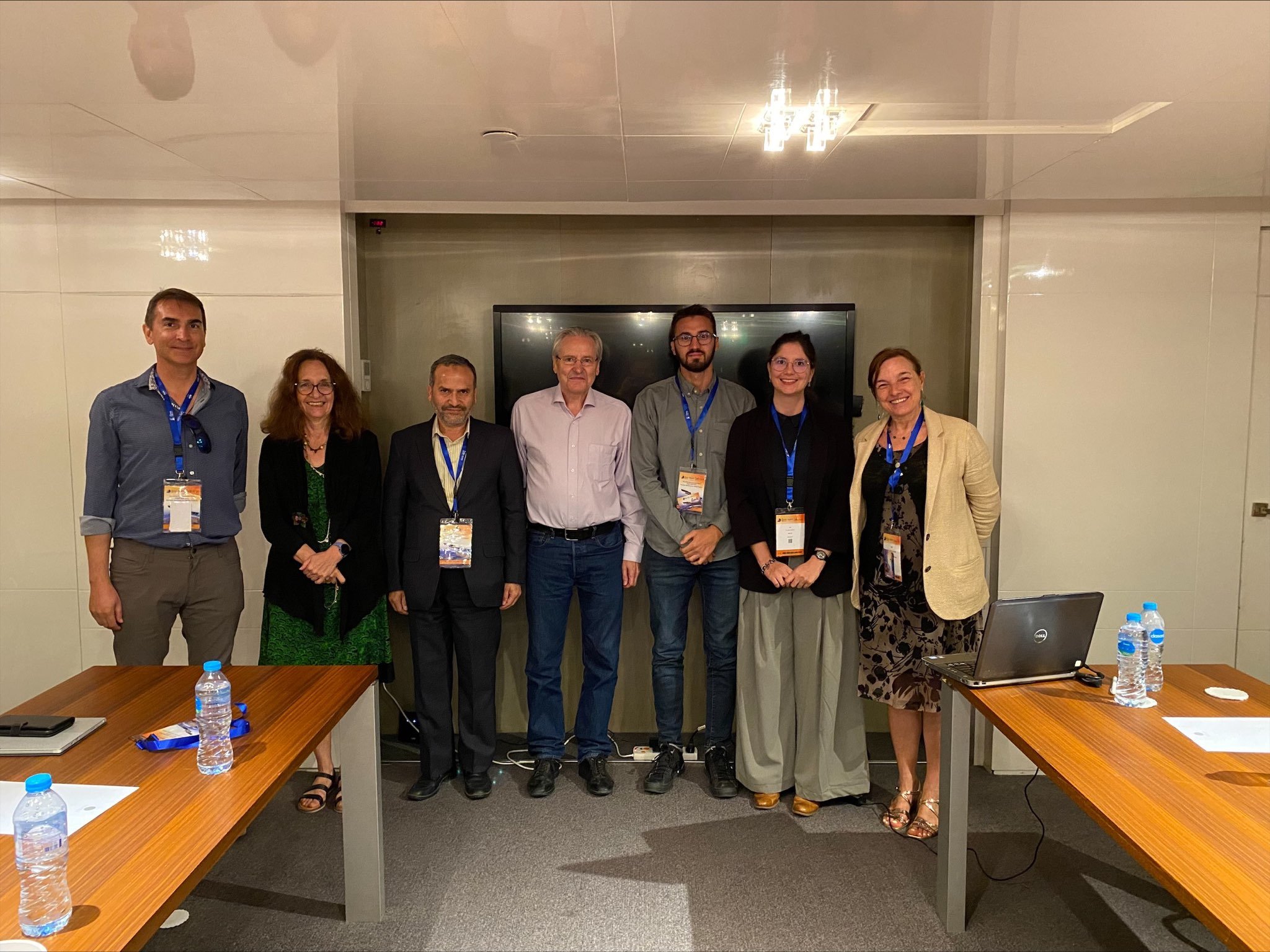
Attendees (from left to right): Partsinevelos Panagiotis (EBM), Sisi Zlatanova (Associate Editor), Mahmoud Reza Delavar (EBM), Wolfgang Kainz (Editor-in-Chief), Petar Jeremić (JRS IJGI MDPI), Liliane Auwerter (SOB MDPI) and Maria Brovelli (Associate Editor)
6 September 2023
Recap of Awards Granted to Scholars in 2022

MDPI is committed to supporting the academic community, nurturing talent and advancing science. Awards are an important part of the research landscape and play a vital role in helping academics gain recognition, especially young researchers as they embark on new research avenues.
In 2022, our journals presented a total number of 394 Awards, including Travel Awards, Young Investigator Awards, Best PhD Thesis Awards, Best Paper Awards, and Outstanding Reviewer Awards, with several winners announced for some of the awards. The total prize sum amounted to just under 580,000 Swiss francs (CHF), or approximately 650,000 US dollars. Overall, more than 720 scholars were awarded.
The majority of the awards were dedicated to young researchers in relatively early stages of their careers. This encompassed 66 of the afore-mentioned Travel Awards, 60 Young Investigator Awards, supporting research projects and conference attendance, as well as 51 Best PhD Thesis Awards. Additionally, 113 Best Paper Awards were given by our journals. The selection committees were entrusted with identifying the most impactful and novel research and review articles published in their journal within a given year.
MDPI will continue its support and recognition for the academic community moving forward, sponsoring new awards across disciplines. To learn more about all the awardees and their research projects in your field of study, please visit the following pages:
To explore more MDPI awards, please click here.
30 August 2023
MDPI Insights: The CEO's Letter #3 - Sustainability and Co-opetition

Welcome to the MDPI Insights: The CEO's Letter.
In these monthly letters, I will showcase two key aspects of our work at MDPI: our commitment to empowering researchers and our determination to facilitating open scientific exchange.
Opening Thoughts

Our Commitment to Sustainability
As a pioneer in academic open access publishing since 1996, MDPI has always been dedicated to facilitating scientific exchange across all disciplines. Our approach to open science is guided by principles such as Open Access (OA), Timeliness and Efficiency, Simplicity, High-Quality Service, Flexibility, and a commitment to Sustainability. This commitment involves preserving published papers for the long term and supporting the future of science through partnerships, sponsorships, and awards.
In this edition of the CEO Letter, I will delve into MDPI’s various sustainability initiatives. As a leader in OA publishing, we are able to provide the public with a significant amount of environment-related content at no cost.
MDPI and the Sustainable Development Goals (SDGs)
In 2020, the SDG Publishers Compact was launched to accelerate implementation of the SDGs by promoting content that informs, develops, and inspires action. MDPI joined this initiative in 2021 and subsequently launched the MDPI SDG Hub in 2022, offering free access to recent research within the scope of each of the 17 SDGs. We also support authors from underrepresented communities by waiving publication charges for selected SDG-related papers. Detailed sustainability practices and supported publications are available in the report under each Goal page.
“More than 80% of MDPI articles and reviews published in 2022 relate to the Sustainable Development Goals.” [source: InCites, Accessed on 21.08.2023]
As at August 2023, MDPI boasts 14 journals dedicated to sustainability-related topics. Our first journal in this area, Sustainability, has published over 29,000 articles on the SDGs, accumulating over 240,000 citations (source: InCites, as at 1 January 2023). These journals serve as vital platforms for researchers to share insights and address environmental challenges. In addition:
MDPI journals specializing in sustainability-related topics:
- 2009: Sustainability
- 2012: Resources
- 2013: Climate
- 2014: Environments
- 2016: Recycling
- 2019: Clean Technologies
- 2020: Sustainable Chemistry
- 2021: Wind, Biomass, Conservation, Pollutants, Solar
- 2022: Waste, Microplastics
Read more:
Impactful Research

Highly Cited Articles in Sustainability
In 2022, content published in Sustainability and indexed in Journal Citation Reports (JCR) received nearly 190,000 citations. This highlights the fact that Sustainability publishes highly cited research articles related to environmental sciences and SDG-related topics such as climate action.
We are pleased to share that Sustainability received a 2022 CiteScore of 5.8, marking a 16% increase from the 2021 metric. Specifically, the CiteScore positions Sustainability as follows: Q1 (27 out of 163) in the “Environmental Science (miscellaneous)” category, and Q1 (101 out of 779) in the “Geography Planning and Development” category. For additional journal statistics, please visit here.
“Sustainability received a 2022 CiteScore of 5.8”
While MDPI journals such as Climate and Atmosphere have a distinct focus on atmosphere pollution and its impact on climate processes, journals like Sustainability, Environments, Water, Remote Sensing, and IJERPH publish content related to climate change. These journals have published over 32,300 articles related to SDG 13: Climate Action.
Highly Cited Papers in Sustainability
Below are several highly cited papers published in Sustainability over the past three years. Citation metrics are current as at 15 August 2023.
1. “A Global Assessment: Can Renewable Energy Replace Fossil Fuels by 2050?”Authors: Jerry L. Holechek, Hatim M. E. Geli, Mohammed N. Sawalhah, and Raul Valdez
Sustainability 2022, 14(8), 4792; https://doi.org/10.3390/su14084792
Citations: Crossref (97), Scopus (91), Web of Science (82), Google Scholar (125)
This paper addresses one of the most significant challenges of climate change – achieving Net Zero Carbon by 2050. The meta-analysis suggests that while difficult, this transition is possible through the concerted application of pathways, lifestyle changes, and global cooperation.
2. “Anxiety and the Ecological Crisis: An Analysis of Eco-Anxiety and Climate Anxiety”Author: Panu Pihkala
Sustainability 2020, 12(19), 7836; https://doi.org/10.3390/su12197836
Citations: Crossref (144), Scopus (121), Web of Science (159), Google Scholar (382)
This paper has received substantial media attention, including coverage by The Guardian, BBC, Vice, and CNBC. An interview with Dr. Panu Pihkala, a leading interdisciplinary researcher on the topic, can be found on MDPI’s podcast: Insight Faster, Episode 1.
3. “Impact of Climate Change on Agriculture and Its Mitigation Strategies: A Review”Authors: Gurdeep Singh Malhi, Manpreet Kaur, and Prashant Kaushik
Sustainability 2021, 13(3), 1318; https://doi.org/10.3390/su13031318
Citations: Crossref (207), Scopus (221), Web of Science (186), Google Scholar (355)
This paper reviews literature on climate change, addressing its causes, future projections, impact on agriculture, including plant physiology, growth, productivity, pest infestation, and the economic implications of mitigation strategies.
4. “Impacts of Plastic Pollution on Ecosystem Services, Sustainable Development Goals, and Need to Focus on Circular Economy and Policy Interventions”Authors: Rakesh Kumar, Anurag Verma, Arkajyoti Shome, Rama Sinha, Srishti Sinha, Prakash Kumar Jha, Ritesh Kumar, Pawan Kumar, Shubham, Shreyas Das, Prabhakar Sharma, and P. V. Vara Prasad
Sustainability 2021, 13(17), 9963; https://doi.org/10.3390/su13179963
Citations: Crossref (134), Scopus (136), Web of Science (113), Google Scholar (184)
This review aims to assess the adverse effects of plastic pollution on ecosystems, link the management of plastic with the SDGs, and propose policy measures using transdisciplinary approaches. Empowering communities to reduce plastic use is crucial. Addressing global plastic pollution is a priority.
Sustainability is an international, cross-disciplinary, open access journal that explores environmental, cultural, economic, and social sustainability of human beings. It provides a forward-looking platform for research on sustainability and sustainable development, and is published semi-monthly online by MDPI. Sustainability is affiliated with The Canadian Urban Transit Research & Innovation Consortium (CUTRIC) and The International Council for Research and Innovation in Building and Construction (CIB).
Read more:
- Testimonials: See what our editors and authors say about Sustainability.
Inside MDPI

President of Ireland Authors Editorial in MDPI Journal Sustainability
It’s a very special occasion when the president of a country takes the initiative to write an editorial for a journal. Michael D. Higgins, President of the Republic of Ireland, has contributed his insights to a forthcoming Special Issue in Sustainability:

This Special Issue, focusing on “making sustainable development happen” at grassroots levels, allows for perspectives from, and on, the major world faiths, exploring how challenges have been conceptualised and addressed, in addition to case studies of faith-based sustainability initiatives in practice.
The experience of faith institutions and communities in translating theological and moral commitments to sustainable development into action is now a topic we must examine with urgency; one on which I am so glad this Special Issue focuses.
As President of Ireland, I very much support this Special Issue of Sustainability. It is my great hope that the contents of the papers contained herein will assist in making sustainable development happen at grassroots levels across the world so that we can cooperate together, people of faith and of none, to ensure a just, inclusive and sustainable future for all on our fragile planet.
Read the completed editorial here:
Special Issue “Faith and Sustainable Development: Exploring Practice, Progress and Challenges among Faith Communities and Institutions”: Foreword by the President of Ireland
Author: Michael D. Higgins
Sustainability 2023, 15(12), 9683; https://doi.org/10.3390/su15129683
Coming Together for Science

The World Sustainability Forum 2023
The World Sustainability Forum (WSF) is a biennial MDPI event focused on sustainability. WSF 2023 marks the tenth anniversary of the conference series, taking place on 14 September. For the first time, the event will be hosted as a 24-hour conference across three locations – Singapore, Basel in Switzerland, and Toronto in Canada – alongside virtual streaming.
This unique format allows us to span three time zones, providing live coverage of critical sustainability-related topics throughout the day:
- The Singapore Hub, chaired by Professor Horn Mun Cheah and Associate Professor Renee Tan, will explore “Sustainability for Social and Community Impact”.
- The Basel Hub, chaired by Prof. Dr. Anet Režek Jambrak and Dr. Lela Mélon, will delve into “Sustainability in the industry, and at university and corporate settings”.
- The Toronto Hub, led by Dr. Umberto Berardi, will discuss “The Sustainable Built Environment”.
MDPI Sustainability Foundation: Recognizing Excellence in Sustainability Research
The MDPI Sustainability Foundation supports researchers through two sustainability-focused awards:
- The World Sustainability Award, amounting to USD 100,000, is given to senior researchers.
- The Emerging Sustainability Leader Award, valued at USD 20,000, sponsored by the journal Sustainability, is presented to early-career researchers.
The winners of the Sustainability Foundation will be formally awarded during the WSF2023 on 14 September. Interviews with the award winners and finalists are available below.
2023 World Sustainability Award Winners
Interviews with 2023 Emerging Sustainability Leader Award Finalists
- Dr. Bahareh Kamranzad
- Dr. Youjin Kim
- Dr. Julia Lohmann
As a hybrid event, WSF23 provides scholars with the option to attend in person at one of the conference sites or, for a more sustainable approach, virtually. All sessions will be recorded and archived for future access. Registration is open until 3 September 2023, with in-person and virtual tickets available here.
Read more:
Closing Thoughts
“Co-opetition”: Collaboration Plus Healthy Competition – A Visit to Elsevier
I firmly believe in fostering collaboration and at the same time promoting healthy competition within the academic publishing industry. The market offers ample room for publishers and related companies to provide valuable services and products that enrich the academic community. While MDPI is recognized for its efficient and streamlined processes –thanks to our over 6,000 colleagues, in-house tools, and initiatives that support the author journey – our ethos has always involved learning from and collaborating with other organizations.
MDPI’s Interaction with Elsevier
In January 2023, I had a brief conversation with Judy Verses, President of Global Academic and Government Markets at Elsevier, following her participation in a panel discussion at the Academic Publishers Europe event in Berlin. One of the highlights for me was Judy’s insight into the impact of research, particularly her emphasis on the role of collaboration, including policy and showing the impact of research to influence on funding decisions.
“Such collaborations drive forward-looking strategies to elevate our support for the scholarly community”

Judy and I resumed our discussion in August, when I visited Elsevier's office to review current projects, such as our recent agreement with Science Direct and the continued indexing of MDPI journals in Scopus (indexing database owned by Elsevier). We also explored possible opportunities for the future, including a potential collaboration to expand MDPI’s Scilit data infrastructure. This endeavour aims to aggregate and provide access to scholarly metadata encompassing journal articles, conference papers, books, preprints, and more. While these discussions are ongoing, the underlying principle remains that such collaborations drive forward-looking strategies to elevate our services and support for the scholarly community.
It was great that Judy and I acknowledged the merits of 'co-opetition,' a concept based of the belief that fostering cooperation alongside healthy competition can lead to shared advancements for both individual companies and the industry at large.
‘Fully OA’ Organizations Dedicated to Open Access

MDPI proudly aligns with the ‘Fully OA’ group, a collaborative initiative comprising nine organizations dedicated to Open Access. Our monthly meetings, including an OASPA representative, serve as platforms to share non-confidential information, resources, and projects. These gatherings also facilitate discussions on topics relevant to fully OA organizations. Occasionally, joint actions spring from these interactions, such as collaborative blog posts on pertinent subjects and joint statements, such as a recent response to the House Appropriations Committee.
This display of cooperation among competing entities forms a strategic alliance focused on nurturing the best interests of the OA publishing model.
As I wrap up this third edition of the CEO Letter, I encourage you to seize opportunities for collaboration and contribute to advancing our shared academic culture. As the African proverb has it, “If you want to go fast, go alone; if you want to go far, go together.”
Chief Executive Officer
MDPI AG
28 August 2023
Meet Us at the ISPRS 2023 Geospatial Week (GSW 2023), 2–7 September 2023, Cairo, Egypt

MDPI will attend the ISPRS 2023 Geospatial Week (GSW 2023) from 2 to 7 September 2023 in Cairo, Egypt. The Geospatial Week is an internationally renowned scientific event held once every two years. The event is organized by the International Society of Photogrammetry and Remote Sensing (ISPRS) to bring together experts in the fields of photogrammetry, remote sensing, and geospatial information science. Between 1000 and 2000 researchers and professionals from around the world gather for an entire week to share new findings and experiences through a series of dedicated workshops. The 2023 Geospatial Week will be hosted by the Arab Academy for Science, Technology, and Maritime Transport (AASTMT) and it will be held under the auspices of H.E Secretary General of the League of Arab States. The conference will be held in September 2023, at the InterContinental Citystars Cairo, Egypt. AASTMT strongly believes that science is the key to the future and the cornerstone for the progress and prosperity of nations.
The following MDPI journals will be represented:
If you plan on attending this conference, please feel free to stop by our booth and start a conversation with us. Our delegates look forward to meeting you in person and answering any questions that you may have. For more information about the conference, please visit https://gsw2023.com.
28 August 2023
Meet Us at the XXXV Eurosensors Conference, 10–13 September 2023, Lecce, Italy

MDPI will be attending the XXXV Eurosensors conference, which will be held from 10 to 13 September 2023 in Lecce, Italy. The conference will provide an opportunity for the presentation of updated results related to both theoretical and applied research in the fields of sensors, micro-nanosystems, etc., bringing together scientists from academic institutions and industry and promoting professional interactions between them. Furthermore, the conference also includes a one-day Tutorial Course on emerging and key arguments on the correlation between environment and health and the role of sensor technologies.
Eurosensors is an annual conference in the field of sensors that started in 1987. The Eurosensors 2020 and 2021 editions were eventually combined with the 2022 edition and held online due to the COVID-19 pandemic. Eurosensors 2023 will be chaired by Pietro Siciliano (University of Bari, Italy). The Organizing Committee would like to express their appreciation for the scientific response to the conference, which demonstrates the level of interest in the field of sensors and related technologies. It is hoped that the conference will allow for fruitful interactions among participants and new cultural proposals for the positive development of the conference and for the intellectual growth of all the participants.
The following MDPI journals will be represented:
- Sensors;
- Biosensors;
- Chemosensors;
- Materials;
- JSAN;
- Micromachines;
- Instruments;
- Technologies;
- Chips;
- Robotics;
- Machines.
If you are attending this conference, please feel free to start a conversation with us. Our delegates look forward to meeting you in person and answering any questions that you may have. For more information about the conference and our booth, please visit the following link: https://www.eurosensors2023.eu/.
22 August 2023
Meet Us at the 13th International Conference on Indoor Positioning and Indoor Navigation (IPIN 2023), 25–28 September 2023, Nuremberg, Germany

MDPI will be attending the 13th International Conference on Indoor Positioning and Indoor Navigation (IPIN 2023), held in Nuremberg, Germany, from 25 to 28 September 2023.
IPIN 2023 is organized by the Fraunhofer Institute for Integrated Circuits IIS with the support of researchers from the German Aerospace Center (DLR) and the Stuttgart University of Applied Sciences. The conference will be held on-site at Fraunhofer IIS in Nuremberg. Join the 300 expected industrial and academic experts in computer science, electronics and surveying to address this challenge. Discuss, in person, scientific and industrial matters and witness state-of-the-art systems and methods, including the uniquely challenging IPIN competition. During this conference, MDPI will welcome researchers from different backgrounds to visit and share their latest views as well as research with us.
The following MDPI journals will be represented:
If you are attending this conference, please stop by our booth. Our delegates look forward to meeting you in person to answer any questions that you may have. For more information about the conference, please visit the following link: http://www.ipin-conference.org/2023/index.html.
18 August 2023
Meet Us at the China National Computer Congress 2023 (CNCC 2023), 26–28 October 2023, Shenyang, China

MDPI will be attending the China National Computer Congress 2023 (CNCC 2023) in Shenyang, China, which will take place from 26 to 28 October 2023. CNCC 2023 will explore the latest progress in computer science, artificial intelligence, big data drive, cloud database, quantum computer, and other related research topics. The three-day conference brought together Turing Award winners, academicians of the Chinese Academy of Sciences, top international scholars, and well-known entrepreneurs to discuss cutting-edge trends and share innovations.
The following MDPI journals will be represented:
- Electronics;
- MTI;
- Algorithms;
- Computation;
- Cryptography;
- Future Internet;
- Information;
- Sensors.
If you are attending the conference, please visit our booth. Our delegates look forward to meeting you in person and answering any questions that you may have. For more information about the conference, please visit the following link: https://ccf.org.cn/cncc2023.
18 August 2023
Meet Us at the 74th Annual Meeting of the International Society of Electrochemistry, 3–8 September 2023, Lyon, France

MDPI will be attending the 74th Annual Meeting of the International Society of Electrochemistry, hosted by the International Society of Electrochemistry (ISE), which will be held by the International Society of Electrochemistry from 3 to 8 September 2023, in Lyon, France. France has a strong history of electrochemistry research and has a large number of ISE members in the country, and the ISE has hosted this congress on several previous occasions: Lyon in 1982; Paris in 1997, which was the occasion of a joint meeting with the ECS; and, more recently, in Nice in 2010. Thus, after more than 40 years, the congress returns to Lyon. About 1,800 participants have registered from all regions of the world. Thus, this congress will provide an opportunity for electrochemists in Lyon to participate in fruitful discussions in an atmosphere of friendly exchange.
The following MDPI journals will be represented:
- Coatings;
- Molecules;
- Energies;
- Materials;
- Biosensors;
- Batteries;
- Liquids;
- Crystals;
- Solids;
- Electrochem;
- Sensors;
- Metals.
If you plan on attending this conference, please feel free to stop by our booth (#09) and start a conversation with us. Our delegates look forward to meeting you in person and answering any questions that you may have. For more information about the conference, please visit the following link: https://annual74.ise-online.org/index.php.
16 August 2023
MDPI’s 2022 Young Investigator Awards in Engineering—Winners Announced

MDPI’s Young Investigator Awards recognize promising junior researchers, acknowledge their contributions, and enhance communication among scientists. We are proud to present the winners for the year 2022 in the engineering category. The winners were selected by the journals’ Award Evaluation Committee.
We warmly congratulate the following young investigators for their outstanding contributions. MDPI will continue to provide support and recognition to the academic community.
- Yi Zhang, University of Electronic Science and Technology, China
- Lin Ma, University of North Carolina at Charlotte, USA
- Stefano Cinti, University of Naples Federico II, Italy
- Umberto Berardi, Toronto Metropolitan University, Canada
- Benedetto Nastasi, Sapienza University of Rome, Italy
- Do Kyun Kim, Seoul National University, Republic of Korea
- Fernando Bento, University of Beira Interior, Portugal
- Goshtasp Cheraghian, Humboldt University of Berlin, Germany
- Roman Mykhailyshyn, The University of Texas at Austin, USA
- Pingan Zhu, City University of Hong Kong, China
- Viknesh Andiappan, the Swinburne University of Technology Sarawak Campus, Malaysia
- Wenzhuo Wu, Purdue University, USA
About MDPI Awards:
In order to reward the academic community, especially young researchers and enhance communication among scientists, MDPI journals regularly offer various awards to researchers in specific fields. These awards, serving as a source of inspiration and recognition, help raise the influence of talented individuals who have been credited with outstanding achievements and are making a significant contribution to the advancement of their fields.
To explore more MDPI awards, please click here.
16 August 2023
MDPI’s 2022 Travel Awards in Engineering—Winners Announced

We are proud to recognize the winners of MDPI’s 2022 Travel Awards in the engineering category for their outstanding presentations.
MDPI journals regularly offer travel awards to encourage junior scientists to present their latest research at academic conferences in specific fields, which helps to increase their influence.
The winners mentioned below were carefully selected by the journal editors based on an outline of their research and the work to be presented at an academic conference.
We would like to warmly congratulate the winners of the 2022 Travel Awards and wish them the greatest success with their future research endeavors. MDPI will continue to enhance communication among scientists.
- Dmitry Kireev, University of Texas at Austin, USA
- Danilo D’Angela, University of Naples Federico II, Italy
- Jungsub Kim, Texas A&M University, USA
About MDPI Awards:
In order to reward the academic community, especially young researchers and enhance communication among scientists, MDPI journals regularly offer various awards to researchers in specific fields. These awards, serving as a source of inspiration and recognition, help raise the influence of talented individuals who have been credited with outstanding achievements and are making a significant contribution to the advancement of their fields.
To explore more MDPI awards, please click here.
16 August 2023
MDPI’s 2022 Outstanding Reviewer Awards in Engineering—Winners Announced

In order to acknowledge our reviewers, who demonstrate diligence, professionalism, and timeliness when generously dedicating their time to reviewing papers, MDPI journals regularly offer outstanding reviewer awards to scholars who participate in the peer review process.
We are proud to recognize the winners for the year 2022 in the engineering category for their outstanding contributions by presenting them with an Outstanding Reviewer Award.
We would like to take this opportunity to congratulate all of the winners on their achievements. MDPI will continue to provide support and recognition to the academic community.
- Chongjing Cao, Shenzhen Institute of Advanced Technology (SIAT), China
- Roman Mykhailyshyn, University of Texas at Austin, USA
- Chiranjibi Sitaula, Monash University, Australia
- Davide Forcellini, 1University of Auckland, New Zealand; 2University of San Marino, San Marino
- Giuseppe Ciaburro, Università degli Studi della Campania Luigi Vanvitelli, Italy
- Yang Song, Norwegian University of Science and Technology, Norway
- Xiaoming Liu, Beijing Institute of Technology, China
- Carlos Torres-Torres, Instituto Politécnico Nacional, Mexico
- Paolo Blecich, University of Rijeka, Croatia
- Łukasz Ścislo, Cracow University of Technology, Poland
- Giorgio Sonnino, Université Libre de Bruxelles (ULB), Belgium
- Luiz Antonio Alcântara Pereira, Federal University of Itajubá (UNIFEI), Brazil
- Cagatay Iris, University of Liverpool, United Kingdom
- Chiemela Victor Amaechi, Lancaster University, United Kingdom
- Denis Istrati, University of Nevada, USA
- Mai The Vu, Sejong University, Korea
- Mina Tadros, University of Lisbon, Portugal
- Chao Fu, Northwestern Polytechnical University, China
- Eduardo Suárez, Universidade de Vigo, Spain
- Jordi-Roger Riba, Universitat Politècnica de Catalunya, Spain
- Catalin Ianasi, Institute of Chemistry “Coriolan Dragulescu”, Romania
- Daniel Ferrández, Polytechnic University of Madrid, Spain
- Kamil Krzysztof Roman, Institute of Technology and Life Sciences in Warsaw, Poland
- Marcin Dębowski, University of Warmia and Mazury in Olsztyn, Poland
- Mariusz Szymanek, University of Life Sciences in Lublin, Poland
- Agustin L. Herrera-May, Universidad Veracruzana, Mexico
- Chiachung Chen, National Chung Hsing University, Taiwan
- Jae-Myung Ryu, Kumoh National Institute of Technology, Republic of Korea
- Sebastian Głowiński, Koszalin Technical University, Poland
- Wei Zhou, University of Waterloo, Canada
About MDPI Awards:
In order to reward the academic community, especially young researchers and enhance communication among scientists, MDPI journals regularly offer various awards to researchers in specific fields. These awards, serving as a source of inspiration and recognition, help raise the influence of talented individuals who have been credited with outstanding achievements and are making a significant contribution to the advancement of their fields.
To explore more MDPI awards, please click here.
16 August 2023
MDPI’s 2022 Best PhD Thesis Awards in Engineering—Winners Announced

MDPI’s Best PhD Thesis Awards are presented to recognize the young scholars who are judged to have completed the most outstanding PhD thesis in their field of research and to encourage them to continue their excellent work and further contributions to their field.
We would like to warmly congratulate the winners of the 2022 Best PhD Thesis Awards and wish them success with their future research endeavors. MDPI will continue to enhance communication among scientists.
JMSE:
- “Mathematical Modelling of Wave-Induced Motions and Loads on Moored Offshore Structures”
by Changqing Jiang, University of Duisburg-Essen, Germany
- “Experimental Characterization of Frictional Hysteresis for Nonlinear Dynamic Analysis of Jointed Structures”
by Alfredo Fantetti, Imperial College London, UK
- “Sustainable Cultivation of Microalgae Biomass for Bioenergy Production”
by Angela Paul Peter, Xiamen University Malaysia, Malaysia
- “Studying Protein Function with Fluorescent Nanoantennas”
by Scott G. Harroun, Université de Montréal, Canada
About MDPI Awards:
In order to reward the academic community, especially young researchers and enhance communication among scientists, MDPI journals regularly offer various awards to researchers in specific fields. These awards, serving as a source of inspiration and recognition, help raise the influence of talented individuals who have been credited with outstanding achievements and are making a significant contribution to the advancement of their fields.
To explore more MDPI awards, please click here.
16 August 2023
MDPI’s Best Paper Awards in Engineering—Winners in 2022 Announced

The purpose of our Best Paper Awards is to promote and recognize the most impactful contributions published within MDPI journals.
The editors of each journal carefully selected reviews and research papers through a rigorous judging process based on criteria such as scientific merit, overall impact, and the quality of presentation of the papers published in the journal.
We are honored to present the winners announced for the year 2022 in the engineering category, who were selected from extensive competition, and congratulate the authors for their outstanding scientific publications. MDPI will continue to provide support and recognition to the academic community.
- “Two-Way and Multiple-Way Shape Memory Polymers for Soft Robotics: An Overview”
by Giulia Scalet
Actuators 2020, 9(1), 10; https://doi.org/10.3390/act9010010
- “Low-Cost, Open-Source Mechanical Ventilator with Pulmonary Monitoring for COVID-19 Patients”
by Leonardo Acho, Alessandro N. Vargas and Gisela Pujol-Vázquez
Actuators 2020, 9(3), 84; https://doi.org/10.3390/act9030084
- “Styrenic-Rubber Dielectric Elastomer Actuator with Inherent Stiffness Compensation”
by Giacomo Moretti, Luca Sarina, Lorenzo Agostini, Rocco Vertechy, Giovanni Berselli and Marco Fontana
Actuators 2020, 9(2), 44; https://doi.org/10.3390/act9020044
- “Chromium(III) Removal from Wastewater by Chitosan Flakes”
by Loris Pietrelli, Iolanda Francolini, Antonella Piozzi, Maria Sighicelli, Ilaria Silvestro and Marco Vocciante
Appl. Sci. 2020, 10(6), 1925; https://doi.org/10.3390/app10061925
- “Unravelling the Environmental Application of Biochar as Low-Cost Biosorbent: A Review”
by Antía Fdez-Sanromán, Marta Pazos, Emilio Rosales and María Angeles Sanromán
Appl. Sci. 2020, 10(21), 7810; https://doi.org/10.3390/app10217810
- “Observation of Potential Contaminants in Processed Biomass Using Fourier Transform Infrared Spectroscopy”
by Jingshun Zhuang, Mi Li, Yunqiao Pu, Arthur Jonas Ragauskas and Chang Geun Yoo
Appl. Sci. 2020, 10(12), 4345; https://doi.org/10.3390/app10124345
- “Drug-Resistant Tuberculosis 2020: Where We Stand”
by Angelo Iacobino, Lanfranco Fattorini and Federico Giannoni
Appl. Sci. 2020, 10(6), 2153; https://doi.org/10.3390/app10062153
- “Real-Time Remote Maintenance Support Based on Augmented Reality (AR)”
by Dimitris Mourtzis, Vasileios Siatras and John Angelopoulos
Appl. Sci. 2020, 10(5), 1855; https://doi.org/10.3390/app10051855
- “Dielectric Elastomer Actuator for Soft Robotics Applications and Challenges”
by Jung-Hwan Youn, Seung Mo Jeong, Geonwoo Hwang, Hyunwoo Kim, Kyujin Hyeon, Jihwan Park and Ki-Uk Kyung
Appl. Sci. 2020, 10(2), 640; https://doi.org/10.3390/app10020640
- “Low-Cost Biochar Adsorbents for Water Purification Including Microplastics Removal”
by Virpi Siipola, Stephan Pflugmacher, Henrik Romar, Laura Wendling and Pertti Koukkari
Appl. Sci. 2020, 10(3), 788; https://doi.org/10.3390/app10030788
- “Microstructure and Mechanical Properties of AISI 316L Produced by Directed Energy Deposition-Based Additive Manufacturing: A Review”
by Abdollah Saboori, Alberta Aversa, Giulio Marchese, Sara Biamino, Mariangela Lombardi and Paolo Fino
Appl. Sci. 2020, 10(9), 3310; https://doi.org/10.3390/app10093310
- “Humans-as-a-Sensor for Buildings—Intensive Longitudinal Indoor Comfort Models”
by Prageeth Jayathissa, Matias Quintana, Mahmoud Abdelrahman and Clayton Miller
Buildings 2020, 10(10), 174; https://doi.org/10.3390/buildings10100174
- “Circular Building Design: An Analysis of Barriers and Drivers for a Circular Building Sector”
by Jouri Kanters
Buildings 2020, 10(4), 77; https://doi.org/10.3390/buildings10040077
- “Building Information Modelling (BIM) to Enhance Occupational Safety in Construction Activities: Research Trends Emerging from One Decade of Studies”
by Mario Fargnoli and Mara Lombardi
Buildings 2020, 10(6), 98; https://doi.org/10.3390/buildings10060098
- “A SWOT Analysis of the Use of BIM Technology in the Polish Construction Industry”
by Krzysztof Zima, Edyta Plebankiewicz and Damian Wieczorek
Buildings 2020, 10(1), 16; https://doi.org/10.3390/buildings10010016
- “Durability and Climate Change—Implications for Service Life Prediction and the Maintainability of Buildings”
by Michael A. Lacasse, Abhishek Gaur and Travis V. Moore
Buildings 2020, 10(3), 53; https://doi.org/10.3390/buildings10030053
- “Worker 4.0: The Future of Sensored Construction Sites”
by Diego Calvetti, Pedro Mêda, Miguel Chichorro Gonçalves and Hipólito Sousa
Buildings 2020, 10(10), 169; https://doi.org/10.3390/buildings10100169
- “A Review of Topology Optimisation for Fluid-Based Problems”
by Joe Alexandersen and Casper Schousboe Andreasen
Fluids 2020, 5(1), 29; https://doi.org/10.3390/fluids5010029
- “On the Deterministic Prediction of Water Waves”
by Marco Klein, Matthias Dudek, Günther F. Clauss, Sören Ehlers, Jasper Behrendt, Norbert Hoffman and Miguel Onorato
Fluids 2020, 5(1), 9; https://doi.org/10.3390/fluids5010009
- “On the Effect of Block Roughness in Ogee Spillways with Flip Buckets”
by Rasoul Daneshfaraz, Amir Ghaderi, Aliakbar Akhtari, Silvia Di Francesco
Fluids 2020, 5(4), 182; https://doi.org/10.3390/fluids5040182
- “Marine Application of Fiber Reinforced Composites: A Review”
by Felice Rubino, Antonio Nisticò, Fausto Tucci and Pierpaolo Carlone
J. Mar. Sci. Eng. 2020, 8(1), 26; https://doi.org/10.3390/jmse8010026
- “Numerical Simulation of Large Wave Heights from Super Typhoon Nepartak (2016) in the Eastern Waters of Taiwan”
by Shih-Chun Hsiao, Hongey Chen, Han-Lun Wu, Wei-Bo Chen, Chih-Hsin Chang, Wen-Dar Guo, Yung-Ming Chen and Lee-Yaw Lin
J. Mar. Sci. Eng. 2020, 8(3), 217; https://doi.org/10.3390/jmse8030217
- “Development of Deterministic Artificial Intelligence for Unmanned Underwater Vehicles (UUV)”
by Timothy Sands
J. Mar. Sci. Eng. 2020, 8(8), 578; https://doi.org/10.3390/jmse8080578
- “Effective Application of Solid Lubricants in Spacecraft Mechanisms”
by Jeffrey R. Lince
Lubricants 2020, 8(7), 74; https://doi.org/10.3390/lubricants8070074
- “High-Rate Laser Surface Texturing for Advanced Tribological Functionality”
by Jörg Schille, Lutz Schneider, Stefan Mauersberger, Sylvia Szokup, Sören Höhn, Johannes Pötschke, Friedemann Reiß, Erhard Leidich and Udo Löschner
Lubricants 2020, 8(3), 33; https://doi.org/10.3390/lubricants8030033
- “Size Sorting of Exosomes by Tuning the Thicknesses of the Electric Double Layers on a Micro-Nanofluidic Device”
by Satoko Fujiwara, Kyojiro Morikawa, Tatsuro Endo, Hideaki Hisamoto and Kenji Sueyoshi
Micromachines 2020, 11(5), 458; https://doi.org/10.3390/mi11050458
- “Additive Manufacturing of Sub-Micron to Sub-mm Metal Structures with Hollow AFM Cantilevers”
by Giorgio Ercolano, Cathelijn van Nisselroy, Thibaut Merle, János Vörös, Dmitry Momotenko, Wabe W. Koelmans and Tomaso Zambelli
Micromachines 2020, 11(1), 6; https://doi.org/10.3390/mi11010006
- “A Robotic Biopsy Endoscope with Magnetic 5-DOF Locomotion and a Retractable Biopsy Punch”
by Manh Cuong Hoang, Viet Ha Le, Kim Tien Nguyen, Van Du Nguyen, Jayoung Kim, Eunpyo Choi, Seungmin Bang, Byungjeon Kang, Jong-Oh Park and Chang-Sei Kim
Micromachines 2020, 11(1), 98; https://doi.org/10.3390/mi11010098
- “Development of Fully Flexible Tactile Pressure Sensor with Bilayer Interlaced Bumps for Robotic Grasping Applications”
by Lingfeng Zhu, Yancheng Wang, Deqing Mei and Chengpeng Jiang
Micromachines 2020, 11(8), 770; https://doi.org/10.3390/mi11080770
- “A mm-Sized Free-Floating Wireless Implantable Opto-Electro Stimulation Device”
by Yaoyao Jia, Yan Gong, Arthur Weber, Wen Li and Maysam Ghovanloo
Micromachines 2020, 11(6), 621; https://doi.org/10.3390/mi11060621
- “Advanced Bioethanol Production: From Novel Raw Materials to Integrated Biorefineries”
by Aleta Duque, Cristina Álvarez, Pablo Doménech, Paloma Manzanares and Antonio D. Moreno
Processes 2021, 9(2), 206; https://doi.org/10.3390/pr9020206
- “An Overview on Fault Diagnosis, Prognosis and Resilient Control for Wind Turbine Systems”
by Zhiwei Gao and Xiaoxu Liu
Processes 2021, 9(2), 300; https://doi.org/10.3390/pr9020300
- “Role of Microalgae in the Recovery of Nutrients from Pig Manure”
by Ana Sánchez-Zurano, Martina Ciardi, Tomás Lafarga, José María Fernández-Sevilla, Ruperto Bermejo and Emilio Molina-Grima
Processes 2021, 9(2), 203; https://doi.org/10.3390/pr9020203
- “Applying Lean Six Sigma Methodology to a Pharmaceutical Manufacturing Facility: A Case Study”
by Brian Byrne, Olivia McDermott and John Noonan
Processes 2021, 9(3), 550; https://doi.org/10.3390/pr9030550
- “YOLO-Tomato: A Robust Algorithm for Tomato Detection Based on YOLOv3”
by Guoxu Liu, Joseph Christian Nouaze, Philippe Lyonel Touko Mbouembe and Jae Ho Kim
Sensors 2020, 20(7), 2145; https://doi.org/10.3390/s20072145
- “Piezoelectric Energy Harvesting Solutions: A Review”
by Corina Covaci and Aurel Gontean
Sensors 2020, 20(12), 3512; https://doi.org/10.3390/s20123512
- “Applications of Graphene Quantum Dots in Biomedical Sensors”
by Bhargav D. Mansuriya and Zeynep Altintas
Sensors 2020, 20(4), 1072; https://doi.org/10.3390/s20041072
WEVJ:
- “Beyond the State of the Art of Electric Vehicles: A Fact-Based Paper of the Current and Prospective Electric Vehicle Technologies”
by Joeri Van Mierlo, Maitane Berecibar, Mohamed El Baghdadi, Cedric De Cauwer, Maarten Messagie, Thierry Coosemans, Valéry Ann Jacobs and Omar Hegazy
World Electr. Veh. J. 2021, 12(1), 20; https://doi.org/10.3390/wevj12010020
- “An Overview of Parameter and Cost for Battery Electric Vehicles”
by Adrian König, Lorenzo Nicoletti, Daniel Schröder, Sebastian Wolff, Adam Waclaw and Markus Lienkamp
World Electr. Veh. J. 2021, 12(1), 21; https://doi.org/10.3390/wevj12010021
About MDPI Awards:
In order to reward the academic community, especially young researchers and enhance communication among scientists, MDPI journals regularly offer various awards to researchers in specific fields. These awards, serving as a source of inspiration and recognition, help raise the influence of talented individuals who have been credited with outstanding achievements and are making a significant contribution to the advancement of their fields.
To explore more MDPI awards, please click here.
3 August 2023
Sensors | Aims and Scope Update
Sensors (ISSN: 1424-8220) has updated the aims and scope to come up with a better fit with strength and an evolving identity.
Aims:
Sensors provides an advanced forum for the science and technology of sensor and its applications. It publishes comprehensive reviews and regular research papers. Our aim is to encourage scientists to publish their experimental and theoretical results in as much detail as possible. The full experimental details must be provided so that the results can be reproduced.
There are, in addition, three unique features of this journal:
- Manuscripts regarding research proposals and research ideas are particularly welcome;
- Electronic files and software providing full details of calculation and experimental procedures can be deposited as supplementary material;
- We also accept manuscripts regarding research projects financed with public funds in order to reach a broader audience.
Scope:
- Physical sensors;
- Chemical sensors;
- Biosensors;
- Biomedical sensors;
- Lab-on-a-chip;
- Remote sensors;
- Sensor networks;
- Smart/intelligent sensors;
- Sensor devices;
- Sensor technology and applications in agriculture, industry, and the environment;
- Sensing principles;
- Optoelectronic and photonic sensors;
- Optomechanical sensors;
- Sensor arrays and Chemometrics;
- Micro- and nanosensors;
- Internet of Things;
- Signal processing and data fusion in sensor systems;
- Sensor interface;
- Human–Computer Interaction;
- Advanced materials for sensing;
- MEMS/NEMS;
- Image sensors;
- Sensor-captured imaging;
- Vision/camera-based sensors;
- AI-Enabled sensors;
- 3D sensing;
- Joint communications and sensing;
- Wearable sensors, devices, and electronics;
- Sensors and robotics;
- Multi-sensor positioning and navigation.
For any queries or additional information, please kindly contact [email protected].
1 August 2023
Meet Us at the 19th International Meeting on Chemical Sensors, 4–8 August 2023, Changchun, China

MDPI will attend the 19th International Meeting on Chemical Sensors. This event will be held from 4 to 8 August 2023 in Changchun, China, and is hosted by the Jilin University.
The International Meeting on Chemical Sensors (IMCS), held every two years, is the world’s largest interdisciplinary forum for all aspects of chemical sensors and has developed into the most prestigious conference in this scientific area. The global conference aims to provide an international platform for scholars, scientists, engineers, and students to present and discuss the latest research, bring novel insights and inspire new ideas on functional materials and sensors technologies.
The following MDPI journals will be represented:
If you plan on attending this conference, please feel free to stop by our booth (#6) and start a conversation with us. Our delegates look forward to meeting you in person and answering any questions that you may have. For more information about the conference, please visit https://www.researching.cn/conference/IMCS2023.
27 July 2023
MDPI Insights: The CEO's Letter #2 - Open Peer-Review and IJERPH

Welcome to the MDPI Insights: The CEO's Letter.
In these monthly letters, I will showcase two key aspects of our work at MDPI: our commitment to empowering researchers and our determination to facilitating open scientific exchange.
Opening Thoughts

Open Peer Review Reports
Continuing the topic of openness from my inaugural monthly CEO letter, in these Opening Thoughts, I highlight the growth and importance of open peer-review reports at MDPI. Open peer reports align with the principles of open science, making the publishing process more transparent and facilitating rigorous peer review.
MDPI journals operate an open peer-review option by default, allowing authors to publish review reports and author responses (often referred to as open reports) together with the published paper. Publishing the reviewer reports and author responses together with the article provides greater transparency and trust for readers, as this allows them to track the editorial decision-making process. Open peer-review also encourages reviewers and editors to provide high-quality comments, as these will be made public if the article is accepted for publication.
Start and Growth of Open Peer Review at MDPI
The MDPI journal Life was a pioneer in offering this opportunity to its authors in 2014. The first MDPI article with peer-review reports openly published was a review by the Nobel Laureate Werner Arber, in which the review reports were published as supplementary material. By 2018, open peer-review was available across all MDPI journals. As such, MDPI authors have embraced the open peer-review model, providing a steady increase in the number of MDPI articles. As of 2023, approximately one-third (34.0%) of MDPI articles were published with open review reports.
As at July 2023, the percentage of MDPI articles published with open peer review has increased to 36.2% of the total papers published in 2023 so far, indicating ongoing growth in adoption.
Open peer review continues to play a critical role in the assessment of the peer-review process in Life. For further insights, please see the recent editorial by Dr. Pabulo Henrique Rampelotto, the former Editor-in-Chief of Life, who spearheaded the implementation of the open peer-review process.
Benefits of Open Peer Review
The benefits of open peer review include increased transparency, trust and constructive feedback. To promote open communication further and increase the robustness of the peer-review process, we encourage reviewers to sign their reports so that their name appears on the review report (this process is referred to as open identity). The default option is for reviewers to remain anonymous; however, by signing the reports, reviewers receive direct credit for their contribution to the peer-review process and show their commitment towards open science.
As the leading open access publisher, MDPI remains committed to promoting open peer-review and encourages authors to choose this approach. Our goal is to provide a rigorous and transparent peer-review process that benefits the scientific community, and we believe that open peer-review is a vital step in fostering openness and collaboration in scientific communication.
Impactful Research

MDPI Papers Cited in the News – IJERPH edition
Every month, our corporate marketing team compiles data from Altmetrics to create a list of MDPI papers that have been cited in the news. This list continues to grow as renowned news outlets regularly reference research published by MDPI in their articles.
During 2022, a total of 111,965 MDPI research papers were mentioned in prominent news outlets such as National Geographic, The Washington Post, Forbes, The Guardian, the BBC, CNN, Time, and Harvard Business Review.
Highly Cited Journal Publications
IJERPH, known for publishing impactful research, received the most news mentions among all MDPI journals in 2022, based on Altmetrics data:
- International Journal of Environmental Research and Public Health: 3509 mentions
- Nutrients: 2698 mentions
- International Journal of Molecular Sciences: 1701 mentions
- Journal of Clinical Medicine: 1131 mentions
- Viruses: 1111 mentions
These numbers show the recognition and impact of the articles published in IJERPH. For a more detailed view of the journal’s most cited and viewed papers, you can visit here. In total, IJERPH has garnered over 28,000 mentions in prominent news outlets, and as at July 2023, an impressive count of over 17,000 papers cited 10 times or more. These figures highlight the impactful contribution of IJERPH publications to the scientific community.
Example of Recent Mentions
During May and June 2023, a noteworthy selection of articles from IJERPH was cited in news articles, including:
The Washington Post: “Bringing nature inside can improve your health. Here’s how to do it.”
IJERPH paper: “Physiological Benefits of Viewing Nature: A Systematic Review of Indoor Experiments”
Harvard Business Review: “How to Take Better Breaks at Work, According to Research”
IJERPH paper: “Canine-Assisted Therapy Improves Well-Being in Nurses”
National Geographic: “Lyme disease is spreading fast—but a vaccine may be on the way”
IJERPH paper: “Range Expansion of Tick Disease Vectors in North America: Implications for Spread of Tick-Borne Disease”
Inside MDPI

MDPI Develops an Artificial Intelligence Tool to Enhance the Peer-Review Process
At MDPI, we believe that rigorous peer-review is the corner-stone of high-quality academic publishing. We are grateful to the scholars who generously dedicate their time to peer-review articles submitted to MDPI journals. Their contributions are invaluable to the advancement of science.
Peer-review is a critical part of the publication process, ensuring that MDPI upholds the highest quality standards for the papers we publish. Every manuscript submitted to our journals undergoes a comprehensive peer-review process conducted by subject-matter experts.
To further enhance our peer-review process, our Data Analytics team has developed an Artificial Intelligence (AI) tool designed to support the selection of reviewers. This proprietary tool utilizes Natural Language Processing (NLP), a specially designed AI language model, to extract information from the title and abstract of submitted papers. It then searches our database for similar manuscripts and suggests potential reviewers based on this analysis. Integrated with MDPI's submission system (SuSy), the AI tool cross-references the suggested candidates with our reviewer database to verify their invitation status and availability.
The goal of this tool is to provide better targeted peer-review invitations, reducing the number of emails sent for each paper and increasing the efficiency of our editorial staff.
In the near future, our Data Analytics team plans to deploy similar AI projects to improve other critical aspects of our services, offering an enhanced experience to our authors and readers.
Click here to learn about MDPI’s review process, including procedures, responsibilities, and benefits.
Read more:
Coming Together for Science
The Future of IJERPH

On 5 July 2023, Prof. Dr. Paul B. Tchounwou, the founding Editor-in-Chief of IJERPH, along with five Section Editors in Chief (Prof. Dr. Germán Vicente-Rodríguez, Prof. Dr. Karl Goodkin, Prof. Dr. William A. Toscano, Prof. Dr. Jimmy T. Efird, and Prof. Dr. William Douglas Evans), gathered in Basel to discuss the future of the journal. The meeting provided an opportunity to address the recent decision by The Web of Science to delist IJERPH due to the journal failing the Content Relevance criterion, and propose best strategies that will ensure high scientific rigor as well as a clear scope and aim of IJERPH, going forward.
While the delisting is disappointing for IJERPH, as well as for our authors, academic editors, and the entire scientific community supporting our journal, we see it as an opportunity to reflect and prepare for the future direction of the journal.
Since its launch in 2004, IJERPH’s vision and mission have evolved to be more complete and comprehensive in engaging scientific communities. In light of this, we will refresh the journal’s aims and scope, ensuring they align with the organic expansion of IJERPH. Additionally, we will restructure the journal sections into broader categories, encouraging collaborative research and transdisciplinary approaches for authors. This is designed to foster collaboration and knowledge exchange among diverse fields, contributing to a holistic understanding of health promotion and disease prevention. We are confident that these next steps will enhance the scientific strength and societal impact of our journal.

Journal Achievements
In addition to the productive discussions, we took the time to celebrate some of the remarkable achievements of IJERPH, which I highlight below:
- Founded by Prof. Dr. Paul B. Tchounwou in 2004
- Indexed in PubMed in 2008
- Received its first Impact Factor in 2012
- Published its 5000th paper in 2017
- Over 60,000 papers published as at June 30, 2023
- 131,628,173 paper views in 2018–2022
- Over 28,000 mentions in prominent news outlets
- 17,000 papers cited 10 times or more as at June 30, 2023
- No.1 journal in the 2022 Google Scholar Metrics in the category of Public Health
- Awarded several editions of Young Investigator Awards, Travel Awards, and Outstanding Reviewer Awards since 2018.
These achievements showcase the journal’s significant contributions to the field and its impact on global health. We are proud of the exceptional work accomplished by the IJERPH team and look forward to building upon this success in the years to come.
Closing Thoughts
MDPI’s Impact in Spain

During the past month, I had the opportunity to visit our new office building in Barcelona, where I met with our local colleagues to discuss the ways we serve the scholarly community, particularly in Spain. The multi-functional office plays a vital role in supporting various business needs, including editorial, design, conference management, data analytics, journal relationship management, publishing partnerships, and collaborations with societies.
Spain holds a significant position in MDPI’s global market, ranking as the fourth-largest contributor to the total number of papers published by MDPI as at July 2023, ranking next to Italy, the USA, and China, with Germany completing the top five.
The Numbers
Out of the 1,680,000 total MDPI articles published as at 25 July, almost 80,000 articles are contributed by Spanish authors, representing nearly 40,000 unique authors affiliated with Spanish institutions. Remarkably, over 6,300 of these authors hold editorial board member (EBM) positions within MDPI journals, with 30 of them serving as Editors-in-Chief (EiCs).
Our commitment to working with institutions is very evident in Spain, where we have successfully established over 40 Institutional Open Access Programs (IOAP) with esteemed institutions such as the University of Barcelona, the Autonomous University of Barcelona, Pompeu Fabra University, the University of Navarre, and Complutense University of Madrid.
Over the past five years, we have successfully organized eight in-person conferences in Barcelona, attracting over 1,150 registrations, with two forthcoming events scheduled for 2024. Barcelona's excellent connectivity to international airports makes it easily accessible to participants from around the world. Its welcoming atmosphere provides us with the perfect environment for knowledge-sharing, networking, and contributing to the local economy.
Our growth and presence in Spain are a true testament to the incredible service we provide to the scholarly community and the relationships we foster through responsive and collaborative communication. We look forward to continuing to support Spanish scholars, providing them a valuable and trusted experience with MDPI, the leader in open access publishing.
Testimonials
I close this letter as I did in the first edition, by sharing testimonials from our stakeholders. Here are a few IJERPH testimonials from a Spanish guest editor and an author:
Guest Editor
“I want to thank the kindness, attention and professionalism of the MDPI team throughout the editorial process of the Special Issue. I believe that it is a very professional and quality editorial process.”
- Professor Víctor Arufe-Giráldez, University of A Coruña
Special Issue in International Journal of Environmental Research and Public Health: Physical Activity in Childhood and Adolescence
Special Issue in International Journal of Environmental Research and Public Health: Physical Education: Present and Future
__
Author
“I want to thank the rigor of the revisions made to the manuscripts to improve their quality, the support to the authors for the editor assignment system they have and the follow-up they carry out, for the speed in answering and in carrying out the entire process of the revision, and for doing all this at an affordable price.”
- Dr. María Paz García-Caro, University of Granada
Article in International Journal of Environmental Research and Public Health: Factors Associated with Suicide Attempts and Suicides in the General Population of Andalusia (Spain)
Chief Executive Officer
MDPI AG
11 July 2023
MDPI’s Newly Launched Journals in June 2023
With the first issue released in June 2023, five new MDPI journals disseminating multi-disciplinary science are due to launch, which will cover the subjects of medicine & pharmacology, biology and physical sciences.
The newly launched journals will be overseen by professional Editorial Board Members and Editors to ensure an accurate and rapid publication, rigorous peer review and broad visibility.
Please feel free to browse and discover more about the new journals below.
| Journal | Founding Editor-in-Chief | Journal topics (selected) |
| Prof. Dr. Jun Ma, Peking University, China| Editorial | view inaugural issue | growth and development; diet and nutrients; school health promotion policies and practices; child health and care; adolescent health and wellbeing | view journal scope | submit an article |
|
| Prof. Dr. Bernd Rehm, Griffith University, Australia | Editorial | view inaugural issue | DNA and gene synthesis; synthetic transcription factors; protein engineering; viral engineering; metabolic engineering | view journal scope | submit an article | |
| Prof. Dr. Varsha Gandhi, University of Texas MD Anderson Cancer Center, USA | Editorial | view inaugural issue | lymphatics; cancers associated with lymphocytes and lymphoblasts; lymphatic tissues; lymphoma; lymphoid leukemia | view journal scope | submit an article | |
| Dr. Bradley Turner, University of Melbourne, Australia | Editorial | view inaugural issue | multiple sclerosis; amyotrophic lateral sclerosis; primary lateral sclerosis; atherosclerosis; systemic sclerosis | view journal scope | submit an article | |
 |
Prof. Dr. Clemens Burda, Case Western Reserve University, USA | Editorial | view inaugural issue | Gamma ray, X-ray, and UV–Vis spectroscopies; NIR/mid-infrared/Raman spectroscopy; microwave and THz spectroscopy; high-resolution gas-phase atomic, molecular, and cluster spectroscopy; MS, NMR, and EPR spectroscopy | view journal scope | submit an article |
We wish to thank everyone who has supported the development of open access publishing. You are welcome to submit an application to the New Journal Committee ([email protected]) if you would like to create more new journals.
3 July 2023
MDPI Insights: The CEO's Letter #1 - Open Access and Impactful Research

Welcome to the MDPI Insights: The CEO's Letter.
In these monthly letters, I will showcase two key aspects of our work at MDPI: our commitment to empowering researchers and our determination to facilitating open scientific exchange.
Opening Thoughts
The Future is Open, and MDPI is Leading the Way
I strongly believe in a future that embraces openness, where open source, open information, and open access (OA) take center stage. This belief that led me to join MDPI in 2020, and I am honored to have recently been appointed as Chief Executive Officer (CEO). In this capacity, and operating in close liaison with Dr. Lin and MDPI’s senior management, I shall work to build on Dr. Lin’s achievements of the past quarter-century. In this role, I will focus on communication initiatives to promote MDPI's remarkable work and continue to build our company as a trusted leader in OA publishing. For over two decades, MDPI has been at the forefront of reshaping the academic publishing landscape, with OA surpassing subscription-based publishing in 2020. This trajectory is deeply rooted in our history and reflects our unwavering commitment and vision for an open future.
1 Million Published Articles
2023 began with a remarkable achievement for MDPI, as we became the first OA publisher to reach the milestone of 1 million published articles. This represents 2.7 million unique authors who have trusted us with their work, or about a third of all researchers worldwide. As the world's most cited OA publisher, we are proud in sharing these significant milestones.
Our mission remains unchanged: to make science open and accessible to all. We understand the importance of knowledge access, empowering researchers to stay at the forefront of a rapidly changing world. Our diverse range of journals covers a wide spectrum of disciplines, offering cutting-edge insights, trusted tools, and crucial knowledge to address global challenges.
Liberating Science
As the world’s leading OA publisher, MDPI is actively liberating science. We are committed to eliminating the frustrations researchers and the general public face when accessing information, ensuring it is not locked behind paywalls. We firmly believe that everyone has a right to information, and our commitment to open access publishing drives our work.
In this inaugural edition of Insights: The CEO's Letter, I draw inspiration from the upcoming 20th anniversary of the Berlin Declaration on Open Access. Its stated mission reminds us that true impact is achieved when knowledge is widely and readily available to society:
"Our mission of disseminating knowledge is only half complete if the information is not made widely and readily available to society”
Impactful Research

MDPI Publishes Impactful Research: Recognized by Leading Indexing Databases
MDPI journals are indexed in every single top database in the world.
As of June 2023, we have 214 journals indexed within Web of Science, 223 indexed within Scopus, 87 indexed within PubMed and PMC, and 17 indexed within MEDLINE, and these numbers increase every month. We constantly strive to expand the coverage of our journals within leading multi-disciplinary and scope-specific databases, resulting in an incredibly broad range of journals that are indexed within a variety of databases. MDPI has active relationships with approximately 65 well-known databases around the world, and we continue to expand our portfolio every year so that your work can be found, cited, and referenced with ease.
Continued Growth of MDPI Journals
The 2022 Scopus and Web of Science journal citation metrics were officially released in June, and I am pleased to report that 31 MDPI journals received their first CiteScore, taking the total number of journals with a CiteScore to 216. The number of MDPI journals receiving an Impact Factor (IF) also continues to grow with 111 receiving their first, by being covered in the ESCI, bringing our total number of journals with an IF to 208 of which 41 journals received an IF above 4.0. Looking at 2022 CiteScores in the Scopus database, 80% of MDPI journals have a score that ranks them in Q1 or Q2 in at least one subject category.
Publishing impactful science would not be possible without all of our authors, editors and reviewers. Thank you for your contribution and continued support! Together we share the latest scientific insights faster and ensure that your work is accessible to all.
Read more
Inside MDPI

Preprints.org: Clarivate adds the Preprint Citation Index to the Web of Science
At MDPI, we are dedicated to driving the advancement of science. Through our initiative, Preprints.org, researchers can publish their work and gain valuable feedback from the broader research community, ensuring rapid progress in their respective fields. This is particularly crucial during times of health and climate challenges, where timely dissemination of findings is essential.
Increased Visibility for Preprints
I am pleased to share that Clarivate recognizes the significance of preprints and has taken a crucial step to enhance their visibility. Clarivate has added the Preprint Citation Index to the Web of Science, encompassing preprints published not only on Preprints.org but also on other reputable repositories.
Looking ahead, the future of preprints appears promising, bolstered by the recent indexing announcement from the Web of Science. As a result, preprints will receive increased visibility, serving as a valuable resource for staying informed about the latest research developments.
Read more
What are Preprints?
The Pros and Cons of Preprints
Preprints and COVID-19
Preprints—The Future of Open Access Publishing?
Coming Together for Science

The First International Conference on Antioxidants: Sources, Methods, Health Benefits and Industrial Applications
In this edition of ‘Coming Together for Science,’ I am pleased to highlight the First International Conference on Antioxidants organized by our conference team in the beautiful city of Barcelona, Spain. The conference attracted over 130 attendees, who engaged in 42 talks, and 89 poster presentations spread across several sessions.
Working Together
Under the leadership of Prof. Dr. Alessandra Napolitano (Department of Chemical Sciences, University of Naples ‘Federico II’, Naples, Italy) and Prof. Dr. Rosa M. Lamuela Raventos (Department of Nutrition, Food Sciences and Gastronomy, University of Barcelona, Spain) as chairs, and supported by the committee members, 10 invited keynote speakers, poster presenters, and all the attendees, this dedicated group of academics came together to discuss the natural sources, methodologies, health benefits, and industrial applications of antioxidants.
Especially noteworthy is the positive feedback received from attendees, with 94% rating the overall organization of the conference as good or excellent. I particularly love the picture above, capturing the gathering of some of the participants. You can browse through more photos in the event gallery located here.
Managing Events With Sciforum
If you are considering hosting your own academic event, I highly recommend checking out Sciforum, MDPI's event management platform. Sciforum simplifies the entire process, making it easy to host your own event by allowing you to focus on what really matters: Science!
Read more
Closing Thoughts
 Stefan Tochev, Dr. Shu-Kun Lin, Dr. Eric O. Freed, Peter Roth, Wynne Wang, Allison Yang
Stefan Tochev, Dr. Shu-Kun Lin, Dr. Eric O. Freed, Peter Roth, Wynne Wang, Allison Yang
Viruses and Editorial Quality: Acknowledging the Dedication of our Viruses Journal Team
During a June meeting with Dr. Eric O. Freed, the founding and current Editor-in-Chief of our journal Viruses, I was reminded of the exceptional dedication of our editorial board. Meeting with Eric is a pleasure, as he has a strong commitment and clear vision for the journal. Over the course of two days, we gained a deep understanding of the journal’s expectations and focus on strategic growth, editorial board representation, and engagement.
I am pleased to share that Viruses holds a CiteScore of 7.1 (an increase of 7.57% versus the 2021 metric) and an Impact Factor of 4.7. You can view the journal statistics here. Viruses publishes highly cited papers, and is indexed in renowned databases such as Scopus, SCIE (Web of Science), PubMed, and others, and maintains affiliations with prestigious societies. Moreover, the Viruses team has recently announced an exciting upcoming event titled ‘Viruses 2024 – A World of Viruses,’ scheduled to take place in Barcelona, Spain, from 14–16 February 2024.
Testimonials
If you notice my enthusiasm regarding our editorial service, it’s because the surveys and testimonials we receive speak volumes about the experiences of our authors, reviewers, and guest editors who collaborate with MDPI. The purpose of these letters is to highlight the exceptional work that we do and the experiences we create for the scholars – thus, let me end with this testimonial from an author:
“It was a great pleasure to publish in Viruses Special Issue [Emerging Viruses in Aquaculture]. The submission process was easy. Guest editors were very helpful and provided all the guidance and support as needed. The handling of the manuscript by the Editorial Team was very fast, efficient, and professional. The reviewer’s comments were insightful, and the publication processes were remarkably rapid.”
– Ms. Magdalena Stachnik, Państwowy Instytut Weterynaryjny | PIWet
Article in Viruses: Emerging Viral Pathogens in Sturgeon Aquaculture in Poland: Focus on Herpesviruses and Mimivirus Detection
Chief Executive Officer
MDPI AG
28 June 2023
2022 Impact Factors for MDPI Journals
The 2022 citation metrics have been released in the Journal Citation Reports (JCR), and we’re pleased to announce the following results for MDPI journals:

We are thrilled to announce that 90% of our ranked MDPI journals, specifically 86 out of 96 (captured in the table below), are performing above average in Q1 or Q2. This year, Clarivate has expanded its Impact Factor (IF) awards to include journals in the Emerging Sources Citation Index (ESCI) and the Arts and Humanities Citation Index (AHCI), providing greater transparency for the full set of journals indexed in the Web of Science Core Collection. As a result, 111 of MDPI journals have received their first IF in 2023, with 37 journals surpassing an IF of 3.0. In total, 208 MDPI journals have been honored with an IF.
Clarivate explains that by "expanding the coverage but holding to highly selective standards, the [Impact Factor] is now a reliable indicator of trustworthiness, as well as a measure of scholarly impact, at the journal level."
Please visit our blog post where we discuss the release of the latest citation metrics with our Indexing Manager, Dr. Constanze Schelhorn, to find out what's different this time around and how to make use of different metrics available.
| Journal | Impact Factor | Rank Quartile | Category |
| Vaccines | 7.8 | Q1 | Immunology |
| Medicine, Research & Experimental | |||
| Antioxidants | 7.0 | Q1 | Food Science & Technology |
| Biochemistry & Molecular Biology | |||
| Chemistry, Medicinal | |||
| Cells | 6.0 | Q2 | Cell Biology |
| Nutrients | 5.9 | Q1 | Nutrition & Dietetics |
| International Journal of Molecular Sciences | 5.6 | Q1 | Biochemistry & Molecular Biology |
| Q2 | Chemistry, Multidisciplinary | ||
| Journal of Theoretical and Applied Electronic Commerce Research | 5.6 | Q2 | Business |
| Biomolecules | 5.5 | Q1 | Biochemistry & Molecular Biology |
| Biosensors | 5.4 | Q1 | Chemistry, Analytical |
| Instruments & Instrumentation | |||
| Q2 | Nanoscience & Nanotechnology | ||
| Fractal and Fractional | 5.4 | Q1 | Mathematics, Interdisciplinary Applications |
| Marine Drugs | 5.4 | Q1 | Chemistry, Medicinal |
| Pharmacology & Pharmacy | |||
| Pharmaceutics | 5.4 | Q1 | Pharmacology & Pharmacy |
| Nanomaterials | 5.3 | Q1 | Physics, Applied |
| Q2 | Chemistry, Multidisciplinary | ||
| Materials Science, Multidisciplinary | |||
| Nanoscience & Nanotechnology | |||
| Cancers | 5.2 | Q2 | Oncology |
| Foods | 5.2 | Q1 | Food Science & Technology |
| Polymers | 5.0 | Q1 | Polymer Science |
| Remote Sensing | 5.0 | Q1 | Geosciences, Multidisciplinary |
| Q2 | Remote Sensing | ||
| Imaging Science & Photographic Technology | |||
| Environmental Sciences | |||
| Antibiotics | 4.8 | Q1 | Pharmacology & Pharmacy |
| Q2 | Infectious Diseases | ||
| Drones | 4.8 | Q2 | Remote Sensing |
| Journal of Functional Biomaterials | 4.8 | Q2 | Engineering, Biomedical |
| Materials Science, Biomaterials | |||
| Biomedicines | 4.7 | Q1 | Pharmacology & Pharmacy |
| Q2 | Biochemistry & Molecular Biology | ||
| Medicine, Research & Experimental | |||
| Journal of Fungi | 4.7 | Q2 | Mycology |
| Microbiology | |||
| Viruses | 4.7 | Q2 | Virology |
| Bioengineering | 4.6 | Q2 | Engineering, Biomedical |
| Gels | 4.6 | Q1 | Polymer Science |
| Molecules | 4.6 | Q2 | Chemistry, Multidisciplinary |
| Biochemistry & Molecular Biology | |||
| Pharmaceuticals | 4.6 | Q2 | Pharmacology & Pharmacy |
| Chemistry, Medicinal | |||
| Toxics | 4.6 | Q1 | Toxicology |
| Q2 | Environmental Sciences | ||
| Biomimetics | 4.5 | Q1 | Engineering, Multidisciplinary |
| Q2 | Materials Science, Biomaterials | ||
| Microorganisms | 4.5 | Q2 | Microbiology |
| Plants | 4.5 | Q1 | Plant Sciences |
| Biology | 4.2 | Q2 | Biology |
| Chemosensors | 4.2 | Q2 | Instruments & Instrumentation |
| Chemistry, Analytical | |||
| Electrochemistry | |||
| Membranes | 4.2 | Q2 | Engineering, Chemical |
| Materials Science, Multidisciplinary | |||
| Chemistry, Physical | |||
| Polymer Science | |||
| Toxins | 4.2 | Q1 | Toxicology |
| Q2 | Food Science & Technology | ||
| Metabolites | 4.2 | Q2 | Biochemistry & Molecular Biology |
| Batteries | 4.0 | Q2 | Electrochemistry |
| Materials Science, Multidisciplinary | |||
| Q3 | Energy & Fuels | ||
| Catalysts | 3.9 | Q2 | Chemistry, Physical |
| Journal of Clinical Medicine | 3.9 | Q2 | Medicine, General & Internal |
| Land | 3.9 | Q2 | Environmental Studies |
| Sensors | 3.9 | Q2 | Instruments & Instrumentation |
| Chemistry, Analytical | |||
| Engineering, Electrical & Electronic | |||
| Sustainability | 3.9 | Q2 | Environmental Sciences (SCIE) |
| Environmental Studies (SSCI) | |||
| Q3 | Green & Sustainable Science & Technology (SCIE) | ||
| Green & Sustainable Science & Technology (SSCI) | |||
| Buildings | 3.8 | Q2 | Construction & Building Technology |
| Engineering, Civil | |||
| Agronomy | 3.7 | Q1 | Agronomy |
| Q2 | Plant Sciences | ||
| Fermentation | 3.7 | Q2 | Biotechnology & Applied Microbiology |
| Pathogens | 3.7 | Q2 | Microbiology |
| Agriculture | 3.6 | Q1 | Agronomy |
| Diagnostics | 3.6 | Q2 | Medicine, General & Internal |
| Genes | 3.5 | Q2 | Genetics & Heredity |
| Journal of Intelligence | 3.5 | Q2 | Psychology, Multidisciplinary |
| Lubricants | 3.5 | Q2 | Engineering, Mechanical |
| Processes | 3.5 | Q2 | Engineering, Chemical |
| Coatings | 3.4 | Q2 | Materials Science, Coatings & Films |
| Physics, Applied | |||
| Q3 | Materials Science, Multidisciplinary | ||
| ISPRS International Journal of Geo-Information | 3.4 | Q2 | Geography, Physical |
| Q3 | Computer Science, Information Systems | ||
| Remote Sensing | |||
| Materials | 3.4 | Q2 | Metallurgy & Metallurgical Engineering |
| Physics, Applied | |||
| Physics, Condensed Matter | |||
| Q3 | Materials Science, Multidisciplinary | ||
| Chemistry, Physical | |||
| Micromachines | 3.4 | Q2 | Instruments & Instrumentation |
| Physics, Applied | |||
| Chemistry, Analytical | |||
| Q3 | Nanoscience & Nanotechnology | ||
| Water | 3.4 | Q2 | Water Resources |
| Environmental Sciences | |||
| Brain Sciences | 3.3 | Q3 | Neurosciences |
| Energies | 3.2 | Q3 | Energy & Fuels |
| Fire | 3.2 | Q1 | Forestry |
| Q2 | Ecology | ||
| Life | 3.2 | Q2 | Biology |
| Current Issues in Molecular Biology | 3.1 | Q3 | Biochemistry & Molecular Biology |
| Horticulturae | 3.1 | Q1 | Horticulture |
| Animals | 3.0 | Q1 | Agriculture, Dairy & Animal Science |
| Veterinary Sciences | |||
| Insects | 3.0 | Q1 | Entomology |
| Atmosphere | 2.9 | Q3 | Meteorology & Atmospheric Sciences |
| Environmental Sciences | |||
| Electronics | 2.9 | Q2 | Engineering, Electrical & Electronic |
| Physics, Applied | |||
| Q3 | Computer Science, Information Systems | ||
| Forests | 2.9 | Q1 | Forestry |
| Inorganics | 2.9 | Q2 | Chemistry, Inorganic & Nuclear |
| Journal of Marine Science and Engineering | 2.9 | Q1 | Engineering, Marine |
| Q2 | Oceanography | ||
| Engineering, Ocean | |||
| Metals | 2.9 | Q2 | Metallurgy & Metallurgical Engineering |
| Q3 | Materials Science, Multidisciplinary | ||
| Tropical Medicine and Infectious Disease | 2.9 | Q2 | Tropical Medicine |
| Parasitology | |||
| Q3 | Infectious Diseases | ||
| Universe | 2.9 | Q2 | Astronomy & Astrophysics |
| Physics, Particles & Fields | |||
| Healthcare | 2.8 | Q2 | Health Policy & Services (SSCI) |
| Q3 | Health Care Sciences & Services (SCIE) | ||
| Applied Sciences | 2.7 | Q2 | Engineering, Multidisciplinary |
| Physics, Applied | |||
| Q3 | Chemistry, Multidisciplinary | ||
| Materials Science, Multidisciplinary | |||
| Crystals | 2.7 | Q2 | Crystallography |
| Q3 | Materials Science, Multidisciplinary | ||
| Entropy | 2.7 | Q2 | Physics, Multidisciplinary |
| Magnetochemistry | 2.7 | Q2 | Chemistry, Inorganic & Nuclear |
| Q3 | Chemistry, Physical | ||
| Materials Science, Multidisciplinary | |||
| Symmetry | 2.7 | Q2 | Multidisciplinary Sciences |
| Actuators | 2.6 | Q2 | Instruments & Instrumentation |
| Engineering, Mechanical | |||
| Aerospace | 2.6 | Q1 | Engineering, Aerospace |
| Behavioral Sciences | 2.6 | Q2 | Psychology, Multidisciplinary |
| Current Oncology | 2.6 | Q3 | Oncology |
| Machines | 2.6 | Q2 | Engineering, Mechanical |
| Q3 | Engineering, Electrical & Electronic | ||
| Medicina | 2.6 | Q3 | Medicine, General & Internal |
| Separations | 2.6 | Q3 | Chemistry, Analytical |
| Minerals | 2.5 | Q2 | Mining & Mineral Processing |
| Mineralogy | |||
| Geochemistry & Geophysics | |||
| Children | 2.4 | Q2 | Pediatrics |
| Diversity | 2.4 | Q2 | Biodiversity Conservation |
| Q3 | Ecology | ||
| Journal of Cardiovascular Development and Disease | 2.4 | Q3 | Cardiac & Cardiovascular Systems |
| Mathematics | 2.4 | Q1 | Mathematics |
| Photonics | 2.4 | Q3 | Optics |
| Veterinary Sciences | 2.4 | Q1 | Veterinary Sciences |
| Fishes | 2.3 | Q2 | Marine & Freshwater Biology |
| Fisheries | |||
| Axioms | 2.0 | Q2 | Mathematics, Applied |
| Systems | 1.9 | Q2 | Social Sciences, Interdisciplinary |
| Tomography | 1.9 | Q3 | Radiology, Nuclear Medicine & Medical Imaging |
Note: The Journal of Personalized Medicine's Impact Factor was omitted in the original release and will be assigned separately. Please find the data on the journal webpage in due course.
Source: 2022 Journal Impact Factors, Journal Citation Reports TM (Clarivate, 2023)
28 June 2023
2023 International Asteroid Day
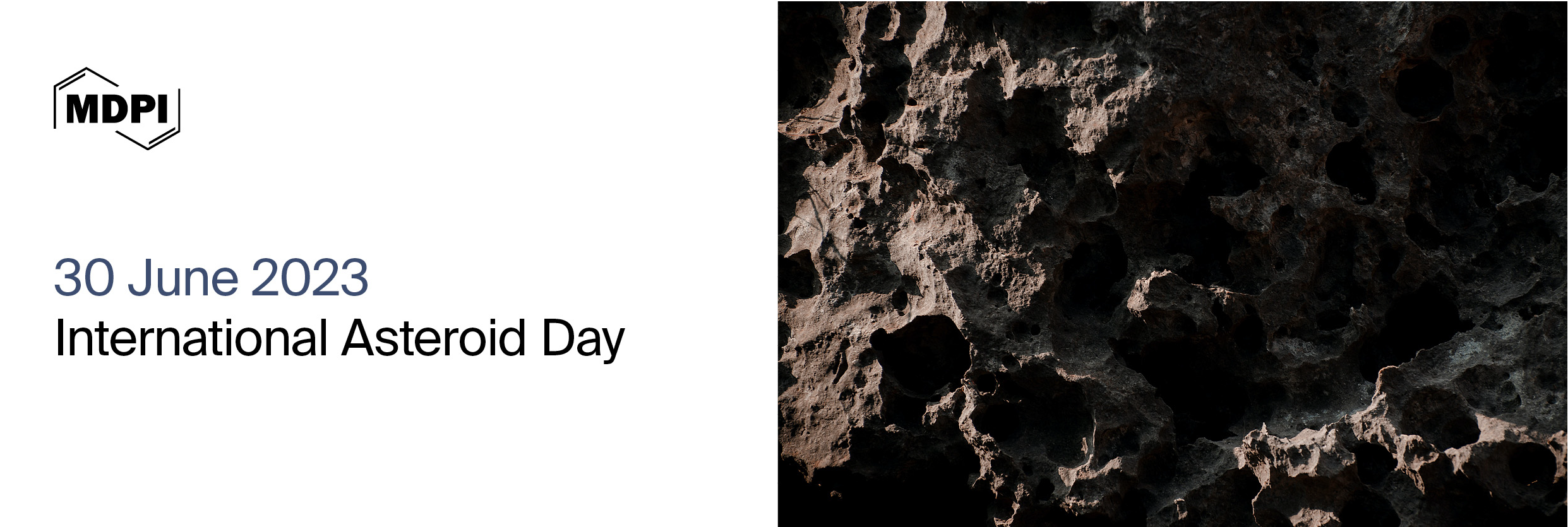
International Asteroid Day is observed annually on 30 June to mark the date of Earth’s largest asteroid impact in recorded history, the Siberia Tunguska event. It was established by the United Nations in 2016 to increase public awareness of the risk of an asteroid impact and to inform the public about crisis communication actions to be taken at the global level in the event of a credible NEO threat.
To further explore the related research on the 2023 International Asteroid Day, we have gathered open access academic articles on the topic of asteroids. We hope to share the up-to-date scientific knowledge in the field of asteroids with the world on this special day.

|
|
|

“Applied Trajectory Design for CubeSat Close-Proximity Operations around Asteroids: The Milani Case”
by Claudio Bottiglieri, Felice Piccolo, Carmine Giordano, Fabio Ferrari and Francesco Topputo
Aerospace 2023, 10(5), 464; https://doi.org/10.3390/aerospace10050464
“Fitting Power Spectrum of Scalar Perturbations for Primordial Black Hole Production during Inflation”
by Daniel Frolovsky and Sergei V. Ketov
Astronomy 2023, 2(1), 47-57; https://doi.org/10.3390/astronomy2010005
“Avoiding the “Great Filter”: A Projected Timeframe for Human Expansion Off-World”
by Jonathan H. Jiang, Philip E. Rosen and Kristen A. Fahy
Galaxies 2021, 9(3), 53; https://doi.org/10.3390/galaxies9030053
“History of the Terminal Cataclysm Paradigm: Epistemology of a Planetary Bombardment That Never (?) Happened”
by William K. Hartmann
Geosciences 2019, 9(7), 285; https://doi.org/10.3390/geosciences9070285
“Small All-Range Lidar for Asteroid and Comet Core Missions”
by Xiaoli Sun, Daniel R. Cremons, Erwan Mazarico, Guangning Yang, James B. Abshire, David E. Smith, Maria T. Zuber, Mark Storm, Nigel Martin, Jacob Hwang et al.
Sensors 2021, 21(9), 3081; https://doi.org/10.3390/s21093081
“Trajectories Derived from Periodic Orbits around the Lagrangian Point L1 and Lunar Swing-Bys: Application in Transfers to Near-Earth Asteroids”
by Rebeca S. Ribeiro, Cristiano F. de Melo and Antônio F. B. A. Prado
Symmetry 2022, 14(6), 1132; https://doi.org/10.3390/sym14061132
“Capture in Regime of a Trapped Motion with Further Inelastic Collision for Finite-Sized Asteroid in ER3BP”
by Sergey Ershkov, Dmytro Leshchenko and Alla Rachinskaya
Symmetry 2022, 14(8), 1548; https://doi.org/10.3390/sym14081548
“New Tools for the Optimized Follow-Up of Imminent Impactors”
by Maddalena Mochi and Giacomo Tommei
Universe 2021, 7(1), 10; https://doi.org/10.3390/universe7010010
“Near-Earth Asteroid Capture via Using Lunar Flyby plus Earth Aerobraking”
by Yirui Wang and Mingtao Li
Universe 2021, 7(9), 316; https://doi.org/10.3390/universe7090316
“Short-Term Consequences of Asteroid Impacts into the Ocean: A Portuguese Case Study”
by Renato H. Morais, Luís F. F. M. Santos, André R. R. Silva and Rui Melicio
Universe 2022, 8(5), 279; https://doi.org/10.3390/universe8050279

|
Special Issue: “Space Missions to Small Bodies: Results and Future Activities” |
Special Issue: “Feature Papers in the Astronomical Sciences” |
|
Special Issue: “Terrestrial Meteorite Impacts and Impact Cratering” |
Special Issue: “Advances in Entry, Descent, and Landing (EDL) for Planetary Exploration” |
25 June 2023
Sensors Receives an Increased CiteScore of 6.8

The 2022 citation metrics have been officially released by Scopus!
We are pleased to announced that the CiteScore of Sensors (ISSN: 1424-8220) is 6.8, increasing by 0.4 from 2021.
The Sensors’ CiteScore ranks as follows:
|
Quartile |
Category |
|
Q1 |
“Physics and Astronomy: Instrumentation” |
|
Q1 |
“Engineering: Electrical and Electronic Engineering” |
|
Q1 |
“Physics and Astronomy: Atomic and Molecular Physics” |
|
Q1 |
“Computer Science: Information Systems” |
|
Q1 |
“Chemistry: Analytical Chemistry” |
|
Q2 |
“Biochemistry, Genetics and Molecular Biology: Biochemistry” |
16 June 2023
Meet Us at the 22nd International Conference on Solid-State Sensors, Actuators and Microsystems (Transducers 2023), 25–29 June 2023, Kyoto, Japan

MDPI is attending the 22nd International Conference on Solid-State Sensors, Actuators and Microsystems (Transducers 2023). The event will be held at the Kyoto International Conference Center in Kyoto, Japan, from 25 to 29 June 2023. The conference aims to enhance the collective knowledge of the global transducers technical community by providing an inclusive forum for communication, education, and collaboration.
Representatives of the following MDPI journals will be attending:
If you are also attending this conference, please feel free to stop by our booth (#B-14). Our delegates look forward to meeting you in person to answer any questions you may have. For more information about the conference, please visit: https://transducers2023.org/.
14 June 2023
Sensors | Top 10 Cited Papers in 2021 in the Section “Communications”
1. “Digital Twin Generation: Re-Conceptualizing Agent Systems for Behavior-Centered Cyber-Physical System Development”
by Christian Stary
Sensors 2021, 21(4), 1096; https://doi.org/10.3390/s21041096
Available online: https://www.mdpi.com/1424-8220/21/4/1096
2. “A Cost-Efficient 5G Non-Public Network Architectural Approach: Key Concepts and Enablers, Building Blocks and Potential Use Cases”
by Panagiotis Trakadas, Lambros Sarakis, Anastasios Giannopoulos, Sotirios Spantideas, Nikolaos Capsalis, Panagiotis Gkonis, Panagiotis Karkazis, Giovanni Rigazzi, Angelos Antonopoulos, Marta Amor Cambeiro et al.
Sensors 2021, 21(16), 5578; https://doi.org/10.3390/s21165578
Available online: https://www.mdpi.com/1424-8220/21/16/5578
3. “Toward Modular and Flexible Open RAN Implementations in 6G Networks: Traffic Steering Use Case and O-RAN xApps”
by Marcin Dryjański, Łukasz Kułacz and Adrian Kliks
Sensors 2021, 21(24), 8173; https://doi.org/10.3390/s21248173
Available online: https://www.mdpi.com/1424-8220/21/24/8173
4. “Evaluation of Misalignment Effect in Vehicle-to-Vehicle Visible Light Communications: Experimental Demonstration of a 75 Meters Link”
by Sebastian-Andrei Avătămăniței, Cătălin Beguni, Alin-Mihai Căilean, Mihai Dimian and Valentin Popa
Sensors 2021, 21(11), 3577; https://doi.org/10.3390/s21113577
Available online: https://www.mdpi.com/1424-8220/21/11/3577
5. “The Use of 3D Printing Technology for Manufacturing Metal Antennas in the 5G/IoT Context”
by Diogo Helena, Amélia Ramos, Tiago Varum and João N. Matos
Sensors 2021, 21(10), 3321; https://doi.org/10.3390/s21103321
Available online: https://www.mdpi.com/1424-8220/21/10/3321
6. “Functional Safety Networks and Protocols in the Industrial Internet of Things Era”
by Giovanni Peserico, Alberto Morato, Federico Tramarin and Stefano Vitturi
Sensors 2021, 21(18), 6073; https://doi.org/10.3390/s21186073
Available online: https://www.mdpi.com/1424-8220/21/18/6073
7. “Lights and Shadows: A Comprehensive Survey on Cooperative and Precoding Schemes to Overcome LOS Blockage and Interference in Indoor VLC”
by Máximo Morales Céspedes, Borja Genovés Guzmán and Víctor P. Gil Jiménez
Sensors 2021, 21(3), 861; https://doi.org/10.3390/s21030861
Available online: https://www.mdpi.com/1424-8220/21/3/861
8. “Model of a Device-Level Combined Wireless Network Based on NB-IoT and IEEE 802.15.4 Standards for Low-Power Applications in a Diverse IoT Framework”
by Juan Pablo García-Martín and Antonio Torralba
Sensors 2021, 21(11), 3718; https://doi.org/10.3390/s21113718
Available online: https://www.mdpi.com/1424-8220/21/11/3718
9. “Analysis and Experimental Investigation of the Light Dimming Effect on Automotive Visible Light Communications Performances”
by Cătălin Beguni, Alin-Mihai Căilean, Sebastian-Andrei Avătămăniței and Mihai Dimian
Sensors 2021, 21(13), 4446; https://doi.org/10.3390/s21134446
Available online: https://www.mdpi.com/1424-8220/21/13/4446
10. “Refined Node Energy Consumption Modeling in a LoRaWAN Network”
by Sébastien Maudet, Guillaume Andrieux, Romain Chevillon and Jean-François Diouris
Sensors 2021, 21(19), 6398; https://doi.org/10.3390/s21196398
Available online: https://www.mdpi.com/1424-8220/21/19/6398
14 June 2023
Sensors | Top 10 Cited Papers in 2021 in the Section “Fault Diagnosis & Sensors”
1. “A Comparative Analysis of Signal Decomposition Techniques for Structural Health Monitoring on an Experimental Benchmark”
by Marco Civera and Cecilia Surace
Sensors 2021, 21(5), 1825; https://doi.org/10.3390/s21051825
Available online: https://www.mdpi.com/1424-8220/21/5/1825
2. “Deep Learning Approaches on Defect Detection in High Resolution Aerial Images of Insulators”
by Qiaodi Wen, Ziqi Luo, Ruitao Chen, Yifan Yang and Guofa Li
Sensors 2021, 21(4), 1033; https://doi.org/10.3390/s21041033
Available online: https://www.mdpi.com/1424-8220/21/4/1033
3. “Wind Turbine Main Bearing Fault Prognosis Based Solely on SCADA Data”
by Ángel Encalada-Dávila, Bryan Puruncajas, Christian Tutivén and Yolanda Vidal
Sensors 2021, 21(6), 2228; https://doi.org/10.3390/s21062228
Available online: https://www.mdpi.com/1424-8220/21/6/2228
4. “Bearing Fault Feature Extraction and Fault Diagnosis Method Based on Feature Fusion”
by Huibin Zhu, Zhangming He, Juhui Wei, Jiongqi Wang and Haiyin Zhou
Sensors 2021, 21(7), 2524; https://doi.org/10.3390/s21072524
Available online: https://www.mdpi.com/1424-8220/21/7/2524
5. “Data-Driven Fault Diagnosis for Electric Drives: A Review”
by David Gonzalez-Jimenez, Jon del-Olmo, Javier Poza, Fernando Garramiola and Patxi Madina
Sensors 2021, 21(12), 4024; https://doi.org/10.3390/s21124024
Available online: https://www.mdpi.com/1424-8220/21/12/4024
6. “Fault Diagnosis and Fault Frequency Determination of Permanent Magnet Synchronous Motor Based on Deep Learning”
by Chiao-Sheng Wang, I-Hsi Kao and Jau-Woei Perng
Sensors 2021, 21(11), 3608; https://doi.org/10.3390/s21113608
Available online: https://www.mdpi.com/1424-8220/21/11/3608
7. “Sensor and Component Fault Detection and Diagnosis for Hydraulic Machinery Integrating LSTM Autoencoder Detector and Diagnostic Classifiers”
by Ahlam Mallak and Madjid Fathi
Sensors 2021, 21(2), 433; https://doi.org/10.3390/s21020433
Available online: https://www.mdpi.com/1424-8220/21/2/433
8. “A Two-Stage, Intelligent Bearing-Fault-Diagnosis Method Using Order-Tracking and a One-Dimensional Convolutional Neural Network with Variable Speeds”
by Mengyu Ji, Gaoliang Peng, Jun He, Shaohui Liu, Zhao Chen and Sijue Li
Sensors 2021, 21(3), 675; https://doi.org/10.3390/s21030675
Available online: https://www.mdpi.com/1424-8220/21/3/675
9. “Bearing Fault Diagnosis Based on Energy Spectrum Statistics and Modified Mayfly Optimization Algorithm”
by Yuhu Liu, Yi Chai, Bowen Liu and Yiming Wang
Sensors 2021, 21(6), 2245; https://doi.org/10.3390/s21062245
Available online: https://www.mdpi.com/1424-8220/21/6/2245
10. “Bearing Fault Diagnosis Using Multidomain Fusion-Based Vibration Imaging and Multitask Learning”
by Md Junayed Hasan, M. M. Manjurul Islam and Jong-Myon Kim
Sensors 2021, 22(1), 56; https://doi.org/10.3390/s22010056
Available online: https://www.mdpi.com/1424-8220/22/1/56
14 June 2023
Sensors | Top 10 Cited Papers in 2021 in the Section “Wearables”
1. “Wearable Devices Suitable for Monitoring Twenty Four Hour Heart Rate Variability in Military Populations”
by Katrina Hinde, Graham Whiteand and Nicola Armstrong
Sensors 2021, 21(4), 1061; https://doi.org/10.3390/s21041061
Available online: https://www.mdpi.com/1424-8220/21/4/1061
2. “Smart Textiles and Sensorized Garments for Physiological Monitoring: A Review of Available Solutions and Techniques”
by Alessandra Angelucci, Matteo Cavicchioli, Ilaria A. Cintorrino, Giuseppe Lauricella, Chiara Rossi, Sara Strati and Andrea Aliverti
Sensors 2021, 21(3), 814; https://doi.org/10.3390/s21030814
Available online: https://www.mdpi.com/1424-8220/21/3/814
3. “Smart Wearables for Cardiac Monitoring—Real-World Use beyond Atrial Fibrillation”
by David Duncker, Wern Yew Ding, Susan Etheridge, Peter A. Noseworthy, Christian Veltmann, Xiaoxi Yao, T. Jared Bunch and Dhiraj Gupta
Sensors 2021, 21(7), 2539; https://doi.org/10.3390/s21072539
Available online: https://www.mdpi.com/1424-8220/21/7/2539
4. “Decrease in Mobility during the COVID-19 Pandemic and Its Association with Increase in Depression among Older Adults: A Longitudinal Remote Mobility Monitoring Using a Wearable Sensor”
by Ramkinker Mishra, Catherine Park, Michele K. York, Mark E. Kunik, Shu-Fen Wung, Aanand D. Naik and Bijan Najafi
Sensors 2021, 21(9), 3090; https://doi.org/10.3390/s21093090
Available online: https://www.mdpi.com/1424-8220/21/9/3090
5. “The Promise of Sleep: A Multi-Sensor Approach for Accurate Sleep Stage Detection Using the Oura Ring”
by Marco Altini and Hannu Kinnunen
Sensors 2021, 21(13), 4302; https://doi.org/10.3390/s21134302
Available online: https://www.mdpi.com/1424-8220/21/13/4302
6. “Cuffless Blood Pressure Measurement Using a Smartphone-Case Based ECG Monitor with Photoplethysmography in Hypertensive Patients”
by Zhanna Sagirova, Natalia Kuznetsova, Nana Gogiberidze, Daria Gognieva, Aleksandr Suvorov, Petr Chomakhidze, Stefano Omboni, Hugo Saner and Philippe Kopylov
Sensors 2021, 21(10), 3525; https://www.mdpi.com/1424-8220/21/10/3525
Available online: https://doi.org/10.3390/s21103525
7. “Wearable Devices for Environmental Monitoring in the Built Environment: A Systematic Review”
by Francesco Salamone, Massimiliano Masullo and Sergio Sibilio
Sensors 2021, 21(14), 4727; https://doi.org/10.3390/s21144727
Available online: https://www.mdpi.com/1424-8220/21/14/4727
8. “Using Wearable Sensor Technology to Measure Motion Complexity in Infants at High Familial Risk for Autism Spectrum Disorder”
by Rujuta B. Wilson, Sitaram Vangala, David Elashoff, Tabitha Safari and Beth A. Smith
Sensors 2021, 21(2), 616; https://doi.org/10.3390/s21020616
Available online: https://www.mdpi.com/1424-8220/21/2/616
9. “Advances in Non-Invasive Blood Pressure Monitoring”
by Xina Quan, Junjun Liu, Thomas Roxlo, Siddharth Siddharth, Weyland Leong, Arthur Muir, So-Min Cheong and Anoop Rao
Sensors 2021, 21(13), 4273; https://doi.org/10.3390/s21134273
Available online: https://www.mdpi.com/1424-8220/21/13/4273
10. “Ultra-Wideband Indoor Positioning and IMU-Based Activity Recognition for Ice Hockey Analytics”
by Robbe Vleugels, Ben Van Herbruggen, Jaron Fontaine and Eli De Poorter
Sensors 2021, 21(14), 4650; https://doi.org/10.3390/s21144650
Available online: https://www.mdpi.com/1424-8220/21/14/4650
14 June 2023
Sensors | Top 10 Cited Papers in 2021 in the Section “Electronic Sensors”
1. “A Review on Humidity, Temperature and Strain Printed Sensors—Current Trends and Future Perspectives”
by Dimitris Barmpakos and Grigoris Kaltsas
Sensors 2021, 21(3), 739; https://doi.org/10.3390/s21030739
Available online: https://www.mdpi.com/1424-8220/21/3/739
2. “Recent Advances in Flexible Tactile Sensors for Intelligent Systems”
by Yiyao Peng, Ning Yang, Qian Xu, Yang Dai and Zhiqiang Wang
Sensors 2021, 21(16), 5392; https://doi.org/10.3390/s21165392
Available online: https://www.mdpi.com/1424-8220/21/16/5392
3. “Universal Filter Based on Compact CMOS Structure of VDDDA”
by Winai Jaikla, Fabian Khateb, Tomasz Kulej and Koson Pitaksuttayaprot
Sensors 2021, 21(5), 1683; https://doi.org/10.3390/s21051683
Available online: https://www.mdpi.com/1424-8220/21/5/1683
4. “Testing the Performance of Multi-Frequency Low-Cost GNSS Receivers and Antennas”
by Veton Hamza, Bojan Stopar and Oskar Sterle
Sensors 2021, 21(6), 2029; https://doi.org/10.3390/s21062029
Available online: https://www.mdpi.com/1424-8220/21/6/2029
5. “Detecting Attention Levels in ADHD Children with a Video Game and the Measurement of Brain Activity with a Single-Channel BCI Headset”
by Almudena Serrano-Barroso, Roma Siugzdaite, Jaime Guerrero-Cubero, Alberto J. Molina-Cantero, Isabel M. Gomez-Gonzalez, Juan Carlos Lopez and Juan Pedro Vargas
Sensors 2021, 21(9), 3221; https://doi.org/10.3390/s21093221
Available online: https://www.mdpi.com/1424-8220/21/9/3221
6. “Recent Progress in Self-Powered Sensors Based on Triboelectric Nanogenerators”
by Junpeng Wu, Yang Zheng and Xiaoyi Li
Sensors 2021, 21(21), 7129; https://doi.org/10.3390/s21217129
Available online: https://www.mdpi.com/1424-8220/21/21/7129
7. “A Flexible Pressure Sensor Based on Magnetron Sputtered MoS2”
by Xing Pang, Qi Zhang, Yiwei Shao, Mingjie Liu, Dongliang Zhang and Yulong Zhao
Sensors 2021, 21(4), 1130; https://doi.org/10.3390/s21041130
Available online: https://www.mdpi.com/1424-8220/21/4/1130
8. “Performance Enhancement of Consumer-Grade MEMS Sensors through Geometrical Redundancy”
by Giorgio de Alteriis, Domenico Accardo, Claudia Conte and Rosario Schiano Lo Moriello
Sensors 2021, 21(14), 4851; https://doi.org/10.3390/s21144851
Available online: https://www.mdpi.com/1424-8220/21/14/4851
9. “Development of Flexible Ion-Selective Electrodes for Saliva Sodium Detection”
by Hyo-Ryoung Lim, Soon Min Lee, Musa Mahmood, Shinjae Kwon, Yun-Soung Kim, Yongkuk Lee and Woon-Hong Yeo
Sensors 2021, 21(5), 1642; https://doi.org/10.3390/s21051642
Available online: https://www.mdpi.com/1424-8220/21/5/1642
10. “Evaluation of Coating Thickness Using Lift-Off Insensitivity of Eddy Current Sensor”
by Xiaobai Meng, Mingyang Lu, Wuliang Yin, Abdeldjalil Bennecer and Katherine J. Kirk
Sensors 2021, 21(2), 419; https://doi.org/10.3390/s21020419
Available online: https://www.mdpi.com/1424-8220/21/2/419
14 June 2023
Sensors | Top 10 Cited Papers in 2021 in the Section “Remote Sensors”
1. “The New Hyperspectral Satellite PRISMA: Imagery for Forest Types Discrimination”
by Elia Vangi, Giovanni D’Amico, Saverio Francini, Francesca Giannetti, Bruno Lasserre, Marco Marchetti and Gherardo Chirici
Sensors 2021, 21(4), 1182; https://doi.org/10.3390/s21041182
Available online: https://www.mdpi.com/1424-8220/21/4/1182
2. “Prediction of Crop Yield Using Phenological Information Extracted from Remote Sensing Vegetation Index”
by Zhonglin Ji, Yaozhong Pan, Xiufang Zhu, Jinyun Wang and Qiannan Li
Sensors 2021, 21(4), 1406; https://doi.org/10.3390/s21041406
Available online: https://www.mdpi.com/1424-8220/21/4/1406
3. “Improved Mask R-CNN for Aircraft Detection in Remote Sensing Images”
by Qifan Wu, Daqiang Feng, Changqing Cao, Xiaodong Zeng,Zhejun Feng,Jin Wu and Ziqiang Huang
Sensors 2021, 21(8), 2618. https://doi.org/10.3390/s21082618
Available online: https://www.mdpi.com/1424-8220/21/8/2618
4. “Application of Terrestrial Laser Scanning (TLS) in the Architecture, Engineering and Construction (AEC) Industry”
by Chao Wu, Yongbo Yuan,Yang Tang and Boquan Tian
Sensors 2022, 22(1), 265; https://doi.org/10.3390/s22010265
Available online: https://www.mdpi.com/1424-8220/22/1/265
5. “Application of Deep Learning on Millimeter-Wave Radar Signals: A Review”
by Fahad Jibrin Abdu, Yixiong Zhang, Maozhong Fu, Yuhan Li and Zhenmiao Deng
Sensors 2021, 21(6), 1951; https://doi.org/10.3390/s21061951
Available online: https://www.mdpi.com/1424-8220/21/6/1951
6. “Assessment of Vineyard Canopy Characteristics from Vigour Maps Obtained Using UAV and Satellite Imagery”
by Javier Campos, Francisco García-Ruíz and Emilio Gil
Sensors 2021, 21(7), 2363; https://doi.org/10.3390/s21072363
Available online: https://www.mdpi.com/1424-8220/21/7/2363
7. “A Method for Autonomous Navigation and Positioning of UAV Based on Electric Field Array Detection”
by Yincheng Li, Wenbin Zhang,Peng Li,Youhuan Ning and Chunguang Suo
Sensors 2021, 21(4), 1146; https://doi.org/10.3390/s21041146
Available online: https://www.mdpi.com/1424-8220/21/4/1146
8. “A Hybrid Differential Symbiotic Organisms Search Algorithm for UAV Path Planning”
by Lisu Huo, Jianghan Zhu, Zhimeng Li and Manhao Ma
Sensors 2021, 21(9), 3037; https://doi.org/10.3390/s21093037
Available online: https://www.mdpi.com/1424-8220/21/9/3037
9. “Coastal Wetland Classification with GF-3 Polarimetric SAR Imagery by Using Object-Oriented Random Forest Algorithm”
by Xiaotong Zhang, Jia Xu, Yuanyuan Chen, Kang Xu and Dongmei Wang
Sensors 2021, 21(10), 3395; https://doi.org/10.3390/s21103395
Available online: https://www.mdpi.com/1424-8220/21/10/3395
10. “The Overview of Human Localization and Vital Sign Signal Measurement Using Handheld IR-UWB Through-Wall Radar”
by Degui Yang, Zhengliang Zhu, Junchao Zhang and Buge Liang
Sensors 2021, 21(2), 402; https://doi.org/10.3390/s21020402
Available online: https://www.mdpi.com/1424-8220/21/2/402
14 June 2023
Sensors | Top 10 Cited Papers in 2021 in the Section “Intelligent Sensors”
1. “Ventilation Diagnosis of Angle Grinder Using Thermal Imaging”
by Adam Glowacz
Sensors 2021, 21(8), 2853; https://doi.org/10.3390/s21082853
Available online: https://www.mdpi.com/1424-8220/21/8/2853
2. “LSTM Networks Using Smartphone Data for Sensor-Based Human Activity Recognition in Smart Homes”
by Sakorn Mekruksavanich and Anuchit Jitpattanakul
Sensors 2021, 21(5), 1636; https://doi.org/10.3390/s21051636
Available online: https://www.mdpi.com/1424-8220/21/5/1636
3. “A Modified Sparrow Search Algorithm with Application in 3d Route Planning for UAV”
by Guiyun Liu, Cong Shu, Zhongwei Liang, Baihao Peng and Lefeng Cheng
Sensors 2021, 21(4), 1224; https://doi.org/10.3390/s21041224
Available online: https://www.mdpi.com/1424-8220/21/4/1224
4. “Predictive Maintenance and Intelligent Sensors in Smart Factory: Review”
by Martin Pech, Jaroslav Vrchota and Jiří Bednář
Sensors 2021, 21(4), 1470; https://doi.org/10.3390/s21041470
Available online: https://www.mdpi.com/1424-8220/21/4/1470
5. “Roadmap of Terahertz Imaging 2021”
by Gintaras Valušis, Alvydas Lisauskas, Hui Yuan, Wojciech Knap and Hartmut G. Roskos
Sensors 2021, 21(12), 4092; https://doi.org/10.3390/s21124092
Available online: https://www.mdpi.com/1424-8220/21/12/4092
6. “Deep Learning-Based Industry 4.0 and Internet of Things towards Effective Energy Management for Smart Buildings”
by Mahmoud Elsisi, Minh-Quang Tran, Karar Mahmoud, Matti Lehtonen and Mohamed M. F. Darwish
Sensors 2021, 21(4), 1038; https://doi.org/10.3390/s21041038
Available online: https://www.mdpi.com/1424-8220/21/4/1038
7. “Reliable Industry 4.0 Based on Machine Learning and IoT for Analyzing, Monitoring, and Securing Smart Meters”
by Mahmoud Elsisi, Karar Mahmoud, Matti Lehtonen, and Mohamed M. F. Darwish
Sensors 2021, 21(2), 487; https://doi.org/10.3390/s21020487
Available online: https://www.mdpi.com/1424-8220/21/2/487
8. “Impact of COVID-19 on IoT Adoption in Healthcare, Smart Homes, Smart Buildings, Smart Cities, Transportation and Industrial IoT”
by Muhammad Umair, Muhammad Aamir Cheema, Omer Cheema, Huan Li and Hua Lu
Sensors 2021, 21(11), 3838; https://doi.org/10.3390/s21113838
Available online: https://www.mdpi.com/1424-8220/21/11/3838
9. “AI-Driven Framework for Recognition of Guava Plant Diseases through Machine Learning from DSLR Camera Sensor Based High Resolution Imagery”
by Ahmad Almadhor, Hafiz Tayyab Rauf, Muhammad Ikram Ullah Lali, Robertas Damaševičius, Bader Alouffi and Abdullah Alharbi
Sensors 2021, 21(11), 3830; https://doi.org/10.3390/s21113830
Available online: https://www.mdpi.com/1424-8220/21/11/3830
10. “An Overview of Autonomous Vehicles Sensors and Their Vulnerability to Weather Conditions”
by Jorge Vargas, Suleiman Alsweiss, Onur Toker, Rahul Razdan and Joshua Santos
Sensors 2021, 21(16), 5397; https://doi.org/10.3390/s21165397
Available online: https://www.mdpi.com/1424-8220/21/16/5397
25 May 2023
Meet Us at the 7th Scientific Meeting of Ph.D. Students (JPhD2023), 7–9 June 2023, Barcelona, Spain

MDPI will be presenting at the 7th Scientific Meeting of Ph.D. Students at the UAB campus (JPhD2023). The event will be held at the Sala d'Actes Institut de Ciència de Materials de Barcelona in Barcelona, Spain, from 7 to 9 June 2023.
JPhD2023 aims to facilitate the exchange of knowledge about scientific research from different fields, sharing of research works and communication among the Ph.D. students of the BNC-b in an academic and scientific environment.
MDPI Speaker

Dr. Gabriel Martínez Edo
Presentation theme: MDPI Open Access & Peer Review Process
Dr. Gabriel Martínez Edo holds a bachelor’s degree in chemistry (2013) and a master’s degree in pharmaceutical chemistry (2015) from the IQS school of Engineering, Universitat Ramon Llull (Barcelona, Spain). He completed his Ph.D. (2020) in chemistry and chemical engineering at the same institution focusing on the use of nanomaterials as drug delivery systems.
He joined MDPI in June 2020 as Assistant Editor and Section Managing Editor for the journal Nanomaterials. In 2021, he was appointed Managing Editor of the journal Nanomanufacturing, a position he held until his recent appointment as Journal Relations Specialist.
If you are also attending this conference, please feel free to stop by our booth. Our delegates look forward to meeting you in person to answer any questions you may have. For more information about the conference, please visit: https://jphd.icmab.es/.
Relevant Journals:
19 May 2023
Sensors Webinar | 5G-Enabled IoT and Digital Twins: Cybersecurity and Resilience, 24 May 2023

The fifth generation of wireless technology (5G) is the backbone of modern IoT-based critical sectors and it offers several benefits, including high speed, low latency, and greater availability. IoT devices and their related systems are expected to grow in number over the next few years. The 5G-enabled IoT has applications in a wide range of domains, such as transportation, healthcare, smart cities, and energy; however, it is also prone to cybersecurity threats. As a result, efficient and end-to-end security solutions are needed to ensure data integrity, confidentiality, and availability of 5G-enabled IoT networks. Digital twins (DTs), as virtual representations of a physical object, process, or service, are also receiving significant attention from academia and industry. DT technology is more efficient than simulations since it uses real data to mimic processes; it also provides significant benefits, such as saving costs and enhancing the decision-making process in a variety of application domains. DT technology can help organizations and industries to identify potential cyber threats, such as sensor attacks, spoof-node attacks, hardware manipulation attacks, energy manipulation attacks, sniffing, distributed denial of service, sensitive data leakage, and fault tolerance, by creating virtual clones. However, by creating a DT of any system, the potential attack surface effectively doubles. Therefore, the cybersecurity of 5G-enabled IoT systems employing DT technology, and the opportunities for DTs themselves to mitigate cybersecurity risks, must be considered.
In this webinar, we will be discussing 5G-enabled IoT and DT technology with respect to cybersecurity and resilience.
This webinar is supported by the Center for Research-Based Innovation (SFI), the Norwegian Center for Cybersecurity in Critical Sectors (NORCICS), the International Alliance for Strengthening Cybersecurity and Privacy in Healthcare (CybAlliance), and the European Knowledge Hub and Policy Testbed for Critical Infrastructure Protection (EU-CIP) projects.
Date: 24 May 2023 at 9:00 a.m. CEST | 3:00 a.m. EDT | 3:00 p.m. CST Asia
Webinar ID: 821 1625 2811
Register now for free!
|
Speaker/Presentation |
Time in CEST |
Time in EDT |
Time in CST Asia |
|
Sandeep Pirbhulal |
09:00–09:05 a.m. |
03:00–03:05 a.m. |
03:00–03:05 p.m. |
|
Joaquin Garcia-Alfaro |
09:05–09:35 a.m. |
03:05–03:35 a.m. |
03:05–03:35 p.m. |
|
Q&A Session |
09:35–09:45 a.m. |
03:35–03:45 a.m. |
03:35–03:45 p.m. |
|
Emiliano Marquesini |
09:45–10:15 a.m. |
03:45–04:15 a.m. |
03:45–04:15 p.m. |
|
Q&A Session |
10:15–10:25 a.m. |
04:15–04:25 a.m. |
04:15–04:25 p.m. |
|
Open Discussion |
10:25–10:55 a.m. |
04:25–04:55 a.m. |
04:25–04:55 p.m. |
|
Sandeep Pirbhulal |
10:55–11:00 a.m. |
04:55–05:00 a.m. |
04:55–05:00 p.m. |
After registering, you will receive a confirmation email containing information on how to join the webinar. Registrations with academic institutional email addresses will be prioritized.
Unable to attend? Register anyway and we will let you know when the recording is available to watch.
Webinar Chairs and Speakers:
|
General Chair:
|
Name: Dr. Sandeep Pirbhulal Email: [email protected] Affiliation: Norsk Regnesentral (Norwegian Computing Center, NR), 0373 Oslo, Norway Biography: Dr. Sandeep Pirbhulal is currently working as a Senior Research Scientist at the Norwegian Computing Center, Norway. Dr. Pirbhulal received his Ph.D. in pattern recognition and intelligent systems from the Shenzhen Institute of Advanced Technology, Chinese Academy of Sciences (SIAT-CAS), China (2014-2018). He was a postdoctoral researcher at the Department of Information Security and Communication Technology, Norwegian University of Science and Technology, Norway (2020-2021). He also served as a postdoctoral researcher at SIAT-CAS China (2018-2019) and UBI Portugal (2019-2020). Dr. Pirbhulal has vast experience from 10 years of working in academia and research. His current research focuses on cyber security, digital twins, critical infrastructure protection, tele-healthcare, risk management, ML/DL/AI learning, privacy and security for WSNs, 5G, and the Internet of Things. He has published several scientific articles (including peer-reviewed journals and international conferences) in IEEE Transactions, Elsevier’s JCR in Q1, and other high-impact-factor venues. Dr. Pirbhulal has extensive management experience in national and international research projects. He was the Principal Investigator/Team Lead of the project titled “Parallel Structure-based Biometric Authentication Mechanism for Secure Transmission of Sensitive Clinical Information”, China Postdoctoral Science Foundation (2018-2019). Dr. Pirbhulal has reviewed more than 80 papers in reputed peer-reviewed journals, such as IEEE Access, IEEE JBHI, and IEEE Transactions. He is an Editorial Board Member of Springer’s International Journal of Information Security (since 2022) and the MDPI journal Signals (since 2020). For three years (2019-2021) he was the Organizing Chair of the Workshop on Decentralized Technologies and Applications for IoT (D’IoT) in conjunction with the IEEE Vehicular Technology Conference (VTC). He is an organizer of the international workshop on System Security Assurance (SecAssure 2022 and 2023) with ESORICS. He also serves as a TPC member of several conferences, seminars, and workshops at national and international levels. |
|
Co-Chair:
|
Name: Dr. Ankur Shukla Email: [email protected] Affiliation: Institute for Energy Technology, 1777 Halden, Norway Biography: Dr. Ankur Shukla is currently working as a Research Scientist at the Department of Risk and Security, Institute of Energy Technology (IFE), Halden, Norway. He received his Ph.D. in software reliability from the Indian Institute of Technology (ISM), Dhanbad, India. He also worked as a postdoctoral researcher in the Department of Information Security and Communication Technology (IIK), Norwegian University of Science and Technology (NTNU), Norway. He has more than 10 years of experience in teaching and research. Dr. Shukla’s research focuses on the cybersecurity and reliability of various systems, including IoT, digital twins, cloud computing, software applications, and web applications. He is working on the development of efficient and high-level security assurance methods and techniques to secure services within various application domains, including energy, transport, smart cities, and healthcare. He was awarded the Alain Bensoussan Fellowship by the European Research Consortium for Informatics and Mathematics (ERCIM). He is an organizer of the international workshop on System Security Assurance (SecAssure 2022 and 2023) with ESORICS and served as a TPC member at several national and international conferences and workshops. |
|
Co-Chair:
|
Name: Dr. Habtamu Abie Email: [email protected] Affiliation: Norsk Regnesentral (Norwegian Computing Center, NR), 0373 Oslo, Norway Biography: Habtamu Abie, Ph.D., is currently a Chief Research Scientist at NR. He received his B.Sc., M.Sc., and Ph.D. from the University of Oslo, and has many years of experience in computing, both as a practitioner and researcher. He has a solid and extensive background in the design and development of real-time systems and the design, modeling, and development of adaptive security for distributed computing systems. His current research interests include adaptive security, critical infrastructure protection, cybersecurity, adaptive threat hunting and intelligence, risk management, 5G and beyond, Internet of Things, and digital twins for enhancing cybersecurity and resilience. |
|
Speakers:
|
Name: Mr. Emiliano Marquesini Affiliation: Digital Smart Group, Barcelona, Spain Email: [email protected] Presentation: “5G High-Performance Mobile Broadband Kit for IoT and OT-Cybersecurity Mission-Critical Applications and Infrastructure” Biography: Emiliano Marquesini is a Co-Founder of Digital Smart Group and VP S&M. Emiliano graduated as an Electronic and Electrical Engineer, with more than 30 years working in Industrial Automation and Utility segments across multiple countries with specialization in Software Solutions for Industrial and Utilities customers and Data Communications for Operational Technology. He has got strong and practical knowledge of IoT/IIoT and cybersecurity for OT (Operational Technology). He has experience of working and living abroad, including 3 years in Singapore and France, 17 years in the UK (overseas customers), 4.5 years in the Middle East (UAE/Dubai), and 5 years in Barcelona, Spain. |
|
|
Name: Prof. Joaquin Garcia-Alfaro Affiliation: Télécom SudParis, Paris, France Email: [email protected] Presentation: “Digital Twins and Cybersecurity in Critical Sectors” Biography: Prof. Dr. Joaquin Garcia-Alfaro is a full professor at the Networks and Telecommunication Services Department at Télécom SudParis (Institut Mines-Télécom) and an adjunct research professor at Carleton University (Ottawa, Canada). His research interests include a wide range of cybersecurity problems, with an emphasis on the management of formal policies, analysis of vulnerabilities, and enforcement of countermeasures. He holds a double Ph.D. diploma in computer science and a research Habilitation from Sorbonne Université. He is involved in several research projects at National and European levels related to ICT security. He has served as general chair of conferences such as RAID and ATC, and in the technical committee of conferences such as ESORICS and AsiaCCS. He has been the recipient of several awards for excellence in his career. His work has also been disseminated in terms of patents, industrial transfer of proof-of-concept tools, and science divulgation magazines. |
Relevant Special Issue:
“Cybersecurity and Reliability for 5G and Beyond and IoT Applications”
Edited by: Dr. Sandeep Pirbhulal and Dr. Habtamu Abie
14 May 2023
2023 World Telecommunication and Information Society Day
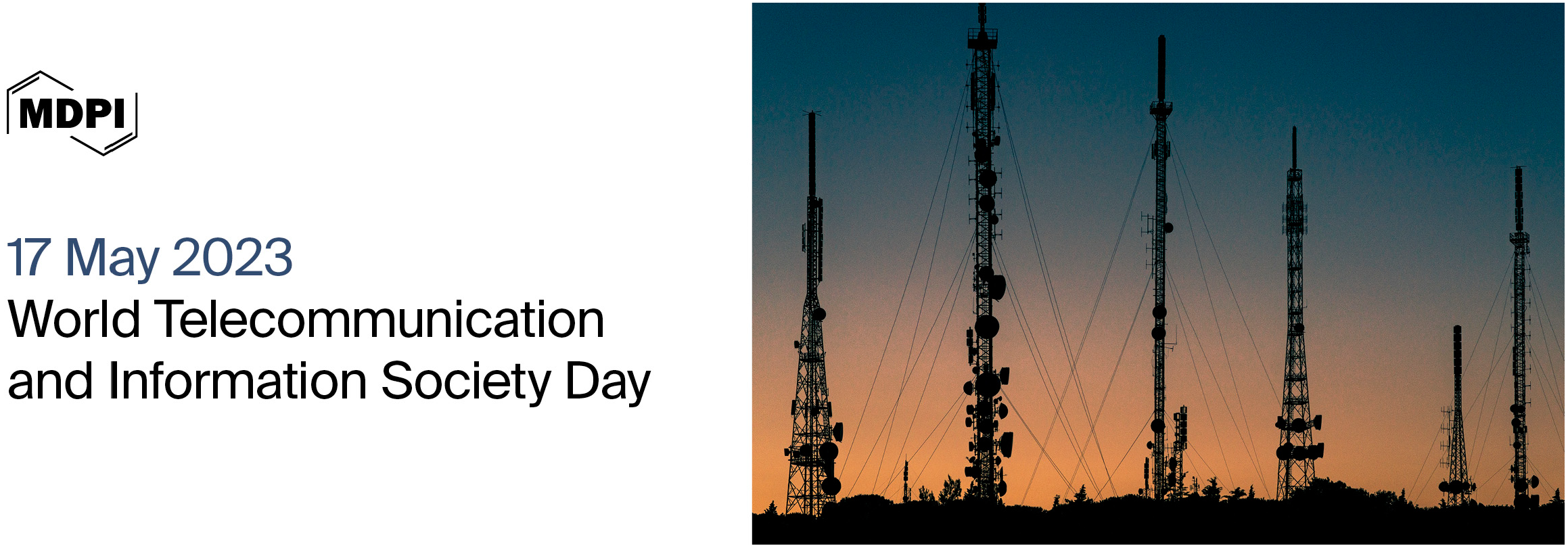
The purpose of the World Telecommunication and Information Society Day is to help raise awareness of the possibilities that the use of the Internet and other information and communication technologies (ICTs) can bring to societies and economies, as well as of ways to bridge the digital divide. 17 May marks the anniversary of the signing of the first International Telegraph Convention and the creation of the International Telecommunication Union (ITU).
This year, World Telecommunication and Information Society Day focuses on “Empowering the least developed countries (LDCs) through information and communication technologies.” As the world becomes increasingly adept at leveraging the Internet for value creation, LDCs risk falling further behind. To further explore the information about digital transformation in these LDCs and communication technologies in the rest of the world on the 2023 World Telecommunication and Information Society Day, we have gathered academic research from several journals on the topic of digital communication, all of which are open access, enabling practitioners, policymakers and people around the world to access and share up-to-date scientific knowledge.
Let us celebrate the World Telecommunication and Information Society Day together.

|
ParlTech: Transformation Framework for the Digital Parliament |
|
|
Impactful Digital Twin in the Healthcare Revolution |
|
|
Managerial Practices for the Digital Transformation of Manufacturers |
|
|
Blockchain-Enabled IoT for Rural Healthcare: Hybrid-Channel Communication with Digital Twinning |
|
|
Applied Data Science for Social Good |
The Digital Transformation of Healthcare |

9 May 2023
Meet Us at the Japan Geoscience Union Meeting 2023 (JpGU 2023), 21–26 May 2023, Chiba, Japan

MDPI is attending the Japan Geoscience Union Meeting 2023 (JpGU 2023). The event will be held at the Makuhari Messe in Chiba, Japan, from 21 to 26 May 2023, and it is organized by the Japan Geoscience Union (JpGU). JpGU is an academic union that encompasses all the Earth and planetary science disciplines and related fields; additionally, it has been organizing annual meetings since 2005. JpGU 2023 will cover a wide range of Earth and planetary sciences, including space and planetary sciences, atmospheric and hydrospheric sciences, human geosciences, solid Earth sciences, and biogeosciences. The JpGU annual meeting provides participants with a good opportunity to become familiar with cutting-edge research and unique approaches to research objects within their own special field and beyond. Representatives of the following MDPI journals will be attending:
- Land;
- Remote Sensing;
- Minerals;
- Sustainability;
- Drones;
- Geographies;
- Climate;
- Geomatics;
- Geosciences;
- Water;
- Quaternary;
- Sensors;
- Earth.
If you are also attending this conference, please feel free to stop by our booth (#Pub05). Our delegates look forward to meeting you in person to answer any questions you may have. For more information about the conference, please visit: https://www.jpgu.org/meeting_e2023/.
21 April 2023
Meet Us at the 40th Annual Conference of Chinese Society for Imaging Science and Technology (SCIST 2023), 13–16 May 2023, Kunming, Yunnan, China

A range of MDPI journals will be attending the 40th Annual Conference of Chinese Society for Imaging Science and Technology (SCIST 2023) as exhibitors. This meeting will be held in Kunming, Yunnan, China, from 13 to 16 May 2023.
The theme of this conference is "Strengthening the Driven by Technological Innovation and Building the Future of Photosensitive Imaging". The conference will invite well-known experts and scholars in the field of photosensitive imaging and related fields to make special reports and keynote reports of the conference. It will also organize academic exchanges in 17 sub-sessions in conjunction with various professional committees. The scale of the meeting is expected to be 1000 people.
The following MDPI journals will be represented:
- Applied Sciences;
- J. Imaging;
- Sensors;
- Chemosensors;
- Photonics.
If you are attending this conference, please feel free to start a conversation with us at our booth #1-12. Our delegates look forward to meeting you in person and answering any questions that you may have.
For more information about the conference, please visit https://2021csist.scimeeting.cn/cn/web/index/, or contact the Applied Sciences Editorial Office at [email protected].
13 March 2023
MDPI’s Newly Launched Journals in December 2022
As a leading open access publisher, MDPI provides scholars with a high-quality and rich academic exchange platform by continuously expanding into new and exciting research areas.
In December 2022, MDPI launched five new journals, covering multiple subjects such as life sciences, biology, medicine and pharmacology, social sciences and humanities. These new journals are being edited by established scholars across the world.
|
Journal |
Founding Editor-in-Chief |
Journal Topics (Selected) |
|
Prof. Dr. Fabio Gresta, University of Messina, Italy| Editorial | view inaugural issue |
grass/forage/turf production; grassland management; pasture monitoring; grazing and livestock; grass agro-ecosystems| view journal scope | submit an article |
|
|
Prof. Dr. Christos G. Athanassiou, University of Thessaly, Greece| Editorial | view inaugural issue |
pesticides; fungicides; herbicides; fertilizers; soil conditioners| view journal scope | submit an article |
|
|
Prof. Dr. Stephen H. Safe, Texas A&M University, USA| Editorial | view inaugural issue |
receptor structure; receptor function; receptor signaling; receptor expression and regulation; receptor interactions with drugs| view journal scope | submit an article |
|
|
Dr. Jean Jacques Vanden Eynde, University of Mons-UMONS, Belgium| Editorial | view inaugural issue |
drug discovery; medicinal chemistry; preclinical and clinical research; marketed drugs; intellectual property and regulatory affairs| view journal scope | submit an article |
|
|
Prof. Dr. Heather Kanuka, University of Alberta, Canada| Editorial | view inaugural issue |
higher education; tertiary education; policy and practice in higher education; educational leadership in higher education; educational administration and management in higher education| view journal scope | submit an article |
If you are interested in creating more open access journals with us to publish cutting-edge research, please send your journal proposal application to [email protected].
8 March 2023
Sensors | Top 10 Cited Papers in 2021 in the Section “Internet of Things”
1. “IoT and Interpretable Machine learning based Framework for Disease Prediction in Pearl Millet”
by Nidhi Kundu, Geeta Rani, Vijaypal Singh Dhaka, Kalpit Gupta, Siddaiah Chandra Nayak, Sahil Verma, Muhammad Fazal Ijaz and Marcin Woźniak
Sensors 2021, 21(16), 5386; https://doi.org/10.3390/s21165386
Available online: https://www.mdpi.com/1424-8220/21/16/5386
2. “Enabling Technologies for Urban Smart Mobility: Recent Trends, Opportunities and Challenges”
by Sara Paiva, Mohd Abdul Ahad, Gautami Tripathi, Noushaba Feroz and Gabriella Casalino
Sensors 2021, 21(6), 2143; https://doi.org/10.3390/s21062143
Available online: https://www.mdpi.com/1424-8220/21/6/2143
3. “Internet of Things: Evolution, Concerns and Security Challenges”
by Parushi Malhotra, Yashwant Singh, Pooja Anand, Deep Kumar Bangotra, Pradeep Kumar Singh and Wei-Chiang Hong
Sensors 2021, 21(5), 1809; https://doi.org/10.3390/s21051809
Available online: https://www.mdpi.com/1424-8220/21/5/1809
4. “Deep Reinforcement Learning-Based Task Scheduling in IoT Edge Computing”
by Shuran Sheng, Peng Chen, Zhimin Chen, Lenan Wu and Yuxuan Yao
Sensors 2021, 21(5), 1666; https://doi.org/10.3390/s21051666
Available online: https://www.mdpi.com/1424-8220/21/5/1666
5. “A Blockchain-Based Trust Model for the Internet of Things Supply Chain Management”
by Mabrook S. Al-Rakhami and Majed Al-Mashari
Sensors 2021, 21(5), 1759; https://doi.org/10.3390/s21051759
Available online: https://www.mdpi.com/1424-8220/21/5/1759
6. “Advanced Feature Extraction and Selection Approach Using Deep Learning and Aquila Optimizer for IoT Intrusion Detection System”
by Abdulaziz Fatani, Abdelghani Dahou, Mohammed A. A. Al-qaness, Songfeng Lu and Mohamed Abd Elaziz
Sensors 2022, 22(1), 140; https://doi.org/10.3390/s22010140
Available online: https://www.mdpi.com/1424-8220/22/1/140
7. “UTM-Chain: Blockchain-Based Secure Unmanned Traffic Management for Internet of Drones”
by Azza Allouch, Omar Cheikhrouhou, Anis Koubâa, Khalifa Toumi, Mohamed Khalgui and Tuan Nguyen Gia
Sensors 2021, 21(9), 3049; https://doi.org/10.3390/s21093049
Available online: https://www.mdpi.com/1424-8220/21/9/3049
8. “Monitoring Soil and Ambient Parameters in the IoT Precision Agriculture Scenario: An Original Modeling Approach Dedicated to Low-Cost Soil Water Content Sensors”
by Pisana Placidi, Renato Morbidelli, Diego Fortunati, Nicola Papini, Francesco Gobbi and Andrea Scorzoni
Sensors 2021, 21(15), 5110; https://doi.org/10.3390/s21155110
Available online: https://www.mdpi.com/1424-8220/21/15/5110
9. “Sequential Model Based Intrusion Detection System for IoT Servers Using Deep Learning Methods”
by Ming Zhong, Yajin Zhou and Gang Chen
Sensors 2021, 21(4), 1113; https://doi.org/10.3390/s21041113
Available online: https://www.mdpi.com/1424-8220/21/4/1113
10. “SMOTE-DRNN: A Deep Learning Algorithm for Botnet Detection in the Internet-of-Things Networks”
by Segun I. Popoola, Bamidele Adebisi, Ruth Ande, Mohammad Hammoudeh, Kelvin Anoh and Aderemi A. Atayero
Sensors 2021, 21(9), 2985; https://doi.org/10.3390/s21092985
Available online: https://www.mdpi.com/1424-8220/21/9/2985
7 March 2023
Displaying Co-Authors’ Email Addresses on the Webpage of Published Papers
MDPI is pleased to announce that we now display the co-authors’ email addresses in addition to the corresponding author’s email address on the webpage of published papers, protected by Captcha. For more information about this change, please visit the journal’s instructions for authors page.
We believe this change will facilitate academic discussions and advance our cause of open science and research. The corresponding authors are responsible for communicating with their co-authors and indicating in our system (https://susy.mdpi.com/) if co-authors would prefer for their email addresses not to be displayed.
3 March 2023
Sensors | Top 10 Cited Papers in 2021 in the Section “Sensor Networks”
1. “Unobtrusive Health Monitoring in Private Spaces: The Smart Home”
by Ju Wang, Nicolai Spicher, Joana M. Warnecke, Mostafa Haghi, Jonas Schwartze and Thomas M. Deserno
Sensors 2021, 21(3), 864; https://doi.org/10.3390/s21030864
Available online: https://www.mdpi.com/1424-8220/21/3/864
2. “LoRa Communications as an Enabler for Internet of Drones towards Large-Scale Livestock Monitoring in Rural Farms”
by Mehran Behjati, Aishah Binti Mohd Noh, Haider A. H. Alobaidy, Muhammad Aidiel Zulkifley, Rosdiadee Nordin and Nor Fadzilah Abdullah
Sensors 2021, 21(15), 5044; https://doi.org/10.3390/s21155044
Available online: https://www.mdpi.com/1424-8220/21/15/5044
3. “A Secure and Lightweight Authentication Protocol for IoT-Based Smart Homes”
by JiHyeon Oh, SungJin Yu, JoonYoung Lee, SeungHwan Son, MyeongHyun Kim and YoungHo Park
Sensors 2021, 21(4), 1488; https://doi.org/10.3390/s21041488
Available online: https://www.mdpi.com/1424-8220/20/14/4051
4. “Deployment Strategies of Soil Monitoring WSN for Precision Agriculture Irrigation Scheduling in Rural Areas”
by Laura García, Lorena Parra, Jose M. Jimenez, Mar Parra, Jaime Lloret, Pedro V. Mauri and Pascal Lorenz
Sensors 2021, 21(5), 1693; https://doi.org/10.3390/s21051693
Available online: https://www.mdpi.com/1424-8220/21/5/1693
5. “Energy-Efficient Clustering Multi-Hop Routing Protocol in a UWSN”
by Nhat-Tien Nguyen, Thien T. T. Le, Huy-Hung Nguyen and Miroslav Voznak
Sensors 2021, 21(2), 627; https://doi.org/10.3390/s21020627
Available online: https://www.mdpi.com/1424-8220/21/2/627
6. “WSN-SLAP: Secure and Lightweight Mutual Authentication Protocol for Wireless Sensor Networks”
by Deok Kyu Kwon, Sung Jin Yu, Joon Young Lee, Seung Hwan Son and Young Ho Park
Sensors 2021, 21(3), 936; https://doi.org/10.3390/s21030936
Available online: https://www.mdpi.com/1424-8220/21/3/936
7. “An Enhanced Indoor Positioning Algorithm Based on Fingerprint Using Fine-Grained CSI and RSSI Measurements of IEEE 802.11n WLAN”
by Jingjing Wang and Joongoo Park
Sensors 2021, 21(8), 2769; https://doi.org/10.3390/s21082769
Available online: https://www.mdpi.com/1424-8220/21/8/2769
8. “ECS-NL: An Enhanced Cuckoo Search Algorithm for Node Localisation in Wireless Sensor Networks”
by Vaibhav Kotiyal, Abhilash Singh, Sandeep Sharma, Jaiprakash Nagar and Cheng-Chi Lee
Sensors 2021, 21(11), 3576; https://doi.org/10.3390/s21113576
Available online: https://www.mdpi.com/1424-8220/21/11/3576
9. “Development and Implementation of a Hybrid Wireless Sensor Network of Low Power and Long Range for Urban Environments”
by Juan Bravo-Arrabal, J. J. Fernandez-Lozano, Javier Serón, Jose Antonio Gomez-Ruiz and Alfonso García-Cerezo
Sensors 2021, 21(2), 567; https://doi.org/10.3390/s21020567
Available online: https://www.mdpi.com/1424-8220/21/2/567
10. “A Multi-Layer LoRaWAN Infrastructure for Smart Waste Management”
by David Baldo, Alessandro Mecocci, Stefano Parrino, Giacomo Peruzzi and Alessandro Pozzebon
Sensors 2021, 21(8), 2600; https://doi.org/10.3390/s21082600
Available online: https://www.mdpi.com/1424-8220/21/8/2600
2 March 2023
Sensors | Top 10 Cited Papers in 2021 in the Section “Physical Sensors”
1. “Review of Current Guided Wave Ultrasonic Testing (GWUT) Limitations and Future Directions”
by Samuel Chukwuemeka Olisa, Muhammad A. Khan and Andrew Starr
Sensors 2021, 21(3), 811; https://doi.org/10.3390/s21030811
Available online: https://www.mdpi.com/1424-8220/21/3/811
2. “A Deep Neural Network-Based Feature Fusion for Bearing Fault Diagnosis”
by Duy Tang Hoang, Xuan Toa Tran, Mien Van and Hee Jun Kang
Sensors 2021, 21(1), 244; https://doi.org/10.3390/s21010244
Available online: https://www.mdpi.com/1424-8220/21/1/244
3. “Serial MTJ-Based TMR Sensors in Bridge Configuration for Detection of Fractured Steel Bar in Magnetic Flux Leakage Testing”
by Zhenhu Jin, Muhamad Arif Ihsan Mohd Noor Sam, Mikihiko Oogane and Yasuo Ando
Sensors 2021, 21(2), 668; https://doi.org/10.3390/s21020668
Available online: https://www.mdpi.com/1424-8220/21/2/668
4. “Chiroptical Metasurfaces: Principles, Classification, and Applications”
by Joohoon Kim, Ahsan Sarwar Rana, Yeseul Kim, Inki Kim, Trevon Badloe, Muhammad Zubair, Muhammad Qasim Mehmood and Junsuk Rho
Sensors 2021, 21(13), 4381; https://doi.org/10.3390/s21134381
Available online: https://www.mdpi.com/1424-8220/21/13/4381
5. “A High-Resolution Reflective Microwave Planar Sensor for Sensing of Vanadium Electrolyte”
by Nazli Kazemi, Kalvin Schofield and Petr Musilek
Sensors 2021, 21(11), 3759; https://doi.org/10.3390/s21113759
Available online: https://www.mdpi.com/1424-8220/21/11/3759
6. “An Estimation Method of Continuous Non-Invasive Arterial Blood Pressure Waveform Using Photoplethysmography: A U-Net Architecture-Based Approach”
by Tasbiraha Athaya and Sunwoong Choi
Sensors 2021, 21(5), 1867; https://doi.org/10.3390/s21051867
Available online: https://www.mdpi.com/1424-8220/21/5/1867
7. “Sensors and Measurements for Unmanned Systems: An Overview”
by Eulalia Balestrieri, Pasquale Daponte, Luca De Vito and Francesco Lamonaca
Sensors 2021, 21(4), 1518; https://doi.org/10.3390/s21041518
Available online: https://www.mdpi.com/1424-8220/21/4/1518
8. “MoS2 Based Photodetectors: A Review”
by Alberto Taffelli, Sandra Dirè, Alberto Quaranta and Lucio Pancheri
Sensors 2021, 21(8), 2758; https://doi.org/10.3390/s21082758
Available online: https://www.mdpi.com/1424-8220/21/8/2758
9. “Flexural Damage Diagnosis in Reinforced Concrete Beams Using a Wireless Admittance Monitoring System—Tests and Finite Element Analysis”
by Constantin E. Chalioris, Violetta K. Kytinou, Maristella E. Voutetaki and Chris G. Karayannis
Sensors 2021, 21(3), 679; https://doi.org/10.3390/s21030679
Available online: https://www.mdpi.com/1424-8220/21/3/679
10. “Review on Conductive Polymer/CNTs Nanocomposites Based Flexible and Stretchable Strain and Pressure Sensors”
by Olfa Kanoun, Ayda Bouhamed, Rajarajan Ramalingame, Jose Roberto Bautista-Quijano, Dhivakar Rajendran and Ammar Al-Hamry
Sensors 2021, 21(2), 341; https://doi.org/10.3390/s21020341
Available online: https://www.mdpi.com/1424-8220/21/2/341
2 March 2023
Sensors | Top 10 Cited Papers in 2021 in the Section “Chemical Sensors”
1. “Recent Advances in Enzymatic and Non-Enzymatic Electrochemical Glucose Sensing”
by Mohamed H. Hassan, Cian Vyas, Bruce Grieve and Paulo Bartolo
Sensors 2021, 21(14), 4672; https://doi.org/10.3390/s21144672
Available online: https://www.mdpi.com/1424-8220/21/14/4672
2. “A Review on Functionalized Graphene Sensors for Detection of Ammonia”
by Xiaohui Tang, Marc Debliquy, Driss Lahem, Yiyi Yan and Jean-Pierre Raskin
Sensors 2021, 21(4), 1443; https://doi.org/10.3390/s21041443
Available online: https://www.mdpi.com/1424-8220/21/4/1443
3. “An Outlook of Recent Advances in Chemiresistive Sensor-Based Electronic Nose Systems for Food Quality and Environmental Monitoring”
by Alishba T. John, Krishnan Murugappan, David R. Nisbet and Antonio Tricoli
Sensors 2021, 21(7), 2271; https://doi.org/10.3390/s21072271
Available online: https://www.mdpi.com/1424-8220/21/7/2271
4. “Identification of the Olfactory Profile of Rapeseed Oil as a Function of Heating Time and Ratio of Volume and Surface Area of Contact with Oxygen Using an Electronic Nose”
by Robert Rusinek, Dominik Kmiecik, Marzena Gawrysiak-Witulska, Urszula Malaga-Toboła, Sylwester Tabor, Pavol Findura, Aleksander Siger and Marek Gancarz
Sensors 2021, 21(1), 303; https://doi.org/10.3390/s21010303
Available online: https://www.mdpi.com/1424-8220/21/1/303
5. “Fiber-Optic Localized Surface Plasmon Resonance Sensors Based on Nanomaterials”
By Seunghun Lee, Hyerin Song, Heesang Ahn, Seungchul Kim, Jong-ryul Choi and Kyujung Kim
Sensors 2021, 21(3), 819; https://doi.org/10.3390/s21030819
Available online: https://www.mdpi.com/1424-8220/21/3/819
6. “Preparation and Research of a High-Performance ZnO/SnO2 Humidity Sensor”
by Fan Li, Peng Li and Hongyan Zhang
Sensors 2022, 22(1), 293; https://doi.org/10.3390/s22010293
Available online: https://www.mdpi.com/1424-8220/22/1/293
7. “Molecularly Imprinted Polymer-Based Sensors for Priority Pollutants”
by Mashaalah Zarejousheghani, Parvaneh Rahimi, Helko Borsdorf, Stefan Zimmermann and Yvonne Joseph
Sensors 2021, 21(7), 2406; https://doi.org/10.3390/s21072406
Available online: https://www.mdpi.com/1424-8220/21/7/2406
8. “Recent Advances in Quenchbody, a Fluorescent Immunosensor”
by Jinhua Dong and Hiroshi Ueda
Sensors 2021, 21(4), 1223; https://doi.org/10.3390/s21041223
Available online: https://www.mdpi.com/1424-8220/21/4/1223
9. “Electrochemical Sensors Based on the Electropolymerized Natural Phenolic Antioxidants and Their Analytical Application”
by Guzel Ziyatdinova, Ekaterina Guss and Elvira Yakupova
Sensors 2021, 21(24), 8385; https://doi.org/10.3390/s21248385
Available online: https://www.mdpi.com/1424-8220/21/24/8385
10. “Nanomaterial-Integrated Cellulose Platforms for Optical Sensing of Trace Metals and Anionic Species in the Environment”
by Carlos Bendicho, Isela Lavilla, Francisco Pena-Pereira, Inmaculada de la Calle and Vanesa Romero
Sensors 2021, 21(2), 604; https://doi.org/10.3390/s21020604
Available online: https://www.mdpi.com/1424-8220/21/2/604
2 March 2023
Sensors | Top 10 Cited Papers in 2021 in the Section “Biosensors”
1. “Rapid SARS-CoV-2 Detection Using Electrochemical Immunosensor”
by Biljana Mojsoska, Sylvester Larsen, Dorte Aalund Olsen, Jonna Skov Madsen, Ivan Brandslund and Fatima AlZahra’a Alatraktchi
Sensors 2021, 21(2), 390; https://doi.org/10.3390/s21020390
Available online: https://www.mdpi.com/1424-8220/21/2/390
2. “Biosensors Based on Isothermal DNA Amplification for Bacterial Detection in Food Safety and Environmental Monitoring”
by Sandra Leonardo, Anna Toldrà and Mònica Campàs
Sensors 2021, 21(2), 602; https://doi.org/10.3390/s21020602
Available online: https://www.mdpi.com/1424-8220/21/2/602
3. “Reduced Graphene Oxide and Polyaniline Nanofibers Nanocomposite for the Development of an Amperometric Glucose Biosensor”
by Anton Popov, Ruta Aukstakojyte, Justina Gaidukevic, Viktorija Lisyte, Asta Kausaite-Minkstimiene, Jurgis Barkauskas and Almira Ramanaviciene
Sensors 2021, 21(3), 948; https://doi.org/10.3390/s21030948
Available online: https://www.mdpi.com/1424-8220/21/3/948
4. “Advances in Plant Disease Detection and Monitoring: From Traditional Assays to In-Field Diagnostics”
by Ilaria Buja, Erika Sabella, Anna Grazia Monteduro, Maria Serena Chiriacò, Luigi De Bellis, Andrea Luvisi and Giuseppe Maruccio
Sensors 2021, 21(6), 2129; https://doi.org/10.3390/s21062129
Available online: https://www.mdpi.com/1424-8220/21/6/2129
5. “Recent Advancements in Enzyme-Based Lateral Flow Immunoassays”
by Donato Calabria, Maria Maddalena Calabretta, Martina Zangheri, Elisa Marchegiani, Ilaria Trozzi, Massimo Guardigli, Elisa Michelini, Fabio Di Nardo, Laura Anfossi, Claudio Baggiani et al.
Sensors 2021, 21(10), 3358; https://doi.org/10.3390/s21103358
Available online: https://www.mdpi.com/1424-8220/21/10/3358
6. “Carbon Nanotube Field-Effect Transistor-Based Chemical and Biological Sensors”
by Xuesong Yao, Yalei Zhang, Wanlin Jin, Youfan Hu and Yue Cui
Sensors 2021, 21(3), 995; https://doi.org/10.3390/s21030995
Available online: https://www.mdpi.com/1424-8220/21/3/995
7. “Deep Eutectic Solvents (DESs) and Their Application in Biosensor Development”
by Rossella Svigelj, Nicolò Dossi, Cristian Grazioli and Rosanna Toniolo
Sensors 2021, 21(13), 4263; https://doi.org/10.3390/s21134263
Available online: https://www.mdpi.com/1424-8220/21/13/4263
8. “Genetically Encoded Biosensors Based on Fluorescent Proteins”
by Hyunbin Kim, Jeongmin Ju, Hae Nim Lee, Hyeyeon Chun and Jihye Seong
Sensors 2021, 21(3), 795; https://doi.org/10.3390/s21030795
Available online: https://www.mdpi.com/1424-8220/21/3/795
9. “Emergent Biosensing Technologies Based on Fluorescence Spectroscopy and Surface Plasmon Resonance”
by Alessandra Camarca, Antonio Varriale, Alessandro Capo, Angela Pennacchio, Alessia Calabrese, Cristina Giannattasio, Carlos Murillo Almuzara, Sabato D’Auria and Maria Staiano
Sensors 2021, 21(3), 906; https://doi.org/10.3390/s21030906
Available online: https://www.mdpi.com/1424-8220/21/3/906
10. “Forecasting of Glucose Levels and Hypoglycemic Events: Head-to-Head Comparison of Linear and Nonlinear Data-Driven Algorithms Based on Continuous Glucose Monitoring Data Only”
by Francesco Prendin, Simone Del Favero, Martina Vettoretti, Giovanni Sparacino and Andrea Facchinetti
Sensors 2021, 21(5), 1647; https://doi.org/10.3390/s21051647
Available online: https://www.mdpi.com/1424-8220/21/5/1647
16 February 2023
Increasing Visibility for Preprints.org – Clarivate adds the Preprint Citation Index to the Web of Science

On 9 February 2023, Clarivate, a global leader in providing trusted insights and analytics, added the Preprint Citation Index to the Web of Science platform, streamlining the research process by allowing researchers to locate and link to preprints alongside other trusted content in the database.
The Preprint Citation Index will act as a bridge to connect cutting-edge preprints with peer-reviewed journal articles published within the Web of Science Core Collection. Alerts can be easily set to monitor new research across several repositories and authors will also be able to include preprints on their Web of Science Research Profile to more accurately display their various research outputs.
As of its launch, the Preprint Citation Index will provide nearly two million preprints from various repositories, including MDPI’s own Preprints.org.
MDPI's Preprints Platform – Preprints.org
To advance Open Science and the fast dissemination of research, MDPI offers researchers a free multidisciplinary preprint platform. Preprints.org accepts submissions from all research areas and offers authors high visibility, permanent archiving, article-level Metrics and immediately citable content by assigning a Digital Object Identifier (DOI) to all preprints.
During submission to any MDPI journal, authors have the option to share their research as a preprint. After an initial screening, the manuscript is available online in 48 hours or less. Once online, preprints can be downloaded, shared, commented on, and cited, providing authors maximum visibility.
We invite you to join the ranks of the over 100k researchers using Preprints.org and share your research.
For more information, please visit Preprints.org.
31 January 2023
Meet Us at the IEEE International Conference on Robotics and Automation (ICRA 2023), 29 May–2 June 2023, London, UK

Conference: IEEE International Conference on Robotics and Automation (ICRA 2023)
Date: 29 May–2 June 2023
Place: London, UK
Machines (ISSN: 2075-1702) will be attending ICRA 2023 as an exhibitor. This meeting will take place from 29 May to 2 June 2023 in London, UK.
The largest and most prestigious event of the year in the robotics and automation calendar, the 2023 IEEE International Conference on Robotics and Automation (ICRA) will bring together the world's top academics, researchers, and industry representatives. With the conference taking place in the UK for the first time, London will provide the perfect backdrop to this world-class event.
The following MDPI journals will be represented:
- Machines;
- Sensors;
- Actuators;
- Applied Sciences;
- Electronics;
- Robotics;
- Systems;
- JSAN;
- Technologies;
- Inventions;
- Designs;
- Drones;
- JMMP;
- Telecom;
- AI;
- Automation.
If you are planning to attend this conference, please do not hesitate to start an online conversation with us. Our delegates look forward to meeting you in person and answering any questions that you may have. For more information about the conference, please visit the following website: https://www.icra2023.org/.
13 January 2023
Sensors | Season’s Greetings from Dr. Edgar Muñoz—Section Editor-in-Chief of “Nanosensors”

This Season's Greetings video is from the Section Editor-in-Chief of the “Nanosensors” Section, Dr. Edgar Muñoz, who is a professor at the Universitat Rovira i Virgili, Spain.
The "Nanosensors" Section was established in 2020; it publishes high-quality, original, peer-reviewed papers covering all aspects of nanosensors and microsensors, including the design of the structure and composition of sensing materials, improvement of existing micro-/nanosensors, exploration of new sensing concepts and techniques, and various applications of the micro-/nanosensors.
We welcome high-quality original research papers and reviews. The topics include, but are not limited to:
- Nanosensors and devices; microsensors and devices;
- Nanoprobes;
- Micro-/nanoscale photodetectors;
- Micro-/nanorobotic drug delivery;
- Sensing and detection in theranostics;
- Sensors based on nanomaterials;
- Sensors based on two-dimensional materials;
- Sensing mechanisms;
- Nanophotonics;
- Micro-/nano-chip; lab-on-a-chip sensor devices;
- MEMS; NEMS; bioMEMS/NEMS;
- Microfluidics and nanofluidics;
- Nano-optics and nanospectroscopy;
- Microplasma devices;
- Electronic skin;
- Flexible sensors;
- Strain sensors;
- Capacitive and pressure sensors;
- Nano energy.
30 December 2022
Sensors | Season’s Greetings from the Section Editor-in-Chief and Section Associate Editor of “Chemical Sensors”

Prof. Dr. Eduard Llobet
Editor-in-Chief of “Chemical Sensors” Section.

Prof. Dr. Elisabetta Comini
Section Associate Editor of “Chemical Sensors” Section.
This Season's Greetings video is from the Section Editor-in-Chief of the "Chemical Sensors" Section, Prof. Dr. Eduard Llobet, who is a professor at Universitat Rovira i Virgili, and Section Associate Editor Prof. Dr. Elisabetta Comini, who is from the University of Brescia. The "Chemical Sensors" Section was established in 2010. The Section publishes original peer-reviewed papers covering all aspects of chemical sensors. This includes new developments and recent improvements in the design, synthesis, and performance evaluation of materials for sensitive layers and transducers; the study of their sensing mechanisms; the evaluation, processing approaches, and applications of chemical sensors; and the driving electronics, data processing, and chemical sensor array chemometrics.
29 December 2022
Sensors | Season’s Greetings from Dr. Mikhael Bechelany—Section Editor-in-Chief of “Sensor Materials”
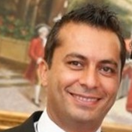
This Season's Greetings video is from the Section Editor-in-Chief of the "Sensor Materials" Section, Dr. Mikhael Bechelany, who is a professor at the University of Montpellier, France.
The "Sensor Materials" Section was established in 2018, and this Section covers all aspects related to the materials of sensors and their relevant fields. In particular, it considers sensors where the transduction of sensing is obtained by exploiting some specific property of the used materials, and/or where advanced, smart, engineered, special, tailored, or exotic materials are utilized for transduction. The Section will also include sensors and measurements systems applied to the characterization of specific material properties. The "Sensors Materials" Section will include sensors based on (without being limited to) the following classes of materials: semiconducting materials, ceramic materials, metallic materials, organic materials, piezoelectric materials, two-dimensional materials, nanomaterials, biomaterials and biologically derived materials, metal–organic frameworks, soft materials, metamaterials, and chromogenic materials.
27 December 2022
Sensors | Season’s Greetings from the Section Board Member of “Electronic Sensors” Section

This Season's Greetings video is from the Section Board Member of “Electronic Sensors” Section of Sensors (ISSN: 1424-8220), Prof. Dr. Pak Kwong Chan, from Nanyang Technological University, China.
The "Electronic Sensors" Section was established in 2019. This Section addresses the electronic components that are part of devices used to measure a physical quantity, such as temperature, humidity, pressure, light, distance, acceleration, loudness, or other physical quantities, and convert it into an electrical signal. Submitted papers should focus on the design of innovative electrical and electronic circuitry configurations for the development of sensor systems, including interfaces, chips, SoC implementations, etc. Novel approaches for smart sensors and advances in electronic transduction mechanisms, enabling enhancements in selectivity, sensitivity, signal-to-noise ratio, dynamic range, miniaturization, as well as the detection of novel measurands, fall within the scope of this Section.
26 December 2022
Sensors | Season’s Greetings from the Section Editor-in-Chief and Section Associate Editor of “Communications”

Prof. Dr. Xianbin Wang
Editor-in-Chief of the “Communications” Section

Prof. Dr. Peter Han Joo Chong
Section Associate Editor of the “Communications” Section
This Season’s Greetings video is from the Section Editor-in-Chief of the “Communications” Section, Prof. Dr. Xianbin Wang, who is the professor at Western University, and the Section Associate Editor Prof. Dr. Peter Han Joo Chong, who is from the Auckland University of Technology. The “Communications” Section of Sensors (ISSN: 1424-8220) was established in 2020 and publishes original peer-reviewed papers covering all aspects of the communications field, including, but not limited to, the design, implementation, and theoretical analysis of wireless communication, optical communication, and satellite communication systems; signal processing techniques; networking, data analytics; system operation; and emerging communication technologies.
26 December 2022
Sensors | Season’s Greetings from Prof. Dr. Yuh-Shyan Chen—Section Associate Editor of the “Sensor Networks” Section

This Season’s Greetings video is from the Section Associate Editor of the “Sensor Networks” Section in Sensors (ISSN: 1424-8220), Prof. Dr. Yuh-Shyan Chen, who is from National Taipei University.
The “Sensor Networks” Section was established in 2011. This Section covers topics, original research, and peer-reviewed articles related to the latest research and development in the field of sensor networks. It is an interdisciplinary domain that consists of wireless and wired communications, algorithms, and protocols, as well as energy sources to supply these networks. The section covers theoretical and experimental problems, especially considering the rise of the Internet of Things (IoT) applications that allow several devices to connect intelligently.
23 December 2022
Sensors | Season's Greetings from Prof. Dr. Chris Rizos—Section Editor-in-Chief of “Navigation and Positioning”

This Season's Greetings video is from the Section Editor-in-Chief of the "Navigation and Positioning" Section, Prof. Dr. Chris Rizos, who is a professor at the University of New South Wales.
The "Navigation and Positioning" Section of Sensors (ISSN: 1424-8220) was established in 2021 and publishes peer-reviewed papers covering all aspects of navigation and positioning.
Potential Topics in this Section include:
- Global navigation satellite systems (GNSS);
- Satellite-based augmentation systems (SBAS);
- Indoor localization systems (ILS);
- Geographic information systems (GIS);
- Industrial metrology and geodetic systems;
- Location-based services (LBS) and applications;
- Simultaneous localization and mapping (SLAM);
- Ultrasound positioning;
- Ultra-Wide-Band (UWB) positioning;
- Precise positioning;
- Navigation guidance;
- Inertial navigation;
- Indoor positioning, navigation, tracking methods;
- AoA-, TOF-, and TDOA-based localization;
- Signal Strength-Based Methods;
- Fingerprinting;
- Seamless positioning systems;
- Optical Positioning Systems;
- Indoor maps and 3D building models;
- Vehicle and personal location;
- Intelligent transportation;
- Path planning;
- Object tracking;
- Wireless positioning technologies;
- Navigation and visual scanning technologies;
- Applications of location awareness and context detection;
- Visual odometry;
- Pedestrian dead reckoning (PDR);
- Standards and interoperability;
- Human motion monitoring and modeling.
23 December 2022
Sensors | Season's Greetings from Dr. Felipe Jiménez—Section Board Member of “Vehicular Sensing”

This Season's Greetings video is from the Editorial Board Member Dr. Felipe Jiménez, from Universidad Politécnica de Madrid.
The "Vehicular Sensing" Section of Sensors (ISSN: 1424-8220) was established in 2021 and publishes original peer-reviewed papers and surveys covering all aspects of sensing technologies in relation to vehicles. "Vehicular Sensing" publishes studies on the collection of data by on-board sensors and their subsequent dissemination to other vehicles through vehicle-to-everything (V2X) communication. Thus, numerous applications and technologies have been, and continue to be, developed, including vehicle sensor networks (VSNs), vehicular transportation, unmanned underwater vehicles (UUVs), intelligent vehicles, vehicular communications, and traffic monitoring, etc.
23 December 2022
Sensors | Season’s Greetings from the Editor-in-Chief - Prof. Dr. Vittorio Passaro

This Season's Greetings video is from the Editor-in-Chief of Sensors, Prof. Dr. Vittorio Passaro, who is a professor of Politecnico di Bari. I send my best wishes of a happy new year to all our readers and contributors. I am sure that our journal will have a further success next year.
He is also leading the “Optical Sensors” section. This section was established in 2019 and it addresses all aspects of optical sensing, including source and detection technologies, sensing architectures, physical effects for sensing, sensor performance, sensor technology, readout techniques, lab-on-a-chip optical devices, processing approaches and applications, as well as actuation and control by light. These optical sensors and actuators include micro- and nano-optical devices, large devices, sensor arrays, integrated optical sensors, fiber-optic sensors, as well as several materials and technologies for a very large number of applications, including civil infrastructure, aerospace, biomedical, environmental monitoring, etc.
22 December 2022
Special Issue Mentor Program
We are pleased to announce the launch of a new initiative—the MDPI Special Issue Mentor Program.
This program will enable early career researchers (who must hold a Ph.D. in a related field) to experience editing a Special Issue in MDPI journals, under the mentorship of our experienced Editorial Board Members or other experienced scientists. The mentor program will provide an excellent opportunity for early career scientists to gain editorial experience, and to cultivate their ability to edit scientific research.
The mentee’s responsibilities include:
- Proposing a Special Issue title and assisting the mentor in preparing a summary (around 200–400 words) and 3–10 keywords describing the background, importance, and goal of the Issue;
- Writing a brief promotion plan for the Special Issue;
- Preparing a list of scholars who may be interested in the Issue and personally e-mailing invitations on behalf of Guest Editors;
- Writing an editorial for the online Special Issue together with the mentor.
The mentor’s responsibilities include:
- Conducting a final check before the Special Issue is published online;
- Performing editorial control of the Special Issue and quality control of the publications, both of which must be carried out in a timely manner;
- Providing suggestions to younger scholars if they have any doubts or concerns regarding submissions;
- Organizing video calls with young scholars and the Editorial Office regularly to discuss problems and improvement suggestions for the Special Issue;
- Making and submitting decisions regarding submissions with the assistance of mentees.
Certificates and awards:
After the Special Issue closes, the Editorial Office will provide official certificates for all the mentors and early career researchers.
If you are interested in this opportunity, please send your Special Issue proposal to the Editorial Office of a journal you choose, and we will discuss the process (i.e., mentor collaboration, Special Issue topic feasibility analysis, etc.) in further detail. The full list of MDPI journals is as follows: https://www.mdpi.com/about/journals.
In addition to the new Special Issue Mentor Program, we will continue to welcome all Special Issue proposals focusing on hot research topics.
14 December 2022
"Thanks a Million!" – One Million Articles Published in MDPI Journals
MDPI has just become the first open access (OA) publisher to reach the milestone of one million articles published. That is one million articles freely available to all, to circulate and build upon! We are proud to share this special moment with the global scientific community.
This landmark has been reached thanks to the immeasurable support of more than 600,000 expert reviewers, 66,000 editorial board members and 6700 hard-working colleagues across MDPI’s global offices.
Within more than 25 years of publishing, our journals received 2.1 million manuscripts and generated 4.6 million peer review reports to get to one million papers published.
Reaching the milestone of one million articles published reinforces our mission to remove any existing barriers and to make scientific research accessible to all. Since its inception, MDPI’s goal has been to create reliable processes to make science open. This is a path towards facilitating the dissemination of novel insights in scientific communities.
Regular feedback from authors and reviewers shows that our service is greatly appreciated and needed. At the same time, the feedback helps us identify areas for further improvement.
As it stands, a significant share of published research findings remain closed access. More than half of the content published with the most well-known legacy publishers stays behind a paywall, and that is not including articles published in hybrid OA journals, or made available months or years after publication.
A new policy announced by the US administration in August 2022 requires that, as of January 2026, all US federally funded research be made freely and immediately available after publication. While the new policy does not mandate articles be published under an open access license, it is aligned with the open access movement in removing all barriers to research. Similarly, some of the most advanced research institutions in the world intend to have all funded research articles published in open access by 2025.
MDPI is proud to be the leading agent of the transition to open access.
"Thanks a Million" to all the contributors!
8 December 2022
MDPI Sustainability Foundation: New Look and Nominations for the 2023 Sustainability Awards Now Open

We are pleased to announce that the website of the MDPI Sustainability Foundation has been revamped! For the past couple of months, our UX UI team and front-end developers have been working hard to launch the website in time for the opening of the Sustainability Awards nominations.
The website is not the only thing that has had a remodeling. Indeed, the format of the Emerging Sustainability Leader Award (ESLA) has been updated. ESLA is now a competition open to individual researchers or start-ups founded by researchers under the age of 35. Nominee applications will go through 2 rounds of selection until the final 3 are decided. The finalists will then be invited to give pitch presentations during the Award Ceremony to win either first place (10,000 USD) or runner-up (2 x 5000 USD).
The World Sustainability Award, on the other hand, remains the same: a total prize money of 100,000 USD is up for grabs by senior individual researchers or groups of researchers from the international research community.
Nominations for both the World Sustainability Award and the Emerging Sustainability Leader award are now open! Check out our new website for more information on how to nominate.
28 November 2022
Dr. Mikhael Bechelany Appointed Section Editor-in-Chief of the Section “Sensor Materials” in Sensors
We are pleased to announce that Dr. Mikhael Bechelany has been appointed Section Editor-in-Chief of the “Sensor Materials” Section in Sensors (ISSN: 1424-8220).

Name: Dr. Mikhael Bechelany
Email: [email protected]
Affiliation: European Institute of Membranes (IEM), University of Montpellier, 34090 Montpellier, France
Homepage: http://www.iemm.univ-montp2.fr/spip.php?article140&lang=en&lang=fr
Research Keywords: atomic layer deposition; photocatalysis; electrospinning; nanomaterials; sensors; thin films
Dr. Mikhael Bechelany is a CNRS Research Director at the European Institute of Membranes (IEM), University of Montpellier. His current research interests include novel synthesis methods for metals and ceramics nanomaterials such as Atomic Layer Deposition (ALD), electrodeposition, electrospinning, 3D printing and/or nanostructuring using natural lithography (nanospheres and/or membranes). His research efforts include the design of nanostructured membranes for health, the environment and renewable energy. He is the author and co-author of more than 300 publications, 15 book chapters and 12 patents (h-index = 57).
The following is a short Q&A with Dr. Mikhael Bechelany, who shared his vision for the journal with us, as well as his views of the research area and Open Access publishing:
1. What appealed to you about the journal that made you want to take the role as Section Editor-in-Chief?
Sensors is a leading journal in the field. The journal is very highly ranked, with a great impact factor and large visibility. The journal also benefits from the high-quality service of MDPI, a pioneer in scholarly, open access publishing. As a result, I was honored to be invited to be the Editor-in-Chief.
2. What is your vision for the Section?
The “Sensor Materials” Section is becoming highly important, tackling the key role of materials in transduction. Our Section will underscore high-impact research and manuscripts in innovative sensor applications and technology from around the world, appealing to scientists, researchers and professionals interested in designing innovative materials for sensor applications.
3. What does the future of this field of research look like?
The main key trend in the sensors field is miniaturization. In order to tackle this issue, materials design is playing a central role in sensor systems. The growing fundamental and applied research in this area will allow our Section to publish high-quality and interdisciplinary research in different classes of materials for use in sensor applications such as semiconducting materials, ceramic materials, metallic materials, organic materials, piezoelectric materials, two-dimensional materials, nanomaterials, biomaterials and biological-derived materials, metal organic frameworks, soft materials, metamaterials and chromogenic materials.
4. What do you think of the development of Open Access in the publishing field?
The development of Open Access in the publishing field has been very important for the scientific community, as it allows research findings to be shared as rapidly, openly and effectively as possible. Open Access will allow the excellent works published by our Section to be freely available to researchers all over the world. This will increase the potential for more people to see and download our Section publications, accelerating and amplifying the impact of the published works.
We wish Dr. Mikhael Bechelany every success in his new position, and we look forward to his contributions to the journal.
28 November 2022
Sensors | Top 10 Cited Papers in 2020 in the Section “Wearables”
1. “In-Ear SpO2: A Tool for Wearable, Unobtrusive Monitoring of Core Blood Oxygen Saturation”
by Harry J. Davies, Ian Williams, Nicholas S. Peters and Danilo P. Mandic
Sensors 2020, 20(17), 4879; https://doi.org/10.3390/s20174879
Available online: https://www.mdpi.com/1424-8220/20/17/4879
2. “Iterative Learning Control for a Soft Exoskeleton with Hip and Knee Joint Assistance”
by Chunjie Chen, Yu Zhang, Yanjie Li, Zhuo Wang, Yida Liu, Wujing Cao and Xinyu Wu
Sensors 2020, 20(15), 4333; https://doi.org/10.3390/s20154333
Available online: https://www.mdpi.com/1424-8220/20/15/4333
3. “The Potential Role of Sensors, Wearables and Telehealth in the Remote Management of Diabetes-Related Foot Disease”
by Jonathan Golledge, Malindu Fernando, Peter Lazzarini, Bijan Najafi and David G. Armstrong
Sensors 2020, 20(16), 4527; https://doi.org/10.3390/s20164527
Available online: https://www.mdpi.com/1424-8220/20/16/4527
4. “Feasibility of a Wearable Reflectometric System for Sensing Skin Hydration”
by Raissa Schiavoni, Giuseppina Monti, Emanuele Piuzzi, Luciano Tarricone, Annarita Tedesco, Egidio De Benedetto and Andrea Cataldo
Sensors 2020, 20(10), 2833; https://doi.org/10.3390/s20102833
Available online: https://www.mdpi.com/1424-8220/20/10/2833
5. “Wearable Flexible Strain Sensor Based on Three-Dimensional Wavy Laser-Induced Graphene and Silicone Rubber”
by Lixiong Huang, Han Wang, Peixuan Wu, Weimin Huang, Wei Gao, .Feiyu Fang, Nian Cai, Rouxi Chen and Ziming Zhu
Sensors 2020, 20(15), 4266; https://doi.org/10.3390/s20154266
Available online: https://www.mdpi.com/1424-8220/20/15/4266
6. “Wearable Inertial Sensors for Gait Analysis in Adults with Osteoarthritis—A Scoping Review”
by Dylan Kobsar, Zaryan Masood, Heba Khan, Noha Khalil, Marium Yossri Kiwan, Sarah Ridd and Matthew Tobis
Sensors 2020, 20(24), 7143; https://doi.org/10.3390/s20247143
Available online: https://www.mdpi.com/1424-8220/20/24/7143
7. “Foot Pressure Wearable Sensors for Freezing of Gait Detection in Parkinson’s Disease”
by Andrea Marcante, Roberto Di Marco, Giovanni Gentile, Clelia Pellicano, Francesca Assogna, Francesco Ernesto Pontieri, Gianfranco Spalletta, Lucia Macchiusi, Dimitris Gatsios, Alexandros Giannakis et al.
Sensors 2021, 21(1), 128; https://doi.org/10.3390/s21010128
Available online: https://www.mdpi.com/1424-8220/21/1/128
8. “Compact and Low-Profile UWB Antenna Based on Graphene-Assembled Films for Wearable Applications”
by Ran Fang, Rongguo Song, Xin Zhao, Zhe Wang, Wei Qian and Daping He
Sensors 2020, 20(9), 2552; https://doi.org/10.3390/s20092552
Available online: https://www.mdpi.com/1424-8220/20/9/2552
9. “Toward Using Wearables to Remotely Monitor Cognitive Frailty in Community-Living Older Adults: An Observational Study”
by Javad Razjouyan, Bijan Najafi, Molly Horstman, Amir Sharafkhaneh, Mona Amirmazaheri, He Zhou, Mark E. Kunik and Aanand Naik
Sensors 2020, 20(8), 2218; https://doi.org/10.3390/s20082218
Available online: https://www.mdpi.com/1424-8220/20/8/2218
10. “Wearable Design Requirements Identification and Evaluation”
by Leire Francés-Morcillo, Paz Morer-Camo, María Isabel Rodríguez-Ferradas and Aitor Cazón-Martín
Sensors 2020, 20(9), 2599; https://doi.org/10.3390/s20092599
Available online: https://www.mdpi.com/1424-8220/20/9/2599
28 November 2022
Sensors | Top 10 Cited Papers in 2020 in the Section “Biomedical Sensors”
1. “Human Emotion Recognition: Review of Sensors and Methods”
by Andrius Dzedzickis, Artūras Kaklauskas and Vytautas Bucinskas
Sensors 2020, 20(3), 592, https://doi.org/10.3390/s20030592
Available online: https://www.mdpi.com/1424-8220/20/3/592
2. “3D Deep Learning on Medical Images: A Review”
by Satya P. Singh, Lipo Wang, Sukrit Gupta, Haveesh Goli, Parasuraman Padmanabhan and Balázs Gulyás
Sensors 2020, 20(18), 5097, https://doi.org/10.3390/s20185097
Available online: https://www.mdpi.com/1424-8220/20/18/5097
3. “Wireless Power Transfer Techniques for Implantable Medical Devices: A Review”
by Sadeque Reza Khan, Sumanth Kumar Pavuluri, Gerard Cummins and Marc P. Y. Desmulliez
Sensors 2020, 20(12), 3487, https://doi.org/10.3390/s20123487
Available online: https://www.mdpi.com/1424-8220/20/12/3487
4. “The Importance of Respiratory Rate Monitoring: From Healthcare to Sport and Exercise”
by Andrea Nicolò, Carlo Massaroni, Emiliano Schena and Massimo Sacchetti
Sensors 2020, 20(21), 6396, https://doi.org/10.3390/s20216396
Available online: https://www.mdpi.com/1424-8220/20/21/6396
5. “ECG Monitoring Systems: Review, Architecture, Processes, and Key Challenges”
by Mohamed Adel Serhani, Hadeel T. El Kassabi, Heba Ismail and Alramzana Nujum Navaz
Sensors 2020, 20(6), 1796, https://doi.org/10.3390/s20061796
Available online: https://www.mdpi.com/1424-8220/20/6/1796
6. “Estimating Blood Pressure from the Photoplethysmogram Signal and Demographic Features Using Machine Learning Techniques”
by Moajjem Hossain Chowdhury, Md Nazmul Islam Shuzan, Muhammad E.H. Chowdhury, Zaid B. Mahbub, M. Monir Uddin, Amith Khandakar and Mamun Bin Ibne Reaz
Sensors 2020, 20(11), 3127, https://doi.org/10.3390/s20113127
Available online: https://www.mdpi.com/1424-8220/20/11/3127
7. “Detecting Pneumonia Using Convolutions and Dynamic Capsule Routing for Chest X-ray Images”
by Ansh Mittal, Deepika Kumar, Mamta Mittal, Tanzila Saba, Ibrahim Abunadi, Amjad Rehman and Sudipta Roy
Sensors 2020, 20(4), 1068, https://doi.org/10.3390/s20041068
Available online: https://www.mdpi.com/1424-8220/20/4/1068
8. “End-To-End Deep Learning Architecture for Continuous Blood Pressure Estimation Using Attention Mechanism”
by Heesang Eom, Dongseok Lee, Seungwoo Han, Yuli Sun Hariyani, Yonggyu Lim, Illsoo Sohn, Kwangsuk Park and Cheolsoo Park
Sensors 2020, 20(8), 2338, https://doi.org/10.3390/s20082338
Available online: https://www.mdpi.com/1424-8220/20/8/2338
9. “Contactless Vital Signs Measurement System Using RGB-Thermal Image Sensors and Its Clinical Screening Test on Patients with Seasonal Influenza”
by Toshiaki Negishi, Shigeto Abe, Takemi Matsui, He Liu, Masaki Kurosawa, Tetsuo Kirimoto and Guanghao Sun
Sensors 2020, 20(8), 2171, https://doi.org/10.3390/s20082171
Available online: https://www.mdpi.com/1424-8220/20/8/2171
10. “Applications of Nanotechnology in Sensor-Based Detection of Foodborne Pathogens”
by Harsh Kumar, Kamil Kuča, Shashi Kant Bhatia, Kritika Saini, Ankur Kaushal, Rachna Verma Tek Chand Bhalla and Dinesh Kumar
Sensors 2020, 20(7), 1966, https://doi.org/10.3390/s20071966
Available online: https://www.mdpi.com/1424-8220/20/7/1966
28 November 2022
Sensors | Top 10 Cited Papers in 2020 in the Section “Nanosensors”
1. "Graphitic Carbon Nitride: A Highly Electroactive Nanomaterial for Environmental and Clinical Sensing"
by Azeez O. Idris, Ekemena O. Oseghe, Titus A. M. Msagati, Alex T. Kuvarega, Usisipho Feleni and Bhekie Mamba
Sensors 2020, 20(20), 5743; https://doi.org/10.3390/s20205743
Available online: https://www.mdpi.com/1424-8220/20/20/5743
2. "Insulator Based Dielectrophoresis: Micro, Nano and Molecular Scale Biological Applications"
by Prateek Benhal, David Quashie, Yoontae Kim and Jamel Ali
Sensors 2020, 20(18), 5095; https://doi.org/10.3390/s20185095
Available online: https://www.mdpi.com/1424-8220/20/18/5095
3. "Development of Nanoporous AAO Membrane for Nano Filtration Using the Acoustophoresis Method"
by Yatinkumar Patel, Giedrius Janusas, Arvydas Palevicius and Andrius Vilkauskas
Sensors 2020, 20(14), 3833; https://doi.org/10.3390/s20143833
Available online: https://www.mdpi.com/1424-8220/20/14/3833
4. "A Comprehensive Review of Integrated Hall Effects in Macro-, Micro-, Nanoscales and Quantum Devices"
by Avi Karsenty
Sensors 2020, 20(15), 4163; https://doi.org/10.3390/s20154163
Available online: https://www.mdpi.com/1424-8220/20/15/4163
5. “Graphene and Perovskite-Based Nanocomposite for Both Electrochemical and Gas Sensor Applications: An Overview"
by Tse-Wei Chen, Rasu Ramachandran, Shen-Ming Chen, Ganesan Anushya and Kumarasamy Ramachandran
Sensors 2020, 20(23), 6755; https://doi.org/10.3390/s20236755
Available online: https://www.mdpi.com/1424-8220/20/23/6755
6. "Geometric Nonlinear Model for Prediction of Frequency–Temperature Behavior of SAW Devices for Nanosensor Applications"
by Zhenglin Chen, Qiaozhen Zhang, Congcong Li, Sulei Fu, Xiaojun Qiu, Xiaoyu Wang and Haodong Wu
Sensors 2020, 20(15), 4237; https://doi.org/10.3390/s20154237
Available online: https://www.mdpi.com/1424-8220/20/15/4237
7. "Non-Enzymatic Glucose Sensing Based on Incorporation of Carbon Nanotube into Zn-Co-S Ball-in-Ball Hollow Sphere"
by Han-Wei Chang, Chia-Wei Su, Jia-Hao Tian and Yu-Chen Tsai
Sensors 2020, 20(15), 4340; https://doi.org/10.3390/s20154340
Available online: https://www.mdpi.com/1424-8220/20/15/4340
8. "Fluorometric Detection of Thiamine Based on Hemoglobin–Cu3(PO4)2 Nanoflowers (NFs) with Peroxidase Mimetic Activity"
by Hangjin Zou, Yang Zhang, Chuhan Zhang, Rongtian Sheng, Xinming Zhang and Yanfei Qi
Sensors 2020, 20(21), 6359; https://doi.org/10.3390/s20216359
Available online: https://www.mdpi.com/1424-8220/20/21/6359
9. "Features of Sizing and Enumeration of Silica and Polystyrene Nanoparticles by Nanoparticle Tracking Analysis (NTA)"
by Zohair Usfoor, Katharina Kaufmann, Al Shahriar Hossain Rakib, Roland Hergenröder and Victoria Shpacovitch
Sensors 2020, 20(22), 6611; https://doi.org/10.3390/s20226611
Available online: https://www.mdpi.com/1424-8220/20/22/6611
10. "Piezoelectric Current Generator Based on Bismuth Ferrite Nanoparticles"
by Farid Orudzhev, Shikhgasan Ramazanov, Dinara Sobola, Nariman Alikhanov, Vladimír Holcman, Lubomír Škvarenina, Pavel Kaspar and Gamzat Gadjilov
Sensors 2020, 20(23), 6736; https://doi.org/10.3390/s20236736
Available online: https://www.mdpi.com/1424-8220/20/23/6736
25 November 2022
Sensors | Top 10 Cited Papers in 2020 in the Section “Sensing and Imaging”
1. “Identifying Facemask-Wearing Condition Using Image Super-Resolution with Classification Network to Prevent COVID-19”
by Bosheng Qin and Dongxiao Li
Sensors 2020, 20(18), 5236; https://doi.org/10.3390/s20185236
Available online: https://www.mdpi.com/1424-8220/20/18/5236
2. “Helping the Blind to Get through COVID-19: Social Distancing Assistant Using Real-Time Semantic Segmentation on RGB-D Video”
by Manuel Martinez, Kailun Yang, Angela Constantinescu and Rainer Stiefelhagen
Sensors 2020, 20(18), 5202; https://doi.org/10.3390/s20185202
Available online: https://www.mdpi.com/1424-8220/20/18/5202
3. “Robust Building Extraction for High Spatial Resolution Remote Sensing Images with Self-Attention Network”
by Dengji Zhou, Guizhou Wang, Guojin He, Tengfei Long, Ranyu Yin, Zhaoming Zhang, Sibao Chen and Bin Luo
Sensors 2020, 20(24), 7241; https://doi.org/10.3390/s20247241
Available online: https://www.mdpi.com/1424-8220/20/24/7241
4. “Review of Microfluidic Devices and Imaging Techniques for Fluid Flow Study in Porous Geomaterials”
by Amir Jahanbakhsh, Krystian L. Wlodarczyk, Duncan P. Hand, Robert R. J. Maier and M. Mercedes Maroto-Valer
Sensors 2020, 20(14), 4030; https://doi.org/10.3390/s20144030
Available online: https://www.mdpi.com/1424-8220/20/14/4030
5. “Research Progress of Automated Visual Surface Defect Detection for Industrial Metal Planar Materials”
by Xiaoxin Fang, Qiwu Luo, Bingxing Zhou, Congcong Li and Lu Tian
Sensors 2020, 20(18), 5136; https://doi.org/10.3390/s20185136
Available online: https://www.mdpi.com/1424-8220/20/18/5136
6. “The Use of Low-Cost Unmanned Aerial Vehicles in the Process of Building Models for Cultural Tourism, 3D Web and Augmented/Mixed Reality Applications”
by Tomasz Templin and Dariusz Popielarczyk
Sensors 2020, 20(19), 5457; https://doi.org/10.3390/s20195457
Available online: https://www.mdpi.com/1424-8220/20/19/5457
7. “Hyperspectral Shortwave Infrared Image Analysis for Detection of Adulterants in Almond Powder with One-Class Classification Method”
by Mohammad Akbar Faqeerzada, Santosh Lohumi, Geonwoo Kim, Rahul Joshi, Hoonsoo Lee, Moon Sung Kim and Byoung-Kwan Cho
Sensors 2020, 20(20), 5855; https://doi.org/10.3390/s20205855
Available online: https://www.mdpi.com/1424-8220/20/20/5855
8. “Hyperspectral Imaging for Glioblastoma Surgery: Improving Tumor Identification Using a Deep Spectral-Spatial Approach”
by Francesca Manni, Fons van der Sommen, Himar Fabelo, Svitlana Zinger, Caifeng Shan, Erik Edström, Adrian Elmi-Terander, Samuel Ortega, Gustavo Marrero Callicó and Peter H. N. de With
Sensors 2020, 20(23), 6955; https://doi.org/10.3390/s20236955
Available online: https://www.mdpi.com/1424-8220/20/23/6955
9. “Identification of Apple Varieties Using a Multichannel Hyperspectral Imaging System”
by Yuping Huang, Yutu Yang, Ye Sun, Haiyan Zhou and Kunjie Chen
Sensors 2020, 20(18), 5120; https://doi.org/10.3390/s20185120
Available online: https://www.mdpi.com/1424-8220/20/18/5120
10. “Robust RGB-D SLAM Using Point and Line Features for Low Textured Scene”
by Yajing Zou, Amr Eldemiry, Yaxin Li and Wu Chen
Sensors 2020, 20(17), 4984; https://doi.org/10.3390/s20174984
Available online: https://www.mdpi.com/1424-8220/20/17/4984
25 November 2022
Sensors | Top 10 Cited Papers in 2020 in the Section “Intelligent Sensors”
1. “Advanced UAV–WSN System for Intelligent Monitoring in Precision Agriculture”
by Dan Popescu, Florin Stoican, Grigore Stamatescu, Loretta Ichim and Cristian Dragana
Sensors 2020, 20(3), 817; https://doi.org/10.3390/s20030817
Available online: https://www.mdpi.com/1424-8220/20/3/817
2. “Deep Learning Sensor Fusion for Autonomous Vehicle Perception and Localization: A Review”
by Jamil Fayyad, Mohammad A. Jaradat, Dominique Gruyer and Homayoun Najjaran
Sensors 2020, 20(15), 4220; https://doi.org/10.3390/s20154220
Available online: https://www.mdpi.com/1424-8220/20/15/4220
3. “IoT Wearable Sensors and Devices in Elderly Care: A Literature Review”
by Thanos G. Stavropoulos, Asterios Papastergiou, Lampros Mpaltadoros, Spiros Nikolopoulos and Ioannis Kompatsiaris
Sensors 2020, 20(10), 2826; https://doi.org/10.3390/s20102826
Available online: https://www.mdpi.com/1424-8220/20/10/2826
4. “Investigating the Use of Pretrained Convolutional Neural Network on Cross-Subject and Cross-Dataset EEG Emotion Recognition”
by Yucel Cimtay and Erhan Ekmekcioglu
Sensors 2020, 20(7), 2034; https://doi.org/10.3390/s20072034
Available online: https://www.mdpi.com/1424-8220/20/7/2034
5. “LoRaFarM: A LoRaWAN-Based Smart Farming Modular IoT Architecture”
by Gaia Codeluppi, Antonio Cilfone, Luca Davoli and Gianluigi Ferrari
Sensors 2020, 20(7), 2028; https://doi.org/10.3390/s20072028
Available online: https://www.mdpi.com/1424-8220/20/7/2028
6. “Hand Gesture Recognition Using Compact CNN via Surface Electromyography Signals”
by Lin Chen, Jianting Fu, Yuheng Wu, Haochen Li and Bin Zheng
Sensors 2020, 20(3), 672; https://doi.org/10.3390/s20030672
Available online: https://www.mdpi.com/1424-8220/20/3/672
7. “An Intelligent Non-Invasive Real-Time Human Activity Recognition System for Next-Generation Healthcare”
by William Taylor, Syed Aziz Shah, Kia Dashtipour, Adnan Zahid, Qammer H. Abbasi and Muhammad Ali Imran
Sensors 2020, 20(9), 2653; https://doi.org/10.3390/s20092653
Available online: https://www.mdpi.com/1424-8220/20/9/2653
8. “UAV and Machine Learning Based Refinement of a Satellite-Driven Vegetation Index for Precision Agriculture”
by Vittorio Mazzia, Lorenzo Comba, Aleem Khaliq, Marcello Chiaberge, and Paolo Gay
Sensors 2020, 20(9), 2530; https://doi.org/10.3390/s20092530
Available online: https://www.mdpi.com/1424-8220/20/9/2530
9. “Technologies Trend towards 5G Network for Smart Health-Care Using IoT: A Review”
by Abdul Ahad, Mohammad Tahir, Muhammad Aman Sheikh, Kazi Istiaque Ahmed, Amna Mughees and Abdullah Numani
Sensors 2020, 20(14), 4047; https://doi.org/10.3390/s20144047
Available online: https://www.mdpi.com/1424-8220/20/14/4047
10. “EEG-Based BCI Emotion Recognition: A Survey”
by Edgar P. Torres, Edgar A. Torres, Myriam Hernández-Álvarez and Sang Guun Yoo
Sensors 2020, 20(5), 1271; https://doi.org/10.3390/s20051271
Available online: https://www.mdpi.com/1424-8220/20/18/5083
25 November 2022
Editorial Board Members from Sensors Featured in 2022 Highly Cited Researchers List Published by Clarivate
Recently, ClarivateTM revealed its 2022 list of Highly Cited ResearchersTM—individuals at universities, research institutes and commercial organizations.
The scientists who were selected into this year’s list of Highly Cited Researchers have published highly cited papers in the 11-year period from January 2011 to December 2021, with citation frequency in the top 1% of academic subjects and the same year of publication in the Web of ScienceTM database. Based on Web of Science Citation data, 6,938 researchers from across the globe who have demonstrated a disproportionate level of significant and broad influence in their chosen field or fields over the last decade have been awarded Highly Cited Researcher 2022 designations. The list is truly global, spanning 69 countries or regions and spread across a diverse range of research sciences and social sciences.
According to statistics, 15 members of the Editorial Board of Sensors (ISSN: 1424-8220) have been selected into the list of Highly Cited Researchers of Clarivate in 2022. They are being recognized for their high-quality scientific research achievements and outstanding contributions to professional fields. Sensors journal office sincerely congratulates all elected Editorial Board Members and hopes that they continue to have an academically productive relationship with the journal.
| Name | Affiliation |
| Prof. Dr. Chengzhou Zhu | College of Chemistry, Central China Normal University, Wuhan 430079, China |
| Prof. Dr. Giancarlo Fortino | Computer Engineering, DIMES-Department of Informatics, Modeling, Electronics, and Systems, University of Calabria, 87036 Rende, Italy |
| Prof. Dr. Hongyi Li | School of Automation and Guangdong Province Key Laboratory of Intelligent Decision and Cooperative Control, Guangdong University of Technology, Guangzhou 510006, China |
| Prof. Dr. Roozbeh Ghaffari | Department of Biomedical Engineering, Northwestern University, 303 E. Superior Street 11-518, Chicago, IL 60611, USA |
| Prof. Dr. Pooi See Lee | School of Materials Science and Engineering, Nanyang Technological University, Singapore 639798, Singapore |
| Prof. Dr. Cheng-Te Lin | Ningbo Institute of Material Technology & Engineering, Chinese Academy of Sciences, Ningbo 315201, China |
| Prof. Dr. Nanshu Lu | Department of Aerospace Engineering and Engineering Mechanics, Department of Biomedical Engineering, Texas Materials Institute, University of Texas at Austin,Austin, TX, USA |
| Prof. Dr. Gunasekaran Manogaran | Big Data Scientist, John Muir Institute of the Environment (JMIE), University of California, Davis, CA 95616, USA |
| Prof. Dr. Aydogan Ozcan | Electrical and Computer Engineering and Bioengineering, Bioengineering Department, California NanoSystems Institute (CNSI), Department of Surgery, University of California, Los Angeles, CA, USA |
| Prof. Dr. Witold Pedrycz | Department of Electrical and Computer Engineering, University of Alberta, Edmonton, Alberta, Canada |
| Prof. Dr. Qiangqiang Yuan | School of Geodesy and Geomatics, Wuhan University, Wuhan 430079, China |
| Prof. Dr. Yu-Dong Zhang | Informatics Building, School of Informatics, University of Leicester, University Road, Leicester LE1 7RH, UK |
| Prof. Dr. Zhijun Li | Institute of Advanced Technology/School of Information Science and Technology, University of Science and Technology of China, Hefei 230022, China |
| Prof. Dr. Hao Shen | School of Electrical and Information Engineering, Anhui University of Technology, Ma'anshan 243032, China |
| Prof. Dr. Qingshen Jing | Department of Materials Science & Metallurgy, University of Cambridge, Cambridge, UK |
24 November 2022
Sensors | Top 10 Cited Papers in 2020 in the Section “Sensors and Robotics”
1. “Real-Time Fruit Recognition and Grasping Estimation for Robotic Apple Harvesting”
by Hanwen Kang, Hongyu Zhou, Xing Wang and Chao Chen
Sensors 2020, 20(19), 5670; https://doi.org/10.3390/s20195670
Avalable online: https://www.mdpi.com/1424-8220/20/19/5670
2. “Path Planning for Multi-Arm Manipulators Using Deep Reinforcement Learning: Soft Actor–Critic with Hindsight Experience Replay”
by Evan Prianto, Myeong Seop Kim, Jae-Han Park, Ji-Hun Bae and Jung-Su Kim
Sensors 2020, 20(20), 5911; https://doi.org/10.3390/s20205911
Avalable online: https://www.mdpi.com/1424-8220/20/20/5911
3. “Feature Sensing and Robotic Grasping of Objects with Uncertain Information: A Review”
by Chao Wang, Xuehe Zhang,Yubin Liu, Guanwen Ding, Wenxin Yin and Jie Zhao
Sensors 2020, 20(13), 3707; https://doi.org/10.3390/s20133707
Avalable online: https://www.mdpi.com/1424-8220/20/13/3707
4. “Applying a 6 DoF Robotic Arm and Digital Twin to Automate Fan-Blade Reconditioning for Aerospace Maintenance, Repair, and Overhaul”
by John Oyekan, Michael Farnsworth, Windo Hutabarat, David Miller and Ashutosh Tiwari
Sensors 2020, 20(16), 4637; https://doi.org/10.3390/s20164637
Avalable online: https://www.mdpi.com/1424-8220/20/16/4637
5. “Path Planning of Mobile Robots Based on a Multi-Population Migration Genetic Algorithm”
by Kun Hao, Jiale Zhao, Kaicheng Yu, Cheng Li and Chuanqi Wang
Sensors 2020, 20(20), 5873; https://doi.org/10.3390/s20205873
Avalable online: https://www.mdpi.com/1424-8220/20/20/5873
6. “A Mixed-Perception Approach for Safe Human–Robot Collaboration in Industrial Automation”
by Fatemeh Mohammadi Amin, Maryam Rezayati, Hans Wernher van de Venn and Hossein Karimpour
Sensors 2020, 20(21), 6347; https://doi.org/10.3390/s20216347
Avalable online: https://www.mdpi.com/1424-8220/20/21/6347
7. “Designing a Cyber-Physical System for Ambient Assisted Living: A Use-Case Analysis for Social Robot Navigation in Caregiving Centers”
by Luis V. Calderita, Araceli Vega, Sergio Barroso-Ramírez, Pablo Bustos and Pedro Núñez
Sensor 2020, 20(14), 4005; https://doi.org/10.3390/s20144005
Available online: https://www.mdpi.com/1424-8220/20/14/4005
8. “Absolute Positioning Accuracy Improvement in an Industrial Robot”
by Yizhou Jiang, Liandong Yu, Huakun Jia, Huining Zhao and Haojie Xia
Sensors 2020, 20(16), 4354; https://doi.org/10.3390/s20164354
Available online: https://www.mdpi.com/1424-8220/20/16/4354
9. “Distributed Non-Communicating Multi-Robot Collision Avoidance via Map-Based Deep Reinforcement Learning”
by Guangda Chen, Shunyi Yao, Jun Ma, Lifan Pan, Yu’an Chen, Pei Xu, Jianmin Ji and Xiaoping Chen
Sensors 2020, 20(17), 4836; https://doi.org/10.3390/s20174836
Available online: https://www.mdpi.com/1424-8220/20/17/4836
10. “Robotic Localization Based on Planar Cable Robot and Hall Sensor Array Applied to Magnetic Capsule Endoscope”
by Min-Cheol Kim, Eui-Sun Kim, Jong-Oh Park, Eunpyo Choi and Chang-Sei Kim
Sensors 2020, 20(20), 5728; https://doi.org/10.3390/s20205728
Available online: https://www.mdpi.com/1424-8220/20/20/5728
24 November 2022
Sensors | Top 10 Cited Papers in 2020 in the Section “Electronic Sensors”
1. “A Review of Visual-LiDAR Fusion based Simultaneous Localization and Mapping”
by César Debeunne and Damien Vivet
Sensors 2020, 20(7), 2068; https://doi.org/10.3390/s20072068
Available online: https://www.mdpi.com/1424-8220/20/7/2068
2. “Machine Learning on Mainstream Microcontrollers”
by Fouad Sakr, Francesco Bellotti, Riccardo Berta and Alessandro De Gloria
Sensors 2020, 20(9), 2638; https://doi.org/10.3390/s20092638
Available online: https://www.mdpi.com/1424-8220/20/9/2638
3. “Historical Evolution and Food Control Achievements of Near Infrared Spectroscopy, Electronic Nose, and Electronic Tongue—Critical Overview”
by Balkis Aouadi, John-Lewis Zinia Zaukuu, Flora Vitális, Zsanett Bodor, Orsolya Fehér, Zoltan Gillay, George Bazar and Zoltan Kovacs
Sensors 2020, 20(19), 5479; https://doi.org/10.3390/s20195479
Available online: https://www.mdpi.com/1424-8220/20/19/5479
4. “Rapid and Non-Destructive Detection of Compression Damage of Yellow Peach Using an Electronic Nose and Chemometrics”
by Xiangzheng Yang, Jiahui Chen, Lianwen Jia, Wangqing Yu, Da Wang, Wenwen Wei, Shaojia Li, Shiyi Tian and Di Wu
Sensors 2020, 20(7), 1866; https://doi.org/10.3390/s20071866
Available online: https://www.mdpi.com/1424-8220/20/7/1866
5. “Innovation Strategy Selection Facilitates High-Performance Flexible Piezoelectric Sensors”
by Shengshun Duan, Jun Wu, Jun Xia and Wei Lei
Sensors 2020, 20(10), 2820; https://doi.org/10.3390/s20102820
Available online: https://www.mdpi.com/1424-8220/20/10/2820
6. “YOLO-Based Simultaneous Target Detection and Classification in Automotive FMCW Radar Systems”
by Woosuk Kim, Hyunwoong Cho, Jongseok Kim, Byungkwan Kim and Seongwook Lee
Sensors 2020, 20(10), 2897; https://doi.org/10.3390/s20102897
Available online: https://www.mdpi.com/1424-8220/20/10/2897
7. “Development and Application of Resistance Strain Force Sensors”
by Yinming Zhao, Yang Liu, Yongqian Li and Qun Hao
Sensors 2020, 20(20), 5826; https://doi.org/10.3390/s20205826
Available online: https://www.mdpi.com/1424-8220/20/20/5826
8. “Miniaturized 0.13-μm CMOS Front-End Analog for AlN PMUT Arrays”
by Iván Zamora, Eyglis Ledesma, Arantxa Uranga and Núria Barniol
Sensors 2020, 20(4), 1205; https://doi.org/10.3390/s20041205
Available online: https://www.mdpi.com/1424-8220/20/4/1205
9. “Milk Source Identification and Milk Quality Estimation Using an Electronic Nose and Machine Learning Techniques”
by Fanglin Mu, Yu Gu, Jie Zhang and Lei Zhang
Sensors 2020, 20(15), 4238; https://doi.org/10.3390/s20154238
Available online: https://www.mdpi.com/1424-8220/20/15/4238
10. “Development of Soft sEMG Sensing Structures Using 3D-Printing Technologies”
by Gerjan Wolterink, Pedro Dias, Remco G. P. Sanders, Frodo Muijzer, Bert-Jan van Beijnum, Peter Veltink and Gijs Krijnen
Sensors 2020, 20(15), 4292; https://doi.org/10.3390/s20154292
Available online: https://www.mdpi.com/1424-8220/20/15/4292
15 November 2022
Sensors | Top 10 Cited Papers in 2020 in the Section “Sensor Networks”
1. “A Review of IoT Sensing Applications and Challenges Using RFID and Wireless Sensor Networks”
by Hugo Landaluce, Laura Arjona, Asier Perallos, Francisco Falcone, Ignacio Angulo, lorian Muralter and Florian Muralter
Sensors 2020, 20(9), 2495; https://doi.org/10.3390/s20092495
Available online: https://www.mdpi.com/1424-8220/20/9/2495
2. ‘’ A Systematic Review of IoT Solutions for Smart Farming”
by António Pereira, Emerson Navarro and Nuno Costa
Sensors 2020, 20(15), 4231; https://doi.org/10.3390/s20154231
Available online: https://www.mdpi.com/1424-8220/20/15/4231
3. “Federated Learning in Smart City Sensing: Challenges and Opportunities”
by Chu Jiang, Burak Kantarci, Sema Oktug and Tolga Soyata
Sensors 2020, 20(21), 6230; https://doi.org/10.3390/s20216230
Available online: https://www.mdpi.com/1424-8220/20/21/6230
4. “Blockchain-based Reputation for Intelligent Transportation Systems”
by Liviu-Adrian Hîrţan, Ciprian Dobre and Horacio González-Vélez
Sensors 2020, 20(3), 791; https://doi.org/10.3390/s20030791
Available online: https://www.mdpi.com/1424-8220/20/3/791
5. “Towards a Secure Thermal-Energy Aware Routing Protocol in Wireless Body Area Network Based on Blockchain Technology”
by Zeinab Shahbazi and Yung-Cheol Byun
Sensors 2020, 20(12), 3604; https://doi.org/10.3390/s20123604
Available online: https://www.mdpi.com/1424-8220/20/12/3604
6. “A Survey of Context-Aware Access Control Mechanisms for Cloud and Fog Networks: Taxonomy and Open Research Issues”
by A. S. M. Kayes, Rudri Kalaria, Iqbal H. Sarker, Md. Saiful Islam, Paul A. Watters, Alex Ng, Mohammad Hammoudeh, Shahriar Badsha and Indika Kumara
Sensors 2020, 20(9), 2464; https://doi.org/10.3390/s20092464
Available online: https://www.mdpi.com/1424-8220/20/9/2464
7. “Detection and Classification of Multirotor Drones in Radar Sensor Networks: A Review”
by Angelo Coluccia, Gianluca Parisi and Alessio Fascista
Sensors 2020, 20(15), 4172; https://doi.org/10.3390/s20154172
Available online: https://www.mdpi.com/1424-8220/20/15/4172
8. “Enhancing the Sensor Node Localization Algorithm Based on Improved DV-Hop and DE Algorithms in Wireless Sensor Networks”
by Dezhi Han, Yunping Yu, Kuan-Ching Li and Rodrigo Fernandes de Mello
Sensors 2020, 20(2), 343; https://doi.org/10.3390/s20020343
Available online: https://www.mdpi.com/1424-8220/20/2/343
9. “A Hybrid Energy Harvesting Design for On-Body Internet-of-Things (IoT) Networks”
by Omar A. Saraereh, Amer Alsaraira, Imran Khan and Bong Jun Choi
Sensors 2020, 20(12), 3458; https://doi.org/10.3390/s20020407
Available online: https://www.mdpi.com/1424-8220/20/2/407
10. “Comparison of 2.4 GHz WiFi FTM- and RSSI-Based Indoor Positioning Methods in Realistic Scenarios”
by Markus Bullmann, Toni Fetzer, Frank Ebner, Markus Ebner, Frank Deinzer and Marcin Grzegorzek
Sensors 2020, 20(16), 4515; https://doi.org/10.3390/s20164515
Available online: https://www.mdpi.com/1424-8220/20/16/4515
15 November 2022
Sensors | Top 10 Cited Papers in 2020 in the Section “Physical Sensors”
1. “Microwave Differential Frequency Splitting Sensor Using Magnetic-LC Resonators”
by Amir Ebrahimi, Grzegorz Beziuk, James Scott and Kamran Ghorbani
Sensors 2020, 20(4), 1066; https://doi.org/10.3390/s20041066
Available online: https://www.mdpi.com/1424-8220/20/4/1066
2. “Deep Learning Approaches for Detecting Freezing of Gait in Parkinson’s Disease Patients through On-Body Acceleration Sensors”
by Luis Sigcha, Nélson Costa, Ignacio Pavón, Susana Costa, Pedro Arezes, Juan Manuel López and Guillermo De Arcas
Sensors 2020, 20(7), 1895; https://doi.org/10.3390/s20071895
Available online: https://www.mdpi.com/1424-8220/20/7/1895
3. “Photoacoustic-Based Gas Sensing: A Review”
by Stefan Palzer
Sensors 2020, 20(9), 2745; https://doi.org/10.3390/s20092745
Available online: https://www.mdpi.com/1424-8220/20/9/2745
4. “Chipless RFID Sensors for the Internet of Things: Challenges and Opportunities”
by Viviana Mulloni and Massimo Donelli
Sensors 2020, 20(7), 2135; https://doi.org/10.3390/s20072135
Available online: https://www.mdpi.com/1424-8220/20/7/2135
5. “A Review of Thin-Film Magnetoelastic Materials for Magnetoelectric Applications”
by Xianfeng Liang, Cunzheng Dong, Huaihao Chen, Jiawei Wang, Yuyi Wei, Mohsen Zaeimbashi, Yifan He, Alexei Matyushov, Changxing Sun and Nianxiang Sun
Sensors 2020, 20(5), 1532; https://doi.org/10.3390/s20051532
Available online: https://www.mdpi.com/1424-8220/20/5/1532
6. “Insights in the Application of Stoichiometric and Non-Stoichiometric Titanium Oxides for the Design of Sensors for the Determination of Gases and VOCs (TiO2−x and TinO2n−1 vs. TiO2)”
by Simonas Ramanavicius and Arunas Ramanavicius
Sensors 2020, 20(23), 6833; https://doi.org/10.3390/s20236833
Available online: https://www.mdpi.com/1424-8220/20/23/6833
7. “A Prototype Microwave System for 3D Brain Stroke Imaging”
by Jorge A. Tobon Vasquez, Rosa Scapaticci, Giovanna Turvani, Gennaro Bellizzi, David O. Rodriguez-Duarte, Nadine Joachimowicz, Bernard Duchêne, Enrico Tedeschi, Mario R. Casu, Lorenzo Crocco and Francesca Vipiana
Sensors 2020, 20(9), 2607; https://doi.org/10.3390/s20092607
Available online: https://www.mdpi.com/1424-8220/20/9/2607
8. “Inertial Sensor-Based Lower Limb Joint Kinematics: A Methodological Systematic Review”
by Ive Weygers, Manon Kok, Marco Konings, Hans Hallez, Henri De Vroey and Kurt Claeys
Sensors 2020, 20(3), 673; https://doi.org/10.3390/s20030673
Available online: https://www.mdpi.com/1424-8220/20/3/673
9. “Review of Structural Health Monitoring Methods Regarding a Multi-Sensor Approach for Damage Assessment of Metal and Composite Structures”
by Christoph Kralovec and Martin Schagerl
Sensors 2020, 20(3), 826; https://doi.org/10.3390/s20030826
Available online: https://www.mdpi.com/1424-8220/20/3/826
10. “Investigation of the Impact of Infrared Sensors on Core Body Temperature Monitoring by Comparing Measurement Sites”
by Hsuan-Yu Chen, Andrew Chen and Chiachung Chen
Sensors 2020, 20(10), 2885; https://doi.org/10.3390/s20102885
Available online: https://www.mdpi.com/1424-8220/20/10/2885
10 November 2022
Editorial Board Members from Sensors Featured in Stanford’s List of the World’s Top 2% Scientists
Stanford University has recently published an update of their World’s Top 2% Scientists List, which ranks the most widely cited researchers across the globe. The time node of the statistical data of this list is from 1960 to 2022, and it is divided into two lists: "Lifetime Scientific Influence Ranking" and "2022 Annual Scientific Influence Ranking". The "Lifetime Scientific Influence Ranking" counts the comprehensive influence performance of scientists during their careers, and the "2022 Annual Influence Ranking" focuses on highlighting the academic influence of scientists in the previous year. This ranking, considered the most prestigious worldwide, is based on the bibliometric information contained in the Scopus database and includes more than 200,000 researchers from the more than 10 million scientists considered to be active worldwide, with 22 scientific fields and 176 subfields taken into account.
We are pleased to share that 587 Editorial Board Members from MDPI’s journal Sensors (ISSN: 1424-8220) were featured in Stanford’s List of the World’s Top 2% Scientists in 2022.
|
Abbas Omar |
Adamantios Arampatzis |
Adrian Barbu |
Adriana Tapus |
|
Agostino Iadicicco |
Ahmed Toaha Mobashsher |
Aicheng Chen |
Aiguo Song |
|
Ajeet Kaushik |
Ajith Abraham |
Akif Kaynak |
Akio Kuroda |
|
Alain Walcarius |
Alayn Loayssa |
Alberto Corigliano |
Aldo Quattrone |
|
Alessandra Maria Bossi |
Alessandro Bevilacqua |
Alessandro Bogliolo |
Alessandro Casavola |
|
Alessio Botta |
Alex Alexandridis |
Alexander Star |
Alexander Wong |
|
Alfredo de la Escosura-Muñiz |
Ali Khademhosseini |
Ali Khaleghi |
Alisa Rudnitskaya |
|
Almudena Rivadeneyra |
Amir Arbabi |
Amir H. Gandomi |
Amir M. Rahmani |
|
Amitabh Mishra |
Anastasios Doulamis |
Anastasios Economou |
Andrea Aliverti |
|
Andrea Cataldo |
Andrea Cusano |
Andrea Mannini |
Andrea Trucco |
|
Andrea Zanella |
Andreas Savakis |
Andreas Willig |
Andrei Gurtov |
|
Andrey V. Savkin |
Andrzej Lewenstam |
Andrzej Stateczny |
Angel Rodriguez-Vazquez |
|
Angelo Maria Sabatini |
Angkoon Phinyomark |
Anindya Ghoshal |
Antonio Celesti |
|
Antonio Corradi |
Antonio Di Bartolomeo |
Antonio J. Jara |
Antonio Pedotti |
|
Antonio Pepe |
Antonio Puliafito |
Antonio Tricoli |
Antonios Tsourdos |
|
Arcangelo Merla |
Aritra Ghosh |
Arkady Zaslavsky |
Arunas Ramanavicius |
|
Ashok Mulchandani |
Ashutosh Tiwari |
Ashutosh Tiwari |
Asim Biswas |
|
Assefa M. Melesse |
Athanasios V. Vasilakos |
Aydogan Ozcan |
Bang Wang |
|
Baochang Zhang |
Baoping Cai |
Barry K. Lavine |
Bernd Freisleben |
|
Bijan Najafi |
Bijan Shirinzadeh |
Bill Moran |
Bin Shi |
|
Biswajeet Pradhan |
Biswanath Samanta |
Bofeng Li |
Boris N. Khlebtsov |
|
Boualem Boashash |
Branko Glisic |
Branko Ristic |
Burak Kantarci |
|
Caofeng Pan |
Carles Gomez |
Carlo Massaroni |
Carlo Ricciardi |
|
Carlos Angulo Barrios |
Carlos Escobedo |
Carlos Marques |
Carlos Ruiz Zamarreño |
|
Carmine Serio |
Caterina Ciminelli |
Catherine Disselhorst-Klug |
Cecilia Cristea |
|
Celimuge Wu |
Chang Kyu Jeong |
Changchuan Yin |
Chaofeng LÜ |
|
Charith Perera |
Chen Chen |
Chengkuo Lee |
Chengzhou Zhu |
|
Chi Zhang |
Chiara Buratti |
Chiman Kwan |
Chris Blackman |
|
Chris Rizos |
Christophe Caucheteur |
Chulhong Kim |
Chung Horng Lung |
|
Chunhua Yang |
Claudia Campolo |
Claudio Savaglio |
Corrado Di Natale |
|
Costas Papadimitriou |
Craig E. Banks |
Cristina Delerue-Matos |
Daijin Kim |
|
Damianos Gavalas |
Danda B. Rawat |
Daniele Cocco |
Danila Moscone |
|
David Lyzenga |
Davide Brunelli |
Dejian Zhou |
Denis Donlagic |
|
Denise Wilson |
Dezso Sera |
Di Wu |
Dimitrios Fotiadis |
|
Dimitrios G. Aggelis |
Dimitrios Georgakopoulos |
Dimitrios Moshou |
Domenico Ciuonzo |
|
Dominique Gruyer |
Duarte Araújo |
Dzung Viet Dao |
Edoardo Charbon |
|
Edward Sazonov |
Eiichi Tamiya |
Elena Simona Lohan |
Eleni Stroulia |
|
Elfed Lewis |
Elie Lefeuvre |
Emiliano Schena |
Enrico Natalizio |
|
Enrique Alba |
Ernesto Damiani |
Euan McLeod |
Evangelia I. Zacharaki |
|
Evangelos Hristoforou |
Evangelos Kranakis |
Fabian Khateb |
Fabiana Arduini |
|
Fabio Leccese |
Fabio Viola |
Fan Ye |
Farid Golnaraghi |
|
Fatos Xhafa |
Fawzi Nashashibi |
Filippo Costa |
Filippo Ubertini |
|
Floriano De Rango |
Florin Pop |
Francesca Cuomo |
Francesco Bellotti |
|
Francesco Carlo Morabito |
Francesco Ciampa |
Francesco Lamonaca |
Francesco Marcelloni |
|
Francesco Mercaldo |
Francesco Merola |
Francesco Prudenzano |
Francisco Falcone |
|
Francisco José García-Peñalvo |
Franz L. Dickert |
Frédéric Magoulès |
Frederic Michard |
|
Frieder W. Scheller |
Fumio Narita |
Ganesh Kumar Mani |
Genda Chen |
|
George D. Magoulas |
George K. Stylios |
George P. Petropoulos |
George Rodriguez |
|
George Yannis |
Gerald Friedland |
Geyu Lu |
Gherardo Chirici |
|
Giacomo Oliveri |
Giambattista Gruosso |
Giancarlo Fortino |
Gianluca Castelnuovo |
|
Gianluigi Ferrari |
Giorgio Battistelli |
Giovanna Marrazza |
Giovanni Agati |
|
Giovanni Betta |
Giovanni Pau |
Giuseppe Araniti |
Giuseppe Piro |
|
Giuseppina Monti |
Gopalan Srinivasan |
Gregory P. Nordin |
Guanding Yu |
|
Guangtao Zhai |
Guisheng Liao |
Gunasekaran Manogaran |
Guobao Xu |
|
Guohui Zhang |
Guoyan Zheng |
Gwanggil Jeon |
Haim Abramovich |
|
Haipeng Dai |
Hairong Zheng |
Haitao Yu |
Han Haitjema |
|
Hao Chi |
Hao Shen |
He Tian |
Heiner Stuckenschmidt |
|
Hendrik Rogier |
Henry Leung |
Hermann Kohlstedt |
Hongnian Yu |
|
Hongwei Liu |
Hongyi Li |
Hossam A. Gabbar |
Huanyu Cheng |
|
Huazhong Yang |
Huseyin Arslan |
Hyoun Woo Kim |
Ignacio Del Villar |
|
Ilaria Fratoddi |
Ilaria Palchetti |
Ilsun You |
Inkyu Park |
|
Ioannis Chatzigiannakis |
Ioannis Kompatsiaris |
Isabelle Ledoux-Rak |
Ivo Grabchev |
|
Jaap van Dieën |
Jamie Phillips |
János Abonyi |
Jason Levy |
|
Jaume Bacardit |
Javier Ramírez |
Jayant Sirohi |
Jean Louis Marty |
|
Jeffrey M. Hausdorff |
Jemal Abawajy |
Jeongyeup Paek |
Jerker Delsing |
|
Jeroen Famaey |
Jeroen Lammertyn |
Jiachen Yang |
Jiaguang Han |
|
Jianbo Yu |
Jianguo Liu |
Jianhua Ma |
Jiankun Hu |
|
Jiawei Xiang |
Jiayi Ma |
Jie Huang |
Jie Zhao |
|
Jikui Luo |
Jing Shi |
Jinliang He |
Jochen Klenk |
|
John Allen |
Jonathan Golledge |
Jonathan Rodriguez |
Joshua A. Jackman |
|
Joshua M. Pearce |
Juan M. Corchado |
Judith Rishpon |
Julie Redfern |
|
Jun Hu |
Jun Wang |
Jun Wu |
Jun Zhao |
|
Junfeng Song |
Junyi Zhai |
Jürgen Steimle |
Kagan Kerman |
|
Kah Phooi Seng |
Kaishan Song |
Kang Ryoung Park |
Kanji Ono |
|
Karsten Haupt |
Katsuo Kurabayashi |
Kemal Akkaya |
Kiyoshi Toko |
|
Kohji Mitsubayashi |
Kun Wang |
Kwang W. Oh |
Kyriacos Kalli |
|
Lan Xiang |
Lei Huang |
Lei Shu |
Lei Zhang |
|
Leon Rothkrantz |
Leopoldo Angrisani |
Limin Tong |
Ling Wang |
|
Lo Gorton |
Longhua Tang |
Lorena Parra |
Lorenzo Chiari |
|
Lorenzo Pavesi |
Lorenzo Vangelista |
Luca Catarinucci |
Luca Roselli |
|
Lucia Lo Bello |
Luciano Sánchez |
Luciano Tarricone |
Luis Hernández-Callejo |
|
Luis Velasco |
Luisa Torsi |
Luming Zhao |
Selim Ünlü |
|
Manel del Valle |
Manuchehr Soleimani |
Manuel Graña |
Manuel Melgosa |
|
Marco Carminati |
Marco Gherlone |
Marco Iosa |
Marek Grzelczak |
|
Maria Chiara Carrozza |
Marimuthu Palaniswami |
Mario Cesarelli |
Mario Coccia |
|
Mario Collotta |
Mario Marchese |
Mario Munoz-Organero |
Marius Leordeanu |
|
Martina Mancini |
Masateru Taniguchi |
Massimiliano Zingales |
Massimo Ficco |
|
Massimo Menenti |
Mateusz Malanowski |
Matjaž Finšgar |
Matteo Gelardi |
|
Maurizio Valle |
Melike Erol-Kantarci |
Meng Joo Er |
Mengchu Zhou |
|
Mengdao Xing |
Michael Beigl |
Michael Cheffena |
Michael J. Schöning |
|
Michael Keusgen |
Michael Tiemann |
Michele Magno |
Michele Meo |
|
Michele Norgia |
Michele Penza |
Miguel Beruete |
Miguel Delgado-Prieto |
|
Miguel Hernaez |
Mikael Gidlund |
Mikhael Bechelany |
Min Zhang |
|
Miroslav Pohanka |
Miroslav Voznak |
Mohamed M. Chehimi |
Mohammad Shojafar |
|
Moshe Zukerman |
Muhammad Ali Imran |
Nancy W. Glynn |
Nanshu Lu |
|
Naser El-Sheimy |
Naveen Chilamkurti |
Nicolas Baghdadi |
Nicolas Riesen |
|
Niki Trigoni |
Nikolaos Doulamis |
Nizar Bouguila |
Nuggehalli M. Ravindra |
|
Nunzio Cennamo |
Omprakash Kaiwartya |
Ondrej Krejcar |
Oresti Banos |
|
Orlando Frazão |
Osamu Tabata |
Pablo Laguna |
Paddy J. French |
|
Paola Saccomandi |
Paolo Barsocchi |
Paolo Bellavista |
Paolo Di Barba |
|
Paolo Ferrari |
Paolo Mercorelli |
Paolo Napoletano |
Paolo Nesi |
|
Paolo Pennacchi |
Pasquale Daponte |
Patrick Kwan |
Paul Davidsson |
|
Paul Lukowicz |
Paul R. Ohodnicki |
Pedram Ghamisi |
Peng Miao |
|
Peng Wang |
Pengfei Wang |
Periklis Chatzimisios |
Petr Skládal |
|
Petri Pellikka |
Petros S. Bithas |
Piervincenzo Rizzo |
Pietro Cipresso |
|
Pietro Manzoni |
Pietro Patimisco |
Pietro Siciliano |
Pooi See Lee |
|
Pubudu N. Pathirana |
Qi Zhou |
Qiang Zhang |
Qiangqiang Yuan |
|
Qiming Zhang |
Qizhen Sun |
Radislav Potyrailo |
Raffaele Bruno |
|
Raffaele Gravina |
Rajkumar Roy |
Ramakrishna Mukkamala |
Ramasamy Paulmurugan |
|
Ratnesh Kumar |
Rene Kizek |
René M. Rossi |
Reza Hoseinnezhad |
|
Reza Malekian |
Rezaul Begg |
Ricardo Perera |
Riccarda Antiochia |
|
Robert S. Allison |
Robert Weigel |
Roberto Paolesse |
Roberto Setola |
|
Roberto Teti |
Rona Chandrawati |
Ronghua Ma |
Rongxing Lu |
|
Rosa Lasaponara |
Ruben Pauwels |
Ruqiang Yan |
Sabine Grunwald |
|
Salvatore Distefano |
Samad Ahadian |
Sandra Costanzo |
Sandra Sendra |
|
Sang Joon Lee |
Sanghun Jeon |
Santiago Marco |
Sarvapali D. Ramchurn |
|
Sašo Blažič |
Sayo O. Fakayode |
Seokheun Choi |
Sergi Garcia-Segura |
|
Seunghun Hong |
Shah Nawaz Burokur |
Shalini Prasad |
Shaojie Tang |
|
Sheikh A. Akbar |
Shengping Zhang |
Sherali Zeadally |
Shiguang Shan |
|
Shimshon Belkin |
Shlomi Arnon |
Shuai Zhang |
Shuanggen Jin |
|
Sigfredo Fuentes |
Silvana Andreescu |
Simon X. Yang |
Simone Genovesi |
|
Sindhuja Sankaran |
Sisi Zlatanova |
Spas D. Kolev |
Spyridon Kintzios |
|
Srikanth Saripalli |
Stanislav Zvanovec |
Stathis C. Stiros |
Stefan Poslad |
|
Stefan Stieger |
Stefania Montani |
Stefano Giordano |
Stefano Sfarra |
|
Stefano Vitturi |
Stefanos Kollias |
Stephan Olariu |
Steve Beeby |
|
Subhas Mukhopadhyay |
Sukhan Lee |
Sungjoon Lim |
Susanna Spinsante |
|
Svein Solberg |
Symeon Papavassiliou |
Tadeusz Uhl |
Taesung Kim |
|
Taeyoon Lee |
Takamichi Nakamoto |
Tao Dong |
Tarek Djerafi |
|
Thomas Udelhoven |
Thurmon Lockhart |
Tian Wang |
Tianming Liu |
|
Tibor Hianik |
Tomas Norton |
Tomoyuki Yokota |
Toshiya Sakata |
|
Toshiyo Tamura |
Uichin Lee |
Ulrich Schmid |
Uwe Hampel |
|
Vangelis Sakkalis |
Vassilis S. Kodogiannis |
Victor Froelicher |
Victor Giurgiutiu |
|
Viktor Krozer |
Vincenzo Loia |
Vincenzo Luigi Spagnolo |
Violeta Lazic |
|
Volker Ebert |
Rudolf Seitz |
Wamadeva Balachandran |
Wei Yi |
|
Weiwei Liu |
Weizhi Meng |
Wenbing Zhao |
Wenjiang Huang |
|
William McIlroy |
Wilmar Hernandez |
Witold Pedrycz |
Wonho Jhe |
|
Woosuck Shin |
Wout Joseph |
Xianbin Wang |
Xiao He |
|
Xiaofeng Wang |
Xiaogang Qu |
Xiaoshuang Chen |
Xiaotao Zu |
|
Xing Wu |
Xinming Li |
Xinqun Zhu |
Xinyu Li |
|
Xiufeng Han |
Xueji Zhang |
Yael Nemirovsky |
Yan Chen |
|
Yanmin Zhu |
Yaowen Yang |
Yi Yang |
Yiannis Ampatzidis |
|
Yiguang Hong |
Yogendra Kumar Mishra |
Yongbo Li |
Yongpan Liu |
|
Yoshio Inoue |
Yoshio Umezawa |
Yosi Shacham-Diamand |
Youfan Hu |
|
Yu Lei |
Yuanjian Zhang |
Yue Li |
Yuefeng Ji |
|
Yufei Ma |
Yuji Matsuura |
Yumei Wen |
Yuwei Chen |
|
Yvan Petillot |
Yvonne Tran |
Zahid Yaqoob |
Zhanhui Wang |
|
Zhenhong Li |
Zhifu Liu |
Zhijun Li |
Zhiwei Li |
The latest Stanford rankings reflect the significant influence and research excellence of these scientists, whom are all committed to furthering their knowledge for the benefit of the world.
We would like to congratulate our Editorial Board Members on their excellent achievement and thank them for their immense contribution to the scientific progression and development of Sensors.
8 November 2022
Meet Us at the 13th China Satellite Navigation Conference, 16–18 November 2022, Beijing, China

Conference: The 13th China Satellite Navigation Conference
Date: 16–18 November 2022
Place: Beijing, China
Sensors (ISSN: 1424-8220) will be attending the 13th China Satellite Navigation Conference as an exhibitor. This meeting will take place from 16 to 18 November in Beijing, China.
The China Satellite Navigation Conference (CSNC) is an open academic exchange platform. It aims to strengthen academic innovation and promote the cooperation and exchange of satellite navigation systems, strengthen technological innovation and promote the engineering construction of satellite navigation systems, strengthen theoretical innovation and promote the progress of satellite navigation theories, and strengthen application innovation and promote the scientific development of satellite navigation industry. The conference has been successfully held for 12 years and has produced a large number of excellent results in academic, technical, theoretical, application, and talent aspects.
The following MDPI journals will be represented:
- Sensors;
- Remote Sensing;
- Atmosphere;
- Aerospace;
- Technologies;
- Drones;
- Signals;
- Smart Cities;
- AI;
- Geomatics.
If you are planning to attend this conference, please do not hesitate to start an online conversation with us (booth #B18). Our delegates look forward to meeting you in person and answering any questions that you may have. For more information about the conference and virtual booth, please visit the following website: https://www.beidou.org/annualmeeting.html.
4 November 2022
Sensors | Top 10 Cited Papers in 2020 in the Section “Communications”
1. “Ultra-Wideband Diversity MIMO Antenna System for Future Mobile Handsets”
by Naser Ojaroudi Parchin et al.
Sensors 2020, 20(8), 2371; https://doi.org/10.3390/s20082371
Available online: https://www.mdpi.com/1424-8220/20/8/2371
2. “Dual Circularly Polarized Planar Four-Port MIMO Antenna with Wide Axial-Ratio Bandwidth”
by Sachin Kumar et al.
Sensors 2020, 20(19), 5610; https://doi.org/10.3390/s20195610
Available online: https://www.mdpi.com/1424-8220/20/19/5610
3. “A Modular Experimentation Methodology for 5G Deployments: The 5GENESIS Approach”
by Almudena Díaz Zayas et al.
Sensors 2020, 20(22), 6652; https://doi.org/10.3390/s20226652
Available online: https://www.mdpi.com/1424-8220/20/22/6652
4. “Time-Interleaved SAR ADC with Background Timing-Skew Calibration for UWB Wireless Communication in IoT Systems”
by Kiho Seong et al.
Sensors 2020, 20(8), 2430; https://doi.org/10.3390/s20082430
Available online: https://www.mdpi.com/1424-8220/20/8/2430
5. “Three-Event Energy Detection with Adaptive Threshold for Spectrum Sensing in Cognitive Radio Systems”
by Alexandru Martian et al.
Sensors 2020, 20(13), 3614; https://doi.org/10.3390/s20133614
Available online: https://www.mdpi.com/1424-8220/20/13/3614
6. “Performance Analysis of Cooperative and Non-Cooperative Relaying over VLC Channels”
by Waled Gheth et al.
Sensors 2020, 20(13), 3660; https://doi.org/10.3390/s20133660
Available online: https://www.mdpi.com/1424-8220/20/13/3660
7. “Dynamic RFID Identification in Urban Traffic Management Systems”
by Bartosz Pawłowicz et al.
Sensors 2020, 20(15), 4225; https://doi.org/10.3390/s20154225
Available online: https://www.mdpi.com/1424-8220/20/15/4225
8. “Full-Duplex Relay for Millimeter Wave Vehicular Platoon Communications”
by Jong-Ho Lee et al.
Sensors 2020, 20(21), 6072; https://doi.org/10.3390/s20216072
Available online: https://www.mdpi.com/1424-8220/20/21/6072
9. “An Energy-Efficient Unselfish Spectrum Leasing Scheme for Cognitive Radio Networks”
by Denis Bilibashi et al.
Sensors 2020, 20(21), 6161; https://doi.org/10.3390/s20216161
Available online: https://www.mdpi.com/1424-8220/20/21/6161
10. “On the Application of K-User MIMO for 6G Enhanced Mobile Broadband”
by Anil Kumar Yerrapragada et al.
Sensors 2020, 20(21), 6252; https://doi.org/10.3390/s20216252
Available online: https://www.mdpi.com/1424-8220/20/21/6252
4 November 2022
Sensors | Top 10 Cited Papers in 2020 in the Section “Optical Sensors”
1. “Concrete Crack Monitoring Using a Novel Strain Transfer Model for Distributed Fiber Optics Sensors”
by Antoine Bassil et al.
Sensors 2020, 20(8), 2220; https://doi.org/10.3390/s20082220
Available online: https://www.mdpi.com/1424-8220/20/8/2220
2. ‘’Antiresonant Hollow-Core Fiber-Based Dual Gas Sensor for Detection of Methane and Carbon Dioxide in the Near- and Mid-Infrared Regions”
by Piotr Jaworski et al.
Sensors 2020, 20(14), 3813; https://doi.org/10.3390/s20143813
Available online: https://www.mdpi.com/1424-8220/20/14/3813
3. “SPR Biosensor Based on Polymer Multi-Mode Optical Waveguide and Nanoparticle Signal Enhancement”
by Johanna-Gabriela Walter et al.
Sensors 2020, 20(10), 2889; https://doi.org/10.3390/s20102889
Available online: https://www.mdpi.com/1424-8220/20/10/2889
4. “Strain Transfer in Surface-Bonded Optical Fiber Sensors”
by Francesco Falcetelli et al.
Sensors 2020, 20(11), 3100; https://doi.org/10.3390/s20113100
Available online: https://www.mdpi.com/1424-8220/20/11/3100
5. “Subwavelength Grating Double Slot Waveguide Racetrack Ring Resonator for Refractive Index Sensing Application”
by Nikolay Lvovich Kazanskiy et al.
Sensors 2020, 20(12), 3416; https://doi.org/10.3390/s20123416
Available online: https://www.mdpi.com/1424-8220/20/12/3416
6. “Wavefront Aberration Sensor Based on a Multichannel Diffractive Optical Element”
by Svetlana N. Khonina et al.
Sensors 2020, 20(14), 3850; https://doi.org/10.3390/s20143850
Available online: https://www.mdpi.com/1424-8220/20/14/3850
7. “Lab-On-Fiber Technology: A Roadmap toward Multifunctional Plug and Play Platforms”
by Marco Piscoet al.
Sensors 2020, 20(17), 4705; https://doi.org/10.3390/s20174705
Available online: https://www.mdpi.com/1424-8220/20/17/4705
8. “InAsSb-Based Infrared Photodetectors: Thirty Years Later On”
by Antoni Rogalski et al.
Sensors 2020, 20(24), 7047; https://doi.org/10.3390/s20247047
Available online: https://www.mdpi.com/1424-8220/20/24/7047
9. “Evaluation of Two Low-Cost Optical Particle Counters for the Measurement of Ambient Aerosol Scattering Coefficient and Ångström Exponent”
by Krzysztof M. Markowicz et al.
Sensors 2020, 20(9), 2617; https://doi.org/10.3390/s20092617
Available online: https://www.mdpi.com/1424-8220/20/9/2617
10. “Silicone Rubber Based Highly Sensitive Fiber-Optic Fabry–Perot Interferometric Gas Pressure Sensor”
by Xin Cheng et al.
Sensors 2020, 20(17), 4927; https://doi.org/10.3390/s20174927
Available online: https://www.mdpi.com/1424-8220/20/17/4927
2 November 2022
Sensors | Top 10 Cited Papers in 2020 in the Section “Fault Diagnosis and Sensors”
1. “Bearing Fault Diagnosis of Induction Motors Using a Genetic Algorithm and Machine Learning Classifiers”
by Rafia Nishat Toma et al.
Sensors 2020, 20(7), 1884; https://doi.org/10.3390/s20071884
Available online: https://www.mdpi.com/1424-8220/20/7/1884
2. “A Novel Deep Learning Model for the Detection and Identification of Rolling Element-Bearing Faults”
by Alex Shenfield et al.
Sensors 2020, 20(18), 5112; https://doi.org/10.3390/s20185112
Available online: https://www.mdpi.com/1424-8220/20/18/5112
3. ‘’Fault Diagnosis of Rotary Machines Using Deep Convolutional Neural Network with Wide Three Axis Vibration Signal Input”
by Davor Kolar et al.
Sensors 2020, 20(14), 4017; https://doi.org/10.3390/s20144017
Available online: https://www.mdpi.com/1424-8220/20/14/4017
4. “Deep Learning-Based Bearing Fault Diagnosis Method for Embedded Systems”
by Gerhard P. Hancke et al.
Sensors 2020, 20(23), 6886; https://doi.org/10.3390/s20236886
Available online: https://www.mdpi.com/1424-8220/20/23/6886
5. “Process Parameters for FFF 3D-Printed Conductors for Applications in Sensors”
by Tibor Barši Palmić et al.
Sensors 2020, 20(16), 4542; https://doi.org/10.3390/s20164542
Available online: https://www.mdpi.com/1424-8220/20/16/4542
6. “Image-Processing-Based Low-Cost Fault Detection Solution for End-of-Line ECUs in Automotive Manufacturing”
by Adrian Korodi et al.
Sensors 2020, 20(12), 3520; https://doi.org/10.3390/s20123520
Available online: https://www.mdpi.com/1424-8220/20/12/3520
7. “Novel Higher-Order Spectral Cross-Correlation Technologies for Vibration Sensor-Based Diagnosis of Gearboxes”
by Len Gelman et al.
Sensors 2020, 20(18), 5131; https://doi.org/10.3390/s20185131
Available online: https://www.mdpi.com/1424-8220/20/18/5131
8. “Development of Compound Fault Diagnosis System for Gearbox Based on Convolutional Neural Network”
by Ming-Chang Lin et al.
Sensors 2020, 20(21), 6169; https://doi.org/10.3390/s20216169
Available online: https://www.mdpi.com/1424-8220/20/21/6169
9. “Railway Point-Operating Machine Fault Detection Using Unlabeled Signaling Sensor Data”
by Pritesh Mistry et al.
Sensors 2020, 20(9), 2692; https://doi.org/10.3390/s20092692
Available online: https://www.mdpi.com/1424-8220/20/9/2692
10. “Fault Diagnosis in the Slip–Frequency Plane of Induction Machines Working in Time-Varying Conditions”
by Ruben Puche-Panadero et al.
Sensors 2020, 20(21), 3398; https://doi.org/10.3390/s20123398
Available online: https://www.mdpi.com/1424-8220/20/12/3398
28 September 2022
Peer Review Week 2022 – Research Integrity: Creating and Supporting Trust in Research

Peer Review Week began 19 September 2022 under the theme of “Research Integrity: Creating and Supporting Trust in Research”. Through various blog articles, podcast, and webinar, we discussed this crucial subject throughout the week, celebrating the essential role peer review plays in maintaining research quality.
To begin, we held a Webinar on the topic. Professor Peter W. Choate and Dr. Emmanuel Obeng-Gyasi joined Dr. Ioana Craciun, one of MDPI’s scientific officers, for an in-depth discussion.
We invite you to view the event recording:
During the week, the MDPI Blog in a series articles highlighted how good Peer Review safeguards research integrity. The following topics were covered:
- Peer Review Week 2022
- Research Integrity
- What We’ve Learned About Peer Review Reports
- 4 Steps to the Perfect Peer Review Report
- How to Write the Perfect Peer Review Report: An Interview
- Inviting Great Peer Reviewers
In a new edition of Insight Faster, an MDPI podcast, we were delighted to talk to the co-chairs of the Peer Review Week committee, Jayashree Rajagopalan (Senior Manager of Global Community Engagement for CACTUS) and Danielle Padula (Head of Marketing and Community Development at Scholastica) to get their take on this year’s event and its related topics.
You can find the Podcast here.
We hope you enjoy the contents!
28 September 2022
Sensors | Top 10 Cited Papers in 2020–2021 in the Section “Chemical Sensors”
1. “How Reliable Is the Electrochemical Readout of MIP Sensors?”
by Yarman, A. et al.
Sensors 2020, 20(9), 2677; https://doi.org/10.3390/s20092677
Available online: https://www.mdpi.com/1424-8220/20/9/2677
2. “Reduced Graphene Oxide (rGO)-Loaded Metal-Oxide Nanofiber Gas Sensors: An Overview”
by Majhi S.M. et al.
Sensors 2021, 21(4), 1352; https://doi.org/10.3390/s21041352
Available online: https://www.mdpi.com/1424-8220/21/4/1352
3. “Advances in ZnO-Based Carbon Monoxide Sensors: Role of Doping”
by Pineda-Reyes, A. M. et al.
Sensors 2021, 21(13), 4425; https://doi.org/10.3390/s21134425
Available online: https://www.mdpi.com/1424-8220/21/13/4425
4.“Electronic Nose with Digital Gas Sensors Connected via Bluetooth to a Smartphone for Air Quality Measurements”
by Arroyo, P. et al.
Sensors 2020, 20(3), 786; https://doi.org/10.3390/s20030786
Available online: https://www.mdpi.com/1424-8220/20/3/786
5. “Application of Ag/AgCl Sensor for Chloride Monitoring of Mortar under Dry-Wet Cycles”
by Tian, Y. et al.
Sensors 2020, 20(5), 1394; https://doi.org/10.3390/s20051394
Available online: https://www.mdpi.com/1424-8220/20/5/1394
6. “Detection and Differentiation of Volatile Compound Profiles in Roasted Coffee Arabica Beans from Different Countries Using an Electronic Nose and GC-MS”
by Marek, G. et al.
Sensors 2020, 20(7), 2124; https://doi.org/10.3390/s20072124
Available online: https://www.mdpi.com/1424-8220/20/7/2124
7. “Non-Enzymatic Amperometric Glucose Sensor Based on Carbon Nanodots and Copper Oxide Nanocomposites Electrode”
by Sridara, T. et al.
Sensors 2020, 20(3), 808; https://doi.org/10.3390/s20030808
Available online: https://www.mdpi.com/1424-8220/20/3/808
8. “Recent Advances in Enzymatic and Non-Enzymatic Electrochemical Glucose Sensing”
by Hassan, M.H. et al.
Sensors 2021, 21(14), 4672; https://doi.org/10.3390/s21144672
Available online: https://www.mdpi.com/1424-8220/21/14/4672
9. “Nanostructured Metal Oxide-Based Acetone Gas Sensors: A Review”
by Amiri, V. et al.
Sensors 2020, 20(11), 3096; https://doi.org/10.3390/s20113096
Available online: https://www.mdpi.com/1424-8220/20/11/3096
10. “Chiral Plasmonics and Their Potential for Point-of-Care Biosensing Applications”
by Paiva-Marques, A. W. et al.
Sensors 2020, 20(3), 944; https://doi.org/10.3390/s20030944
Available online: https://www.mdpi.com/1424-8220/20/3/944
28 September 2022
Meet Us at the 6th Micro-Nano Optical Technology and Application Conference, 21–23 October 2022, Nanjing, China

MDPI will be attending the 6th Micro-Nano Optical Technology and Application Conference (MOTA2022) in Nanjing, China, which will take place from 21 to 23 October 2022. The MOTA2022 is organized by the Chinese Society for Optical Engineering, aiming to build a communication platform between researchers and industrial application teams, as well as promote scientific research progress and the industrialization development of micro-nano optics.
The following MDPI journals will be represented:
- Electronics (leading journal);
- Photonics (leading journal);
- Coatings;
- Sensors;
- Crystals;
- Journal of Imaging.
If you are attending this conference, please feel free to stop by our booth. Our delegates look forward to meeting you in person to answer any questions that you may have.
For more information about the conference, please visit the following link: https://b2b.csoe.org.cn/meeting/MOTA2022.html.
9 September 2022
Recruiting Section Editors-in-Chief for Sensors

Sensors is the leading international, peer-reviewed, open access journal on the science and technology of sensors. It is published semimonthly online by MDPI.
To develop different research areas and continue to attract high-quality papers, Sensors (ISSN:1424-8220) is recruiting Section Editors-in-Chief (https://www.mdpi.com/journal/sensors/sections) for the following Sections:
- “Fault Diagnosis & Sensors”;
- “Vehicular Sensing”;
- “Environmental Sensing”;
- “Industrial Sensors";
- “Sensors Development”.
If you are an active researcher in one of the aforementioned fields and are passionate about publishing cutting-edge research, please do not hesitate to contact us at [email protected]. More information can be found on our homepage: https://www.mdpi.com/journal/sensors.
Responsibilities of the Section Editor-in-Chief include the following:
- Deciding whether a manuscript should be accepted based on the reports we collect;
- Reviewing a small number of papers per year and managing the Section in collaboration with other editors;
- Promoting Sensors and increasing its visibility at academic conferences.
As a Section Editor-in-Chief, you have the opportunity to publish one paper per year free of charge in any of our journals. The term for this position is two years and can be renewed.
By combining our rigorous editorial policies with your expertise, we can maintain a high-quality journal. Thank you in advance for your interest. We look forward to collaborating with you soon.
Sensors Editorial Office
7 September 2022
Sensors | Top 10 Cited Papers in 2020 in the Section “Internet of Things”
1. “Advances in Smart Environment Monitoring Systems Using IoT and Sensors”
by Silvia Liberata Ullo et al.
Sensors 2020, 20(11), 3113; https://doi.org/10.3390/s20113113
Available online: https://www.mdpi.com/1424-8220/20/11/3113
2. “Towards a Remote Monitoring of Patient Vital Signs Based on IoT-Based Blockchain Integrity Management Platforms in Smart Hospitals”
by Faisal Jamil et al.
Sensors 2020, 20(8), 2195; https://www.mdpi.com/1424-8220/20/8/2195
Available online: https://www.mdpi.com/1424-8220/20/8/2195
3. ‘’ 5G support for Industrial IoT Applications— Challenges, Solutions, and Research gaps”
by Pal Varga et al.
Sensors 2020, 20(3), 828; https://doi.org/10.3390/s20030828
Available online: https://www.mdpi.com/1424-8220/20/3/828
4. “Edge Machine Learning for AI-Enabled IoT Devices: A Review”
by Massimo Merenda et al.
Sensors 2020, 20(9), 2533; https://doi.org/10.3390/s20092533
Available online: https://www.mdpi.com/1424-8220/20/9/2533
5. “An Energy Efficient and Secure IoT-Based WSN Framework: An Application to Smart Agriculture”
by Khalid Haseeb et al.
Sensors 2020, 20(7), 2081; https://doi.org/10.3390/s20072081
Available online: https://www.mdpi.com/1424-8220/20/7/2081
6. “IoT-Blockchain Enabled Optimized Provenance System for Food Industry 4.0 Using Advanced Deep Learning”
by Prince Waqas Khan et al.
Sensors 2020, 20(10), 2990; https://doi.org/10.3390/s20102990
Available online: https://www.mdpi.com/1424-8220/20/10/2990
7. “Detection and Mitigation of DoS and DDoS Attacks in IoT-Based Stateful SDN: An Experimental Approach”
by Jesús Galeano-Brajones et al.
Sensors 2020, 20(3), 816; https://doi.org/10.3390/s20030816
Available online: https://www.mdpi.com/1424-8220/20/3/816
8. “LoRaWAN for Smart City IoT Deployments: A Long Term Evaluation”
by Philip J. Basford et al.
Sensors 2020, 20(3), 648; https://doi.org/10.3390/s20030648
Available online: https://www.mdpi.com/1424-8220/20/3/648
9. “IoT Based Architecture for Model Predictive Control of HVAC Systems in Smart Buildings”
by Raffaele Carli et al.
Sensors 2020, 20(3), 781; https://doi.org/10.3390/s20030781
Available online: https://www.mdpi.com/1424-8220/20/3/781
10. “Advances in Sensor Technologies in the Era of Smart Factory and Industry 4.0”
by Tahera Kalsoom et al.
Sensors 2020, 20(23), 6783; https://doi.org/10.3390/s20236783
Available online: https://www.mdpi.com/1424-8220/20/23/6783
1 September 2022
Meet Us at the 8th International Symposium on Sensor Science–China, 14–16 September 2022, Nanjing, China

Sensors (ISSN: 1424-8220) will be attending the 8th International Symposium on Sensor Science–China (I3S-CN 2022). This symposium will be held in Nanjing, China, from 14 to 16 September 2022.
The 8th International Symposium on Sensor Science—China is organized by the MDPI open access journal Sensors (IF: 3.847). With the finding and artificial synthesis of new recognition elements, the significant advancement in the synthesis of nanomaterials and understanding of their properties, and the innovation of signal transduction principles, sensor science has become one of the most active research areas. This conference will provide leading scientists working in this field with a platform to share their latest research and engage in exciting discussions.
The main topics of the conference include:
- Biosensors and Bioelectronics;
- Chemical Sensors;
- Internet of Things and Sensor Networks;
- Wearable Sensors;
- Bioimaging;
- Optical Sensors;
- Sensors and Actuators.
There will also be two specific topics in the Remote Sensing Science Workshop:
- Remote Sensors, Data Acquisition and Processing;
- Remote Sensing Application.
If you are attending this conference, please feel free to start a conversation with us. Our delegates look forward to meeting you in person and answering any questions that you may have. For more information about the conference and our booth, please visit the following link: https://sciforum.net/event/I3S-CN2021.
31 August 2022
Sensors | Top 10 Cited Papers in 2020 in the Section “Remote Sensors”
1. “UAV-YOLO: Small Object Detection on Unmanned Aerial Vehicle Perspective”
by Mingjie Liu et al.
Sensors 2020, 20(8), 2238; https://doi.org/10.3390/s20082238
Available online: https://www.mdpi.com/1424-8220/20/8/2238
2. “Novel Ensemble Approach of Deep Learning Neural Network (DLNN) Model and Particle Swarm Optimization (PSO) Algorithm for Prediction of Gully Erosion Susceptibility”
by Shahab S. Band et al.
Sensors 2020, 20(19), 5609; https://doi.org/10.3390/s20195609
Available online: https://www.mdpi.com/1424-8220/20/19/5609
3. ‘’Voxel-FPN: Multi-Scale Voxel Feature Aggregation for 3D Object Detection from LIDAR Point Clouds”
by Hongwu Kuang et al.
Sensors 2020, 20(3), 704; https://doi.org/10.3390/s20030704
Available online: https://www.mdpi.com/1424-8220/20/3/704
4. “Validation and Comparison of Water Quality Products in Baltic Lakes Using Sentinel-2 MSI and Sentinel-3 OLCI Data”
by Tuuli Soomets et al.
Sensors 2020, 20(3), 742; https://doi.org/10.3390/s20030742
Available online: https://www.mdpi.com/1424-8220/20/3/742
5. “Landslide Susceptibility Prediction Modeling Based on Remote Sensing and a Novel Deep Learning Algorithm of a Cascade-Parallel Recurrent Neural Network”
by Li Zhu et al.
Sensors 2020, 20(6), 1576; https://doi.org/10.3390/s20061576
Available online: https://www.mdpi.com/1424-8220/20/6/1576
6. “Applications of Deep Learning for Dense Scenes Analysis in Agriculture: A Review”
by Qian Zhang et al.
Sensors 2020, 20(5), 1520; https://doi.org/10.3390/s20051520
Available online: https://www.mdpi.com/1424-8220/20/5/1520
7. “Optimizing an Adaptive Neuro-Fuzzy Inference System for Spatial Prediction of Landslide Susceptibility Using Four State-of-the-art Metaheuristic Techniques”
by Mohammad Mehrabi et al.
Sensors 2020, 20(6), 1723; https://doi.org/10.3390/s20061723
Available online: https://www.mdpi.com/1424-8220/20/6/1723
8. “Applying Fully Convolutional Architectures for Semantic Segmentation of a Single Tree Species in Urban Environment on High Resolution UAV Optical Imagery”
by Daliana Lobo Torres et al.
Sensors 2020, 20(2), 563; https://doi.org/10.3390/s20020563
Available online: https://www.mdpi.com/1424-8220/20/2/563
9. “Remote Monitoring of Human Vital Signs Based on 77-GHz mm-Wave FMCW Radar”
by Yong Wang et al.
Sensors 2020, 20(10), 2999; https://doi.org/10.3390/s20102999
Available online: https://www.mdpi.com/1424-8220/20/10/2999
10. “Estimation of Crop Growth Parameters Using UAV-Based Hyperspectral Remote Sensing Data”
by Huilin Tao et al.
Sensors 2020, 20(5), 1296; https://doi.org/10.3390/s20051296
Available online: https://www.mdpi.com/1424-8220/20/5/1296
11 August 2022
Prof. Dr. Chris Rizos Appointed Section Editor-in-Chief of Section “Navigation and Positioning” in Sensors
We are pleased to announce that Prof. Dr. Chris Rizos has been appointed Editor-in-Chief of the “Navigation and Positioning” Section of Sensors (ISSN: 1424-8220).
|
|
Name: Prof. Dr. Chris Rizos Email: [email protected] Affiliation: School of Civil & Environmental Engineering, UNSW, Sydney, Australia Homepage: https://research.unsw.edu.au/people/professor-chris-rizos Research Keywords: GPS; GNSS; positioning; navigation; geodesy; surveying, geospatial |
Prof. Dr. Chris Rizos is an Emeritus Professor in the School of Civil and Environmental Engineering and a co-director of the Satellite Navigation and Positioning (SNAP) Lab at the University of New South Wales (UNSW). Professor Rizos’s expertise and research interests include:
- Modern geodesy technologies and applications as well as geospatial technologies in general;
- Technologies and applications of satellite-, wireless- and inertia-based sensors for navigation and positioning;
- GNSS for all classes of uses from geodesy to navigation;
- GNSS positioning infrastructure as well as geodetic and height datums in general.
Prof. Dr. Chris Rizos has been researching the technology and applications of GPS (and later GNSS) since the mid-1980s and has authored or co-authored over 650 journal and conference papers across the technological and scientific fields of geodesy, GPS/GNSS and precise navigation (a full list can be viewed at http://research.unsw.edu.au/people/professor-chris-rizos/publications).
The following is a short Q&A with Prof. Dr. Chris Rizos, who shared his vision for the journal with us as well as his views of the research area and open access publishing:
1. What appealed to you about the journal that made you want to take the role as its Section Editor-in-Chief?
The high quality of author contributions across a broad spectrum of topics that include electronics, signal processing, measurement modeling and processing, and applications associated with all types of navigation and positioning sensors and technologies. We are in an era where positioning information is increasingly used to support a wide range of navigation applications. Many critical defense, civil, professional and mass-market applications demand ubiquitous positioning. GNSS cannot, on its own, satisfy many of these requirements. This will spur the increased research and development of sensor technologies, which augurs well for the future of the journal as a place where researchers will be able to report on their work.
2. What is your vision for the Section?
That the “Navigation and Positioning” Section of the journal is the preferred option for publishing exciting work on new navigation and positioning sensor technologies as well as new developments in GNSS.
3. What does the future of this field of research look like?
Extracting the maximum accuracy, availability and integrity from GNSS technology has been the primary driver for navigation and positioning research in universities and industry over the last several decades. Other sensor research has often been justified as addressing the need to “augment” GNSS when it cannot deliver the performance demanded by specific applications. In the future, we are likely to see accelerated navigation and positioning sensor development in non-GNSS technologies, including using signals from LEO satellite constellations, advances in inertial technologies, and new concepts for terrestrial range-based systems. These will complement GNSS in environments where GNSS cannot be considered the primary technological option, such as indoors, underground, underwater and in chaotic urban environments.
4. What do you think of the development of open access in the publishing field?
I am in favor of any innovations in publishing that provide universal and timely access to advances in engineering research.
We wish Prof. Dr. Chris Rizos every success in his new position, and we look forward to his contributions to the journal.
25 July 2022
Meet Us at the 5th China Intelligent Optimization and Scheduling Conference, 12–14 August 2022, Taiyuan, China

MDPI will be attending the 5th China Intelligent Optimization and Scheduling Conference from 12 to 14 August 2022, in Taiyuan, China.
Themed “Intelligent Optimisation for Scheduling”, the conference will focus on big data, artificial intelligence, simulation optimization, intelligent optimization, scheduling optimization, and other directions through conference presentations, group presentations, wall presentations, enterprise application demonstrations, etc., to carry out cutting-edge theories, methods, technologies, and applications, and will invite famous publishers at home and abroad to introduce journal submissions. The conference will select outstanding academic papers, young scientists, outstanding Ph.D. theses, outstanding M.Sc. theses, innovative application practice projects, etc.
The following MDPI journals will be represented:
- Sensors;
- Systems;
- Mathematics;
- Axioms;
- Smart Cities;
- Future Internet;
- Data;
- Algorithms;
- Automation;
- Signals.
If you are attending this conference, please feel free to start a conversation with us. Our delegates look forward to meeting you in person and answering any questions that you may have.
11 July 2022
MDPI’s 2021 Best Paper Awards in “Engineering”—Winners Announced
The purpose of our Best Paper Awards is to promote and recognize the most impactful contributions published within MDPI journals.
The academic editors of each journal carefully selected reviews and research papers through a rigorous judging process based on criteria such as the scientific merit, overall impact, and the quality of presentation of the papers published in the journal.
We are honored to present the winners in the “Engineering” category, who were selected amongst extensive competition, and congratulate the authors for their outstanding scientific publications.
- “Position Control of Pneumatic Actuators Using Three-Mode Discrete-Valued Model Predictive Control”
by Haitao Qi, Gary M. Bone and Yile Zhang
Actuators 2019, 8(3), 56; doi: 10.3390/act8030056 - “Review of Electrothermal Actuators and Applications”
by Alissa Potekhina and Changhai Wang
Actuators 2019, 8(4), 69; doi: 10.3390/act8040069
- “Pre-Lithiation Strategies for Rechargeable Energy Storage Technologies: Concepts, Promises and Challenges”
by Florian Holtstiege, Peer Bärmann, Roman Nölle, Martin Winter and Tobias Placke
Batteries 2018, 4(1), 4; doi: 10.3390/batteries4010004 - “A Critical Review of Lithium-Ion Battery Recycling Processes from a Circular Economy Perspective”
by Omar Velázquez-Martínez, Johanna Valio, Annukka Santasalo-Aarnio, Markus Reuter and Rodrigo Serna-Guerrero
Batteries 2019, 5(4), 68; doi: 10.3390/batteries5040068 - “Critical Review of the Use of Reference Electrodes in Li-Ion Batteries: A Diagnostic Perspective”
by Rinaldo Raccichini, Marco Amores and Gareth Hinds
Batteries 2019, 5(1), 12; doi: 10.3390/batteries5010012 - “Life Cycle Analysis of Lithium-Ion Batteries for Automotive Applications”
by Qiang Dai, Jarod C. Kelly, Linda Gaines and Michael Wang
Batteries 2019, 5(2), 48; doi 10.3390/batteries5020048 - “Design Strategies for High Power vs. High Energy Lithium Ion Cells”
by Michael J. Lain, James Brandon and Emma Kendrick
Batteries 2019, 5(4), 64; doi: 10.3390/batteries5040064
- “Influence of Humidity on NO2-Sensing and Selectivity of Spray-CVD Grown ZnO Thin Film above 400 °C”
by Roussin Lontio Fomekong and Bilge Saruhan
Chemosensors 2019, 7(3), 42; doi: 10.3390/chemosensors7030042 - “Low Molecular Weight Fluorescent Probes (LMFPs) to Detect the Group 12 Metal Triad”
by Ashley D. Johnson, Rose M. Curtis and Karl J. Wallace
Chemosensors 2019, 7(2), 22; doi: 10.3390/chemosensors7020022
Journal of Marine Science and Engineering:
- “Marine Application of Fiber Reinforced Composites: A Review”
by Felice Rubino, Antonio Nisticò, Fausto Tucci and Pierpaolo Carlone
Mar. Sci. Eng. 2020, 8(1), 26; doi: 10.3390/jmse8010026 - “Numerical Simulation of Large Wave Heights from Super Typhoon Nepartak (2016) in the Eastern Waters of Taiwan”
by Shih-Chun Hsiao, Hongey Chen, Han-Lun Wu, Wei-Bo Chen, Chih-Hsin Chang, Wen-Dar Guo, Yung-Ming Chen and Lee-Yaw Lin
Mar. Sci. Eng. 2020, 8(3), 217; doi: 10.3390/jmse8030217 - “Development of Deterministic Artificial Intelligence for Unmanned Underwater Vehicles (UUV)”
by Timothy Sands
Mar. Sci. Eng. 2020, 8(8), 578; doi: 10.3390/jmse8080578
- “Solid Lubrication with MoS2: A Review”
by Mohammad R. Vazirisereshk, Ashlie Martini, David A. Strubbe and Mehmet Z. Baykara
Lubricants 2019, 7(7), 57; doi:10.3390/lubricants7070057 - “Investigations of the Friction Losses of Different Engine Concepts. Part 1: A Combined Approach for Applying Subassembly-Resolved Friction Loss Analysis on a Modern Passenger-Car Diesel Engine”
by Christoph Knauder, Hannes Allmaier, David E. Sander and Theodor Sams
Lubricants 2019, 7(5), 39; doi: 10.3390/lubricants7050039 - “A Discussion on Present Theories of Rubber Friction, with Particular Reference to Different Possible Choices of Arbitrary Roughness Cutoff Parameters”
by Andrea Genovese, Flavio Farroni, Antonio Papangelo and Michele Ciavarella
Lubricants 2019, 7(10), 85; doi: 10.3390/lubricants7100085
- “4D Printing of Multi-Hydrogels Using Direct Ink Writing in a Supporting Viscous Liquid”
by Takuya Uchida and Hiroaki Onoe
Micromachines 2019, 10(7), 433; doi: 10.3390/mi10070433 - “Enhanced Photocatalytic Performance and Mechanism of Au@CaTiO3 Composites with Au Nanoparticles Assembled on CaTiO3 Nanocuboids”
by Yuxiang Yan, Hua Yang, Zao Yi, Ruishan Li and Xiangxian Wang
Micromachines 2019, 10(4), 254; doi: 10.3390/mi10040254 - “Three-Dimensionally Structured Flexible Fog Harvesting Surfaces Inspired by Namib Desert Beetles”
by Jun Kyu Park and Seok Kim
Micromachines 2019, 10(3), 201; doi: 10.3390/mi10030201
- “Accelerating Biologics Manufacturing by Modeling or: Is Approval under the QbD and PAT Approaches Demanded by Authorities Acceptable without a Digital-Twin?”
by Steffen Zobel-Roos, Axel Schmidt, Fabian Mestmäcker, Mourad Mouellef, Maximilian Huter, Lukas Uhlenbrock, Martin Kornecki, Lara Lohmann, Reinhard Ditz and Jochen Strube
Processes 2019, 7(2), 94; doi: 10.3390/pr7020094 - “Multiscale Agent-Based and Hybrid Modeling of the Tumor Immune Microenvironment”
by Kerri-Ann Norton, Chang Gong, Samira Jamalian and Aleksander S. Popel
Processes 2019, 7(1), 37; doi: 10.3390/pr7010037 - “Dynamic Flowsheet Model Development and Sensitivity Analysis of a Continuous Pharmaceutical Tablet Manufacturing Process Using the Wet Granulation Route”
by Nirupaplava Metta, Michael Ghijs, Elisabeth Schäfer, Ashish Kumar, Philippe Cappuyns, Ivo Van Assche, Ravendra Singh, Rohit Ramachandran, Thomas De Beer, Marianthi Ierapetritou and Ingmar Nopens
Processes 2019, 7(4), 234; doi: 10.3390/pr7040234
- “A Decentralized Privacy-Preserving Healthcare Blockchain for IoT”
by Ashutosh Dhar Dwivedi, Gautam Srivastava, Shalini Dhar and Rajani Singh
Sensors 2019, 19(2), 326; doi: 10.3390/s19020326 - “The Progress of Glucose Monitoring—A Review of Invasive to Minimally and Non-Invasive Techniques, Devices and Sensors”
by Wilbert Villena Gonzales, Ahmed Toaha Mobashsher and Amin Abbosh
Sensors 2019, 19(4), 800; doi: 10.3390/s19040800 - “Contact-Based Methods for Measuring Respiratory Rate”
by Carlo Massaroni, Andrea Nicolò, Daniela Lo Presti, Massimo Sacchetti, Sergio Silvestri and Emiliano Schena
Sensors 2019, 19(4), 908; doi: 10.3390/s19040908
World Electric Vehicle Journal:
- “Dynamic Wireless Power Transfer Charging Infrastructure for Future EVs: From Experimental Track to Real Circulated Roads Demonstrations”
by Stéphane Laporte, Gérard Coquery, Virginie Deniau, Alexandre De Bernardinis and Nicolas Hautière
World Electr. Veh. J. 2019, 10(4), 84; doi: 10.3390/wevj10040084
11 July 2022
MDPI’s 2021 Young Investigator Awards in “Engineering”—Winners Announced
MDPI’s Young Investigator Awards recognize promising junior researchers, acknowledge their contributions, and enhance communication among scientists. We are proud to present the winners for the year 2021 in the “Engineering” category. The winners were selected by the journals’ editors.
We warmly congratulate the awarded Young Investigators for their outstanding contributions. MDPI will continue to provide support and recognition to the academic community.
- Amay J. Bandodkar, North Carolina State University, USA.
- Andrew S. Paluch, Miami University, USA.
- Mindy Levine, Ariel University, Israel.
- Amir H. Gandomi, University of Technology Sydney, Australia.
Journal of Marine Science and Engineering:
- Tiago Fazeres-Ferradosa, University of Porto, Portugal.
- Chen Lv, Nanyang Technological University (NTU), Singapore;
- Ignacio Gonzalez-Prieto, University of Malaga (UMA), Spain;
- Ning Sun, Nankai University, China.
- Anton Rassõlkin, Tallinn University of Technology, Estonia.
- Qammer H. Abbasi, Queen Mary University of London, UK;
- Chi Hwan Lee, Purdue University, USA.
11 July 2022
MDPI’s 2021 Travel Awards in “Engineering”—Winners Announced
We are proud to recognize the winners of MDPI’s 2021 Travel Awards in the “Engineering” category for their outstanding presentations and to present them with the prize.
MDPI journals regularly offer travel awards to encourage talented junior scientists to present their latest research at academic conferences in specific fields, which helps to increase their influence.
The winners mentioned below were carefully selected by the journal editors based on an outline of their research and the work to be presented at an academic conference.
We would like to warmly congratulate the winners of this year’s Travel Awards and wish them the greatest success with their future research endeavors. MDPI will continue to enhance communication among scientists.
- Matthew Wei Ming Tan, Nanyang Technological University, Singapore.
- Márcia de Sousa Oliveira, University of León, Spain;
- Caroline Sarah Taylor, University of Sheffield, UK;
- Raquel Viveiros, NOVA University of Lisbon, Portugal;
- Alfonso González Briones, University of Salamanca, Spain;
- Alen Horvat, University Carlos III Madrid, Spain;
- Marie Švecová, University of Chemistry and Technology, Czech Republic;
- Venanzio Giannella, University of Salerno, Italy;
- Michaël Lobet, University of Namur, Belgium;
- Lam Thi Ngoc Tran, National Research Council, Italy;
- Hanfei Mei, University of South Carolina, USA.
- Mert Nakip, Polish Academy of Sciences, Poland.
- Mengdi Bao, Rochester Institute of Technology, USA;
Yichi Su, Stanford University, USA.
- Karthik Panchabikesan, Concordia University, Canada;
- Xiaolei Yuan, Tongji University, China.
- Verónica Montes García, Université de Strasbourg & CNRS, France.
- Peng Hang, Nanyang Technological University, Singapore;
- Alfonso González Briones, University of Salamanca, Spain.
- Alberto Zingaro, Politecnico di Milano, Italy;
- Sarah E. Morris, Auburn University, USA.
- Angelo Aloisio, University of L’Aquila, Italy;
- André Filipe Castanheira Alves Furtado, University of Porto, Portugal.
Journal of Low Power Electronics and Applications:
- Tommaso Zanotti, University of Modena and Reggio Emilia, Italy.
Journal of Manufacturing and Materials Processing:
- Nagalingam Arun Prasanth, Rolls-Royce@NTU Corporate Lab, Singapore.
- Muhammad Jamil, Nanjing University of Aeronautics and Astronautics (NUAA), China;
- Mariagrazia Tristano, Sheffield Hallam University, UK.
- Michele Schlich, University of Cagliari, Italy;
- Álvaro Santana Mayor, University of La Laguna, Spain.
- Eleonora Macchia, Åbo Akademi University, Finland;
- Alfonso Gonzalez Briones, University of Salamanca, Spain;
- Saúl Vallejos Calzada, University of Burgos, Spain;
- Ana Novo, University of Vigo, Spain;
- Yalin Liu, Macau University of Science and Technology, China;
- Marilena Giglio, Politecnico of Bari, Italy;
- Yuzhi Shi, Nanyang Technological University (NTU), Singapore.
11 July 2022
MDPI’s 2021 Outstanding Reviewer Awards in “Engineering”—Winners Announced
In order to acknowledge our reviewers, who so generously dedicate their time to reviewing papers and demonstrate diligence, professionalism, and timeliness when reviewing manuscripts, MDPI journals regularly offer outstanding reviewer awards to scholars who participate in the peer-review process.
We are proud to recognize the winners for the year 2021 in the “Engineering” category for their outstanding contributions among extensive competition by presenting them with an Outstanding Reviewer Award.
We would like to take this opportunity to congratulate all of the winners on their achievement. MDPI will continue to provide support and recognition to the academic community.
- Ryszard Dindorf, Kielce University of Technology, Poland.
- Khaled Giasin, University of Portsmouth, UK;
- Jakub Krzysztof Grabski, University of Technology, Poland;
- Marcos Tostado-Véliz, University of Jaén, Spain;
- Luigi Pugliese, University of Calabria, Italy;
- Francesco Bennardo, University of Catanzaro, Italy;
- Heriberto Perez-Acebo, University of the Basque Country UPV/EHU, Spain.
- Amir Hatamie, University of Gothenburg, Sweden.
- Francesco Fiorito, Polytechnic University of Bari, Italy;
- Paul G. O’Brien, York University, Canada.
- Verónica Montes García, University of Strasbourg, France.
- Piotr Gierlak, Rzeszow University of Technology, Poland;
- Sebastian A. Nugroho, University of Michigan, USA;
- Viorel Paleu, Gheorghe Asachi Technical University of Iasi, Romania.
- Marcin Dębowski, University of Warmia and Mazury in Olsztyn, Poland;
- Bartłomiej Zieniuk, Warsaw University of Life Sciences, Poland;
- Zbigniew Nadolny, Poznan University of Technology, Poland;
- Attila Egedy, University of Pannonia, Hungary;
- Seok-Ho Rhi, Chungbuk National University, Korea.
- Hojong Choi, Kumoh National Institute of Technology, Korea;
- Li Fu, Hangzhou Dianzi University, China;
- Leonardo De Mello Honorio, Federal University of Juiz De Fora Juiz De Fora, Brazil;
- Mario Versaci, Mediterranea University, Italy;
- Robertas Damasevicius, Kaunas University of Technology, Lithuania.
4 July 2022
Prof. Dr. Bijan Shirinzadeh Appointed Section Editor-in-Chief of the Section “Sensors and Robotics” in Sensors
We are pleased to announce that Prof. Dr. Bijan Shirinzadeh has been appointed Section Editor-in-Chief of the “Sensors and Robotics” Section in Sensors (ISSN 1424-8220).
Prof. Dr. Bijan Shirinzadeh received a B.Eng. degree in mechanical engineering, a B.Eng. degree in aerospace engineering, and an M.S.Eng. degree in mechanical engineering from the University of Michigan, Ann Arbor, as well as a Ph.D. degree in mechanical engineering from the University of Western Australia (UWA). He is currently a full professor and the director of the Robotics and Mechatronics Research Laboratory (RMRL). His areas of expertise are automation, CAE/CAD/CAM/CAPP manufacturing, computational geometry, contact and quasistatic motion analysis, flexible fixturing, mechatronics, robotics and sensing, and control.
|
|
Name: Prof. Dr. Bijan Shirinzadeh Email: [email protected] Affiliation: Department of Mechanical and Aerospace Engineering, Monash University, Melbourne 3800, Australia Homepage: https://www.monash.edu/engineering/bijanshirinzadeh#about_5d1d8d0f3e3c7 Research Keywords: robotics/parallel mechanisms; micro/nano manipulation mechanisms; intelligent sensing and control; laser interferometry-based sensing; measurement and control; robotic-assisted surgery/haptics; cell surgery/manipulation; complex/autonomous systems; automation and manufacturing sciences; automated fiber placement, fixturing and machining |
The following is a short Q&A with Prof. Dr. Shirinzadeh, who shared his vision for the journal with us, as well as his views of the research area and open access publishing:
1. What appealed to you about the journal that made you want to take the role as its Section Editor-in-Chief?
The journal has very professional and excellent administrative and editorial teams. The journal also has an excellent impact factor that has been steadily increasing. As a result, I was honored to be invited to be the Editor-in-Chief.
2. What is your vision for the Section?
The “Sensors and Robotics” Section is becoming increasingly important, given the developments of sensing and control strategies in all aspects of robotics. It is envisaged that the Section will endeavor to publish high-quality manuscripts from around the world and be a leading source of research reporting to established researchers as well as early career researchers.
3. What does the future of this field of research look like?
The fundamental and strategic research in this field will continue to grow, and this will enable the Section to publish leading-edge and innovative research in many areas such as robotics in medicine and rehabilitation, micro and nano technologies and systems, autonomous and complex systems, sensing in robotic and automated manufacturing, AI and ML-based sensing and robotics systems, and many more.
4. What do you think of the development of Open Access in the publishing field?
The development of Open Access in the publishing field has been excellent for readers, as it provides an easy avenue for researchers to obtain excellent publications in a free access environment. However, it has also been challenging for Open Access journals to compete with long-established journals for relevance, publication volume, quality manuscripts, and impact factor.
We warmly welcome Prof. Dr. Bijan Shirinzadeh in his role as Section Editor-in-Chief, and we look forward to him leading Sensors to achieve more milestones.
28 June 2022
2021 Impact Factors - Released
The 2021 citation metrics have been released in the Journal Citation Reports (JCR), and we’re pleased to announce the following results for MDPI journals:

| Journal | Impact Factor | Rank | Category |
| Antioxidants | 7.675 | Q1 | Food Science & Technology |
| Biochemistry & Molecular Biology | |||
| Chemistry, Medicinal | |||
| Cells | 7.666 | Q2 | Cell Biology |
| Nutrients | 6.706 | Q1 | Nutrition & Dietetics |
| Cancers | 6.575 | Q1 | Oncology |
| Pharmaceutics | 6.525 | Q1 | Pharmacology & Pharmacy |
| International Journal of Molecular Sciences | 6.208 | Q1 | Biochemistry & Molecular Biology |
| Q2 | Chemistry, Multidisciplinary | ||
| Marine Drugs | 6.085 | Q1 | Chemistry, Medicinal |
| Pharmacology & Pharmacy | |||
| Biomolecules | 6.064 | Q2 | Biochemistry & Molecular Biology |
| Batteries * | 5.938 | Q2 | Electrochemistry |
| Energy & Fuels | |||
| Materials Science, Multidisciplinary | |||
| Viruses | 5.818 | Q2 | Virology |
| Biosensors | 5.743 | Q1 | Chemistry, Analytical |
| Instruments & Instrumentation | |||
| Q2 | Nanoscience & Nanotechnology | ||
| Journal of Fungi | 5.724 | Q1 | Mycology |
| Q2 | Microbiology | ||
| Nanomaterials | 5.719 | Q1 | Physics, Applied |
| Q2 | Chemistry, Multidisciplinary | ||
| Materials Science, Multidisciplinary | |||
| Nanoscience & Nanotechnology | |||
| Metabolites | 5.581 | Q2 | Biochemistry & Molecular Biology |
| Foods | 5.561 | Q1 | Food Science & Technology |
| Drones * | 5.532 | Q2 | Remote Sensing |
| Remote Sensing | 5.349 | Q1 | Geosciences, Multidisciplinary |
| Imaging Science & Photographic Technology | |||
| Q2 | Remote Sensing | ||
| Environmental Sciences | |||
| Journal of Theoretical and Applied Electronic Commerce Research | 5.318 | Q2 | Business |
| Antibiotics | 5.222 | Q1 | Pharmacology & Pharmacy |
| Q2 | Infectious Diseases | ||
| Pharmaceuticals | 5.215 | Q1 | Pharmacology & Pharmacy |
| Q2 | Chemistry, Medicinal | ||
| Biology | 5.168 | Q1 | Biology |
| Fermentation | 5.123 | Q2 | Biotechnology & Applied Microbiology |
| Toxins | 5.075 | Q1 | Toxicology |
| Q2 | Food Science & Technology | ||
| Bioengineering * | 5.046 | Q2 | Engineering, Biomedical |
| Polymers | 4.967 | Q1 | Polymer Science |
| Journal of Clinical Medicine | 4.964 | Q2 | Medicine, General & Internal |
| Vaccines | 4.961 | Q2 | Immunology |
| Medicine, Research & Experimental | |||
| Molecules | 4.927 | Q2 | Chemistry, Multidisciplinary |
| Biochemistry & Molecular Biology | |||
| Microorganisms | 4.926 | Q2 | Microbiology |
| Journal of Functional Biomaterials * | 4.901 | Q2 | Engineering, Biomedical |
| Materials Science, Biomaterials | |||
| Biomedicines | 4.757 | Q2 | Medicine, Research & Experimental |
| Pharmacology & Pharmacy | |||
| Biochemistry & Molecular Biology | |||
| Plants | 4.658 | Q1 | Plant Sciences |
| International Journal of Environmental Research and Public Health | 4.614 | Q1 | Public, Environmental & Occupational Health (SSCI) |
| Q2 | Public, Environmental & Occupational Health (SCIE) | ||
| Environmental Sciences (SCIE) | |||
| Membranes | 4.562 | Q1 | Polymer Science |
| Q2 | Engineering, Chemical | ||
| Materials Science, Multidisciplinary | |||
| Chemistry, Physical | |||
| Pathogens | 4.531 | Q2 | Microbiology |
| Catalysts | 4.501 | Q2 | Chemistry, Physical |
| Toxics | 4.472 | Q2 | Toxicology |
| Environmental Sciences | |||
| Gels | 4.432 | Q1 | Polymer Science |
| Journal of Cardiovascular Development and Disease | 4.415 | Q2 | Cardiac & Cardiovascular Systems |
| Chemosensors | 4.229 | Q1 | Instruments & Instrumentation |
| Q2 | Chemistry, Analytical | ||
| Q3 | Electrochemistry | ||
| Genes | 4.141 | Q2 | Genetics & Heredity |
| Diagnostics | 3.992 | Q2 | Medicine, General & Internal |
| Agronomy | 3.949 | Q1 | Agronomy |
| Plant Sciences | |||
| Land | 3.905 | Q2 | Environmental Studies |
| Sustainability | 3.889 | Q2 | Environmental Sciences (SCIE) |
| Environmental Studies (SSCI) | |||
| Q3 | Green & Sustainable Science & Technology (SCIE) | ||
| Q4 | Green & Sustainable Science & Technology (SSCI) | ||
| Sensors | 3.847 | Q2 | Instruments & Instrumentation |
| Chemistry, Analytical | |||
| Engineering, Electrical & Electronic | |||
| Materials | 3.748 | Q1 | Metallurgy & Metallurgical Engineering |
| Q2 | Physics, Applied | ||
| Physics, Condensed Matter | |||
| Q3 | Materials Science, Multidisciplinary | ||
| Chemistry, Physical | |||
| Biomimetics * | 3.743 | Q2 | Engineering, Multidisciplinary |
| Q3 | Materials Science, Biomaterials | ||
| Tropical Medicine and Infectious Disease * | 3.711 | Q1 | Tropical Medicine |
| Q2 | Parasitology | ||
| Q3 | Infectious Diseases | ||
| Lubricants * | 3.584 | Q2 | Engineering, Mechanical |
| Fractal and Fractional | 3.577 | Q1 | Mathematics, Interdisciplinary Applications |
| Water | 3.530 | Q2 | Water Resources |
| Q3 | Environmental Sciences | ||
| Micromachines | 3.523 | Q2 | Instruments & Instrumentation |
| Physics, Applied | |||
| Chemistry, Analytical | |||
| Q3 | Nanoscience & Nanotechnology | ||
| Journal of Personalized Medicine | 3.508 | Q2 | Medicine, General & Internal |
| Health Care Sciences & Services | |||
| Agriculture | 3.408 | Q1 | Agronomy |
| Processes | 3.352 | Q2 | Engineering, Chemical |
| Separations | 3.344 | Q2 | Chemistry, Analytical |
| Magnetochemistry | 3.336 | Q2 | Chemistry, Inorganic & Nuclear |
| Q3 | Chemistry, Physical | ||
| Materials Science, Multidisciplinary | |||
| Brain Sciences | 3.333 | Q3 | Neurosciences |
| Buildings | 3.324 | Q2 | Construction & Building Technology |
| Engineering, Civil | |||
| Forests | 3.282 | Q1 | Forestry |
| Energies | 3.252 | Q3 | Energy & Fuels |
| Life | 3.251 | Q2 | Biology |
| Coatings | 3.236 | Q2 | Materials Science, Coatings & Films |
| Physics, Applied | |||
| Q3 | Materials Science, Multidisciplinary | ||
| Animals | 3.231 | Q1 | Agriculture, Dairy & Animal Science |
| Veterinary Sciences | |||
| Journal of Intelligence * | 3.176 | Q2 | Psychology, Multidisciplinary |
| Fishes | 3.170 | Q1 | Marine & Freshwater Biology |
| Q2 | Fisheries | ||
| Healthcare | 3.160 | Q2 | Health Policy & Services (SSCI) |
| Health Care Sciences & Services (SCIE) | |||
| Inorganics * | 3.149 | Q2 | Chemistry, Inorganic & Nuclear |
| Insects | 3.139 | Q1 | Entomology |
| Atmosphere | 3.110 | Q3 | Meteorology & Atmospheric Sciences |
| Environmental Sciences | |||
| Current Oncology | 3.109 | Q3 | Oncology |
| ISPRS International Journal of Geo-Information | 3.099 | Q2 | Geography, Physical |
| Q3 | Computer Science, Information Systems | ||
| Remote Sensing | |||
| Diversity | 3.029 | Q2 | Biodiversity Conservation |
| Ecology | |||
| Tomography | 3.000 | Q3 | Radiology, Nuclear Medicine & Medical Imaging |
| Current Issues in Molecular Biology | 2.976 | Q3 | Biochemistry & Molecular Biology |
| Medicina | 2.948 | Q3 | Medicine, General & Internal |
| Symmetry | 2.940 | Q2 | Multidisciplinary Sciences |
| Horticulturae | 2.923 | Q1 | Horticulture |
| Machines | 2.899 | Q2 | Engineering, Mechanical |
| Engineering, Electrical & Electronic | |||
| Systems * | 2.895 | Q2 | Social Sciences, Interdisciplinary |
| Applied Sciences | 2.838 | Q2 | Engineering, Multidisciplinary |
| Physics, Applied | |||
| Q3 | Chemistry, Multidisciplinary | ||
| Materials Science, Multidisciplinary | |||
| Children | 2.835 | Q2 | Pediatrics |
| Minerals | 2.818 | Q2 | Mining & Mineral Processing |
| Mineralogy | |||
| Geochemistry & Geophysics | |||
| Universe | 2.813 | Q2 | Astronomy & Astrophysics |
| Q3 | Physics, Particles & Fields | ||
| Journal of Marine Science and Engineering | 2.744 | Q1 | Engineering, Marine |
| Q2 | Oceanography | ||
| Engineering, Ocean | |||
| Entropy | 2.738 | Q2 | Physics, Multidisciplinary |
| Fire * | 2.726 | Q2 | Forestry |
| Q3 | Ecology | ||
| Metals | 2.695 | Q2 | Metallurgy & Metallurgical Engineering |
| Q3 | Materials Science, Multidisciplinary | ||
| Electronics | 2.690 | Q3 | Engineering, Electrical & Electronic |
| Computer Science, Information Systems | |||
| Physics, Applied | |||
| Crystals | 2.670 | Q2 | Crystallography |
| Q3 | Materials Science, Multidisciplinary | ||
| Aerospace | 2.660 | Q1 | Engineering, Aerospace |
| Mathematics | 2.592 | Q1 | Mathematics |
| Photonics | 2.536 | Q3 | Optics |
| Actuators | 2.523 | Q2 | Instruments & Instrumentation |
| Q3 | Engineering, Mechanical | ||
| Veterinary Sciences | 2.518 | Q2 | Veterinary Sciences |
| Behavioral Sciences * | 2.286 | Q3 | Psychology, Multidisciplinary |
| Axioms * | 1.824 | Q2 | Mathematics, Applied |
For more information on Impact Factors and what it means to index academic journals, please visit our related blog posts.
* Journals given their first Impact Factor in 2022
Source: 2021 Journal Impact Factors, Journal Citation Reports TM (Clarivate, 2022)
16 June 2022
9th International Symposium on Sensor Science (I3S 2022), 20 – 22 June 2022 in Warsaw, Poland
Are you attending the 9th International Symposium on Sensor Science? Feel free to stop by MDPI's journal booth to have a chat with our colleagues from the journal Sensors.
This international conference, supported jointly by the Photonics Society of Poland, Warsaw University of Technology, and MDPI's Sensors (ISSN: 1424-8220), will bring together scientists from different areas to discuss important recent developments in sensor technology. It will represent a great opportunity for an in-person meeting of an interdisciplinary community aiming to discuss important breakthroughs in sensor technology and its related fields.
The Program can be accessed here.
The main topics of the conference include:
Chemical sensors;
Biosensors;
Physical sensors;
Optical/photonic sensors;
Sensor applications;
Specialty optical fibers for sensing;
Materials, microfluidics, configurations and strategies for sensing;
Distributed sensing in optical fibers;
Amorphous materials for sensor applications.
We look forward to your participation in this exciting event.
For questions related to this conference please contact Elena Gonzalez.
15 June 2022
Meet Us at the 2022 IEEE/RSJ International Conference on Intelligent Robots and Systems (IROS 2022), 23–27 October 2022, Kyoto, Japan

Conference: The 2022 IEEE/RSJ International Conference on Intelligent Robots and Systems (IROS 2022)
Date: 23–27 October 2022
Place: Kyoto, Japan
Machines (ISSN: 2075-1702) will be attending IROS 2022 as an exhibitor. This meeting will take place from 23 to 27 October in Kyoto, Japan.
IROS is one of the largest and most impactful robotics research conferences worldwide. It provides an international forum for the international robotics research community to explore the frontiers of science and technology in intelligent robots and smart machines. The theme of IROS 2022 is “Embodied AI for a Symbiotic Society”. In addition to technical sessions and multimedia presentations, IROS conferences also hold panel discussions, forums, workshops, tutorials, exhibits, and technical tours to encourage fruitful discussions among conference attendees.
The following MDPI journals will be represented:
- Machines;
- Robotics;
- Sensors;
- Computers;
- Applied Sciences;
- Systems;
- Technologies;
- Inventions;
- JMMP;
- Fractal Fract;
- ASI;
- Smart Cities;
- AI;
- Automation.
If you are planning to attend this conference, please do not hesitate to start an online conversation with us. Our delegates look forward to meeting you in person and answering any questions that you may have. For more information about the conference and virtual booth, please visit the following website: https://iros2022.org/.
9 June 2022
2021 CiteScores - Released

The 2021 citation metrics have been officially released in Scopus!
We are pleased to announce that 182 MDPI journals are included, of which:
● 21 journals received their first CiteScore.
● 85% of journals increased their CiteScore from 2020.
● 155 journals (85%) ranked above average, in at least one category.
The following 65 MDPI journals (36%) ranked among the top 25% of journals, in at least one category:
|
Journal |
CiteScore |
Quartile |
Category |
|
10.1 |
Q1 |
Genetics |
|
|
10.0 |
Q1 |
Biomedical Engineering |
|
|
8.1 |
Q1 |
Pharmacology, Toxicology and Pharmaceutics (miscellaneous) |
|
|
7.9 |
Q1 |
Electrical and Electronic Engineering |
|
|
7.9 |
Q1 |
Nutrition and Dietetics |
|
|
7.4 |
Q1 |
General Earth and Planetary Sciences |
|
|
7.2 |
Q1 |
Computer Science Applications |
|
|
6.9 |
Q1 |
Inorganic Chemistry |
|
|
6.9 |
Q1 |
Computer Networks and Communications |
|
|
6.7 |
Q1 |
General Biochemistry, Genetics and Molecular Biology |
|
|
6.6 |
Q1 |
General Chemical Engineering |
|
|
6.6 |
Q1 |
Health, Toxicology and Mutagenesis |
|
|
6.6 |
Q1 |
Infectious Diseases |
|
|
6.5 |
Q1 |
Food Science |
|
|
6.5 |
Q1 |
Civil and Structural Engineering |
|
|
6.4 |
Q1 |
Nature and Landscape Conservation |
|
|
6.4 |
Q1 |
Instrumentation |
|
|
6.1 |
Q1 |
Management Information Systems |
|
|
5.9 |
Q1 |
Chemistry (miscellaneous) |
|
|
5.7 |
Q1 |
Polymers and Plastics |
|
|
5.6 |
Q1 |
Engineering (miscellaneous) |
|
|
5.5 |
Q1 |
General Environmental Science |
|
|
5.5 |
Q1 |
Urban Studies |
|
|
5.4 |
Q2 |
Computer Networks and Communications |
|
|
5.3 |
Q1 |
Food Science |
|
|
5.3 |
Q1 |
Plant Science |
|
|
5.2 |
Q1 |
Ecology, Evolution, Behavior and Systematics |
|
|
5.2 |
Q1 |
General Engineering |
|
|
Journal of Open Innovation: Technology, Market, and Complexity |
5.1 |
Q1 |
Development |
|
5.0 |
Q1 |
Chemistry (miscellaneous) |
|
|
5.0 |
Q1 |
Control and Optimization |
|
|
5.0 |
Q1 |
Geography, Planning and Development |
|
|
5.0 |
Q1 |
Geography, Planning and Development |
|
|
4.9 |
Q1 |
Forestry |
|
|
4.9 |
Q1 |
Control and Optimization |
|
|
4.9 |
Q1 |
Soil Science |
|
|
4.8 |
Q1 |
General Earth and Planetary Sciences |
|
|
4.8 |
Q1 |
Mechanical Engineering |
|
|
4.8 |
Q1 |
Public Health, Environmental and Occupational Health |
|
|
4.8 |
Q1 |
Geography, Planning and Development |
|
|
International Journal of Environmental Research and Public Health |
4.5 |
Q1 |
Public Health, Environmental and Occupational Health |
|
4.5 |
Q1 |
Physical Therapy, Sports Therapy and Rehabilitation |
|
|
4.4 |
Q1 |
Mathematical Physics |
|
|
4.4 |
Q1 |
General Medicine |
|
|
4.3 |
Q1 |
General Mathematics |
|
|
4.2 |
Q1 |
Surgery |
|
|
4.1 |
Q1 |
Health Professions (miscellaneous) |
|
|
4.1 |
Q1 |
Plant Science |
|
|
4.0 |
Q1 |
General Engineering |
|
|
4.0 |
Q1 |
Forestry |
|
|
4.0 |
Q1 |
Education |
|
|
3.9 |
Q1 |
General Pharmacology, Toxicology and Pharmaceutics |
|
|
3.9 |
Q1 |
Applied Mathematics |
|
|
3.8 |
Q1 |
Development |
|
|
3.8 |
Q1 |
Architecture |
|
|
3.8 |
Q1 |
Metals and Alloys |
|
|
3.5 |
Q1 |
Communication |
|
|
3.4 |
Q1 |
General Social Sciences |
|
|
2.9 |
Q1 |
General Mathematics |
|
|
2.8 |
Q1 |
Analysis |
|
|
2.7 |
Q1 |
General Veterinary |
|
|
2.6 |
Q1 |
Algebra and Number Theory |
|
|
1.8 |
Q1 |
Conservation |
|
|
1.0 |
Q1 |
Religious Studies |
|
|
0.9 |
Q1 |
Philosophy |
Source: 2021 CiteScores™ (Elsevier)
15 April 2022
Sensors | Special Issue Mentor Program
We are pleased to announce the launch of a new initiative, the Special Issue Mentor Program.
This program intends to provide an opportunity for early career scientists to enhance their editing, networking, and organizational skills, and to work closely with our journal to gain more editorial experience. Early career scientists who have novel ideas for new Special Issues in Sensors (ISSN 1424-8220; IF 3.576) will act as Guest Editors under the mentorship of an experienced scientist; this mentor could be a member of the Editorial Board of Sensors or from other well-established research institutes or laboratories.
If you are interested in this opportunity, please send your Special Issue proposal to the Sensors Editorial Office ([email protected]) or complete and submit the form at the following link: https://www.mdpi.com/journalproposal/sendproposalspecialissue/sensors. We will discuss the process (i.e., mentor collaboration, Special Issue topic feasibility analysis, among others) in further detail.
In addition to the new Special Issue Mentor Program, Sensors continues to welcome Special Issue proposals based on hot research topics.
8 April 2022
Meet Us Virtually at the 9th International Electronic Conference on Sensors and Applications (ECSA-9), 1–15 November 2022

Conference: 9th International Electronic Conference on Sensors and Applications (ECSA-9)
Date: 1–15 Nov 2022
Website: https://ecsa-9.sciforum.net/
Organizer: MDPI, Sensors (ISSN: 1424-8220)
It is a pleasure to announce that the 9th International Electronic Conference on Sensors and Applications (ECSA-9), chaired by Dr. Stefano Mariani, Dr. Francisco Falcone, Dr. Stefan Bosse, and Dr. Jean-marc Laheurte, will be held on https://ecsa-9.sciforum.net/ from 1 to 15 November 2022.
This conference aims to provide leading scientists working in the field of sensing technologies and their applications with a robust, common platform on which to share and discuss the latest research as well as promote the advancement of this exciting and rapidly changing field. We hope to encourage discovery across the discipline as we cover the following four broad themes in Sessions A–F, and then two special targeted themes in Sessions G–H, as listed below:
- Chemo- and Biosensors (Session A);
- Physical Sensors (Session B);
- Sensor Network and IoT (Session C);
- Remote Sensing (Session D);
- Sensor Data Analytics (Session E);
- Applications (Session F);
- Student Session (Session G);
- Posters (Session H).
ECSA-9 offers you the opportunity to participate in an international scholarly conference without the concerns and expenses of travelling—all you need is access to the Internet. During the conference period, you will be able to upload papers, posters, and presentations (including videos), comment on other presentations, and otherwise engage with fellow scholars in real time. In this way, the conference offers a novel opportunity to exchange opinions and views within the scholarly community and to discuss the papers and latest research in a discussion forum. The participation, as well as the attendance of this online conference, is free of charge.
Paper Submission Guidelines:
For information about the procedure for submission, peer review, revision, and acceptance of conference proceedings papers, please refer to the section “Instructions for Authors” at https://ecsa-9.sciforum.net/.
Timeline:
Abstract submission: 26 July 2022;
Notification of acceptance: 16 August 2022;
Proceedings paper submission deadline: 13 September 2022;
Conference: 1–15 November 2022.
We look forward to receiving your research papers and to welcoming you to this ninth edition of the e-conference.
ECSA Secretary
Email: [email protected]
6 April 2022
Sensors | Special Issue "Sensors Young Investigators’ Contributions Collection"—Open for Submissions

Special Issue: "Sensors Young Investigators’ Contributions Collection"
Special Issue website: https://www.mdpi.com/si/115960
The collection of Sensors 2022 Young Investigator Award aims to compile the current trends and research directions of internationally renowned and successful young scientists. In this way, we hope to create a platform for young scientists to exchange knowledge and increase the visibility of their studies in the scholarly community of sensor technology. All accepted papers in the Special Issue will be offered a 20% discount on the Article Processing Charge (APC) to support the work of young scientists.
Young scientists (under 40 years of age) who have obtained a Ph.D. degree, produced ground-breaking research and made significant contributions to the advancement of sensors and sensing-related topics are welcome to contribute to this Issue.
Along with their submission, we request that any young authors who are interested in this opportunity send a short biography, including a photograph, their educational background, and current research interests or scientific background. With this new initiative, we hope to strengthen the networking of young scientists, encouraging them to pursue their research careers and assisting them in surmounting the challenges and hurdles they may face on this journey.
Prof. Dr. Vittorio M.N. Passaro
Guest Editor
1 April 2022
Sensors 2022 Travel Award—Winners Announced
The Sensors 2022 Travel Award closed for applications at the end of 2021. The award is divided into seven sections based on the research field. The applications for each award were assessed by a different Evaluation Committee consisting of senior scholars involved in the section’s research field. We are pleased to announce the winners:
|
|
Sensors 2022 Travel Award in Biosensors and Chemical Sensors: Dr. Pritam Khan Postdoctoral researcher at the Department of Physics, University of Limerick, Limerick, Ireland |
|
|
Sensors 2022 Travel Award in Intelligent Sensors and Smart Sensing: Ms. Ana Catarina Pelicano Ph.D. student at the Faculty of Science, University of Lisbon, Lisbon, Portugal |
|
|
Sensors 2022 Travel Award in Internet of Things and Sensor Networks: Mr. Muhammad Sarmad Shahab Mir Ph.D. student at the University Carlos III de Madrid and Marie-Curie early-stage researcher at IMDEA Networks, Madrid, Spain |
|
|
Sensors 2022 Travel Award in Optical Sensors and Image Sensors: Dr. Xuezhi Zheng Postdoctoral researcher at the WaveCoRE Division, Department of Electrical Engineering, KU Leuven, Belgium |
|
|
Sensors 2022 Travel Award in Physical Sensors and MEMS: Dr. Gerlinde Lefever Postdoctoral researcher at the department of Mechanics of Materials and Constructions (MeMC), Free University of Brussels, Belgium |
|
|
Sensors 2022 Travel Award in Remote Sensors and Radar Sensors: Mr. Karol Abratkiewicz Ph.D. student from the Faculty of Electronics and Information Technology, Warsaw University of Technology, Poland |
|
|
Sensors 2022 Travel Award in Vehicular Sensing: Dr. Kai Wu Postdoctoral fellow at the Global Big Data Technologies Centre (GBDTC) at the University of Technology Sydney (UTS), Australia |
The winners will each be awarded CHF 600 and a certificate. On behalf of the Assessment Committee, we would like to congratulate the winners on their accomplishments.
6 February 2022
Sensors | Call for Papers for Special Issue: “Women’s Special Issue Series: Sensors”

Special Issue: “Women’s Special Issue Series: Sensors”
Website: https://www.mdpi.com/journal/sensors/special_issues/WoS
Dear Colleagues,
To celebrate and highlight the achievements of women in the sensors research area, this Special Issue, entitled “Women’s Special Issue Series: Sensors”, will present sensor-related work from leading female scientists. We also hope that this Special Issue will further encourage and promote the scientific contributions of female researchers in this field.
A “Women in Sensors Award” will be launched and granted to the best paper published in this Special Issue. Each award nominee will be assessed on her paper’s originality, quality, and contribution to the field by the Evaluation Committee. The winner will receive a certificate, an award of CHF 1000, and an opportunity to publish her next submission in Sensors free of charge.
The topic of this Special Issue include, but are not limited to:
- 3D sensing;
- Wearable sensors, devices, and electronics;
- Lab-on-a-chip;
- Sensor devices, technology, and applications;
- Advanced materials for sensing;
- Photonic sensors;
- Nanophotonics.
Keywords:
- laser scanning;
- structured light;
- reference measurements;
- natural head position;
- laser beam computer topography;
- medical image registration;
- kinect;
- reliability;
- inertial sensor;
- meta-analysis;
- flexible sensors;
- force measurements;
- spectroscopy;
- plasmonic sensing;
- point-of-care sensors, flexible sensors, SERS sensing, nanophotonics.
We welcome submissions from all authors.
Guest Editors:
Dr. Maria Leilani Torres
Dr. Areti Mourka
Dr. Anna Chiara De Luca
21 January 2022
Meet Us at the 9th International Symposium on Sensor Science (I3S 2022), 20–22 June 2022, Warsaw, Poland

Conference name: 9th International Symposium on Sensor Science (I3S 2022)
Conference website: https://i3s2022warsaw.sciforum.net/
Date: 20–22 June 2022
Place: Warsaw, Poland
It is with great pleasure that we announce the 9th International Symposium on Sensor Science, to be held in Warsaw, Poland, from 20 to 22 June 2022.
Sensor technology has been shown to be suitable for applications in many important fields, including industrial applications, security medical diagnostics, and environmental monitoring. This international conference, supported by the Photonics Society of Poland, Warsaw University of Technology, as well as MDPI’s Sensors (ISSN: 1424-8220), will bring together scientists from different areas to discuss important recent developments in sensor technology. It will represent a great opportunity for an in-person meeting of an interdisciplinary community aiming to discuss important breakthroughs in sensor technology and its related fields.
The main topics of the conference include:
- Chemical sensors;
- Biosensors;
- Physical sensors;
- Optical/photonic sensors;
- Sensor applications;
- Specialty optical fibers for sensing;
- Materials, microfluidics, configurations and strategies for sensing;
- Distributed sensing in optical fibers;
- Amorphous materials for sensor applications.
We look forward to your participation in this exciting event.
Dr. Piotr Lesiak, Prof. Tomasz Woliński and Prof. Leszek Jaroszewicz
I3S 2022 Conference Chairs
 Follow the conversation on Twitter with #I3S2022
Follow the conversation on Twitter with #I3S2022
7 January 2022
Meet Us Virtually at the Topic Workshop | Scientific Advances in STEM, 12 January 2022

MDPI would like to invite all recognized experts in their field to attend our Topic Workshop | Scientific Advances in STEM. The aim of this workshop is to provide a platform for scholars in disciplines related to science and engineering to discuss and contribute to the advancement of these fields.
Webinar: Topic Workshop | Scientific Advances in STEM
Date: 12/1/2022
Time: 9:30 a.m. (CET)
Register in advance for this webinar here.
After registering, you will receive a confirmation email containing information on how to join the workshop. The number of participants in the live session is limited, but the recording will be made available shortly afterwards. Registrations with academic institutional email addresses will be prioritized.
Workshop Chairperson:
- Ana María Beltrán Custodio, University of Seville (US)
Dr. Ana M. Beltrán has a Ph.D. in material science and is currently an Associate Professor of Material Science at the University of Seville (Spain). Her scientific interests include the characterization of different materials, both at a macroscale (concerning the mechanical properties of biomaterials) and at a nanoscale, through transmission electron microscopy (structural and compositional analysis of bio-nanostructures, semiconductor, and catalysts) to understand their behavior. She has been the Guest Editor of Special Issues for the journal Metals, and she also contributed to MDPI’s first multidisciplinary topic involving the journals Metals, Polymers, Foods, Sustainability, and Sensors, from which a book was published. She is currently involved in the running of a second multidisciplinary topic entitled “Scientific Advances in STEM: Synergies to Achieve Success”.
Workshop Speakers:
- Frank Jörg Clemens, Empa Swiss Federal Laboratories for Materials Science and Technology Überlandstrasse
Dr. Frank Clemens is a Group Leader (Smart Ceramic Processing) at the Laboratory for High Performance Ceramics at Empa, Swiss Federal Laboratories for Material Science and Technology, Switzerland. His scientific and applied research belongs to the thermoplastic processing of powder-based sensors, actuators, and structural materials. His group focuses on national and international projects in this field, and he works with physicists, chemists, material scientists, and engineers to investigate activation energies on different processing steps. In addition, he has also developed new strategies for the processing of functional ceramics and soft sensor materials and structures. Since 2003, he has been a lecturer at ETH Zurich (Switzerland), and between 2010 and 2021, he was a lecturer at ZHAW (Switzerland). He has more than 150 peer-reviewed articles and patents.
- Dr. Carlos Bengoechea, Chemical Engineering Department, University of Sevilla, Seville, Spain
Prof. Dr. Carlos Bengoechea is an Associate Professor at the University of Seville, Spain, where he teaches different courses, such as Chemical Engineering or Polymeric Materials. He has wide experience in the development of applications (e.g., plastics, emulsions) that add value to by-products of the industry (e.g., soy protein, porcine plasma). Currently, he is supervising an R&D project on green superabsorbent materials for personal care applications using different by-products.
We are pleased to provide this excellent opportunity to all the brilliant researchers to propose and develop new approaches, exchange perspectives, and encourage new lines of research.
To find out more about the speakers and the program, please visit https://sciforum.net/event/SASTEM. We hope you can join us for this event.
Shun Li
MDPI Guest Editor Club
Conference Secretariat
22 November 2021
722 MDPI Editorial Board Members Receiving "2021 Highly Cited Researchers" Distinction
It is our great honor to congratulate the Editorial Board Members and Editors in MDPI's journals who have been distinguished as 2021 Highly Cited Researchers by Clarivate, according to Web of Science data. We herewith express our gratitude for the immense impact the named researchers continue to make on scientific progress and on our journals' development.
Clarivate's annual list of Highly Cited ResearchersTM identifies the most highly cited scientists for the past decade. Their impactful papers are among the top 1 per cent in the citation distribution of one or more of 22 fields analyzed in the "Essential Science Indicators", distinguishing them as hugely influential among their peers.
| Abate, Antonio Abatzoglou, John T. Abbaszadeh, Mostafa Acharya, U. Rajendra Acharya, Viral V. Agarwal, Ravi P. Ahn, Myung-Ju Airoldi, Laura Ali, Imran Allakhverdiev, Suleyman I. Aluko, Rotimi E. Anasori, Babak Andersson, Dan I. Andes, David Anker, Stefan D. Apergis, Nicholas Ariga, Katsuhiko Arqub, Omar Abu Aschner, Michael Assaraf, Yehuda G. Astruc, Didier Atala, Anthony Atanasov, Atanas G. Atangana, Abdon Bahram, Mohammad Bakris, George L. Balandin, Alexander A. Baleanu, Dumitru Balsamo, Gianpaolo Bando, Yoshio Banks, William A. Bansal-Travers, Maansi Barba, Francisco J. Barros, Lillian Basit, Abdul W. Baskonus, Haci Mehmet Bassetti, Matteo Battino, Maurizio Bell, Jordana T. Bellomo, Nicola Benediktsson, Jon Atli Benelli, Giovanni Benjakul, Soottawat Bhatnagar, Amit Biddle, Stuart J. H. Biondi, Antonio Biondi-Zoccai, Giuseppe Bjarnsholt, Thomas Blaabjerg, Frede Blaschke, Thomas Blay, Jean-Yves Blumwald, Eduardo Blunt, John W. Boffetta, Paolo Bogers, Marcel Bonomo, Robert A. Bowman, David M.J.S. Boyer, Cyrille Brestic, Marian Brevik, Eric C. Buhalis, Dimitrios Burdick, Jason A. Byrd, John C. Cabeza, Luisa F. Cai, Xingjuan Cai, Jianchao Calhoun, Vince D. Calin, George Cao, Jinde Cao, Guozhong Carvalho, Andre F. Castellanos-Gomez, Andres Cerqueira, Miguel Ângelo Parente Ribeiro Chang, Jo-Shu Chang, Chih-Hao Chastin, Sebastien Chau, Kwok-wing Chemat, Farid Chen, Xiaobo Chen, YangQuan Chen, Jianmin Chen, Chaoji Chen, Min Chen, Qi Chen, Jun Chen, Xi Chen, Peng Chen, Yulin Chen, Bo Chen, Chen Chen, Zhi-Gang Chen, Wei-Hsin Chen, Gang Chen, Yongsheng Chen, Xiang Chen, Yimin Chen, Runsheng Chen, Lidong Chen, Shaowei Chen, Qian Chen, Yu Chen, Shuangming Chiclana, Francisco Cho, Sun Young Choi, Wonyong Chowdhary, Anuradha Choyke, Peter L. Cichocki, Andrzej Corella, Dolores Corma, Avelino Cortes, Javier Cortes, Jorge Costanza, Robert Crommie, Michael F. Cui, Yi Cui, Haiying Cui, Qinghua Cummings, Kenneth Michael Dai, Shifeng Dai, Sheng Daiber, Andreas Davis, Steven J. Dawson, Ted M. de la Fuente-Nunez, Cesar Decker, Eric Andrew Dekel, Avishai Demaria, Marco Deng, Yong Deng, Xiangzheng DePinho, Ronald A. Desneux, Nicolas Dimopoulos, Meletios-Athanasios Ding, Aijun Dionysiou, Dionysios D. Dokmeci, Mehmet Remzi Dolgui, Alexandre Dong, Fan Dou, Shi Xue Dou, Letian Du, Qian Du, Bo Dube, Shanta Rishi Dufresne, Alain Dummer, Reinhard Dupont, Didier Edwards, David Elaissari, Abdelhamid Elhoseny, Mohamed Ellahi, Rahmat Ellis, Erle C. ElMasry, Gamal Esteller, Manel Estévez, Mario Fabbro, Doriano Facchetti, Antonio Fan, Zhanxi Fang, Chuanglin Fasano, Alessio Fečkan, Michal Felser, Claudia Feng, Liangzhu Fensholt, Rasmus Ferdinandy, Péter Fernandez-Lafuente, Roberto Ferreira, Isabel C. F. R. Filippi, Massimo Fisher, Helen Fortino, Giancarlo Fosso Wamba, Samuel Franceschi, Claudio Fujita, Hamido Fujita, Masayuki Gai, Francesco Gaisford, Simon Galanakis, Charis M. Galluzzi, Lorenzo Galvano, Fabio Gan, Ren-You Gan, Lihua Gandomi, Amir H. Gao, Bin Gao, Feng Gao, Minrui Gao, Huijun Gao, Wei Gao, Huile Garbe, Claus Garcia, Hermenegildo Gasbarrini, Antonio Gasco, Laura Gautret, Philippe Geng, Yong Gerdts, Gunnar Geschwind, Daniel H. Ghadimi, Noradin Ghaffari, Roozbeh Ghamisi, Pedram Giampieri, Francesca Glick, Bernard R. Gnant, Michael Goel, Ajay Gogotsi, Yury Goldewijk, Kees Klein Gong, Jinlong Gong, Yongji Govindan, Kannan Granato, Daniel Grancini, Giulia Green, Douglas R. Grosso, Giuseppe Gu, Ke Guan, Cao Guastella, Adam J. Guerrero, Josep M. Gui, Guan Guizani, Mohsen Guo, Zaiping Gupta, Rangan Gutzmer, Ralf Haase, Dagmar Habibi-Yangjeh, Aziz Hagemann, Stefan Hagger, Martin Hamblin, Michael R. Hammoudeh, Shawkat Han, Heesup Hanes, Justin Harrison, Roy M. Hartung, Hans-Peter Hasanuzzaman, Mirza He, Jr-Hau He, Hongwen He, Jiaqing He, Debiao Henseler, Jörg Herrera, Francisco Herrera-Viedma, Enrique Hetz, Claudio Ho Kim, Jung Holmes, Elaine Hossain, Ekram Hsueh, Po-Ren Hu, Xiaosong Hu, Wenbin Huang, Jianping Huang, Hongwei Huang, Yu Huang, Jianying Huang, Peng Huang, Baibiao Huang, Shaoming Hubacek, Klaus |
Iqbal, Hafiz M. N. |
Saad, Fred |
The full list of 2021 Highly Cited Researchers can be accessed at the following webpage in the Web of ScienceTM https://recognition.webofscience.com/awards/highly-cited/2021/.
--- Highly Cited Researchers (HCR) is a Clarivate product.
22 November 2021
Sensors | Call for Special Issue Proposals for New Section “Industrial Sensors”
Sensors (IF 3.576, ISSN 1424-8220) is a leading international, peer-reviewed, open access journal for research on the science and technology of sensors. Original, peer-reviewed papers in the field of sensors and sensing technology for industrial applications are published in the “Industrial Sensors” Section. This Section covers a broad range of applications and sensor types in the engineering, manufacturing and processing industries.
Topics include, but are not limited to, the following:
- Sensor applications in industrial automation;
- MEMS for industrial sensors;
- Industrial wireless sensor networks;
- Biosensors in industrial process control;
- Industrial sensors and 3D printing;
- The Industry 5.0 revolution;
- Position and motion monitoring;
- Process and environment monitoring sensors;
- Human–machine interfaces;
- AR/VR/XR for industry;
- Industrial handheld devices;
- Smart batteries;
- Wearables for health and safety for industrial purposes;
- Intelligent sensor management for process industries;
- Virtual sensing technology in process industries;
- Quantum sensors;
- Blockchain 4.0;
- Industrial security and communication;
- Edge computing for industrial sensors;
- Smart manufacturing and industry;
- Smart energy management/ smart grids;
- Industrial sensors for robotics;
- Sensors for industrial packaging;
- Industrial IoT sensors (IIoT sensors);
- Machine learning, deep learning, big data and AI in industrial sensors;
- Smart sensors/ edge sensors;
- Sensors for machinery.
Proposals that are within the scope of the Section are welcome. For more details, please visit the following website: https://www.mdpi.com/journal/sensors/sections/industrial_sensors.
If you would like to propose a Special Issue topic for this Section, please click the following link, where you can complete and submit the form: https://www.mdpi.com/journalproposal/sendproposalspecialissue/sensors. Our editors will respond to you shortly.
Editorial Office’s role:
The Editorial Office will set up the Special Issue website, arrange the promotional material, assist with invitations for paper contributions, and take care of the administrative tasks associated with the peer-review process, including inviting reviewers, collating reports, contacting authors, and arranging professional production before publication.
If you are interested in this opportunity, and would like further details and clarifications, please do not hesitate to contact the Editorial Office ([email protected]).
We look forward to receiving your proposals.
16 November 2021
Topical Advisory Panel Established to Support Editorial Board
Academic editors play a crucial role in leading our journals and ensuring that each article undergoes a robust and timely peer-review. With the launch of Topics this year and addition of Topic Editors to our family of academic editors, we decided it would be a good time to restructure our academic boards, thus providing more clarity and support for each role. MDPI is pleased to announce the launch of a new position—Topical Advisory Panel Member, that will replace the previous position of Topics Board Member. The Topical Advisory Panel will be comprised of early career researchers eager to gain experience in editorial work.
The main responsibility of the new members of the Topical Advisory Panel is to regularly provide support to Guest Editors, Topic Editors, and Section Board Members. The responsibilities of the Topical Advisory Panel are available here: https://www.mdpi.com/editors.
Each year, the members’ performances are evaluated, and outstanding members are promoted to the Editorial Board by the Editor-in-Chief.
To qualify as a Topical Advisory Panel Member, applicants must:
- Have expertise and experience in the field related to the journal;
- Have received a Ph.D. in the last 10 years, approximately;
- Have at least 6-8 published papers in the last 5 years as first author or corresponding author;
- Currently hold an independent research position in academia or a government institute.
If you are interested in this role, please contact the editorial office by email.
We look forward to hearing from you soon.
15 November 2021
Meet Us at the 2021 IEEE Global Communications Conference (GLOBECOM), Madrid, Spain, 7–11 December 2021

MDPI will be attending the 2021 IEEE Global Communications Conference (GLOBECOM) from 7 to 11 December 2021, in Madrid, Spain.
With the theme “Connecting Cultures around the Globe”, this flagship conference of the IEEE Communications Society will feature a comprehensive, high-quality technical program, including 12 symposia, selected areas in communications tracking, and a variety of tutorials and workshops. IEEE GLOBECOM 2021 will also introduce an attractive industry program aimed at practitioners, with keynotes and panels from prominent research, industry and government leaders, business and industry panels, and vendor exhibits.
The following MDPI journals will be represented:
If you are attending this conference, please feel free to stop by our booth, B5. Our delegate looks forward to meeting you in person to answer any questions you may have. For more information about the conference, please visit the following website: https://globecom2021.ieee-globecom.org/.
11 November 2021
Prof. Dr. Peter Han Joo Chong Appointed Associate Editor of Section “Communications” in Sensors

Name: Prof. Dr. Peter Han Joo Chong
Email: [email protected]
Affiliation: Department of Electrical and Electronic Engineering, Auckland University of Technology, Private Bag 92006, Auckland 1142, New Zealand
Interests: machine learning techniques applied to software-defined vehicular networks; wireless/mobile communications systems including radio resource management, multiple access, MANETs/VANETs, green radio networks, and 5G-V2X networks
We are pleased to announce that Prof. Dr. Peter Han Joo Chong has been appointed Associate Editor of the “Communications” Section in Sensors (ISSN 1424-8220).
Prof. Dr. Peter Han Joo Chong is the Associate Head of School (Research) at the School of Engineering, Computer and Mathematical Sciences, Auckland University of Technology, New Zealand. Between 2016 and 2021, he was the Head of the Department of Electrical and Electronic Engineering at AUT. He received a B.Eng. (with distinction) in Electrical Engineering from the Technical University of Nova Scotia, Canada, in 1993, and M.A.Sc. and Ph.D. degrees in Electrical and Computer Engineering from the University of British Columbia, Canada, in 1996 and 2000, respectively. He visited Tohoku University in Japan as a Visiting Scientist in 2010, and Chinese University of Hong Kong (CUHK) in Hong Kong between 2011 and 2012. He is currently an Adjunct Professor at the Department of Information Engineering, CUHK. He is a Fellow of the Institution of Engineering and Technology (FIET), UK.
Before joining AUT in 2016, Prof. Dr. Chong was an Associate Professor (tenured) from July 2009 to April 2016 and Assistant Professor from May 2002 to June 2009 at the School of Electrical and Electronic Engineering, Nanyang Technological University (NTU), Singapore. Between 2011 and 2013, he was the Assistant Head of Division of Communication Engineering. Between 2013 and 2016, he was the Director of Infinitus, Centre for Infocomm Technology. He was the recipient of the “EEE Teaching Excellence Award” and “Nanyang Award Excellence in Teaching” in 2010, and the “Nanyang Education Award (College)” in 2015. In 2015, he became a Fellow of the Teaching Excellence Academy in NTU. From February 2001 to May 2002, he was with the Radio Communications Laboratory at Nokia Research Center in Finland. Between July 2000 and January 2001, he worked in the Advanced Networks Division at Agilent Technologies Canada Inc. in Canada. He co-founded P2 Wireless Technology in Hong Kong in 2009 and Zyetric Technologies in Hong Kong, New Zealand and the US in 2017.
His current research projects’ focus is on machine learning techniques applied to software-defined vehicular networks. He has been developing deep reinforcement learning (DRL)-based resource management techniques for future 5G-V2X networks. His research interests are in the areas of wireless/mobile communications systems including radio resource management, multiple access, MANETs/VANETs, green radio networks and 5G-V2X networks.
We warmly welcome Prof. Dr. Peter Han Joo Chong in his role as Section Associate Editor and we look forward to him leading Sensors to many more milestones.
28 October 2021
Meet Us at the 11th International Conference on Indoor Positioning and Indoor Navigation, Lloret de Mar, Spain, 29 November–2 December 2021

MDPI will be attending the 11th International Conference on Indoor Positioning and Indoor Navigation, which will be held from 29 November to 2 December 2021, in Lloret de Mar, Spain.
The conference will be focused on the following topics: algorithms for wireless sensor networks; applications of location awareness and context detection; benchmarking, assessment, evaluation, standards; health and wellness applications; human motion monitoring and modeling; indoor maps, indoor spatial data models and indoor mobile mapping, and 3D building models; indoor positioning, navigation, and tracking methods; innovative systems; location-based services and applications; privacy and security for ILS; robotics and UAV; seamless systems; self-contained sensors; user requirements for location-based systems; wearable and multi-sensor systems, etc.
The following MDPI journals will be represented:
- Sensors (ISSN: 1424-8220);
- Remote Sensing (ISSN: 1424-8220);
- Drones (ISSN: 2504-446X);
- ASI (ISSN: 2571-5577);
- Systems (ISSN: 2079-8954).
If you are also attending this conference, please feel free to stop by our booth. Our delegates look forward to meeting you in person to answer any questions you may have. For more information about the conference, please visit: https://ipin-conference.org/2021/index.html.
25 October 2021
Open Access Week 2021 | It Matters How We Open Knowledge: Building Structural Equity, 25–31 October

Founded in 1996, MDPI was one of the first fully Open Access publisher. Over 25 years MDPI has grown to become the largest Open Access publisher globally, publishing over 160,000 articles across more than 350 journals in 2020. At the core, MDPI was founded in response to a pressing need of fast publication and inclusion. The scholar was set at the centre of the publication process for the first time. Acting as a service provider, rather than a product provider, MDPI exists to help scientists achive their objective to disseminate research results. At MDPI, we believe scientists deserve a better service from the publishing world.
The International Open Access Week (Open Access Week), founded by the SPARC (the Scholarly Publishing and Academic Resources Coalition) Alliance and student partners in 2008, has been successfully running for 13 years. As an advocate and pioneer of open access publishing, MDPI actively responds to the call of International Open Access Week. This year’s theme of “It Matters How We Open Knowledge: Building Structural Equity” highlights the Recommendation’s call for equitable participation from all authors and readers.
For the last 25 years, MDPI has been committed to disseminating open research. Here is a video showing MDPI’s Commitment to Equity, Inclusion and Diversity for More than 25 Years.
International Open Access Week is an important opportunity to catalyze new conversations, create connections across and between communities that can facilitate this co-design, and advance progress in the building of more equitable foundations for opening knowledge—discussions and actions that need to be continued, year in and year out. MDPI has always aimed to provide professional and efficient publishing services to scholars around the world.
Our mission is to make scientific research accessible to everyone; this year, we interview and hold discussions with open science ambassadors on how to build an equal and inclusive environment for open science. Academic editors help us collaborate with more institutions to advocate for open access ideas.
Besides this, our scientific community is a key driver of our success and MDPI’s remarkable growth. Despite the pandemic, we have prepared online conferences and workshops to gather scholars from different communities.
The Basel Sustainable Publishing online forum provides an equal opportunity for stakeholders and researchers from multi-cultural environments to exchange ideas and eliminate barriers to participation.
Conference date: 25 October 2021, online
Conference website: https://bspf2021.sciforum.net/
Main topics: MDPI discusses the current dilemma of open access science from various perspectives such as governments, libraries, and publishers, and related measures on how to change the status quo of discrimination from a global perspective.
We aim to support equality, inclusion, diversity, and accessibility in scholarly communications. We collaborate with universities and key laboratories and have scholarly communications with researchers, teachers, and students on open access workshops.

- 25 October 2021
Energies journal and Institute of Mechanics, Chinese Academy of Sciences
- 28 October 2021
Machines journal and State Key Laboratory of Traction Power, Southwest Jiaotong University
- 29 October 2021
Processes journal and Beijing Institute of Technology
- 29 October 2021
Coatings journal and Wuhan University of Technology
MDPI is committed to providing open access and high-quality publishing services for scholars and promoting rapid dissemination of academic achievements. We hope to promote the practices and policies of open access publishing and diversify the dissemination of academic achievements.
23 September 2021
2020 MDPI Top Reviewer Award—Winners Announced

Rigorous peer-review is the cornerstone of high-quality academic publishing. Over 369,916 scholars served as reviewers for MDPI journals in 2020. We are extremely appreciative of all those who made a contribution to the editorial process in this capacity. At the beginning of every year, journal editorial offices publish a list of all reviewers’ names to express our gratitude. In addition, this year, the MDPI Top Reviewer Award was announced, to recognize the very best reviewers for their expertise and dedication, and their high-quality, and timely review reports. We are pleased to announce the following winners of the 2020 MDPI Top Reviewer Award:
- Adriana Burlea-Schiopoiu;
- Alban Kuriqi;
- Álvaro González-Vila;
- Alessandro Alaimo;
- Alexey Beskopylny;
- Alexander Yu Churyumov;
- Alberto Fernández-Isabel;
- Andrea Mastinu;
- Antonios N. Papadopoulos;
- Anton Rassõlkin;
- Antonio Humberto Hamad Minervino;
- Arkadiusz Matwijczuk;
- Artur Słomka;
- Baojie He;
- Bartłomiej Potaniec;
- Bojan Đurin;
- Camilo Arturo Rodriguez Diaz;
- Carmelo Maria Musarella;
- Chiachung Chen;
- Chiman Kwan;
- Cristian Busu;
- Danil Pimenov;
- Dan-Cristian Dabija;
- Delfín Ortega-Sánchez;
- Demetrio Antonio Zema;
- Denis Butusov;
- Elena Lucchi;
- Gaurab Dutta;
- Livia Anastasiu;
- M. R. Safaei.
For more information about how to become a reviewer of MDPI journals, please see: www.mdpi.com/reviewers.
22 September 2021
MDPI Joins SDG Publishers Compact

UN's 17 Sustainable Development Goals (SDGs) are the blueprint to achieve a better and more sustainable future for all. In 2020 the SDG Publishers Compact was launched, aimed to inspire publishers and accelerate progress to achieve the 17 goals by 2030. Members of the programme are committed to support the publication of materials that will promote and inspire actions towards SDGs.
MDPI is an eager advocate of SDGs and has already been supporting the programme by creating Special Issues and publishing a series of books on SDGs prior to joining the Compact in 2021. MDPI's Sustainability Foundation initiated the World Sustainability Awards in 2016. We fully support UN's goals to promote sustainable actions that make the world a better place for all and, as part of its commitment, we will focus our actions on SDG10: Reduced Inequalities whilst promoting all 17 SDGs. For more details, please visit the programme’s website: https://www.un.org/sustainabledevelopment/sdg-publishers-compact/.
Joining this initiative was a unanimous decision. MDPI has in its core values the dissemination of science for all, breaking the wall between research access and under-represented members of the scientific community and the general population. To support this initiative further and continue to support under-represented scientists, MDPI will take a series of actions that will be announced once ready.
The first action MDPI takes is to nominate Dr. Liliane Auwerter as the coordinator of the programme. Dr. Auwerter studied Environmental Process Technology (UTFPR, Brazil), obtained her MSc degree in Water and Environmental Engineering (University of Surrey, UK) and in 2020 completed her PhD in self-healing low-friction materials for water transport (Imperial College London, UK), always focusing on diverse scientific projects that would potentially bring sustainability to industrial processes. As a student in Brazil, she engaged in volunteering activities focused on environmental education and took part in the Millennial Development Goals meetings held at the university.
For more information, please contact:
Dr. Liliane Auwerter
Scientific Officer
[email protected]
16 September 2021
Sensors | Call for Special Issue Proposal
Sensors (ISSN 1424-8220, IF 3.576) is a peer-reviewed, open access journal that provides an advanced forum for the science and technology of sensors and their applications. The journal is indexed within Scopus, SCIE (Web of Science), PubMed, MEDLINE, PMC, Embase, Ei Compendex, Inspec, and many other databases.
The Sensors editorial team is pleased to announce this open call for Special Issue proposals, which offers a group of authors the opportunity to work on an interconnected set of papers on an innovative topic. We are soliciting high-quality proposals that will be evaluated in a continuous selection process throughout the year.
Proposals for a Special Issue should have a well-articulated, unifying topic and reflect, on an international level, the best work in a particular research area (either an established or an important emerging area), in which future investigations may be propelled by the publication of a set of novel research papers. Hence, an international group of Guest Editors and a few high-quality planned papers are always encouraged when it comes to proposals.
Proposals for Special Issues should be sent to the Editorial Office ([email protected]) or via the website: https://www.mdpi.com/journalproposal/sendproposalspecialissue/sensors.
The following information should be provided in a proposal:
- A 200–400-word summary that clearly states the significance, novelty, technical advancement, and adherence to the scope of the journal of the proposed topic;
- A list of 5–10 keywords on the topic;
- A brief resume of the proposed Guest Editors, together with their information (title, name, email, affiliation, personal website, keywords of interests);
- A proposed submission deadline (a Special Issue will usually be open for submissions for 6–8 months);
- A list of at least 20 potential contributors, or a list of 8 planned papers.
As a Guest Editor, you would be responsible for:
- Inviting papers from your peers to be published in this Special Issue and to take advantage of our high publicity of open access publishing, our rapid and high-quality peer-review process, and immediate publication after acceptance;
- Checking the suitability of abstracts/manuscripts submitted to the Special Issue;
- Making pre-check decisions regarding whether to send a new submission to peer review;
- Making final decisions regarding whether to accept or reject a paper based on peer-review outcomes.
As a Guest Editor, you would have the following privileges:
- A recognition certificate as a Guest Editor of Sensors;
- Publishing one paper free of charge in your Special Issue;
- Inviting high-quality papers to be published in your Special Issue free of charge or with certain discounts;
- If the Special Issue is successful, with at least 10 accepted manuscripts after full peer review, we can organize it into a printed book and send you a free one as a gift.
Editorial Office’s role:
The Editorial Office will set up the Special Issue website, arrange the promotional material, assist with invitations for paper contributions, and take care of the administrative tasks associated with peer review, including inviting reviewers, collating reports, contacting authors, and arranging professional production before publication.
Please do not hesitate to contact the Editorial Office ([email protected]) if you are interested and would like further details and clarifications.
We look forward to receiving your proposals.
10 September 2021
Prof. Dr. Wonsuk (Daniel) Lee Appointed Editor-in-Chief of the New Section “Smart Agriculture” in Sensors

We are pleased to announce that Prof. Dr. Wonsuk (Daniel) Lee has been appointed Editor-in-Chief of the newly established Section “Smart Agriculture” in Sensors (ISSN 1424-8220).
Name: Prof. Dr. Wonsuk (Daniel) Lee
Email: [email protected]
Affiliation: Department of Agricultural and Biological Engineering, University of Florida, Gainesville, FL 32611-0570, USA
Homepage: https://abe.ufl.edu/people/faculty/wonsuk-lee/
Keywords: precision agriculture; machine vision; sensing systems
Prof. Dr. Wonsuk (Daniel) Lee is a Full Professor at the Department of Agricultural and Biological Engineering at the University of Florida. He received B.Sc. and M.Sc. degrees at Seoul National University, Korea, in 1986 and 1988, respectively. In 1998, he received his Ph.D. in Biological and Agricultural Engineering at the University of California, Davis. His areas of specialization include sensing systems, precision agriculture, artificial intelligence, farm automation, Global Navigation Satellite Systems (GNSS), geographic information systems (GIS), near-infrared spectroscopy (NIRS), image processing, machine vision, yield monitoring/mapping, variable rate fertilizer application, instrumentation, machinery, and agricultural mechanization. He draws from all these areas to develop solutions for a wide range of agricultural problems, and is currently working on developing sensing systems for specialty crops for precision agriculture in Florida.
Lee's skills also include a wide range of supporting technologies and novel applications, such as autonomous weed control systems, immature green citrus fruit detection, autonomous yield mapping for immature citrus fruit, apple Marssonina blotch (AMB) disease detection, citrus greening disease (Huanglongbing) detection, blueberry fruit detection for yield mapping, citrus black spot (CBS) disease detection, and strawberry flower and fruit detection for yield prediction. He is a Fellow of the American Society of Agricultural and Biological Engineers (ASABE).
Prof. Lee shared with us his vision for the journal and his views of the research area and open access publishing:
- What appealed to you about the journal that made you want to take the role as its Section Editor-in-Chief?
The Sensors journal has a good reputation with a high impact factor and fast manuscript processing. Recently, smart agriculture has become one of the most attractive and interesting research topics around the world. I have been working on developing sensing systems for crop production during my career, so I wanted to contribute more to the development of sensors and sensing systems for agriculture by serving as the Section Editor-in-Chief.
- What is your vision for the journal?
In the Section “Smart Agriculture”, I would like to introduce state-of-the-art technologies for sensors and sensing systems for crop production, animal production, and aquaculture. Most of the time, sensors and sensing systems in agricultural environments need to be rugged, reliable, inexpensive, and easy to use for future adoption. More emphasis would be placed on applications to actual agricultural implementation.
- What does the future of this field of research look like?
More efficient crop production will be needed to feed the exponentially growing world population. So, more automated sensors and sensing systems will be developed considering labor-intensive work in agriculture and the current labor shortage. Artificial intelligence is rapidly adopted in agriculture and will play a significant role in smart agriculture.
- What do you think of the development of Open Access in the publishing field?
I agree with Open Access, which provides convenient and easy access to research articles and rapid propagation of newly developed technologies, as long as publishing charges are reasonable and affordable.
We warmly welcome Prof. Dr. Wonsuk (Daniel) Lee in taking up his role as Section Editor-in-Chief, and we look forward to him leading Sensors to many more milestones.
1 September 2021
Recruiting Editorial Board Members for the Section “Environmental Sensing” of Sensors

The Section “Environmental Sensing” of Sensors is recruiting Editorial Board Members.
The main responsibilities of the Section Editorial Board Members are as follows:
- Pre-screening and making decisions on new submissions related to your research interests;
- Suggesting hot topics for Special Issues and editing a Special Issue on a topic related to your research interests when it is convenient for you;
- Promoting the Section via conferences or your own network;
- Providing feedback and suggesting improvements for the journal.
Sensors (ISSN 1424-8220) is the leading international, peer-reviewed, open access journal on the science and technology of sensors. Sensors is published semimonthly online by MDPI. It is indexed within Scopus, SCIE (Web of Science), PubMed, MEDLINE, PMC, Embase, Ei Compendex, Inspec, and many other databases. The Impact Factor and CiteScore of Sensors for 2020 are 3.576 and 5.8, respectively.
This Section of Sensors publishes original peer-reviewed papers in the field of sensors and sensing technology for environmental applications. The potential topics include gas sensing, humidity sensing, temperature sensing, chemosensors and biosensors for environmental monitoring, sensing technology in agriculture and food security, soil monitoring, Internet of Things and sensor networks in environmental monitoring, remote sensing focused on environmental monitoring, and so on.
For more information about this Section and publishing in Sensors, please see the Section’s webpage: https://www.mdpi.com/journal/sensors/sections/environmental_sensing.
To apply for this position, recommend potential candidates, or request further information, please contact Ms. Joy Wang ([email protected]) from the Sensors Editorial Office.
3 August 2021
Announcement on Japanese Consumption Tax (JCT)
This serves to announce to our valued authors based in Japan that value-added tax, or consumption tax will now be imposed on article processing fees and other service fees for all papers submitted, or resubmitted (assigned new paper IDs), effective from 15 August 2021. The change is in accordance with the Japanese "Act for Partial Revision of the Income Tax Act and Other Acts" (Act No. 9 of 2015), which includes a revision of consumption taxation on cross-border supplies of services such as digital content distribution.
For additional information from the National Tax Agency please see here ("Cross-border supplies of electronic services").
Contact: Setsuko Nishihara, MDPI Tokyo
9 July 2021
Meet Us at the IEEE-2021 International Conference of Optical Imaging and Measurement (ICOIM 2021), Xi’an, China, 27–29 August 2021

MDPI will be attending the IEEE-2021 International Conference of Optical Imaging and Measurement (ICOIM 2021), which is going to be held in Xi’an, China, from the 27th to the 29th of August 2021.
Optical imaging and measurement are closely related and have a wide range of applications such as microscopes, telescopes, sensors, etc. Usually, imaging is the basis of measurement, and measurement is a rigorous consideration of imaging results in a quantitative way. This conference covers the broad field of advanced optical imaging and precision measurement technologies, ranging from micro to macro, from static to dynamic, from single physical quantity to multiple. Optical methods continuously have a profound impact on new developments in the field of science and technology, such as milestone breakthroughs, STED optical nanoscope (Nobel Prize in Chemistry 2014), and LIGO’s interferometer (Nobel Prize in Physics 2017). This conference is looking forward to opening a discussion between optical scientists, engineers, and entrepreneurs.
The following MDPI journals will be represented:
- Applied Sciences (leading journal);
- Journal of Imaging;
- Photonics;
- Sensors.
If you are also attending this conference, please feel free to stop by our booth. Our delegates look forward to meeting you in person to answer any questions you may have. For more information about the conference, please visit: http://www.icoim.org/.
30 June 2021
2020 Impact Factors - Released
The 2020 citation metrics have been officially released in the Journal Citation Reports (JCR)!
We are pleased to announce that 85 MDPI journals are included, of which:
- 10 journals received their first impact factor
- 96% of journals increased their impact factor from 2019
- 32 journals (38%) ranked among the top 25% of journals, in at least one category
| Journal | Impact Factor | Rank | Category |
| Cancers | 6.639 | Q1 | • Oncology |
| Cells | 6.600 | Q2 | • Cell Biology |
| Pharmaceutics | 6.321 | Q1 | • Pharmacology & Pharmacy |
| Antioxidants | 6.313 | Q1 | • Food Science & Technology |
| • Biochemistry & Molecular Biology | |||
| • Chemistry, Medicinal | |||
| Biomedicines | 6.081 | Q1 | • Medicine, Research & Experimental |
| • Pharmacology & Pharmacy | |||
| • Biochemistry & Molecular Biology | |||
| International Journal of Molecular Sciences | 5.924 | Q1 | • Biochemistry & Molecular Biology |
| Q2 | • Chemistry, Multidisciplinary | ||
| Pharmaceuticals | 5.863 | Q1 | • Pharmacology & Pharmacy |
| • Chemistry, Medicinal | |||
| Journal of Fungi | 5.816 | Q1 | • Mycology |
| • Microbiology | |||
| Nutrients | 5.719 | Q1 | • Nutrition & Dietetics |
| Biosensors | 5.519 | Q1 | • Chemistry, Analytical |
| • Instruments & Instrumentation | |||
| Q2 | • Nanoscience & Nanotechnology | ||
| Marine Drugs | 5.118 | Q1 | • Chemistry, Medicinal |
| • Pharmacology & Pharmacy | |||
| Biology | 5.079 | Q1 | • Biology |
| Nanomaterials | 5.076 | Q1 | • Physics, Applied |
| Q2 | • Chemistry, Multidisciplinary | ||
| • Materials Science, Multidisciplinary | |||
| • Nanoscience & Nanotechnology | |||
| Viruses | 5.048 | Q2 | • Virology |
| Journal of Personalized Medicine | 4.945 | Q1 | • Medicine, General & Internal |
| • Health Care Sciences & Services | |||
| Metabolites | 4.932 | Q2 | • Biochemistry & Molecular Biology |
| Biomolecules | 4.879 | Q2 | • Biochemistry & Molecular Biology |
| Remote Sensing | 4.848 | Q1 | • Geosciences, Multidisciplinary |
| Q2 | • Remote Sensing | ||
| • Imaging Science & Photographic Technology | |||
| • Environmental Sciences | |||
| Gels * | 4.702 | Q1 | • Polymer Science |
| Antibiotics | 4.639 | Q2 | • Infectious Diseases |
| • Pharmacology & Pharmacy | |||
| Toxins | 4.546 | Q1 | • Toxicology |
| • Food Science & Technology | |||
| Vaccines | 4.422 | Q2 | • Immunology |
| • Medicine, Research & Experimental | |||
| Molecules | 4.412 | Q2 | • Chemistry, Multidisciplinary |
| • Biochemistry & Molecular Biology | |||
| Foods | 4.350 | Q2 | • Food Science & Technology |
| Polymers | 4.329 | Q1 | • Polymer Science |
| Journal of Clinical Medicine | 4.242 | Q1 | • Medicine, General & Internal |
| Toxics | 4.146 | Q2 | • Toxicology |
| • Environmental Sciences | |||
| Catalysts | 4.146 | Q2 | • Chemistry, Physical |
| Microorganisms | 4.128 | Q2 | • Microbiology |
| Membranes | 4.106 | Q1 | • Polymer Science |
| Q2 | • Engineering, Chemical | ||
| • Materials Science, Multidisciplinary | |||
| • Chemistry, Physical | |||
| Genes | 4.096 | Q2 | • Genetics & Heredity |
| Fermentation * | 3.975 | Q2 | • Biotechnology & Applied Microbiology |
| Journal of Cardiovascular Development and Disease * | 3.948 | Q2 | • Cardiac & Cardiovascular Systems |
| Plants | 3.935 | Q1 | • Plant Sciences |
| Life | 3.817 | Q2 | • Biology |
| Diagnostics | 3.706 | Q2 | • Medicine, General & Internal |
| Current Oncology | 3.677 | Q3 | • Oncology |
| Materials | 3.623 | Q1 | • Metallurgy & Metallurgical Engineering |
| Q2 | • Materials Science, Multidisciplinary | ||
| • Chemistry, Physical | |||
| • Physics, Applied | |||
| • Physics, Condensed Matter | |||
| Sensors | 3.576 | Q1 | • Instruments & Instrumentation |
| Q2 | • Chemistry, Analytical | ||
| • Engineering, Electrical & Electronic | |||
| Pathogens | 3.492 | Q2 | • Microbiology |
| Agronomy | 3.417 | Q1 | • Agronomy |
| • Plant Sciences | |||
| Chemosensors | 3.398 | Q2 | • Instruments & Instrumentation |
| • Chemistry, Analytical | |||
| Q3 | • Electrochemistry | ||
| Land | 3.398 | Q2 | • Environmental Studies |
| Brain Sciences | 3.394 | Q3 | • Neurosciences |
| International Journal of Environmental Research and Public Health | 3.390 | Q1 | • Public, Environmental & Occupational Health (SSCI) |
| Q2 | • Public, Environmental & Occupational Health (SCIE) | ||
| • Environmental Sciences (SCIE) | |||
| Tomography | 3.358 | Q2 | • Radiology, Nuclear Medicine & Medical Imaging |
| Fractal and Fractional * | 3.313 | Q1 | • Mathematics, Interdisciplinary Applications |
| Sustainability | 3.251 | Q2 | • Environmental Sciences (SCIE) |
| • Environmental Studies (SSCI) | |||
| Q3 | • Green & Sustainable Science & Technology (SCIE) | ||
| • Green & Sustainable Science & Technology (SSCI) | |||
| Water | 3.103 | Q2 | • Water Resources |
| • Environmental Sciences | |||
| Journal of Theoretical and Applied Electronic Commerce Research | 3.049 | Q3 | • Business |
| Energies | 3.004 | Q3 | • Energy & Fuels |
| Agriculture | 2.925 | Q1 | • Agronomy |
| ISPRS International Journal of Geo-Information | 2.899 | Q2 | • Geography, Physical |
| • Computer Science, Information Systems | |||
| Q3 | • Remote Sensing | ||
| Micromachines | 2.891 | Q2 | • Instruments & Instrumentation |
| • Physics, Applied | |||
| Q3 | • Chemistry, Analytical | ||
| • Nanoscience & Nanotechnology | |||
| Coatings | 2.881 | Q2 | • Materials Science, Coatings & Films |
| • Physics, Applied | |||
| Q3 | • Materials Science, Multidisciplinary | ||
| Children | 2.863 | Q2 | • Pediatrics |
| Processes | 2.847 | Q3 | • Engineering, Chemical |
| Separations | 2.777 | Q3 | • Chemistry, Analytical |
| Insects | 2.769 | Q1 | • Entomology |
| Animals | 2.752 | Q1 | • Agriculture, Dairy & Animal Science |
| • Veterinary Sciences | |||
| Symmetry | 2.713 | Q2 | • Multidisciplinary Sciences |
| Atmosphere | 2.686 | Q3 | • Meteorology & Atmospheric Sciences |
| • Environmental Sciences | |||
| Applied Sciences | 2.679 | Q2 | • Engineering, Multidisciplinary |
| • Physics, Applied | |||
| Q3 | • Chemistry, Multidisciplinary | ||
| • Materials Science, Multidisciplinary | |||
| Photonics | 2.676 | Q2 | • Optics |
| Buildings * | 2.648 | Q2 | • Construction & Building Technology |
| • Engineering, Civil | |||
| Healthcare | 2.645 | Q2 | • Health Policy & Services (SSCI) |
| Q3 | • Health Care Sciences & Services (SCIE) | ||
| Minerals | 2.644 | Q2 | • Mining & Mineral Processing |
| • Mineralogy | |||
| • Geochemistry & Geophysics | |||
| Forests | 2.634 | Q1 | • Forestry |
| Crystals | 2.589 | Q2 | • Crystallography |
| Q3 | • Materials Science, Multidisciplinary | ||
| Entropy | 2.524 | Q2 | • Physics, Multidisciplinary |
| Diversity | 2.465 | Q2 | • Biodiversity Conservation |
| Q3 | • Ecology | ||
| Journal of Marine Science and Engineering | 2.458 | Q2 | • Oceanography |
| • Engineering, Marine | |||
| • Engineering, Ocean | |||
| Medicina | 2.430 | Q2 | • Medicine, General & Internal |
| Machines * | 2.428 | Q2 | • Engineering, Mechanical |
| Q3 | • Engineering, Electrical & Electronic | ||
| Electronics | 2.397 | Q3 | • Engineering, Electrical & Electronic |
| • Computer Science, Information Systems | |||
| • Physics, Applied | |||
| Fishes * | 2.385 | Q2 | • Fisheries |
| • Marine & Freshwater Biology | |||
| Metals | 2.351 | Q2 | • Metallurgy & Metallurgical Engineering |
| Q3 | • Materials Science, Multidisciplinary | ||
| Horticulturae * | 2.331 | Q1 | • Horticulture |
| Veterinary Sciences * | 2.304 | Q1 | • Veterinary Sciences |
| Universe | 2.278 | Q3 | • Physics, Particles & Fields |
| • Astronomy & Astrophysics | |||
| Mathematics | 2.258 | Q1 | • Mathematics |
| Magnetochemistry | 2.193 | Q3 | • Chemistry, Inorganic & Nuclear |
| • Chemistry, Physical | |||
| • Materials Science, Multidisciplinary | |||
| Current Issues in Molecular Biology | 2.081 | Q4 | • Biochemistry & Molecular Biology |
| Actuators | 1.994 | Q3 | • Instruments & Instrumentation |
| • Engineering, Mechanical | |||
| Aerospace * | 1.659 | Q2 | • Engineering, Aerospace |
* Journals given their first Impact Factor in 2021
Source: 2020 Journal Impact Factors, Journal Citation Reports ® (Clarivate, 2021)
21 June 2021
Meet Us at the China Instrument and Control Society Annual Meeting, Shanghai, China, 27–29 August 2021

MDPI will be attending the China Instrument and Control Society Annual Meeting, which is to be held in Shanghai, China, on 27–29 August 2021. The conference invites experts and students who are engaged in the study of instrumentation to participate in an in-depth discussion on the basic research direction, technological innovation, and industrial path of the instrumentation discipline.
The following MDPI journals will be represented at the meeting:
If you are attending this conference, please feel free to stop by our booth: C-01. Our delegates are looking forward to meeting you in person and answering any questions you may have. For more information about the conference, please visit: http://meeting.cis.org.cn/.
7 May 2021
Prof. Dr. Youfan Hu Appointed Section Editor-in-Chief of “Electronic Sensors” in Sensors
We are pleased to announce that Prof. Dr. Youfan Hu has been appointed as Section Editor-in-Chief of the “Electronic Sensors” Section of Sensors (ISSN 1424-8220).
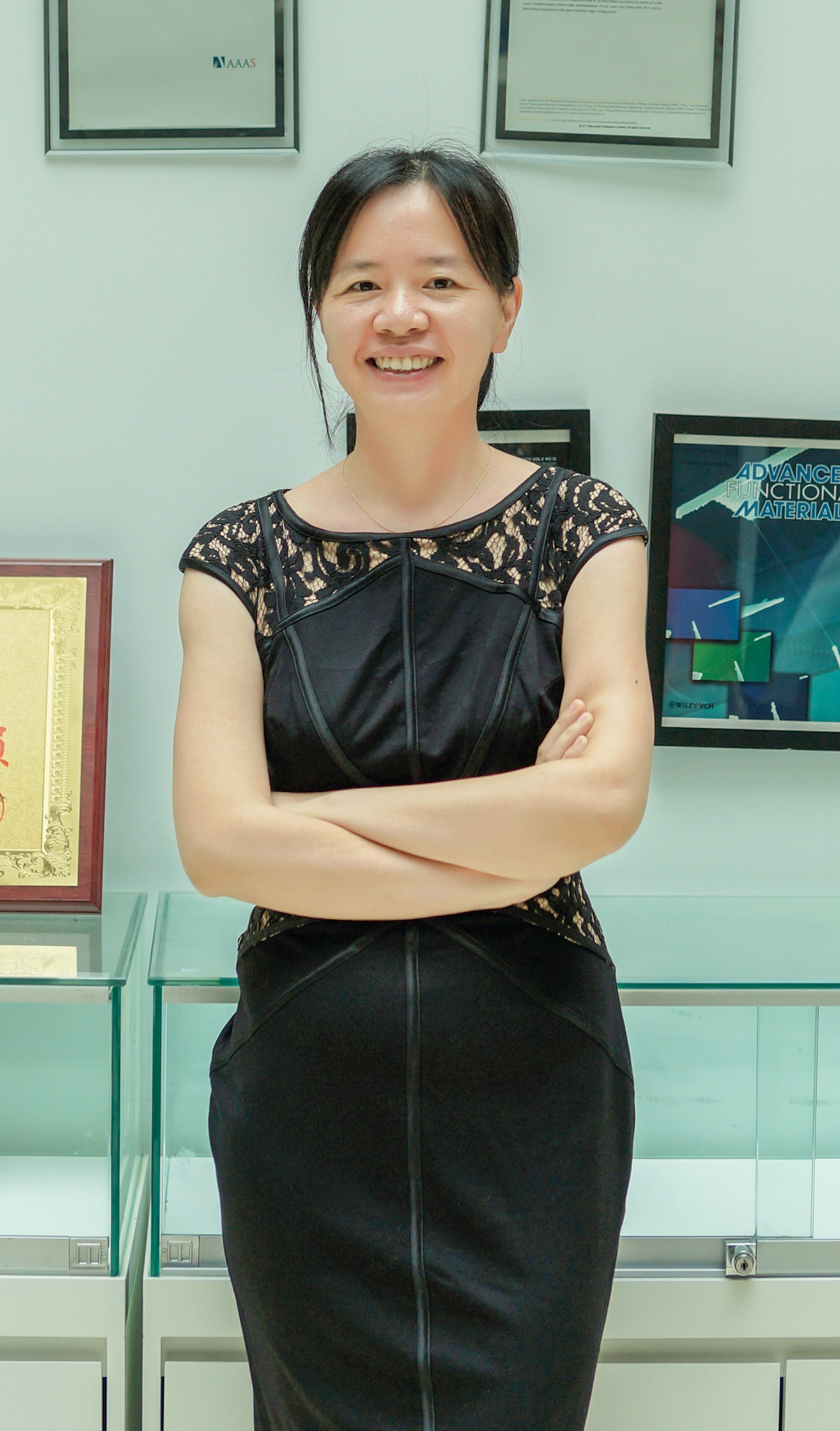
Name: Youfan Hu
Email: [email protected]
Affiliation: Department of Electronics, Peking University, Beijing 100871, China
Homepage: http://scholar.pku.edu.cn/youfanhu/home
Research Keywords: nanosensors; flexible integrated circuits; energy harvesting technology; integrated smart sensor systems
Prof. Dr. Youfan Hu received her Ph.D. degree in Physical Electronics from Peking University, Beijing, China, in 2008. She is currently a Professor in the Department of Electronics at Peking University. Before joining Peking University, she worked as a post-doctoral fellow and research scientist in Georgia Institute of Technology, Atlanta, USA. Her research interests include high performance nanosensors, carbon nanotube-based integrated circuits, energy harvesting technology, and integrated smart sensor system. Dr. Hu has published over 60 peer-reviewed journal articles with a citation exceeding 8000. Most of her work is published in top journals, such as Advanced Materials, Nano Letters, ACS Nano, Advanced Functional Materials and Nano Energy.
We warmly welcome Prof. Dr. Youfan Hu in her role as Section Editor-in-Chief, and we look forward to her leading Sensors to achieving more milestones.
28 April 2021
Book Builder—Compile a Customized E-Book from Your Favorite MDPI Open Access Content
MDPI Books recently released Book Builder, a new online tool to conveniently arrange, design and produce an eBook from any content published in MDPI journals. Book Builder offers two functions: on the one hand (1) Selections, available to every registered user of MDPI; on the other hand (2) Special Issue Reprints, which can be used exclusively by Guest Editors of Special Issues.
Selections
In just a matter of a few clicks, all users are now able to assemble books from MDPI articles and receive instantaneous feedback in the form of a fully produced and compiled book (PDF), which can be downloaded or ordered as print copy. Selections can include any paper published with MDPI, picking and combining content from different journals and special issues.
This way, the user may for example choose to compile an ebook focusing around a particular topic, or assemble articles from a group of others.
We invite you to make yourself familiar with the new tool! The Book Builder can be found here: https://www.mdpi.com/books/book_builder.
Special Issue Reprints
The Book Builder allows Guest Editors of MDPI journals to create a reprint from a successfully completed Special Issue or Topical Collection in book format. If you are a Guest Editor for an MDPI journal, you can use the new tool to create an PDF document which includes all articles published in the Special Issue as well as a book cover and table of contents.
For Special Issues containing a minimum of 5 articles, the Guest Editor can request its publication on the MDPI Book platform. Published reprints are assigned an ISBN and DOI.
In addition to the PDF copy of the Reprint Book, as a token of our gratitude, MDPI offers every Guest Editor one (1) complimentary print copy (via print-on-demand). All contributors benefit from a discount on orders of any additional print copies, to share with colleagues or libraries or others.
In line with our organization's values, MDPI Books publishes all content in open access, promoting the exchange of ideas and knowledge in a globalized world. MDPI Books encompasses all the benefits of open access—high availability and visibility, as well as wide and rapid dissemination. MDPI Books are distributed under the terms and conditions of the Creative Commons Attribution License, meaning as an author you retain the copyright for your work. In addition, with MDPI Books you can complement the digital version of your work with a high-quality printed counterpart.
If you are interested in editing a book volume or series, or have a monograph manuscript to be considered for publication, please submit your proposal online and look at our Information for Authors.
Contact: Laura Wagner, MDPI Books Manager (email)
27 April 2021
Dr. Edgar Muñoz Appointed Section Editor-in-Chief of “Nanosensors” in Sensors
We are pleased to announce that Dr. Edgar Muñoz has been appointed Section Editor-in-Chief of “Nanosensors” in Sensors (ISSN 1424-8220).
Edgar Muñoz earned a Ph.D. in Chemistry from the University of Zaragoza in 2000 for his pioneering work in the laser ablation production of carbon nanotubes carried out at the Instituto de Carboquímica ICB-CSIC (Spanish National Research Council CSIC). From 2000 to 2003, he worked in Ray H. Baughman’s group, first at Honeywell Int. (Morristown, NJ), and later at the UTD NanoTech Institute of the University of Texas in Dallas, where he published seminal papers in Nature, Nature Materials, and the Journal of the American Chemical Society and Advanced Materials. Dr. Edgar Muñoz has been a CSIC staff research scientist since 2005. His primary research interests are in the fabrication of nanocarbon-based multifunctional materials for gas sensor applications, and on supramolecular peptide self-assemblies and nanocomposite materials for optoelectronics (transparent electrodes and fluorescent probes), sensor, nanocarrier (theranostics, drug delivery), and smart textile applications.
We warmly welcome Dr. Edgar Muñoz in his role as Editor-in-Chief of the “Nanosensors” Section, and we look forward to him leading Sensors towards achieving more milestones.

Name: Dr. Edgar Muñoz
Affiliation: Instituto de Carboquímica ICB-CSIC, Miguel Luesma Castán 4, 50018 Zaragoza, Spain
Website: http://www.ibernam.net/miembros.php?lang=spa&cat=1&id=55
Email: [email protected]
Interests: carbon nanomaterials; 2D nanomaterials; nanocomposite materials and fibers; bio-nanocomposite materials; sensors
23 April 2021
Prof. Dr. Sylvain Girard Appointed Section Editor-in-Chief of “Sensing and Imaging” in Sensors
We are pleased to announce that Prof. Dr. Sylvain Girard has been appointed as Section Editor-in-Chief of the “Sensing and Imaging” Section in Sensors (ISSN 1424-8220).
Prof. Dr. Sylvain Girard is a Full Professor at the Laboratoire Hubert Curien of the University Jean Monnet of Saint-Etienne. He received his Ph.D. in Optics and Photonics from the University of Saint-Etienne in 2003. He is a recipient of the IEEE NPSS Early Achievement Award and of the IEEE SEE Léon-Nicolas Brillouin Award. His research focuses on developing innovative photonic technologies, with particular interest in optical fibers, fiber-based sensors and image sensors, for operation in radiation-rich environments such as the ones encountered in space, medicine, nuclear industry, high energy physics or fusion-devoted facilities. Today, he is leading the Materials for Optics and Photonics in Extreme Radiation Environments (MOPERE) research team and is one of the founders of the LabH6, a joint research lab between University Jean Monnet, CNRS and the industrial iXblue. He has co-authored more than 230 peer-reviewed journal publications, which have been cited more than 5300 times (h-index of 39).
We warmly welcome Prof. Dr. Sylvain Girard in taking up his role as Section Editor-in-Chief, and we look forward to him leading Sensors to achieving many more milestones.

Name: Prof. Dr. Sylvain Girard
Email: [email protected]
Affiliation: Laboratoire Hubert Curien, CNRS UMR 5516, Université Jean Monnet, 42000 Saint-Étienne, France
Interests: fiber sensors; optical sensors; image sensors; optical materials; radiation effects
15 April 2021
MDPI Celebrates Company Milestone With 25th Anniversary Page
"We exist to help scientists achieve their own objectives"

In June of this year, MDPI will celebrate the 25th anniversary of its foundation. To mark this significant milestone, we have created a 25th Anniversary page on our website that evokes the development of our company over the past quarter-century.
MDPI has been a pioneer of Open Access publishing ever since the concept was first created.
In a wide-ranging interview, our CEO Delia Mihaila reflects on the company’s 25th anniversary and its contribution to the world of scientific publishing.
Delia considers how MDPI has evolved since starting life in 1996 as a visionary ‘project’ run out of an apartment in Basel, Switzerland, by Dr. Shu-Kun Lin. A chemist who was passionate about the long-term preservation of rare chemical sample, Dr. Lin was determined to help scholars publish their findings as quickly as possible and make their research results available to as wide a readership as possible worldwide. That determination remains unchanged 25 years later.
Today, MDPI is an international organization with over 4,000 employees based on three continents and in ten countries, and ranks among the world's top four academic publishers.
MDPI's mission is to accelerate access to new scientific research, delivering insight faster for researchers worldwide. Read more here about the company's remarkable success story and what the Open Access publishing model can offer the global scientific community.
2 April 2021
Prof. Dr. Mengdao Xing Appointed Section Editor-in-Chief of “Radar Sensors” in Sensors
We are pleased to announce that Prof. Dr. Mengdao Xing has been appointed as Section Editor-in-Chief of the “Radar Sensors” Section of Sensors (ISSN 1424-8220).
Dr. Mengdao Xing received B.S. and Ph.D. degrees from Xidian University, China in 1997 and 2002, respectively. He is currently a Full Professor at the National Laboratory of Radar Signal Processing, Xidian University. He is also the Deputy Dean of the Academy of Advanced Interdisciplinary Research, Xidian University. His current research interests are synthetic aperture radar (SAR), inversed synthetic aperture radar (ISAR), sparse signal processing and microwave remote sensing. He has written or co-written more than 200 peer reviewed scientific journal papers. He also has authored or co-authored two books about SAR signal processing. His research has received 8660 citations and an H-index of 46. He has achieved over 40 authorized China patents. He is an IEEE Fellow.
We warmly welcome Prof. Dr. Mengdao Xing in taking up his role as Section Editor-in-Chief, and we look forward to him leading Sensors to achieve many more milestones.
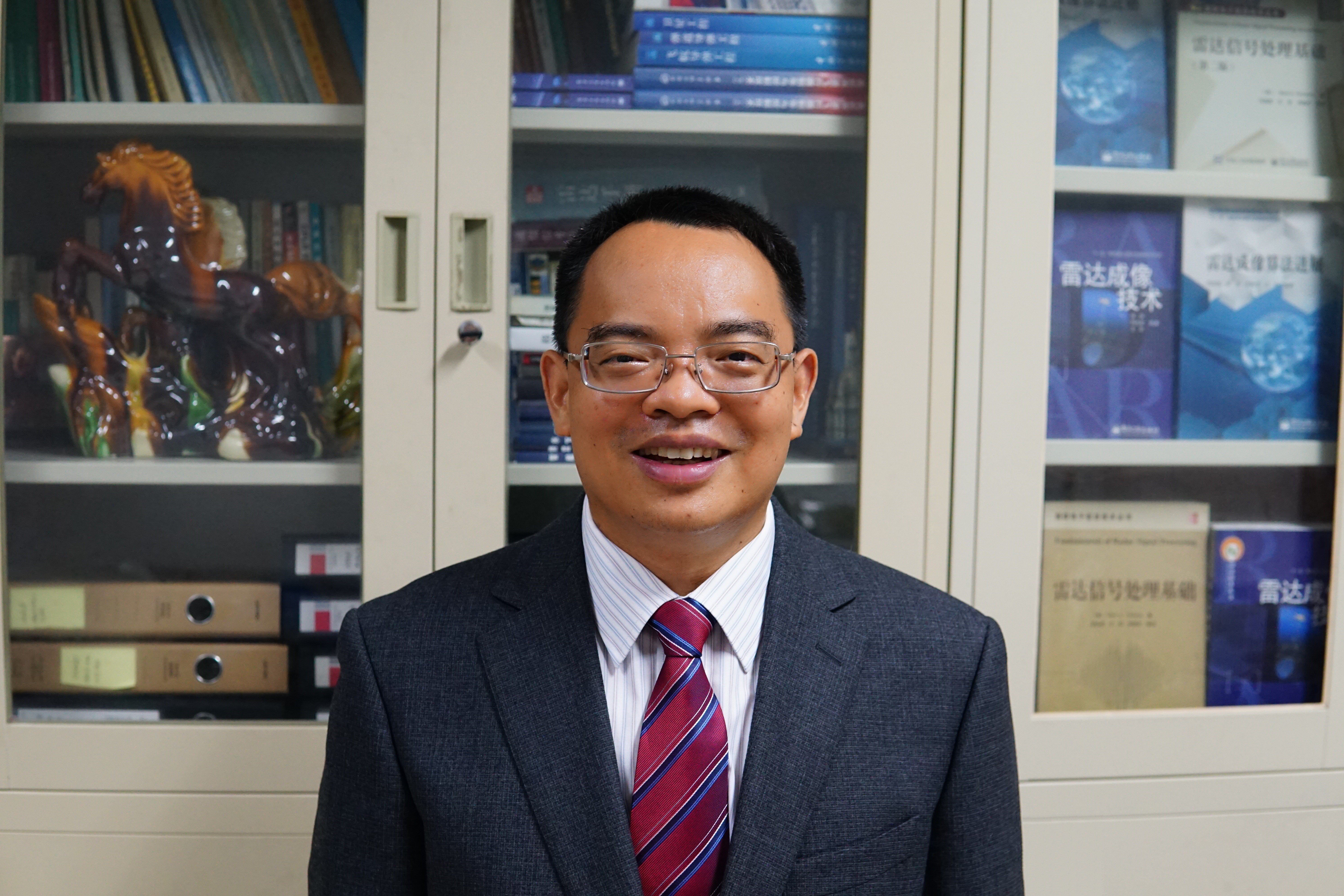
Name: Prof. Dr. Mengdao Xing
Email: [email protected]
Affiliation: National Laboratory of Radar Signal Processing, Xidian University, Xi’an 710071, China
Interests: synthetic radar radar (SAR) imaging; inverse synthetic radar radar (SAR) imaging; interferometric synthetic aperture radar (InSAR) imaging; ground moving target detection and imaging; bistatic synthetic aperture radar (BiSAR) imaging; polarization synthetic aperture radar (POL-SAR) imaging; micro- and nano-synthetic aperture radars (MiniSAR and NanoSAR); synthetic aperture imaging lidar (SAIL); high-speed radar imaging data acquisition system; real-time radar imaging processor
25 March 2021
Dr. Hyungsoon Im Appointed Editor-in-Chief of “Biomedical Sensors” Section in Sensors
We are pleased to announce that Dr. Hyungsoon Im has been appointed Editor-in-Chief of the ”Biomedical Sensors“ Section in Sensors (ISSN 1424-8220).

Dr. Hyungsoon Im
Affiliation: Center for Systems Biology, Massachusetts General Hospital, Boston, USA
Website: https://csb.mgh.harvard.edu/hyungsoon_im
Email: [email protected]
Interests: diagnostics; biosensors; plasmonics; point-of-care; cancers; extracellular vesicles; analytical chemistry
Dr. Hyungsoon Im is an Assistant Professor at the Center for Systems Biology, Massachusetts General Hospital and Harvard Medical School. He received his Ph.D. in Electrical Engineering from the University of Minnesota in 2011. He is a recipient of the NIH Pathway to Independence Award and NIH Ruth L. Kirschstein National Research Service Award Fellowship from the National Cancer Institute. His research focuses on developing next-generation sensing technologies to better understand the make-up of human diseases and changes associated with disease progression and therapy. His laboratory exploits have uniquely designed nanomaterials and sensors to quantitatively analyze biomarkers and overcome clinical unmet needs. He has co-authored more than 50 peer-reviewed journal publications, which have been cited more than 6000 times (h-index of 32).
We warmly welcome Dr. Hyungsoon Im in his role as Editor-in-Chief of the “Biomedical Sensors” Section, and we look forward to him leading Sensors towards achieving more milestones.
10 March 2021
Journal Selector: Helping to Find the Right MDPI Journal for Your Article
At MDPI, we strive to make your online publication process seamless and efficient. To achieve this, our team is continuously developing tools and features to make the user experience useful and convenient.
As the number of academic papers continues to grow, so does the need to analyze and work with them on a large scale. This prompted us to design a new feature aimed at helping researchers find journals that are relevant to their publication by matching their abstract topic. In this regard, we designed a similarity model that automatically identifies the most suitable academic journals for your paper.
We are pleased to introduce Journal Selector, a new feature that measures similarity in academic contexts. By simply entering the title and/or abstract into our Journal Selector, the author will see a list of the most related scientific journals published by MDPI. This method helps authors select the correct journals for their papers, highlighting the time of publication and citability.
The methodology is known as representation learning, where words are represented as vectors in hyperspace. Representation helps us differentiate between different concepts within articles, and in turn, helps us identify similarities between them.
We used an advanced machine learning model to better capture the semantic meanings of words. This helps the algorithm make better predictions by leveraging scientific text representation. In turn, this ensures high precision, helping authors decide which journal they should submit their paper to.
The goal is to support authors to publish their work in the most suitable journal for their research, as fast as possible, accelerating their career progress.
Contact: Andrea Perlato, Head of Data Analytics, MDPI (email)
26 February 2021
The Spanish Society of Biomedical Engineering (SEIB) is Now an Affiliated Society Member of Sensors and Entropy
In November 2020, the Spanish Society of Biomedical Engineering (SEIB) became affiliated to Sensors and Entropy. As part of this collaboration, all members of SEIB enjoy a discount on the article processing charges (APC) when submitting articles to the journals.
The Spanish Society of Biomedical Engineering (SEIB) is a non-profit organization representing the biomedical engineering community in Spain. Its mission is to improve the health, wealth, and wellbeing of Spanish citizens through the application of biomedical engineering (BME).

SEIB is a professional organization whose functions are highly relevant to the scope of Sensors and Entropy. We look forward to collaborating with SEIB and publishing state-of-the-art research from its members in this field.
23 February 2021
Sensors | 2020 Review
The year 2020 marks the 20th anniversary of Sensors. Sensors has published more than 30,000 papers from more than 100,900 authors. To celebrate this 20th anniversary, we have arranged a series of special content and events. We hope you can join us to celebrate this milestone of our journal and enjoy the collection below.
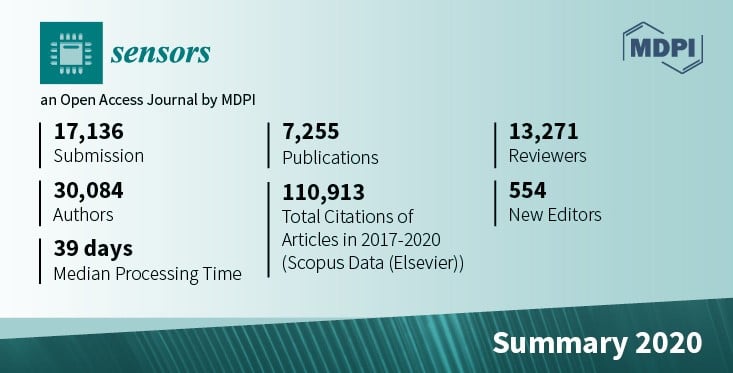
The year 2020 was a year of growth for Sensors. The journal received 17,136 submissions and published 7255 articles from 30,084 international authors. More than 49,000 experts were involved in reviewing articles for Sensors during 2020 and involved in the peer review process of the journal. Moreover, 554 academic editors joined the Editorial Board in 2020. Sensors’ articles were cited 12,703 times in 2020 and the impact factor (IF) increased from 3.031 to 3.275. Thanks to the commitment and dedication of the editorial staff, the median time between submission and publication is around 39 days.
The journal established the following six new sections: “Communications”, “Fault Diagnosis & Sensors”, “Wearables”, “Nanosensors”, “Sensing and Imaging” and “Sensors and Robotics”.
The E-conference organized by Sensors, the 7th International Electronic Conference on Sensors and Applications (ECSA-7), has been closed successfully with 115 accepted proceedings and 6 live sessions. We would like to take this opportunity to express our appreciations to all the participants for their contributions and all the chairs and committee members for their excellent work.
Moreover, Sensors became an affiliated journal of the Spanish Society of Biomedical Engineering (SEIB).
High Altmetrics Papers
Physical Sensors
Vacuum Ultraviolet Absorption Spectroscopy Analysis of Breath Acetone Using a Hollow Optical Fiber Gas Cell
Yudai Kudo et al.
Chemical Sensors
Photometric Sensing of Active Chlorine, Total Chlorine, and pH on a Microfluidic Chip for Online Swimming Pool Monitoring
Sait Elmas et al.
Physical Sensors
Wildfire Smoke Adjustment Factors for Low-Cost and Professional PM2.5 Monitors with Optical Sensors
William W. Delp et al.
Biosensors
An Optical Urate Biosensor Based on Urate Oxidase and Long-Lifetime Metalloporphyrins
Tokunbo Falohun et al.
Chemical Sensors
A ppm Ethanol Sensor Based on Fabry–Perot Interferometric Surface Stress Transducer at Room Temperature
Toshiaki Takahashi et al.
Sensor Networks
Discovering Suspicious APT Behaviors by Analyzing DNS Activities
Guanghua Yan et al.
Hot Special Issues
Intelligent Vehicles
Sensors and Robot Control
Advanced Sensors and Signal Processing of Sensor Data: Recent Advances and Applications
Sensors for Biomechanics Application
Emotion and Stress Recognition Related Sensors and Machine Learning Technologies
Sensors runs Special Issues to create collections of articles on specific topics with the aim of building a community of authors and readers to discuss the latest research and develop new ideas and research directions.
Open Calls
Sensors for Gait, Human Movement Analysis, and Health Monitoring
edited by Marco Iosa
submission deadline 31 March 2021
Internet of Things for Smart Homes and Industrial Application
edited by Tiago M. Fernández-Caramés and Paula Fraga-Lamas
submission deadline 18 June 2021
Sensing Technologies for Agricultural Automation and Robotics
edited by Manoj Karkee
submission deadline 30 June 2021
Please find the full list of topics and calls for papers via the following link: https://www.mdpi.com/journal/sensors/special_issues.
On behalf of the editorial team, we would like to express our gratitude to the Editor-in-Chief of Sensors, all Section Editors-in-Chief and Editorial Board Members, as well as to the Guest Editors of Special Issues, Topic Board Members, and Reviewer Board Members, all of whom have ensured the continued success of the journal through their hard work and diligence.
In 2021, Sensors will continue to contribute to academic exchange and sharing of knowledge.
18 January 2021
Prof. Dr. Xianbin Wang Appointed Section Editor-in-Chief of “Communications” in Sensors
We are pleased to announce that Prof. Dr. Xianbin Wang has been appointed as Section Editor-in-Chief of the “Communications” Section of Sensors (ISSN 1424-8220).
Dr. Xianbin Wang is a Full Professor and Tier-1 Canada Research Chair in 5G and Wireless IoT Communications at the Western University (The University of Western Ontario), Canada. His current research interests are focused on 5G and beyond/6G, intelligent wireless communications, wireless security, machine-learning, and the Internet-of-Things. The activities of his research team have led to the publication of more than 400 highly cited publications and over 30 patents.
Dr. Wang is a Fellow of the Canadian Academy of Engineering, the Engineering Institute of Canada, and the of Institute of Electrical and Electronics Engineers (IEEE). He has served as Editor/Associate Editor/Guest Editor for over ten journals, including IEEE Transactions on Communications, IEEE Transactions on Wireless Communications, IEEE Transactions on Broadcasting and IEEE Transactions on Vehicular Technology. He was involved in numerous conferences including IEEE ICC, GLOBECOM, WCNC, VTC, CCECE, CWIT and PIMRC, assuming roles such as the technical program co-chair, symposium chair, track chair, tutorial instructor, session chair and keynote speaker. Dr. Wang has been nominated as an IEEE Distinguished Lecturer several times during the last ten years.
We warmly welcome Prof. Dr. Xianbin Wang in taking up his role as Section Editor-in-Chief and we look forward to him leading Sensors to achieve many more milestones.
---------------------------------------------------------------------------------------------------------------------------------------------------------------

Name: Prof. Xianbin Wang
Email: [email protected]
Affiliation: Department of Electrical and Computer Engineering, Western University, London, Ontario CANADA N6A 5B9
Interests: 5G/6G; IoT; intelligent wireless communications; communication security; AI/machine learning; NOMA/MIMO/OFDM; locationing technologies; collaborative computing
Homepage: https://www.eng.uwo.ca/electrical/faculty/wang_x/index.html
25 December 2020
Prof. Dr. Roozbeh Ghaffari Appointed Section Editor-in-Chief of “Wearables” Section in Sensors
We are pleased to announce that Prof. Dr. Roozbeh Ghaffari has been appointed as Section Editor-in-Chief of the “Wearables” Section in Sensors (ISSN 1424-8220).
Prof. Dr. Roozbeh Ghaffari obtained his BS and MEng degrees in electrical engineering from the Massachusetts Institute of Technology in 2001 and 2003. He received his PhD degree in biomedical engineering from the Harvard Medical School-MIT Program in Health Sciences and Technology in 2008. He joined the Center for Bio-Integrated Electronics (CBIE) at Northwestern University in May 2017, where he is currently the Director of Translational Research and Research Associate Professor in the Department of Biomedical Engineering.
Prof. Dr. Ghaffari has published over 100 academic papers and is inventor of over 50 patents issued. His research focus is at the intersection between soft bioelectronics, micro/nano-scale systems, and neuroscience.
We warmly welcome Prof. Dr. Roozbeh Ghaffari in his role as Section Editor-in-Chief and we look forward to him leading Sensors to achieve more milestones.
---------------------------------------------------------------------------------------------------------------------------------------------------------------
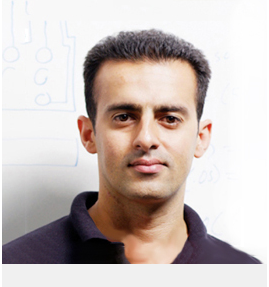
Name: Roozbeh Ghaffari
Email: [email protected]
Affiliation: Querrey Simpson Institute for Bioelectronics, Department of
Biomedical Engineering, Northwestern University, Evanston, IL 60208, USA
Homepage: https://bioelectronics.northwestern.edu/people/ghaffari-roozbeh.html
Research Keywords: flexible electronics; biosensors; wearable computing; MEMS; neuroscience, microfluidics
15 December 2020
MDPI adopts C4DISC principles to improve diversity and inclusion in scholarly communications
MDPI is proud to adopt the principles of the Coalition for Diversity & Inclusion in Scholarly Communications (C4DISC) to support building equity, inclusion, diversity, and accessibility in scholarly communications.
The C4DISC represents organizations and individuals working in scholarly communications and is focused on addressing issues of diversity and inclusion within the publishing industry.
MDPI’s Managing Editors encourage the Editors-in-Chief and Associate Editors to appoint diverse expert Editorial Boards. This is also reflective in our multi-national and inclusive workplace. We are proud to create equal opportunities without regard to gender, ethnicity, geographic location, sexual orientation, age, disability, political beliefs, religion, or socio-economic status. There is no place for discrimination in our workplace and editors of MDPI journals are to uphold these principles in high regard.
Representatives from C4DISC meet monthly, and have started to implement initiatives to shed light and improve on the lack of diversity in scholarly communications. Some of the initiatives include developing a joint statement of principles; conducting market research; providing training resources, best practices, toolkits, and documentation for our collective memberships; and establishing outreach programs, curricula, events, and publications.
The Coalition is committed to:
- eliminating barriers to participation, extending equitable opportunities across all stakeholders, and ensuring that our practices and policies promote equitable treatment and do not allow, condone, or result in discrimination;
- creating and maintaining an environment that respects diverse traditions, heritages, and experiences;
- promoting diversity in all staff, volunteers, and audiences, including full participation in programs, policy formulation, and decision-making;
- raising awareness about career opportunities in our industries to groups who are currently underrepresented in the workforce;
- supporting our members in achieving diversity and inclusion within their organizations.
14 December 2020
Article Layout and Templates Revised for Future Volumes
At MDPI we have slightly revised the layout for articles to be published in the 2021 Volume, starting at the end of December 2020. As of today, the article templates available for download on ‘Instructions for Authors’ pages have been updated.
The most noticeable change can be found on the first page of the article, where a left-hand column has been created to include the following front matter elements: (i) the recommended citation style for the article, (ii) the publishing history, (iii) as well as the Creative Commons Attribution license used (iv) a standard note regarding affiliations. At the same time, the extra spacing on the left means the authors’ affiliations are now more clearly set apart than before. Other front matter key elements such as journal logo, article type, article title, authors, abstract and keywords remain unchanged.
The blank column on the left runs through all pages in an article; as a result, the main text is slightly more condensed, which improve reader friendliness for smaller screens. Small figures/tables are aligned on the left with standard indenture, while large figures/tables are centered and covering the full width of the page. The revised layout was applied in the article pictured below, to serve as an example:

1) Information is displayed in the left information bar.

2) In the main text, there is a blank column on the left.

3) Small tables/figures are aligned on the left, large tables/figures are centered.
11 December 2020
2020 "Highly Cited Researchers" on MDPI Journal's Editorial Boards
We are pleased to acknowledge that many academic editors who have made an impact on MDPI journals as editorial board members, editors-in-chief, or section editors, are recognized as 2020 Highly Cited Researchers by Clarivate.
Highly Cited Researchers highlights the top 1% of researchers, by citations, in one or more of the 22 fields used in Clarivate Analytics Essential Science Indicators. We offer our congratulations to 279 academic editors of MDPI journals who were recognized as the most influential scholars in their fields in 2020.
Adams, Dave Agarwal, Ravi P. Ahn, Choon Ki Ahn, Myung-Ju Albrecht, Randy A. Andersson, Dan I. Anker, Stefan D. Apergis, Nicholas Ariga, Katsuhiko Artaxo, Paulo Balsamo, Gianpaolo Barba, Francisco J. Benediktsson, Jon Atli Benelli, Giovanni Bhatnagar, Amit Bialystok, Ellen Blaabjerg, Frede Blay, Jean-Yves Bogers, Marcel Bolton, Declan J. Boyer, Cyrille Brocca, Luca Bruix, Jordi Buhalis, Dimitrios Burdick, Jason A. Byrd, John C. Cabeza, Luisa F. Cabrerizo-Lorite, Francisco Javier Cai, Jianchao Calhoun, Vince D. Cantu, Robert C. Cerqueira, Miguel Chang, Jo-Shu Chau, Kwok-wing Chemat, Farid Chen, Jianmin Chen, Jun Chen, Min Chen, Shaowei Chen, Wei Chen, Wei-Hsin Chen, Xiaofeng Chen, Yangkang Chen, Zhi-Gang Chiclana, Francisco Corella, Dolores Cortes, Javier Cortes, Jorge Cummings, Kenneth Michael Dai, Shifeng Decker, Eric A. DePinho, Ronald A. Dimopoulos, Meletios-Athanasios Dincer, Ibrahim Du, Yihong Dupont, Didier Edwards, David Ellahi, Rahmat Ellis, Erle C. ElMasry, Gamal Esteller, Manel Estruch, Ramón Fang, Chuanglin Fasano, Alessio Fernandez-Lafuente, Roberto Ferreira, Isabel Fortino, Giancarlo Galluzzi, Lorenzo Galvano, Fabio Gandomi, Amir H. Gandomi, Amir H. Gao, Bin Gao, Feng Gao, Wei Garbe, Claus García, Hermenegildo Geschwind, Daniel H. Giampieri, Francesca Giralt, Sergio A. Glanz, Karen Goldewijk, Kees Klein Gössling, Stefan Govindan, Kannan Granato, Daniel Grosso, Giuseppe Grosso, Giuseppe Guerrero, Josep M. Haase, Dagmar Hagger, Martin S. Hamblin, Michael R. Han, Heesup Jankovic, Joseph Janotti, Anderson |
Jiang, Hai-Long Kalaji, Hazem M. Kalantar-Zadeh, Kourosh Kaner, Richard B. Karimi, Hamid Reza Kataoka, Kazunori Keesstra, Saskia Kepp, Oliver Kerminen, Veli-Matti Keyzers, Robert A. Khademhosseini, Ali Khan, Nafees A. Kim, Ki-Hyun Klemeš, Jiří Jaromír Klenk, Hans-Peter Konopleva, Marina Y. Krammer, Florian Krebs, Frederik C. Kroemer, Guido Kudo, Masatoshi Kurths, Juergen Kurzrock, Razelle Kuznetsov, Nikolay V. Kyrpides, Nikos C. La Vecchia, Carlo Lai, Yuekun Lam, James Lancellotti, Patrizio Lee, Sangmoon Leung, Victor C. M. Li, Jinghong Li, Yurui Lindahl, José M. Merigó Lip, Gregory Y. H. Loh, Xian Jun Long, Hualou Lund, Henrik Luo, Jingshan Luque, Rafael Lyons, Timothy W. Ma, Jun Ma, Wen-Xiu Ma, Yanming Maeda, Keisuke Makarova, Kira Mantovani, Alberto Martín-Belloso, Olga Martinoia, Enrico Marzband, Mousa Masclaux-Daubresse, Celine Masson, Patrick Mateos, María Victoria Mathiesen, Brian Vad Matyjaszewski, Krzysztof McArthur, Grant A. McCauley, Darren Medlock, Jolyon M. Melero, Ignacio Mezzetti, Bruno Miroshnichenko, Andrey E. Moran, Daniel Mueller, Lukas A. Mueller-Roeber, Bernd Naushad, Mu Nemeroff, Charles B. Nieto, Juan J. O'Donnell, Colm Ogino, Shuji Olabi, Abdul-Ghani O'Regan, Donal Orsini, Nicola Oswald, Isabelle P. Ozcan, Aydogan Pahl-Wostl, Claudia Pang, Huan Payne, James E. Peng, Shushi Perc, Matjaz Perez-Alvarez, Jose Angel Piquero, Alex R. Ploss, Alexander Postolache, Mihai Pradhan, Biswajeet Prinsep, Michele R. Qian, Dong Qu, Xiaogang Reiter, Russel J. Riahi, Keywan Richter, Andreas Rignot, Eric Robert, Caroline Ros, Emilio Rosell, Rafael |
Rosen, Marc A. |
The full list of 2020 Highly Cited Researchers can be accessed on https://recognition.webofsciencegroup.com/awards/highly-cited/2020/
--- Highly Cited Researchers (HCR) is a Clarivate product.
26 October 2020
Prof. Dr. Xue Wang Appointed Section Associate Editor of Physical Sensors Section in Sensors
We are pleased to announce that Prof. Dr. Xue Wang has been appointed as Section Associate Editor of the Physical Sensors Section in Sensors (ISSN 1424-8220). He joined Sensors in 2008 and has made great contributions to our growth and development.
Xue Wang is a professor of the Department of Precision Instruments at Tsinghua University. He is the current Vice Dean of the Department of Precision Instrument and the State Key Laboratory of Precision Measurements Technology and Instruments. He has been on the Elsevier China Highly Cited Scholars List in 2014, 2015, and 2016; he served as the standing director of the Chinese Instrument and Control Society, the standing director of the Chinese Society for Measurement, and the vice-chairman of the China Computer Federation TC IoT.
Xue Wang received his M.S. degree in measurement and instrument from the Harbin Institute of Technology, Harbin, China, in 1991 and his Ph.D. degree in mechanical engineering from the Huazhong University of Science and Technology, Wuhan, China, in 1994. He was a Post-Doctoral Fellow of electrical power system with the Huazhong University of Science and Technology from 1994 to 1996. He then joined the Department of Precision Instrument, Tsinghua University, Beijing, China, where he is currently a Professor and the Vice Dean of Department of Precision Instrument. From 2001 to 2002, he was a Visiting Professor with the Department of Mechanical Engineering, University of Wisconsin–Madison.
His research interests include topics in wireless sensor networks, cyber-physical systems, intelligent biosignal processing, medical image processing, and smart energy utilization. Prof. Wang is a Senior Member of the IEEE Instrumentation and Measurement Society, Computer Society, Computational Intelligence Society, and Communications Society.
We warmly welcome Prof. Dr. Xue Wang in his role as Section Associate Editor and we look forward to him leading Sensors to achieve more milestones.
------------------------------------------------------------------------------------------------------------
Prof. Dr. Xue Wang
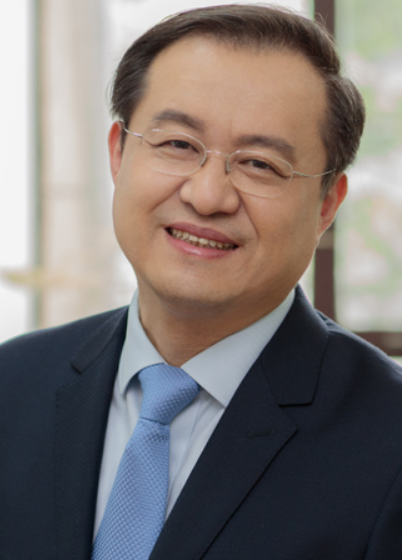
Website: http://www.dpi.tsinghua.edu.cn/publish/dpi/5109/2011/20110119091518325673772/20110119091518325673772_.html
Email: [email protected]
Affiliation: Department of Precision Instrument, Tsinghua University, 100084 Beijing, China
Interests: intelligent sensors; sensors networks; remote sensing; intelligent signal processing; Kalman filtering; multisensor fusion; intelligent maintenance and fault prognosis; measurement instrumentation; robust and optimal control
18 September 2020
Sensors 2021 Travel Awards are Open for Applications
We are inviting applications for the following seven section travel awards for jounior scientists. The winners will be awarded 500 CHF each and a certificate. The applications will be assessed by an Evaluation Committee consisting of senior scholars in the field.
Sensors 2021 Travel Award in Physical Sensors
Sensors 2021 Travel Award in Intelligent Sensors
Sensors 2021 Travel Award in Chemical Sensors
Sensors 2021 Travel Award in Remote Sensors
Sensors 2021 Travel Award in Sensors Networks
Sensors 2021 Travel Award in Biosensors
Sensors 2021 Travel Award for Women
Candidate Requirements:
– Postdoctoral fellows or PhD students (proof required) in one of the above fields.
– Plans to attend an online or physical international conference in 2021 (oral presentation or poster).
Required Application Documents:
– Information concerning the conference the applicant is planning to attend and the abstract that will be submitted.
– A curriculum vitae and a list of publications.
– A justification letter describing the focus of the research (max. 800 words).
– A letter of recommendation from a supervisor.
Please submit your applications for the travel awards online by clicking the above award titles before 28 February 2021. The prizes will be awarded at the end of March 2021 and announced on the Sensors website.
11 September 2020
Meet us at the 4th Micro-Nano Optics Technology and Application Exchange Conference (MOTA2020), Chengdu, China, 26–28 September 2020

MDPI will be attending the 4th Micro-Nano Optics Technology and Application Exchange Conference (MOTA2020), Chengdu, September 26–28, 2020.
MOTA2020 is organized by the Chinese Society for Optical Engineering, which combines the national defense and industrial applications to build a large platform for the industrial chain. The aim is to build a seamless docking platform for scientific and technical personnel engaged in related research in China and industrial application teams to form a joint force to promote the rapid technological development of micro-nano optics itself and its industrial development.
The following MDPI journals will be represented:
- Energies (leading journal)
- Photonics
- Nanomaterials
- Coatings
- Sensors
- Clean Technologies
- Safety
- Micromachines
If you are also attending this conference, please feel free to stop by our booth (Booth "Journal Energies"). Our delegates look forward to meeting you in person and answering any questions you may have. For more information about the conference, please visit: https://b2b.csoe.org.cn/meeting/MOTA2020.html.
9 July 2020
Open Access Agreement Between Jisc Collections and MDPI
We are delighted to announce the establishment of our Open Access agreement with Jisc Collections, which will allow UK institutions to benefit from access to article processing charge (APC) discounts and streamlined payment workflows.
All institutions participating in the agreement will also gain access to the MDPI online submission system where they can find full article metadata and pricing information for easy identification and additional transparency.
Eligible authors affiliated with the participating institutions are prompted to choose the corresponding Institutional Open Access Program (IOAP) when they submit an article via our online submission system.
About Jisc
Jisc's vision is for the UK to be the most digitally advanced education and research nation in the world. At its heart is the super-fast national research and education network, Janet, with built-in cyber security protection. Jisc also provides technology solutions for its members (colleges, universities and research centres) and customers (public sector bodies), helps members save time and money by negotiating sector-wide deals and provides advice and practical assistance on digital technology. Jisc is funded by the UK higher and further education and research funding bodies and member institutions.
For more information, contact [email protected].
About MDPI
MDPI is a publisher of fully peer-reviewed, Open Access journals with a focus on thorough and rapid editorial processing. Its aim is to ensure that high-quality research is verified and made available to the research community as quickly as possible. MDPI stands at the forefront of the Open Access movement, having launched its first online journal Molecules in 1996. Today, MDPI is a leader in Open Access publishing with over 250 journals across all research disciplines, and all content published under a Creative Commons Attribution License (CC BY).
For any questions about this agreement, please contact the MDPI IOAP team at [email protected].
7 July 2020
Sensors Has Received an Increased Citescore (2019 Scopus data)

It is our great pleasure to announce that Sensors (ISSN 1424-8220; CODEN: SENSC9) has received an increased Citescore (2019 Scopus data) of 5.0 for the year 2019, which equals the rank of 17/129 (Q1) in ‘’Physics and Astronomy: Instrumentation’’, the rank of 147/670 (Q1) in ‘’Electrical and Electronic Engineering’’, and the rank of 35/119 (Q2) in ‘’Analytical Chemistry’’.
We would like to extend our sincerest gratitude to all authors, reviewers, and editors who have contributed to the journal and enabled this next big step!
2 July 2020
Dr. Hyungsoon Im Appointed Associate Editor for Biomedical Sensors Section in Sensors
We are pleased to announce that Dr. Hyungsoon Im has been appointed Associate Editor for Biomedical Sensors Section in Sensors (ISSN 1424-8220).
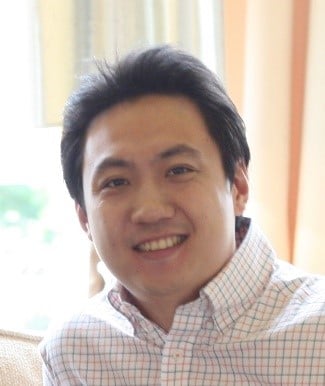
Dr. Hyungsoon Im
Affiliation: Center for Systems Biology, Massachusetts General Hospital, Boston, MA, USA
Website: https://csb.mgh.harvard.edu/hyungsoon_im
Email: [email protected]
Interests: Plasmonics, biosensors, diagnostic systems, computational imaging, extracellular vesicles, cancers
Dr. Hyungsoon Im is a principal investigator at the Center for Systems Biology at the Massachusetts General Hospital and Assistant Professor at Harvard Medical School. He received his PhD in Electrical Engineering from the University of Minnesota, Twin-Cities in 2011.
His research focuses on developing next-generation sensing technologies to better understand the make-up of human diseases and the changes associated with disease progression and therapy. His research group exploits uniquely designed nanomaterials and sensors to quantitatively analyze biomarkers and overcome clinical unmet needs. He has co-authored more than 50 peer-reviewed journal publications, which have been cited more than 5000 times (h-index of 31).
We warmly welcome Dr. Hyungsoon Im in his role as Associate Editor for the Biomedical Sensors Section, and we look forward to him leading Sensors to achieve more milestones.
29 June 2020
Updated Impact Factors Released in the Journal Citation Reports (Clarivate)
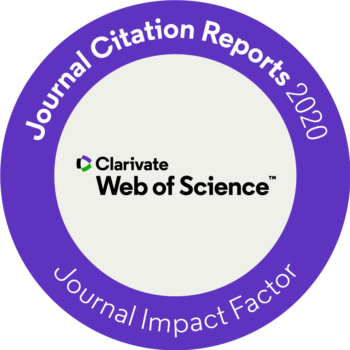
The updated citation metrics have been released in the Journal Citation Reports (JCR), published by Clarivate. The recent release of the JCR includes seventy-one MDPI titles. Out of these, 18 titles are newcomers, receiving a first Journal Impact Factor which is based on citation activity in 2019: Actuators, Agriculture, Biology, Biomedicines, Biosensors, Chemosensors, Children, Healthcare, Journal of Fungi, Journal of Personalized Medicine (JPM), Land, Life, Magnetochemistry, Membranes, Pharmaceuticals, Photonics, Separations and Toxics.
- Out of the previously listed journals, a total of 72 percent boast an increased Impact Factor.
- 25 journals are ranked among the top 25% of journals in at least one of the categories they are ranked for.
- Articles published in 2019 in MDPI journals account for approximately 17 percent of of articles published in gold Open Access journals covered in the Science Citation Index Expanded (SCIE) and Social Sciences Citation Index (SSCI).
First Impact Factors
| Journal | Impact Factor | Rank | Category | Details |
| Actuators | 1.957 | 31/64 (Q2) | • Instruments & Instrumentation | Link |
| Agriculture | 2.072 | 25/91 (Q2) | • Agronomy | Link |
| Biology | 3.796 | 19/93 (Q1) | • Biology | Link |
| Biomedicines | 4.717 | 30/138 (Q1) 36/270 (Q1) |
• Medicine, Research & Experimental • Pharmacology & Pharmacy |
Link |
| Biosensors | 3.240 | 24/86 (Q2) | • Chemistry, Analytical | Link |
| Chemosensors | 3.108 | 16/64 (Q1) 27/86 (Q2) 13/27 (Q2) |
• Instruments & Instrumentation • Chemistry, Analytical • Electrochemistry |
Link |
| Children | 2.078 | 50/128 (Q2) | • Pediatrics | Link |
| Healthcare | 1.916 | 62/102 (Q3) 45/87 (Q3) |
• Health Care Sciences & Services (SCIE) • Health Policy & Services (SSCI) |
Link |
| Journal of Fungi | 4.621 | 5/29 (Q1) 31/135 (Q1) |
• Mycology • Microbiology |
Link |
| Journal of Personalized Medicine | 4.433 | 24/165 (Q1) 10/102 (Q1) |
• Medicine, General & Internal • Health Care Sciences & Services |
Link |
| Land | 2.429 | 58/123 (Q2) | • Environmental Studies (SSCI) | Link |
| Life | 2.991 | 26/93 (Q2) 109/267 (Q2) |
• Biology • Microbiology |
Link |
| Magnetochemistry | 1.947 | 22/45 (Q2) 109/159 (Q3) 201/314 (Q3) |
• Chemistry, Inorganic & Nuclear • Chemistry, Physical • Materials Science, Multidisciplinary |
Link |
| Membranes | 3.094 | 53/143 (Q2) 129/314 (Q2) 23/89 (Q2) |
• Engineering, Chemical • Materials Science, Multidisciplinary • Polymer Science |
Link |
| Pharmaceuticals | 4.286 | 49/270 (Q1) | • Pharmacology & Pharmacy | Link |
| Photonics | 2.140 | 48/97 (Q2) | • Optics | Link |
| Separations | 1.900 | 53/86 (Q3) | • Chemistry, Analytical | Link |
| Toxics | 3.271 | 32/92 (Q2) 92/265 (Q2) |
• Toxicology • Environmental Sciences |
Link |
Updated Impact Factors
| Journal | Impact Factor | Rank | Category | Details |
| Agronomy | 2.603 | 18/91 (Q1) 65/234 (Q2) |
• Agronomy • Plant Sciences |
Link |
| Animals | 2.323 | 10/63 (Q1) 14/142 (Q1) |
• Agriculture, Dairy & Animal Science • Veterinary Sciences |
Link |
| Antibiotics | 3.893 | 23/93 (Q1) 64/270 (Q1) |
• Infectious Diseases • Pharmacology & Pharmacy |
Link |
| Antioxidants | 5.014 | 10/139 (Q1) 56/297 (Q1) 7/61 (Q1) |
• Food Science & Technology • Biochemistry & Molecular Biology • Chemistry, Medicinal |
Link |
| Applied Sciences | 2.474 | 161/314 (Q3) 32/91 (Q2) 88/177 (Q2) 62/154 (Q2) |
• Materials Science, Multidisciplinary • Engineering, Multidisciplinary • Chemistry, Multidisciplinary • Physics, Applied |
Link |
| Atmosphere | 2.397 | 48/93 (Q3) | • Meteorology & Atmospheric Sciences | Link |
| Biomolecules | 4.082 | 98/297 (Q2) | • Biochemistry & Molecular Biology | Link |
| Brain Sciences | 3.332 | 113/271 (Q2) | • Neurosciences | Link |
| Cancers | 6.126 | 37/244 (Q1) | • Oncology | Link |
| Catalysts | 3.520 | 65/159 (Q2) | • Chemistry, Physical | Link |
| Cells | 4.366 | 70/195 (Q2) | • Cell Biology | Link |
| Coatings | 2.436 | 10/21 (Q2) | • Materials Science, Coatings & Films | Link |
| Crystals | 2.404 | 10/26 (Q2) 165/314 (Q3) |
• Crystallography • Materials Science, Multidisciplinary |
Link |
| Diagnostics | 3.110 | 39/165 (Q1) | • Medicine, General & Internal | Link |
| Diversity | 1.402 | 119/168 (Q3) | • Ecology | Link |
| Electronics | 2.412 | 125/266 (Q2) | • Engineering, Electrical & Electronic | Link |
| Energies | 2.702 | 63/112 (Q3) | • Energy & Fuels | Link |
| Entropy | 2.494 | 33/85 (Q2) | • Physics, Multidisciplinary | Link |
| Foods | 4.092 | 27/139 (Q1) | • Food Science & Technology | Link |
| Forests | 2.221 | 17/68 (Q1) | • Forestry | Link |
| Genes | 3.759 | 53/177 (Q2) | • Genetics & Heredity | Link |
| Insects | 2.220 | 18/101 (Q1) | • Entomology | Link |
| International Journal of Environmental Research and Public Health (IJERPH) | 2.849 | 58/193 (Q2) 32/170 (Q1) 105/265 (Q2) |
• Public, Environmental & Occupational Health (SCIE) • Public, Environmental & Occupational Health (SSCI) • Environmental Sciences (SCIE) |
Link |
| International Journal of Molecular Sciences (IJMS) | 4.556 | 74/297 (Q1) 48/177 (Q2) |
• Biochemistry & Molecular Biology • Chemistry, Multidisciplinary |
Link |
| ISPRS International Journal of Geo-Information (IJGI) | 2.239 | 31/50 (Q3) 18/30 (Q3) |
• Geography, Physical • Remote Sensing |
Link |
| Journal of Clinical Medicine | 3.303 | 36/165 (Q1) | • Medicine, General & Internal | Link |
| Journal of Marine Science and Engineering | 2.033 | 31/66 (Q2) | • Oceanography | Link |
| Marine Drugs | 4.073 | 16/61 (Q2) | • Chemistry, Medicinal | Link |
| Materials | 3.057 | 132/314 (Q2) | • Materials Science, Multidisciplinary | Link |
| Mathematics | 1.747 | 28/324 (Q1) | • Mathematics | Link |
| Medicina | 1.205 | 107/165 (Q3) | • Medicine, General & Internal | Link |
| Metabolites | 4.097 | 95/297 (Q2) | • Biochemistry & Molecular Biology | Link |
| Metals | 2.117 | 18/79 (Q1) 185/314 (Q3) |
• Metallurgy & Metallurgical Engineering • Materials Science, Multidisciplinary |
Link |
| Micromachines | 2.523 | 56/92 (Q3) 23/64 (Q2) |
• Nanoscience & Nanotechnology • Instruments & Instrumentation |
Link |
| Microorganisms | 4.152 | 37/135 (Q2) | • Microbiology | Link |
| Minerals | 2.380 | 6/21 (Q2) 11/30 (Q2) |
• Mining & Mineral Processing • Mineralogy |
Link |
| Molecules | 3.267 | 70/177 (Q2) 141/297 (Q2) |
• Chemistry, Multidisciplinary • Biochemistry & Molecular Biology |
Link |
| Nanomaterials | 4.324 | 89/314 (Q2) 42/103 (Q2) |
• Materials Science, Multidisciplinary • Nanoscience & Nanotechnology |
Link |
| Nutrients | 4.546 | 17/89 (Q1) | • Nutrition & Dietetics | Link |
| Pathogens | 3.018 | 65/135 (Q2) | • Microbiology | Link |
| Pharmaceutics | 4.421 | 44/270 (Q1) | • Pharmacology & Pharmacy | Link |
| Plants | 2.762 | 58/234 (Q1) | • Plant Sciences | Link |
| Polymers | 3.426 | 16/89 (Q1) | • Polymer Science | Link |
| Processes | 2.753 | 59/143 (Q2) | • Engineering, Chemical | Link |
| Remote Sensing | 4.509 | 9/30 (Q2) | • Remote Sensing | Link |
| Sensors | 3.275 | 22/86 (Q2) 77/266 (Q2) 15/64 (Q1) |
• Chemistry, Analytical • Engineering, Electrical & Electronic • Instruments & Instrumentation |
Link |
| Sustainability | 2.576 | 120/265 (Q2) 26/41 (Q3) 53/123 (Q2) 6/8 (Q3) |
• Environmental Sciences (SCIE) • Green & Sustainable Science & Technology (SCIE) • Environmental Studies (SSCI) • Green & Sustainable Science & Technology (SSCI) |
Link |
| Symmetry | 2.645 | 29/71 (Q2) | • Multidisciplinary Sciences | Link |
| Toxins | 3.531 | 21/92 (Q1) 34/139 (Q1) |
• Toxicology • Food Science & Technology |
Link |
| Universe | 1.752 | 18/29 (Q3) 42/68 (Q3) |
• Physics, Particles & Fields • Astronomy & Astrophysics |
Link |
| Vaccines | 4.086 | 57/158 (Q2) 50/138 (Q2) |
• Immunology • Medicine, Research & Experimental |
Link |
| Viruses | 3.816 | 12/37 (Q2) | • Virology | Link |
| Water | 2.544 | 31/94 (Q2) | • Water Resources | Link |
Source: Clarivate 2020, InCites Journal Citation Reports®.
26 June 2020
The Japan Society of Photogrammetry and Remote Sensing (JSPRS) is Now an Affiliated Society Member of Sensors and Remote Sensing
In April 2020, the Japan Society of Photogrammetry and Remote Sensing (JSPRS) became affiliated to Sensors and Remote Sensing. As part of this collaboration, all members of JSPRS enjoy a discount on the article processing charges (APC) when submitting articles to these two journals.

The Japan Society of Photogrammetry and Remote Sensing was founded in 1962 and is a non-governmental organization devoted to the development of cooperation for the advancement of photogrammetry and remote sensing, as well as their applications.
JSPRS is a professional organization whose functions are highly relevant to the scope of Sensors and Remote Sensing. We look forward to collaborating with JSPRS and publishing state-of-the-art research from its members in this field.
10 June 2020
Dr. Davide Brunelli Appointed Section Editor-in-Chief of the Section "Sensor Networks" in Sensors
We are pleased to announce that Dr. Davide Brunelli has been appointed Section Editor-in-Chief of the section ‘’Sensor Networks’’ in the journal Sensors.

Affiliation: DII, University of Trento, I-38123 Trento, Italy
Interests: energy harvesting; ultra-low-power sensors; IoT; energy-neutral devices
Website: https://webapps.unitn.it/du/en/Persona/PER0061723/Curriculum
Online Special Issues: "Intelligent Energy Management for Wireless Sensor Networks and Internet of Things"
https://www.mdpi.com/journal/sensors/special_issues/energy_sensors
Dr. Davide Brunelli was born on March 1977. He received his M.S. and Ph.D. in University of Bologna, Italy, in 2002 and 2007, respectively.
Dr. Davide Brunelli worked in top research groups and was an independent scientist and educator for 10 years before he moved to University of Trento as an Assistant Professor. Dr. Davide Brunelli’s research interests are in computing systems architecture, with a special emphasis on low-power applications and embedded systems. He is also active in the design of energy-efficient ambient intelligence systems, sensors, and sensor networks. Dr. Davide Brunelli lead a research group with six staff members (post-docs and PhDs) in university of Trento (UNITN). With his collaborators, Dr. Davide Brunelli made several contributions to the field of runtime power management, as well as integrated micro-sensors and energy-neutral, autonomous distributed sensing systems. On these topics, Dr. Davide Brunelli coauthored more than 190 peer-reviewed papers. Dr. Davide Brunelli strongly believes in collaborative, multidisciplinary research: his scientific career has an extensive track record of international cooperation with top institutions like ETHZ, EPFL, U. Southampton, Tyndall Inst., Imperial College, University of Zagreb, and Georgia Tech U.
We warmly welcome Dr. Davide Brunelli in his role as Editor-in-Chief of the section “Sensor Networks”, and we look forward to him leading Sensors to achieve more milestones.
13 May 2020
COVID-19 Academic Resources Center

Since 1996, MDPI has been committed to supporting the research community by providing the latest research freely available and making relevant and useful research available as quickly as possible. The world is current experiencing a pandemic of COVID-19, and researchers are working extremely hard to understand it and find a cure.
The values MDPI holds strongly are particularly important at the moment, and we will continue to publish relevant, peer-reviewed research as quickly as possible in open access format. This means that it will immediately be available for researchers, health professionals, and the general public to read, distribute, and reuse. We believe that scientific advancements will be crucial to overcoming this pandemic, and will do everything we can to support researchers working looking for solutions.
COVID-19 Academic Resources Center contains a variety of information related to COVID-19 available from MDPI, including journal articles, special issues, and preprints, among others.
For more information, please visit: https://www.mdpi.com/covid-19
9 May 2020
Dr. Francesco De Leonardis Appointed Associate Editor for Optical Sensors Section in Sensors
We are pleased to announce that Dr. Francesco De Leonardis has been appointed Associate Editor for Optical Sensors Section in Sensors (ISSN 1424-8220). He joined in Sensors in 2014 and has made a great contribution to our growth and development.

Email: [email protected]
Interests: photonic devices; non linear integrated optics; nonlinear photonic sensors; nanophotonic integrated sensors; semiconductor lasers; optical sensors for gyros
Affiliation: Department of Electrical and Information Engineering Polytechnic University of Bari, Via Edoardo Orabona n. 4, 70125 Bari, Italy
Dr. Francesco De Leonardis was born in Taranto, Italy, on October 1971. He received his Laurea degree and Ph.D. in Electronic Engineering from Politecnico di Bari in 1999 and 2003, respectively. He is currently a researcher in Electronic Engineering at the II Faculty of Engineering of Politecnico di Bari, in Taranto, Italy. His research interests are in the fields of MQW ring laser, photonic bandgap crystals devices, integrated optical sensors and nonlinear photonic devices. He is author or co-author of about 150 papers published in international journals and conference presentations and 1 international patent. He is a member of the Italian Society of Optics and Photonics and an associate member of National University Consortium of Matter Structure (CNISM).
We warmly welcome Dr. Francesco De Leonardis in his role as Associate Editor for Optical Sensors Section, and we look forward to him leading Sensors to achieve more milestones.
15 April 2020
Recruiting Conference Board Members for Sensors
Sensors is recruiting Conference Board Members:https://www.mdpi.com/journal/sensors/events.
Sensors is holding the 7th International Electronic Conference on Sensors and Applications (15–30 November 2020) and will organize the 8th International Symposium on Sensor Science (I3S 2021) in Dresden, Germany on 26–28 May 2021. We sponsored 8 booths and collaborated with approximately 100 conferences in 2019. The current Impact Factor is 3.275.
Benefits:
1. Promotion of the conference on the Sensors website;2. Possibility to set up a dedicated conference Special Issue;
3. Publication of the full conference proceedings in the journal Proceedings at preferential rates;
4. Sponsorship for various conference activities;
5. Article Processing Charge discount of your publications in Sensors;
6. Travel grants might be applicable.
* The collaborative conferences, sponsorship and travel grants will be elavuated by Sensors Editorial Office.
Main responsibilities:
1. Share conference information you host and plan to attend;
2. Help to promote Sensors in the conference you participate in;
3. Help Sensors to collaborate with the conference you host;
4. Provide the feedback of the hot topics related to Sensors in the conference.
9 April 2020
Free Open Platforms to Support Academics During the COVID-19 Pandemic

As a leading Open Access publisher, MDPI is committed to fostering open scientific exchange in all forms across all disciplines. Due to the outbreak of COVID-19, many researchers have to stay at home and many academic conferences have been cancelled or postponed. In light of these changes, MDPI has adopted numerous initiatives that may help accelerate scientific exchange and provide support to the academics during this period.
Scholarly Community—Encyclopedia
Encyclopedia is an online reference created and curated by active scholars. It aims to highlight the latest research results as well as providing benchmark information for researchers and the general public interested in accurate and advanced knowledge on specific topics.
Comprehensive and Free Literature Database—Scilit
Scilit is a comprehensive, free database for scientists that uses a new method to collate data and index scientific material. Our crawlers extract the latest data from CrossRef and PubMed on a daily basis. This means that newly published articles are immediately added to Scilit.
Display Academic Achievements—SciProfiles
SciProfiles is an innovative social network for researchers and scholars that is developed by MDPI. In line with our broad mission, the purpose of SciProfiles is to accelerate discovery and innovation by facilitating immediate access to research results and providing opportunities for academic networking.
Organize and Participate in Conferences Online—Sciforum
Sciforum is an event planning platform that supports open science by offering the opportunity to host and participate in academic conferences. It provides an environment for scholarly exchange, discussion of topics of current interest, building of networks, and establishing collaborations.
Post Early Versions of Research Outputs—Preprints
Preprints is a platform dedicated to making early versions of research outputs permanently available and citable. We post original research articles and comprehensive reviews, and papers can be updated by authors at any time. Content on Preprints is not peer-reviewed, and feedback can be received from readers.
***
MDPI remains committed to open science and open data and has signed a statement, along with more than thirty scholarly publishers, showing our intention to facilitate sharing of new research findings as early on as possible. The initiative sees publishers collectively removing barriers to new research, in the face of a global healthcare crisis.
25 March 2020
MDPI Comment on the COVID-19 Virus
The world is currently suffering from a global pandemic of the corona virus COVID-19. MDPI expresses its sympathies for all of those affected by the virus and stands in solidarity with medical staff and researchers treating patients and searching for scientific solutions.
MDPI has previously published papers covering corona viruses in addition to new papers on the current outbreak, see all papers here. In particular, Viruses has published a number of Special Issues and papers on the topic (see here, here, and here) as well as a forthcoming Special Issue.
Alongside journal articles, MDPI has been a strong supporter of preprints, which are increasingly being used to rapidly disseminate the latest research, and we run the preprint server Preprints.org. Our database of research articles, Scilit, is free to use and covers all publishers including preprint servers. New papers are often in search results within hours of publication and users can set up alerts for new papers.
Our main priority during this period has been the health and safety of staff, and we continue to allow staff to work at home and closely monitor the situation in all locations in which we work. Despite the restrictions, we continue to provide a full publication service and, by close collaboration with our editorial boards and making use our in-house teams, ensure that there are no unnecessary delays in publishing vital research. Fast and open publication has always been at the core of MDPI values and is now more important than ever.
We hope that a solution to the current situation will emerge soon. In the meantime, we will do our best to continue communicating vital research in all fields.
18 March 2020
MDPI Co-Signed Position Statement on Transformative Agreements
The advantages of the open access model of scientific publishing are being increasingly recognized in the scientific community. It allows new scientific evidence to be accessed from the moment of publication for free by anyone around the globe, boosting the impact of new research. In response, many funders, libraries and universities have been adopting new principles to accelerate the transition to open access.
Recently, “transformative agreements” have been negotiated between traditional publishers and various institutions. While increasing the number of open access papers, these agreements lack binding commitments to a full transition to open access, their conditions vary across different regions, and access is still limited for many users.
MDPI is a co-signatory of the recent position statement raising concerns about potential downsides of transformative agreements and how they may delay a full transition to open access. The statement highlights that these models “risk perpetuating current limitations on access, transparency and market competitiveness, while simultaneously facilitating excessive charges on the public purse”.
As a pioneering open access journal publisher, MDPI is the first to promote the importance of science being made available to everyone. Our peer-reviewed journals, covering diverse academic disciplines, are fully accessible to the public free of charge under a Creative Commons Attribution License (CC BY). This is why, along with other open access publishers, MDPI is a proud signatory of the position paper and is committed to contributing to the replacement of weak transitional agreements with “agreements with publishers that are already fully committed to open science and who offer full, immediate and transparent Open Access”.
Read the position paper here
16 March 2020
Encyclopedia Outstanding Contributor Awards 2020 - Open for Application
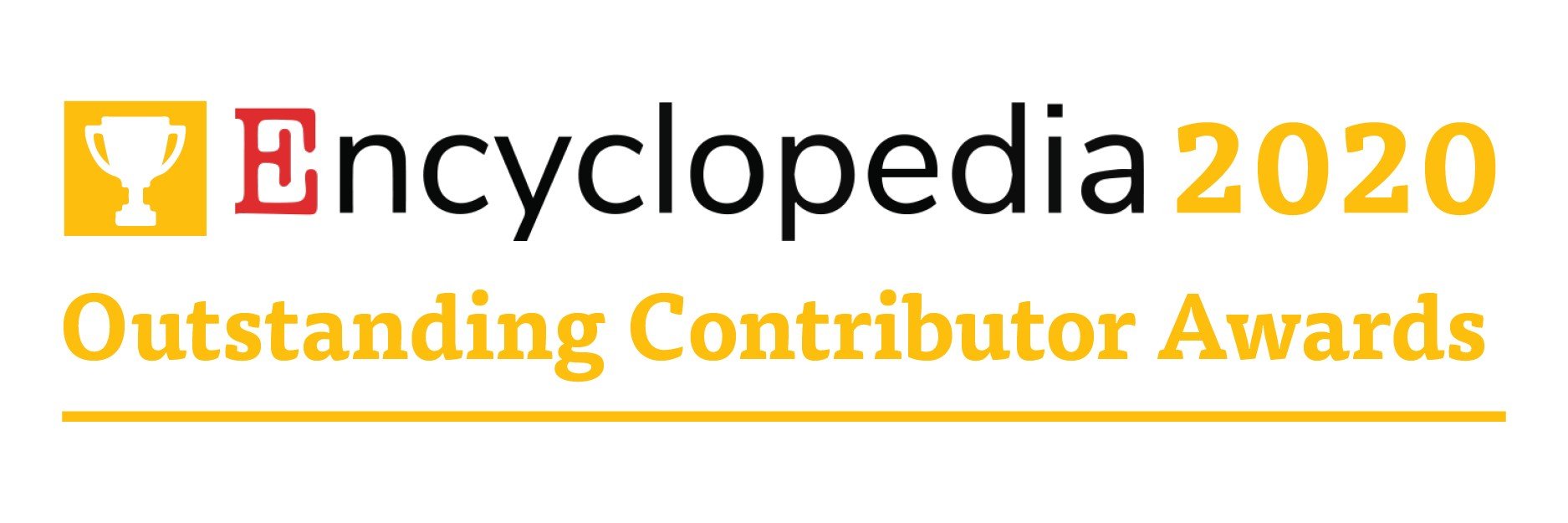
We are pleased to announce that Encyclopedia will be awarding five Outstanding Contributor Awards for researchers in 2020. The nominations and applications will be assessed by an Evaluation Committee consisting of senior scholars from the Encyclopedia Editorial Board.
Prize for Winners
- An official certificate;
- A cash award of 500 CHF or an MDPI discount voucher of 800 CHF.
Application Deadline
31 December, 2020 (Please send your application email with a list of all entries you contributed to our office before the deadline: [email protected])
Candidate Requirements
- Have a Ph.D. degree;
- Have more than three qualified entries published in Encyclopedia in 2020.
Evaluation Standards
- Number of entries published in Encyclopedia in 2020;
- Quality of entries online (including length, figure quality, and novelty);
- Impact of entries (including the number of likes, discussion contents, views, and downloads).
If you are a researcher and have not yet contribute entries to Encyclopedia, please do not miss this chance to highlight your research results.
10 March 2020
Prof. Dr. James F. Rusling Appointed Associate Editor-in-Chief for Biomedical Sensors Section in Sensors
We are pleased to announce that Prof. Dr. James F. Rusling has been appointed Associate Editor-in-Chief for Biomedical Sensors section in Sensors (ISSN 1424-8220).
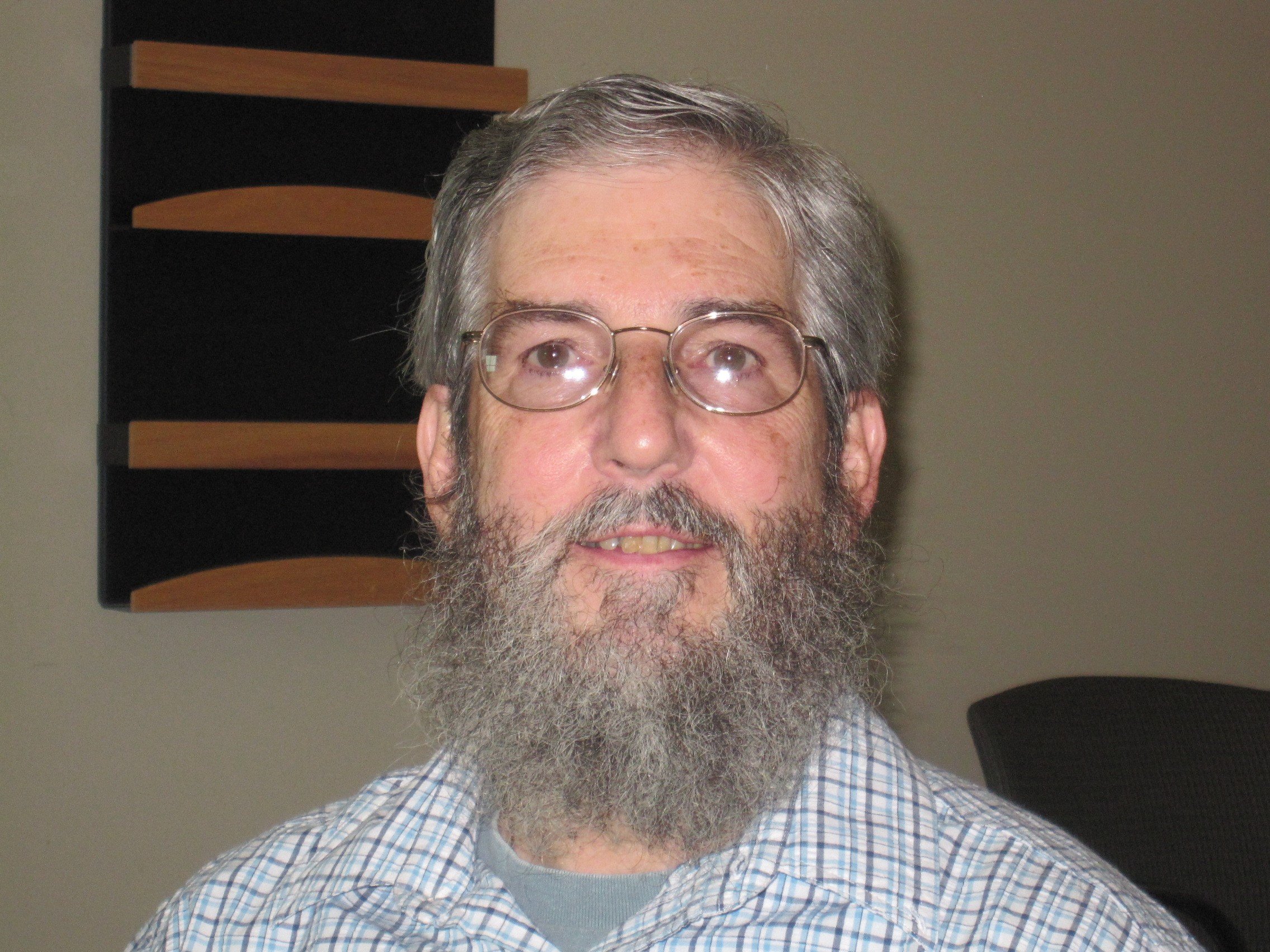
Prof. Dr. James F. Rusling
Affiliation: Department of Chemistry, U-60 and Department of Surgery and Neag Cancer Center (Health Center) 55 N. Eagleville Rd., University of Connecticut, Storrs, CT 06269-3060, USA
Website: https://rusling.research.uconn.edu/
Email: [email protected]
Interests: biomedical diagnostics; bioelectrochemistry; bioanalytical chemistry; biosensors and arrays; genotoxicity analysis; electrochemical catalysis; computer data analysis; automation
Prof. Dr. James F. Rusling was awarded a B.Sc. in Chemistry from Drexel University in 1969, and a Ph.D. from Clarkson University in 1979. He is a Paul Krenicki Chaired Professor of Chemistry at the University of Connecticut (Storrs, CT), and Professor of Surgery and member of the Neag Cancer Center at UConn Health Center, as well as adjunct Professor of Physical Chemistry at National Univ. of Ireland, Galway. His current research includes developing new ultrasensitive cancer diagnostic devices for the detection of biomarker proteins and peptides, low-cost 3D printed immunoarrays for point-of-care diagnostics, electrochemical and mass spectrometric arrays for toxicity screening, tumor suppressor gene damage, and fundamental bioelectrochemistry. He has authored over 430 research papers and several books. He is an also an accomplished musician who plays banjo, accordion, harmonica, tinwhistle, and guitar, and is interested in Irish and American folk styles.
We warmly welcome Prof. Dr. James F. Rusling in his role as Associate Editor-in-Chief for the Biomedical Sensors Section, and we look forward to him leading Sensors in achieving more milestones.
25 February 2020
Prof. Dr. Janos Abonyi Appointed Associate Editor-in-Chief of Intelligent Sensors Section in Sensors

We are pleased to announce that Prof. Dr. Janos Abonyi has been appointed Associate Editor-in-Chief of the Intelligent Sensors Section in Sensors ((ISSN 1424-8220, IF: 3.031 (2018)).
Prof. Dr. Janos Abonyi is working at the MTA-PE Lendület Complex Systems Monitoring Research Group in University of Pannonia, Hungary. His research interests include smart sensors and actuators; software sensors; soft computing; intelligent systems; optimization; machine learning; data science; artificial intelligence; big data; evolutionary computation; metaheuristics; bioinspired techniques; neural networks; multiobjective, signal, and image processing; pattern recognition; network science; process and chemical engineering; and industry 4.0.
We warmly welcome Prof. Dr. Janos Abonyi in his role as Associate Editor-in-Chief and we look forward to his contributions to the Intelligent Sensors Section.
21 January 2020
Meet Us at the 2020 IEEE International Geoscience and Remote Sensing Symposium (IGARSS 2020) in Waikoloa, Hawaii, USA, 19–24 July, 2020

MDPI will be attending the IGARSS 2020, to be held in Hawaii, USA, 19–24 July 2020
Hosted by the IEEE Geoscience and Remote Sensing Society, the 2020 IEEE International Geoscience and Remote Sensing Symposium (IGARSS 2020) will be held Sunday, 19 July through Friday, 24 July, 2020 at the Hilton Waikoloa Village in Waikoloa, Hawaii, USA. The main theme of the 2020 symposium is "Remote Sensing: Global Perspectives for Local Solutions".
GARSS 2020 is offering unique perspectives, discussions, research, solutions, and an opportunity to network in a beautiful environment.
The following MDPI journals will be represented:
If you are also attending this conference, please feel free to stop by our booth (Booth # 82). Our delegates look forward to meeting you in person to answer any questions you may have. For more information about the conference, please visit https://igarss2020.org/default.asp.
21 January 2020
Meet Us at the 2020 Annual Meeting of the American Association of Geographers in Denver, USA

MDPI will be attending the AAG annual meeting, to be held in Denver, USA, from 6–10 April 2020
The AAG 2020 is joined by fellow geographers, GIS specialists, environmental scientists, and other leaders for the latest in research and applications in geography, sustainability, and GIScience. The meeting will be held from Monday, April 6 - Friday, April 10, 2020, and will feature over 6,900 presentations, posters, workshops, and field trips by leading scholars, experts, and researchers.
The Annual Meeting of the AAG is quite possibly the largest geography conference in the world, with over 8,500 geographers converging from the U.S., Canada, and nearly 60 other countries in a typical year. With thousands of different papers and presentations scheduled throughout the conference, you’ll find no shortage of activities that reflect your specific interests within the field of geography.
The 2020 Annual Meeting will be held at the Hyatt Regency – Denver at Colorado Convention Center and the Sheraton Denver Downtown Hotel in Downtown Denver, Colorado. For more information, visit https://www2.aag.org/aagannualmeeting/.
The following MDPI journals will be represented:
ISPRS International Journal of Geo-Information
If you are also attending this conference, please feel free to stop by our booth (Booth #415). Our delegates look forward to meeting you in person to answer any questions you may have. For more information about the conference, please visit https://www2.aag.org/aagannualmeeting/.
8 January 2020
Dr. Guillermo Villanueva Appointed Editor-in-Chief for Physical Sensors Section in Sensors
Dr. Guillermo Villanueva Appointed Editor-in-Chief for Physical Sensors Section in Sensors
We are pleased to announce that Dr. Guillermo Villanueva has been appointed Editor-in-Chief for Physical Sensors Section in Sensors (ISSN 1424-8220). He joined in Sensors in 2016 and has made a great contribution to our growth and development.

Website: https://people.epfl.ch/guillermo.villanueva
Email: [email protected]
Interests: MEMS/NEMS—design, analysis, fabrication, and characterization; sensors, oscillators; nonlinear and coupled dynamics; fundamental noise processes
Affiliation: École Polytechnique Fédérale de Lausanne (EPFL), Route Cantonale, 1015 Lausanne, Switzerland
Guillermo Villanueva is a Tenure Track Assistant Professor at the Ecole Polytechnique Federale de Lausane (EPFL), Switzerland in the Mechanical Engineering Institute (IGM). Before joining EPFL, he was a Marie Curie post-doctoral scholar at DTU (Denmark) and Caltech (California, US). Before a post-doc at EPFL-LMIS1, he received his M.Sc. in Physics in Zaragoza (Spain) and his PhD from the UAB in Barcelona (Spain).
Since starting of his PhD (2002), Dr. Villanueva has been active in the fields of NEMS/MEMS for sensing, having expertise ranging from design and fabrication to characterization and applicability. He has co-authored more than 75 papers in peer-reviewed journals (h-index of 24 WoK, 32 GoS) and more than 100 contributions to international conferences.
We warmly welcome Dr. Guillermo Villanueva in his role as Editor-in-Chief for Physical Sensors Section, and we look forward to him leading Sensors to achieve more milestones.
11 October 2019
Introducing SciProfiles, an Academic Social Network
MDPI is pleased to announce the release of SciProfiles, its social network platform for researchers and scholars.
The purpose of SciProfiles is aligned with MDPI’s broad mission to accelerate discovery and innovation by facilitating immediate access to research results and to serve scholars and communities by providing opportunities for academic networking.
SciProfiles also ambitions to serve as a sustainable, transparent and community-driven research evaluation system aligned with the DORA principles (https://sfdora.org/). Through their scientific profiles, academics can highlight their contribution to research communities, and measure their impact on their field, beyond publication numbers and impact factors. SciProfiles is currently a beta version and will enrich to give researchers the possibility to highlight all of their contributions to science and their scientific communities as authors, reviewers, editors, conference organizers, conference panelists, conference keynote speakers, or even as lecturers or student mentors at their University.
The classic components of popular community social networks, including follower/following, classical metrics, endorsements and recommendations (https://www.mdpi.com/about/announcements/1690), comments (https://www.mdpi.com/about/announcements/1397) are or will be very soon highlighted in SciProfiles as open science contributions.
To help increase the impact and visibility of articles and their authors to an appropriate audience, the platform offers a NewsFeed that includes recommendations of relevant content based on interests, publication history, saved searches or colleagues’ recommendations.
SciProfiles’ avatars are now being integrated on several MDPI platforms, meaning that you will directly access researchers’ profiles from any of the MDPI platforms:
MDPI's journal publishing website: www.mdpi.com
MDPI's conference hosting and management website: www.sciforum.net
MDPI's pre-print website : www.preprints.org
MDPI's knowledge sharing website : www.encyclopedia.pub
MDPI's books store: www.mdpi.com/books
MDPI's literature database : www.scilit.net
SciProfiles aims to serve scientific communities at large. It can be embedded into third-party websites and also welcomes integration of data from third-parties.
Dr. Shu-Kun Lin: https://sciprofiles.com/profile/2
Dr. Franck Vazquez: https://sciprofiles.com/profile/FranckVazquez
Dr. Martyn Rittman: https://sciprofiles.com/profile/martynrittman
2 October 2019
Winners of the 2019 MDPI Writing Prize
We are delighted to announce the winners of the 2019 MDPI Writing Prize. Entrants were asked to write on the theme "Judging research: How should research and researchers be evaluated and rewarded?" We received a large number of excellent essays from PhD students and postdocs, and the process of shortlisting and choosing winners was not an easy one. The winners demonstrated excellent writing skills alongside interesting and thought-provoking ideas.
As last year, we will begin the process of collating all entries into a book that will be available in open access format. Alongside promoting good writing skills, we see the prize as a way to promote the voices of early career researchers within broader debates and policy discussions.
Congratulations to all of the participants and especially the winners. The winners are:
1st Prize (500 CHF):
Albin Nilsson (National Centre for Nuclear Research, Warsaw, Poland)
[Read here]
2nd Prize (250 CHF):
Qi Zhang (Shandong University, Jinan, China)
[Read here]
Igor Ogashawara (Indiana University, Indianapolis, US)
[Read here]
3rd Prize (100 CHF):
Margaret Sivapragasam (Universiti Teknologi Petronas, Perak, Malaysia)
[Read here]
Arvind Sharma (The University of Queensland, Gatton, Australia)
[Read here]
Jose Flores-Guerrero (University Medical Center Groningen, Groningen, The Netherlands)
[Read here]
The MDPI Writing Prize is an annual award supported by MDPI Author Services, which provides services including language editing, reformatting, plagiarism checks, and image editing.
20 September 2019
MDPI Now Gives Scholars the Possibility to Endorse and Recommend Articles

MDPI is pleased to announce the release of a new functionality giving the possibility for researchers and scholars to endorse, and formally recommend articles to their colleagues.
MDPI was an early signatory of the San Francisco Declaration on Research Assessment (https://sfdora.org/read/) which calls for improvement in how quality and impact of scholarly research outputs are evaluated, especially in moving beyond journal-based citation metrics (journal Impact Factor, Scopus Citescore, etc.).
MDPI supports the establishment of article-level impact metrics, including citations, views, downloads, and Altmetric scores. These measures serve as an impact indicator for research articles on a case–by-case basis, assessing paper on its own merit. However, these metrics are also subjective and can give a biased picture of the article impact: they do not directly reflect the quality or the intrinsic scientific value of the article.
In our view, community engagement with publications based on community-driven metrics can help to overcome this limitation. We have therefore launched an option for scholars to endorse articles, indicating their own assessment of its content and making a recommendation to their community. This follows our implementation of the open source Hypothesis commenting tool, which has been available for all articles published by MDPI for over a year (https://www.mdpi.com/about/announcements/1397). Both endorsement and commenting are available for all previously published and forthcoming MDPI articles.
In addition to potentially serving as a sustainable solution to article assessment, endorsements will help scientific communities to identify the most relevant articles, independently of the journal in which it was published.
The code for the endorsing functionality, which relies on DOIs and ORCIDs, will be made available on GitHub with an open source license.
Dr. Shu-Kun Lin, President and Founder
Dr. Franck Vazquez, Chief Scientific Officer
Dr. Martyn Rittman, Publishing Director
18 September 2019
Meet us at the IEEE International Electron Devices Meeting (IEDM) in San Francisco, USA, 7–11 December 2019

MDPI will be attending the IEEE International Electron Devices Meeting (IEDM) in San Francisco, USA, 7–11 December 2019
IEEE International Electron Devices Meeting (IEDM) is the world’s preeminent forum for reporting technological breakthroughs in the areas of semiconductor and electronic device technology, design, manufacturing, physics, and modeling. IEDM is the flagship conference for nanometer-scale CMOS transistor technology, advanced memory, displays, sensors, MEMS devices, novel quantum and nano-scale devices and phenomenology, optoelectronics, devices for power and energy harvesting, high-speed devices, as well as process technology and device modeling and simulation.
The following MDPI journals will be represented:
If you are also attending this conference, please feel free to stop by our booth. Our delegates look forward to meeting you in person to answer any questions you may have. For more information about the conference, please visit: https://ieee-iedm.org/.
12 September 2019
Meet Us at MicroTAS 2019 in Basel, Switzerland, 27–31 October 2019

We will be attending the 23rd International Conference on Miniaturized Systems for Chemistry and Life Sciences (MicroTAS 2019), to be held at Congress Center Basel, in Basel, Switzerland, on 27–31 October 2019. MicroTAS 2019 represents the continuation of a series of conferences that are considered the premier forum for presenting the latest research in microfluidics, microfabrication, nanotechnology, integration, materials and surfaces, analysis and synthesis, and detection technologies for life science and chemistry. MicroTAS 2019 offers plenary talks as well as contributed oral presentations and posters from selected abstracts. The following open-access journals will be represented:
Micromachines
Biosensors
Coatings
Applied Sciences
IJMS
Sensors
If you are also attending this conference, please feel free to stop by our booth (booth #21). Our delegates look forward to meeting you in person to answer any questions you may have. For more information about the conference, please visit https://microtas2019.org.
11 September 2019
Create an Entry in Encyclopedia to Get a 100 CHF Voucher in Publishing in MDPI Journals
Encyclopedia is a free online reference created and curated by active scholars. It aims to highlight the latest research results as well as provide a comprehensive record of scientific development. If you have any suggestions or questions, please feel free to contact us via [email protected].

6 August 2019
Preprints Reaches 10,000 Posted Articles Milestone
We are pleased to announce that Preprints has passed the milestone of 10,000 posted preprints. We are delighted to have reached this after just over three years of operation. Our congratulations and thanks go to our authors and advisory board who have supported growth of the platform and been crucial to its operation.
You can find further details at https://www.preprints.org/announcement/show/37.
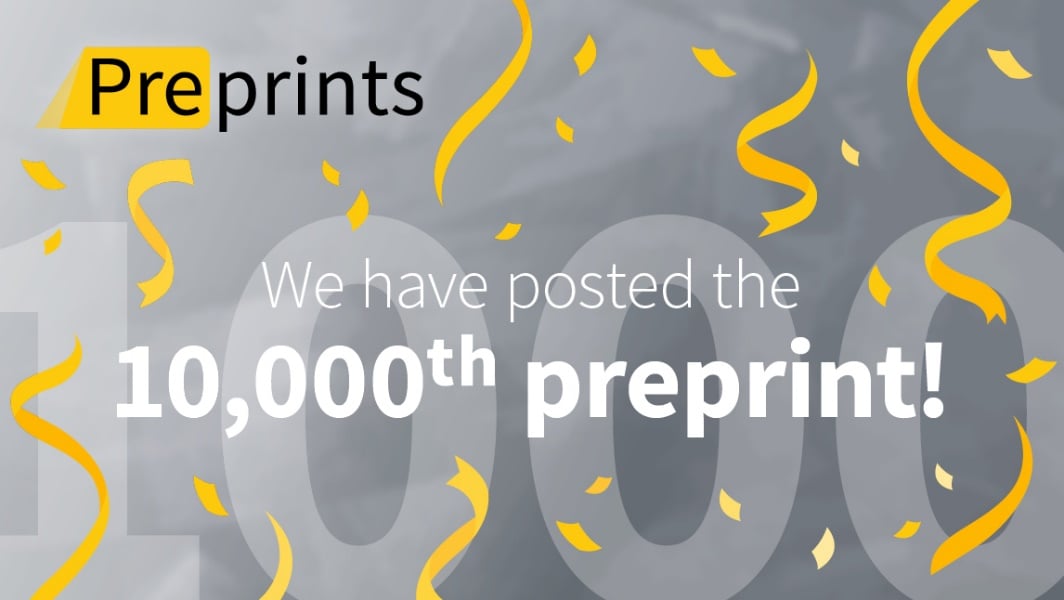
2 August 2019
DeepGreen Partnering with Publishers and Universities in Distributing Open Access Content to Institutional Repositories
Last week, the DeepGreen initiative in Germany started into an advanced test phase with the publishing partners S. Karger AG, SAGE Publishing, MDPI, Frontiers and De Gruyter, as well as 27 universities from all over Germany, from Hamburg University of Applied Sciences to University of Konstanz.
DeepGreen aims at lowering the barriers for open access publishing by automatically delivering metadata and full text publications from participating publishers to authorized repositories at German universities.
In preparation for a later live operation, the advanced test phase serves to gain experience with extensive data deliveries from publishers and also handling different repository software (including OPUS4, DSpace, EPrints, MyCoRe). DeepGreen thereby acts as a sophisticated platform, receiving articles published by authors affiliated with German universities and depositing these articles to respective university repositories, based on the affiliation metadata. For more information about DeepGreen: https://deepgreen.kobv.de
Karger AG has been a close cooperation partner of the DeepGreen consortium since 2016. S. Karger has more than 80 subscription-based and around 20 open access journals covering a wide spectrum in health science. DeepGreen will assign S. Karger articles to authorized institutions on the legal basis of German alliance and national licenses.
SAGE Publishing was founded by Sara Miller McCune in 1965 to support the dissemination of usable knowledge and educate a global community. SAGE publishes more than 1,000 journals and over 600 new books each year, spanning a wide range of subject areas. Our growing selection of library products includes archives, data, case studies and video. SAGE remains majority owned by our founder and after her lifetime will become owned by a charitable trust that secures the company’s continued independence. Principal offices are located in Los Angeles, London, New Delhi, Singapore, Washington DC and Melbourne. SAGE Publishing has been a close cooperation partner of DeepGreen since 2016.
MDPI is a scientific open access publisher and has been a partner of DeepGreen since 2017. MDPI comprises 205 peer-reviewed journals of various disciplines. All articles are published under a CC-BY license and are freely available without embargo period.
Frontiers is a scientific open access publisher with 61 journals of over 600 academic disciplines. All articles are peer-reviewed and published freely available under CC-BY license.
De Gruyter is an academic publisher with more than 700 subscription-based and open access journals of 29 disciplines. Articles provided by De Gruyter will be assigned to institutions with German alliance and national licenses.
There is promising communication with other publishers.
DeepGreen is funded by the German Research Foundation (DFG) and the consortium comprises six institutions: the Cooperative Library Network Berlin-Brandenburg, Bavarian State Library, Bavarian Library Network, University Library of the Technische Universität Berlin, University Library of Erlangen-Nuremberg and the Helmholtz Open Science Coordination Office at the GFZ German Research Centre for Geosciences.
If you would like to know in more detail which institutions take part in the advanced test phase of DeepGreen, you can find more information here.
17 July 2019
First Basel Sustainable Publishing Forum
The University of Basel and the MDPI Sustainability Foundation are organizing the First Basel Sustainable Publishing Forum on 9th September 2019.
The aim of this event is to provide background and perspectives on Plan S to Learned Societies, which have to make well-informed decisions to transition their journals to Open Access (OA).
The BSPF will bring together several representatives of Learned societies, Plan S architects as well as representatives from various publishers and publishing platforms. After getting the big picture from cOAlition S, panel discussions will allow to better understand the diverse challenges that Learned societies are facing to transition their journals to OA as well as to identify sustainable, implementable and scalable solutions for successful Open Access transition.
For program details and registration, please follow the link below:
https://sciforum.net/conference/SustainableSolutionsToOpenAccess
20 June 2019
Sensors Receiving 2018 Updated Impact Factor of 3.031
We are pleased to inform that Sensors received an updated Journal Impact Factor of 3.031 in the recent release of the Journal Citation Reports®. The journal's 5-Year Impact Factor is 3.302. Sensors now ranks 23/84 (Q2) in the category 'Analytical Chemistry', 12/26 (Q2) in 'Electrochemistry' and 15/61 (Q1) in 'Instruments & Instrumentation.'
Evolution of Impact Factor, Citations and Publications for Sensors:

Source: data according to Journal Citation Reports®, 2018 release, a Clarivate Analytics product; and Scopus journal metrics.
18 June 2019
Newly Released Conference Proceedings: ECSA-5 2018, an Electronic Conference Organized by Sensors
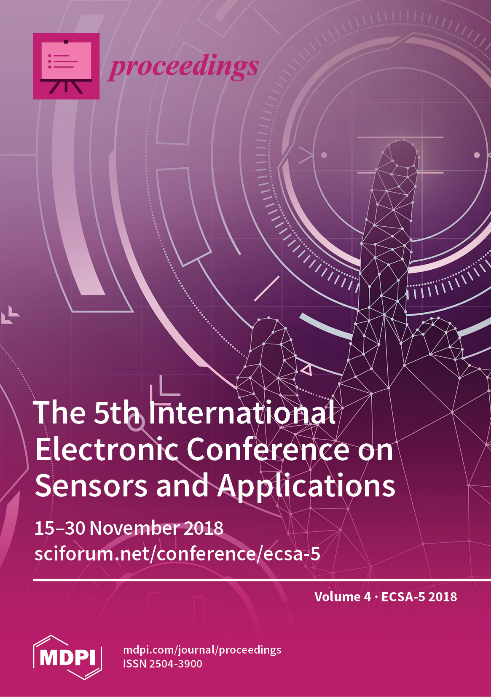
We are pleased to announce that all the accepted submissions of the 5th International Electronic Conference on Sensors and Applications have been published in a dedicated volume of Proceedings, and this volume has now been released online.
Volume Editors: Stefano Mariani, Francesco Ciucci, Dirk Lehmhus, Thomas B. Messervey, Alberto Vallan, Stefan Bosse and Francisco Falcone
This issue of Proceedings gathers the papers presented at the 5th International Electronic Conference on Sensors and Applications (ECSA-5), held on 15–30 November 2018. ECSA-5 collected contributions concerning four thematic areas (Chemo and Biosensors, Physical Sensors, Sensor Networks, and Applications) and four specific sessions (Smart Cities, Smart Sensing Systems and Structures, Structural Health Monitoring Technologies and Sensor Networks, and Wearable Sensors).
We also delighted to announce that the 6th International Electronic Conference on Sensors and Applications now open for contributions. You are welcome to join us at https://ecsa-6.sciforum.net/.
To read the articles published in the volume, please visit the following website: https://www.mdpi.com/2504-3900/4/1.
27 May 2019
Optics: A New Journal Seeking an Editor-in-Chief and Accepting Applications for Editorial Positions

People rely on optics every day. By utilizing the knowledge of how light behaves under different conditions, scientists and engineers develop remarkable technologies that improve our world. In expanding our offerings to the field of optics, MDPI will be launching a broad-interest and high-quality journal, Optics, an open access journal that seeks full research articles in all areas of optics and related interdisciplinary areas. Optics will also act as a medium for exchanging ideas and thoughts regarding the impacts of optical research.
Optics is an international, peer-reviewed open access journal which aims to present cutting edge research related to all aspects of optics. We are now seeking a founding Editor-in-Chief to develop Optics into a leading flagship journal in this field.
The main responsibilities of the Editor-in-Chief include the following:
- Setting the scope and direction of the journal;
- Advising on the strategic development of the journal;
- Ensuring the quality of the published content;
- Coordinating the Editorial Board and stimulating their contributions to the journal;
- Promoting the journal at scientific conferences and through other venues.
We also welcome scientists in the field of optics to join our Editorial Board.
A full application for evaluation should include these items:
- An up-to-date CV;
- A description of the candidate’s vision for Optics.
Applications are due by 20 June 2019. Please send your application or any questions to the Optics Editorial Office ([email protected]).
9 May 2019
New Title Oceans Seeking Founding Editor-in-Chief
Oceans is an international, peer-reviewed open access journal which is aiming to provide cutting-edge research related to all aspects of oceanography. We are now seeking a founding Editor-in-Chief to develop Oceans into a leading flagship journal in this field.
The main responsibilities of the Editor-in-Chief include the following:
- Setting the scope and direction of the journal
- Advising on the strategic development of the journal
- Ensuring the quality of the published content
- Coordinating the Editorial Board and stimulating their contributions to the journal
- Promoting the journal at scientific conferences and through other venues
A full application for evaluation should include these items:
- An up-to-date CV
- A description of the candidate’s vision for Oceans.
Applications are due by 9th July 2019. Please send your application or any questions to the Oceans Editorial Office ([email protected]).
4 April 2019
Meet Us at IGARSS 2019 in Yokohama, Japan, 28 July – 2 August 2019

MDPI will be attending the 2019 IEEE International Geoscience and Remote Sensing Symposium, to be held in Yokohama, Japan, 28 July – 2 August 2019.
This conference will be the 39th annual IGARSS symposium and will continue the excellent tradition of gathering world-class scientists, engineers and educators engaged in the fields of geoscience and remote sensing. We believe that the additional scientific themes of this event, focusing on 'Disasters and Environment' will allow the formation of an inspiring technical program.
IGARSS is recognized today as a premier event in remote sensing and provides an ideal forum for obtaining up-to-date information about the latest developments, exchanging ideas, identifying future trends in your research area and making contacts with the international remote sensing community. With intensive and careful planning underway we anticipate a technically outstanding and most pleasant symposium.
The following MDPI journals will be represented:
Remote Sensing
IJGI
Sensors
Water
Geosciences
Atmosphere
Land
Forests
JMSE
Sustainability
If you are also attending this conference, please feel free to stop by our booth (Booth # 30). Our delegates look forward to meeting you in person to answer any questions you may have. For more information about the conference, please visit https://igarss2019.org/CallForSponsorsExhibitors.asp.
27 March 2019
Meet Us at Transducers 2019 - EUROSENSORS XXXIII, 23–27 June 2019, Berlin, Germany

We will be attending the Transducers 2019 - EUROSENSORS XXXIII event, to be held in Berlin, Germany from 23rd June 2019. The conference covers major areas of activity in the development of Sensor, Actuators and Transducers, including the following:
- Mechanical/Physical Sensors and Microsystems
- Materials, Fabrication, and Packaging Technologies
- Nanoscale Devices and Nanomaterials
- Transducers with Soft, Flexible or Composite Materials
- Chemical and Environmental Sensors and Microsystems
- Bio-Sensors and Bio-Microsystems
- Medical Microsystems
- Microfluidics (non-bio)
- Energy and Power MEMS
- Acoustic Microdevices and RF MEMS
- Integrated Photonics and Optical MEMS
Representatives of the following open access journals will attend:
Sensors
Chemosensors
Biosensors
Actuators
For more information, please access the website: https://transducers-eurosensors2019.org/.
20 March 2019
Fostering Open Access Publishing Worldwide: New IOAP Participants in February and March 2019
We are pleased to welcome more universities from Poland, Italy, Germany, Brazil and other parts of the world to MDPI's Institutional Open Access Program (IOAP). A warm welcome to the institutions listed below, who have joined the Program in February and March this year.
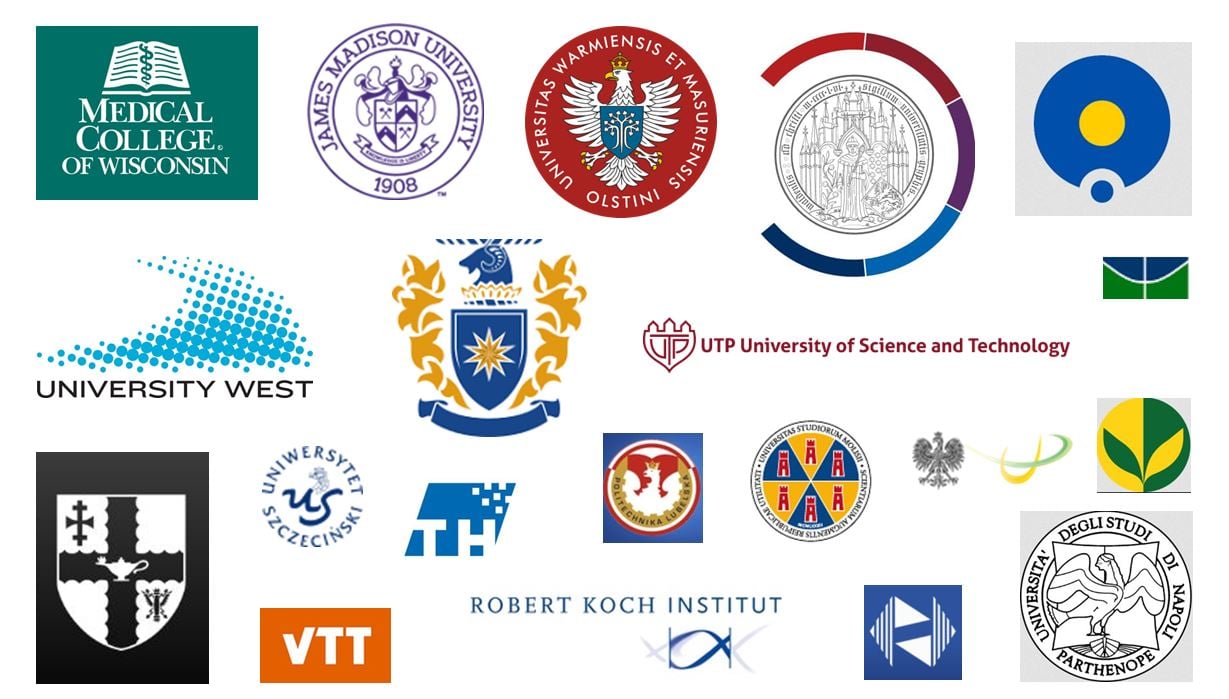
Authors affiliated with these institutions can now enjoy a discount on the APC for papers accepted for publication in any MDPI journal. If you would like to learn more about our program, please visit: https://www.mdpi.com/about/ioap or email us at [email protected].
5 March 2019
MDPI Joins Jisc’s Publications Router Service
We are delighted to announce our participation in Jisc’s Publication Router project, as of March 2019.
Publications Router is a Jisc service that automatically sends notifications about research articles to institutions' systems such as their repositories or CRISs, since May 2015. Through this agreement, MDPI will provide Jisc with daily feeds and information regarding published articles, which will be gathered by their system and delivered to institutions also registered to this service. Nearly all of our articles are published within 15 days of acceptance, so institutions will receive them quite promptly.
The feed will include the full text of the published version of record, with no embargo, so the articles can be exposed immediately for public view. They are accompanied by rich metadata, including confirmation of the immediate CC BY licence, minimising the need for any manual intervention or checking.
For more information about Publications Router, you may contact Jisc’s central helpdesk at [email protected]. For any queries about MDPI’s institutional agreements and collaborations, you may get in touch with MDPI’s Institutional Engagement team at [email protected], which would be very happy to hear from further UK institutions.
1 February 2019
2018 MDPI Top Reviewer Award—Winners Announced
Rigorous peer-review is the cornerstone of high quality academic publishing. Over 97,000 scholars served as reviewers for MDPI journals in 2018. We are extremely appreciative of all those who made a contribution to the editorial process in this capacity. At the beginning of every year, journal editorial offices publish a list all reviewers’ names to express our gratitude. In addition, this year the “MDPI Top Reviewer Awards” are announced, to recognize the very best reviewers for their expertise, dedication, high quality, and timely review reports. We are pleased to announce the following winners of the 2018 MDPI Top Reviewer Awards:
- Ali Behnood
- Andrea Pezzuolo
- Angela Gorgoglione
- Anna D'Auria
- Antonio D'Andrea
- Azhar Abbas
- Bogdan Zagajewski
- Chunhui Chen
- Dominika Głąbska
- Dominika Guzek
- Dragan Pamucar
- Francisco J. G. Silva
- Frank Li
- Gianluca Serafini
- Gyorgy Szekely
- Haozhi Pan
- Helvi Heinonen-Tanski
- José Manuel Gómez-Soberón
- Kathy Lewis
- Klara Kosova
- Luis N. López De Lacalle
- M. Z. Naser
- Malwina Tytła
- Masoume Amirkhani
- Matteo Ghidelli
- Moretti Laura
- Petra Schneider
- Roberto Cerchione
- Spyros Papaefthymiou
- Ştefan Cristian Gherghina
24 January 2019
JAMS Journals: A Low-Cost Publishing Platform

Since 2010, MDPI has run its own online submission system. More recently, we have made the software, with accompanying publishing services, available to other publishers as JAMS (Journal and Article Management System). We are now delighted to announce the launch of JAMS Journals, a standardized platform for operating open access journals at low cost.
JAMS Journals provides a comprehensive service, including a shared submission website, journal websites hosted at a URL provided by the publisher, and a full production service. There is a small setup fee and the cost for each published paper is just a few hundred Swiss francs.
The platform demonstrates that running an open access journal can be straightforward and affordable. The JAMS Journals platform is suitable for
- small publishers or groups of scholars looking to launch their own journal;
- existing publishers or societies seeking to explore open access options;
- publishers looking to convert an existing subscription journal to open access.
JAMS journals launches with two journals from Canadian-based publisher Etcetera Publications:
- Canadian Journal of Pesticides & Pest Management (http://www.cjppm.ca)
- Nanotechnology in Agriculture, Food & Environment (http://www.nanoafe.ca)
Dr AJ Al-Rajab (President of Etcetera Publications) comments:
“In the past few months, we were working on our project to launch new open access scientific journals in the field of agricultural and environmental sciences. We decided to go with JAMS for this venture because of the high quality of their services, reasonable prices, professionalism and easy communication. Our portfolio is expected to grow rapidly during 2019 to include more titles covering different areas in agriculture and environment. MDPI earned already our complete satisfaction and we are looking for a long term cooperation.”
Alongside the new platform, we continue to provide flexible, tailored journal management solutions for existing publishers. For any questions or to request a quotation, contact Dr. Constanze Schelhorn ([email protected]).
24 January 2019
Popularity of Preprints Continues to Grow

2018 was a great year for preprints, with increasing numbers of authors looking to make their papers available online before peer review. Along with other preprint servers, our platform Preprints.org saw an increase in the uptake from authors, and more than double the number of announced papers compared to 2017. In fact, we recently passed two important milestones: 8000 preprints online and 30,000 authors.
We believe that the whole research community has the opportunity to benefit from work being available online as early as possible. We thank and congratulate our authors for supporting us to make this goal a reality.
In 2019, we will be looking carefully at how to provide better value for authors, maintain efficiency while growing in size, and make sure we remain well-connected with the research community.
If you want to participate, you can consider screening preprints or joining our advisory board. And, of course, posting your own work.
9 January 2019
Open Access Agreement between the Austrian Academic Library Consortium (KEMÖ), the Austrian Science Fund (FWF), and MDPI

We are delighted to announce the establishment of our national Open Access agreement with the Austrian Academic Library Consortium (KEMÖ) and the Austrian Science Fund (FWF). Through this national agreement, the Austrian institutions listed below as well as FWF will cover the Article Processing Charges (APC) of manuscripts published by eligible corresponding or funded authors in MDPI journals as long as central funds are available.
All participating institutions have gained access to the MDPI online submission system where they can find full article metadata and pricing information as well as Funder and Grant ID details for easy identification and additional transparency. At the same time eligible authors are benefited from an APC discount which comes at no cost for the institutions.
Eligible corresponding authors affiliated with the participating institutions are prompted to choose the corresponding Institutional Open Access Program (IOAP) when they submit an article via our online submission system. The program will be selected automatically if authors submit their papers using their institutional email address. To claim their discount, FWF funded authors should choose the particular funder and add their Grant ID upon online submission of their manuscript. The institutions will then crosscheck the information and confirm the APC funding.
Eligible authors that have their APC covered by their institution or funder are advised to include the following sentence in their acknowledgments: "Open Access Funding by the [name of the institution/funder]".
The full text of the agreement is openly available online at: http://doi.org/10.5281/zenodo.2536007
For any questions about the agreement, please contact the KEMÖ Consortium at [email protected], FWF at [email protected], or the MDPI IOAP team at [email protected].
The Austrian institutions participating in this agreement are:
- Austrian Science Fund (FWF)
- University for Continuing Education Krems
- University of Applied Sciences BFI Vienna
- University of Applied Sciences Upper Austria
- University of Applied Sciences Technikum Wien
- Vorarlberg University of Applied Sciences
- International Institute for Applied Systems Analysis (IIASA)
- Institute of Science and Technology Austria
- MCI Management Center Innsbruck
- University of Graz
- University of Linz
- University of Salzburg
- Graz University of Technology
- TU Wien
- University of Veterinary Medicine Vienna
- University of Vienna
This is our first collective agreement with a national library consortium, while the individual institutions around the world participating in our IOAP are now more than 500 - see details here: https://www.mdpi.com/about/ioap. We would be mostly interested in discussing about possible collaborations with other consortia, funders, and institutions in our mutual efforts to accelerate Open Access.
2 January 2019
Encyclopedia—the Scholarly Community Encyclopedia

We are pleased to announce the new platform Encyclopedia, which is an online reference created and curated by active scholars. It aims to highlight the latest research results as well as providing benchmark information for researchers and the general public interested in accurate and advanced knowledge on specific topics.
We encourage authors of review articles to quote and adapt the content of their published papers to create Encyclopedia entries. You can create completely new entries on topics in which you have knowledge and expertise. There is no limit on the topics or research fields. All of science and the humanities are included. Each entry will be published directly after submission.
We also have prepared a DOI application function in Encyclopedia. Once a DOI application is approved, the entry website will announce the DOI number and a pdf version with DOI information will be automatically created.
We look forward to your contributions and hope you will make use of this service. Find more about the service at: https://encyclopedia.pub/
20 December 2018
Sensors Is Media Partner for IoT Week 2019, 17-21 June 2019 in Aarhus, Denmark

The 9th International IoT Week will be held in June 2019, from the 17th to the 21st at the Musikhuset in Aarhus, Denmark. The Conference will gather more than 1000 IoT devotees from all around the world to explore a range of topics regarding the impact of IoT on the environment, society and business through following themes:
● International Cooperation & SDGs
● Future Manufacturing and Industry
● Smart Living and Health
● Smart Cities & Communities
● Artificial Intelligence and Smart Data
● IoT Market and Business Models
● IOT Emerging Technologies
● IoT Security and Data Protection
● 5G and IoT Network
● Smart Farming
● IoT Art and Society
Parallel events held at the same venue:
● Global IoT Summit 2019, which will present scientific papers on the most recent IoT research results
● Startup Competition
● Hackathon
● Art Residency
● Exhibition Area
Among the confirmed speakers are representatives of the world's largest companies developing IoT technologies. The list of already confirmed speakers is available on the conference website.
The key institutions involved in the development of IoT in the world such as Microsoft and Grundfos are supporting this gathering.
The Organizing Committee of the IoT Week 2019 comprises the IoT Forum and the It-forum.
Meet us in Aarhus next June!
12 December 2018
Special Issue: Remote Sensors for Applications at Multi-Acquisition Levels and Resolutions, Selected Papers from Brazilian Symposium on Remote Sensing (XIX SBSR), 14–17 April 2019, Santos (SP), Brazil
The XIX Brazilian Symposium on Remote Sensing (XIX SBSR) is the main scientific meeting in Latin America dedicated to the dissemination of remote sensing science and geotechnologies, organized biannually since 1978. The SBSR has been continuously improving to deliver the best scientific services to researchers, companies, and the education community in Brazil by incorporating the highest scientific standards. Today, the SBSR is perceived as a reference event to a wide spectrum of professionals from different areas, including biome monitoring, natural resources, agriculture, ocean, inland waters, and climate change, with a strong positive impact on the general well-being of our society. The SBSR are committed to stimulating the exchange of experiences among participants, disseminating the state-of-the-art of remote sensing applications, and enhancing the cooperation among institutions from Brazil and abroad.
The Brazilian Symposium on Remote Sensing has a target audience composed of Brazilian and international researchers, students, lecturers, and professionals from the public and private sectors, from a large array of interests including mineral resources, agriculture, hydrology and water resources, environment, government authorities, and a wide range of decision makers in Brazil.
This Special Issue is now open for submission. Despite the focus on the XIX SBSR, submissions are not limited to papers presented at the symposium. We seek original and innovative contributions that involve (but are not restricted to) sensor applications, sensing systems and principles, remote sensors, machine learning and modelling approaches, multispectral imaging, hyperspectral imaging, signal processing, data fusion and deep learning, and integrated sensor or internet-of-things technologies, among others. Papers that tackle complex Earth Observation issues by integrating traditional areas of application (e.g., agriculture, geology, oceanography) are also encouraged.
You are invited to submit your paper through the following link:
https://www.mdpi.com/journal/sensors/special_issues/RS_AMALR
11 December 2018
Sponsoring the "Sensors and Sensor Systems" Session at the 2019 IEEE 5th World Forum on Internet of Things (WF-IoT 2019)

Date and Location: 15-18 April 2019 – Limerick, Ireland
Website: http://wfiot2019.iot.ieee.org/
The 2019 IEEE 5th World Forum on IoT (WF-IoT 2019) will be held on the spectacular parkland setting of the University of Limerick 15-18 April 2019. The historic city of Limerick is located in the heart of the beautiful Midwest region of Ireland, on the magnificent Wild Atlantic Way. We look forward to extending a very special Irish welcome and invite you to join us in 2019 for a truly memorable event.
The broad reaching program at WF-IoT attracts industry practitioners, government regulators, public sector executives, as well as researchers and academics interested in the latest developments, new standards, technical innovations, and firsthand experiences with commercial offerings. This year's theme is “IoT and the Digital Revolution.”
15 November 2018
Meet Us at MEMS 2019 in Seoul, Korea, 27–31 January 2019

We will attend the 32nd International Conference on Micro Electro Mechanical Systems (MEMS 2019). It will be held in Seoul, Korea, 27–31 January 2019, and it will be organized by the society of Micro and Nano Systems (SMNS). MEMS 2019 is one of the premier annual events reporting research results on every aspect of microsystems technology. This conference reflects from the rapid proliferation of the commitment and success of the microsystems research community. In recent years, the IEEE MEMS Conference has attracted more than 700 participants and 800+ abstract submissions and has created a forum to present over 200 select papers in podium and poster/oral sessions. Representatives of the following open-access journals will attend:
J – Journal of Multidisciplinary Science
If you are also attending this conference, please feel free to stop by our booth (booth #40). Our delegates look forward to meeting you in person to answer any questions you may have. For more information about the conference, please visit http://mems19.org/html/main.php.
13 November 2018
Meet US at MicroTAS 2018 in Kaohsiung, Taiwan, 11–15 November 2018

Our editors and colleagues are attending the 22nd International Conference on Miniaturized Systems for Chemistry and Life Sciences (µTAS 2018). The conference is being held at the Kaohsiung Exhibition Center in Kaohsiung, Taiwan from 11 to 15 November 2018, organized by the Chemical and Biological Microsystems Society (CBMS).
µTAS 2018 continues a series of Conferences that are the premier forum for reporting research results in microfluidics, microfabrication, nanotechnology, integration, materials and surfaces, analysis and synthesis, and detection technologies for life science and chemistry. Representatives of the following open access journals will attend:
International Journal of Molecular Sciences (IJMS)
Journal of Multidisciplinary Science (J)
If you're attending the conference too, please feel free to stop by our booth (Booth #350). Our delegates look forward to meeting you in person to answer any questions you may have. For more information about the conference, please visit: https://cbmsociety.org/conferences/microtas2018/
30 October 2018
Institutional Open Access Agreement between Bill and Melinda Gates Foundation and MDPI

We are delighted to announce that the Bill and Melinda Gates Foundation (BMGF) is now a participant of our Institutional Open Access Program (IOAP). Authors funded by the BMGF can enjoy discounts on the APC, while the funder covers the costs of eligible articles centrally. BMGF also has access to the MDPI online submission system where they can find full article metadata and pricing information as well as Grant ID details for easy identification and additional transparency.
We hope that funded authors find the programme beneficial and we are happy to offer our IOAP to other funders that need a streamlined workflow of compliance checking and APC coverage.
To claim their discount, BMGF funded authors should choose the particular funder and add their Grant ID upon online submission of their manuscript.
For any questions about the BMGF agreement, please contact the funder at [email protected] or the MDPI IOAP team at [email protected].
2 October 2018
MDPI Welcomes Plan S
Recently, it was announced that a group of European funders supported 10 principles that will help to expand open access, known as Plan S. MDPI warmly welcomes this move as a step towards achieving more open and accessible communication of research across all disciplines. Some aspects remain to be clarified, however the details given so far match the aims and values that MDPI has held over the past two decades.

We believe that open access publishers should be active participants in discussions around Plan S, particularly regarding potential new business models and practical aspects of implementation. MDPI supports APCs as a transparent unit of payment for article publishing, however we are committed to exploring other measures and recently signed the Jussieu Call. Sustainability is a key value for MDPI, and future funding models should have at their heart the sustainability of knowledge and research dissemination. Plan S provides an opportunity for funders and publishers to directly discuss funding of open access journals in ways that are beneficial to all parties involved.
5 September 2018
Meet Us at MRS Fall Meeting in Boston, USA, 25–30 November 2018

MDPI will be attending 2018 MRS Fall Meeting & Exhibit, to be held in Boston, USA, 25–30 November 2018.
This conference is the key forum to present research to an interdisciplinary and international audience. It provides a window on the future of materials science and offers an opportunity for researchers—from students and postdoctoral fellows, to Nobel and Kavli Prize Laureates—to exchange technical information and network with colleagues.
The following MDPI journals will be represented:
- Materials
- Polymers
- Energies
- Nanomaterials
- Metals
- Journal of Functional Biomaterials (JFB)
- Processes
- Sensors
- Sustainability
- C
- Journal of Manufacturing and Materials Processing (JMMP)
- Biomimetics
- Methods and Protocols (MPs)
If you are also attending this conference, please feel free to stop by our booth (Booth #123). Our delegates look forward to meeting you in person to answer any questions you may have. For more information about the conference, please visit: https://www.mrs.org/fall2018
30 August 2018
MDPI establishes Open Access agreement with Qatar National Library

We are happy to announce the establishment of an Open Access (OA) agreement with Qatar National Library (QNL). QNL is committed to supporting and helping Qatar authors publish OA at no cost. Through this national agreement, QNL will cover the Article Processing Charges (APC) of manuscripts published by Qatar-based corresponding authors in MDPI journals.
Eligible corresponding authors affiliated with Qatar research centers and universities are prompted to choose QNL as part of our Institutional Open Access Program (IOAP) when they submit an article via our online submission system. The program will be selected automatically if authors submit their papers using their institutional email and/or a computer registered with the institution’s IP range. QNL will then crosscheck the information and confirm the APC funding.
Qatar authors that have their APC covered by QNL are advised to include the following sentence in their acknowledgments: "The publication of this article was funded by Qatar National Library".
For more information, please visit Open Access at QNL or email the QNL Open Access team at [email protected].
26 June 2018
2017 Impact Factor Released for Sensors: 2.475
We are pleased to inform that Sensors received an updated Journal Impact Factor of 2.475 in the June 2018 release of the Journal Citation Reports®.The journal's 5-Year Impact Factor is 3.014. Sensors now ranks 30/80 (Q2) in the category 'Analytical Chemistry', 15/28 (Q3) in 'Electrochemistry' and 16/61 (Q2) in 'Instruments & Instrumentation.'
Overview of Citation Metrics:
- Journal Impact Factor, 2 yrs (2017): 2.475
- 5-Year Impact Factor (2017): 3.014
- CiteScore, 3 yrs (Scopus): 3.23
- SJR Scimago Journal Rank 2017(SJR): 0.584
- Source Normalized Impact 2017 (SNIP): 1.550
Evolution of Impact Factor, Citations and Publications for Remote Sensing:
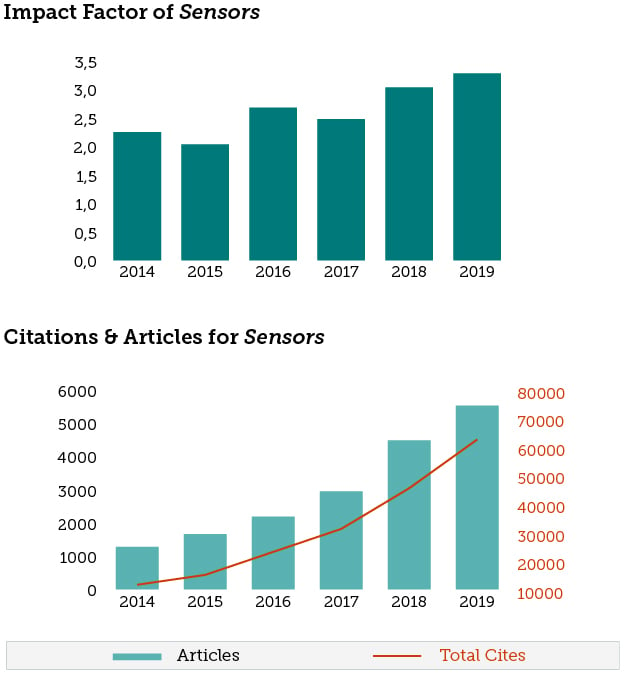
Source: data according to Journal Citation Reports®, 2018 release, a Clarivate Analytics product; and Scopus journal metrics.
15 June 2018
Call for Participation at the '5th International Electronic Conference on Sensors and Applications' (ECSA-5)
We are pleased to announce the 5th International Electronic Conference on Sensors and Applications (ECSA-5). After the success of the four editions from 2014 to 2017, this year's edition will focus on four thematic areas where sensors are changing science:
- Chemo and Biosensors (Session A)
- Physical Sensors (Session B)
- Sensor Networks (Session C)
- Applications (Session D)
There will be 4 specific sessions on:
- Smart Cities (Specific Session S1)
- Smart Sensing Systems and Structures (Specific Session S2)
- Structural Health Monitoring Technologies and Sensor Networks (Specific Session S3)
- Wearable Sensors (Specific Session S4)
Abstracts (in English) should be submitted before 10 September 2018 online at https://sciforum.net/login. The conference aims to bring the scientists working in the field onto a common platform and promote and advance the exciting and rapidly changing field of sensing technologies and applications.
More info can be found at https://ecsa-5.sciforum.net/.
8 June 2018
Meet us at the EUROSENSORS 2018 Conference (Booth #13), Graz, Austria, 9–12 September 2018

We will be attending the EUROSENSORS 2018 conference. EUROSENSORS 2018 will be hosted in Graz, Austria’s second largest city, with a beautiful historic old town that is a UNESCO World Cultural Heritage Site. The conference venue will be the University of Graz, founded in 1585, which is one of the largest universities in Austria with about 32,500 students. Many excellent scientists, including six Nobel laureates such as Erwin Schroedinger, Otto Loewi and Viktor Hess, have taught and researched here.
All the accepted Eurosensors 2018 submissions will also be published in open access form in the MDPI journal Proceedings. For the publications from Eurosensors 2017, please visit at: https://www.mdpi.com/2504-3900/1/4
Representatives of the following open access journals will attend:
Sensors
Chemosensors
Biosensors
Actuators
Materials
1 June 2018
Sensors 2017 CiteScore™ Announced - 3.23
We are pleased to report Sensors received a CiteScore of 3.23 for 2017. The metric reflects citation activity in 2017 in Scopus for papers published in the period 2014‒2016.
For the full details in the current CiteScore release, please see the journal's Source profile. To check the full list of MDPI journals receiving CiteScores, please see here.
31 May 2018
2017 CiteScore™ Metrics Released
The 2017 CiteScore™ data is available now, based on citation data in the Scopus® database. The current CiteScore reflects citation activity in 2017 for articles published in 2014‒2016. Please note that the list below includes journals assigned a CiteScore in this year’s release. For a full list of journals indexed in Scopus, please see our journal list.
Thirteen of our journals received a CiteScore which is in the top 10% of the distribution in at least one of the categories (marked with * in the table below), while a further 32 journals exhibit scores that are in the first quartile of the respective categories.
To access the full data for MDPI journals, please see here. More data can also be found in SJR Scimago Journal & Country Rank.
Unlike CiteScores and the widely used Journal Impact Factors, the Source Normalized Impact per Paper (SNIP) metrics are normalized in order to correct for differences in citation practices between scientific fields. Therefore, the SNIP allows direct comparison between journals specialized in different fields.
According to 2017 data, MDPI publishes six journals with an average citation impact, or SNIP, in excess of 1.500. These journals are Biomolecules, Cancers, Journal of Clinical Medicine (JCM), Marine Drugs, Remote Sensing and Sensors (see the last column in the table below).
CiteScore Data for MDPI Journals
| Journal | Rank (Quartile) |
Category | Link | CiteScore 2017 | 2016 |
2015 |
SNIP 2017 |
| Aerospace | 43/116 (Q2) | • Aerospace Engineering | Link | 1.23 | - | - | 1.152 |
| Agriculture | 69/309 (Q1) 91/398 (Q1) 78/255 (Q2) |
• Agronomy and Crop Science • Plant Science • Food Science |
Link | 1.93 | - | - | 1.133 |
| Agronomy | 46/309 (Q1) | • Agronomy and Crop Science | Link | 2.38 | - | - | 1.115 |
| Algorithms | 22/46 (Q2) 61/125 (Q2) 60/107 (Q3) 64/114 (Q3) |
• Numerical Analysis • Computational Mathematics • Computational Theory and Mathematics • Theoretical Computer Science |
Link | 1.03 | 1.15 | 1.07 | 0.749 |
| Animals | 12/154 (Q1) * 48/367 (Q1) |
• General Veterinary • Animal Science and Zoology |
Link | 2.02 | 1.46 | 1.66 | 1.099 |
| Antibiotics | 6/68 (Q1) * 62/263 (Q1) 55/230 (Q1) 31/108 (Q2) 47/134 (Q2) 139/398 (Q2) |
• General Pharmacology, Toxicology and Pharmaceutics • Infectious Diseases • Pharmacology (medical) • Microbiology (medical) • Microbiology • Biochemistry |
Link | 2.85 | 1.65 | - | 0.975 |
| Antibodies | 43/143 (Q2) 61/164 (Q2) 85/189 (Q2) |
• Drug Discovery • Immunology and Allergy • Immunology |
Link | 2.85 | - | - | 0.844 |
| Antioxidants | 23/119 (Q1) 35/169 (Q2) 100/398 (Q2) 119/367 (Q2) 102/264 (Q2) |
• Clinical Biochemistry • Physiology • Biochemistry • Molecular Biology • Cell Biology |
Link | 3.42 | - | - | 1.361 |
| Applied Sciences | 48/270 (Q1) 15/66 (Q1) 31/116 (Q2) 18/53 (Q2) 151/434 (Q2) 186/535 (Q2) |
• General Engineering • Fluid Flow and Transfer Processes • Instrumentation • Process Chemistry and Technology • General Materials Science • Computer Science Applications |
Link | 1.90 | - | - | 0.801 |
| Biology | 12/177 (Q1)* 32/186 (Q1) 10/40 (Q1) |
• General Agricultural and Biological Sciences • General Biochemistry, Genetics and Molecular Biology • General Immunology and Microbiology |
Link | 3.48 | 3.02 | 2.78 | 0.961 |
| Biomolecules | 31/398 (Q1) * 41/367 (Q1) |
• Biochemistry • Molecular Biology |
Link | 5.72 | 1.67 | 3.08 | 1.542 |
| Biosensors | 20/119 (Q1) | • Clinical Biochemistry | Link | 3.59 | 2.83 | 2.37 | 1.122 |
| Brain Sciences | 47/111 (Q2) | • General Neuroscience | Link | 2.56 | - | - | 0.695 |
| Cancers | 26/323 (Q1) * 23/191 (Q1) |
• Oncology • Cancer Research |
Link | 5.82 | 5.02 | 4.07 | 1.567 |
| Catalysts | 32/151 (Q1) 21/46 (Q2) |
• Physical and Theoretical Chemistry • Catalysis |
Link | 3.23 | 3.44 | 3.45 | 0.954 |
| Crystals | 76/272 (Q2) 140/434 (Q2) 127/398 (Q2) 26/64 (Q2) |
• General Chemical Engineering • General Materials Science • Condensed Matter Physics • Inorganic Chemistry |
Link | 1.97 | 1.89 | 1.47 | 0.745 |
| Diagnostics | 49/119 (Q2) | • Clinical Biochemistry | Link | 2.43 | - | - | 0.788 |
| Diversity | 30/124 (Q1) 14/52 (Q2) 83/306 (Q2) 11/29 (Q2) |
• Nature and Landscape Conservation • Agricultural and Biological Sciences (miscellaneous) • Ecology • Ecological Modelling |
Link | 2.15 | 2.03 | 1.96 | 1.300 |
| Electronics | 109/644 (Q1) 26/148 (Q1) 42/224 (Q1) 50/259 (Q1) 23/96 (Q1) |
• Electrical and Electronic Engineering • Hardware and Architecture • Control and Systems Engineering • Computer Networks and Communications • Signal Processing |
Link | 2.97 | - | - | 1.227 |
| Energies | 6/73 (Q1) * 31/192 (Q1) 103/644 (Q1) 4/16 (Q1) 47/140 (Q2) |
• Control and Optimization • Energy Engineering and Power Technology • Electrical and Electronic Engineering • Energy (miscellaneous) • Renewable Energy, Sustainability and the Environment |
Link | 3.11 | 2.50 | 2.87 | 1.340 |
| Entropy | 35/202 (Q1) | • General Physics and Astronomy | Link | 2.41 | 1.87 | 1.99 | 1.189 |
| Forests | 17/129 (Q1) | • Forestry | Link | 2.31 | 2.06 | 1.76 | 0.990 |
| Future Internet | 132/259 (Q3) | • Computer Networks and Communications | Link | 1.25 | - | - | - |
| Games | 132/187 (Q3) 78/110 (Q3) 305/418 (Q3) |
• Statistics and Probability • Statistics, Probability and Uncertainty • Applied Mathematics |
Link | 0.61 | 0.87 | 0.57 | 1.038 |
| Genes | 21/91 (Q1) 74/311 (Q1) |
• Genetics (clinical) • Genetics |
Link | 3.49 | 3.62 | 3.18 | 0.374 |
| Geosciences | 32/182 (Q1) |
• General Earth and Planetary Sciences | Link | 1.97 | 1.67 | 1.29 | 0.856 |
| Information | 143/251 (Q3) | • Information Systems | Link | 1.16 | 0.78 | 0.94 | 1.146 |
| Insects | 27/135 (Q1) | • Insect Science | Link | 1.85 | 1.81 | 1.38 | 0.719 |
| International Journal of Environmental Research and Public Health (IJERPH) | 80/478 (Q1) 34/106 (Q2) |
• Public Health, Environmental and Occupational Health • Health, Toxicology and Mutagenesis |
Link | 2.41 | 2.38 | 2.42 | 0.931 |
| International Journal of Molecular Sciences (IJMS) | 7/69 (Q1) * 61/535 (Q1) 20/163 (Q1) 9/64 (Q1) 26/151 (Q1) 89/367 (Q2) 17/46 (Q2) |
• Spectroscopy • Computer Science Applications • Organic Chemistry • Inorganic Chemistry • Physical and Theoretical Chemistry • Molecular Biology • Catalysis |
Link | 3.86 | 3.73 | 3.37 | 0.998 |
| ISPRS International Journal of Geo-Information (IJGI) | 79/605 (Q1) 22/82 (Q2) 13/36 (Q2) |
• Geography, Planning and Development • Earth and Planetary Sciences (miscellaneous) • Computers in Earth Sciences |
Link | 2.10 | 1.62 | 1.52 | 1.062 |
| Journal of Clinical Medicine (JCM) | 10/841 (Q1) * | • General Medicine | Link | 7.07 | - | - | 1.535 |
| Journal of Functional Biomaterials (JFB) | 43/199 (Q1) 23/77 (Q2) |
• Biomedical Engineering • Biomaterials |
Link | 3.47 | - | - | 1.344 |
| Journal of Low Po- wer Electronics and Applications (JLPEA) |
301/644 (Q2) | • Electrical and Electronic Engineering | Link | 1.12 | 0.98 | 0.83 | 0.367 |
| Journal of Personalized Medicine (JPM) | 54/189 (Q2) | • Medicine (miscellaneous) | Link | 2.61 | - | - | 0.944 |
| Land | 50/124 (Q2) 129/306 (Q2) 36/65 (Q3) |
• Nature and Landscape Conservation • Ecology • Global and Planetary Change |
Link | 1.44 | - | - | 0.658 |
| Life | 4/94 (Q1) * 70/561 (Q1) 40/186 (Q1) 20/80 (Q2) |
• Palaeontology • Ecology, Evolution, Behavior and Systematics • General Biochemistry, Genetics and Molecular Biology • Space and Planetary Science |
Link | 3.16 | 2.95 | 1.68 | 0.935 |
| Marine Drugs | 17/146 (Q1) | • Drug Discovery | Link | 4.58 | 3.83 | 3.66 | 1.537 |
| Materials | 83/434 (Q1) | • General Materials Science | Link | 3.02 | 3.26 | 3.11 | 1.285 |
| Membranes | 5/18 (Q2) 15/53 (Q2) 4/10 (Q2) |
• Chemical Engineering (miscellaneous) • Process Chemistry and Technology • Filtration and Separation |
Link | 2.69 | 2.19 | 2.95 | 0.880 |
| Metabolites | 47/209 (Q1) 103/398 (Q2) 127/367 (Q2) |
• Endocrinology, Diabetes and Metabolism • Biochemistry • Molecular Biology |
Link | 3.35 | - | - | 0.925 |
| Metals | 155/434 (Q2) | • General Materials Science | Link | 1.87 | - | - | 0.955 |
| Micromachines | 105/554 (Q1) 154/644 (Q1) 64/224 (Q2) |
• Mechanical Engineering • Electrical and Electronic Engineering • Control and Systems Engineering |
Link | 2.31 | 1.83 | 1.78 | 0.987 |
| Minerals | 33/175 (Q1) 45/208 (Q1) |
• Geotechnical Engineering and Engineering Geology • Geology |
Link | 2.21 | 2.13 | 1.77 | 1.149 |
| Molecules | 4/25 (Q1) 25/172 (Q1) 18/104 (Q1) 31/163 (Q1) 30/151 (Q1) 31/146 (Q1) 55/160 (Q2) |
• Chemistry (miscellaneous) • Pharmaceutical Science • Analytical Chemistry • Organic Chemistry • Physical and Theoretical Chemistry • Drug Discovery • Molecular Medicine |
Link | 3.27 | 3.09 | 2.65 | 1.146 |
| Nutrients | 11/255 (Q1) * 9/112 (Q1) * |
• Food Science • Nutrition and Dietetics |
Link | 4.35 | 4.29 | 4.07 | 1.403 |
| Pathogens | 38/263 (Q1) 20/108 (Q1) 9/40 (Q1) 40/164 (Q1) 110/367 (Q2) |
• Infectious Diseases • Microbiology (medical) • General Immunology and Microbiology • Immunology and Allergy • Molecular Biology |
Link | 3.52 | - | - | 1.166 |
| Pharmaceuticals | 14/172 (Q1) * 33/160 (Q1) |
• Pharmaceutical Science • Molecular Medicine |
Link | 4.12 | 4.90 | 3.64 | 1.370 |
| Pharmaceutics | 21/172 (Q1) | • Pharmaceutical Science | Link | 3.68 | 3.83 | 2.68 | 1.092 |
| Photonics | 30/116 (Q1) 80/270 (Q2) 53/160 (Q2) |
• Instrumentation • Radiology Nuclear Medicine and Imaging • Atomic and Molecular Physics, and Optics |
Link | 1.96 | - | - | 0.817 |
| Plants | 73/561 (Q1) 48/389 (Q1) 44/306 (Q1) |
• Ecology, Evolution, Behavior and Systematics • Plant Science • Ecology |
Link | 3.13 | - | - | 0.969 |
| Polymers | 17/142 (Q1) 63/359 (Q1) |
• Polymers and Plastics • General Chemistry |
Link | 3.30 | 3.74 | 3.37 | 1.213 |
| Religions | 26/389 (Q1) * | • Religious Studies | Link | 0.56 | - | - | 0.676 |
| Remote Sensing | 13/182 (Q1) * | • General Earth and Planetary Sciences | Link | 4.03 | 3.56 | 3.76 | 1.559 |
| Resources | 19/142 (Q1) 39/261 (Q1) |
• Nature and Landscape Conservation • Management, Monitoring, Policy and Law |
Link | 2.69 | - | - | 1.387 |
| Scientia Pharmaceutica | 92/172 (Q3) | • Pharmaceutical Science | Link | 0.86 | - | - | 0.513 |
| Sensors | 9/116 (Q1) * 25/160 (Q1) 100/644 (Q1) 19/104 (Q1) 113/398 (Q2) |
• Instrumentation • Atomic and Molecular Physics, and Optics • Electrical and Electronic Engineering • Analytical Chemistry • Biochemistry |
Link | 3.23 | 2.78 | 2.21 | 1.550 |
| Social Sciences | 81/213 (Q2) | • General Social Sciences | Link | 0.60 | - | - | 0.445 |
| Sustainability | 61/605 (Q1) * 55/261 (Q1) 60/140 (Q2) |
• Geography, Planning and Development • Management, Monitoring, Policy and Law • Renewable Energy, Sustainability and the Environment |
Link | 2.37 | 1.96 | 1.78 | 1.030 |
| Symmetry | 44/327 (Q1) 17/45 (Q2) 16/40 (Q2) 14/25 (Q2) |
• General Mathematics • Computer Science (miscellaneous) • Physics and Astronomy (miscellaneous) • Chemistry (miscellaneous) |
Link | 1.32 | 1.12 | 0.95 | 0.802 |
| Toxins | 18/106 (Q1) 21/111 (Q1) |
• Health, Toxicology and Mutagenesis • Toxicology |
Link | 3.32 | 3.34 | 3.76 | 1.136 |
| Vaccines | 5/230 (Q1) * 13/263 (Q1) * 18/302 (Q1) * 11/146 (Q1) * 32/189 (Q1) |
• Pharmacology (medical) • Infectious Diseases • Pharmacology • Drug Discovery • Immunology |
Link | 4.88 | 1.23 | 3.76 | 1.255 |
| Viruses | 29/263 (Q1) 16/68 (Q1) |
• Virology • Infectious Diseases |
Link | 3.88 | 3.60 | 3.74 | 1.130 |
| Water | 66/605 (Q1) 37/191 (Q1) 43/199 (Q1) 193/398 (Q2) |
• Geography, Planning and Development • Water Science and Technology • Aquatic Science • Biochemistry |
Link | 2.29 | 2.05 | 1.96 | 1.007 |
30 May 2018
MDPI sponsors the latest issue of CHIMIA
30 April 2018
Winners of the First MDPI Writing Prize
We are pleased to announce the results of the first MDPI Writing Prize. We received a large number of entries from across the globe on the theme of “The Global Benefits of Open Research”. It was a pleasure to read so many original, well-researched and well-presented ideas, and the final choice was not an easy one. We are pleased to announce that the winners are as follows:
1st prize (500 CHF, Swiss knife and certificate)
Edmond Sanganyado, Shantou University, China
2nd prizes (250 CHF, Swiss knife and certificate)
Kamala T. Rajahgopal, Asia e University, Malaysia
Yin Zhixuan, Qingdao University of Technology, China
3rd prizes (100 CHF, Swiss knife and certificate)
Alexandra Ticea, Carol Davila University of Medicine and Pharmacy, Romania
Ankur Sarker, University of Virginia, USA
Daniel Attoye, United Arab Emirates University, UAE
Congratulations to all of them! The winning entries can be downloaded by clicking on the names above. A compilation of all entries will soon be available as an open access book.
The writing prize is sponsored by the MDPI English editing service.
23 March 2018
Check for Updates: A New Function in the Article PDF Version

At MDPI, we always want to keep you up to date. Even for already published articles, some corrections or minor changes may occur. To prevent you from missing any updates, from now on you will be able to access the latest version of any manuscript by clicking on the “check for updates” logo that you can find in the PDF file, even if you have saved the file on your computer.
13 March 2018
MDPI Becoming a Member of UKSG
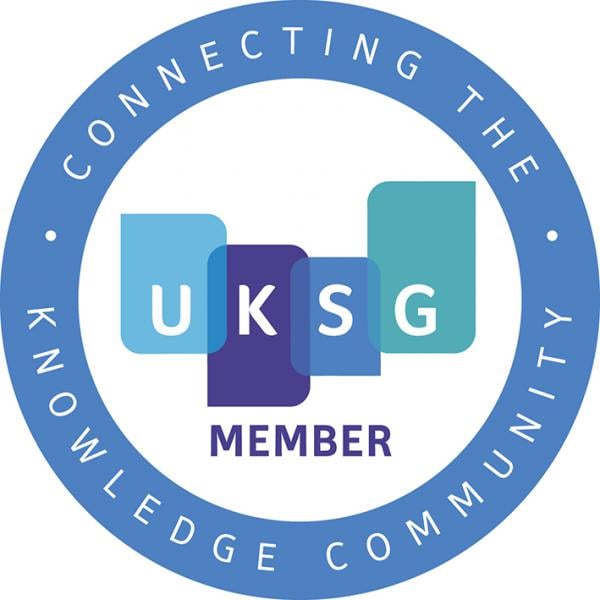
We are proud to announce that MDPI is now a member of UKSG, the UK´s largest scholarly communications community. Through UKSG, different stakeholders share their knowledge and experience in order to improve the knowledge and information environment for researchers. UKSG´s members include universities, publishers, content providers, intermediaries, and other similar organisations. Members participate in discussions and events on issues around scholarly communications.
The UKSG Annual Conference and Exhibition is a flagship initiative from the UKSG and one of the most stimulating events in the scholarly communications calendar. It is held annually and attracts a large number of delegates. More information is available at https://www.uksg.org/events/annualconference
MDPI is delighted to be a part of this active community and we look forward to making our own contribution. We will continue to support organisations and initiatives that boost collaboration and vision within scholarly communication.
More information about UKSG can be found at https://www.uksg.org/. The full membership list is available at: https://www.uksg.org/members.
8 March 2018
Meet Us at NANOTECH 2018 in Anaheim, CA, USA, 13–16 May 2018

We will be attending the 20th annual Nanotech 2018 Conference & Expo (NANOTECH 2018), co-located with the TechConnect World Innovation Conference, Defense TechConnect Summit and Spring SBIR/STTR Conference. The event will attract more than 350 featured exhibitors and an expected crowd of more than 4000 attendees, including business executives, venture capitalists, politicians, s cientists and researchers from over 70 countries. Nanotech contains 38 symposiums and brings together specialists from a wide range of scientific fields, technology and business.
Representatives of the following open access journals will attend:
Sensors
Materials
Nanomaterials
Journal of Functional Biomaterials (JFB)
Journal of Imaging
Sustainability
Fluids
Photonics
Electronics
Catalysts
Applied Sciences
Inventions
Diagnostics
Cancers
Journal of Low Power Electronics and Applications (JLPEA)
Designs
Pharmaceuticals
C
Inorganics
International Journal of Environmental Research and Public Health (IJERPH)
Machines
Pharmaceutics
Journal of Manufacturing and Materials Processing (JMMP)
Actuators
Robotics
Energies
Biosensors
Chemosensors
Membranes
Coatings
Micromachines
If you will also attend this conference, please feel free to stop by our booth (Booth # 317). Our delegates look forward to meeting you in person to answer any questions you may have. For more information about the conference, please visit:
https://www.techconnectworld.com/Nanotech2018/
Conference Location:
Anaheim Convention Center,
800 W Katella Avenue
Anaheim CA 92802
USA
1 February 2018
MDPI Signed the San Francisco Declaration on Research Assessment (DORA)

The DORA initiative addresses the need for advanced approaches in the evaluation and measurement of the quality of scientific research outputs. It is a worldwide initiative covering all scholarly disciplines. MDPI proudly joins a list of more than 400 organizations around the world which support DORA’s recommendations for improving the way the quality of research results is evaluated.
More info can be found at http://www.ascb.org/dora/
25 January 2018
Meet Us at the ACS National Meeting & Exposition in New Orleans, USA, 18–22 March 2018

We will be attending the 255th ACS National Meeting & Exposition. It is an interdisciplinary forum open to anyone with an interest in Chemistry and the related disciplines. Representatives of the following open access journals will attend:
Agronomy
Applied Sciences
Beverages
Biomimetics
Biosensors
C
Catalysts
ChemEngineering
Chemosensors
Coatings
Energies
Environments
Fibers
Foods
Gels
Inorganics
Journal of Marine Science and Engineering (JMSE)
Lubricants
Materials
Mathematics
Metals
Molecules
Nanomaterials
Polymers
Processes
Resources
Safety
Sensors
Separations
Sustainability
Symmetry
Toxins
Water
If you are also attending this conference, please feel free to stop by our booth (Booth #640). Our delegates look forward to meeting you in person to answer any questions you may have. For more information about the conference, please visit: https://www.acs.org/content/acs/en/meetings/national-meeting.html?sc=home_meetings_170818_mtg_NO18_od
10 January 2018
Call for Expression of Interest in Hosting Conferences
The Steering Committees of the International Symposium on Sensor Science (I3S), the International Symposium on Frontiers in Molecular Science (ISFMS) and the Symmetry Conference are seeking Expression of Interest (EoI) from universities/organizations/individual scholars to host an edition of the conference series. There is no restriction in the geographic areas considered.
For full reading, please refer to:
International Symposium on Sensor Science (I3S): https://sciforum.net/conference/I3S_EoI
International Symposium on Molecular Science (ISFMS): https://sciforum.net/conference/MolSci_EoI
Symmetry Conference: https://sciforum.net/conference/Symmetry_EoI
Please feel free to contact us at [email protected]
2 January 2018
Meet Us at IEEE International Conference on Micro Electro Mechanical Systems (MEMS 2018), Belfast, UK, 21-25 January 2018
We will be attending the 31st IEEE International Conference on Micro Electro Mechanical Systems (MEMS 2018) (http://www.mems2018.org/). The MEMS 2018 will bring together academics from all over the world to one meeting covering on every aspect of Microsystems technology. This conference reflects from the rapid proliferation of the commitment and success of the microsystems research community. Its single-session format provides ample opportunity for interaction between attendees, presenters and exhibitors. Representatives of the following open access journals will attend:
Sensors
Micromachines
Machines
Actuators
Journal of Manufacturing and Materials Processing (JMMP)
If you are also attending this conference, please feel free to stop by our booth (Booth #9). Our delegates look forward to meeting you in person to answer any questions you may have. For more information about the conference, please visit: http://www.mems2018.org/.
Conference Location:
Belfast Waterfront
2 Lanyon Place
Belfast BT1 3WH
UK
29 December 2017
Meet Us at the EGU General Assembly 2018 in Vienna, 8–13 April 2018

We will be attending the General Assembly 2018 of the European Geosciences Union (EGU) (https://egu2018.eu/home.html). The EGU General Assembly 2018 will bring together geoscientists from all over the world to one meeting covering all disciplines of the Earth, planetary and space sciences. It aims to provide a forum where scientists, especially early career researchers, can present their work and discuss their ideas with experts in all fields of geoscience. Representatives of the following open access journals will attend:
Remote Sensing
Geosciences
ISPRS International Journal of Geo-Information
Water
Animals
Atmosphere
Climate
Environments
Forests
Hydrology
International Journal of Environmental Research and Public Health (IJERPH)
Journal of Marine Science and Engineering
Land
Minerals
Resources
Quaternary
Sensors
If you are also attending this conference, please feel free to stop by our booth (Booth #36). Our delegates look forward to meeting you in person to answer any questions you may have. For more information about the conference, please visit: https://egu2018.eu/home.html.
28 December 2017
6th International Symposium on Sensor Science (I3S 2018) and 4th SPINTECH Technology Thesis Award, 6–8 August 2018, Kenting, Taiwan

Sensors are vital components of smart manufacturing, artificial Intelligence, Cyber–Physical System (CPS) and Internet of Things (IoT) for industry 4.0. For more advanced creations, biologists, engineers, physicists and chemists are all endeavoring to provide innovative technical sensors. In 2018, the journal Sensors is going to hold an international conference in Kenting, which is located in the south of Taiwan; the conference is taking place in Asia for the first time.
I3S embraces all professionals from industry, academia and government to discuss the latest developments and breakthroughs of sensor technology and related subjects. During the conference, attendees, from a range of research areas, will all gather together to share different aspects and establish new mutually beneficial collaborations across different fields.
Conference scope: Physical Sensors; Sensor Networks; Sensors Application; Biosensors; Chemical Sensors; IOT sensor and application.
We sincerely look forward to your participation in I3S2018.
19 December 2017
Announcing the MDPI English Writing Prize
The competition is still open until end of March! Please check out the banner for more details: https://mdpi-res.com/data/english-prize.pdf
15 December 2017
UCL Press Adopts the MDPI Editorial Platform JAMS

We are delighted to announce that UCL Press has adopted MDPI's Journal Article & Management System, JAMS, including production services. JAMS is a modular, integrated editorial platform for academic publishers. It offers flexibility, ease-of-use, and is a fully integrated solution for the end-to-end management of scholarly journals. JAMS is based on the software used to publish MDPI’s portfolio of journals.
Ian Caswell, UCL Press Journals Manager, says he is "excited to see UCL Press and MDPI partner together to implement the JAMS submission system for all UCL Press journals. The system offered a flexible, efficient and straightforward solution for our processes from author submission to ready for publication. I am grateful for the valuable experience and support MDPI have offered and look forward to developing our programme with an effective submission system in place.” Dr Martyn Rittman, MDPI’s Publishing Services Manager, adds, “We are proud to support one of the UK’s premier university presses in their publishing operation. This is an excellent way for us at MDPI to share our experience and knowledge, and benefit the research community beyond our own journals.”
JAMS combines services that are kept separate for many publishers. The entire editorial process, production and invoicing (e.g. for open access article processing charges) are fully integrated into a single platform. This allows for efficient, fast manuscript processing. For further information about JAMS, see https://www.mdpi.com/publishing_services.
23 November 2017
New Participants in the Institutional Open Access Program (IOAP)
We are pleased to welcome new participants to MDPI's Institutional Open Access Program (IOAP), designed to help institutions manage the transition to the Open Access publishing model. Researchers affiliated with participating universites benefit from a 10% discount on the Article Processing Charges (APC) for any paper published in an MDPI journal, while the participating library or university incurs no basic fee for participating in the program.
The IOAP set of free services, provided by MDPI to institutions that sign up, include:- No fee for participants and no obligation to prolong after the initial 12 months. The participants may withdraw from the programme at any time, and we will also keep it free for the library for as long as they continue in the programme.
- Authors affiliated with the university will receive a 10% discount on the APC.
- The institution is granted free access to the MDPI submission system and can receive free alerts of new submissions to our journals.
- By default, authors from the institution will continue to be invoiced directly unless the institution opts for central billing.
- Auto-archiving of papers into the institutions´ repository as long as it supports SWORD 1.3.
More details about the programme and a list of our current participant institutions can be found at: https://www.mdpi.com/about/ioap
Institutions which are interested to participate may do so online at: https://www.mdpi.com/ioap-form
The following North American universities have signed up to the IOAP program recently:
Connecticut College, USA
Emory University, USA
Florida International University, USA
Johns Hopkins University, USA
Mississippi State University, USA
Northeastern University, USA
Rice University, USA
University of Ontario Institute of Technology, Canada
University of Rhode Island, USA
University of Texas Southwestern Medical Center, USA
University of Toronto, Canada
University of Windsor, Canada
University of Wisconsin–Madison, USA
Wellesley College, USA
West Virginia University, USA
Many prestigious institutions from Europe and Asia have joined as well:
Asia Pacific University of Technology & Innovation, Malaysia
Czech Technical University in Prague, Czech Republic
Gdansk University of Technology, Poland
Martin-Luther-Universität Halle-Wittenberg, Germany
National Chung Hsing University, Taiwan
Newcastle University, UK
Northumbria University, UK
Southwest University, China
Technical University of Crete, Greece
University Malaya, Malaysia
University of Antwerp, Belgium
University of Cyprus, Cyprus
University of Manchester, UK
University of Reading, UK
University of Sussex, UK
University of Warwick, UK
West Pomeranian University of Technology Szczecin, Poland
We offer a warm welcome to the new participants!
10 November 2017
Available Journal Awards at MDPI
In order to reward the academic community, especially young researchers, and enhance communication among scientists, MDPI journals regularly offer various awards to researchers in specific fields, for example, Young Investigator Awards, Travel Awards, Best Paper Awards, and Best Poster Awards, etc. The awardees range from PhD students to junior scientists.
Currently, the following 44 awards given by MDPI journals are accepting applications. Please click on the award title below to check whether you are eligible for it and start the application process.
|
Subject |
Journal |
Award |
Intended Awardee |
|
Biology & Life Sciences |
Animals |
PhD students or postdoctoral researchers |
|
|
Antioxidants |
Postdoctoral researchers or PhD students |
||
|
Biology |
PhD or postdoctoral fellows |
||
|
Forests |
Postdocs or PhD students |
||
|
International Journal of Molecular Sciences (IJMS) |
Ground-breaking contribution in the fields of Molecular Biology, and Molecular Pathology |
||
|
Journal of Fungi (JoF) |
Travel Awards 2018 |
PhD graduate students, and postdoctoral fellows |
|
|
Life |
Travel Award 2018 |
PhD students or postdoctoral fellows |
|
|
Metabolites |
PhD students |
||
|
Pharmaceuticals |
PhD students |
||
|
Toxins |
Postdoctoral fellows |
||
|
Viruses |
Viruses 2018 participants |
||
|
Viruses |
Viruses 2018 participants |
||
|
Water |
2018 Young Investigator Award |
Young investigators |
|
|
Chemistry & Materials Science |
Biomimetics
|
Graduate Student or Postdoctoral Trainee / Research Associate |
|
|
Catalysts |
PhD students |
||
|
Chemosensors |
PhD or postdoctoral fellows |
||
|
Entropy |
Young investigators |
||
|
Fibers |
2018 Travel award |
Postdocs or PhD students |
|
|
Magnetochemistry |
Postdocs |
||
|
Materials |
PhD or postdoctoral fellows |
||
|
Metals |
PhD or postdoctoral fellows |
||
|
Minerals |
PhD or postdoctoral fellows |
||
|
Sensors |
Travel Award 2018 |
PhD or postdoctoral fellows |
|
|
Sensors |
Sensors' reviewers in 2017 |
||
|
Sensors |
Young investigators |
||
|
Technologies |
PhD students |
||
|
Computer Science & Mathematics |
Multimodal Technologies and Interaction (MTI) |
Postdoctoral researchers or PhD students |
|
|
ISPRS International Journal of Geo-Information(IJGI) |
Postdocs |
||
|
Journal of Sensor and Actuator Networks (JSAN) |
Postdoctoral fellows and PhD students |
||
|
Journal of Imaging |
Postdoctoral fellows and PhD students |
||
|
Engineering |
Actuators |
PhD or postdoctoral fellows |
|
|
Remote Sensing |
Authors |
||
|
Machines |
PhD or postdoctoral fellows |
||
|
Micromachines |
PhD or postdoctoral fellows |
||
|
Fluids |
Postdoctoral fellows and PhD students |
||
|
ChemEngineering |
Postdoctoral researchers and PhD students |
||
|
Environmental & Earth Sciences |
Diversity |
Travel Awards 2018 |
Postdoctoral fellows |
|
International Journal of Environmental Research and Public Health (IJERPH) |
Authors who submit from 1 Nov 2017 to 31 Oct 2018 |
||
|
Resources |
Postdocs or PhD students |
||
|
Geosciences |
Postdoctoral fellows and PhD students |
||
|
Physical Sciences & Astronomy |
Galaxies |
Ph.D. students, postdoctoral fellows, or lecturers in cosmology or galaxies physics |
|
|
Applied Science |
Postdocs |
||
|
Medicine & Pharmacology; Public Health & Healthcare |
Journal of Clinical Medicine (JCM) |
PhD or postdoctoral fellows |
|
|
Medicines |
Postdocs |
7 November 2017
MDPI has signed the Jussieu Call for Open Science and Bibliodiversity
The Jussieu Call aims to develop and implement alternative models to meet the aims of open science while promoting bibliodiversity. In particular it wishes to promote new business models for funding open access publication. It was drafted on the Jussieu campus in Paris by a group of French researchers and scientific publishing professionals.
MDPI supports scholarly communities and initiatives that innovate and further promote Open Access publishing. There is a need to explore different frameworks to fund open access in ways that ensure that excessive funds are not diverted from research towards publishing. Many fair funding models already exist, and they can be further developed and extended. These include institutional support, library contributions or subsidies, premium services, participatory funding, etc. For this reason, MDPI has signed up to the Jussieu call and welcomes its aims.
More information can be found at http://jussieucall.org/ (archived here)
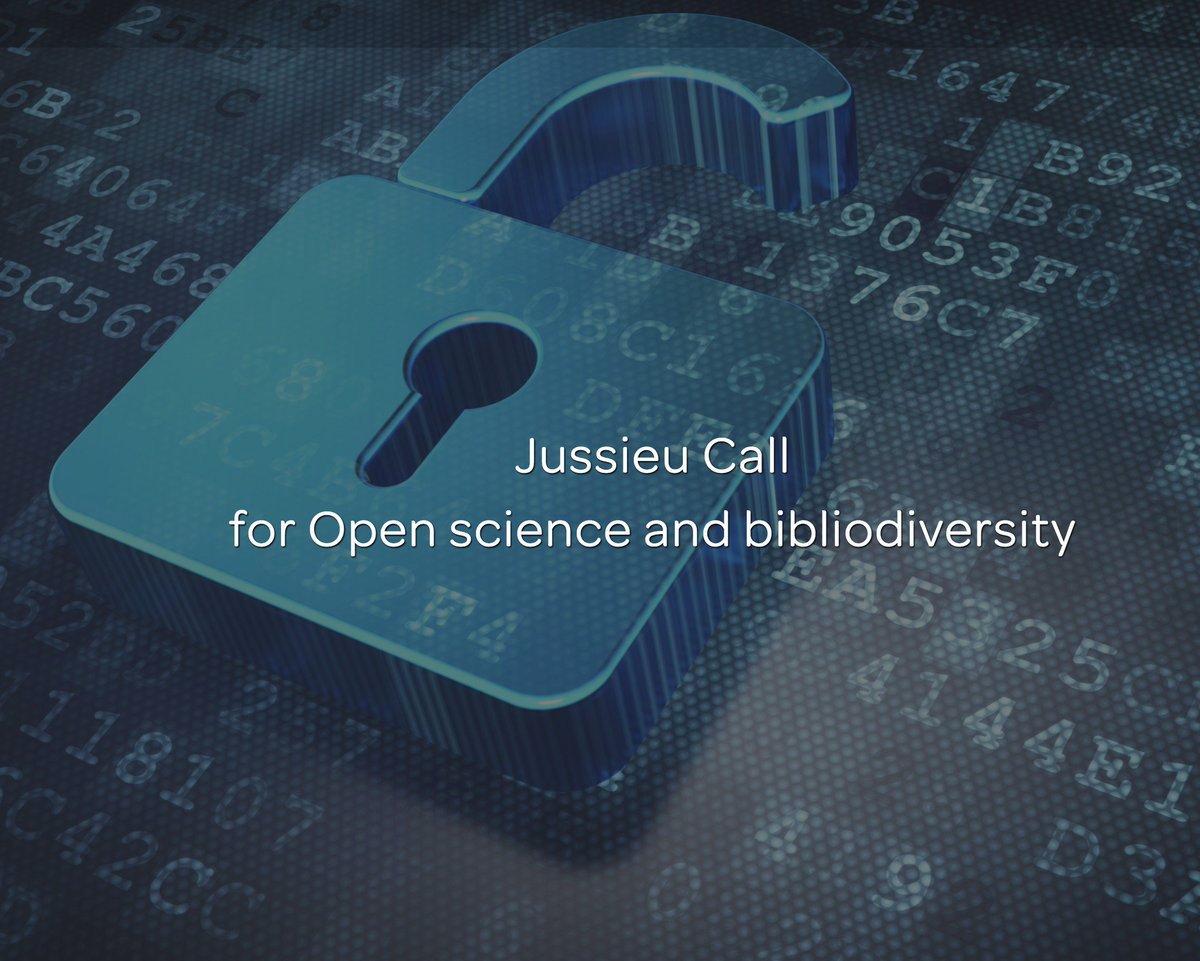
6 October 2017
Dr. Franck Vazquez, MDPI CEO, Interviewed by Scholarly Kitchen
The Society for Scholarly Publishing’s popular blog about topics in academic publishing, Scholarly Kitchen, recently interviewed MDPI’s CEO, Dr. Franck Vazquez. He shared some thoughts and information on the past and future of MDPI and open access publishing in general:
“In the long run, we aim to anchor MDPI in research communities. We recently developed and launched the preprint platform Preprints, revamped our free-to-use conference hosting platform Sciforum, and are working on other projects, such as Scilit, our bibliographic database.”
Read the full interview here.
25 September 2017
Meet Us at MicroTAS 2017 in Savannah, USA on October 22–26, 2017
We will be attending the MicroTAS 2017, a series of Conferences that are the premier forum for reporting research results in microfluidics, microfabrication, nanotechnology, integration, materials and surfaces, analysis and synthesis, and detection technologies for life science and chemistry. It will be held at the Savannah International Trade and Conference Center in Savannah, Georgia, USA from October 22–26, 2017, representing the following MDPI open access journals:
Micromachines
Sensors
Diagnostics
Biosensors
Technologies
Applied Sciences
Please visit our stand ((booth number: #6) to chat about our journals with our delegates. We look forward to meeting you in person to answer any questions you may have. For more information about the conference, please visit: http://www.microtas2017.org.
Conference Location
Savannah International Trade & Convention Center
1 International Drive
Savannah, Georgia 31402
USA
19 September 2017
A Warm Welcome to the New IOAP Participants
We are delighted to have welcomed 24 new participants to our Institutional Open Access Programme (IOAP) since the beginning of September this year. These are University libraries and Research Institutions located around the world; from the USA and Canada to the UK, and from Norway and Spain to Greece. Well respected Universities, such as the University of Denver, the University of Colorado Boulder, and the University of Arizona in the US, have signed up, while their researchers can now benefit from a 10% discount on the Article Processing Charges (APC) for any papers they publish in MDPI journals, at no cost for the library or the University.
We are more than happy to see the Open Access movement growing stronger and wider every day and we appreciate the vital role which librarians, repository managers, and other scholarly communications professionals play in the field. Our communication with and service to this community is, therefore, one of our principal priorities. The IOAP is our way to support academic and scientific Institutions as well as their scholars in managing, administrating, and publishing research in an Open Access world.
The IOAP set of free services, provided by MDPI to institutions that sign up, include:
- No fee for participants and no obligation to prolong after the initial 12 months. The participants may withdraw from the programme at any time, and we will also keep it free for the library for as long as they continue in the programme.
- Authors affiliated with the university will receive a discount on the article processing charge (APC).
- The institution is granted free access to the MDPI submission system and can receive free alerts of new submissions to our journals.
- By default, authors from the institution will continue to be invoiced directly unless the institution opts for central billing.
- Auto-archiving of papers into the institutions´ repository as long as it supports SWORD 1.3.
More details about the programme and a list of our current participant institutions can be found at: https://www.mdpi.com/about/ioap
Institutions which are interested to participate may do so online at: https://www.mdpi.com/ioap-form
The full list of the Institutions that signed up in September is as follows:
- University of Denver, USA
- University of Colorado Boulder, USA
- University of Arizona, USA
- Institute of Metrology of Bosnia and Herzegovina, Bosnia and Herzegovina
- Middlebury College, USA
- Touro College, USA
- University of New Orleans, USA
- University of Leicester, UK
- Indiana University-Purdue University Indianapolis, USA
- University of Strathclyde, UK
- Cranfield University, UK
- Hope College, USA
- Oregon State University, USA
- Drew University, USA
- Swansea University, UK
- University of South Florida, USA
- University of Georgia, USA
- Arizona State University, USA
- University of Southern Mississippi, USA
- Université du Québec à Chicoutimi, Canada
- Grinnell College, USA
- Norwegian University of Science and Technology, Norway
- University of Patras, Greece
- Public University of Navarre, Spain
4 September 2017
Barcelona 2017–2018 | Upcoming Conferences Organized by MDPI
We are glad to announce that, on Friday 8 September 2017, the 1st Molecules Medicinal Chemistry Symposium will be taking place in Barcelona at the School of Pharmacy and Food Sciences of the University of Barcelona, Spain.
Our open-access journal Molecules is the sponsor of this one-day monographic symposium that will address the topic of Emerging Drug Discovery Approaches against Infectious Diseases. In this sense, our intention is to provide a forum for discussion from novel biological targets and resistance mechanisms to the design and synthesis of new structural classes or the implementation of innovative therapeutic approaches against bacterial, protozoan, viral, and fungal infections. The event will gather together over 70 experts in the field of medicinal chemistry from more than 15 countries and 3 continents, mostly from academia but also from pharmaceutical industry and product development partnerships, therefore offering a very interesting platform for international networking in this field.
For more information please access the following ling: https://sciforum.net/conference/MMCS2017
Following this event, Barcelona will also be hosting two more MDPI Conferences this year:
- The 5th International Symposium on Sensor Science will be held on 27–29 September 2017 at the AXA Convention Centre in Barcelona, Spain.
This event, sponsored by our journal Sensors, will address the recent developments made in the field of sensor technology. To properly do so, the event will be split into 5 different sessions, each one of them focussing on the following different aspects of the field: chemosensors, bio-inspired and bio-based strategies for sensing and fluidics, biosensors, sensors for structures, and sensors for applications.
The registration to attend the event is open until 7 September 2017.
For more information please access the following link: https://sciforum.net/conference/i3s2017Barcelona.
- The First International Conference on Symmetry will be held on 16–18 October 2017 at the Parc Cientific de Barcelona (PCB), Barcelona, Spain.
This conference, sponsored by our journal Symmetry, is an excellent opportunity to attend an event where cutting-edge ideas and knowledge on symmetry will be presented and shared. During the three days of the conference, a variety of subjects ranging from fields such as physics, chemistry, mathematics, computer science and biology will be brought together under the fundamental scientific phenomenon that is symmetry.
The registration to attend the event is open until 25 September 2017.
For more information please access the following link: https://sciforum.net/conference/symmetry2017
We are also pleased to announce that the following events will also be held in Barcelona in 2018:
- Viruses 2018 – Breakthroughs in Viral replication
The event will take place at the Faculty of Biology of the University of Barcelona, on 7–9 February 2018.
Early bird: 24 November 2017
Abstract submission: 31 October 3017
Registration: 22 January 2018
For more information please access: https://sciforum.net/conference/Viruses-2018 - Polymers: Design, Function and Application
The event will take place at the Faculty of Geology of the University of Barcelona on 22–23 March 2018
Early bird: 15 December 2017
Abstract Submission: 22 November 2017
Registration: 2 March 2018
For more information please access: https://sciforum.net/conference/polymers-2018 - Entropy 2018: From Physics to Information Sciences and Geometry
The event will take place at the Faculty of Geology of the University of Barcelona on 14–16 May 2018.
Early Bird: 14 February 2018
Abstract Submission: 16 January 2018
Registration: 25 April 2018
For more information please access: https://sciforum.net/conference/Entropy2018-1
23 June 2017
Congratulations for Publishing the 100,000th Peer-Reviewed Article
Congratulations to the authors Javier Monroy and Javier Gonzalez-Jimenez from Universidad de Malaga, Spain, Victor Hernandez-Bennets, Han Fan and Achim Lilienthal from Örebro University, Sweden for publishing the 100,000th peer-reviewed article.
The article is published in the Chemical Sensors section of Sensors.
GADEN: A 3D Gas Dispersion Simulator for Mobile Robot Olfaction in Realistic Environments
Evermore pressing environmental concerns have led global actors and decision-makers to search for stricter emission monitoring approaches. As part of novel monitoring systems, robots with gas and environmental sensors are a promising solution. However, validation of such robotic inspectors is expensive, time consuming, and plagued by repeatability issues. In this article, we present GADEN (the short form for Gas Dispersion Simulator for Mobile Robot Olfaction in Realistic Environments), which combines gas dispersion and robotics simulation in a common framework. Developed under the widely used Robot Operating System (ROS), GADEN enables validation of sensing strategies with gas dispersion being simulated using computational fluid dynamics and filament dispersion theory. GADEN allows simulating complex, realistic, 3D environments for reproducible testing of robotic gas sensing algorithms. Through qualitative and quantitative evaluations, we show that GADEN is a versatile and user-friendly evaluation tool and emphasize its enormous potential for the mobile robot olfaction community.
Read the full article here: https://www.mdpi.com/1424-8220/17/7/1479/htm
14 June 2017
2016 Impact Factor released for Sensors – 2.677
Sensors now ranks 25/76 (Q2) in the category ‘Chemistry, Analytical’, 12/29 (Q2) in the ‘Electrochemistry’ and 10/58 (Q1) in the category ‘Instruments & Instrumentation’. The journal remains among the highest ranking Open Access journals in these fields.
Evolution of Impact Factor, Citations and Publications for Sensors:
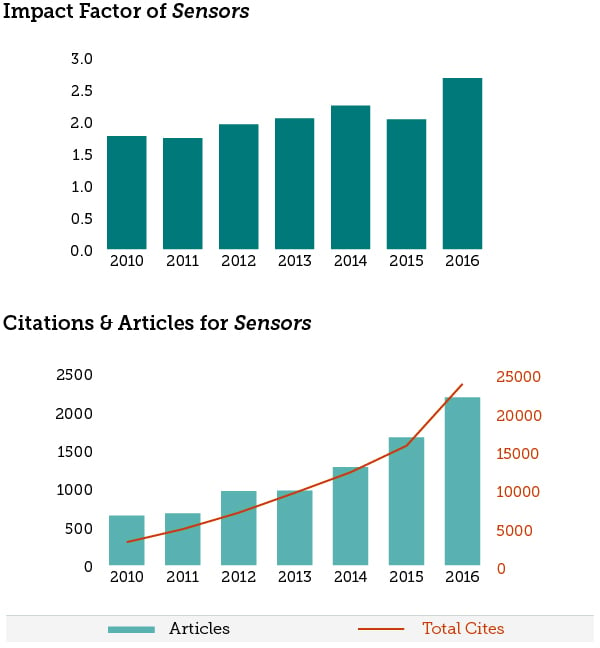
6 June 2017
CiteScore™ Metrics Released for Scopus Journals
The CiteScore, the new citation metric for journals covered in the Scopus® database, was released on 1 June 2017, reflecting the citation activity in 2016 for articles published during the three previous years. Please note that the list below does not contain all MDPI journals covered in Scopus. For the CiteScore to serve as a reliable metric at least three volumes of articles need to be indexed in Scopus; journals which have not met this criterion have been omitted here.
Ten MDPI journals received a CiteScore which is in the Top 10% of scores in at least one of the categories, while a further 21 journals exhibit scores that are in the first quartile of the respective categories.
CiteScore Data for MDPI Journals
| Journal | Rank | Category | Link | CiteScore 2016 | 2015 |
2014 |
| Algorithms | 44/112 (Q2) 49/111 (Q2) 19/42 (Q2) 52/113 (Q2) |
• Numerical Analysis • Computational Mathematics • Computational Theory and Mathematics • Theoretical Computer Science |
Link | 1.15 | 1.07 | 1.06 |
| Animals | 69/343 (Q1) 21/146 (Q1) |
• Animal Science and Zoology • General Veterinary |
Link | 1.46 | 1.66 | 0.74 |
| Biology | 13/92 (Q1) 34/81 (Q1) 10/75 (Q1) |
• General Agricultural and Biological Sciences • General Biochemistry, Gene- tics and Molecular Biology • General Immunology and Microbiology |
Link | 3.02 | 2.78 | 1.74 |
| Biomolecules | 234/382 (Q3) 260/353 (Q3) |
• Biochemistry • Molecular Biology |
Link | 1.67 | 3.08 | 1.00 |
| Biosensors | 36/118 (Q2) 209/2156 (Q1) |
• Clinical Biochemistry • General Medicine |
Link | 2.83 | 2.37 | 2.04 |
| Cancers | 29/196 (Q1) 27/321 (Q1) |
• Cancer Research • Oncology |
Link | 5.02 | 4.07 | 2.31 |
| Catalysts | 18/44 (Q2) 27/144 (Q1) |
• Catalysis • Physical and Theoretical Chemistry |
Link | 3.44 | 3.45 | 2.17 |
| Crystals | 70/270 (Q2) 25/64 (Q2) 118/398 (Q2) 131/424 (Q2) |
• General Chemical Engineering • Inorganic Chemistry • Condensed Matter Physics • General Materials Science |
Link | 1.89 | 1.47 | 1.03 |
| Diversity | 10/41 (Q1) 9/25 (Q2) 76/291 (Q2) 24/109 (Q1) |
• Agricultural and Biological Sciences (miscellaneous) • Ecological Modelling • Ecology • Nature and Landscape Conservation |
Link | 2.03 | 1.96 | 1.82 |
| Energies | - | - | Link | 2.50 | 2.87 | 2.66 |
| Entropy | 51/198 (Q2) | • General Physics and Astronomy | Link | 1.87 | 1.99 | 1.69 |
| Forests | 17/127 (Q1) | • Forestry | Link | 2.06 | 1.76 | 1.84 |
| Games | 204/398 (Q3) 83/181 (Q2) 48/105 (Q2) |
• Applied Mathematics • Statistics and Probability • Statistics, Probability and Uncertainty |
Link | 0.87 | 0.57 | 0.64 |
| Genes | 62/300 (Q1) 18/90 (Q1) |
• Genetics • Genetics (clinical) |
Link | 3.62 | 3.18 | 1.33 |
| Geosciences | 36/169 (Q1) |
• General Earth and Planetary Sciences | Link | 1.67 | 1.29 | 1.13 |
| Information | 156/237 (Q3) | • Information Systems | Link | 0.78 | 0.94 | 0.74 |
| Insects | 28/131 (Q1) | • Insect Science | Link | 1.81 | 1.38 | 1.23 |
| International Journal of Environmental Research and Public Health (IJERPH) | 67/446 (Q1) 31/102 (Q2) |
• Public Health, Environmental and Occupational Health • Health, Toxicology and Mutagenesis |
Link | 2.38 | 2.42 | 2.47 |
| International Journal of Molecular Sciences (IJMS) | 23/157 (Q1) 8/64 (Q1) 90/353 (Q1) 22/144 (Q1) 16/44 (Q1) 8/62 (Q1) |
• Organic Chemistry • Inorganic Chemistry • Molecular Biology • Physical and Theoretical Chemistry • Catalysis • Spectroscopy |
Link | 3.73 | 3.37 | 3.06 |
| ISPRS International Journal of Geo-Information | 12/29 (Q2) 28/79 (Q2) 96/587 (Q1) |
• Computers in Earth Sciences • Earth and Planetary Sciences (miscellaneous) • Geography, Planning and Development |
Link | 1.62 | 1.52 | - |
| Journal of Low Power Electronic Applications (JLPEA) | 301/645 (Q2) | • Electrical and Electronic Engineering | Link | 0.98 | 0.83 | 0.83 |
| Life | 65/525 (Q1) 36/186 (Q1) 5/92 (Q1) 20/80 (Q2) |
• Ecology, Evolution, Behavior and Systematics • General Biochemistry, Gene- tics and Molecular Biology • Palaeontology • Space and Planetary Science |
Link | 2.95 | 1.68 | 1.20 |
| Marine Drugs | 18/145 (Q1) | • Drug Discovery | Link | 3.83 | 3.66 | 3.59 |
| Materials | 63/424 (Q1) | • General Materials Science | Link | 3.26 | 3.11 | 2.69 |
| Membranes | 103/424 (Q1) | • Materials Science | Link | 2.19 | 2.95 | 2.42 |
| Micromachines | 173/645 (Q2) 69/211 (Q2) 113/526 (Q1) |
• Electrical and Electronic Engineering • Control and Systems Engineering • Mechanical Engineering |
Link | 1.83 | 1.78 | 2.10 |
| Minerals | 45/206 (Q1) 29/167 (Q1) |
• Geology • Geotechnical Engineering and Engineering Geology |
Link | 2.13 | 1.77 | - |
| Molecules | 32/157 (Q1) | • Organic Chemistry | Link | 3.09 | 2.65 | 2.62 |
| Nutrients | 12/247 (Q1) | • Food Science | Link | 4.29 | 4.07 | 3.78 |
| Pharmaceuticals | 8/168 (Q1) 21/158 (Q1) |
• Pharmaceutical Science • Molecular Medicine |
Link | 4.90 | 3.64 | 1.92 |
| Pharmaceutics | 19/168 (Q1) | • Pharmaceutical Science | Link | 3.83 | 2.68 | 2.46 |
| Polymers | 13/138 (Q1) 44/354 (Q1) |
• Polymers and Plastics • General Chemistry |
Link | 3.74 | 3.37 | 4.10 |
| Remote Sensing | 13/169 (Q1) | • General Earth and Planetary Sciences | Link | 3.56 | 3.76 | 3.23 |
| Sensors | 25/96 (Q2) 25/159 (Q1) 124/382 (Q2) 103/645 (Q1) |
• Analytical Chemistry • Atomic and Molecular Physics, and Optics • Biochemistry • Electrical and Electronic Engineering |
Link | 2.78 | 2.21 | 2.40 |
| Sustainability | 49/129 (Q2) 68/587 (Q1) 56/236 (Q1) |
• Renewable Energy, Sustai-nability and the Environment • Geography, Planning and Development • Management, Monitoring, Policy and Law |
Link | 1.96 | 1.78 | 1.52 |
| Symmetry | 17/42 (Q2) 49/111 (Q2) |
• Numerical Analysis • Computational Mathematics |
Link | 1.12 | 0.95 | 1.02 |
| Toxins | 16/102 (Q1) 16/108 (Q1) |
• Health, Toxicology and Mutagenesis • Toxicology |
Link | 3.34 | 3.76 | 2.85 |
| Vaccines | 146/184 (Q4) 151/250 (Q3) 93/145 (Q3) 186/299 (Q3) 130/232 (Q3) |
• Immunology • Infectious Diseases • Drug Discovery • Pharmacology • Pharmacology (medical) |
Link | 1.23 | 3.76 | 2.85 |
| Viruses | 15/68 (Q1) 34/250 (Q1) |
• Virology • Infectious Diseases |
Link | 3.60 | 3.74 | 3.80 |
| Water | 33/184 (Q1) 48/195 (Q1) 62/587 (Q1) 198/382 (Q3) |
• Water Science and Technology • Aquatic Science • Geography, Planning and Development • Biochemistry |
Link | 2.05 | 1.96 | 1.45 |
17 May 2017
Three New Institutional Memberships Established
We are pleased to announce that the Goethe University of Frankfurt, the Technical University of Hamburg (TU Hamburg-Harburg), as well as the Humboldt University of Berlin, in Germany, have joined MDPI's institutional membership program: Primary authors from these instititions will benefit from a 10% discount on the article processing charges.
Additional details can be found on our institutional membership page.
4 May 2017
MDPI Supports the Initiative for Open Citations (I4OC)
As an open access publisher, we are keen to support openness and transparency in the research process. Citation data is very important for assessing the value of individual papers and the contribution of researchers. As such, we support the recently launched Initiative for Open Citations (I4OC). The initiative recognizes that citations should be freely available and machine-readable. By doing so, authors gain the maximum benefit from having their work cited.
MDPI now uploads citation data with metadata uploaded to Crossref when registering digital object identifiers (DOIs) for published papers. We are delighted to take this step to support a truly open research environment.
2 May 2017
Publons Peer Review Academy Goes Live
Getting high quality review reports is critical for any journal’s editorial process. At MDPI we have put in place several measures to motivate reviewers and reward them for their work. We are proud of the quality of reviewer reports we receive and grateful for the hours put in by active researchers from across the globe.
Reviewers of MDPI’s largest journals can get recognition via Publons, a website dedicated to rewarding peer reviewers. They have now taken this one step further and launched the Publons Reviewer Academy to help train reviewers to provide useful feedback. Through the academy, researchers can be trained and tutored in various aspects of how to provide structured feedback that will be of genuine help to editors and authors. We support this initiative and recommend it to potential MDPI reviewers, especially early career researchers. See the Publons announcement for further information.
More information on reviewing for MDPI, including how to volunteer as a reviewer, can be found here.
24 April 2017
Two New Institutional Memberships Established
We are pleased to announce that the following universities have joined MDPI's institutional membership program: Trinity University, San Antonio, Texas, USA and the University of New South Wales (UNSW), Sydney, Australia. Primary authors from these instititions will benefit from a 10% discount on the article processing charges.
Additional details can be found on our institutional membership page.
30 March 2017
Credit for Preprints Comments via Publons
Preprints.org is a platform run by MDPI that allows authors to make early versions of manuscripts available before peer review has been completed.
One of the major benefits of putting a preprint online is to get feedback before journal submission. Until now, however, the feedback has been on a voluntary basis. Preprints is delighted to be the first preprint server to collaborate with Publons to acknowledge substantial comments as reviews and give commentators the opportunity to receive credit for their efforts.
When you add a comment to any article, there is a check box to click for it to appear on Publons. If you have already linked your account it will be passed on automatically. If you don't already have a Publons account, you will be contacted soon afterwards with instructions on how to create one.
We appreciate the enthusiasm and cooperation of Publons in this project and expect it to be of great benefit to authors and commenters alike.
20 March 2017
MDPI 2016 Annual Report Released
We are pleased to announce that our annual report for the year 2016 has now been published.
It contains information regarding company and journal performance, conferences and other publishing services that we provided throughout 2016.
To read the report in full or download a copy, please click here.
15 March 2017
Our 100,000th Article Could be Yours!
After the 20th anniversary of MDPI in 2016, we will reach another milestone this year and will publish the 100,000th peer-reviewed article in one of our 170+ open access journals.
We would like you to be part of this great achievement and so are offering to publish the 100,000th accepted paper free of charge.
To be in with a chance, select a journal in one of our 10 scientific subject areas and submit your paper.
Access the live tracker on published articles here.
![]()
3 March 2017
1000 Preprints Online
We are delighted that Preprints now has 1000 papers online since its launch on 3 May 2016.
For more information, see the editorial here.
9 February 2017
Minister and State Secretaries Visit MDPI Office at STP, Belgrade, Serbia
Earlier this week the Science Technology Park in Belgrade, Serbia was visited by Swiss Secretary of State Dr. Mauro Dell’Ambrogio, as well as Serbian Minister of Public Administration and Local Self-Government Ana Brnabic, State Secretary Dr. Vladimir Popovic and Mayor of Belgrade Mr. Siniša Mali.
During the visit to the STP they had a short presentation from MDPI’s CEO Dr. Franck Vazquez and IT Manager Mr. Miloš Čučulović, and further discussed important issues such as Open Access and Open education. Dr. Dell'Ambrogio said he was impressed with the potential for development and ideas for business.
For more information please see:
http://bit.ly/2kpIu7k and http://bit.ly/2kpUQfz
7 February 2017
The 6th World Sustainability Forum: Final Press Release
Basel, 29 January 2017
The 6th World Sustainability Forum #WSF2017SA: African universities critical to achieving the Sustainable Development Goals
Jeffrey and Sonia Sachs win first World Sustainability Award.
Universities need to take the lead in solving the greatest challenges the world faces today, particularly in Africa. They need to do this not only through education – teaching the next generation to think critically and creatively to find sustainable solutions – but also through research that cuts across a range of disciplines. To ensure these solutions are implemented, they need to partner with the private sector and with government.
This was the key message from the 6th World Sustainability Forum (WSF2017), which took place in Cape Town on 27 and 28 January 2017. Sponsored by MDPI and the journal Sustainability under the patronage of the Universities of the Western Cape (UWC), Cape Town (UCT), University of Basel and the National Research Foundation (NRF) of South Africa, the conference was attended by key national and international speakers, including world-leading economist Professor Jeffrey D. Sachs, senior United Nations (UN) advisor and director of the Earth Institute at Columbia University.
The WSF is an annual sustainability conference which addresses research in a range of areas related to sustainable development and sustainability globally. This was the first WSF to take place on the African continent. Discussions at the 2017 conference were driven by the 17 sustainable development goals (SDGs) adopted as part of the 2030 Agenda for Sustainable Development by the UN in September 2015.
Achieving the SDGs “is the moonshot for our generation,” said Sachs. “Like the moonshot [moon landing] of the 1960s, these are tough, bold and achievable objectives.”
“This is a nasty, tough world we live in, and our world agrees on very little. So when 193 governments agree on something, that is important. And when they agree on something as important as sustainable development, that is really something for us to grab hold of – that is a lifeline.”
There was agreement at the WSF that the SDGs are particularly important for Africa, and that African universities in particular have a role to play in achieving them.
Said Professor Tyrone Pretorius, vice-chancellor of UWC: “The quest for sustainable development can only be met through education. Universities today are the oil that fuels the knowledge economy.”
As part of the drive to develop academic capacity to provide the knowledge needed to meet the SDGs, WSF2017 was preceded by the 1st Postgraduate Forum on Sustainability. “A series of workshops for postgraduate education linked to WSF are important, in order to equip postgraduates with the skills necessary to promote sustainability,” said Professor Thandi Mgwebi, director for research at UWC. A second postgraduate forum will take place alongside the WSF2018 in Beijing.
This capacity development is particularly critical to Africa. Said Sachs: “African universities need to do research to find solutions to Africa’s development challenges, because no other university will.”
The UN set a target of achieving the SDGs by 2030: “I regard this as the breakthrough period to end extreme poverty on the continent,” said Sachs, “and for Africa to become one of the most dynamic centres of the world economy.”
It is a critical time for South African universities, said Professor Mamokgethi Phakeng, deputy vice-chancellor for research and internationalisation at UCT: “Higher education is at a crossroads, and there is much polarisation. We need to think carefully about how this sustainable development agenda is owned by all so that it is inclusionary.”
There was also strong emphasis on public–private partnerships – for universities, business and government to work together to achieve the goals.
Said Professor Francis Petersen, deputy vice-chancellor at UCT and vice-chancellor designate at the University of the Free State: “Business sustainability has become critical, because there is increasing demand and complexity of demand on business from the natural, social and economic environment. Sustainability cannot be a standalone issue, divorced from business as usual. Sustainability needs to be embedded into business.”
Environmental crises and climate change was also high on the WSF agenda. In his keynote address, Sachs noted the irreversibility of the climate- and environmental-related challenges.
“If we don’t get our act together, we lose the chance of safety,” he said.
Said Professor Mark New, pro vice-chancellor and director of the African Climate and Development Initiative at UCT: “We have a fundamental challenge in responding to climate change, and we must go further than just putting a plaster on a wound. We need to address the deep structural issues, to move from our current model of development into climate-compatible development.”
“This requires researchers to find the evidence for the correct development pathways to take, and then support the ability of policymakers at all levels to enable the shift to climate-compatible development planning.”
Said Dr. Aldo Stroebel, executive director of international relations and cooperation at the NRF, in closing: “We have seen over the past two days an urgency towards the next step of thinking, that critical type of framework that we all must engage with, not only from an academic perspective, but further up into the policy environment and into rural-based environments where one can clearly see the links and effectiveness of the work.”
World Sustainability Awards
The first World Sustainability Award and the first Emerging Sustainability Leader Awards were presented by Prof. Thandi Mgwebi, Director of Research at UWC, and Dr. Franck Vazquez, CEO of MDPI, during the ceremony on 27 January 2017 as part of the gala dinner of the 6th World Sustainability Forum in South Africa.after day one of proceedings of the 2017 World Sustainability Forum South Africa.
Professor Jeffrey D. Sachs and Dr. Sonia Ehrlich Sachs are the joint recipients of the first World Sustainability Award. Jeffrey Sachs is a world-renowned economist and senior United Nations (UN) advisor and director of the Earth Institute at Columbia University. Sonia Sachs is a paediatrician and public health specialist, and director of the Health Centre at the Centre for Sustainable Development, also at Columbia University.
The joint recipients of the first Emerging Sustainability Leader Award are Dr. Esther Ngumbi and Dr. Xiaosong Hu. Esther Ngumbi is a postdoctoral researcher at Auburn University in Alabama USA and serves as a 2015 Clinton Global University Mentor for agriculture. Xiaosong Hu is a professor at the Chongqing University in China and specialises in automotive control systems and mechanical engineering.
The World Sustainability Award and the Emerging Sustainability Leader Awards are funded to encourage new initiatives and developments in sustainability with the ultimate aim of fostering the transition to sustainable practices and societies.
The World Sustainability Award is funded by the MDPI Sustainability Foundation, and included a monetary prize of USD 100,000 to Jeffrey and Sonia Sachs. The Emerging Sustainability Leader Award is funded by the journal Sustainability, awarded to researchers under 40, and included a monetary prize of USD10,000.
Issued jointly by: UCT Global Strategy and Visibility, Research Office, UWC Communications & Media and MDPI AG
Conference photos are free available at: https://sciforum.net/conference/wsf-6/page/175 Photo credit: Matthias Burkhalter
|
Carla Bernardo |
Luthando Tyhalibongo |
Matthias Burkhalter |
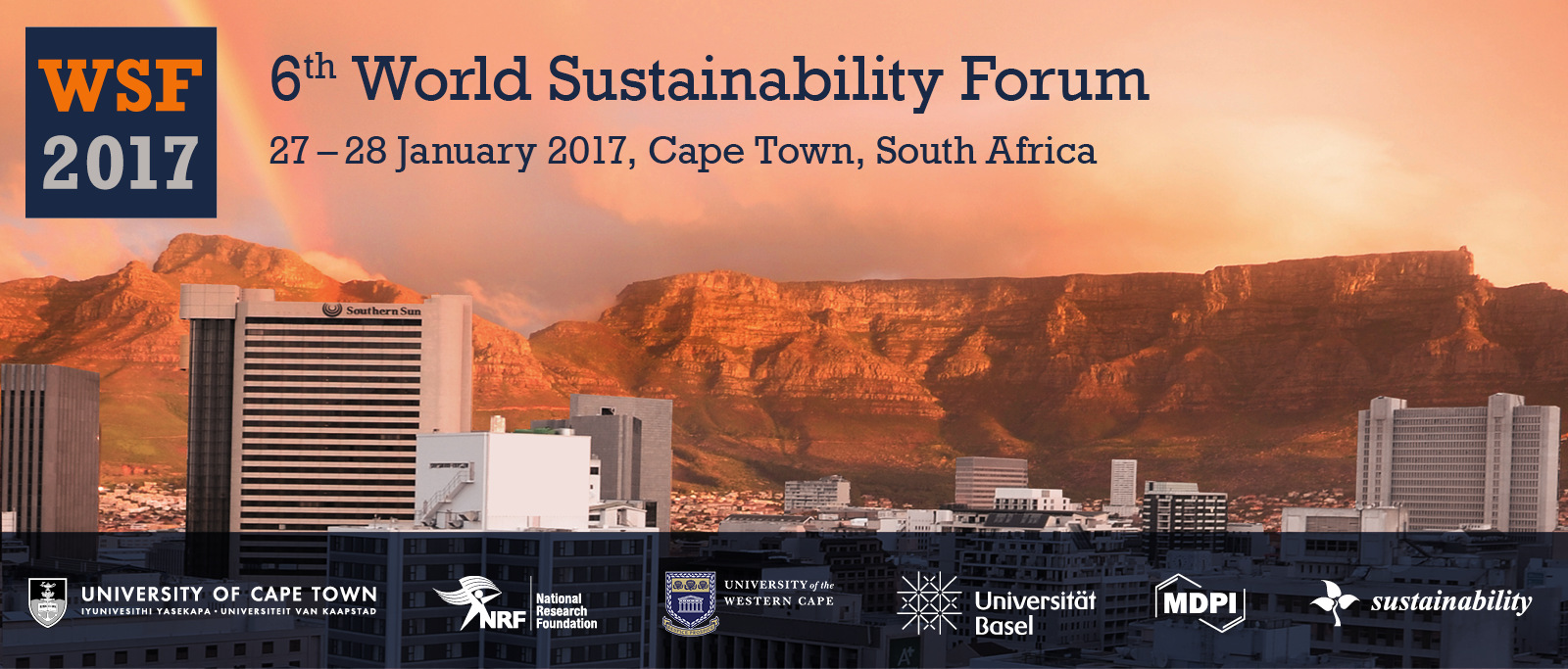
31 January 2017
Three New Institutional Memberships Established
We are pleased to announce that the Chalmers University of Technology, Sweden, the University of Manitoba, Canada and the Technical University of Cartagena, Spain, have joined MDPI's institutional membership program: Primary authors from these institutions will benefit from a 10% discount on the article processing charges.
Additional details can be found on our institutional membership page.
27 January 2017
6th World Sustainability Forum under way in South Africa
The 6th World Sustainability Forum is currently being held at the Cape Sun Hotel until 28 January 2017.
The Forum will showcase the work of internationally renowned researchers and include more than 150 presentations. During the conference dinner, the World Sustainability Award, associated with a US$ 100,000 prize, will be announced, as well as the Emerging Sustainability Leader Award, associated with a US$ 10,000 prize. The prizes are sponsored by the MDPI Sustainability Foundation and Sustainability, an academic open access journal by MDPI.
Here are some pictures from the forum so far:
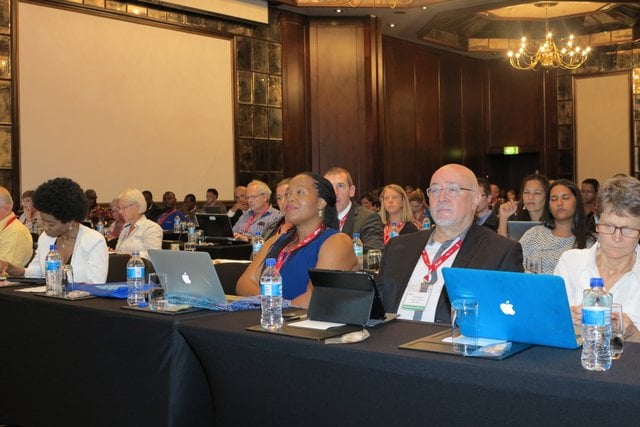
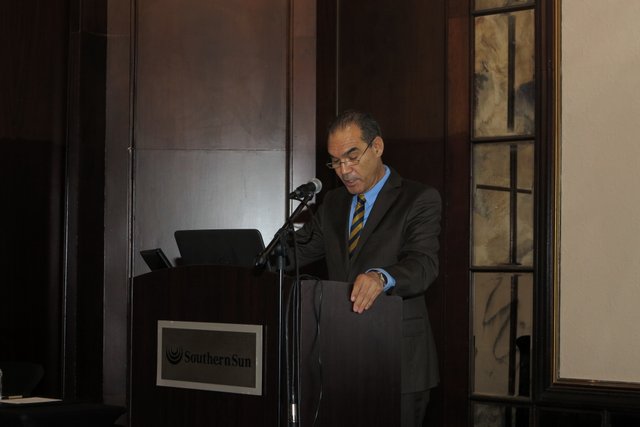
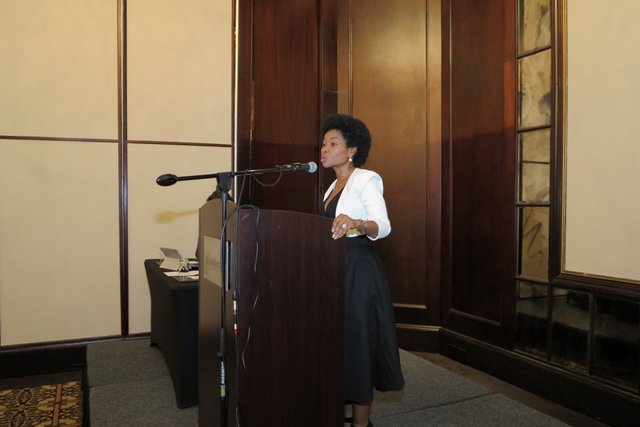
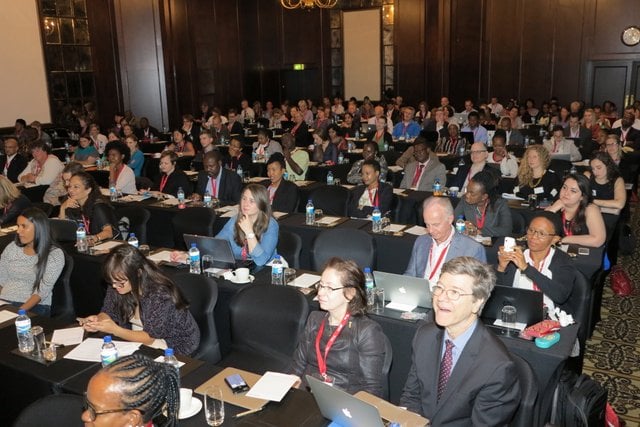
To see the full WSF2017 program and schedule, please see here: https://sciforum.net/conference/wsf-6/page/schedule
19 January 2017
Cape Town to Host the 6th World Sustainability Forum
Cape Town will host the 6th World Sustainability Forum at the Cape Sun Hotel on 27 and 28 January 2017. This prominent event, held for the first time in Africa, will include many illustrious South African and international experts, such as Her Excellency Graça Machel (Sustainable Development Advocate for the United Nations, Mozambique), Joyene Isaacs (HoD Agriculture Western Cape Government), Jeffrey Sachs (Columbia University, USA), Max Bergman (SRaM, University of Basel), Mark New (Pro Vice-Chancellor, University of Cape Town), Frans Swanepoel (FutureAfrica, University of Pretoria) and Francis Petersen (Vice-Chancellor-designate, University of the Free State). The Forum will provide a stage for national and international debates on sustainability in South Africa, the African continent, and about international perspectives on sustainability. It brings together researchers and representatives from government and the business sector to discuss a wide-ranging set of issues associated with sustainability, including food security, water and energy scarcity, mining, poverty reduction, climate change, and urbanisation.
The next few decades will be marked by profound changes in the relationships between global economics, national societies, and the environment. We have entered what some call the Anthropocene, an age in which human activity dominates the climate and the environment. These changes will have numerous consequences on societies around the globe. South Africa and Africa will play a central role, for better or worse, in creating opportunities and risks during these changing times as Africa is profoundly influencing and being influenced by global developments.
The adoption of the 17 United Nations Sustainable Development Goals and the 2030 Agenda for Sustainable Development in September 2015 was accompanied by what insiders considered an optimism they have not experienced in relation to UN resolutions before. The relative efficiency in the drafting, the lack of trenches between East and West, or between North and South, and the unanimity of support of the 193 countries speak volumes. In stark contrast, sustainability seems to go against a changing economic and political tide, where waves of nationalism and protectionism from some of the most powerful countries risk the wellbeing of the rest of the world. The 6th World Sustainability Forum will enable fruitful exchanges, which sensitise South African and international communities to the global urgency and specifics of sustainability.
The Forum will showcase the work of internationally renowned researchers and include more than 150 presentations. During the conference dinner, the World Sustainability Award, associated with a US$ 100 000 prize, will be announced, as well as the Emerging Sustainability Leader Award, associated with a US$ 10 000 prize. The prizes are sponsored by the MDPI Sustainability Foundation and Sustainability, an academic open access journal by MDPI. The World Sustainability Forum is preceded by the Postgraduate Forum on Sustainability, which will introduce more than 100 young scholars from South Africa and the African continent to sustainability research. Both events are organized and sponsored by the University of Cape Town, the University of the Western Cape, the University of Basel, MDPI, and by the National Research Foundation of South Africa.
Contacts:
Scientific Matters: Prof Manfred Max Bergman, Social Research and Methodology Group (SRaM), University of Basel, Switzerland; Email: [email protected]
Press Accreditation and General Enquiries: Mr Matthias Burkhalter, MDPI AG, Basel, Switzerland; Email: [email protected]; Tel. +41 61 683 77 34
Follow us on Twitter
#WSF2017SA
6 January 2017
MDPI Supports the OA2020 Initiative
MDPI is now a proud supporter of the OA2020 Initiative.
Open Access 2020 is an international initiative that aims to induce the swift, smooth and scholarly-oriented transformation of today’s scholarly journals from subscription to open access publishing.
MDPI is participating in the upcoming Berlin13 conference in March 2017, where we are contributing to the initiative by aiding in the design of the roadmap which will make OA the default publishing model.
For more information please see here.
6 January 2017
MDPI is Attending SPIE Photonics West 2017
We are pleased to announce that MDPI will be attending the 2017 SPIE Photonics West Conference (28 January-2 February, 2017) and representing the following open access journals:
Sensors
Photonics
Micromachines
Materials
Applied Sciences
Journal of Imaging
Inventions
Computation
Technologies
Remote Sensing
Biosensors
Electronics
If you are also attending this conference, please feel free to stop by our booth (Booth #4220) and meet the representative editors.
Conference details:
SPIE Photonics West 2017
28 January-2 February, 2017
Moscone Center
747 Howard St
San Francisco, CA 94103, USA
5 January 2017
Three New Institutional Memberships Established
We are pleased to announce that the University of Texas at Arlington, USA, the Harbin Institute of Technology, China and TU Darmstadt, Germany, have joined MDPI's institutional membership program: Primary authors from these institutions will benefit from a 10% discount on the article processing charges.
Additional details can be found on our institutional membership page.
4 January 2017
Sensors has Published its 10,000th Paper!
Sensors has just reached a huge milestone and published its 10,000th paper! To celebrate the occasion, we offered to publish that paper free of charge - many congratulations to Seong-Joong Kahng, Jong-Hoon Kim, and Jae-Hyun Chung on their paper "Nanostructured Tip-Shaped Biosensors: Application of Six Sigma Approach for Enhanced Manufacturing".
The 9’995th to 10’005th papers published also received a 50% discount on APCs! See who the lucky recipients were below:
- Lin, W.; Sung, G.; Lin, J., “High Performance CMOS Light Detector with Dark Current Suppression in Variable-Temperature Systems"
- Rodriguez Salazar, L.; Cobano, J.; Ollero, A., “Small UAS-Based Wind Feature Identification System Part 1: Integration and Validation"
- Klantsataya, E.; Jia, P.; Ebendorff-Heidepriem, H.; Monro, T.; François, A., “Plasmonic Fiber Optic Refractometric Sensors: From Conventional Architectures to Recent Design Trends”
- Li, H.; Bai, Y.; Hu, M.; Luo, Y.; Zhou, Z., “A Novel Controller Design for the Next Generation Space Electrostatic Accelerometer Based on Disturbance Observation and Rejection”
- Pan, P.; McDonald, T.; Fulton, J.; Via, B.; Hung, J., “Simultaneous Moisture Content and Mass Flow Measurements in Wood Chip Flows Using Coupled Dielectric and Impact Sensors”
- Navarro, P.; Fernández, C.; Borraz, R.; Alonso, D., “A Machine Learning Approach to Pedestrian Detection for Autonomous Vehicles Using High-Definition 3D Range Data”
- Yang, C.; Kim, H.; Adhikari, S.; Chua, L., “A Circuit-Based Neural Network with Hybrid Learning of Backpropagation and Random Weight Change Algorithms”
- Yu, H.; Chen, G.; Zhao, S.; Chang, C.; Chin, Y. “An Efficient Wireless Recharging Mechanism for Achieving Perpetual Lifetime of Wireless Sensor Networks”
- Testa, A.; Cinque, M.; Coronato, A.; Augusto, J., “A Formal Methodology to Design and Deploy Dependable Wireless Sensor Networks”
- Rothe, J.; Frey, O.; Madangopal, R.; Rickus, J.; Hierlemann, A., “Robust Functionalization of Large Microelectrode Arrays by Using Pulsed Potentiostatic Deposition”
22 December 2016
Two New Institutional Memberships Established
We are pleased to announce that the Otto-von-Guericke-Universität Magdeburg, Germany and the University of California, Berkeley, USA, have joined MDPI's institutional membership program: Primary authors from these instititions will benefit from a 10% discount on the article processing charges.
Additional details can be found on our institutional membership page.
19 December 2016
MDPI and Wellcome Trust Compliance
The Wellcome Trust has, for a number of years, required that the results of its funded projects are published in open access format. Recently it announced criteria that publishers must fulfil for publication fees to be paid by the Trust. MDPI is pleased to have been added to the list of compliant publishers.
Only publishers who have confirmed their compliance by 16 December 2016 will be eligible to receive payment of APCs by the Wellcome Trust as of 1 April 2017. For more information on the criteria and a full list of publishers that meet them, see here.
13 December 2016
Meet MDPI at the 2016 AGU Fall Meeting
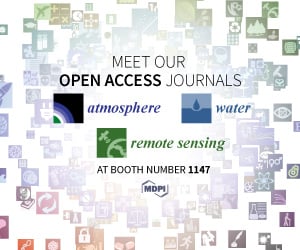 MDPI is currently attending the 2016 AGU Fall Meeting (12–16 December, 2016)
MDPI is currently attending the 2016 AGU Fall Meeting (12–16 December, 2016)
If you are also attending the conference, please feel free to stop by our booth (Booth #1147) and meet the representative editors.
Conference details:
2016 AGU Fall Meeting
12–16 December 2016
Moscone Center
747 Howard St
San Francisco, CA 94103, USA
8 December 2016
Three New Institutional Memberships Established
We are pleased to announce that Purdue University, USA, the Universitat Politécnica de Valencia, Spain and the Queensland University of Technology, Australia, have joined MDPI's institutional membership program: Primary authors from these instititions will benefit from a 10% discount on the article processing charges.
Additional details can be found on our institutional membership page.
16 November 2016
Sensors Will Soon Publish Its 10,000th Paper - For Free!
2016 is Sensors' 15th year of publishing top quality papers. The journal is about to reach another important milestone by publishing its 10,000th paper!
To celebrate this occasion, Sensors will publish the 10,000th paper completely free of charge! The 9’995th to 10’005th papers published will also receive a 50% discount on APCs!
To be in with a chance, be sure to submit your paper here by Friday, December 30, 2016.
16 November 2016
World Sustainability Award - Final Extension
The deadline for the World Sustainability Award has been extended for one last time! You now have one more month to nominate an individual researcher, group or project! The final deadline for nominations will be December 15, 2016.
For full details, please visit here.
11 November 2016
Three New Institutional Memberships Established
We are pleased to announce that the University of Minnesota, USA, the Universidad Politécnica de Madrid, Spain and Shanghai Jiao Tong University, China, have joined MDPI's institutional membership program: Primary authors from these instititions will benefit from a 10% discount on the article processing charges.
Additional details can be found on our institutional membership page.
4 November 2016
MDPI Joins the United Nations Global Compact
MDPI has become a member of the United Nations Global Compact to support corporate sustainability and have committed ourselves to the ten principles associated with the Compact.
Sustainability has always been at the core of MDPI’s values, starting with the collection and preservation of rare chemical samples that started in 1996 and led to the first journal, Molecules. Sustainability has become one of our flagship journals and we have supported and organized several conferences and events based on Sustainability, including the upcoming 6th World Sustainability Forum. As a global enterprise, we see it as our duty to promote responsible practices that will ensure a bright future for our planet. Given this, the choice to join the Global Compact was an easy one and we will do our utmost to fully implement it.
3 November 2016
MDPI Now a Member of SPARC Europe
We are delighted to announce that MDPI has become a member of SPARC Europe, an organization that works for open scholarship in Europe, including support of open access publication.
As one of the few publishers to join SPARC Europe to date, MDPI looks forward to making a contribution that puts open scholarship on a positive and sustainable path. We fully support the goals of open scholarship that allow the largest number of people possible to benefit from work of researchers in all disciplines. We hope that our membership will enable us to work with other stakeholders to find the best possible solution.
2 November 2016
World Sustainability Award Deadline Extension
The deadline for the World Sustainability Award has been extended! You now have until November 15, 2016 to nominate an individual researcher, group or project!
For full details, please visit here.
26 October 2016
Four New Institutional Memberships Established
We are pleased to announce that the Wuppertal Institut, Germany, the University of Girona, Spain and Central South University and Huazhong University of Science and Technology, China, have joined MDPI's institutional membership program: Primary authors from these instititions will benefit from a 10% discount on the article processing charges.
Additional details can be found on our institutional membership page.
24 October 2016
International Open Access Week 2016
Meet us during International Open Access Week 2016! We will be presenting at various locations in Europe and China.
To get involved and for full details see the complete list of events organised by MDPI here.
18 October 2016
Institutional Membership established with Universitat Pompeu Fabra, Spain and Aalto University, Finland
We are pleased to announce that the Universitat Pompeu Fabra, Spain and Aalto University, Finland, have joined MDPI's institutional membership program: Primary authors from these universities will benefit from a 10% discount on the article processing charges.
Additional details can be found on our institutional membership page.
12 October 2016
Institutional Membership Established with Iowa State University and the University of North Texas, USA
We are pleased to announce that the Iowa State University and the University of North Texas, USA, have joined MDPI's institutional membership program: Primary authors from these universities will benefit from a 10% discount on the article processing charges.
Additional details can be found on our institutional membership page.
7 October 2016
MDPI at Open Access Days in Munich, 10-11 October 2016
Meet MDPI during the Open Access Days held from 10-11 October 2016 at Ludwig Maximilian University of Munich, Germany.
The two-day event will feature experts from the open access sector, scientists from all disciplines, publishing representatives and supporters of scientific research and communication from libraries as well as research institutes and funding institutions. Join us!
For more information about the event and to see the program, visit the event webpage.
7 October 2016
Institutional Membership Established with the University of Sevilla and the University of Alicante, Spain
We are pleased to announce that the University of Sevilla and the University of Alicante, Spain have joined MDPI's institutional membership program: Primary authors from these universities will benefit from a 10% discount on the article processing charges.
Additional details can be found on our institutional membership page.
29 September 2016
Institutional Membership Established with the University of Delaware
We are pleased to announce that the University of Delaware, USA, has joined MDPI's institutional membership program: Primary authors from this university will benefit from a 10% discount on the article processing charges.
Additional details can be found on our institutional membership page.
19 September 2016
Peer Review Week 2016
As an open access publisher indebted to the work of our peer reviewers, we are proud to support Peer Review Week 2016. As part of the week's activities and to celebrate this year's theme "Recognition for Review", MDPI will host two webinars that anyone can join.
These webinars will explore the role and value of reviewers and the recognition they receive from a publishers perspective, with examples from MDPI's experience in publishing nearly 80,000 peer reviewed papers, along with evidence from reviewer surveys. It will also touch upon potential changes in how review is carried out and tips for early career researchers who want to be involved in the review process.
Details and links to join can be found below:
Wednesday September 21, 08:00 (CEST)
Friday September 23, 16:00 (CEST)
For more information about all the activites taking place, please visit the Peer Review Week website.
6 September 2016
Institutional Membership established with Kansas State University and Northwestern University, USA
We are pleased to announce that Kansas State University and Northwestern Universty, USE, have joined MDPI's institutional membership program: Primary authors from these universities will benefit from a 10% discount on the article processing charges.
Additional details can be found on our institutional membership page.
5 September 2016
Institutional Membership Established with University College Cork
We are pleased to announce that University College Cork, Ireland, has joined MDPI's institutional membership program: Primary authors from this university will benefit from a 10% discount on the article processing charges.
Additional details can be found on our institutional membership page.
22 August 2016
MDPI New Office Location
We are pleased to announce that MDPI has now moved to a new permanent address:
MDPI AG
St. Alban Anlage 66
CH-4052 Basel
Postfach, CH-4020 Basel
Switzerland
Telephone and fax numbers remain unchanged.
10 August 2016
Institutional Membership established with the University of Texas at Austin, USA, the Wroclaw University of Science and Technology, Poland and the University of Granada and the Compultense University of Madrid, Spain
We are pleased to announce that the following institutions have joined MDPI's institutional membership program in August 2016:
- University of Texas at Austin, USA
- Wroclaw University of Science and Technology, Poland
- University of Granada, Spain
- Compultense University of Madrid, Spain
Authors affiliated with these institutions will benefit from a 10% discount on the article processing charges.
Additional details can be found on our institutional membership page.
8 August 2016
New Special Issue Book Publication: Sensors and Techniques for 3D Object Modeling in Underwater Environments
We are pleased to announce the publication of a new book, edited by Fabio Menna, Fabio Remondino and Hans-Gerd Maas.
This book is a printed edition of the Special Issue Sensors and Techniques for 3D Object Modeling in Underwater Environments that was published in Sensors. It is on sale as of August 2nd, 2016 and can be ordered here.
ISBN: 978-3-03842-222-8 (Hbk)
ISBN: 978-3-03842-223-5 (PDF)
18 July 2016
Institutional Membership established with Louisiana State University and Florida State University, USA, Royal College of Surgeons, Ireland, University of Rostock, Germany, AGH University of Science and Technology, Poland and Southeast University, China
We are pleased to announce that the following institutions have joined MDPI's institutional membership program in July 2016:
- Louisiana State University, USA
- Florida State University, USA
- Royal College of Surgeons, Ireland
- University of Rostock, Germany
- AGH University of Science and Technology, Poland
- Southeast University, China
Authors affiliated with these institutions will benefit from a 10% discount on the article processing charges.
Additional details can be found on our institutional membership page.
12 July 2016
MDPI Moving to New Office Location in Basel (Switzerland) in August 2016
As of 20 August 2016, MDPI's new address in Basel will be:
MDPI AG
St. Alban-Anlage 66
CH-4052 Basel
Switzerland
Telephone and fax numbers remain unchanged.
St. Alban-Anlage 66 was built from 1947 to 1948 and initially the home of the "Bühler AG", a book printing business.
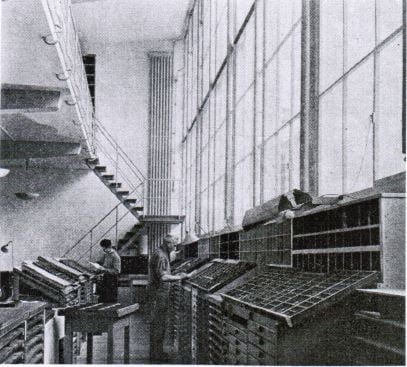
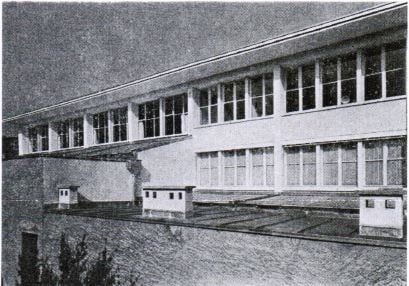
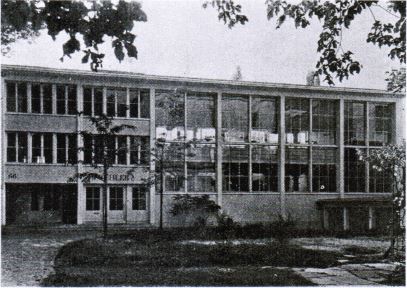
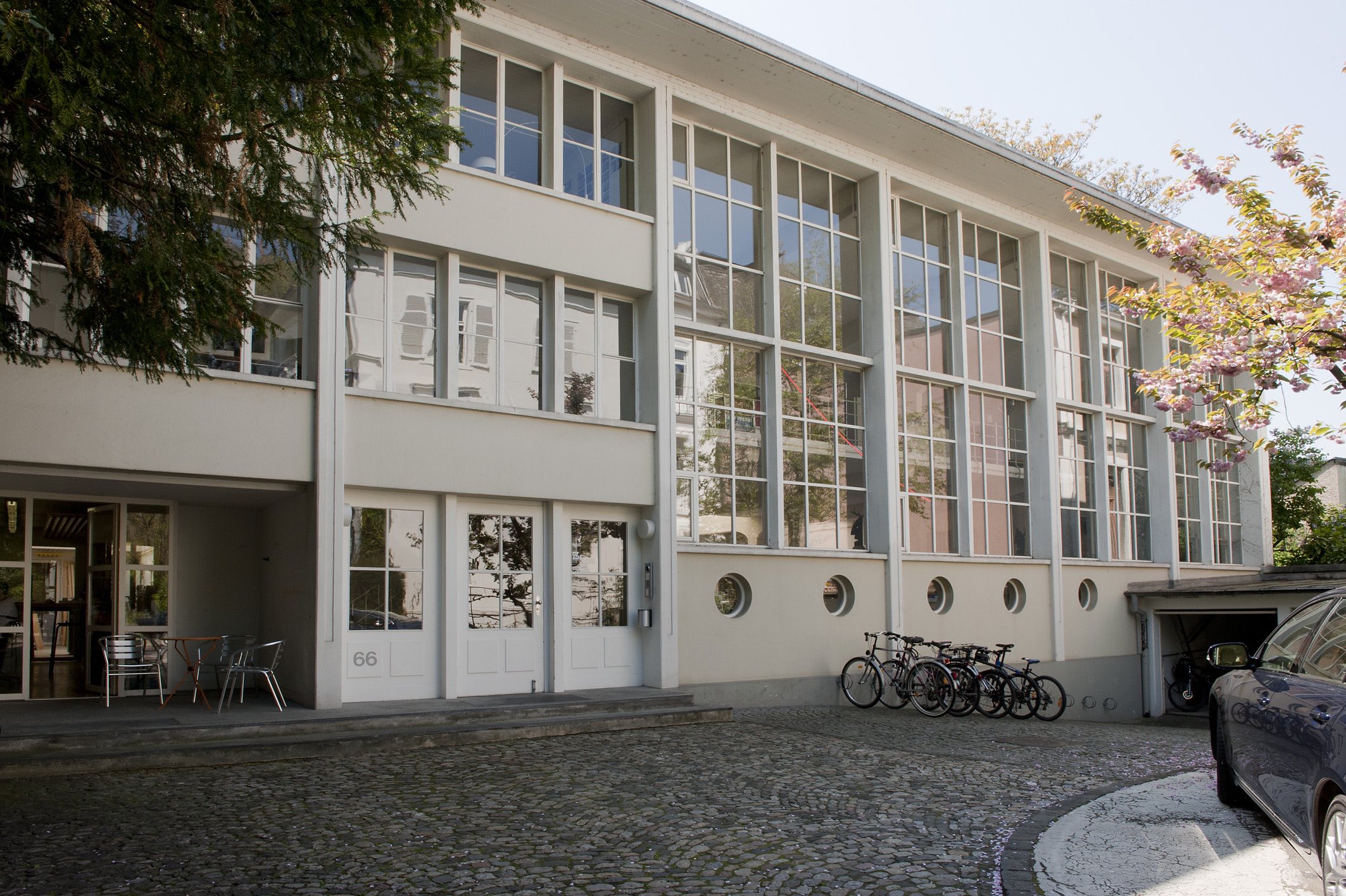
For more information about this building, see: https://www.mdpi.com/about/headquarters
21 June 2016
"Behind the Scenes of Academic Publishing—A Publisher's Perspective" - MDPI's Lecture at the University of Basel
From the 15-16 September, 2016, MDPI will run a course on Academic Publishing at the University of Basel.
In this two day workshop, MDPI will look in detail at the role performed by academic journal publishers and how they interact with academics. Ethical dimensions, what happens when problems occur and how the publisher coordinates all aspects of the submission process will also be covered.
For more detailed information about the program, trainers and registration please visit the course webpage.
14 June 2016
2015 Impact Factors Released
We are pleased to report the 2015 Journal Impact Factors in the latest Journal Citation Reports® Science Edition, published by Thomson Reuters in June 2016. Twenty out of 25 journals have seen an increase in their Impact Factor and two journals (Crystals and IJGI) received a first Impact Factor. Coatings was recently added to SCIE and will receive its first Impact Factor in next year’s JCR.
Updated Impact Factors for Journals in the Science Citation Index Expanded (SCIE)
| Journal | 2015 Impact Factor | Details | Category Rank |
| Applied Sciences | 1.726 | Link | 83/163 (Q3) in ‘Chemistry, Multidisciplinary’; 129/271 (Q2) in ‘Materials Science, Multidisciplinary’; 64/145 (Q2) in ‘Physics, Applied’ |
| Atmosphere | 1.221 | Link | 66/84 (Q4) in ‘Meteorology & Atmospheric Sciences’ |
| Catalysts | 2.964 | Link | 53/144 (Q2) in ‘Chemistry, Physical’ |
| Energies | 2.077 | Link | 43/88 (Q2) in ‘Energy & Fuels’ |
| Entropy | 1.743 | Link | 25/79 (Q2) in ‘Physics, Multidisciplinary’ |
| Forests | 1.583 | Link | 19/66 (Q2) in ‘Forestry’ |
| Genes | 3.242 | Link | 60/165 (Q2) in ‘Genetics & Heredity’ |
| International Journal of Environmental Research and Public Health (IJERPH) | 2.035 | Link | 101/225 (Q2) in ‘Environmental Sciences’ |
| International Journal of Molecular Sciences (IJMS) | 3.257 | Link | 110/289 (Q2) in ‘Biochemistry & Molecular Biology’; 51/163 (Q2) in ‘Chemistry, Multidisciplinary’ |
| Marine Drugs | 3.345 | Link | 13/59 (Q1) in ‘Chemistry, Medicinal’ |
| Materials | 2.728 | Link | 63/271 (Q1) in ‘Materials Science, Multidisciplinary’ |
| Metals | 1.574 | Link | 18/73 (Q1) in ‘Metallurgy & Metallurgical Engineering’; 145/271 (Q3) in ‘Materials Science, Multidisciplinary’ |
| Micromachines | 1.295 | Link | 30/56 (Q3) in ‘Instruments & Instrumentation’ 63/83 (Q4) in ‘Nanoscience & Nanotechnology’ |
| Minerals | 1.468 | Link | 9/21 (Q2) in ‘Mining & Mineral Processing; 14/29 (Q2) in ‘Mineralogy’ |
| Molecules | 2.465 | Link | 24/59 (Q2) in ‘Chemistry, Organic’ |
| Nanomaterials | 2.690 | Link | 64/271 (Q1) in ‘Materials Science, Multidisciplinary’; 36/83 (Q2) in ‘Nanoscience & Nanotechnology’ |
| Nutrients | 3.759 | Link | 16/78 (Q1) in ‘Nutrition & Dietetics’ |
| Polymers | 2.944 | Link | 20/85 (Q1) in ‘Polymer Science’ |
| Remote Sensing | 3.036 | Link | 5/28 (Q1) in ‘Remote Sensing’ |
| Sensors | 2.033 | Link | 36/75 (Q2) in ‘Chemistry, Analytical’; 16/27 (Q3) in ‘Electrochemistry’; 12/56 (Q1) in ‘Instruments & Instrumentation’ |
| Sustainability | 1.343 | Link | 146/225 (Q3) in ‘Environmental Sciences’; 22/29 (Q4) in ‘Green & Sustainable Science & Technology’ |
| Symmetry | 0.841 | Link | 31/63 (Q2) in ‘Multidisciplinary Sciences’ |
| Toxins | 3.571 | Link | 16/89 (Q1) in ‘Toxicology’ |
| Viruses | 3.042 | Link | 14/33 (Q2) in ‘Virology’ |
| Water | 1.687 | Link | 33/85 (Q2) in ‘Water Resources’ |
Journals with First Impact Factors
| Journal | 2015 Impact Factor | Details | Category Rank |
| Crystals | 2.075 | Link | 13/26 (Q2) in ‘Crystallography’ |
| ISPRS International Journal of Geo-Information | 0.651 | Link | 45/49 (Q4) in ‘Geography, Physical’; 26/28 (Q4) in ‘Remote Sensing’. |
14 June 2016
2015 Impact Factor released for Sensors – 2.033
Sensors has received a new Impact Factor of 2.033 for 2015 in the latest release of the Journal Citation Reports® Science Edition, published by Thomson Reuters in June 2016. The five-year Impact Factor is 2.437.
Sensors now ranks 36/75 (Q2) in the category ‘Chemistry, Analytical’, 16/27 (Q3) in the ‘Electrochemistry’ and 12/56 (Q1) in the category ‘Instruments & Instrumentation’. The journal thus remains among the highest ranking Open Access journals in the field
Evolution of Impact Factor, Citations and Publications for Sensors:
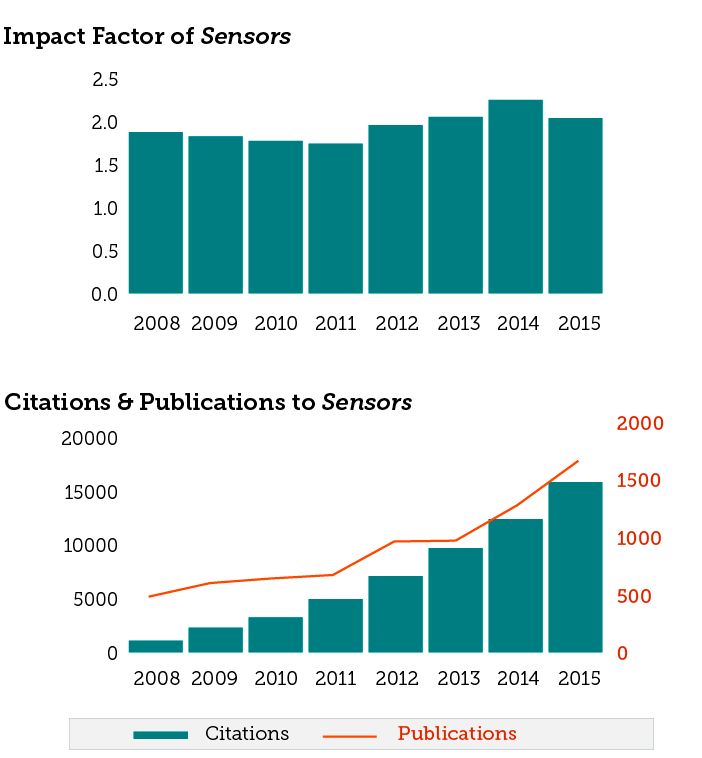
26 May 2016
Institutional Membership established with University of Bremen, Germany, Koç University, Turkey, IIASA, Austria and Jilin University and Kunming Institute of Botany, CAS, China
We are pleased to announce that the following institutions have joined MDPI's institutional membership program in May 2016:
- Unversity of Bremen, Germany
- Koç University, Turkey
- International Institute for Applied Systems Analysis (IIASA), Austria
- Jilin University, China
- Kunming Institute of Botany, Chinese Academy of Sciences, China
Authors affiliated with these institutions will benefit from a 10% discount on the article processing charges.
Additional details can be found on our institutional membership page.
23 May 2016
Institutional Membership Established with the KTH Royal Institute of Technology, Sweden and the South China University of Technology, Beijing University of Technology and Southern Medical University, China
We are pleased to announce that the following institutions have joined MDPI's institutional membership program in April and May 2016:
- KTH Royal Institute of Technology, Sweden
- South China University of Technology, China
- Beijing University of Technology, China
- Southern Medical University, China
Authors affiliated with these institutions will benefit from a 10% discount on the article processing charges.
Additional details can be found on our institutional membership page.
26 April 2016
New Section on www.mdpi.com - Latest Books
You may have noticed a new section that is now visible on our home page. This section is called "Latest Books" and showcases recent publications from MDPI Books, our book publishing service.
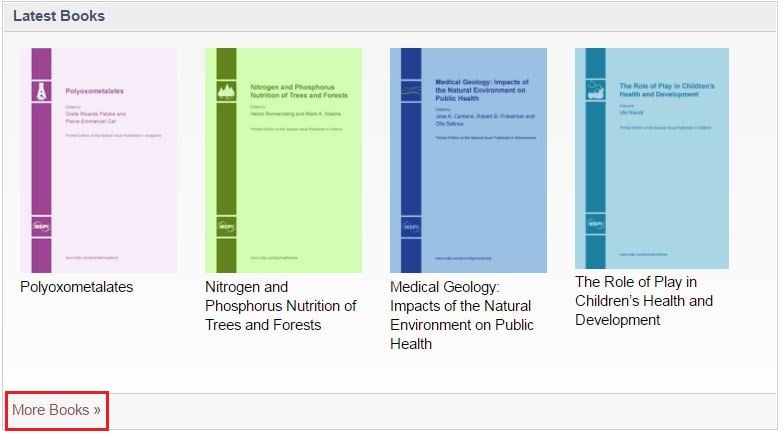
By clicking on the hyperlink "More Books" you will be taken to the MDPI Books Home Page. There you will find more information about the service, as well as the "Recent Publications" list.
Clicking on any of the book images in this list will take you to detailed information about that book (shown below). Here you can also download a PDF version of the book, or order a hardcover printed copy.
For further information about the MDPI Books service, please visit the webpage or contact [email protected].
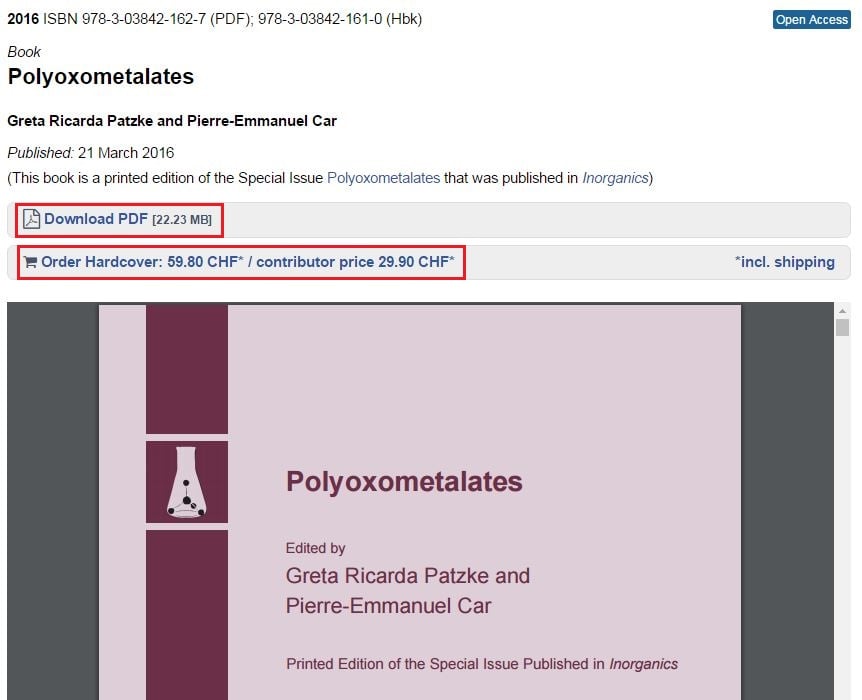
31 March 2016
New Editorial Board Members & Sensors Travel Awards Winners 2016Sensors
We are pleased to announce that the following scholars have joined Editorial Board of Sensors.
Prof. Dr. James F. Rusling
Department of Chemistry, U-60 and Department of Surgery and Neag Cancer Center (Health Center) 55 N. Eagleville Rd., University of Connecticut, Storrs, CT 06269-3060, USA
Website: http://web2.uconn.edu/rusling/
Scopus: http://www.scopus.com/authid/detail.uri?authorId=7102533817
Prof. Dr. Timothy M Swager
Department of Chemistry, Massachusetts Institute of Technology, 77 Massachusetts Avenue, 18-393, Cambridge, MA 02139, USA
Website: http://chemistry.mit.edu/people/swager-timothy
Google Scholar: https://scholar.google.com.hk/citations?user=hARTZn8AAAAJ&hl=en&oi=sra
Scopus: http://www.scopus.com/authid/detail.uri?authorId=7103104771
Prof. Dr. Itamar Willner
Institute of Chemistry, The Hebrew University of Jerusalem, 91904 Jerusalem, Israel
Website: http://chem.ch.huji.ac.il/willner/
Google Scholar: https://scholar.google.com.hk/citations?user=7DZ_0BoAAAAJ&hl=en&oi=sra
Scopus: http://www.scopus.com/authid/detail.uri?authorId=35570812900
Sensors Travel Awards Winners 2016
We are pleased to announce that the Sensors Travel Awards 2016 were granted to Saira Bakshi, PhD student at Clarkson University, Ivan Trujllo-Priego, PhD student at the University of Southern California, Brunah A. Otieno, PhD student at University of Connecticut, and to Dr. Wei Gao, post-doctoral researcher at UC Berkeley.
We thank you for your participation and we look forward to receiving your application for the Travel Awards 2017.
For more information about the journal please visit the Sensors homepage https://www.mdpi.com/journal/sensors.
31 March 2016
Axioms, Behavioral Sciences, Photonics, Separations and Toxics added to the Emerging Sources Citation Index in Web of Science
We are pleased to announce that the journals Axioms, Behavioral Sciences, Photonics, Separations and Toxics were recently accepted for inclusion in the newly launched Emerging Sources Citation Index (ESCI) in Web of Science.
ESCI serves to highlight promising journals which are still under consideration for the Science Citation Index Expanded (SCIE) or the Social Sciences Citation Index (SSCI).
The Emerging Sources Citation Index (ESCI), Science Citation Index Expanded (SCIE), Social Sciences Citation Index
(SSCI), and Web of Science™ (WoS) are Thomson Reuters products.
30 March 2016
Institutional Membership established with the University of Winchester, UK, Silesian University of Technology, Poland and Beijing Jiaotong University and Zhejiang University, China
We are pleased to announce that the University of Winchester, UK, the Silesian University of Technology, Poland and Beijing Jiaotong University and Zhejiang University, China, have joined our Institutional Membership program. Primary authors from these universities will benefit from a 10% discount on article processing charges.
Additional details can be found on our institutional membership page.
24 March 2016
New Editorial Office in Barcelona, Spain
We are excited to announce the opening of our new editorial office in Barcelona, Spain. The launch team is led by a Senior Editor and comprises further staff holding doctoral degrees with several years of research experience. The new editorial team will help us to get closer to European research communities and progress Sciforum, the platform to support the scientific community via conference hosting and other functions. They will also help spread the word about Open Access and meet academics at scientific events.
We are in the process of hiring more doctoral and masters graduates to join the editorial team and welcome applications via [email protected]. For contact details about the office, see our contact page.

22 February 2016
Membership Established with the Max Planck Society
We are pleased to announce that the Max Planck Digital Library (MPDL) has signed an agreement with MDPI to support authors associated with the Max Planck Society (Max-Planck-Gesellschaft). As of 22 February 2016, corresponding authors will receive full funding from the MPDL for articles published in MDPI journals, with a 10% discount applied to the Article Processing Charges. Additional details can be found at our institutional membership page.
Founded in 1948, The Max Planck Society is one of Germany’s leading research organizations, and is currently made up of 83 institutes conducting basic research in natural sciences, life sciences, social sciences and humanities. 18 Nobel laureates have emerged from its ranks of scientists and the society has more than 15,000 publications in scientific journals each year.
5 February 2016
Institutional Membership Extension: Wageningen University, CSIC, University of Zürich, ETH Zürich, University of Tübingen and Osnabrück University
We are pleased to announce that Wageningen University, the Netherlands, the Spanish National Research Council (CSIC), Spain, the University of Zürich and ETH Zürich, Switzerland, and the University of Tübingen and Osnabrück University, Germany, have not only renewed their institutional memberships with MDPI after two years of successful cooperation, but have also increased the reduction of the article processing charges (APCs) for affiliated authors to 25%.
Additional details can be found on our institutional membership page.
5 February 2016
Institutional Membership established with Brock University, Canada and the University of Pisa, Italy
We are pleased to announce that Brock University, Cananda, and the University of Pisa, Italy, have joined MDPI's institutional membership program: Primary authors from these universities will benefit from a 10% discount on the article processing charges as of 01 February 2016.
Additional details can be found on our institutional membership page.
25 January 2016
MDPI Sponsors diss:kurs with the University of Basel
MDPI is pleased to announce its newly established sponsorship of diss:kurs, an event coordinated by the University of Basel to support their doctorate program. For more information about the event and how to register, please visit the diss:kurs webpage.
7 January 2016
New Institutional Memberships Established with Tsinghua University, the Chinese Society of Micro-Nano Technology, Ruhr University Bochum and the University of Ulm
We are pleased to announce that the following institutions have joined MDPI's institutional membership program as of 1 January 2016:
- Tsinghua University, China
- Chinese Society of Micro-Nano Technology (CSMNT)
- Ruhr University Bochum, Germany
- University of Ulm, Germany
Authors affiliated with these institutions will benefit from a 10% discount on the article processing charges.
Additional details can be found on our institutional membership page.
5 January 2016
Safety, Fermentation, C-Journal of Carbon Research, Magnetochemistry, Batteries and Horticulturae Released Their First Issue in December 2015
We are pleased to announce that MDPI's open access journals Safety, Journal of Imaging, Fermentation, C-Journal of Carbon Research, Magnetochemistry, Batteries and Horticulturae released their first issue at the end of December 2015.
17 December 2015
Institutional Membership Extension: University of Bern, Switzerland
We are pleased to announce that the University of Bern, Switzerland has not only renewed their institutional membership with MDPI after two years of successful cooperation, but also increased the reduction of the article processing charges (APCs) for affiliated authors to 25%.
17 December 2015
Institutional Membership with the University of Ulm and Helmholtz Zentrum Munich
We are pleased to announce that University of Ulm, Germany and Helmholtz Zentrum Munich, Germany has joined MDPI's institutional membership program:
Primary authors from the University of Ulm and Helmholtz Zentrum Munich will benefit from a 10% discount on the article processing charges as of 1 January 2016. Additional details can be found on our institutional membership page.
9 December 2015
Membership Established with the Virginia Polytechnic Institute and State University (Virginia Tech)
We are pleased to announce that Virginia Tech has joined MDPI's institutional membership program. Authors from Virginia Tech will benefit from a 10% discount on the article processing charges as of 1 December 2015. Additional details can be found on our institutional membership page.
1 December 2015
Membership Established with the Technical University of Denmark and the University of North Florida
We are pleased to announce that the following universities have joined MDPI's institutional membership program:
- Technical University of Denmark (as of 1 November 2015)
- University of North Florida, USA (as of 15 November 2015)
Primary authors from the Technical University of Denmark and the University of North Florida will benefit from a 10% discount on the article processing charges.
Additional details can be found on our institutional membership page.
6 November 2015
Awards at MDPI

To encourage further research, MDPI journals regularly offer awards to sponsor assistant professors, junior scientists, postdoctoral researchers and PhD students to attend various conferences.
We are pleased to announce that four journals are currently offering Travel Awards and accepting applications for conferences in 2016. Visit our blog for more information: MDPI Blog
2 October 2015
Membership Established with the University of Freiburg and the University of Regensburg
We are pleased to announce that the following universities have joined MDPI's institutional membership program:
University of Freiburg, Germany
University of Regensburg, Germany
Primary authors from the University of Freiburg and the University of Regensburg will benefit from a 10% discount on the article processing charges as of 1 October 2015 and 1 November 2015.
Additional details can be found on our institutional membership page.
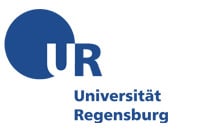
19 June 2015
Updated Impact Factor for Sensors – 2.245
We are pleased to report the 2014 Impact Factor for Sensors. According to the 2015 release of the Journal Citation Reports® Science Edition (published by Thomson Reuters in June 2015), the updated Impact Factor for Sensors is 2.245. It has risen from 2.048 in the previous year (+9.6%), as illustrated in the figure below. The 5-Year Impact Factor is 2.474. Sensors now ranks 10/56 (Q1) in the category ‘Instruments & Instrumentation’, 31/74 (Q2) in the category ‘Chemistry, Analytical’ and 14/28 (Q2) in the category ‘Electrochemistry.
Evolution of the Sensors Impact Factor:

Evolution of citations to Sensors:
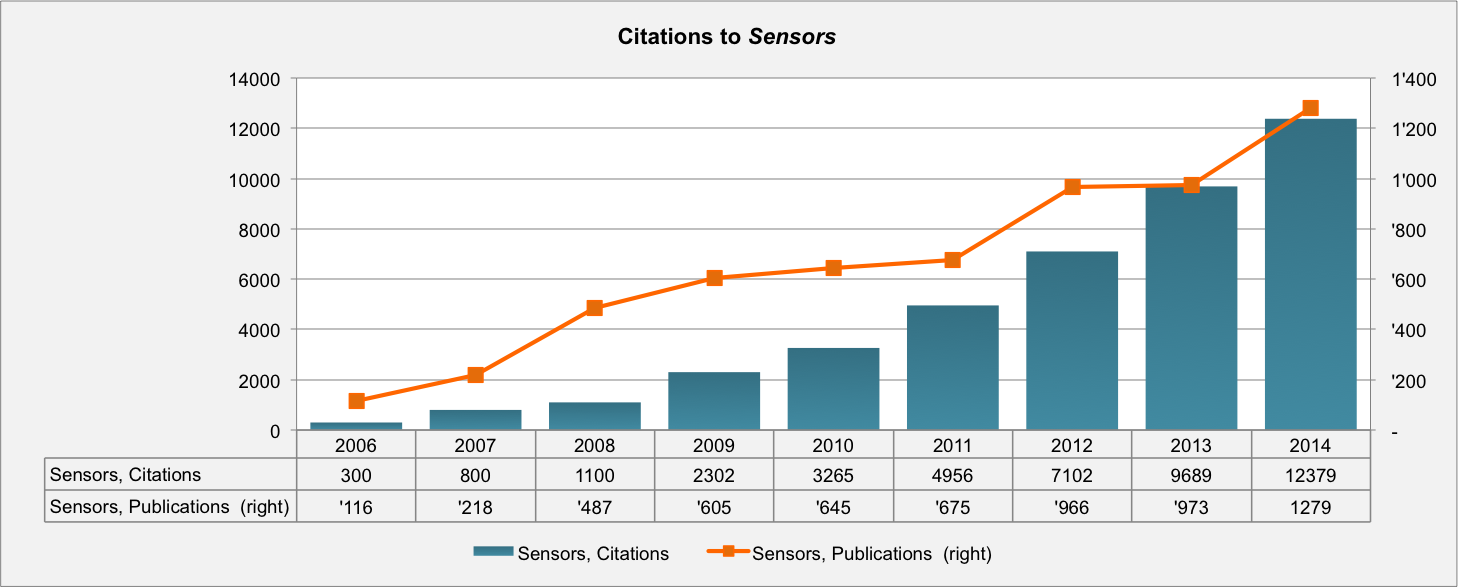





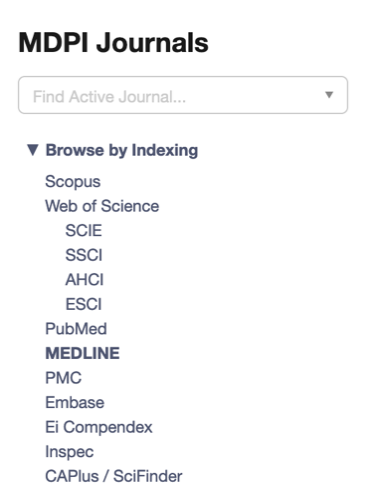
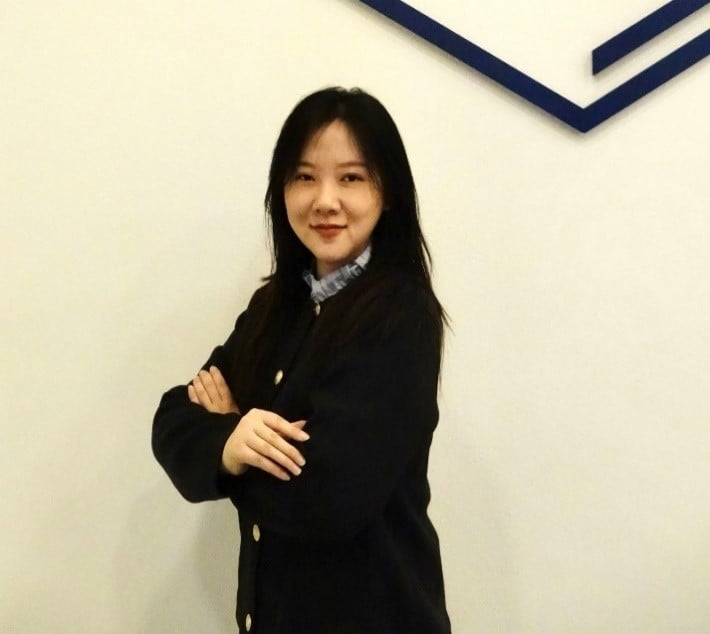
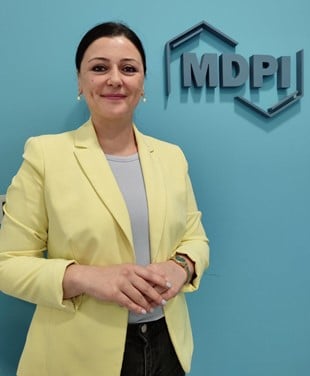

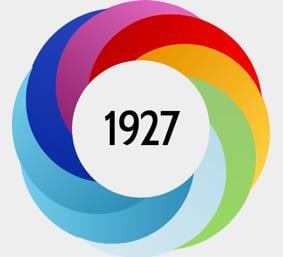
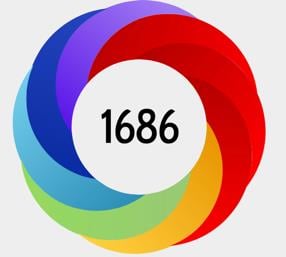
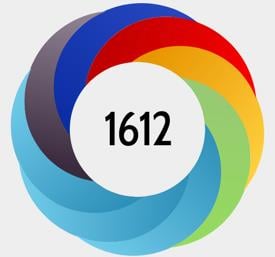
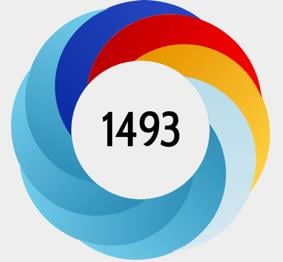
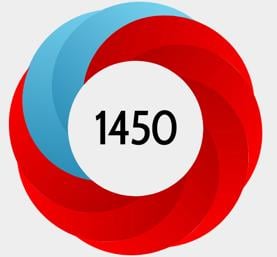
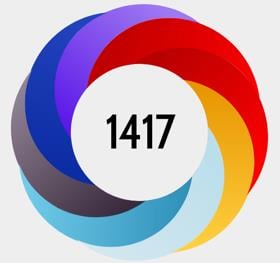
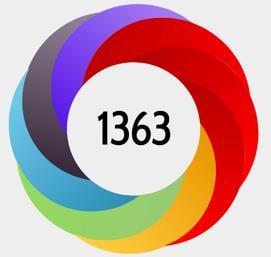
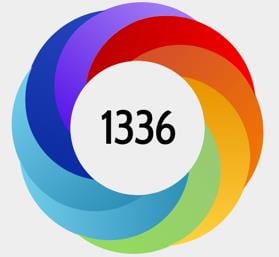
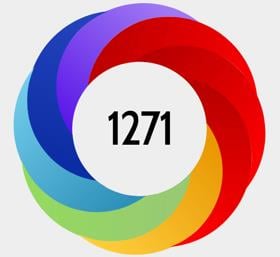
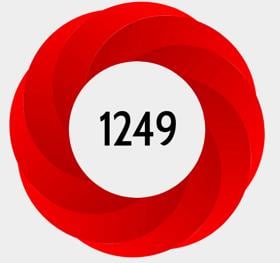




















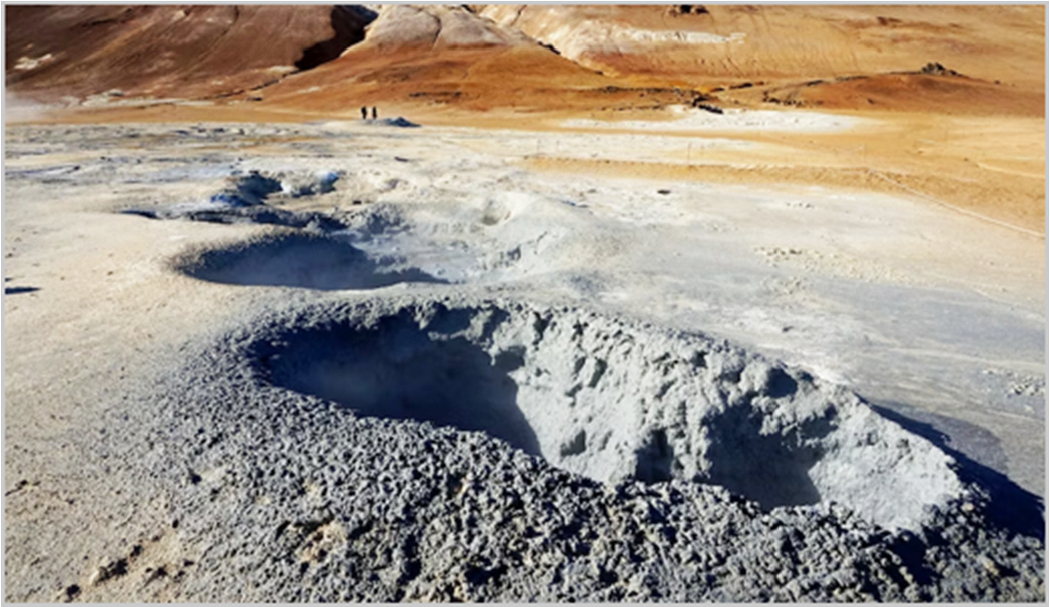
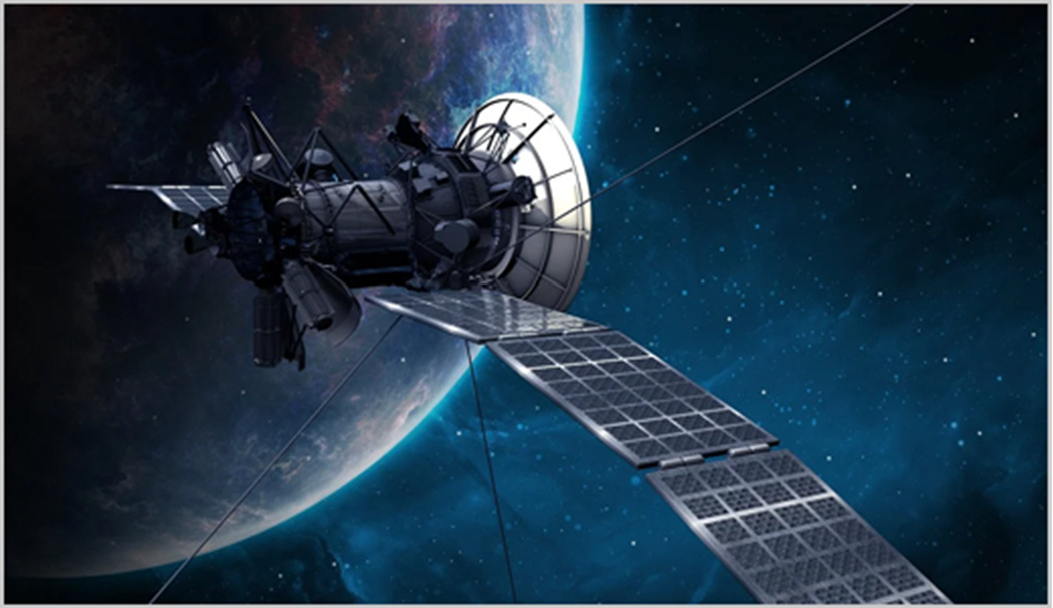



































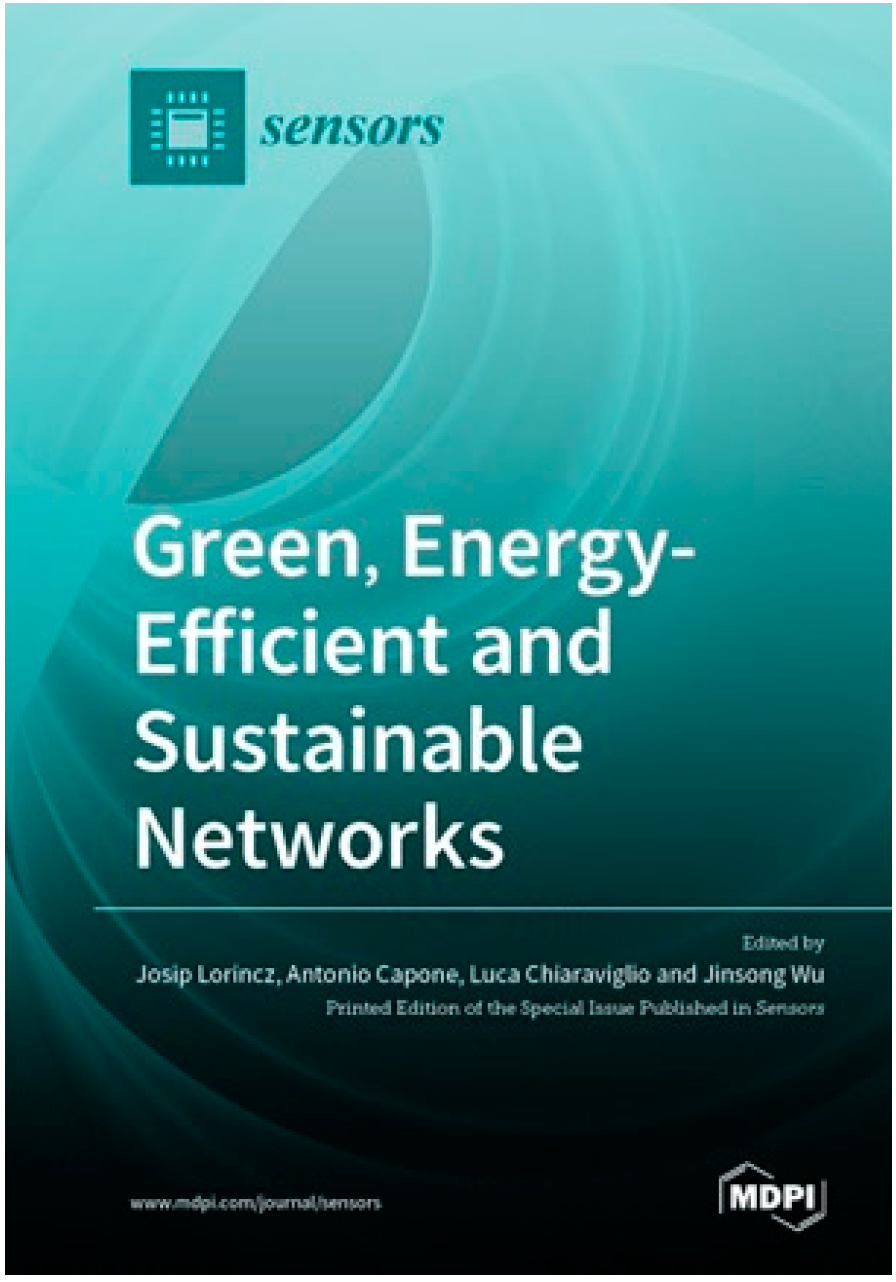
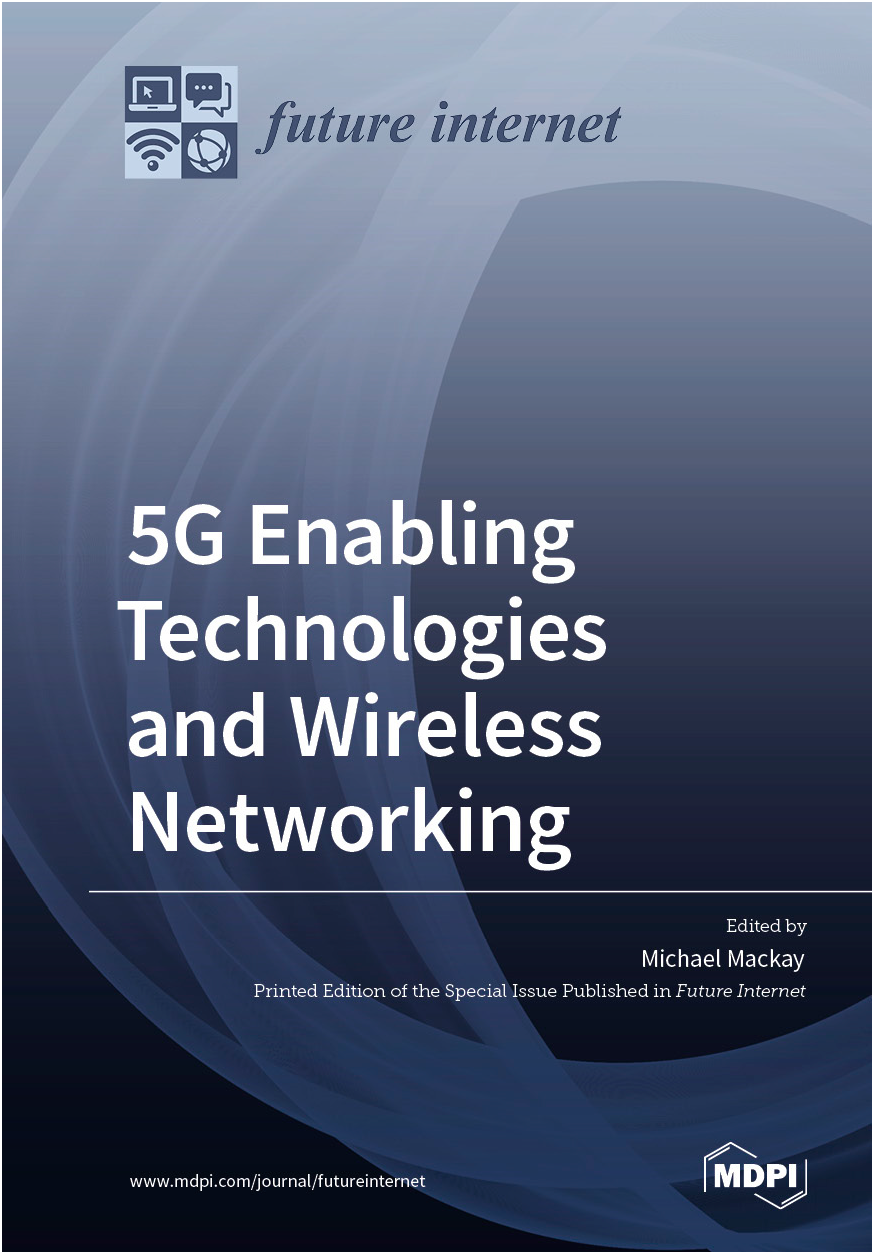
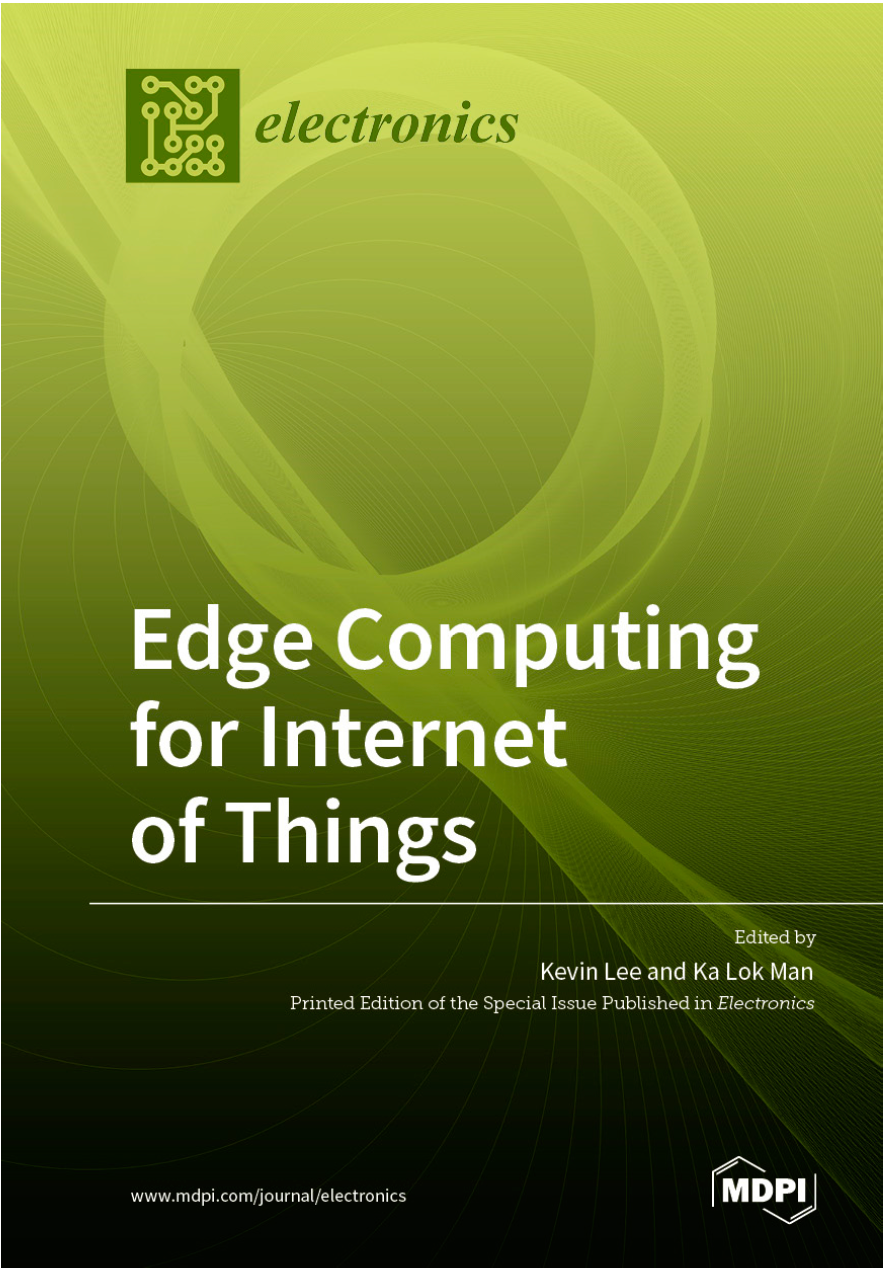
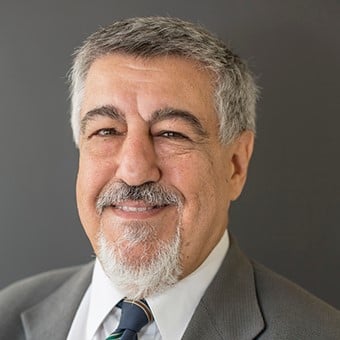




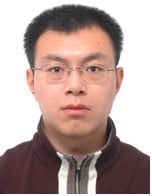
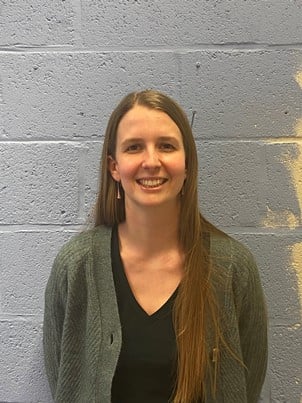

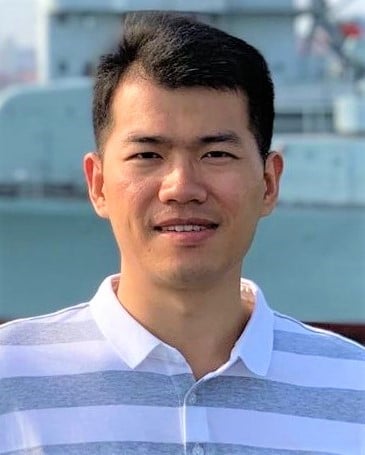



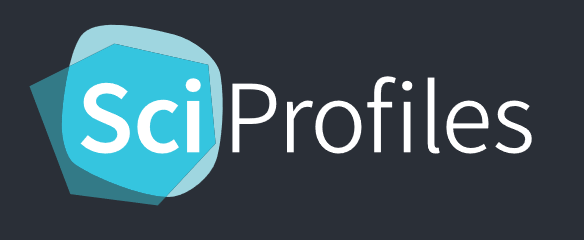

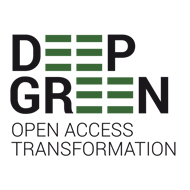



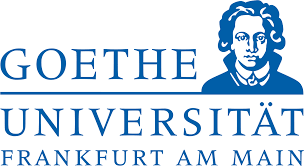
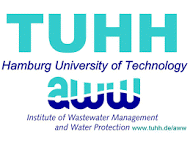




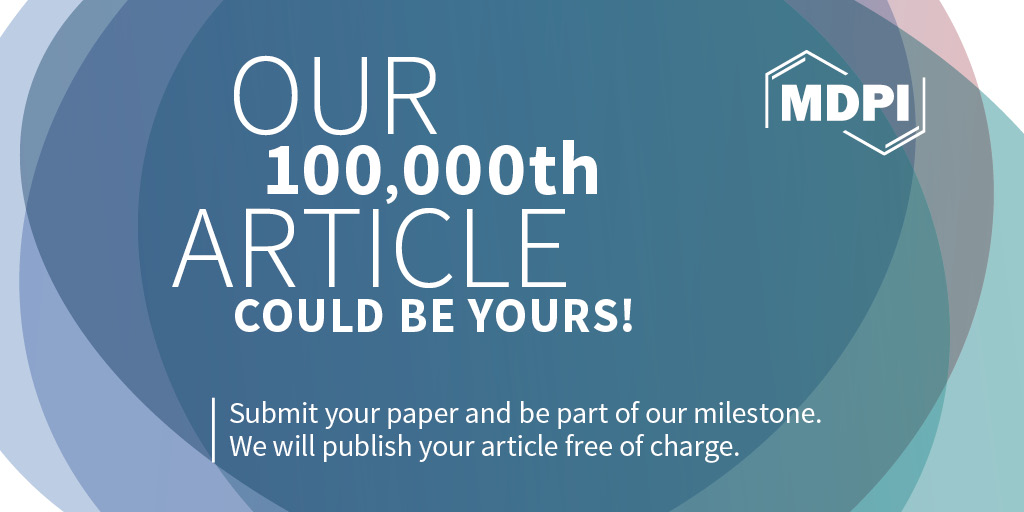

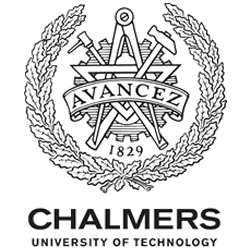

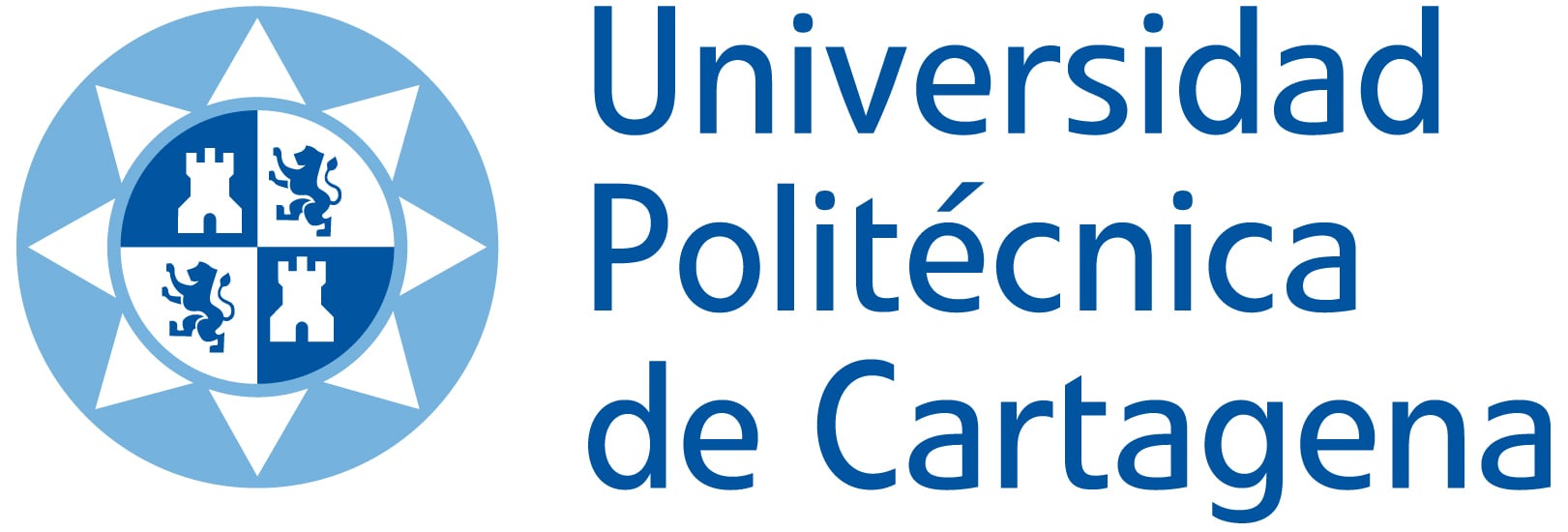
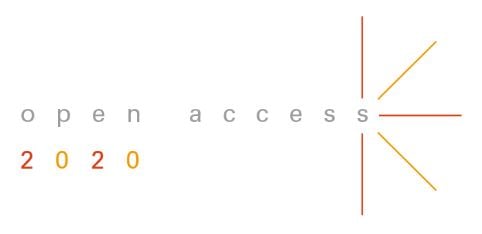
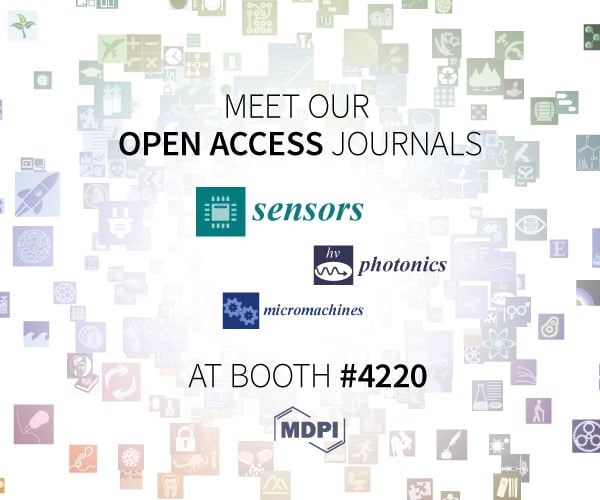



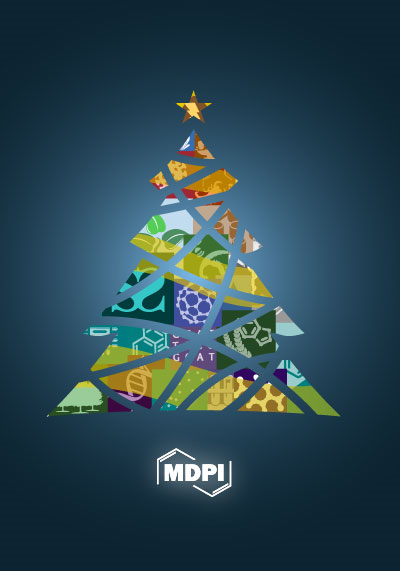





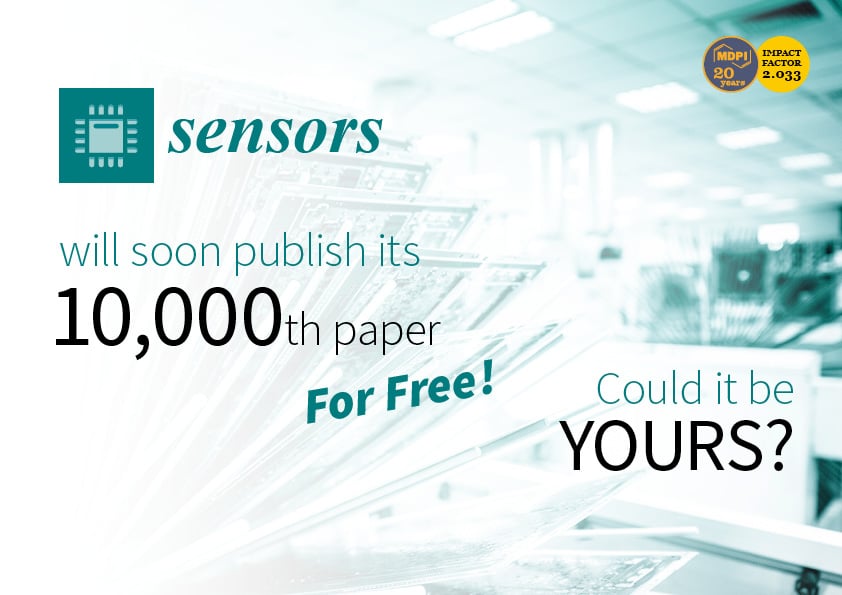
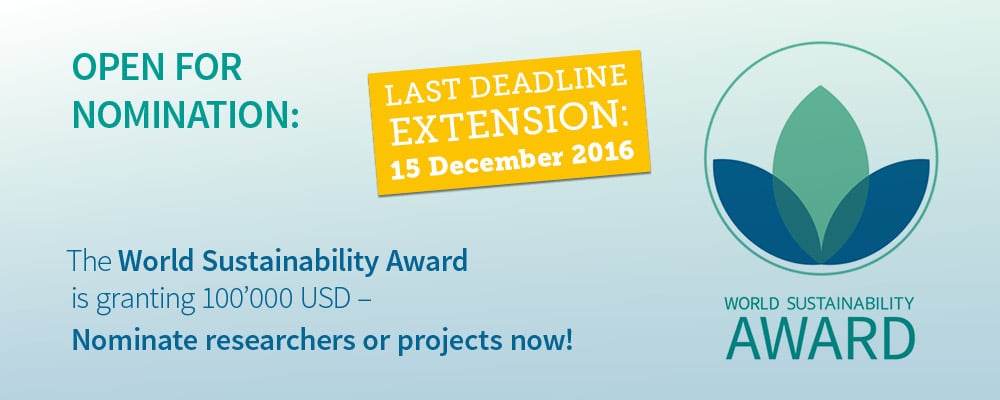



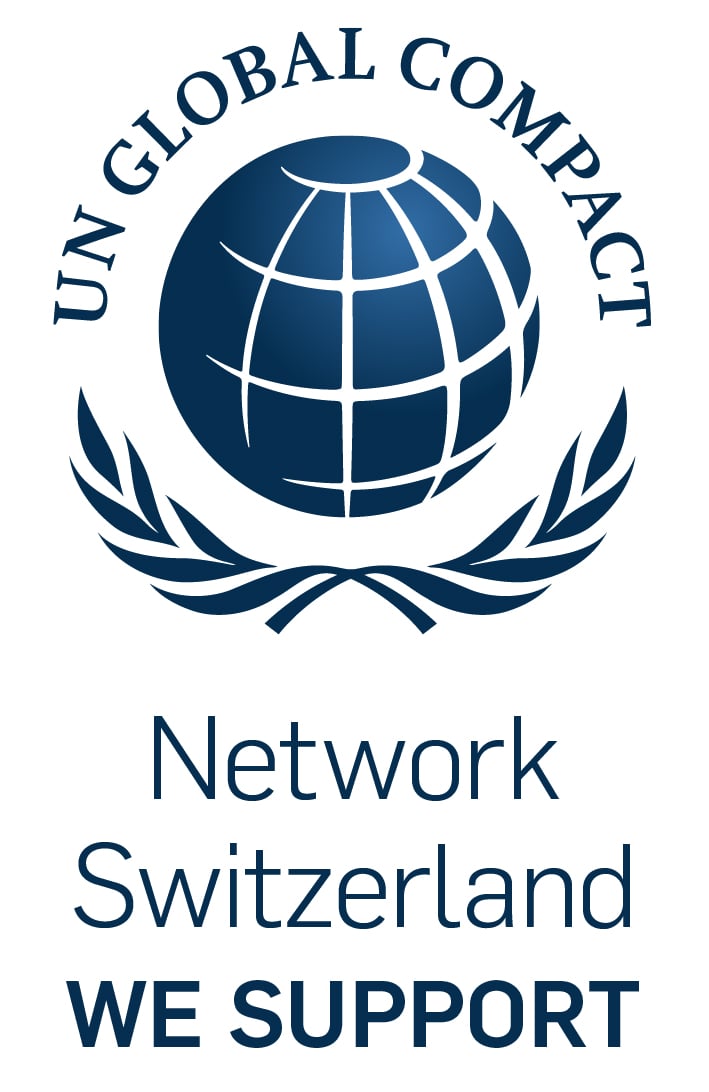
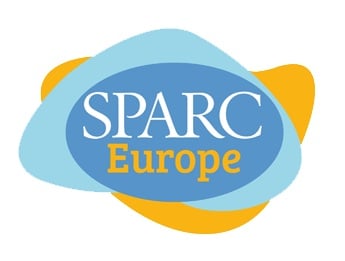
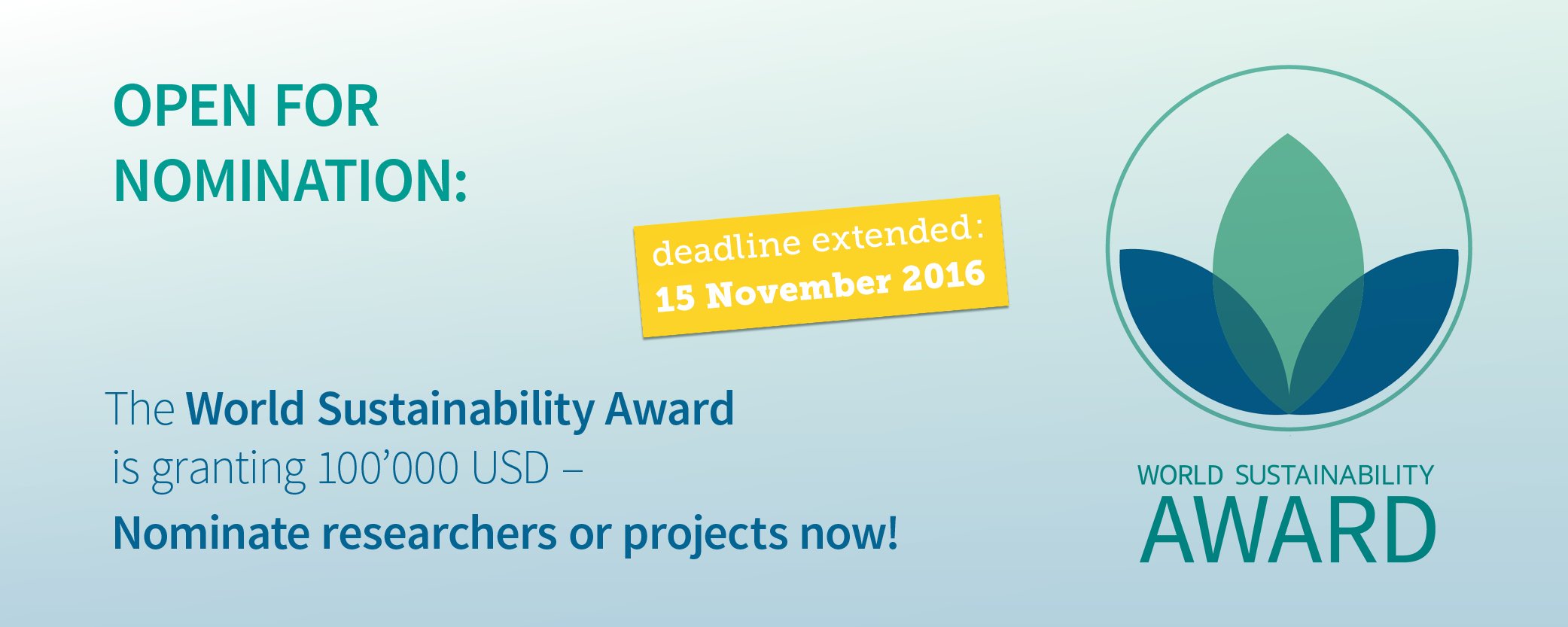 .
.